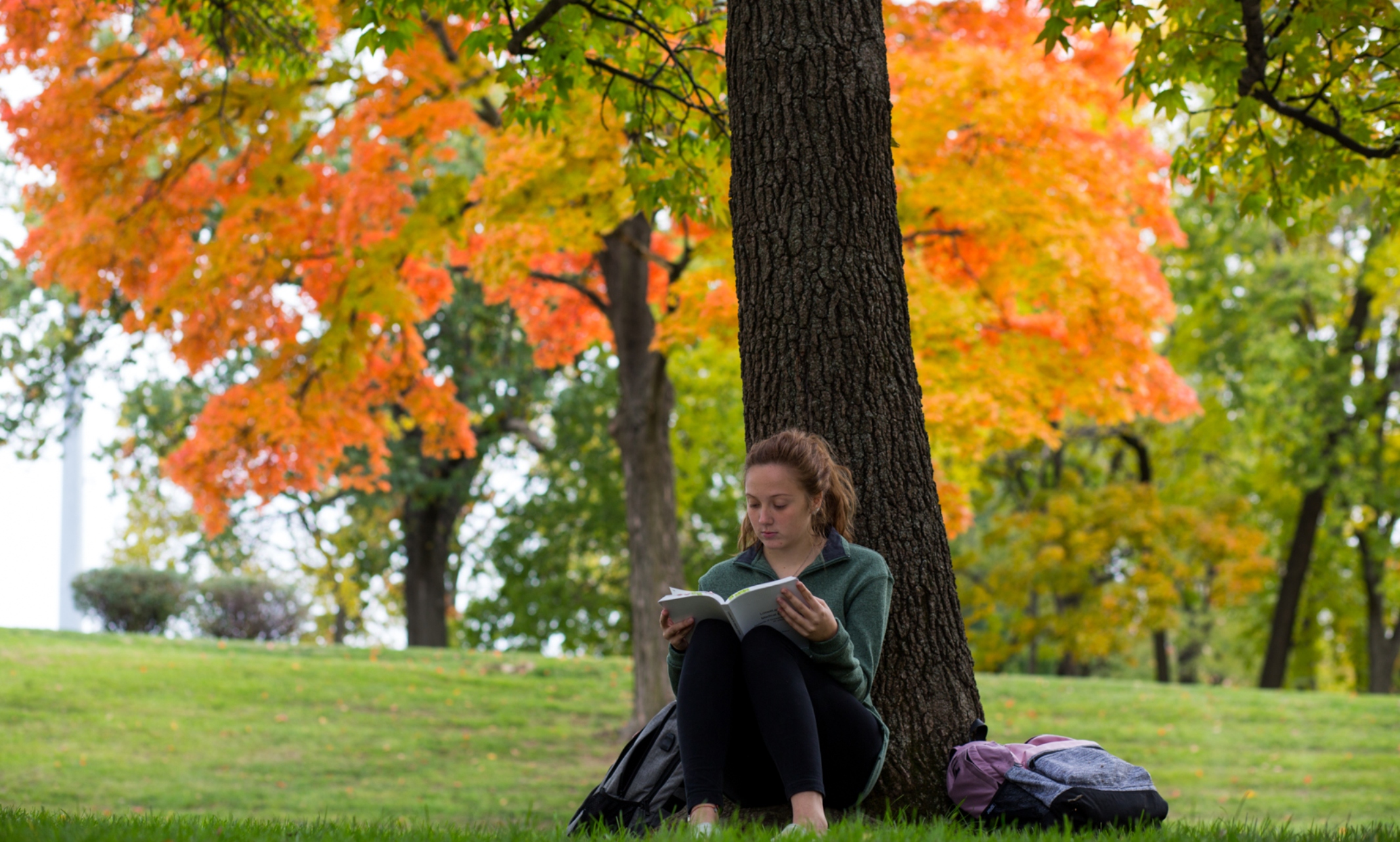
An interview with the UMKC counseling director about coping with school, life and COVID-19
The strain of managing school combined with the personal and global effects of the ongoing coronavirus pandemic may be unavoidable. But there are resources available to help manage stress and anxiety.
Arnie Abels, Ph.D., director of Counseling, Health, Testing and Disability Services at UMKC, suggests strengthening your assets may help you manage your emotional needs.
“One thing to remember is that every experience is individual,” Abels said. “People may need to figure out how to get enough sleep, the best way to exercise and create a routine. Others’ primary concerns may be financial as they try to find jobs and possibly change living situations.
All of this is valid. Each of us needs to understand that all of these things are important and manage our own individual emotional needs.”
“One thing to remember is that every experience is individual.” - Arnie Abels
He notes that returning students may be feeling completely differently than freshmen.
“For college students who are on campus for the first time, adjusting to everything new can be exciting and challenging,” Abels said. “Returning students may be frustrated and disappointed that campus life is still disrupted.”
Abels cautions about turning to substances for relief.
“First, smoking cigarettes or cannabis creates vulnerability in your lungs, which we all need to avoid,” he said. “We don’t judge, but we want to encourage people to make healthy choices. There’s nothing wrong with having a drink – if you’re of legal age – but drinking to excess can create difficult situations with difficult consequences, especially if you are using it to avoid feelings.”
There are healthier ways to deal with stress.
“Getting enough sleep is very important,” Abels said. “One of the things that may help with this is regular exercise. Eating healthy will feel better. But not everything needs to be productive. Along with online exercise videos, Swinney Rec is offering a video-gaming competition. That could be a great escape as well.”
Abels encourages people to take the opportunity to see how we can grow and become better individually and as a group.
“Personally, I’ve written letters to the people I care about. It’s a creative process for me and it allows me to let people know in a way that may be out of the ordinary and may be more special than an email or text.”
Mental Health Resources
Personal counseling
Counseling Services provides several opportunities for students. Walk-in crisis hours for any student weekdays at 10 a.m. and 2 p.m. Most group meetings are available on-line and counseling appointments are telehealth as well. Mind Body Connection will be reopening with limited services as soon as student staff workers are hired.
Movement Matters
Fitness classes available on campus, Instagram stories and Esports including PS4 and X-Box Fifa and Madden
Help at Your Fingertips
The Sanvello app provides on-demand help for stress, anxiety and depression, including videos for coping with COVID-19.
Additional Resources
Roos for Mental Health has additional resources, including the recordings of their topical lunch-n-learns.
Disability Services is open from 8:30 a.m. to 5 p.m. Monday through Friday, but the office is encouraging virtual visits. To set up an Accommodations Plan or address questions about accommodated exams or notetaking, details are available on the site.
The Employee Assistance Program has a wide range of resources related to both work and life, including tools for coping with COVID-19.
The Suicide Prevention Hotline is 1-800-273-8255 (TALK.)
Sep 24, 2021
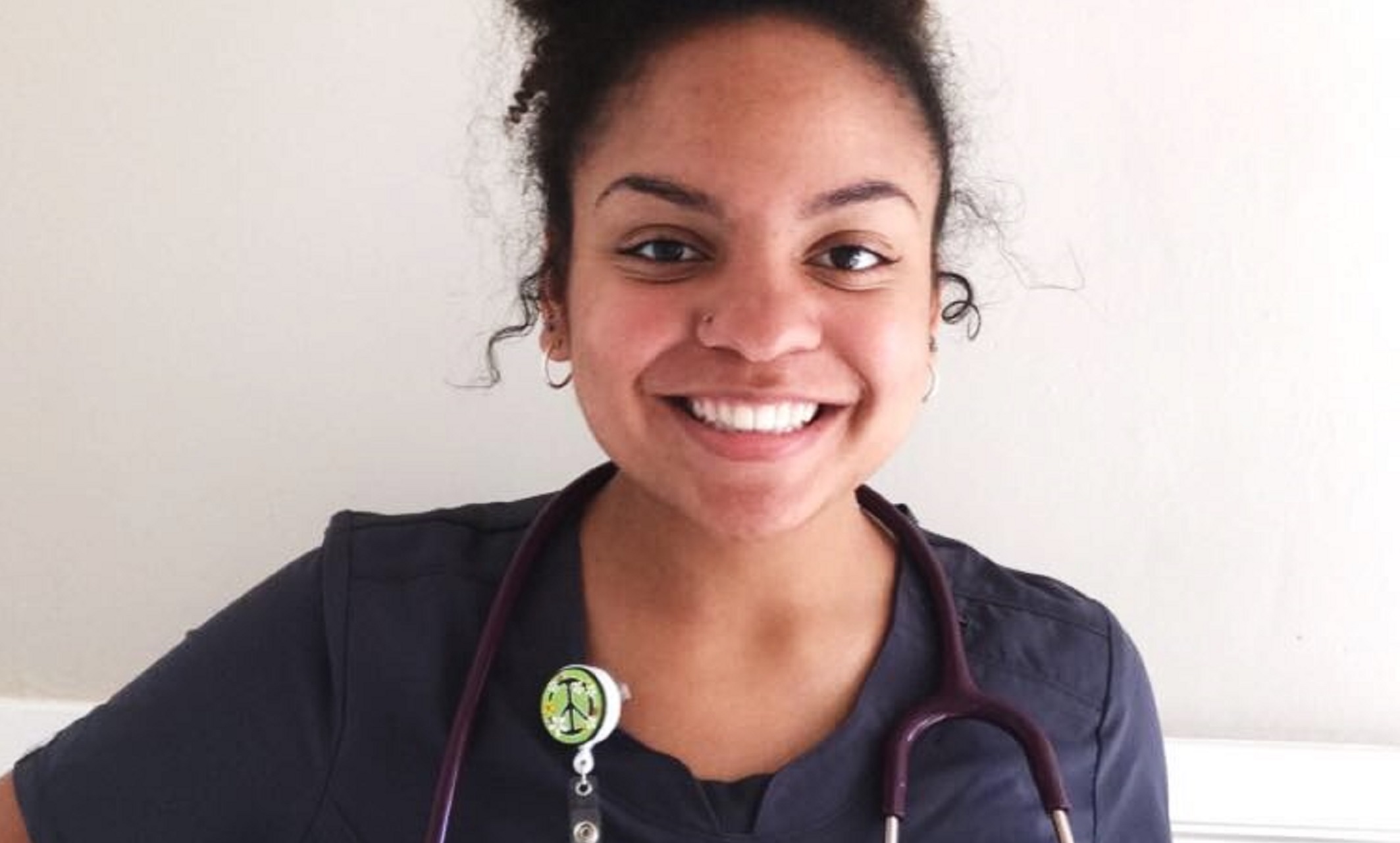
Dominique Nichols, undaunted by pandemic challenges, finds inspiration in others
Our ongoing story starts with people from around the world, converging here at UMKC. Get to know our people and you’ll know what UMKC is all about.
Dominique Nichols
Anticipated graduation: Spring 2023
Academic program: Pre-licensure BSN
Hometown: Belton, Missouri
Why nursing?
I want to make a difference in the way minorities are treated in the health care system. I want to be an advocate for them and provide culturally congruent care to all of my patients. My mother has been an emergency room tech.
What are the benefits of the program?
One is to be exposed to many learning opportunities through labs and clinicals, such as my current work at North Kansas City Hospital in the dialysis unit. The professors and administrative staff are also open to hearing students’ perspectives and concerns. And nurses are always in demand; I'll have a job when I graduate.
How has your program inspired you?
It has made me excited to build relationships with patients and care for those who are in need. I have also been inspired to set an example as a biracial woman in a prestigious field. This is such an important aspect of providing care to minorities.
Since entering college, what have you learned about yourself?
I have learned that I do not have to be perfect at everything. It is unrealistic, and it only causes more stress. I have been trying to focus on doing my best, even if it means cutting myself some slack for my own mental health.
What do you admire most at UMKC and why?
I admire the different types of people I see on campus (and on Zoom). There are people from many ethnicities, backgrounds and cultures. I think it is important to appreciate that we all have a multitude of things to bring to the table and everyone’s voice deserves to be heard. I love hearing other people’s experiences and perspectives on certain topics. They provide many learning opportunities and space for growth.
"I want to make a difference in the way minorities are treated in the health care system." - Dominique Nichols
Do you have any scholarships? What do they mean to you?
I am a proud KC Scholar. To me, this scholarship means everything. If it weren’t for this scholarship, I would have thousands of dollars in student loan debt like everyone else. This scholarship allows me to save money and spend it on other important things like my apartment, my car, food, gas and clothes. I will forever be grateful for the Kauffman Foundation for providing this scholarship to students like me. In the future, I plan on becoming a donor to give back and to help other students reach their goals, too.
Have you had an internship or job shadow?
I job-shadowed a nurse practitioner last fall. I learned how to communicate with patients, how to manage time, and how to document important information. I also got to observe a few surgeries on the skull and vertebrae. It was an awesome experience! I will have a formal internship during my senior year.
What do you hope to take from your experiences at UMKC into your career?
I hope to treat all people as individuals with their own lives and backgrounds that may or may not be the same as my own. I want to be non-judgmental and open minded as much as possible. I also want to be an advocate for patients and do what is best for them.
What is one word that best describes you and why?
Determined. I am determined to be the best version of myself that I can be. I am also determined to make a difference in how minorities are treated in the health care system. It is important to me that everyone is treated with the respect and dignity they deserve.
Jan 08, 2021
Shawnee Mission Post article includes UMKC
There were furloughs and reduced hours for some employees, and cutbacks in major purchases and travel, said Stacy Downs, UMKC spokesperson. The administration made across-the-board salary cuts in the first quarter for employees making more than $50,000 a year, but it has been able to end those, she said. Read more.
Jan 04, 2021
Mary Anne Jackson was a guest on Up to Date.
Mary Anne Jackson, professor and dean of the UMKC School of Medicine, was a guest on KCUR. She answered questions about the coronavirus vaccine.
Jan 04, 2021
Local media interviews Ken Novak about gun violence and homicide rate in 2020
“I would be shocked if it’s not also the deadliest year in Missouri’s history, we are seeing increases in three cities, how is it not possible for this to be the deadliest year,” said Ken Novak, a criminology professor at the University of Missouri-Kansas City. Kansas City Star (subscription required), KCTV5, Kansas City Magazine.
Jan 03, 2021
JoEllen Engelbart was a UMKC alumna
Assistant prosecutor JoEllen Engelbart earned a master’s degree in Public Administration from the UMKC Bloch School and a law degree from the UMKC School of Law. Read the Kansas City Star article. (subscription required) This story was also covered by KMOV.
Jan 03, 2021
The Wall Street Journal article cites a study that included UMKC as a collaborator
The study, a collaboration by researchers at California State University, University of North Carolina, University of Missouri-Kansas City and Children’s Mercy Hospital in Kansas City, Mo., was published in the peer-reviewed journal Frontiers in Public Health in 2019. Read the full article. (subscription may be required)
Jan 01, 2021
UMKC Conservatory student featured in Columbia Missourian
Nina Lee Cherry, 20, is a percussionist, singer and arranger from Lupus pursuing a bachelor’s degree in music theory at the UMKC Conservatory. Read the article.
Dec 31, 2020
Forbes publishes an article featuring an interview with a School of Medicine professor
James O’Keefe, a cardiologist and professor of medicine at the University of Missouri-Kansas City, told the Guardian, “We can strongly suspect that the estrogen is protective because we know from other studies that estrogen helps to improve some aspects of immunity.” Read the full article.
Dec 29, 2020
Kansas City Star interviews Christopher Garmon
A bill approved by Congress includes arbitration provisions in the event that insurers and providers can’t agree on costs, as well as a 30-day period before arbitration to encourage negotiations. “That’s what should happen. They should get together at a table and figure out what the fair price should be,” said Christopher Garman, an assistant professor of health administration at the University of Missouri-Kansas City. Read the full article from The Star. (subscription required)
Dec 23, 2020
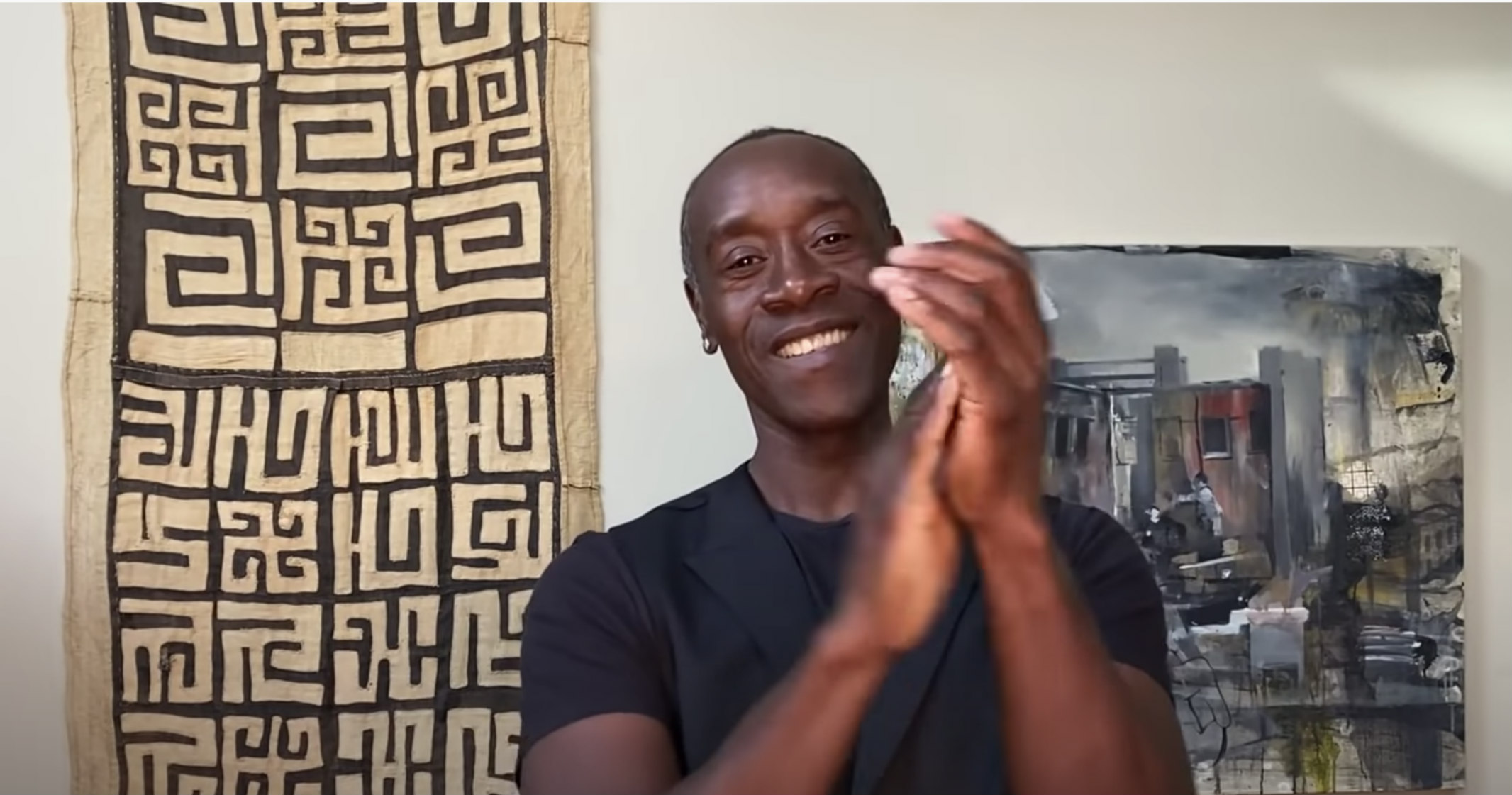
Actor and native Kansas Citian Don Cheadle delivers virtual address
More than 1,100 UMKC graduates celebrated their achievements in the midst of the COVID-19 pandemic that has upended any sense of normalcy. Along with university leadership and local celebrities, actor and humanitarian Don Cheadle recognized the enormity of these graduates’ accomplishments.
Chancellor Mauli Agrawal lauded the students for their ability to adapt to unforeseen circumstances and continue to excel academically.
“This time last spring, we hoped to be at a point where we could celebrate you in person, but we are still immersed in a persisting pandemic,” Agrawal said. “However, the pride I have in congratulating you not only remains; it has increased.”
Recognizing the unprecedented demands, Agrawal emphasized the graduates’ success.
“By no means has it been an easy semester. A lot has been required of you in the final stretch of this race. You had to dig deeper to see it through, however, your tenacity together with your growth and determination should give you a heightened sense of accomplishment this weekend. You made it!
“You are ready - ready to take on the world.” - Mauli Agrawal
You made the most of every opportunity and overcame every challenge to get the hands-on experience you need to be prepared for the workforce and benefit your communities. You are ready, ready to take on the world.”
Mun Choi, University of Missouri president, recognized the newest graduates for their ability to look beyond their own needs.
“Your success comes during a year like no other. On top of your coursework and activities, you stepped up in our fight against COVID. You supported our health care effort and tackled food insecurity. And all of you have done your part to protect your campus and community. We’re so proud of you!”
“UMKC will be with you every step of the way.” - Mun Choi
Choi welcomed the new graduates to the UMKC alumni network that is over 125,000 strong.
“UMKC will be with you every step of the way,” he said.
Provost Jenny Lundgren regretted the missed opportunity to shake graduates’ hands as they crossed the stage, but in the spirt of “commencement” focused on a brighter future ahead.
“The world needs you, and I can’t wait to see the impact you’ll make in the years to come,” she said.
Lundgren introduced commencement speaker, actor and humanitarian activist, Don Cheadle. Cheadle is a native Kansas Citian and his uncle and three of his cousins attended UMKC. He recognized this year’s graduates for their perseverance, but also acknowledged the critical role they can play in their next steps.
“It will take everything in you to move forward, to find your level to continue to grow, but you’ve already demonstrated that you have what it takes,” Cheadle said. “This moment is not bigger than you. You will be instrumental in shaping where we all go from here as you support and supplant the old guard and put each of your individual stamps on the world. We can’t wait to see what change you will initiate, and it can’t come soon enough.”
“The world needs you, and I can’t wait to see the impact you’ll make in the years to come.” - Jenny Lundgren
Cheadle encouraged graduates to be open to different perspectives.
“Please remember that there’s more than one right in almost all situations and you only become seriously wrong when you harden your heart and determine that your right is singular and correct,” he said. “That doesn’t mean don’t listen to yourself, it means listen even more closely with your good brain and good heart and try to put yourself in another’s shoes and then act accordingly.”
“It will take everything in you to move forward, to find your level to continue to grow, but you’ve already demonstrated that you have what it takes.” - Don Cheadle
In closing, Cheadle expressed his appreciation for the graduates’ perseverance.
“Thank you. Thank you for being you. Thank you for showing up and showing out, and congratulations UMKC’s graduating class of 2020.
You did the damn thing!”
Graduating Roos received congratulations from many regional leaders including U.S. Sen. Roy Blunt of Missouri; U.S. Rep. Sharice Davis of Kansas; and Kansas City, Missouri Mayor Quinton Lucas. Alumni offering congratulations included Esther George (EMBA ’00), president and chief executive officer of the Federal Reserve Bank of Kansas City; and Dana Tippin Cutler (J.D. ’89) and Keith Cutler (J.D. ’89), hosts of the television show “Couples Court with the Cutlers.” Community leaders Mayra Aguirre, president of the Hall Family Foundation; and Jeff Jones, chief executive officer of H&R Block; extended their best wishes as well as Sporting Kansas City head coach Peter Vermes and player Graham Zusi and retired Kansas City Royal Alex Gordon. Notable local celebrities actor Tuc Watkins, musician David Cook and KSHB news anchor Dia Wall joined in the celebration.
Dec 21, 2020
Missouri Lawyers Media names Anthony Luppino
When former business and tax lawyer Tony Luppino made the move from UMKC School of Law adjunct professor to full-time faculty nearly two decades ago, he quickly realized that the gap between his new home and the adjacent business school was far greater than the campus walkway separating the next-door academic neighbors. Read more.
Dec 21, 2020
Newspaper cites Ken Novak
Apologizing to minorities for decades of mistreatment isn’t a novel concept, said Ken Novak, a professor of criminal justice and criminology at the University of Missouri-Kansas City. Read the full article from the Kansas City Star. (subscription required)
Dec 20, 2020
UMKC's Chuck Haddix weighs-in
“They didn’t cover jazz much outside of the Coon-Sanders Original Nighthawk Orchestra,” Chuck Haddix, co-author with Frank Driggs of “Kansas City Jazz, From Ragtime to Bebop,” said of the two daily papers and the city’s signature white jazz orchestra. Haddix is also curator of the Marr Sound Archives at the University of Missouri-Kansas City. Read the Kansas City Star article. (subscription required)
Dec 20, 2020
New York Times interviews Christopher Garmon
“If this bill will force them to come to the table and negotiate a solution, it will be a definite win for everybody,” said Christopher Garmon, an assistant professor of health administration at the University of Missouri-Kansas City, who has measured the scope of the problem. Read the full article.
Dec 20, 2020
KC Star interviews UMKC law professor
Fraternal Order of Police President Brad Lemon’s inconsistent statements about the self-approved reports were troubling, said retired chief public defender and University of Missouri-Kansas City law professor Sean O’Brien, who reviewed the internal affairs documents at The Star’s request. (subscription required)
Dec 18, 2020
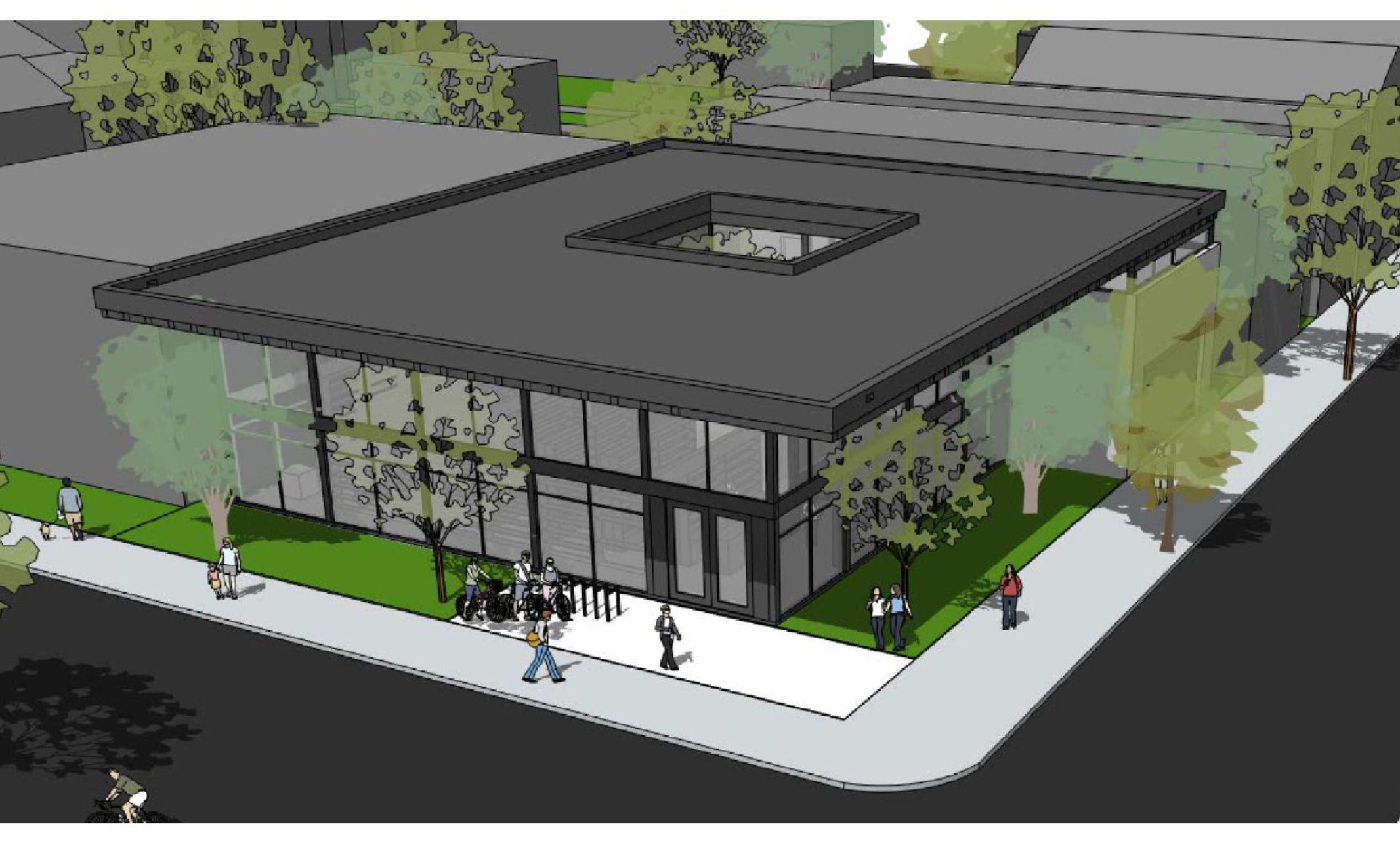
Linh Phan drafted plan to fit mixed-use urban environment
Linh Phan, a student in the Architecture, Urban Planning + Design program, is the winner of the 2020 Helix Prize.
Every fall, Helix Architecture + Design sponsors the Helix Prize, a competition and scholarship for UMKC second-year Architectural Studies students. Professor John Eck teaches the studio, and faculty and members of the architectural professional community judge the competition.
This year, the competition challenge was to design a (fictional) live-work bookstore in the Columbus Park neighborhood of Kansas City, Missouri. This small bookstore would be located at the southeast corner of 5th and Harrison, and would have an attached residence for the store owner.
Eck explained the concept behind the assignment.
“Most of us grew up with the notion that ‘work’ happened in one place, ‘home’ happened in another, and a car ride happened in between,” he said. “This is a fairly recent phenomenon; however, one that could only happen with the advent of affordable automobiles in the 1940s and ‘50s. This spurred the growth of the suburbs and the ever‐increasing distances between places of work and places of residence. Prior to this time, most people living in cities relied on public transportation or simply walking; commuting distances were negligible compared to today.”
“The people with the shortest commute were those who owned small private businesses, especially retail,” Eck said. “Restaurateurs and shop owners often lived over or adjacent to their places of business, allowing them a short trip down the stairs or across the alley to open up each morning. But thanks to the expansion of the suburbs, this economical and efficient way of living and working essentially disappeared in most American cities by the 1970s. In the past decade, however, the appeal of this way of life has experienced a resurgence, bolstered by concerns about pollution and time wasted by daily commutes.”
The competition judges named Phan and student Wyatt Beard as finalists.
Judges cited Phan’s entry as “a very clear courtyard-type plan … transformed to suit its site and the unique problem of a retail space directly adjacent to a residence. There is a suitable separation between the two; the line is there, but it is a blurred line. The quality of light, both through the courtyard and the fritted windows, would make the bookstore feel open, welcoming and warm.” The overall simplicity of the scheme, they felt, would create a contemplative “quiet” in the bookstore, while still very clearly being a retail establishment.
The Department of Architecture, Urban Planning + Design is part of the UMKC College of Arts and Sciences.
Dec 17, 2020
KCTV5 interviews School of Law associate professor
“It’s a brand-new world I think for employment lawyers,” said Mikah Thompson, an associate professor at the UMKC School of Law who specializes in employment law. Read the story and watch the newscast.
Dec 17, 2020
Media outlets cover news of UMKC School of Medicine expansion
The University of Missouri-Kansas City School of Medicine announced it is expanding its program to St. Joseph to help address the state’s rural physician shortage. Read the stories by News-Press Now Opinion, News-Press Now Letter, St. Joseph Post, KQ20 and News-Press Now.
Dec 16, 2020
Fox4KC covers news of UMKC commencement speaker
Kansas City native Don Cheadle will speak to graduates at the University of Missouri Kansas City during a virtual ceremony this week. Read the story and watch the newscast from Fox4KC.
Dec 16, 2020
Six students honored for academic excellence, leadership and service
Six Roos will be honored as Dean of Students Honor Recipients this fall.
Graduating students who have excelled in both academic achievement and service may be nominated for the honor. This program recognizes the exceptional students who maintain high scholastic performance while actively participating in university and community leadership and service activities outside of the classroom.
Elizabeth Beavers, School of Law, nominated by Sean O’Brien and Ellen Suni
Leigh Blumenthal, College of Arts & Sciences, nominated by Jacob Wagner
Alejandro Cervantes, College of Arts & Sciences, nominated by Janet Garcia-Hallett
Connor King, School of Medicine, nominated by Betsy Hendrick
Abida Matin, School of Medicine, nominated by Cary Chelladurai
Brandon Shuey, Bloch School of Management, nominated by Katie Garey
Dec 14, 2020

Spirited resilience in a year of uncertainty
If pictures could tell the tale of a year unlike any of us could ever fathom, these images by UMKC photographers definitely do.
2020 began full of promise and possibilities, starting with a significant Roo season on the basketball courts. And then the pandemic changed everything for all of us.
These photos show that even though we are masked and socially distanced, we are adapting, learning and moving forward on campus and in our community. See our story.
2020 Vision
Mujahid Abdulrahim, a professor in the School of Computing and Engineering, flies his plane toward downtown Kansas City. The school's faculty includes several pilots, and the school features a flight simulator. Photo by Brandon Parigo
Drenched in Victory
UMKC Women's Basketball players celebrated their first ever conference victory by pouring water on their coach, Jacie Hoyt. As a Divison I team, this win meant an automatic seat in the NCAA tournament, which was later cancelled due to COVID-19. Photo by Brandon Parigo
Communications Classroom Discussion: Coronavirus
In the last day of in-person classes in March, Steve Kraske talks to his journalism students about COVID-19. The whiteboard behind the associate teaching professor says 'corona.' Photo by Brandon Parigo
Celebrating Commencement in a New Way
In May, Kansas City celebrated its university's graduates with blue fountains and illuminated buildings. This Country Club Plaza tower was lit in Roo blue and gold as was Durwood Stadium ion campus in the background. Photo by Brandon Parigo
Masked Move-In With Temperature Checks
Move-in days for fall semester meant making appointments, limiting movers, wearing masks and taking temperature checks. Photo by Brandon Parigo
First Day of Class on the Volker Campus
Yes, classrooms were larger and furniture was sparser and spread apart during fall semester to promote social distancing. Photo by John Carmody
Getting Catty on the Health Sciences Campus
There was a little levity in the form of feline wall art during the first week of classes on the Health Sciences Campus. Photo by John Carmody
An Adaptation
UMKC Conservatory dance classes included physical distancing and instruction via Zoom. Photo by Brandon Parigo
Chilling on Campus
Masks and social distancing aren't going to stop students from connecting with each other and enjoying the UMKC campus. Photo by Brandon Parigo
A Practice in Perseverence
Women's Basketball Coach Jacie Hoyt, center, leads the Roos in the 2020-21 season. Photo by Brandon Parigo
Hope on the Horizon
This sunset view of the UMKC quad on campus showcases the city skyline in the distance. The final days of 2020 include the promise of a COVID-19 vaccine on the way. Photo by Brandon Parigo
Dec 14, 2020
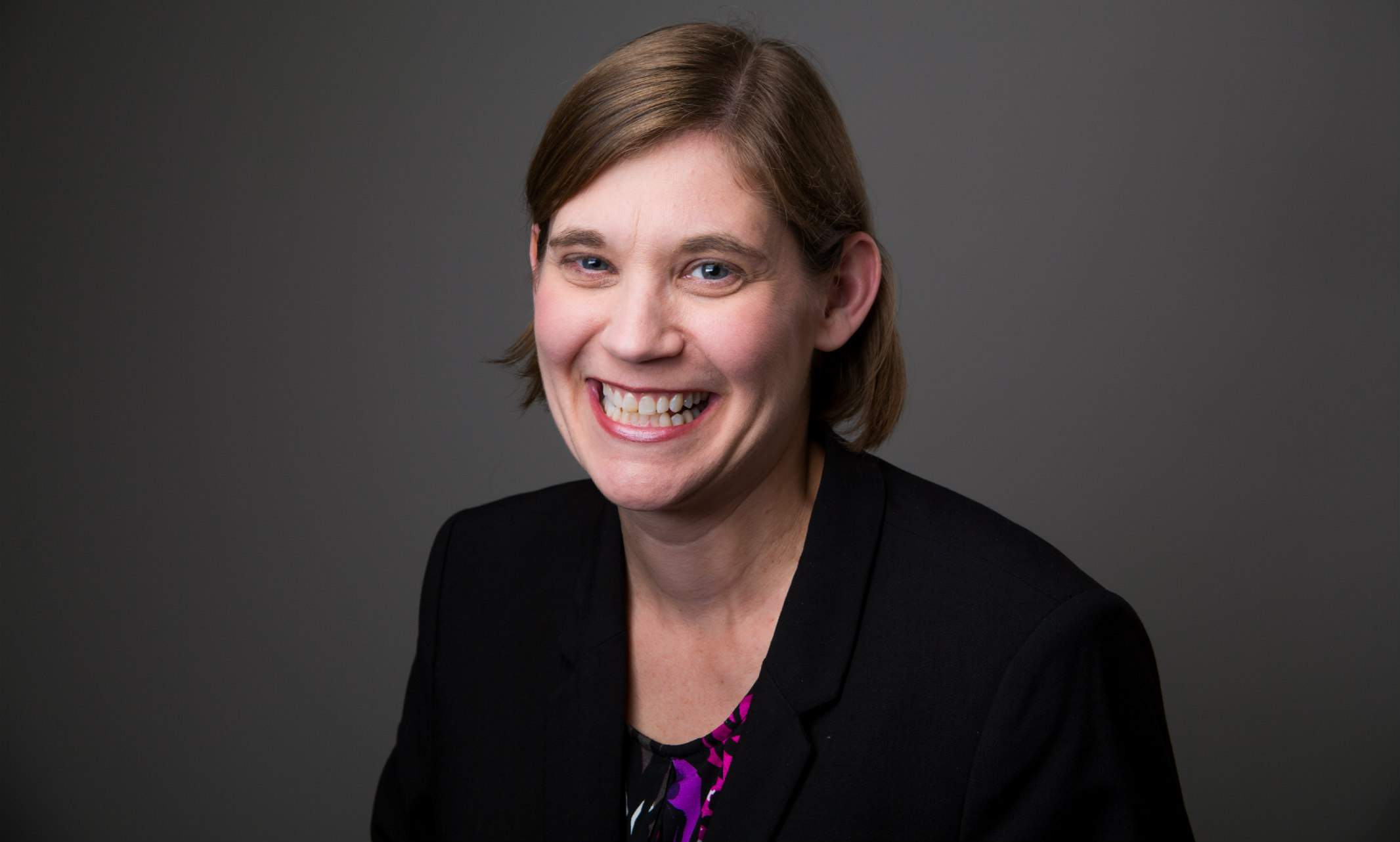
UMKC faculty and staff share cozy winter dishes
While winter break may not look the same this year, there's something cozy about preparing – and then eating – a great dish. So we asked UMKC faculty and staff if they could share recipes for some of their favorite winter treats.
Beth Vonnahme, associate dean of the College of Arts and Sciences and associate professor of political science, loves to bake.
"Baking relaxes me," she says. "Creating something so tasty from simple ingredients brings me a lot of satisfaction. I also enjoy the smiles on my kids’ faces when they try one of my tasty treats."
Vonnahme enjoys baking sweets of various sorts, but cookies are her favorite. She loves chocolate chip cookies, but also has a lemon cookie recipe that have proven popular for special occasions including birthdays, baby showers and holidays.
“Creating something so tasty from simple ingredients brings me a lot of satisfaction. I also enjoy the smiles on my kids' faces when they try one of my tasty treats.” - Beth Vonnahme
"I made them last year for the College of Arts and Sciences bake-off," she says. "Unfortunately, I was a judge so my entry was disqualified."
Fortunately for us, Vonnahme is sharing the Glazed Lemon Hearts recipe as well as two she offers up during election season that are winners no matter the time of year: Celebrate! Chocolate Cake and Consolation Chocolate Chip Cookies.
Want to share a recipe with your fellow Roos? Submit yours to the UMKC Taste of Home cookbook project.
Lemon-Glazed Hearts
Makes about 72 cookies
Lemon Cookies
3 cups all-purpose flour3 tablespoons cornstarch3/4 teaspoon salt1 1/2 cups butter (3 sticks), softened (do not use margarine)1 cup confectioners' sugar1 tablespoon freshly grated lemon peel1 1/2 teasponns lemon extract1/4 teaspoon almond extract
Lemon Glaze
1 1/2 cups confectioners' sugar4 to 5 teaspoons fresh lemon juice1 1/2 teaspoons freshly grated lemon peel
Preheat oven to 325 degrees F. Prepare cookies: In medium bowl, whisk flour, cornstarch and salt until blended.
In large bowl, with mixer on medium speed, beat butter and sugar until creamy, occasionally scraping bowl with rubber spatula. Beat in lemon peel and extracts. Reduce speed to low; gradually beat in flour mixture until blended, occasionally scraping bowl.
Divide dough in half. Between two 20-inch sheets of waxed paper, roll half of dough 3/8-inch thick. With floured 2 1/4-inch heart-shaped cookie cutter, cut dough into as many cookies as possible. With floured 3/4-inch heart-shaped cookie cutter, cut and remove center from cookies. Reserve centers and trimmings to reroll. With lightly floured wide spatula, carefully place cookies, 1 inch apart, on two ungreased large cookie sheets. (If dough becomes too soft to transfer, freeze 10 minutes.)
Bake cookies until edges are golden, 15 to 16 minutes, rotating cookie sheets between upper and lower oven racks halfway through. Transfer cookies to wire rack; cool 10 minutes.
Meanwhile, prepare glaze: In small bowl, with wire whisk or for, mix confectioners' sugar, lemon juice and lemon peel until blended. Dip top side of each warm cookie into glaze. Place cookies on wire racks set over waxed paper to catch any drips. Allow glaze to set, about 20 minutes.
Repeat with remaining dough, reserved centers, trimming and glaze, adding a little water to glaze if it begins to thicken. Store cookes, with waxed paper between layers, in an airtight container up to 5 days, or freeze up to 3 months.
Celebrate! Chocolate Cake
2 cups sugar1 3/4 cups flour3/4 cup cocoa1 1/2 teaspoons baking powder1 1/2 teaspoons baking soda1 teaspoon salt2 eggs1 cup milk1/2 cup vegetable oil1/2 teaspoons vanilla1 cup boiling water
Preheat oven 350 degrees F.
Grease and flour two round pans.
Mix dry ingredients.
Add wet ingredients, except water.
Once mixed, add boiling water.
Bake until a toothpick inserted into the middle comes out clean, 30 to 40 minutes. Transfer to wire racks and let cool 10 minutes, then run a knife around the edge of the pans and turn the cakes out onto the racks to cool completely.
Consolation Chocolate Chip Cookies
2 1/4 cups flour3/4 cup brown sugar3/4 cup sugar2 eggs1 teaspoon baking soda1 teaspoon salt1 teaspoon vanilla1 cup butter2 cups chocolate chips (Beth prefers mint chocolate chips)
Preheat oven 350 degrees F.
Combine dry ingredients in a small bowl.
Beat butter, sugars and vanilla until creamy.
Add eggs.
Add flour mixture.
Add chips.
Bake on ungreased sheets 8 to 10 minutes.
Dec 14, 2020
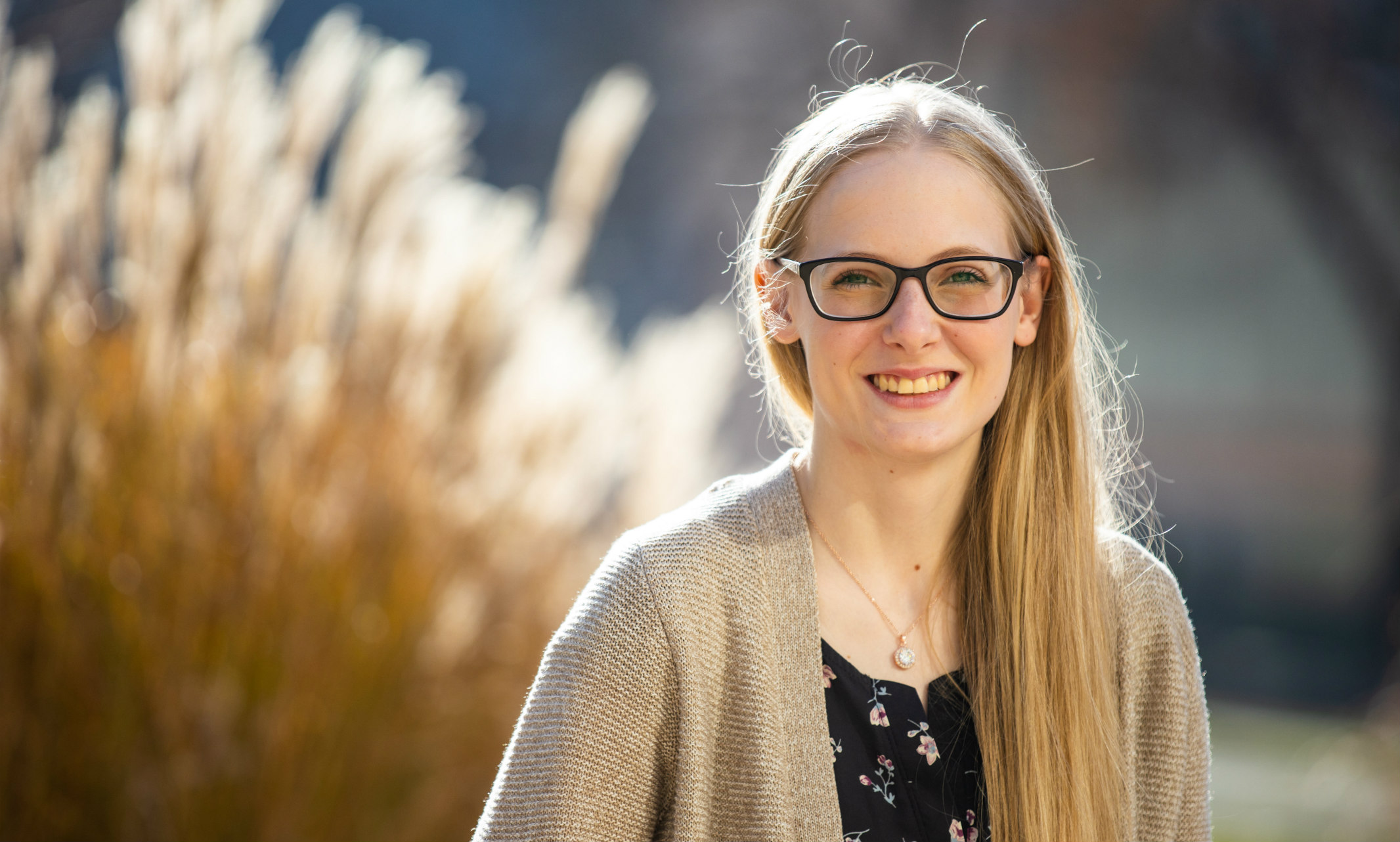
Emily Wesley founded a peer-mentoring group and landed internship at Stowers Institute
Our ongoing story starts with people from around the world, converging here at UMKC. Get to know our people and you’ll know what UMKC is all about.
Emily Wesley Anticipated graduation: 2021Academic program: BiologyHometown: Elkhart, Kansas; Broken Arrow, Oklahoma
Emily Wesley has always been fascinated by science. Some of her most vivid childhood memories are of reading infographic books about the human body and creating quizzes for her parents from her nature encyclopedia.
“Finding joy in learning science combined with my desire to make a difference inspired me to pursue a degree in biology,” Wesley says. “I knew that I could pursue many paths with this degree, such as becoming a scientific researcher working on curing disease or a compassionate physician focused on healing others. The opportunities are endless, and I knew that I couldn’t go wrong by studying something I loved.”
Wesley lost both her parents at a young age; her mother died from brain cancer when she was 8 years old and her father died from a stroke when she was 15. While she says she still struggles with grief, she was inspired by one of the doctors who was caring for her father while he was in the hospital.
“One of my dad’s doctors was always making sure that I was OK,” she says. “If he noticed I hadn’t eaten he would ask, ‘What do you want from Wendy’s?’ Or he would stay late to let me know what the next steps would be.”
This human component of her experience furthered her interest in studying medicine and science. An Oklahoma native, she decided to go a little further from home when she was looking for the right college.
“During my time at UMKC I have learned that success is obtained through hard work and determination.” - Emily Wesley
“Kansas City seemed like such an exciting city,” she says. “There were so many opportunities.”
While the city seemed big to her in the beginning, she says the longer she’s in Kansas City the smaller it feels. At the same time her opportunities are expanding, largely through her own initiative.
“The thing that I admire most about UMKC is the inclusive and welcoming environment on campus. I think that so much is gained from having individuals from a variety of backgrounds, cultures, perspectives and experiences at the table, and it’s clear that UMKC embraces this.”
Wesley chose to study biology at the School of Biological and Chemical Sciences because of the opportunity to study alongside the six-year medical students. But she developed a strong support system and broadened her interests.
“One of the best aspects of the biology program is the tremendous support that we feel from our professors” Wesley says. “Our professors care about our success. Many take time out of their schedule to meet one-on-one with each student, ensuring that we have all the tools we need to perform well. It’s very inspiring to receive this sort of care and support from professors and to always have someone rooting for us and our success.”
To further this spirit of connection, Wesley founded the Pre-Med Peer Mentoring Program, which connects UMKC freshman and sophomores with junior and senior mentors who are pursuing medical school. While she thought meeting regularly would be a great way to connect underclassmen with upperclassmen so they could have a real-world view of preparing for medical school, she was unsure of the response because of the effects of the COVID-19 pandemic.
“I was hoping to get 20 participants in the program. One hundred and twenty signed up.”
Members have one-on-one meetings by Zoom monthly.
“The thing that I admire most about UMKC is the inclusive and welcoming environment on campus. I think that so much is gained from having individuals from a variety of backgrounds, cultures, perspectives and experiences at the table, and it’s clear that UMKC embraces this.” - Emily Wesley
Wesley counts the mentoring relationships she’s developed as part of her success.
“Tara Allen is so inspiring,” Wesley says. “As soon as I entered the program she made a point of getting to know me.
Allen, a teaching professor and academic advisor in the School of Biological and Chemical Sciences, says Wesley made a strong impression in their first meeting.
“I was not surprised to learn that she had developed a student-led premedical mentoring program,” Allen says. “She saw a way that she could help others and brought that idea to fruition, even though her schedule was already busy. I am deeply grateful to her for creating a program to help students navigate the difficulty journey of preparing for medical school.”
Beyond UMKC, Wesley has developed strong connections through her internship at the Stowers Institute for Medical Research. After hearing Scott Hawley, Ph.D., investigator and American Cancer Society research professor, speak in one her classes, she researched his work and then emailed him about opportunities. She has been working in his lab for the last two years. Hawley thinks being in the lab is the best way to understand what science is about.
“You get used to failure,” Hawley says. “You learn the discipline of being careful and record keeping. You learn that sometimes results don’t make sense. That’s the way I like to do science.
You don’t learn to ice skate by sitting on the sofa and watching ice skaters. You have to ‘do’ science.”
I’ve recommended maybe 500 students over the last 45-50 years. She’s in the top ten.” - Scott Hawley, Ph.D.
Wesley has been doing. Recently, she was first author on a paper in Chromosoma, a research magazine, a significant achievement for an undergraduate researcher.
“Emily has the skills to be accepted to a first-rate medical school, if that’s what she chooses to do,” Hawley says. “It’s more than intelligence or even creativity. It’s a passion to succeed. I’ve recommended maybe 500 undergraduate students over the last 45-50 years. She is among the very best.”
Wesley doesn’t think her success is due to talent.
“During my time at UMKC, I have learned that success is obtained through hard work and determination. I’ve reached out to people who have been willing to mentor me and I’ve learned that I can use my time and energy to help others. I struggle with grief daily, but I find meaning through the struggle and tackle every day with the passion and strength that my parents instilled in me.”
Get to Know Emily
What is one word that best describes you?
I think the word that best describes me is “persistent.” One thing that most people don’t know about me is that I lost my mom to brain cancer at age 8 and my dad to a stroke at age 15. All my goals, motivation and hope for my future are focused upon making them proud.
What’s your favorite social media channel?
While I am not active on any social media, I have recently been enjoying TikTok, like many of my peers. The creativity that I have seen on this app is astounding, and I have surprisingly learned a lot from the educational videos!
What’s your favorite spot to eat in Kansas City?
I enjoy getting a burger and pie from Town Topic with my friends. We like taking our burgers and pies to-go so that we can enjoy our food while overlooking the Kansas City skyline near the World War I Memorial.
Where’s your favorite place to visit Kansas City?
Before the pandemic, I enjoyed spending time at the Oak Park Mall. While I’m not exactly a shopaholic, I enjoyed checking out the various clothes and items they have in the stores every week. When I lived in Elkhart, the nearest mall was two and a half hours away! I think this I why I enjoy the mall so much now.
What’s your favorite spot on campus?
My favorite spot on campus is the fourth floor of Miller Nichols Library. This is the silent floor with lots of desks for studying. It’s the perfect place for me to “zone in” and be productive.
Dec 14, 2020
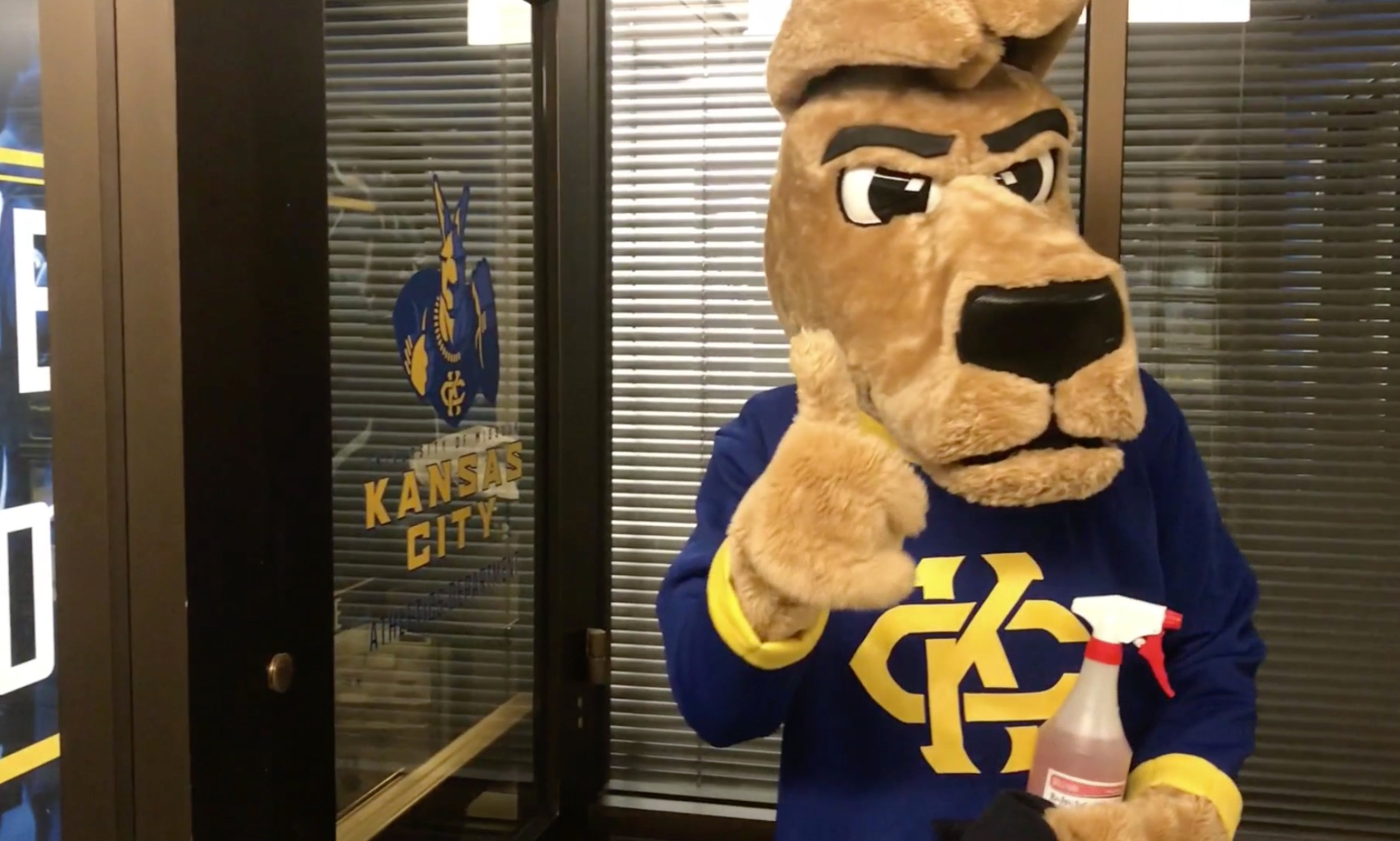
UMKC achieved much in a year of adversity
It was a year like no other, for the world, and for UMKC. During 2020, our university community weathered the storm of the COVID-19 pandemic, while setting new records for research grants and philanthropic gifts, raising graduation rates and participating in a nationwide awakening to our longstanding national failure to achieve racial justice.
Here is a look back over a year that will be long remembered.
COVID-19
The numbers are difficult to comprehend: COVID-19 has claimed the lives of more than 280,000 Americans, more than 1.5 million worldwide. The arrival of the pandemic in our region led to a sudden shift to all-online instruction in March, and significant changes to the way we teach, learn, work and live on campus ever since. Roos rose to the challenge, embraced best practices and kept the number of cases on campus significantly lower than in the surrounding community.
A Record for Research
UMKC achieved a major milestone in fiscal year 2020 by winning the highest amount of grant funding in its history: $48.9 million. The record coincides with the first year at UMKC for Chris Liu, the vice chancellor for research.
New Height for Philanthropy
The UMKC Foundation accomplished a year of record giving with significant increases in both contributions and donors. This year’s donations are 35% greater than the previous record year, with gains in all areas of giving.
Lighting Up the Night
Spring commencement 2020 was the first graduation ceremony in UMKC history conducted virtually. While faculty, staff, students and loved ones missed the opportunity to celebrate together in person, the city’s civic and business leadership showed its appreciation for Kansas City’s university with a video featuring athletes, entertainers and other celebrities with ties to Kansas City, and lighting up buildings, fountains and more in Roo Blue and Gold.
Delivering on the Mission
UMKC recorded important gains in some key indicators of student success this fall, including graduation rates, improvements that positively impacted students across the spectrum, including underrepresented minorities.
Advancing Leadership in Data Science
Former UM System president Gary Forsee and Sherry Forsee have committed $2 million to support the NextGen Data Science and Analytics Innovation Center, or dSAIC, based at UMKC. The dSAIC research will provide data analytics to power the NextGen Precision Health initiative and other precision health research across the University of Missouri System’s four universities.
Taking Thoughtful Action on Systemic Racism
Roos Advocate for Community Change is a new campuswide effort addressing systemic racism on an array of fronts on campus and in our community, launched in June as a significant component of the UMKC response to the tragic death of George Floyd and the vital national conversation on racism it has spawned. One of the first initiatives was to institute mandatory professional development training on unconscious bias for all UMKC faculty and staff, along with a social media campaign focused on awareness and Critical Conversations, a series of frank conversations on racial issues.
A Championship Season
The UMKC Women’s Basketball team won the first conference title and automatic NCAA Tournament placement in basketball in the university’s history as a Division I program. Head coach Jacie Hoyt and her team had to forego their hard-earned participation in March Madness when the tournament was cancelled due to the pandemic.
Addressing Racial Health Disparities
Jannette Berkley-Patton, Ph.D., has dedicated her career to addressing the unequal prevalence of health issues, and lower availability of health care, in minority communities. As director of the UMKC Health Equity Institute, the School of Medicine professor has brought more than $5 million in federal grants this year to UMKC to address racial disparities in incidence and treatment in diabetes and COVID-19 by partnering with African American faith communities. Through religiously tailored strategies, she and her teams also work to prevent and provide care for HIV/AIDS, heart disease and mental health.
Classical Music Returns to the Airwaves
The long absence of classical music from Kansas City area radio ended when 91.9 Classical KC began broadcasting June 30. The music service also can be streamed through a new website at classicalkc.org. The station is an enterprise of KCUR 89.3, Kansas City’s public radio station, an editorially independent community service of UMKC.
Introducing a New Department: Race, Ethnic and Gender Studies
A department of the UMKC College of Arts and Sciences, REGS’ interdisciplinary curriculum teaches critical thinking through an examination of historical and contemporary problems and offers minors in three interest areas: Black Studies; Latinx and Latin American Studies; and Women’s, Gender and Sexuality Studies.
Expanding the Reach of Health Care in Missouri
The UMKC School of Medicine will expand its program to St. Joseph, Missouri, to address the state’s rural physician shortage. UMKC received a $7 million grant from the Health Resources and Services Administration (HRSA) to start the new program in January 2021. Typically, physicians remain to practice in the areas where they go to medical school.
Building Student Success in Urban Schools
The Institute for Urban Education within the UMKC School of Education is committed to improving student success in urban schools. Community leaders Leo Morton and Jerry Reece are leading the campaign to expand the program’s capabilities and ultimately long-term student success.
Dec 14, 2020
UMKC faculty and staff share cozy winter dishes
While winter break may not look the same this year, there's something cozy about preparing – and then eating – a great dish. So we asked UMKC faculty and staff if they could share recipes for some of their favorite winter treats.
John Martellaro, director of strategic communications, is a former food editor for the Kansas City Star. Here’s a recipe that has become a post-holiday staple for his family.
Do you enjoy cooking/baking? Why?
I was food editor and restaurant critic for the Kansas City Star for about a decade, back in the 20th century. Over the years, it has morphed from a hobby, to a profession and back to a hobby again. It’s an opportunity to be creative in a way that is very different from writing. And I love the complements.
What’s a dish you enjoy making this time of year?
The cranberry chutney is a Thanksgiving staple in our family, and the spoonbread a favorite use for leftover turkey. Using the chutney as a topping on the spoonbread is a delightful combination. Another post-Thanksgiving tradition for us is a big steaming pot of turkey noodle soup. The wings and the stripped leg and thigh bones go right into the stockpot as I’m carving.
Do you have any stories attached to this particular recipe?
As a food editor you collect recipes from all over the place and I frankly do not remember the source of the chutney recipe; the photo is the recipe cut out from the newspaper and taped to an index card. We keep it mild to please everybody, but those who prefer spicy can up the pepper-sauce content to their liking. The spoonbread is from an old Butterball pamphlet. It works with any poultry. This year we only had three at the table so we roasted a capon instead of a turkey; the spoonbread came out just fine with those leftovers. One of these days I am going to try it with duck.
Want to share a recipe with your fellow Roos? Submit yours to the UMKC Taste of Home cookbook project.
Cranberry Orange Chutney
4 medium oranges½ cup orange juice1 pound fresh cranberries2 cups sugar¼ cup crystallized ginger, diced½ teaspoon hot pepper sauce1 whole cinnamon stick1 medium clove garlic, peeled¾ teaspoon curry powder¾ cup raisins
Pare zest from oranges. Slice ¼ cup thin slivers of zest and reserve. Completely peel oranges, leaving no white pith. Slice oranges crosswise into ¼-inch-thick slices and then cut slices into quarters, Set aside.
Combine zest, juice, cranberries, sugar, ginger, hot sauce, cinnamon, garlic and raisins in a saucepan. Cook over medium heat, stirring frequently, until sugar dissolves and cranberries pop open. Remove from heat. Discard cinnamon stick and garlic clove. Add orange pieces and mix lightly.
Turkey Spoonbread
2 cups chopped cooked turkey3 cups milk, divided1 cup yellow cornmeal¼ cup butter1 Tablespoon sugar1 ½ teaspoons baking powder¼ teaspoon salt¼ teaspoon ground red (cayenne) pepper1 cup corn kernels, thawed and drained½ cup finely chopped green onions4 eggs, separated
Preheat oven to 325 degrees. Combine cornmeal and 2 ¼ cups of the milk in a 3-quart saucepan. Cook over medium heat, stirring constantly, until thickened, about 8 to 10 minutes. Reduce heat to low. Stir in remaining ¾ cup milk, butter, sugar, baking powder, salt and red pepper. Cook, stirring, about 2 minutes. Set aside.
Beat egg whites until stiff peaks form. In separate bowl, beat yolks until thick and lemon-colored. Stir 1 cup of the hot cornmeal mixture into the yolks, then combine with rest of cornmeal mixture in saucepan. Stir in turkey, corn kernels and green onions. Gently fold egg whites into mixture. Turn into well-greased 2-quart soufflé dish or casserole. Bake 1 to 1 ¼ hours. Serve with cranberry chutney.
Dec 14, 2020
UMKC faculty and staff share cozy winter dishes
While winter break may not look the same this year, there's something cozy about preparing – and then eating – a great dish. So we asked UMKC faculty and staff if they could share recipes for some of their favorite winter treats.
Sue and Mauli Agrawal and their children, Serena and Ethan
Pumpkin-butternut squash soup is a traditional holiday and cold-weather favorite for the Agrawal family. Sue Agrawal, wife of Chancellor Mauli Agrawal, shared the recipe for the soup that was handed down from her mother.
Do you enjoy cooking or baking? Why?
I do enjoy cooking and baking, mostly because I am usually doing it for people I care for. We have always made having a family dinner a priority, and it’s nice to sit down to a home-cooked meal together. When our son and daughter were in college, I had fun sending them care packages of homemade cookies, brownies, and granola bars. Plus, I have a sweet tooth, so eating the batter is a plus.
What’s a dish you enjoy making this time of year?
We don’t have many specific winter baking traditions, but always make decorated sugar cookies in December. For savory food, we like pumpkin-butternut squash soup.
Do you have any stories attached to this particular recipe?
My mother started a tradition of serving a pumpkin squash soup for both Thanksgiving and Christmas dinners when I was a child. I don’t necessarily make the soup for a holiday meal, but I do make it more often in the winter. We like the warm spices and usually make a big pot so there are leftovers.
Want to share a recipe with your fellow Roos? Submit yours to the UMKC Taste of Home cookbook project.
Gingered Pumpkin-Squash Soup
2 Tablespoons oil1 large onion, cut in 1-inch pieces1 teaspoon ginger¼ teaspoon cinnamon½ teaspoon salt¼ teaspoon pepper½ teaspoon ground cumin1/8 teaspoon ground red (cayenne) pepper¼ teaspoon mace or nutmeg6 cups butternut squash, peeled, seeded and chopped2 ½ cups pumpkin¾ cup parsnips, peeled and chopped5 (14 ½-ounce) cans low sodium chicken broth1 cup milk
Heat oil in large stockpot over medium heat. Add onion and all spices/seasonings and cook 2 minutes. Reduce heat to low, cover and cook 5 minutes longer. Add vegetables and broth, cover and bring to a boil. Reduce heat and simmer, partially covered, 30 minutes or until vegetables are tender. Let cool slightly, then puree soup in batches in blender or food processor. Return pureed mixture to pot, stir in milk and heat to serving temperature, stirring occasionally.
Dec 14, 2020
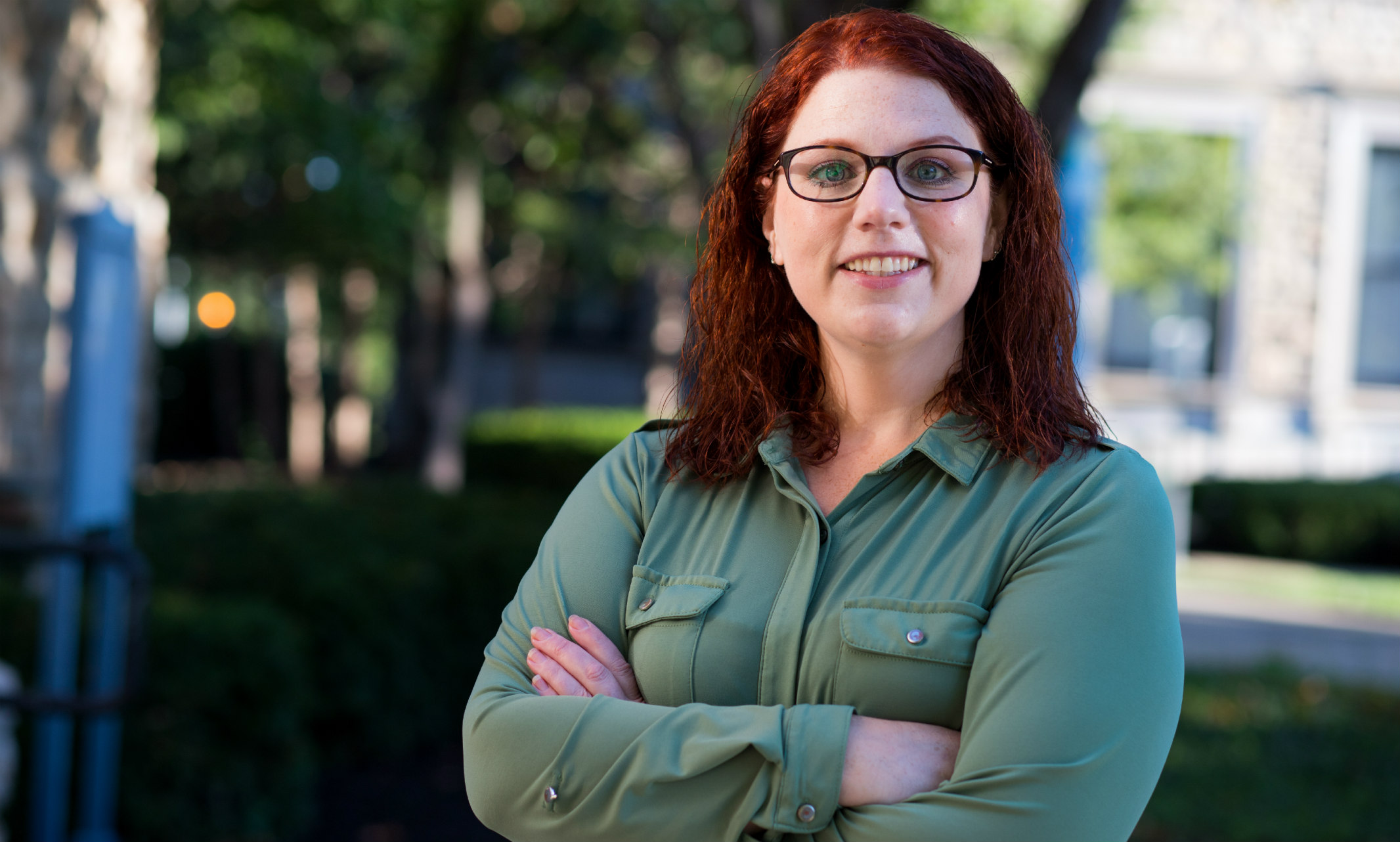
UMKC faculty and staff share cozy winter dishes
While winter break may not look the same this year, there's something cozy about preparing – and then eating – a great dish. So we asked UMKC faculty and staff if they could share recipes for some of their favorite winter treats.
Baking is a well-known hobby for civil and mechanical engineering professor Megan Hart, who has a scientific take on treats. Here's insight into why she bakes and the latest recipe she's developed.
Do you enjoy cooking or baking? Why?
I love to bake! Baking for me is cathartic, because in the end I usually have something I can share with people I care about and it provides nourishment for their body and soul. In my extended family we tend to stress bake. For me, it is also procrastibaking – putting off what needs to be done with the excuse of needing to bake something. Most of my department knows when I have a big project due or proposal going in because they are treated with something sweet in the faculty kitchen. Since COVID hit, I have had to change from random stress baking products delivered to the faculty lounge, to a baked good that goes over well with my COVID “bubble.”
What recipe do you enjoy making this time of year?
With the change in seasons, I tend to change to baking more traditional holiday spiced goods. I think cinnamon, cloves, cardamom and nutmeg along with fruits and nuts. My colleagues enjoy my rum cake the best and I love to play with flavors in my rum cake such as a pumpkin spice variation, pina colada, and chocolate or Mexican hot chocolate variations.
Do you have any stories attached to the snickerdoodle recipe you're sharing?
I love to bake for my graduate students, but my current graduate student is allergic to gluten. Most of my recipes are developed using whatever I have in the house but I did not always have gluten-free flour, so I made my own from basic components. These snickerdoodles taste just like my original snickerdoodles with minimal variations in texture or taste.
Want to share a recipe with your fellow Roos? Submit yours to the UMKC Taste of Home cookbook project.
Graduate student Hannah McIntyre snacks on delicious gluten-free snickerdoodle cookies with Hart's children.
Hart's Gluten-free Snickerdoodles
20 min prep, 1 hour baking time, yields 48 cookies
Cookies:
3/4 cup sugar1/2 cup butter, softened1 1/4 cup plus 2 tablespoons Gluten-Free Flour Blend1 large egg1 teaspoon cream of tartar1/2 teaspoon baking soda1/2 teaspoon gluten-free vanilla1/8 teaspoon salt
Cinnamon sugar mix:
3 tablespoons sugar1 1/2 teaspoons ground cinnamon
1. Heat oven to 400°F.
2. Combine 3/4 cup sugar and butter in bowl; beat at medium speed until creamy. Add all remaining cookie ingredients; beat at low speed until well mixed.
3. Combine all cinnamon sugar ingredients in bowl; mix well.
4. Shape dough into 1-inch balls; roll in cinnamon sugar mixture. Place 2 inches apart onto ungreased cookie sheet.
5. Bake 8-10 minutes or until edges are lightly browned.
Dec 14, 2020
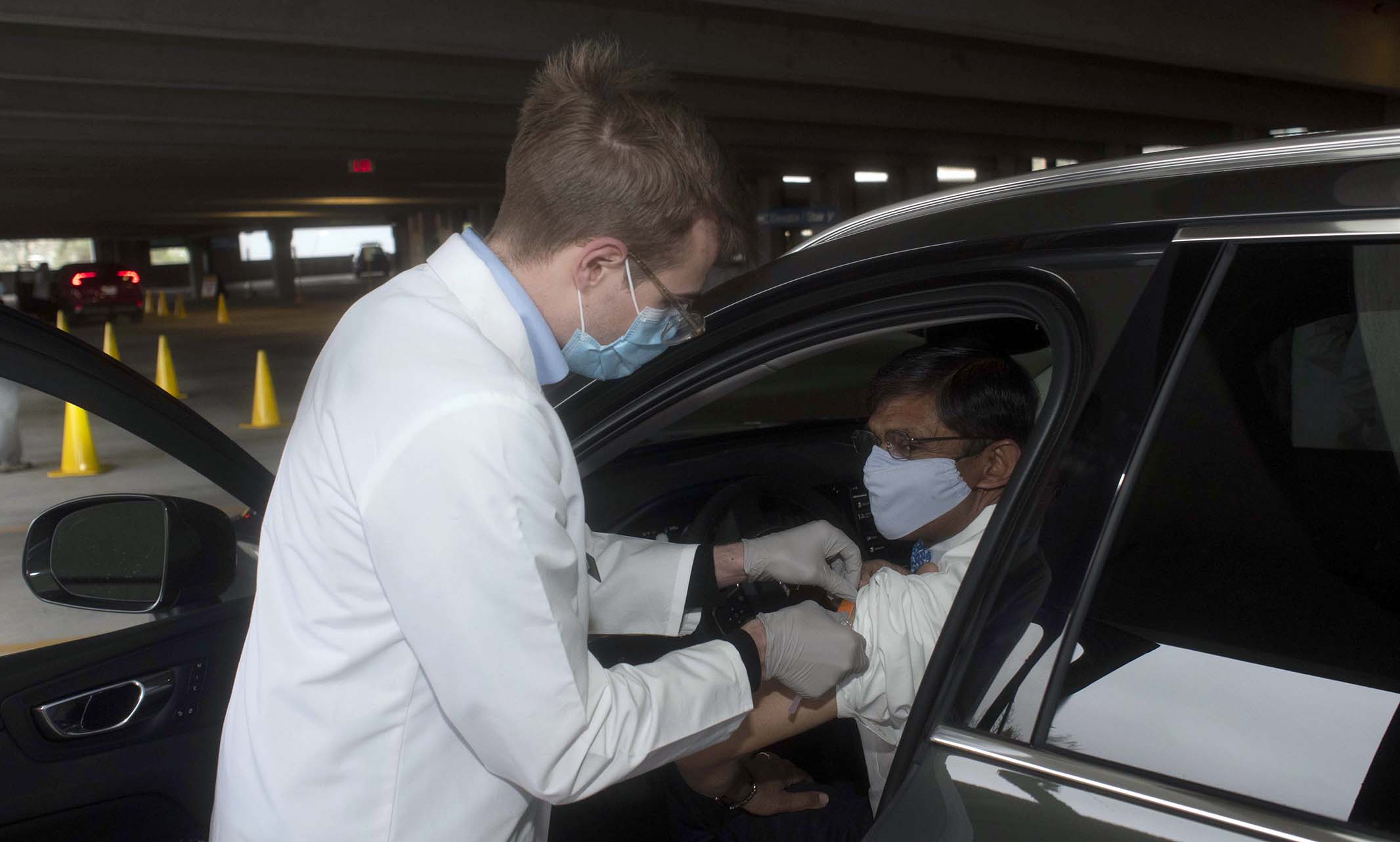
Just as they do with flu vaccines, they will help pharmacies
Distribution of the coronavirus vaccines is expected to begin soon. For community pharmacies that provide immunizations, that means business is about to become extremely busy.
UMKC School of Pharmacy faculty member Sarah Oprinovich, Pharm.D., is also a practicing community pharmacist in Kansas City. Just like with the annual flu shots, she said community pharmacies will be a major area where people come to get their coronavirus vaccines.
“This vaccine is going to hit and people will still need their medications, so it's going to be an additional workload,” Oprinovich said. “We normally staff up for flu season, so it's kind of that staffing up, except we figure that this is going to be a very concerted effort, very quickly.”
To meet the additional staffing demands, Oprinovich says student interns will be a valuable resource. Each year, third-year pharmacy students at UMKC participate in a pharmacy practice experience that includes becoming certified to administer immunizations. This year’s class participated in 160 immunization events at clinics and pharmacies to administer more than 5,500 flu shots to Missouri patients.
That experience will be invaluable as the coronavirus immunizations begin. Oprinovich said she will be requesting the third-year students who worked with her earlier this year during the flu shot season to help again with the coronavirus vaccine because they’ve already been through the process of setting up and operating vaccine clinics and know the workflow.
“To be honest, every organization under the sun is saying we need help, so they’ll be busy,” Oprinovich said.
Len Sapp, Pharm.D., a 2007 graduate of the UMKC School of Pharmacy, is the pharmacy manager for a Kansas Cityarea Walgreens store. Since August, his pharmacy has administered more than 1,500 flu shot vaccines as well as several hundred non-flu vaccines. With the coronavirus vaccines, Sapp says his store and pharmacies like his that offer vaccinations will need additional staff to meet the expected demands.
“New technician and intern staff will be vital in the entire process from patient registration to vaccine administration, as well as operating the regular retail pharmacy business,” he said.
How much additional staff pharmacies will need is still up in the air without knowing what the actual vaccine distribution will look like. But Sapp said stores like his are already being encouraged to hire and train new staff members.
“The bulk of our flu vaccines are given from September through December, making this our busiest time of the year,” he said. “Walgreens is projecting a greater demand for the coronavirus vaccine, therefore requiring increased staffing levels above our normal peak season needs.”
Oprinovich said that it’s not just pharmacy student interns who can make a difference. Those without a pharmacy background can also work as technicians, helping in areas such as working behind the counter as cashiers or helping with paperwork. All that is needed is to pass a background check.
“Anybody could do that,” she said. “You don’t have to be in pharmacy school. My message to the rest of the student body is we can use your help and you can be a part of this public health effort.”
As with the flu shot vaccine, health care workers are exploring other avenues such as mobile immunization sites, Oprinovich said.
“We're looking at things like whether the university will potentially be a site for vaccinations as well,” she said. “So, there’s just a lot of potential for where we're going to be able to use those students and move them around.”
When the vaccines do arrive, Oprinovich said the immunization process will be an interdisciplinary effort to ensure they are available to everyone. There’s also the logistics of ensuring the vaccinees are stored properly and being administered within the proper time limit, in some instances as short within hours of being thawed.
“The nursing school is involved in this. The medical school is involved,” she said. “We're trying to work together so we don’t end up targeting the same population and leave one population out. That's another big discussion, how do we make sure that we're covering, especially those that fall between the cracks very often. How do we make sure that they have not fallen into the cracks here?
“Pharmacy is just one piece of the puzzle. Just like with the flu shots, our goal is to increase the accessibility of these vaccines.”
Dec 11, 2020
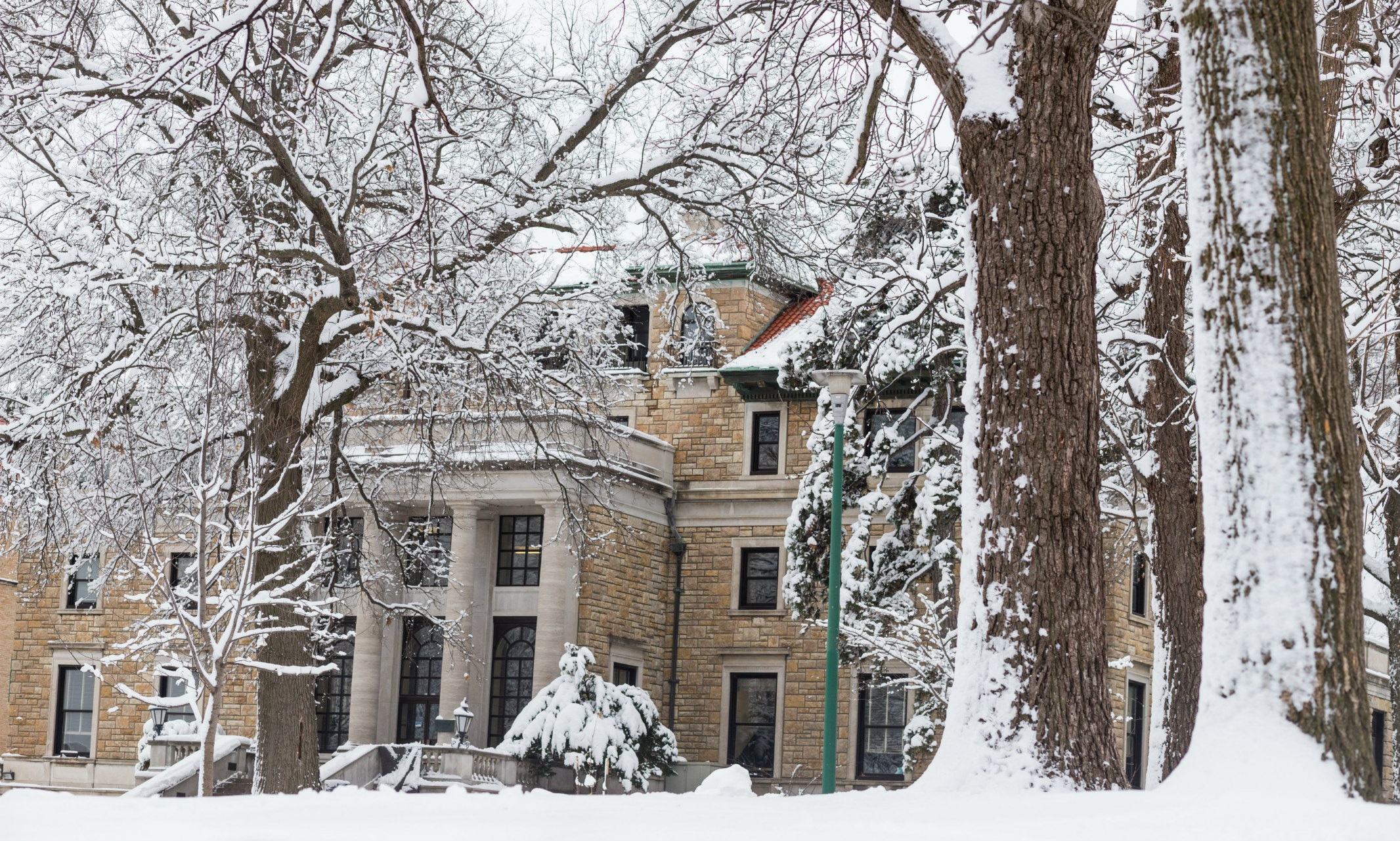
Here’s how to give
While the UMKC campus is closed during Winter Break, it’s still easy to make a year-end gift by observing the following guidelines.
UMKC offices will be closed Friday, Dec. 25 through Friday, Jan. 1. All gifts must hit UMKC Foundation accounts by Dec. 31 to receive tax credit for the 2020 calendar year. Checks and cash need to be postmarked on or before Dec. 31.
Credit card and stock gifts must hit the UMKC Foundation accounts by Dec. 31 to receive tax-credit for the 2020 calendar year. Checks and cash need to be postmarked on or before Dec. 31
The date UMKC receives and processes checks and cash from the mail has NO impact on a donor’s taxable year contributions. The “gift date” for the IRS is the date the donor relinquished control, not the date the gift is processed.
Availability & Contacts
The Office of Gift Processing will be available Wednesday and Thursday, Dec. 30-31 from 8 a.m. to noon to accept year-end gifts. The Office of Gift Processing will be closed during the remainder of winter break and will re-open with regular business hours on Monday, Jan. 4.
The UMKC Foundation Office will be closed during winter break. A few staff will be on rotation remotely during the period. Should you have any inquiries during that time, please call 816-235-5778 and someone will return your call.
For any stock gifts or wire transfers, please contact Katherine Walter at walterka@umkcfoundation.org.
Inquiries about all other year-end gifts can be directed to Sara Hampton at 816-235-5329 or via email to umkcgiftprocessing@umkc.edu. The Office of Gift Processing will also be taking calls at 816-235-1566 during the office hours listed above.
Gift Timing
Checks must be in an envelope postmarked prior to Dec. 31, 2020 to be credited in the 2020 tax year. If the envelope received is postmarked after Dec. 31, it will be counted as a 2021 gift. Donors should send their checks to the address below:
UMKC Office of Gift Processing 112 Administrative Center 5115 Oak Street Kansas City, MO 64112
Checks dated prior to Dec. 31, along with postmarked envelopes, should be received in the Office of Gift Processing on or before Friday, Jan. 8, 2021. Gifts received after that point will not be automatically included in processing for the annual tax receipt.
For stock gifts, please contact Katherine Walter for the transfer form and DTC instructions. Stock gifts must be received into the account on or before Dec. 31 in order to be reflected in 2020 tax period, per the IRS.
In order to liquidate the stock gift, it is required to provide the donor’s name, number of shares, security, expected date of transfer and area for where the gift is intended. This information can be completed on the transfer form or sent via email. Stock gifts will not be liquidated until confirmation of this information is received.
Mutual funds take an additional 3-5+ business days before posting to our account. Please advise your donors to have their brokers initiate any mutual fund transfers no later than Dec. 21. Regular equity stock takes 24 hours to post to our account.
Credit card transactions must be received by the Office of Gift Processing by noon Dec. 31 to run that day and count as a year-end gift.
Credit card gifts may be made online through the UMKC Foundation website until midnight on Dec. 31 to be reflected as a 2020 gift. Any online credit card gifts received after midnight Dec. 31t will be dated in January.
Gifts received after hours may be deposited in the night deposit box located beside the Cashiers Office at Admin Center 112 and will be processed the following business day. Credit card gifts received through the lockbox will be dated the following business day.
Pursuant to Curators Rules 208 and 212, all gifts should be transferred, with original documentation (including postmarked envelopes), to the Gift Processing Office within 24 hours of their arrival to any school, college or department.
Dec 11, 2020
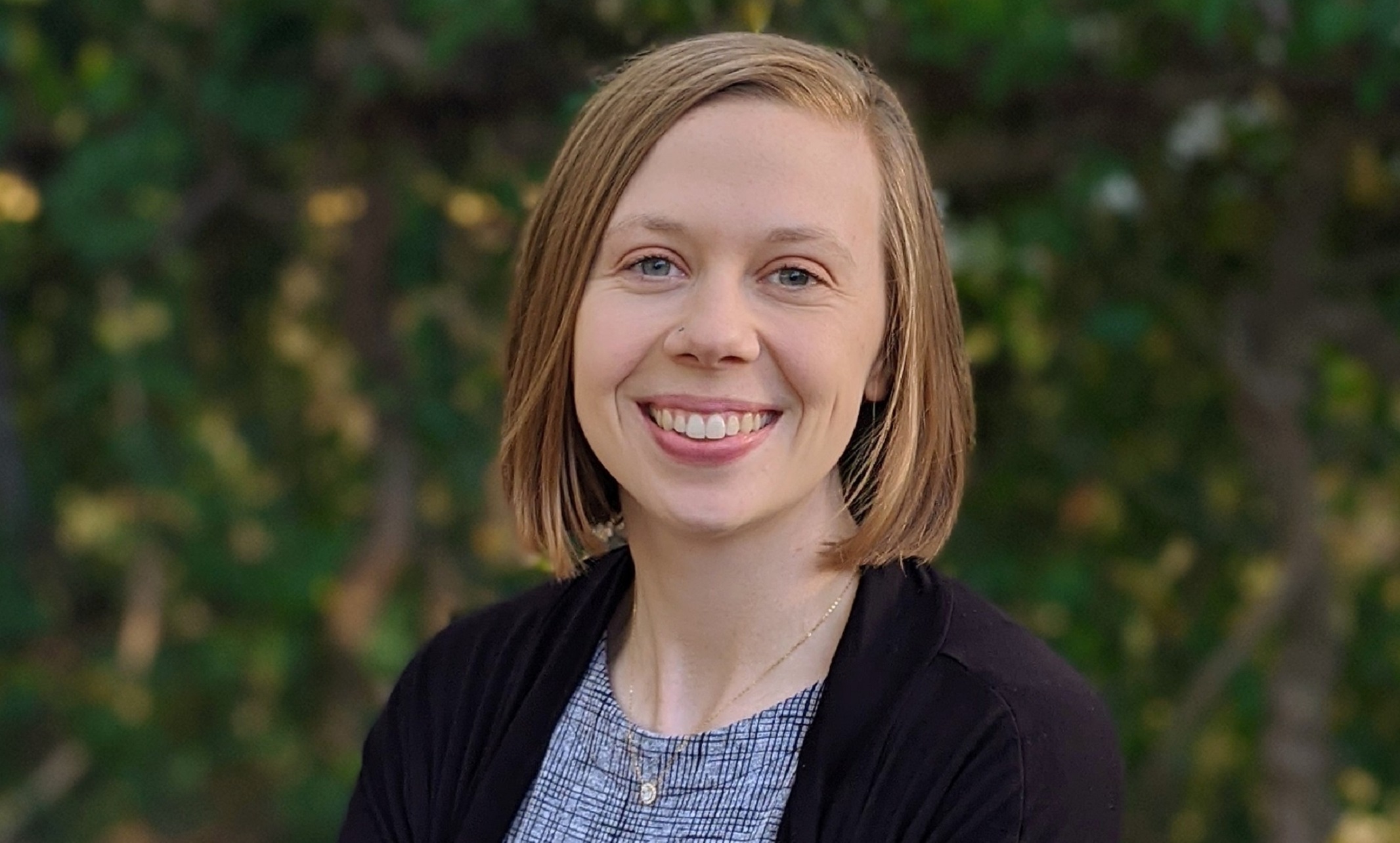
National honor enhances Meghan Brauch's learning and networking as she pursues her passion through the School of Nursing and Health Studies
While earning her nursing degree, Meghan Brauch realized her calling was women’s health. Now she pursues her passion as a graduate student in the UMKC Women’s Health Nurse Practitioner program in the School of Nursing and Health Studies. To top it off, her dedication was recognized this fall by the national Nurse Practitioners in Women’s Health organization, which chose her for its Nurse Leader program.
“I received my bachelor of science in nursing in 2016 at the University of Missouri-Columbia,” Brauch said. “When I attended Mizzou, I discovered the Women’s Center," which provided a welcoming gathering place and support for many activities around gender and social justice issues. "I was able to learn so much about myself and those around me. I also went on spring break trips with a focus on women’s health and projects at two other women’s centers. And I volunteered with Planned Parenthood throughout undergrad and loved it.”
When she graduated, Brauch went to work at St. Louis Children’s Hospital in its neonatal intensive care unit. “I met so many amazing families who told me their stories,” she said. “I am inspired by my patients and their families every day. Everything clicked, and I knew what I needed to do.”
She chose UMKC for her graduate studies, she said, because she wanted to stay in the University of Missouri system, “and UMKC has an amazing women’s health program. It’s highly ranked for its online graduate program, and I was inspired by the UMKC goal to build an inclusive, diverse and respectful learning environment while focusing on furthering the field of nursing through research and innovation.”
Having an online program allowed her to stay in St. Louis, where she lives with her husband and two dogs, and keep working at St. Louis Children’s. “I have been a nurse there for four and a half years and have loved every minute of it,” she said. “I am working part-time because of being so busy with grad school.”
“I have been able to network with some amazing women’s health nurse practitioners ... and students who share many of the same passions as I do. We had so much to talk about regarding school, women’s health and our future goals.’’
— Meghan Brauch
Brauch is on track to earn her advanced degree from UMKC in December 2021 and then, she hopes, work at an obstetrics and gynecology office in St. Louis.
“I want to use my education to provide high-quality, evidence-based health care,” she said. “I also have another goal of providing birth control and sexual health education to young women in the St. Louis area.”
Having good leadership in women’s health is also important to Brauch, which is why she applied for the Nurse Practitioners in Women’s Health program. As one of 14 student leaders chosen nationwide, she said, she attended the organization’s national conference, held virtually this year.
“I have been able to network with some amazing women’s health nurse practitioners,” she said, and other students “who share many of the same passions as I do. We had so much to talk about regarding school, women’s health and our future goals. We even set up a GroupMe so that we can contact each other easily.”
Does Brauch have any advice for others particularly interested in women’s health?
“I highly recommend any students in the Women’s Health program at UMKC to apply to be a Student Leader next year. The national association provides a wonderful networking and learning opportunity, and it is constantly working to improve women’s health everywhere.”
Dec 10, 2020
Beth Vonnahme weighs-in
Trump will leave the White House in January. But even as the democratic process continues to unfold at a slower pace than usual, his refusal to accept the results of the election is worrisome, said UMKC political science professor Elizabeth Vonnahme, who argues that this rhetoric is mostly isolated to Trump and his administration. Read the article from KCUR.
Dec 09, 2020
Christopher Garmon lends expertise to Texas Standard
“I would bet anything this is what’s going to happen: The parties are going to merge here. They’re going to combine their assets in such a way that you can’t undo the merger. And then once they do that, they’ll unilaterally end their COPA, as they’re allowed to under Texas law. And then there’s nothing anyone can do about it,” Christopher Garmon, assistant professor of health care administration at the UMKC Bloch School, said. Read the full article.
Dec 08, 2020
Clancy Martin was a guest on KCUR
Clancy Martin, Philosophy professor at UMKC and professor of Business Ethics at the Bloch School of Management, was a guest on All Things Considered.
Dec 08, 2020
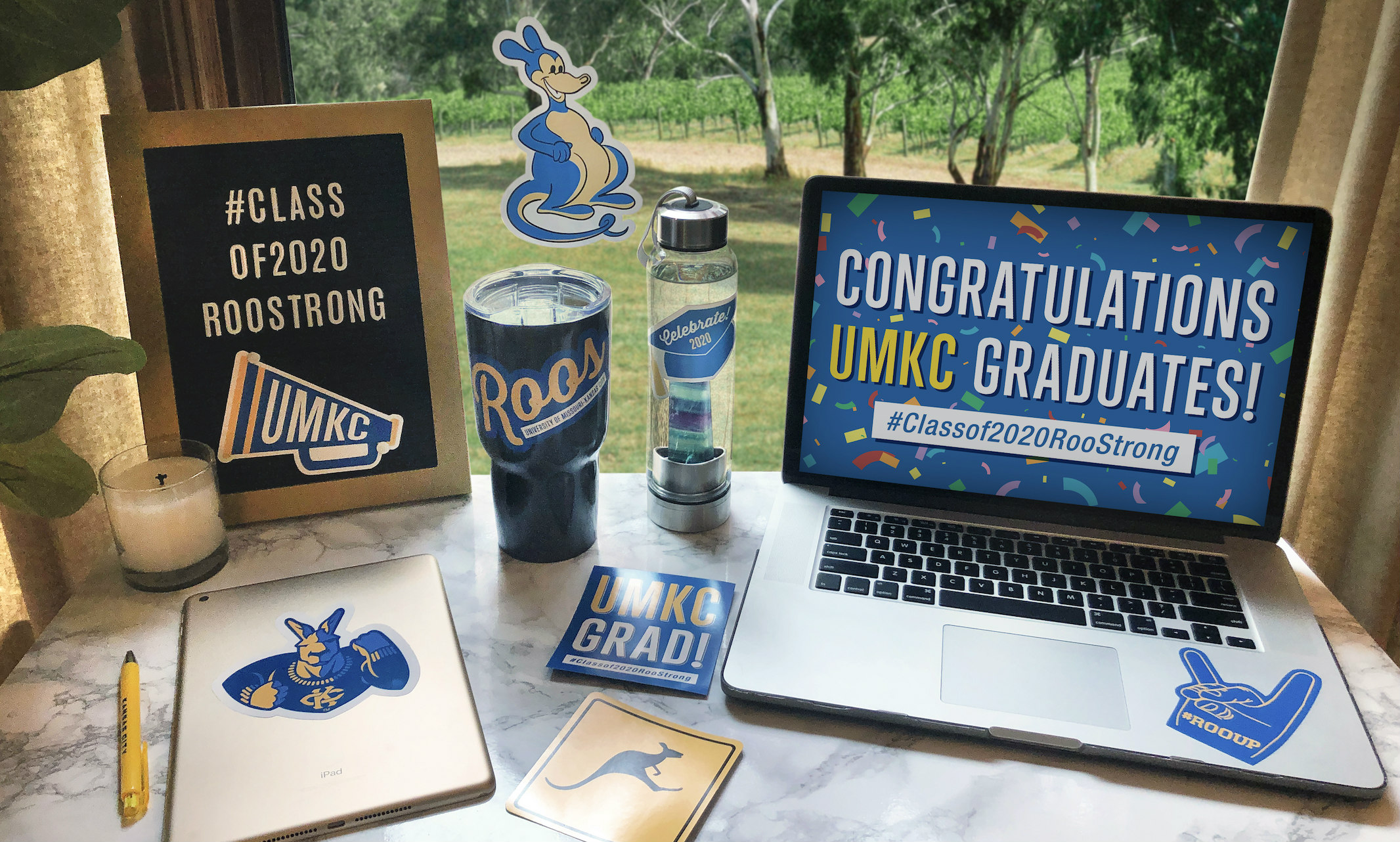
Celebrating graduates Dec. 19
This winter more than 1,100 UMKC graduates will celebrate their achievements with star power. Kansas City native and acclaimed actor Don Cheadle will give the commencement address to students who completed their degrees amidst the challenges of the COVID-19 pandemic.
This year’s summer and winter graduates will be recognized in a virtual ceremony for their academic and community achievements on December 19. Graduates will continue their celebrations with recognitions from the individual academic units the same day.
Beyond his connection to Kansas City, Cheadle has personal ties to UMKC; his uncle and three of his cousins attended the university.
Don Cheadle, photo Chris Pizzelo
Cheadle has had a broad career in television and movies. He’s received two Academy Awards, two Screen Actors Guild Awards and one Grammy Award. In addition to his professional accomplishments, Cheadle is a global and community activist. The United Nations Environmental Program and the Nobel Peace Prize Laureates have recognized Cheadle for his work to end genocide in the African country of Darfur.
“We know that our students are remarkable,” says UMKC Provost Jenny Lundgren. “We see that every day. But we are inspired by our recent graduates’ tenacity and commitment to completing their education and focusing on future success despite the challenges that the last several months have presented.”
“We are inspired by our recent graduates’ tenacity and commitment to completing their education and focusing on future success despite the challenges that the last several months have presented.” – Jenny Lundgren
Chancellor Mauli C. Agrawal salutes recent graduates for the commitment to keeping each other safe.
“The UMKC community should be proud of our students’ diligence and commitment to abiding by guidelines in order to keep themselves and each other healthy and safe,” says UMKC Chancellor Mauli Agrawal. “We salute their dedication to our community and their education. Though they will no longer be students, they will always be Roos.”
Graduates will receive celebratory packets that will include honor cords, a traditional Roo pin and other surprises. The virtual ceremony will be available for graduates, family and friends 10 a.m. Saturday, December 19.
At sunset that day, celebrating Roos will get the opportunity to take photos among blue and gold lights - and around the famous Country Club Plaza holiday lights, too. Here's where Light the Night will be:
Volker Campus
Durwood Stadium, 5030 Holmes St.James C. Olson Performing Arts Center, 4949 Cherry St.
Downtown Kansas City
Arvest Bank Theatre at the Midland, 1228 Main St.KCMO City Hall, 414 E. 12th St.
Dec 07, 2020
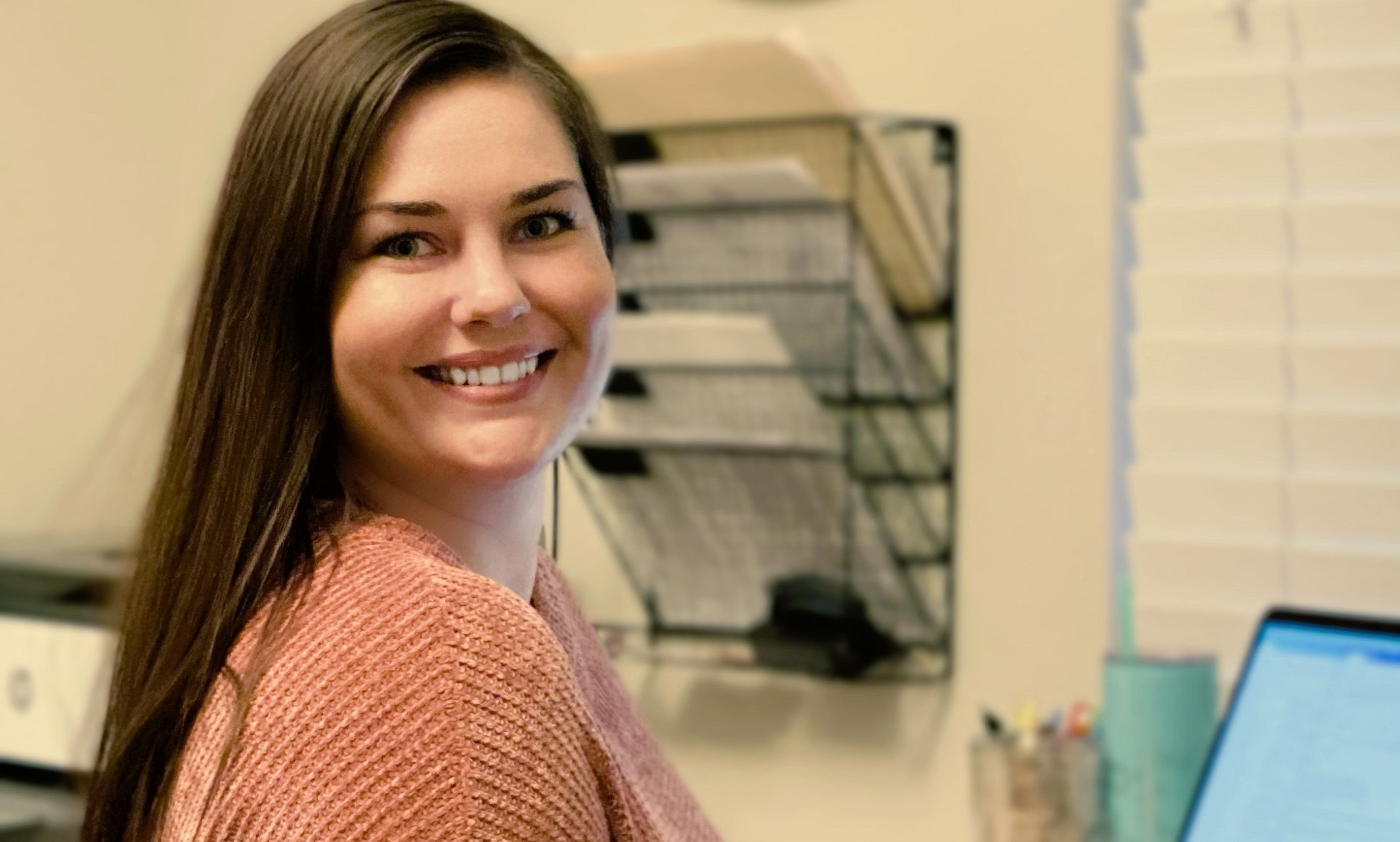
Enhancing peer recovery support services by expanding access to training and technical assistance services across the country
The new Peer Recovery Center of Excellence, housed at the UMKC School of Nursing and Health Studies, is the first of its kind. UMKC, in partnership with the University of Texas, the University of Wisconsin-Madison and the National Council for Behavioral Health, is leading the effort, funded by a four-year grant from the federal Substance Abuse and Mental Health Services Administration.
The center will have a diverse steering committee made up of national thought leaders who have personally recovered from a substance use disorder. The center aims to enhance the provision of peer recovery support services through expanding access to training and technical assistance services to peers, organizations and communities across the country.
Here’s more about the effort from Callan Howton, M.P.H., the principal investigator for the grant, who leads the new center.
What’s the idea behind the center?
Peer recovery support specialists — people in recovery themselves from substance use disorder — can use their life experiences to help others achieve and maintain recovery. This is the first federally funded initiative to focus on enhancing peer recovery support services.
We provide training around integrating peer services into non-traditional settings such as labor and delivery units, local libraries, shelters, and primary care clinics; recovery community organization capacity building (guidance and technical assistance to community centers around sustainability, effectiveness, outcomes tracking, funding capacity to name a few examples); and workforce development (strengthening the understanding of peer supports, providing a state-by-state analysis of credentialing practices, bolstering peer support supervision methods). We also will make research and other information on best practices more widely available through accessible and useful toolkits and online resource libraries.
Peer support services can extend support beyond the treatment setting into everyday environments where people work and live. This is especially important because while people reach recovery through various pathways, they sustain and maintain recovery in their communities and homes.
Who can access the center’s services?
Our team at UMKC’s Collaborative to Advance Health Services will coordinate national efforts and training opportunities for individuals, communities, organizations, states — anyone at all — seeking guidance and growth opportunities regarding peer support services. Services are free to any organization that requests assistance or training, which is a huge victory for smaller, grassroots efforts that do incredible work and often are unable to access this caliber of training and technical assistance. Every request submitted will receive a tailored response and have the opportunity to received individualized assistance from highly respected subject matter experts across the country.
It sounds as if having people in recovery inform the center’s efforts was important to you, too.
The center is advised by a steering committee of diverse people in recovery, which was a must in designing the center. When designing programs or processes that focus on peer recovery support services, we would be remiss to not include the voices of those in recovery.
You have years of background in supporting peer recovery. Tell us about that.
I’m a big believer in Recovery Community Organizations, which are local, grassroots organizations created by people in recovery to provide advocacy, support and services.
In St. Louis, I founded a recovery community organization, Haven Recovery Services, as well as five nationally accredited Recovery Housing locations for those in early recovery. Before joining the collaborative at UMKC, I directed Engaging Patients in Care Coordination, a Missouri peer driven overdose response project. Through my program development firm, I have also provided consultation and management in a variety of substance use prevention, treatment and recovery work at the local and state level. I am excited to bring my experience to start this new center and look forward to what lies ahead in the field of peer recovery services.
Those interested in learning more about the center’s services should contact:
Callan Howton, principal investigator, howtonc@umkc.edu
Cindy Christy, project manager, christyc@umkc.edu
Dec 07, 2020
Mary Anne Jackson weighs-in about COVID-19 and vaccine distribution
UMKC School of Medicine Dean Mary Anne Jackson has been interviewed by local media about COVID-19 and vaccine distribution. These are some of the news outlets: KCUR, WKU, WFPL, Fox4KC and KCUR.
Dec 07, 2020
Starland News interviews Jonaie Johnson
“I grew up having an innovative mindset — always looking to solve problems or find the next best thing to improve the lives of people,” said Johnson, founder of Interplay and senior at University of Missouri-Kansas City. Read the full article.
Dec 07, 2020
Flatland asks Jacob Wagner to weigh-in
Jacob Wagner, director of urban studies at the University of Missouri-Kansas City, recommends starting with cultural heritage groups first. “I think historic preservation has tried to become more aware of ethnic history, but I think that work predominantly comes from people in urban or social history,” Wagner said. Read the full article.
Dec 07, 2020
New York Times interviews UMKC associate professor
Dense urban centers were vilified when the pandemic struck, rekindling the age-old town vs. country debate. The New York Times asked seven experts if the backlash was warranted. Jenifer E. Allsworth, associate professor, Department(s) of Biomedical and Health Informatics at the UMKC School of Medicine, was interviewed.
Dec 07, 2020

Helpful tips to maintain stamina and find success as we head into the final weeks
As we finish off the final weeks of a difficult year, we owe it to ourselves to end the year as strong as we started it. Here are some tips and encouragement for my fellow Roos as we strive to finish the semester well.
The holidays may be extra stressful this year, but that doesn’t mean finals have to be. Don’t hesitate to reach out for help when needed; you are not alone in this. Everyone is struggling in their own way, whether it be financially, academically, mentally, physically or emotionally. Just getting to this point has been an accomplishment for all of our hard-working students, faculty and staff; let’s keep it up as we approach the end of the year. We encourage our community to take the steps needed to ensure we finish the semester strong, together.
Staying physically and emotionally healthy means more than just avoiding the virus. Monitor your sleep and eating habits and always make sure you are setting aside time for yourself. If you need food assistance, check out the Kangaroo Pantry, a free resource for UMKC students, faculty and staff. Stay connected relationally with friends and family through text, phone calls, FaceTime, emails, and Zoom/Skype when you can.
Reach out to your advisor, instructor or Counseling Services if you are struggling or need assistance — they are here to help!
Don’t give up this late in the game after you’ve come so far! Think of all the hard work you’ve put in already and let those thoughts drive you to finish strong.
Always reach out to your advisor and ask for assistance before you decide to drop a class. There are resources and help available; don’t waste credits and money when you don’t need to!
Go easy and don’t stretch yourself too thin with your academic workload. Don’t take on extra tasks if you’re not able to. Meeting deadlines, studying and making time for yourself are your priorities, so cancelling other plans if necessary is perfectly okay.
We all know this time of year can be difficult, especially during the pandemic, but no need to get down. Keep pushing through and the end of the semester will be here before you know it!
Once you have powered through, give yourself a well-deserved pat on the back because even through these unprecedented times, you stayed the course.
Keep calm, stay positive, get plenty of rest, eat well, wash your hands, mask up, and let’s #RooUp to tackle these finals together!
Dec 04, 2020
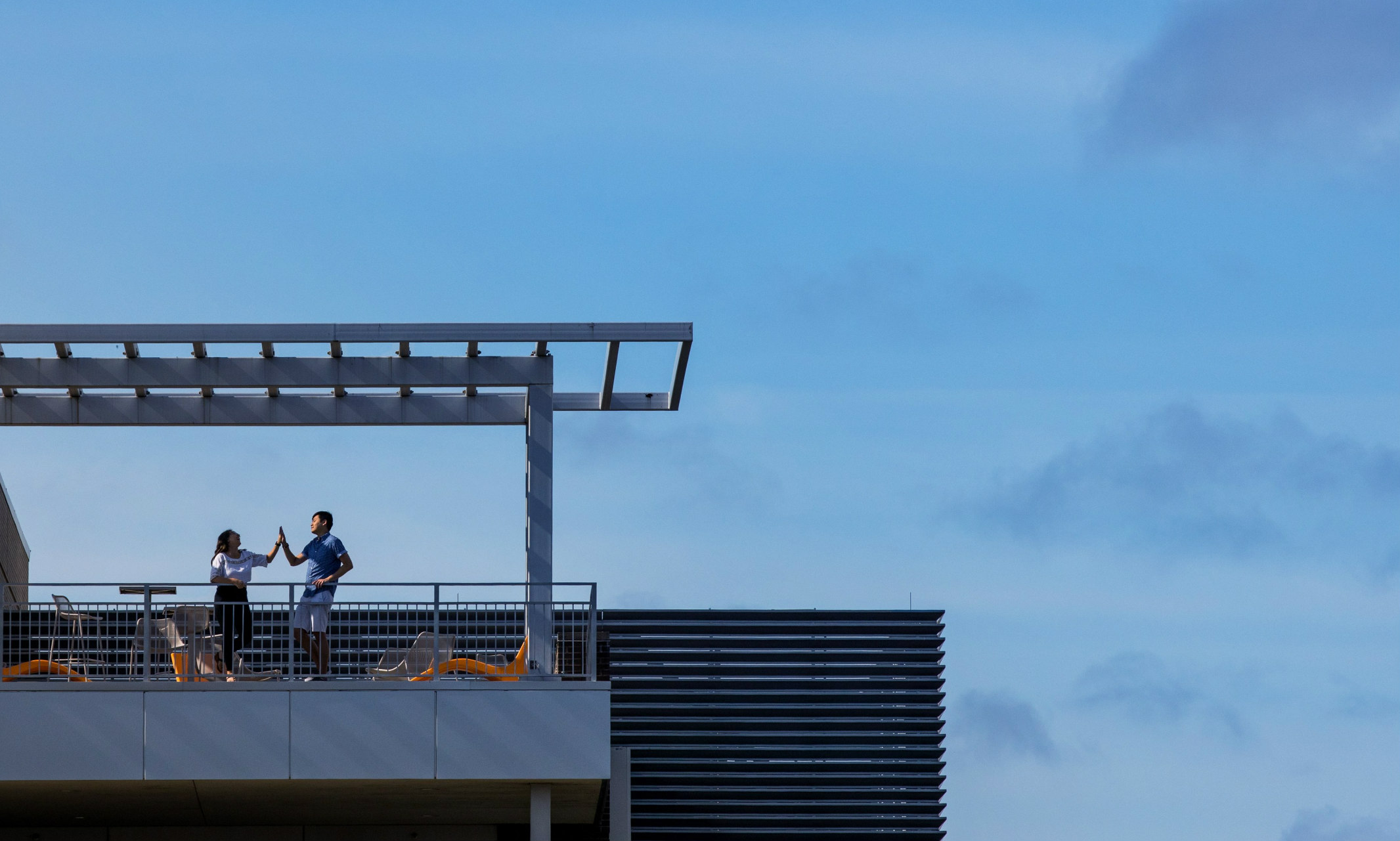
Graduation, retention rates are rising
UMKC recorded important gains in some key indicators of student success this fall, improvements that positively impacted students across the spectrum, including underrepresented minorities.
UMKC leaders see these gains as early evidence that its continued investment in student success is bearing fruit. The university is devoting significant resources, talent and effort to improve retention and graduation rates, overall and among targeted student groups. Despite this significant progress, leaders acknowledge much work remains.
The overall six-year graduation rate for first-time, full-time college students for the Fall 2014 cohort – students who enrolled as freshmen in fall semester 2014 – is up 4.2 percentage points over the previous year. Specific rates for African American, Latinx and low-income students are also on the rise.
The overall one-year retention rate – the percentage of enrolled students who return for another year of school – decreased 1.4 percentage points from fall 2019 to fall 2020, which the university attributes to the impact of the COVID-19 pandemic. Prior to COVID-19, our one-year retention rate increased 2.9 percentage points from fall 2018 to fall 2019.
“We are pleased with the progress, but we are not celebrating yet,” Chancellor Mauli Agrawal said. “This progress must continue, and in fact, accelerate. But for now, it is clear that our strategies and the hard work of our faculty and staff is having a significant impact.”
The UMKC mission presents special challenges for retention and graduation. As an urban-serving public university, UMKC takes great pride in providing a high level of access to our community and region. Providing opportunity to those who must overcome obstacles on the path to a degree – people with great drive, intelligence and talent, but whose success is by no means guaranteed – is a core value.
“As our student body becomes more diverse – more students older than 25, students who are parents, who are more likely to be employed and a growing proportion of historically underserved groups – we need a broader, more holistic approach,” said Kristi Holsinger, Ph.D., senior vice provost for student success. “We need to address students’ basic needs like food, shelter and safety; and understand their work and family demands, financial challenges, psychological well-being, engagement and sense of belonging. These are all predictors of retention and completion.”
“At UMKC we are making a commitment to help all admitted students graduate, despite the barriers they may face.”
Improving student success is the first of five pillars in the UMKC Strategic Plan adopted in 2018. Recent initiatives stemming from that commitment include launching the Roo Rising Transfer and Adult Learner Center, expansion of the First Gen Roo Program and First Gen Forward initiative, implementation of a new model of Centralized Advising and a program providing microgrants to students close to degree completion who had exhausted their financial resources.
Dec 03, 2020
National and local media cover research by Jannette Berkley-Patton and news of her latest grant funding
Jannette Berkley-Patton, a professor at the UMKC School of Medicine, is the principal investigator of a $1.9 million grant from the National Institutes of Health. News of her research has been covered by KRMS, MSN-Australia; Lincoln Journal-Star; Rolla Daily News; Missouri Independent; ExBulletin; Yahoo News; KSHB; Fox4KC; KCTV-5; KCUR; Houston Style Magazine; Wiser Conversations, Women in Science, Entrepreneurship and Research podcast; Kansas City Star; KSHB; and KFVS.
Dec 03, 2020
Washington Post taps UMKC political science professor
Max Skidmore, a political scientist at the University of Missouri-Kansas City who has studied presidential leadership during previous pandemics, said that selecting a competent team with experience in dealing with public health crises is “absolutely essential given the seriousness” of the coronavirus’s toll. Read the full article.
Dec 03, 2020
KCTV-5 taps UMKC Bloch assistant professor for insight
University of Missouri-Kansas City Assistant Professor of Marketing and Supply Chain Management Larry Wigger believes much of the supply constraints of certain products could go on into late next year. Read the full article and watch the newscast.
Dec 01, 2020
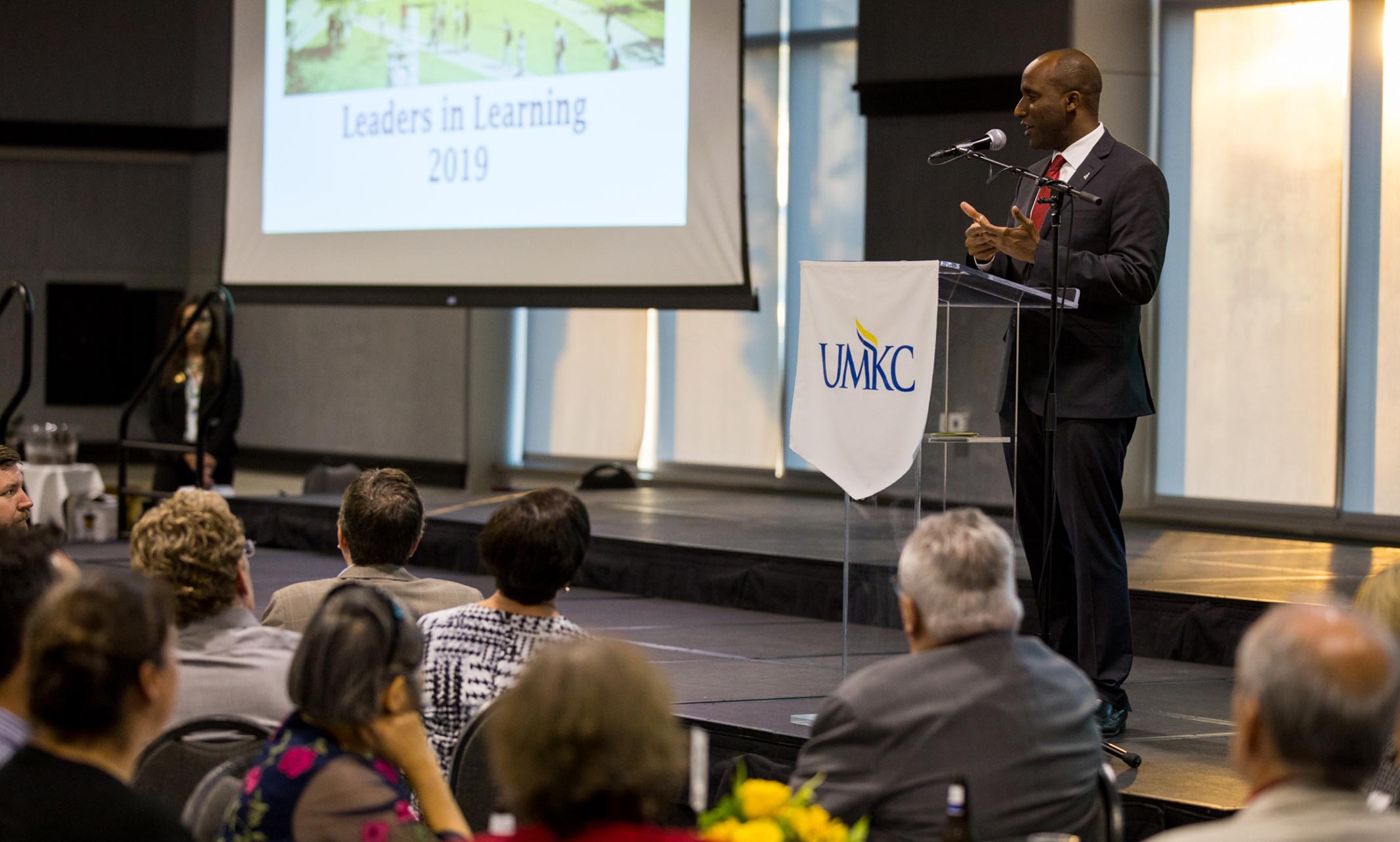
Faculty will be recognized in a video celebrating their accomplishments
More than 60 UMKC faculty have been recognized in 2020 with honors such as promotion, tenure, endowed chairs, distinguished professorships and unique UMKC and UM System honors.
These recognitions occur throughout the year, and are typically celebrated together at an annual event. These honors have taken on special meaning this year as the faculty, and all members of the university community, have faced unprecedented challenges in dealing with the COVID-19 pandemic.
Large in-person gatherings remain inadvisable due to the pandemic. Instead of a live event, faculty will be recognized in a special video celebrating their accomplishments. The first showing of the video will take place on the evening of Feb. 12, and will be posted on the Provost’s website for the remainder of the year
“The effort, flexibility and patience our faculty have put into this difficult year have not gone unnoticed, and it is especially important to recognize the significant contributions of our faculty this year,” said Chancellor Mauli Agrawal. “Many of our students say their relationships with our faculty are some of the biggest reasons they love being a Roo.”
Faculty recognitions for 2020 include:
New Curators Distinguished Professor: A curators’ distinguished professorship is the highest and most prestigious academic rank awarded by the Board of Curators of the University of Missouri.
Sarah Dallas, Ph.D., School of Dentistry
New Endowed Chairs:
Charles Murnieks, Ph.D., Arvin Gottlieb Chair in Business Economics, Bloch School of Management
Jennaya Robison, DMA, Raymond R. Neevel/Missouri Professorship in Choral Music, Conservatory
Kelly Suchman, D.D.S., Dr. S. Orlando Somers Professorship in Advanced General Dentistry, School of Dentistry
Jean Marc Retrouvey, D.M.D., M.Sc., Dr. Leo A. Rogers Professorship In Orthodontics, School of Dentistry
Carolyn Barber, Ph.D., Ewing Marion Kauffman Foundation/Missouri Endowed Chair of Teacher Education, School of Education
Jannette Berkley-Patton, Ph.D., James B. Nutter, Annabel Nutter and Harry Jonas M.D. Professorship, School of Medicine
Mamta Reddy, M.D., Vijay Babu Rayudu Endowed Chair of Patient Safety, School of Medicine
Governor's Award for Excellence in Education: The Governor’s Award for Excellence in Education is presented to an outstanding faculty member from each participating higher education institution in the state based on evidence of effective teaching, effective advising, a commitment to high standards of excellence and success in nurturing student achievement.
Michael Wei, Ph.D., professor, School of Education
Chancellor's Award for Career Contributions to the University: One of the highest honors for a UMKC employee who has made significant contributions to higher education at UMKC over the course of their career and has significantly enhanced the mission of the university.
Paul Cuddy, Pharm.D., vice dean and professor, School of Medicine
Chancellor's Award for Embracing Diversity: This award recognizes and celebrates UMKC faculty, staff and registered student organizations that embrace diversity by celebrating diversity in all aspects of university life, creating inclusive environments, culturally competent citizens and globally-oriented curricula and programs.
School of Medicine Summer Scholars Program, School of Medicine
Tammy Welchert, Ph.D., associate teaching professor and director of student affairs and academic advising, School of Biological and Chemical Sciences
Chancellor's Award for Community Engagement: This award recognizes and celebrates faculty, staff, units and campus organizations that have made engagement with the community a central aspect of their approach to student learning and scholarship.
Julie Sutton, R.D.H., M.S., associate professor, School of Dentistry
Chancellor's Early Career Award for Excellence in Teaching: This award recognizes and celebrates UMKC assistant professors who have achieved excellence in teaching early in their professional careers.
Sandra Enriquez, Ph.D., assistant professor, College of Arts and Sciences
Chancellor's Award for Excellence in Teaching: The university’s highest honor for excellence in teaching recognizes and celebrates UMKC faculty who are consistently superior teachers at the graduate, undergraduate or professional level over an extended period of time.
Mike Wacker, Ph.D., associate professor, School of Medicine
Chancellor's Award for Excellence in Graduate Mentoring: This award recognizes UMKC graduate faculty advisors with a long-established career at the university who have made significant contributions to higher education through exceptional mentoring.
Kun Cheng, Ph.D., professor, School of Pharmacy
Provost's Award for Excellence in Teaching: This award recognizes and celebrates teaching excellence among UMKC clinical and teaching faculty.
Rachael Allen, Ph.D., assistant teaching professor, School of Biological and Chemical Sciences
Rebecca Davis, Ph.D., associate teaching professor, College of Arts and Sciences
Monica Gaddis, Ph.D., associate teaching professor, School of Medicine
Elmer F. Pierson Good Teaching Awards: Awarded annually to outstanding teachers in the Henry W. Bloch School of Management, and the Schools of Dentistry, Law and Medicine.
Eric Gottman, D.D.S., M.S., clinical professor, School of Dentistry
Jennifer Quaintance, Ph.D., assistant dean, School of Medicine
Ranjit Christopher, Ph.D., assistant professor, Bloch School of Management
Julie Cheslik, J.D., associate professor, School of Law
Award for Achievement in Assessment of Student Learning: Recognizes individuals and programs with assessment protocols that promote student achievement in the classroom or in academic programs.
The B.A. in Music Therapy, Conservatory
Kim Langrehr, Ph.D., associate professor, School of Education
N.T. Veatch Award for Distinguished Research and Creative Activity: Recognizes distinguished research and other scholarly or creative activity accomplished by UMKC faculty.
Ganesh Thiagarajan, Ph.D., professor, School of Computing and Engineering
Trustees Faculty Fellows Award: Trustees are recognizing the very best faculty who distinguished themselves through scholarship and creativity.
Peter Koulen, Ph.D., professor, School of Medicine
Trustees Faculty Scholars Award: Recognizes faculty members who show exceptional promise for outstanding future research and/or creative accomplishments.
Alison DeSimone, Ph.D., assistant professor, Conservatory
UM System President's Award for Innovative Teaching: Recognizes faculty who are outstanding teachers and who employ novel and innovative teaching methods to achieve success in student learning.
Richard Delaware, Ph.D., Teaching Professor, College of Arts and Sciences
UM System President's Award for Inter-Campus Collaboration: Recognizes faculty who engage in activities that foster collaboration across two or more campuses of the University of Missouri System.
Sarah Pilgrim, Ph.D., Assistant Professor, College of Arts and Sciences
UM System Presidential Engagement Fellows: The fellows are tasked with fulfilling the university’s land-grant mission by sharing research discoveries with Missouri citizens in every county. They were selected for their excellent teaching, breakthrough research and creative achievements.
Jamila Jefferson-Jones, J.D., professor, School of Law
Joey Lightner, Ph.D., assistant professor, School of Nursing and Health Sciences
Joan McDowd, Ph.D., professor and chair of psychology, College of Arts and Sciences
Promotion and Tenure:
Ahmed Hassan, Ph.D., tenure with promotion to associate professor, School of Computing and Engineering
Antonis Stylianou, Ph.D., tenure with promotion to associate professor, School of Computing and Engineering
Candace Schlein, Ph.D., promotion to professor, School of Education
Jamila Jefferson-Jones, J.D., promotion to professor, School of Law
Jason Martin, Ph.D., tenure with promotion to associate professor, College of Arts and Sciences
Jenifer Allsworth, Ph.D., tenure, School of Medicine
Julie Sutton, R.D.H., M.S., tenure with promotion to associate professor, School of Dentistry
Kenneth Ferguson, J.D., promotion to professor, School of Law
Maria Kanyova, DMA, tenure, Conservatory
Michael Mermagen, M.M., tenure with promotion to professor, Conservatory
Michael Wei, Ph.D., promotion to professor, School of Education
Rebecca Best, Ph.D., tenure with promotion to associate professor, College of Arts and Sciences
Ricky Allman, MFA, promotion to professor, College of Arts and Sciences
Scott Baker, Ph.D., promotion to professor, College of Arts and Sciences
Tanya Gibson, D.D.S., tenure with promotion to associate professor, School of Dentistry
Non-Tenure-Track Promotions:
Melynda Meredith, D.D.S., promotion to clinical associate professor, School of Dentistry
Dominick Salvatore, Pharm.D., promotion to clinical associate professor, School of Pharmacy
Lance Carter, MS, promotion to associate teaching professor, School of Medicine
Sadie DeSantis, MFA, promotion to associate teaching professor, Conservatory
Kendall Bingham, Ph.D., promotion to assistant teaching professor, School of Computing and Engineering
Mahbube Siddiki, Ph.D., promotion to assistant teaching professor School of Computing and Engineering
Katherine Bloemker, Ph.D., promotion to teaching professor, School of Computing and Engineering
Lindsey Arbuthnot Clancey, MS, promotion to associate teaching professor College of Arts and Sciences
Joshua Pluta, J.D., promotion to librarian III, School of Law
Jamie Hunt, Ph.D., promotion to associate teaching professor, School of Nursing and Health Studies
Cheri Barber, DNP, RN, CPNP, promotion to associate clinical professor, School of Nursing and Health Studies
Eileen Amari-Vaught, Ph.D., promotion to associate clinical professor, School of Nursing and Health Studies
Tho Nguyen, DNP, promotion to associate clinical professor, School of Nursing and Health Studies
Laura Thiem, DNP, promotion to associate clinical professor, School of Nursing and Health Studies
Lynn Michaelle Tobin, J.D., promotion to clinical professor, School of Law
Margaret Reuter, J.D., promotion to clinical professor, School of Law
Nov 30, 2020
KBIA interviews UMKC researchers about their report
Gun-related suicides among young people in Missouri rose sharply after legislators relaxed state gun laws, based on a new report from the University of Missouri-Kansas City School of Medicine. Jeffrey Metzner, associate professor of psychiatry; and Apurva Bhatt, psychiatry resident, are co-authors and were interviewed for this story. This St. Louis Public Radio story was picked up by KCUR.
Nov 30, 2020
Washington Post cites report authored by Mary Anne Jackson
Mary Anne Jackson, an infectious diseases doctor at the University of Missouri-Kansas City and Children’s Mercy Hospital, is co-author of a Pediatrics paper cited. She was mentioned in the article.
Nov 28, 2020
Fox4KC taps Economics associate professor
COVID-19 forcing a new way of shopping for the holidays could signal the death of Black Friday, UMKC Economics Associate Professor Linwood Tauheed said. Read the story and watch the newscast.
Nov 25, 2020
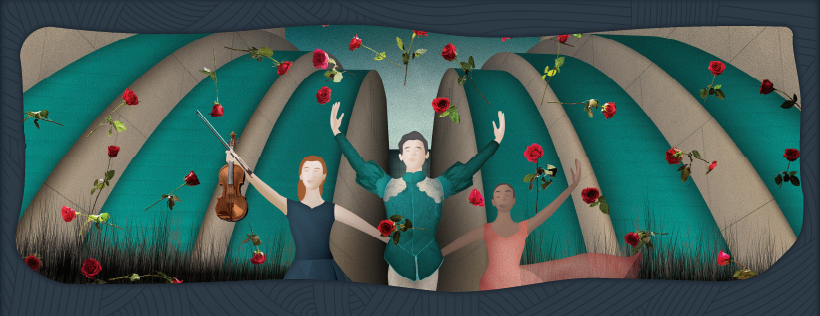
Over $590,000 raised in this year’s fundraiser
Dozens of UMKC Conservatory students and faculty made Crescendo 2020 an event to remember during this challenging year, and so far, the event has raised over $590,000 for student scholarships.
Due to COVID-19, Crescendo 2020 shifted from an in-person performance to a streamed event. The concert on Nov. 6 featured performances and interviews with inspiring students. Co-chairs were Amy Embry and Nicole Wang. Honorary co-chairs were Carrie and Casey McLiney.
“Since moving Crescendo to the Kauffman Center in 2012, we have raised over $3 million in scholarship funds,” said UMKC Conservatory Dean Diane Petrella.
As Crescendo has grown, organizers actively sought ways to expand the impact of this performance. Three years ago, the UMKC Conservatory hosted the first matinee performances of the Crescendo Concert, busing middle and high school students from all over the Kansas City area to the Kauffman Center.
“For many of these kids, this was the first time they’ve experienced a performance of this caliber,” Petrella said. “Last year, through grant and private funding, we expanded this outreach to two performances, with over 2,500 students attending matinees.”
As the 2020 Crescendo Concert went virtual, so did the matinees. Arrangements were made for thousands of children to view the virtual performances, which not only supported the Conservatory’s efforts in community outreach, but also helped UMKC to connect with local talent to recruit the next generation of artists to the Conservatory. The 2020 matinees were sponsored by Julie and Mike Kirk and Evergy.
“Performing artists everywhere are struggling, trying to retain a presence in a society that cannot physically come together,” Petrella said.
“Despite these challenges, artists everywhere continue to demonstrate that the arts are a critical component of our society. Artists are strong. Artists are resilient. We find ways to connect, to continue to shine and to creatively express ourselves." - UMKC Conservatory Dean Diane Petrella
"Guided by the amazing faculty of the UMKC Conservatory, UMKC students found a way to continue studying and creating art — proving over and over again that the arts can transcend all boundaries,” Petrella said.
While this year’s event was different, patrons still had the opportunity to witness the tremendous talent at the UMKC Conservatory. All of the proceeds raised provide scholarships for exceptional students. Scholarships makes pursuing a degree in the performing arts an affordable option and makes UMKC Conservatory a more attractive and competitive choice.
On show “night,” patrons saw those students who bravely accepted the challenges before them and heard from some of the students who received scholarships.
The Performances
Mas Fuerté (1992) by Stephen Rush (b. 1958), UMKC Percussion Ensemble with Professor Nick Petrella, faculty coach.
When We Love (2019) by Elaine Hagenberg, Conservatory Singers with Professor Jennaya Robison, director.
Jose Mendoza and Erin Besser
One of the first student interviews were with Conservatory singers Jose Mendoza and Erin Besser.
“When I was searching for a grad school I was searching not only for a place that would be something I wanted academically but also in the community,” Besser said.
“The reason that my scholarship is so important to me is that I wouldn’t be here without it." - Erin Besser
"The fact that I can be on scholarship and not have to worry about funding my education gives me the peace of mind I need to succeed in my classes,” Besser added.
“For my undergrad I wanted a place where I could feel like I’m home,” Mendoza said. “I can just walk into any building and feel so comfortable and welcomed. The scholarship helps me in a big way. College these days is rigorous and stressful as it is, so having these scholarships helps alleviate that stress and that back-of-the-mind-worry about money.”
A scene from Othello (1603) by William Shakespeare (1564–1616), Meredith Johnson (M.F.A., acting and directing) with Kim Martin-Cotten, director.
After You, Mr. Gershwin! (2004) by Béla Kovács (b. 1937), Dana Sloter, clarinet (D.M.A., clarinet performance) with Professor Dan Velicer, piano.
The Dying Swan (1886) by Camille Saint-Saëns (1835–1921), Michel Fokine, choreographer, with dancers Derrian Simone Davis (B.F.A., dance), Liat Roth (B.F.A., dance) and Ashlyn Zay (B.F.A., dance), Larry Hernandez, cello (Artist’s Certificate, cello), Mary Gossell, piano (D.M.A., piano performance), professor Ronn Tice, faculty coach.
“I think it’s a really difficult time in the world of dance because so much of dance is about connecting with each other and touching each other.” - Dance Student Liat Roth
“So missing that, it’s nice to collaborate with other types of artists, like all of the musicians we have at UMKC,” Roth said.
“I think it’s also nice to just dance with each other because it’s usually a really connected art form,” said dance student Ashlyn Zay. “Even though we can’t touch each other we can still feel each other in the music. I personally love dancing to live music. I just feel like it completely brings it to life. You feel like it’s real and it’s right there in front of you.”
“For me, this was my first time to perform with dancers, so it was really a magical experience,” said dance student Mary Gossell. “I’m also a graduate assistant in collaborative piano and I’m just so grateful to have received this scholarship not only because of the financial benefits, but also it’s giving me a lot of experiences already to work with other musicians and now dancers.”
“It was fabulous having these musicians here with us, said Dee Anna Hiett, associate professor and chair, dance. “We depend on those scholarship dollars to bring us talent to build our dance division, to have a successful career. To train these dancers, we really need scholarship money. And we appreciate all of those who donate and give.”
Danny Boy, Traditional arrangement by Martin Hackleman, UMKC Horn Choir, with Professor Martin Hackleman, faculty coach.
One O’Clock Jump (1937) by William Charles Basie (1904–1984) arr. Charles Kynard, Concert Jazz Band.
“I’ve been playing in the Kansas City jazz scene for about three years,” said Jackie Myers, BM in jazz studies. “UMKC is an integral part of that scene. Many of the players that I really enjoy playing with, many of the people I’m studying with, were involved in UMKC. Without scholarships I wouldn’t be here. From the bottom of my heart, thank you for this opportunity. And thank you so much for your support.”
Andrew Dressman, BM in jazz studies, is also studying saxophone studies. “Since I’ve been here it’s been an incredible experience and it makes me want to stay here for a very long time.”
“Because of your support and scholarship support, we’ve been able to attract and retain some of the finest talent in the country and from around the world,” said Bobby Watson, retired William D. and Mary Grant/Missouri Professor of Jazz Studies. “All of that is possible through your generous giving. And we hope that you can keep it up and continue to support our efforts and the great work of these students for many years to come. Thank you.”
Give to the Crescendo Conservatory student scholarship fund
Nov 24, 2020
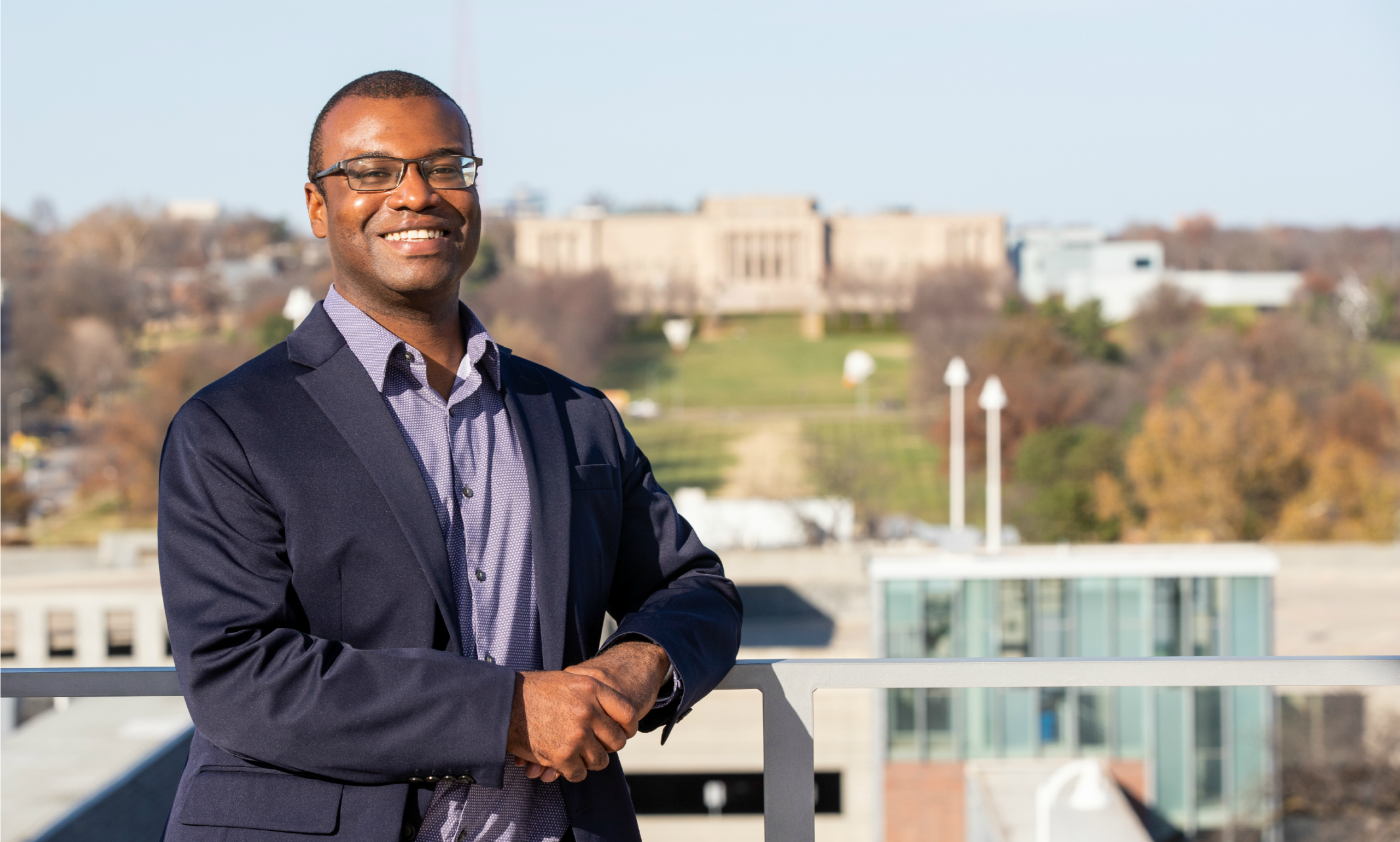
English professor Antonio Byrd is teaching his students to use writing, rhetoric and technology for liberation and survival
The Black Excellence At UMKC series helps to increase awareness of the representation of diversity and equity on campus and show a visible commitment to the inclusion and recognition of Black faculty and staff. This series celebrates and highlights Black and Roo faculty and staff working behind the scenes and on the frontlines to help our university achieve its mission to promote learning and discovery for all people at UMKC and the greater Kansas City community.
Antonio Byrd, assistant professor of English language literature, was attracted to the familiarity of UMKC. It’s here that he’s able to pay forward the experiences he had as a student, connecting with faculty and learning from his peers, from the opposite perspective.
On a mission to achieve social justice through digital literacy and technology, he’s spent the past few years studying how racially marginalized people create their own means for access through computer programming. It’s a cause that struck him as a doctoral student at the University of Wisconsin-Madison, and one he’s dedicated his research and community volunteerism to help stop.
We sat down with Byrd to learn more about his recent transition to Kansas City and his efforts to achieve racial and economic equity through digital technologies.
"Coming to UMKC felt like coming to something familiar."
Name: Antonio ByrdTitle: Assistant professor of English language and literatureTenure: 2019 - presentHometown: Prattville, AlabamaAlma Mater and Degree Program:University of Wisconsin-Madison; Ph.D. in Composition and RhetoricAuburn University at Montgomery; M.A. in Liberal Arts | B.S. in Secondary Education
Why did you choose UMKC as the place to grow your career?
I was drawn to the growing interest in digital scholarship here at UMKC, and that faculty across departments are eager to collaborate on a lot of different digital projects. I’m happy to join other faculty who have the same kind of desire to do more with digital technology. I hope our working together can blossom into practical tools and policies that address racial inequality in Kansas City.
What do you enjoy most about UMKC?
The students! During my campus visit in the spring of 2019, UMKC reminded me of the best qualities of Auburn University at Montgomery. It delights me to know that students share a large space in the hearts of my English department colleagues, who have a lot of enthusiasm for teaching and mentoring.
One of the best memories of my undergraduate days was connecting with other English majors and with my professors. That relationship building was formative for my learning and my becoming into the person I am now. I would not have pursued my doctoral degree if not for those relationships. Coming to UMKC felt like coming to something familiar.
In the short time I’ve been here, I’ve encountered a lot of ambitious students who aspire to do well and pursue projects that matter to them. My students are energized when I say, “Yes, that’s a project you should totally do!” At the same time, I feel challenged to do more as a teacher: better course design, better teaching strategies, better content.
What classes do you teach?
I teach 300-level and 400-level advanced rhetoric and writing courses, which includes courses like Theory and Practice of Composition, Rhetorics of New Media and Multimodal Rhetorics and Writing. I’m also on a mission to get more students to learn professional and technical writing.
I try to make my courses workshop- and project-based and a space where students generate knowledge from each other and the course material. We discuss how writing, rhetoric and technology contribute to oppression and racism while also encouraging students to flip the script and use writing, rhetoric and technology for liberation and survival.
I’m hoping that by the time they get tired of taking classes with me, students understand that linguistic racism persists, and as English majors, they have a duty to reveal this invisible ideology in their professional and personal lives, as well as a duty to resist participating in that racism themselves.
"I’m interested in knowing what my students are interested in."
What sparked your interest in researching race and equity in digital literacy?
While I was pursuing my doctoral degree at UW-Madison, I discovered literature published by other researchers arguing that coding is a type of writing that may eventually become required for everyday living, similar to conventional reading and writing. That made me think about the implications for putting more computer science curricula in schools.
Education in the United States is inherently unequal and designed to leave Black people out, so incorporating computer science into an already unequal education system recreates existing inequalities and continues to perpetuate a racial class system in and around computer programming. Because getting more people to learn coding was relatively new, I thought that maybe this is an opportunity for me to help stop that from happening. I wrote my seminar paper on this, and that work was foundational for my research on Black adults learning coding in a computer code bootcamp.
That question combined all of my concerns: literacy, race, technology and education.
What have you been able to accomplish in your research?
I published two articles from my dissertation! “Between Learning and Opportunity: A Study of African American Coders’ Networks of Support” in Literacy in Composition Studies and “‘Like Coming Home’: African American Adults Tinkering and Playing Toward a Computer Code Bootcamp” in College Composition and Communication. The article published in Literacy in Composition Studies was recently nominated for the Best of the Journals in Rhetoric and Composition book series.
I’m glad that the stories Black people in the computer code bootcamp where I did my research shared with me are out in the world and people are receptive to them. I’m currently working on a book project that I hope will make their stories more public and drive conversation about coding, race and equity nationwide, and especially in the Kansas City area.
How do you connect and establish relationships with other Black faculty and staff in other units and departments?
The moment I arrived at UMKC, I knew I wanted to be involved with the department of Race, Ethnicity, and Gender Studies. My associate chair, Laurie Ellinghausen, introduced me to Vice Chancellor Brandon Martin, Ed.D. and department chair Toya Like, Ph.D., who have been great for discussing ways I can tune into REGS and connect with students of color, faculty and staff. The Black & Roo Faculty/Staff Association, the affinity group for Black faculty and staff under the umbrella of the Division of Diversity and Inclusion, is another organization I will participate in. Now that I’ve settled into the groove of teaching and research here, I’m ready to connect with my own people.
"If something keeps you up at night, you should probably make that your research!"
You’re fairly new to the Kansas City area, have you had an opportunity to get involved in the community yet?
Yes! I’ve been working with Code for KC since I moved here. Code for KC is a Code for America brigade that brings together community members with a diversity of skills to work on civic tech projects that benefit Kansas City. The latest project I’m working is Re.Use.Full, a website that connects people with stuff to nonprofit organizations that need it.
I’ve done a variety of tasks with the website, from writing web content to strategizing social media marketing. The website is great for building an intimate relationship between people who have stuff to donate and community organizations. Of course, I have to do a shameless plug and encourage people to check it out and consider donating to our Give Butter campaign!
Describe your mentoring relationships with students.
I’m interested in knowing what my students are interested in. When I introduce major writing projects to my students, I always ask them to pursue what they find curious, interesting, scary, etc. Writing begins with that personal perspective and I like to support them in that work with comments. I hope the comments help them see their work differently; at least that’s often been my experience when mentors and colleagues read my drafts. I also try to be a resource. If there’s something they want to do academically or professionally, I try to point them to the right resources or people that can help get them to where they need to be.
What is one piece of advice you’ve learned as a newer faculty member that you’d pass on to someone else looking to pursue their research career?
I find it interesting to learn how scholars get into the work they do. That’s not always talked about, so I hope my own journey encourages readers in graduate school or thinking about graduate school to enjoy the ride and use their personal concerns to guide their decisions about what to research. If something keeps you up at night, you should probably make that your research!
What is one piece of advice you’d give a student wanting to follow in your footsteps?
I don’t think they should lock themselves into doing just one thing. The skills they learn in academia can actually transfer to similar jobs outside of academia. I read an article when I was doing research on doctoral education and the writer observed that the world is very interested in you, even though you have more interest in academia. Your analytical skills, your written communication, your collaboration with others and your knowing how to learn is needed in so many places outside of academia. Whatever you do, you will always have value.
Nov 23, 2020
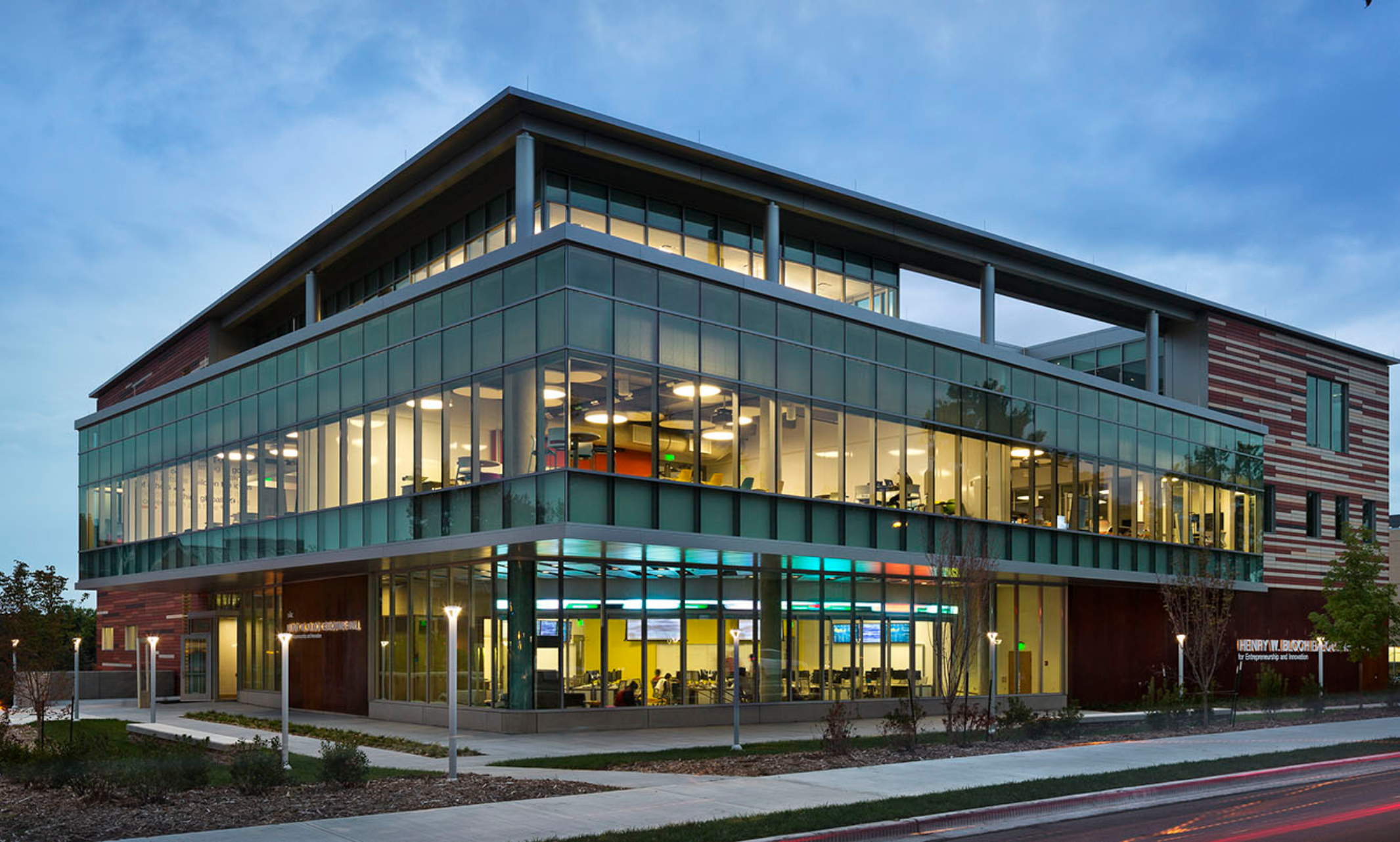
A conversation with Associate Dean Brian S. Anderson
From medicine to politics to business, data has become an essential power source. The University of Missouri-Kansas City Henry W. Bloch School of Management has infused data science throughout its curricula to empower the next generation of business leaders to understand and effectively wield data to deliver results.
Brian S. Anderson, associate dean of the Bloch School, has led the effort to make data science a foundational element of the school’s undergraduate and graduate curricula.
1. Content fine-tuned to student needs
At the undergraduate level, data analysis is infused into the overall curriculum, fine-tuned to specific emphasis areas such as accounting, finance and marketing.
For graduate students, the Bloch School is offering a Graduate Certificate in Business Analytics. Unlike stand-along certificate programs, this certificate is designed to provide an extra credential paired with a Bloch MBA or other Bloch graduate degree earned simultaneously.
2. Making Better Managers
Students explore the entire analytics lifecycle and develop business storytelling skills to effectively present data findings to key stakeholders. They get hands-on experience using cutting-edge analytical software such as Tableau, R, Python and SAS. Multiple software platforms are used interchangeably in a “platform-agnostic” approach.
“We’re not merely teaching people tech skills. Our goal is to produce better managers, so the content is taught in an engaged, immersive environment,” Anderson said. “We are teaching people data visualization – how to tell data-driven stories – irrespective of the tool used to analyze the data.
3. Local and regional relevance
A fundamental element of the Bloch approach to data science is deep engagement with the school’s many community partners – the Kansas City-area businesses and organizations that will be the future employers of Bloch graduates.
“We want to make sure that our curriculum is responsive and relevant to the Kansas City community,” Anderson said.
4. Data literacy matters
“We share Chancellor (Mauli) Agrawal’s view of data science, that its influence has become pervasive across the enterprise in numerous fields,” Anderson said.
While statisticians and other data scientists do the actual number-crunching, Anderson said business leaders need to know what questions to ask the scientists, how to interpret the answers and how to put the insights to work effectively.
“Business executives need to be data literate, and that also includes understanding the limitations of data. You can’t demand that data analysis provide you with information it isn’t capable of producing.”
5. Differentiation in the job market
The Bloch approach to data literacy gives Bloch graduates an advantage in a competitive job market.
“We see this as a way for our graduates to achieve differentiation as individuals with an ability to contribute immediately, and a high ceiling for growth.”
Nov 23, 2020
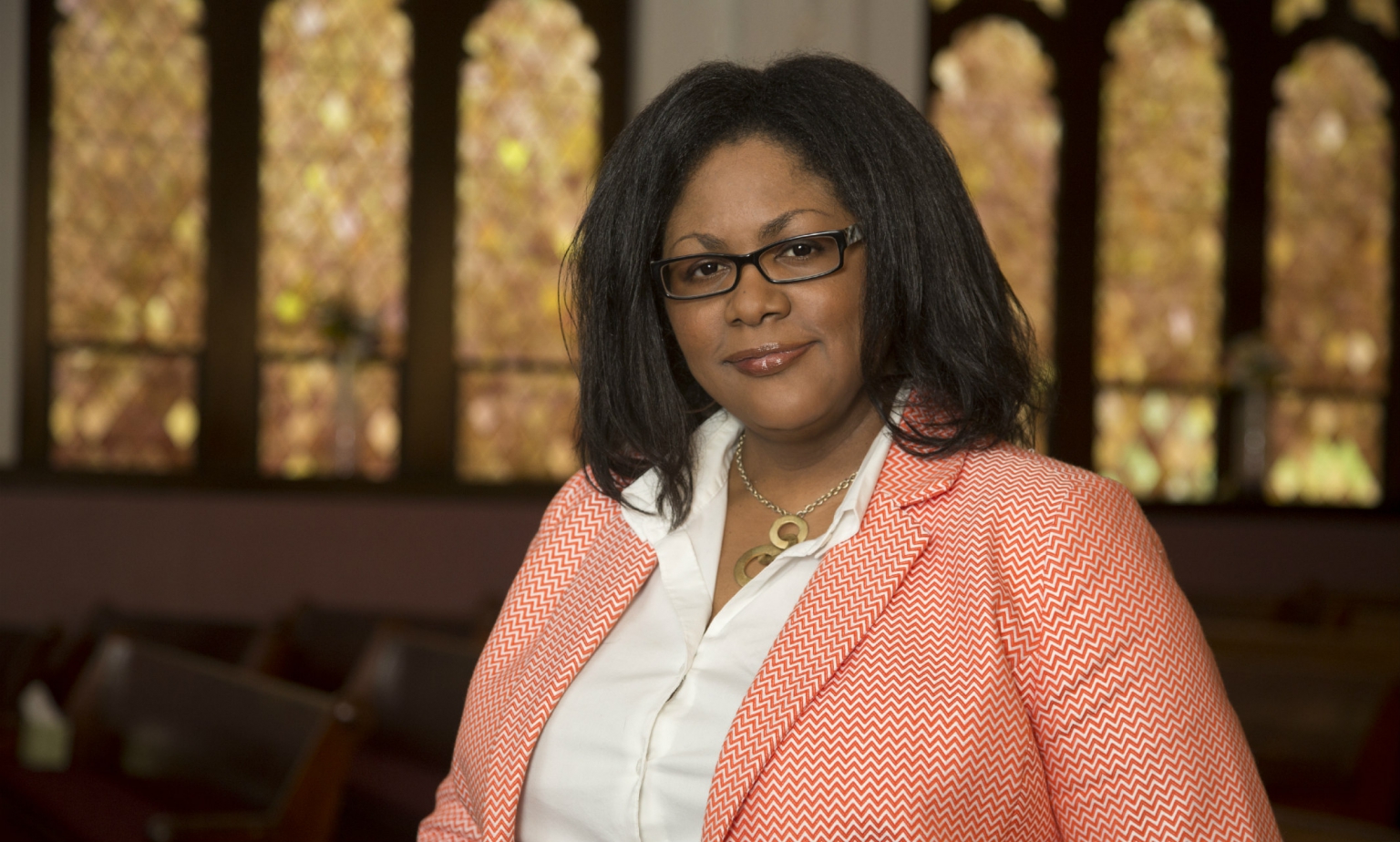
$1.9 Million in NIH funding to UMKC aids in lifesaving effort
COVID-19 has infected, hospitalized and killed Black Americans at a higher rate compared to whites. As it has with other racial health disparities, the University of Missouri-Kansas City is partnering with Black churches in Kansas City to fight this one. The National Institutes of Health has awarded UMKC a two-year, $1.9 million grant to do so as part of its Rapid Acceleration of Diagnostics-Underserved Populations (RADx-UP) initiative.
“By working with 16 churches, which are trusted institutions in the African American community, we will greatly expand COVID-19 testing opportunities and access to care in low-income areas of Kansas City,” said Jannette Berkley-Patton, Ph.D., principal investigator of the grant, director of the UMKC Health Equity Institute and a professor at the School of Medicine. “This RADx-UP grant will help people who probably never would have gotten tested get the support they need.”
The team of investigators on the grant are from UMKC, Children’s Mercy, University of Kansas Medical Center, University of Massachusetts, University of California-San Francisco and Johns Hopkins University. In addition to churches and their leaders and members, they will work in partnership with Calvary Community Outreach Network and the Kansas City Health Department for testing, contact tracing and linkage to care services.
“By working with 16 churches, which are trusted institutions in the African American community, we will greatly expand COVID-19 testing opportunities and access to care in low-income areas of Kansas City. This RADx-UP grant will help people who probably never would have gotten tested get the support they need.” - Jannette Berkley-Patton
“One of our aims with the grant is to not only expand testing but to also help get the community prepared for the vaccine,” said Mary Anne Jackson, M.D., an investigator of the grant, dean of the UMKC School of Medicine and an infectious disease expert at Children’s Mercy. “Vaccine confidence relies on trust and transparent communication of vaccine science and safety. The mistrust among people of color about the COVID-19 vaccine stems back toward experience in other research impacting this population, namely the Tuskegee trials in 1932 to study syphilis where Black males were not provided treatment.”
Key social determinants contribute to the disparities for Blacks and COVID-19 including essential public-facing jobs, cultural norms like medical and contact tracing mistrust and limited access to health care. African Americans also have a high burden of chronic health conditions including obesity, diabetes and heart disease, which put them at an increased risk for COVID-19.
Studies, including UMKC investigations led by Berkley-Patton, have shown that community-engaged research with African American churches has led to health screening uptake for HIV and STD testing and reducing risks for diabetes. Yet, no proven COVID-19 testing interventions exist for African American churches, which have wide reach and influence in their communities, high attendance rates and supportive health and social services for community members.
At churches, the grant aims to reach people through sermons, testimonials, church bulletins, and text messages. This also includes faith leaders promoting testing – and getting tested in front of their congregations – so that people can actually see what the testing process looks like.
To date, Berkley-Patton’s work has been supported by more than $12 million in federal grants over the past 14 years. The community-engaged research she has conducted in partnership with faith communities has benefited people in the Kansas City area as well as Alabama and Jamaica.
“At UMKC, we fight racial inequity at all levels, and that includes life-saving health care at our public urban research university,” said UMKC Chancellor Mauli Agrawal. “We are proud of the work Dr. Berkley-Patton is leading through proven strategies at places of worship. We know this team of investigators and their partners will help keep our community safer from COVID-19.”
Nov 23, 2020

5 questions with Vice Chancellor Chris Liu
UMKC achieved a major milestone in fiscal year 2020 by winning the highest amount of grant funding in its history: $48.9 million. The record coincides with the first year at UMKC for Chris Liu, the vice chancellor for research.
What factors contributed to achieving this milestone?
Dedicated faculty, researchers and supporting staff across the campus; clearly defined goals and the implementation of the UMKC strategic plan on research; the Chancellor’s new initiatives on data science and health disparities; interdisciplinary research in both STEM and non-STEM fields.
“UMKC is moving toward becoming a more refined urban research university through implementing initiatives such as the NextGen Data Sciences and Analytics Innovation Center (dSAIC) and UMKC Forward.” - Chris Liu
Chris Liu, vice chancellor for research at UMKC
Besides this, what has been your proudest achievement in your first year at UMKC?
In collaboration with Alexis Petri, director of faculty support, we won a National Science Foundation (NSF) STEM award to host a regional conference on increasing STEM retention and degree completion and preparing a diverse STEM workforce for the Kansas City metropolitan region.
This year, you also helped UMKC, in collaboration with California State University-Fullerton, earn one of 25 honorable mentions for the Idea Competition for the Symposium on Imagining the Future of Undergraduate STEM Education from the National Academies of Sciences, Engineering and Medicine. Tell us about it.
We proposed an idea to develop an artificial intelligence (AI)-driven learning system for giving undergraduate students personalized care on actively learning STEM fields in the classroom and beyond. The system would provide dashboard information on both students and their instructors to allow them to better understand each other, so that undergraduate STEM education and student learning become a more proactive practice in the future.
The goal is to help first-generation and students from underserved populations receive tailored academic advising. This will also help retention and graduation rates. It also fills a gap in resources for academic advisors.
We feel pretty wonderful about this idea. We’ve applied for a grant to fund this proposal.
Why is increasing research funding so important to the university’s future?
Increasing research funding at UMKC will help generate revenue; strengthen campus infrastructure and facilities for faculty development and student retention/graduation rates; enhance the university’s reputation for national rankings; and create opportunities for community engagement.
What opportunities are you excited about for UMKC?
UMKC is moving toward becoming a more refined urban research university through implementing initiatives such as the NextGen Data Sciences and Analytics Innovation Center (dSAIC) and UMKC Forward.
Nov 20, 2020
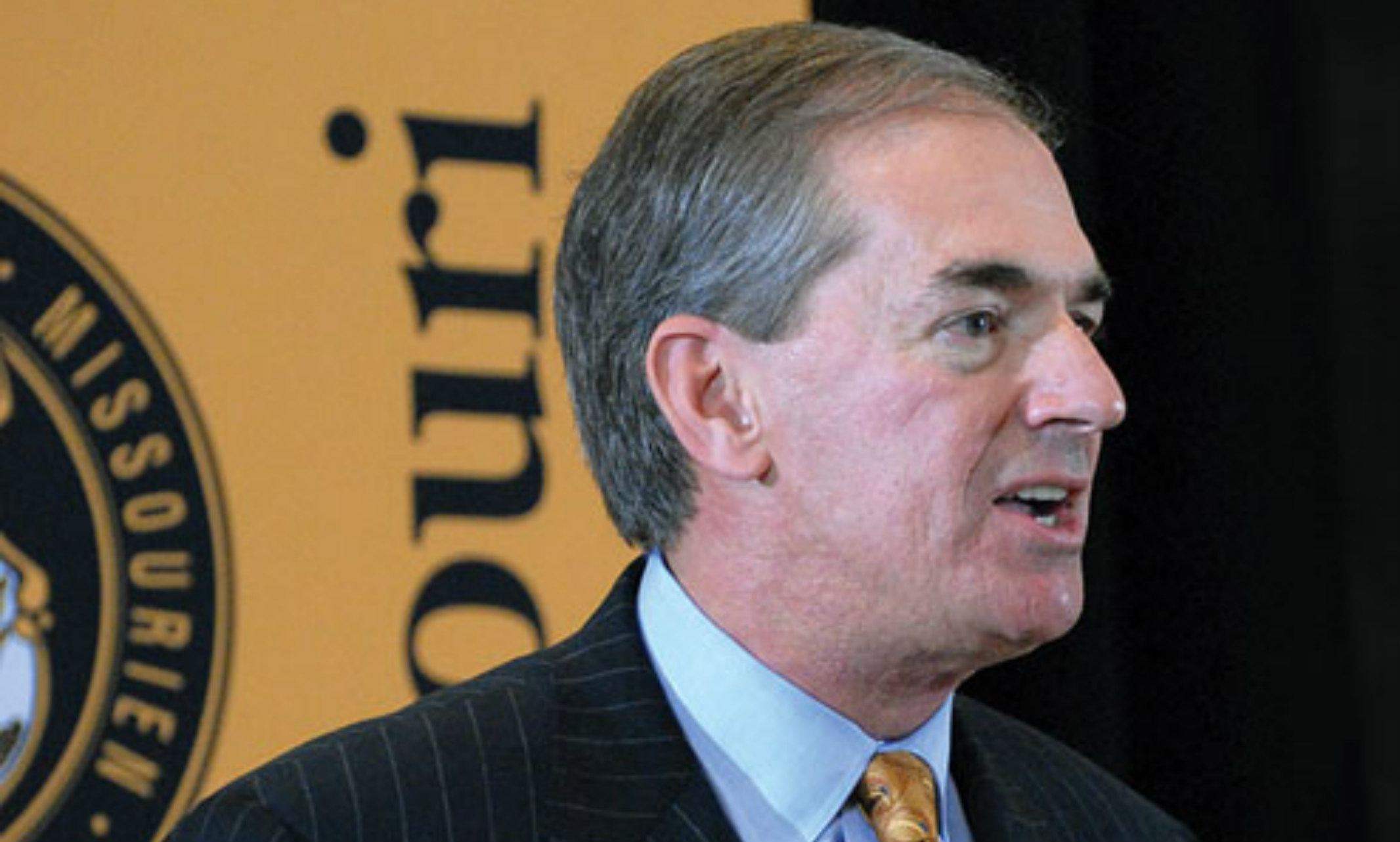
Gift supports a collaborative effort with MU housed at UMKC
Former UM System president Gary Forsee and Sherry Forsee have committed $2 million to support research that will provide data analytics to power the NextGen Precision Health initiative and other precision health research across the University of Missouri System’s four universities.
The gift will support the NextGen Data Science and Analytics Innovation Center, or dSAIC, which is based at the University of Missouri-Kansas City and operates in partnership with the University of Missouri-Columbia. UMKC will receive $1.2 million and MU will receive $800,000.
One role of the center will be to harness immense datasets to extract insights, patterns and knowledge, illuminating the work done at the NextGen Precision Health building, across the system’s institutions and health enterprises. The Precision Health building, currently under construction on the MU campus, aims to usher in a new era of personalized health care by developing medical breakthroughs to treat diseases based on individual variability in genes, environment and lifestyle rather than a one-size-fits-all approach.
The Forsees considered the project a great fit for their philanthropic interests, specifically in support of higher education in Missouri. Gary Forsee, a Kansas City resident and former UM System president, is a 1972 graduate of Missouri University of Science & Technology. He serves as a member of the UMKC Board of Trustees and an emeritus director of the UMKC Foundation as well as a member of the NextGen Advisory Board. With a background in the technology industry, he has a clear understanding of the key components necessary to provide the infrastructure for data research and engagement that benefit Kansas City and beyond.
“The ability to analyze vast amounts of data and apply that knowledge to some of today’s most critical health problems will have untold short-term and long-term impacts.” - Gary Forsee
“Through the development of NextGen Precision Health initiative and the UMKC NextGen Data Science and Analytics Innovation Center, we are helping to lay the groundwork for revolutionary changes in health care,” Forsee said. “The ability to analyze vast amounts of data and apply that knowledge to some of today’s most critical health problems will have untold short-term and long-term impacts.”
dSAIC creates a leading-edge data analytics center that can support university research across the state and play a critical role in health, business and workforce development across Kansas City and the region. The Forsees’ gift is the first step in making that happen.
“Looking back five years from now, we’ll judge the success of the center based on the outcomes,” Forsee said. “What systems have been put in place and what are the real project benefits of this center? I want to ensure that with the benefit of artificial intelligence, cloud computing, big data and data analytics that we’ve made significant progress in the NextGen Precision Health initiative.”
At MU, a portion of the gift will be used to build necessary computing infrastructure that supports pilot projects and collaborations between life science and health care experts and engineering faculty. Focus areas include security for medical health care records; DNA sequencing and analysis for individual patients; and automated diagnosis of medical imagery for precision health.
The expansion of big data capabilities within the UM System will be complementary to the personalized medicine research at UMKC hospital affiliates and MU Health Care, among other possibilities.
“Data isn’t just numbers on a spreadsheet or a chart.With our initiatives, we are using data to affect people’s lives. The Forsees’ gift enables us to continue that work and improve the lives of Missourians.” - Jannette Berkley-Patton
“As president of the UM System, Gary helped refine the vision of our NextGen initiative,” said Mun Choi, president of University of Missouri System and chancellor of University of Missouri-Columbia. “Now, with his continued work on our advisory board and his support in both Kansas City and Columbia, we are turning that dream into a reality.”
UMKC Chancellor Mauli Agrawal has reinforced the university’s strategy related to growing data science and research. Between the new Robert W. Plaster Free Enterprise Center, critical private-public research projects and a clear focus on building the research capabilities of the university through dSAIC, UMKC is positioned to capitalize on significant investments.
“Vision is critical, whether it involves something as finite as physical space or something as boundless as data analysis,” Agrawal said. “Beyond the benefit of the financial support, the Forsees’ gift is an invaluable validation of the importance of this initiative and its potential impact on the people of Missouri.”
Jannette Berkley-Patton, leader of the UMKC Health Equity Institute and a School of Medicine professor, is currently studying the potential health benefits of reliable and free public transportation in urban areas. Her work entails comparing data from more than 10,000 people.
“Data isn’t just numbers on a spreadsheet or a chart,” Berkley-Patton said. “With our initiatives, we are using data to affect people’s lives. The Forsees’ gift enables us to continue that work and improve the lives of Missourians.”
“Beyond the benefit of the financial support, the Forsees’ gift is an invaluable validation of the importance of this initiative and its potential impact on the people of Missouri.” - Chancellor Mauli Agrawal
Prasad Calyam, lead MU scientist on the project, associate professor of electrical engineering and computer science and director of the Cyber Education, Research and Infrastructure Center (Mizzou CERI) in the MU College of Engineering, said the funds will advance interdisciplinary collaborations in precision health.
“It will enable development of cloud computing expertise and knowledge bases in seamless integration of open/protected data sets as well as medical imagery analytics with intelligent automation using advances in machine learning and artificial intelligence,” Calyam said. “Resulting cyber and human resources will further strengthen partnerships with industry to develop secure and community-scale big data analytics environments that foster research and education innovations in precision health.”
Nov 19, 2020
David Thurmaier's podcast featured in national article
“I think the Anthology, especially the first volume, was incredibly important in The Beatles’ catalogue and story for a couple of reasons,” said David Thurmaier, who hosts I’ve Got a Beatles Podcast and is associate professor of music theory and chair of the Music Studies Division at the University of Missouri-Kansas City Conservatory. Read the story from YahooNews.
Nov 18, 2020
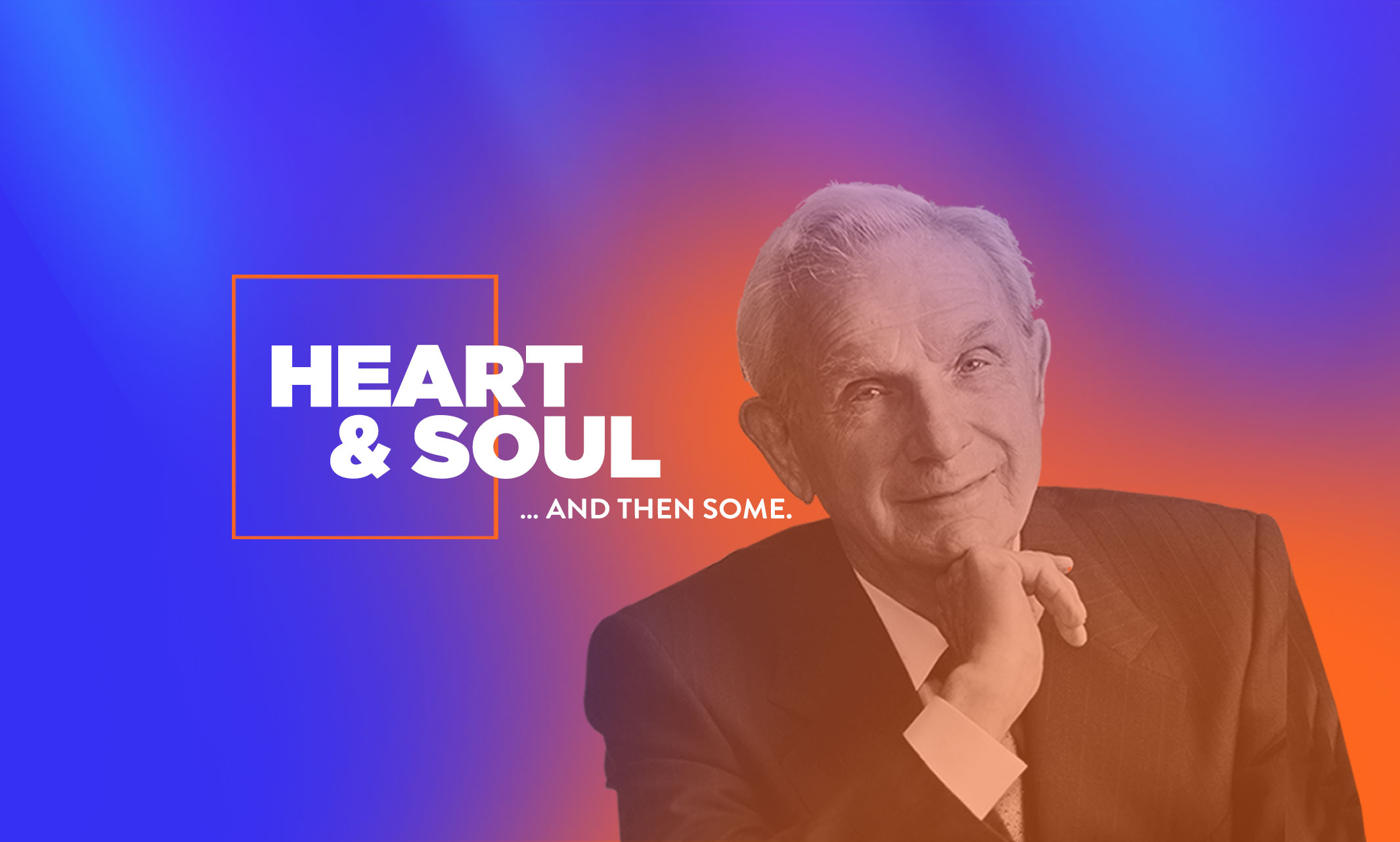
Four receive Entrepreneur of the Year awards
The University of Missouri-Kansas City honored four exceptional business leaders at its 35th Annual Entrepreneur of the Year awards Nov. 12.
The celebration, sponsored by the Regnier Institute for Entrepreneurship and Innovation at the university’s Henry W. Bloch School of Management, was conducted virtually due to the COVID-19 pandemic.
The evening’s program began with a Student Venture Showcase, followed by the awards program.
The 2020 honorees include:
Henry W. Bloch International Entrepreneur of the Year Award: Yvon Chouinard, founder, Patagonia. He was cited for his global impact for not only building a company but transforming his industry. Chouinard is an itinerant adventurer, passionate activist and iconoclastic businessman. In 1973, he founded Patagonia, a mission-driven company known for its environmental and social initiatives.
Kansas City Entrepreneur of the Year: Nathaniel Hagedorn, founder and CEO, NorthPoint Development. With 18 years of commercial real estate experience, Hagedorn has helped raise more than $7 billion in capital over the last eight years for the company’s real estate investments. The NorthPoint family of companies has grown to include the real estate development and management company, an international logistics and freight forwarding firm, a third-party logistics company, warehouse technology and supply-chain integration company, and an industrial architectural and engineering firm.
Marion and John Kreamer Award for Social Entrepreneurship: Robert W. Hatch, chairman and CEO, Cereal Ingredients, Inc. and Great Plains Analytical Lab. Hatch founded Cereal Ingredients, a specialty-food ingredients manufacturer, and Great Plains Analytical Laboratory in 1990. Hatch is also Chairman of FINCA International (Foundation for International Community Assistance), a not-for-profit microfinance organization with a mission to provide financial services to the world’s lowest-income entrepreneurs so they can create jobs, build assets and improve their standard of living. FINCA pioneered the “village banking method” of credit delivery, which offers small loans and a savings program to those without access to traditional banks.
Student Entrepreneur of the Year: Jonaie Johnson. Currently a Dean’s List business student and athlete at UMKC majoring in entrepreneurship, Johnson started her company, Interplay, when she was accepted into the Bloch School E-Scholars program. Interplay is working towards automating pet interaction by providing dog owners with an interactive, automated dog crate. Last year, she was a starter on the UMKC Roos Western Athletic Conference champion women’s basketball team.
Tom and Mary Bloch, son and daughter-in-law of Bloch School patron and namesake Henry W. Bloch, served as the evening’s co-hosts.
“One thing Dad was really big on was finding creative solutions to our toughest challenges, and tonight, right now, our friends at UMKC and the Bloch School are showing us how that’s done,” Tom Bloch said.
Chancellor Mauli Agrawal thanked the Bloch family for their continuing support and involvement at UMKC.
“Their generosity has helped us continue our efforts to increase access to higher education and inspire students to use their entrepreneurship to lend a helping hand and make the world a better place,” Agrawal said. “We are taking real-world challenges and issues and finding solutions and opportunity through entrepreneurial problem-solving. It’s what Henry would have done, and it’s what we will continue to do…and then some.”
As part of the unique virtual format, this year’s program included a panel discussion among three local entrepreneurs on the topic of adjusting to the “new normal” of the pandemic. The panel was moderated by Maria Meyers, executive director of the UMKC Innovation Center. Participants included Chris Beier, co-founder, Strange Days Brewing Co.; Riddhiman Das, co-founder and CEO, TripleBlind; and Lyndsey Gruber, founder and CEO, PEPPR.
The program also featured an appeal for continued support of the Bloch School’s Summer Scholars program, a beneficiary of the Entrepreneur of the Year program proceeds. Summer Scholars is a 2-week intensive summer program for incoming freshman and transfer students.
Ben Williams, assistant teaching professor at the Bloch School and managing director of the Regnier Institute; and Ali Brandolino, president of the UMKC Enactus team and last year’s Student Entrepreneur of the Year, discussed the program’s features and benefits.
“The goal of Summer Scholars is to kick start students’ college careers, help them build an entrepreneurial mindset that can be applied to any career track, and to encourage the students to get involved in the amazing programs and organizations at the Bloch School,” Williams said.
“As a past participant in the Summer Scholars program, I have seen the benefits,” Brandolino said. “It taught me the basics of entrepreneurship that I've used in many other courses, Enactus and my own business. Early in my journey I learned how to ideate, interview, prototype, test, and pitch.”
The Entrepreneur of the Year Awards event is an iconic Kansas City tradition started in 1985. Beyond its philanthropic cause, this event is a valuable forum where Kansas City CEOs, entrepreneurs, business owners, industry legends, world-class faculty and students alike are able to celebrate a common passion. The event celebrates entrepreneurial spirit and serves as a source of inspiration to future generations of innovative entrepreneurs.
All proceeds from this event directly benefit the Regnier Institute for Entrepreneurship and Innovation’s student and community programs. The Regnier Institute at the Bloch School focuses on connecting students and community members with a comprehensive combination of world-class research, renowned faculty, cutting-edge curriculum and experimental programs driven to deliver results and nurture the next generation of entrepreneurs.
Nov 16, 2020
The Pitch features KCSourceLink annual event
“GEWKC (Global Entrepreneurship Week Kansas City) continues to be the largest celebration of entrepreneurship in the region, and we have seen firsthand the difference made in supporting our vibrant local small business community,” said Jenny Miller, chief organizer for GEWKC, and senior director of regional ecosystem development at the UMKC Innovation Center. Read the article. (Website registration required)
Nov 16, 2020
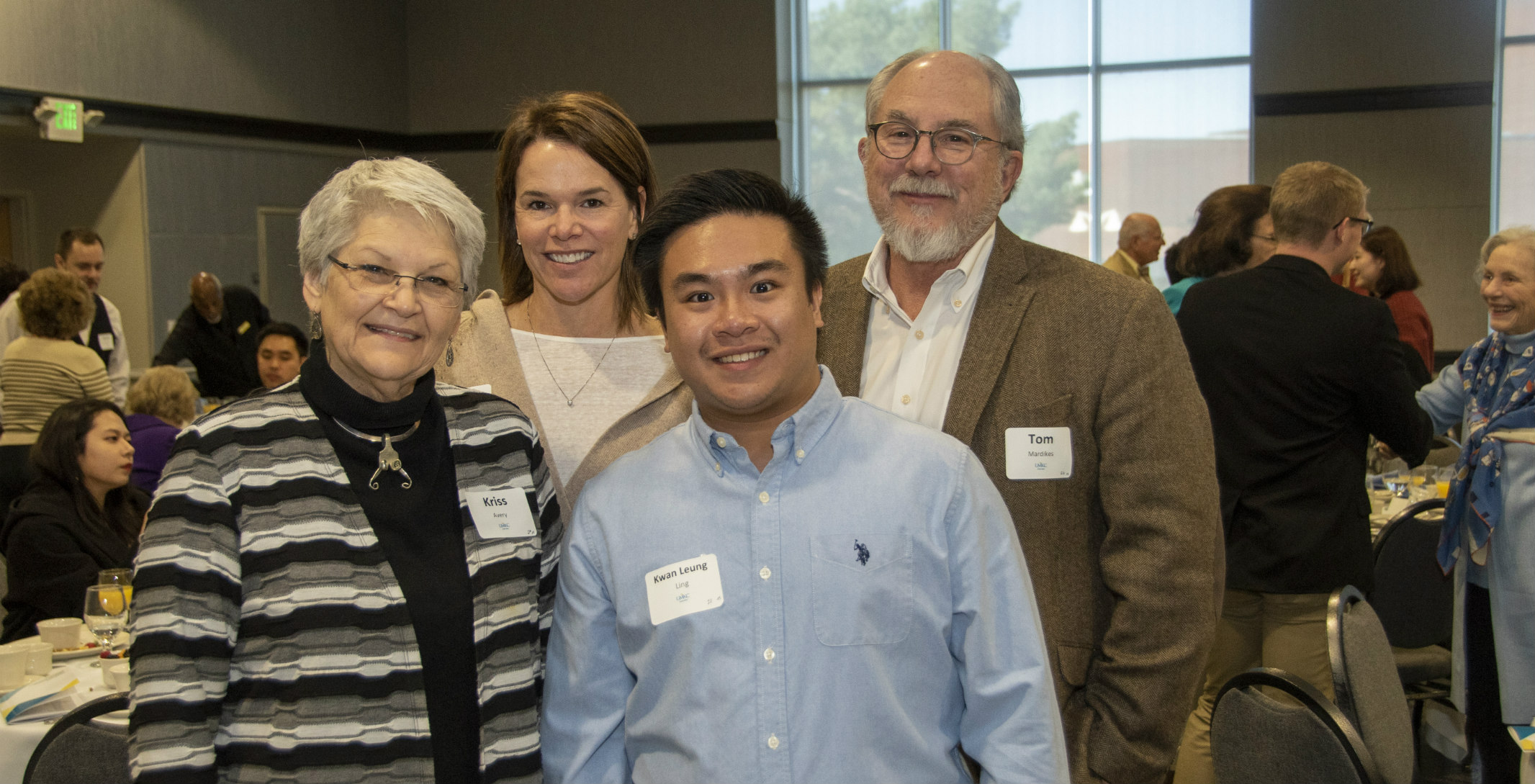
Grassroots effort leads to memorial scholarship
The late James Rothwell had an entrepreneurial spirit and a passion for creating music. A pioneer in electronic sound recording, Rothwell and his achievements are memorialized in the James A. Rothwell Scholarship Fund at the UMKC Conservatory.
Kriss Avery (‘78 B.M.), Rothwell’s widow, led the charge in establishing the scholarship.
“After Jim died in 2015, I had a conversation with Larry Bailey (B.M. ’79, MBA ’87) and Tom Mardikes (M.F.A. ’97) [UMKC professor of sound design], who mentioned the idea of starting a scholarship in Jim’s name. I thought it was such a great idea. There were so many chapters in Jim’s life and a lot of people he had touched.”
Based on the scope of Rothwell’s career, Avery knew that she would have access to a breadth of people who would be interested in supporting a scholarship.
“Jim had a very magnetic personality,” she says. “All of the people that came into his circle he called ‘the tribe.’ But they were all musicians, so we knew we needed to be reasonable in our expectations of what we could raise.”
She planned a memorial gathering and encouraged people to share their memories of Rothwell and raise seed money for the scholarship. His daughter’s family made the first contribution.
Avery notes that these types of funds are often mentioned at someone’s funeral. Since that hadn’t happened in this situation, she made it her mission to provide access to the information so Rothwell’s friends and colleagues could find information online and direct other people who might be interested in donating. She developed the JAR Fund website, In Room 202, and created a page on Facebook.
“Jim had a very magnetic personality.’’ - Kriss Avery
But Rothwell’s friends were not the only scholarship supporters. Paul Rudy, FAAR ‘11, curators’ distinguished professor and coordinator of composition at the UMKC Conservatory, did not know Rothwell, but was friends with Avery. He went to the memorial for Rothwell, which a number of alumni attended.
“It was amazing to see these people, where they landed and how impactful Jim had been in their lives. It was so touching to see and feel their fondness of him, and I was really glad I got to know him a little vicariously through them.”
When Rudy became aware that Avery was establishing a scholarship in Rothwell’s honor, he contributed to the fund.
“Jim was an innovator until the end, and so to have a group of alumni leading this idea to memorialize him was really wonderful. They were so proactive — especially Kriss! — and it was heart-warming to see.”
Rudy sees the impact of scholarships on students.
“It’s really simple — students with scholarships do better,” Rudy says. “Students who don’t have adequate support have to work one or two jobs while going to school full-time. It’s often brutal and can be demoralizing. When students get support — it’s really simple — they do better.”
For the last two years, the James A. Rothwell Scholarship has been awarded to Kwan Leung Ling, who is pursuing his master’s degree in music composition. One of his areas of focus is studying the similarities between American jazz and Cantonese musical forms. Recently, he composed music for the animated short film, “24,” which was selected for Animation Chico Film Festival in California and the Video Art & Experimental Film Festival in New York City this November.
“Studying at UMKC is a dream for most of the composers around the world. I felt extremely grateful and pleased to be the first recipient of this scholarship in honor of an unforgettable professor.” - Kwan Leung Ling, student
“Kwan and I met at a dinner last Fall,” Avery says. “We stay in touch. He let me know that one of his pieces was performed in China last year.”
It seems fitting that Ling was the first recipient of the Rothwell Scholarship, as he was drawn to UMKC by the world-class faculty.
“Studying at UMKC is a dream for most of the composers around the world,” Ling says. “I felt extremely grateful and pleased to be the first recipient of this scholarship in honor of an unforgettable professor.”
Ling says his scholarship has led to unexpected opportunities.
“This scholarship attracted even more attention in the sound design world, and gave me an opportunity to research and apply that knowledge into my current projects. I am inserting more sound design ideas into my collaborations with artists in different art fields. I believe that this will be the best way of giving back to this honorable scholarship.”
While the site-building and fundraising took some energy, Avery is thrilled that Rothwell’s scholarship is able to make a difference for Ling and other students to come. She would advise people looking to start a grassroots fundraising effort to create a website and take advantage of social media.
“I still maintain the Facebook page and I recently re-launched the site,” she says. “I loved him, and I like having this lovely place on the internet to point to and remind people, ‘He really was special.’”
Nov 13, 2020
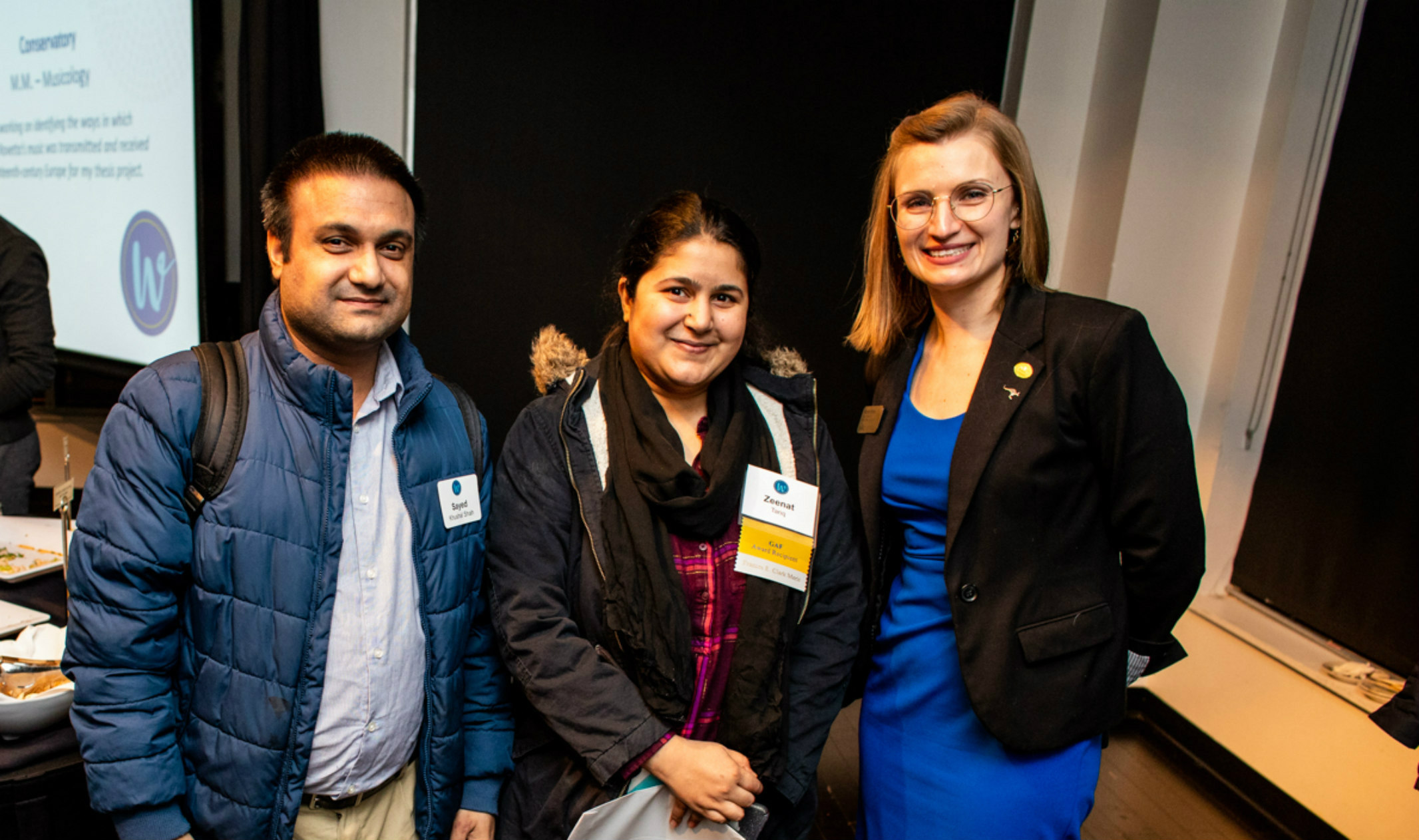
New funding creates opportunity for STEM mentorship
Building a career in engineering as a woman 40 years ago had its challenges, but Janet Williams, B.S.M.E. '83, succeeded and is reaching out to young women to give a hand up through scholarships and mentoring.
“I like to joke that I’m an accidental engineer,” Williams says. “I didn’t discover engineering until I was hired at Burns & McDonnell Engineering in 1979.”
Williams was an exemplary student whose parents understood her opportunities.
“I was the first person in my family to earn a college degree,” she says. “My first degree was actually in Spanish.”
But working at Burns & McDonnell among engineers changed her trajectory.
“Once I figured out what engineers did, I thought, ‘I can do this.’ And I embarked on a three-year endeavor of part-time and full-time classwork at UMKC to graduate with my B.S.M.E. in 1983.”
Williams was part of the charter group that founded the UMKC chapter of the Society of Women Engineers (SWE) while she was in her senior year.
“The women in SWE were a wonderful support group for a new engineer who lacked self-confidence among her male peers in the workplace,” she says. “They helped me see what I brought to the table, taught me how to dress professionally and gave me leadership opportunities in STEM outreach."
When Williams moved to Albuquerque, New Mexico in 1989, she was disappointed to find there was not a SWE chapter there. With a group of other women engineers who understood the particular pressures of being a woman in a field dominated by men, they formed the Central New Mexico Professional Section of Society of Women Engineers.
“We were all grateful for the support we had getting to where we were, so we were all happy to give back by conducting outreach programs, giving science fair awards to young women and eventually establishing several scholarships for women in engineering.”
Williams notes that Albuquerque is a particularly culturally rich area with a large population of Hispanic and Native American residents, both groups that are largely underrepresented in the field. In addition, Williams knows that research shows that having role models is a hugely important factor in girls pursuing engineering - something they often lack.
“It has been gratifying to see the young women we have awarded scholarships to go on to graduate with a degree in engineering, or to be inspired to continue with math and science in high school so they can be ready for engineering or other STEM careers when they enter college.”
Despite her success in Albuquerque, she wanted to do more. While she had considered a scholarship for women in engineering at UMKC in her estate planning, she wanted to have a more immediate impact.
“This award motivates student research and attracts women to the field. The self-confidence it builds can change the world through science and technology.” - Janet Williams '83
“That’s when I became aware of the Women’s Graduate Assistance Fund, which was especially appealing for several reasons,” Williams says. “It was more affordable than most endowments. I was able to designate the award for a woman in SCE and it was able to be awarded immediately, rather than waiting for years. These were all very important factors to me.”
Earlier this year, Williams made a gift to the UMKC Women’s Graduate Assistance Fund to establish the Jan Williams and Family Award for Excellence in Computing & Engineering. Williams first award recipient, Zeenat Tariq, is pursuing a doctorate in computer science.
“Zeenat is an engineer who is pursuing her education while raising a family like I did,” Williams says. “Her research in machine learning focuses on classifying sounds and their applicability to detect changes in the environment and the human body, and she has already published five papers in two years of graduate work.”
Tariq is researching using machine learning for early detection and diagnosis for diseases – such as those that affect the heart and lungs – through human body sounds. This technology would provide the ability to detect abnormalities earlier than standard tests. Her scholarship furthered her progress and opportunities.
“This award helped me further my career by allowing me to submit my research for publication and travel to present a paper where I had a chance to meet people from my field and gain more exposure to science and technology and share research with my community,” Tariq says.
As a mother of a young child she would have had a difficult time attending without these funds. She would like to be able to help students like her when she is an established professional like Williams.
Williams is happy to participate in Tariq’s journey as well as the paths of other women like her.
“This award motivates student research and attracts women to the field,” Williams says. “The self-confidence it builds can change the world through science and technology.”
Nov 11, 2020
Beth and Greg Vonnahme offer expertise on elections
Beth and Greg Vonnahme, UMKC Political Science Department professors, have been interviewed by local media for months about the 2020 general election. Since Election Day, their expertise has been sought-after. Here are a few of the latest media interviews.
‘Can’t close that gap’: Marshall’s path to US Senate victory, KSHB, Greg Vonnahme
Here’s how Trump’s election legal challenges could play out, Fox4KC, Greg Vonnahme
Kansas advance-ballot law speeds up election results, KSHB, Beth Vonnahme
2020 Election Analysis, KCUR, 2020 Election Analysis
Nov 10, 2020
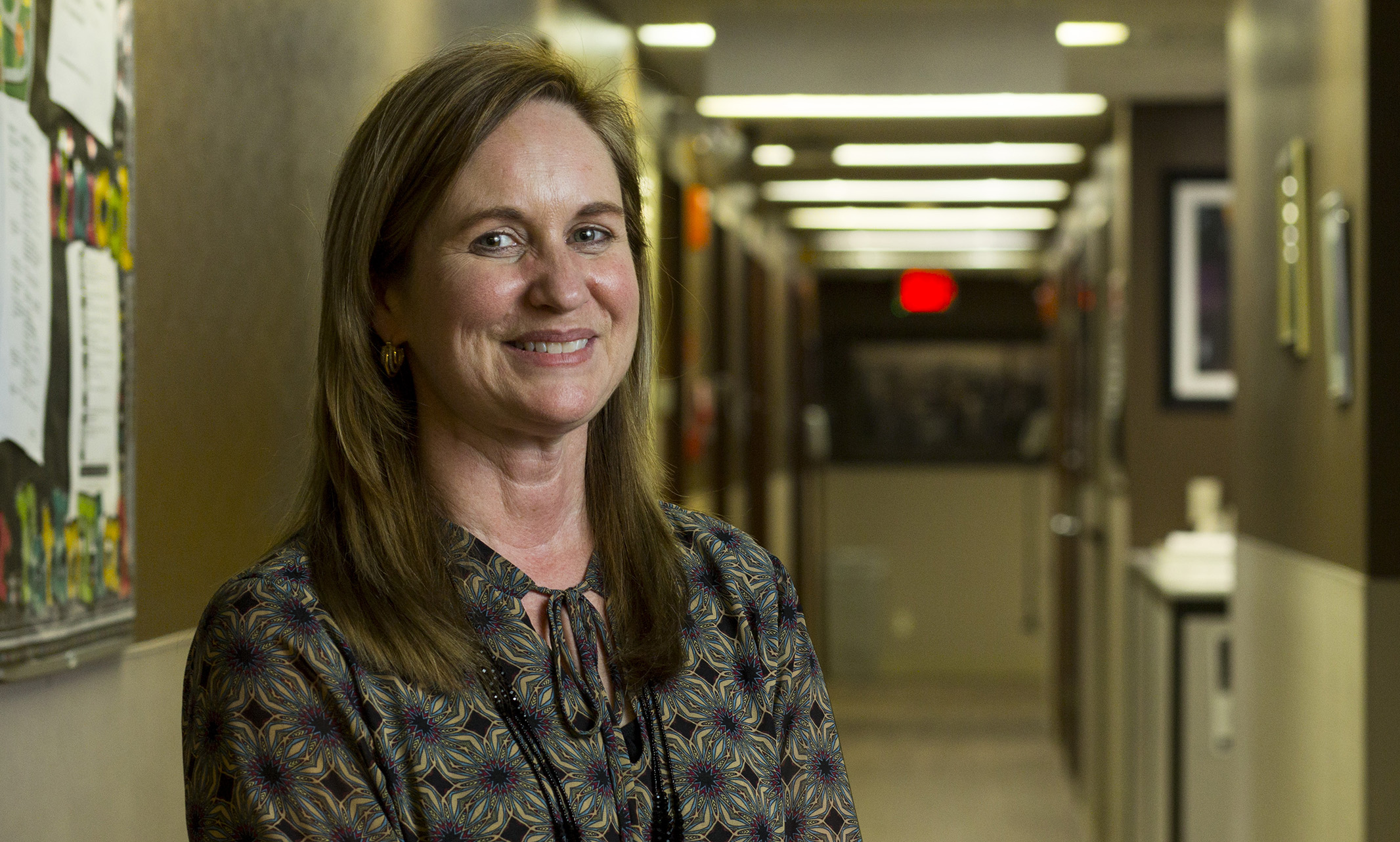
Opioids prescribed in conjunction with other medications raises concerns
A team of researchers at the University of Missouri-Kanas City School of Pharmacy is taking a close look at prescribing trends for opioids used as pain management medications for older residents in nursing homes. Moreover, they are exploring how often opioids are being prescribed in combination with other medications to reduce pain.
Maureen Knell, Pharm.D., a clinical professor at UMKC and clinical pharmacist at Saint Luke’s Health System Medical Education Internal Medicine Clinic, says the teams is particularly looking at how opioids are being used in nursing homes in conjunction with other medications that can impact the central nervous system.
Prescribing multiple medications on top of opioids can have a significant effect on older adults and create an increased risk for adverse events ranging from falls to constipation to affecting cognitive function.
“These are things that we are concerned about and watch out for in our practice every day,” Knell said.
With data collected from four long-term care facilities in Missouri, Mark Patterson, Ph.D., M.P.H., associate professor of pharmacy, has created a registry of more than 1,800 medications and supplements to track medication discrepancy during transitions of care among 126 nursing home residents. It can be used to characterize prescribing patterns among various subsets of patients with different diseases and different medications.
Working with Knell and fellow researchers Melissa Palmer, Pharm.D., clinical assistant professor, and Kaylee Huffman, a third-year UMKC pharmacy student, Patterson is looking not only at the types of opioids being prescribed, but also additional medications that are sometimes prescribed at the same time to treat pain or other comorbidities.
One overarching concern, he said, is the concept of polypharmacy in which patients are being prescribed more than five different medications at the same time, sometimes for the same condition.
“When that happens in an older group of patients who are also on opioids, that's a very high-risk mixture going on,” Patterson said. “So, we are very interested in looking further into the trends with regards to this high-risk population.”
Knell said finding patients on multiple drugs that affect their central nervous system such as antidepressants, antipsychotics or antianxiety medications such as valium and diazepam on top of opioids for pain management particularly raises a red flag.
“Those types of agents combined with opioids, that's something that the guidelines are pretty clear on, that those increase the risk of undesirable effects when you combine them with opioids,” she said.
Another concern that Patterson brings up is transition of care, when older adults go back and forth between hospital and the nursing home. When older patients are seen by multiple care providers, it creates a complicated dynamic in light of those patients receiving multiple prescribed medications.
“We are seeing potentially dangerous combinations of medications being prescribed,” Patterson said. “We don’t know yet the exact number or the rates, but it is concerning.”
The information the UMKC research team is gathering will be a potentially valuable tool for the vast array of health professionals involved in providing care for older adults. In addition to the staff of nurses, physicians and pharmacists in the nursing homes, those in hospitals and individual primary care physicians all have hand in managing the residents’ medications as well as the community pharmacists supplying them.
“It’s important that all health care providers, patients and caregivers appreciate and understand the significance and implications of these prescribing trends,” Patterson said. “Especially with older adults residing in nursing homes or discharged from hospitals who are prescribed opioids.”
Looking forward, Knell said data outlining the prescribing trends of opioids in conjunction with adjuvant, non-opioid medications will hopefully help policy makers and individual clinicians make better decisions on how different medication go together or even whether they should be used together. It could also potentially be applied to a broader range of adults or other special populations.
“I think there are a broad range of possibilities with this,” she said.
Nov 09, 2020

Advances in the study of plant virus transmission may lead to breakthroughs in human health
Jared May joined the School of Biological and Chemical Sciences as Kansas City and the rest of the world was beginning to shut down because of COVID-19. While May adjusted to the move from Washington D.C., he pursued research into how plant viruses evade detection in host cells, and how it relates to human virus pathogenesis.
Your research focuses on how RNA plant viruses are able to circumvent antiviral pathways of potential host cells. What led you to this specialty?
Viruses have been infecting every lifeform since the beginning of time. This tug of war between a host and a virus has been like a molecular arms race. They’re always fighting trying to get the upper hand. That’s one of the things I find remarkable about viruses -- even though they infect such diverse organisms, they are closely related. They share so much in common that what you find in one virus many times will translate to other viruses.
Does this type of research lend itself to human viruses? COVID-19 for example?
My research focuses on RNA metabolism pathways that inhibit plant virus replication. Interestingly, these pathways are present in animals and are known to target coronaviruses like COVID-19. By determining how plant viruses have evolved to survive in their host cells, we will gain a better understanding of how viruses like COVID-19 must adapt to survive in human cells. This work has the potential to uncover virus features that could be targeted by vaccines or antiviral therapeutics.
"Viruses have been infecting every animal since the beginning of time. This tug of war between a host and a virus has been like a molecular arms race." - Jared May
Some people did not absorb the significance of the spread of COVID-19 immediately. How did you react when you become aware of the virus’s potential?
My first concern was that based on the virology conferences that I’d attended, I knew that studying coronaviruses wasn’t extremely popular. The first major outbreak was SARS and there haven’t been new cases since around 2003. So, the interest in the field had died down and shifted towards more recent outbreaks like Ebola. Because of that, there wasn’t a lot of ongoing research.
How does the current focus on coronaviruses relate to your work?
Both coronaviruses and plant viruses are targeted by their host cells using shared pathways. So, I’m trying to leverage what I’ve already found in plant viruses and see if this this novel coronavirus exploits similar attributes to fight the human antiviral response.
What led you to this specialty?
In graduate school I became interested in viruses and infectious disease. I studied human noroviruses that often cause outbreaks on cruise ships. But there are unique benefits in working with plants. For one, the cost is significantly cheaper.
It’s a difficult time to move to a new city. How are you adjusting? Have you had time to explore?
Yes, it is unfortunate timing! But my wife and I just had our first baby. She’s a year old, so sometimes it’s easier to stay home!
Nov 09, 2020
KCUR investigates dearth of Black detectives on Kansas City police force and its ability to solve violent crime
KCUR interviewed Toya Like, criminal justice professor at the UMKC Department of Criminal Justice and Criminology; and Sean O’Brien, criminal law professor at the University of Missouri-Kansas City School of Law and a former public defender. Read the full article.
Nov 09, 2020
KCUR interviews School of Law professor
UMKC law professor Mikah Thompson said the allegations are troubling. Overall, the separation agreements are “fairly standard,” according to Thompson. She teaches employment law and has about 15 years of experience as an employment attorney. Read the full article.
Nov 04, 2020
Legal contests underway in Kansas and Missouri are likely continue well past Election Day
Beth Vonnahme, associate dean at UMKC, College of Liberal Arts and Sciences and associate professor of political science, was a guest on Up to Date.
Nov 03, 2020
Book by author Ibram X. Kendi offers foundation for 2020 Social Justice Book Lecture
For the 2020 UMKC Social Justice Book Lecture, the Division of Diversity and Inclusion hosted a panel discussion centered on the New York Times bestselling book “How To Be An Antiracist” by Ibram X. Kendi.
The conversation included topics such as agreeing on a common understanding of the term “racist,” understanding the framework of systemic racism and why equity is a lot like justice.
Meet the panelists:
Cecilia Belser-Patton, principal and culture curator of JUST Systems
Gwendolyn Grant, president and CEO of the Urban League of Greater Kansas City
Rodney D. Smith, Ed.D., vice president for access and engagement at William Jewell College; co-founder of Sophic Solutions, LLC.
Mikah Thompson (moderator), associate professor at UMKC School of Law
Ajamu Webster, CEO/founder, structural engineer at DuBois Consultants
Below are some excerpts from the conversation.
“The system is getting exactly what it was designed to get. It was designed to oppress Black people, it was designed to suppress our ability to engage in American capitalism. And so it has created this persistent and pervasive divide across all quality of life indicators.” —Gwendolyn Grant
“When we hear the term [racist] levied and people have such umbrage and take such offense. ‘Oh no, I’m not a racist.’ What I think people mean is, ‘I’m not a hate monger.’ Because we’ve done such a poor job of defining how race really works in our society. Most of the time when I’m talking about race and racism it’s in the structural and systemic sense.” —Rodney D. Smith
“No matter what else we do, that intersection of race is always coming in, no matter how many degrees we have, no matter what we earn. People got real irritated with me when I said you can’t out zip code race. You cannot. You can live wherever you want to live, you can choose to live wherever you want to live and there will still be an intersection of our race in all of that.” —Cecilia Belser-Patton
“As long as [racism] is looked at as a moral issue, then moral suasion can be an option that might have benefit, but moral suasion isn’t enough when the entire economic, political, social, cultural and — before scientific — structure was set up to justify the founding and continuation of the American project at the expense of African people.” —Ajamu Webster
Watch the event recording below.
Nov 02, 2020
Bloch School associate professor comments on accessing capital
Accessing capital is difficult without a positive credit history. Many entrepreneurs use their homes as collateral for loans. But that also makes it harder for Black homeowners who live in historically redlined areas where home values are lower, said Brent Never, an associate professor at the University of Missouri-Kansas City Henry W. Bloch School of Management. Read the full article from the Kansas City Star. (subscription required)
Nov 01, 2020
Boston Globe interviews Max Skidmore
Even by doing too little on the virus — at least in the view of his detractors — Trump still occupies the center of the debate. “Though Trump blusters, he’s militant about his passivity and has divested all his responsibility on COVID,” said Max Skidmore, UMKC Curators' Distinguished Professor of Political Science, and Thomas Jefferson Fellow, and author of a book on presidential leadership during health crises. Read the full article.
Oct 31, 2020
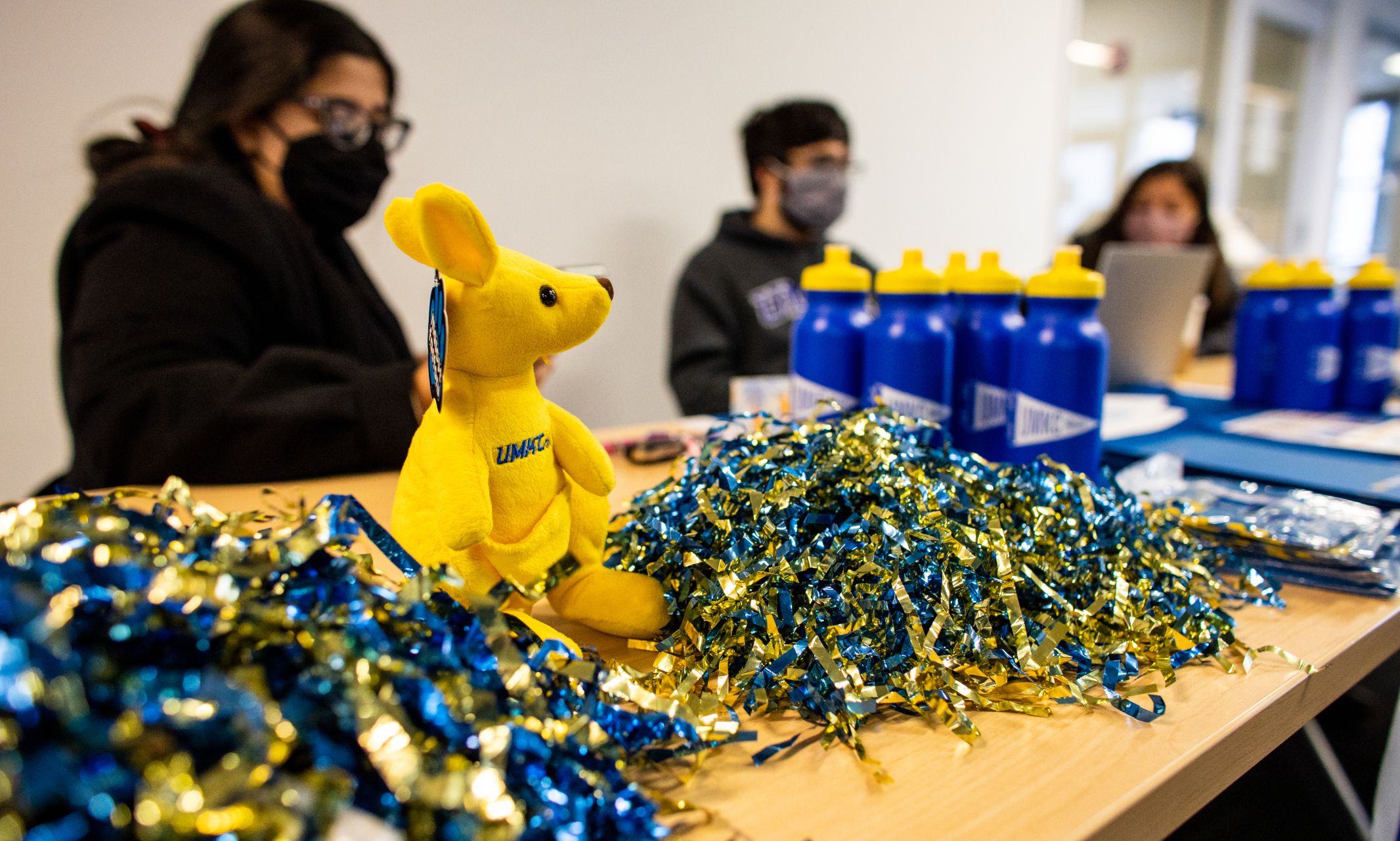
Modality changes announced for first two weeks
UMKC plans to continue most of the current pandemic-related health and safety practices and return to a mix of in-person, online and hybrid classes in the next semester, while standing ready to make changes in response to the evolving situation and any new mandates from authorities.
The new semester will begin January 19, as scheduled, but UMKC will conduct face-to-face courses remotely for the first two weeks. Classes will return to their previously scheduled modality on Feb. 1. Exceptions will be made for a small number of classes that require hands-on instruction (such as clinical rotations, music/dance performance) and will still meet in person during that initial two-week period; students enrolled in those classes will be notified directly. More information about adjustments can be found in these FAQs about spring semester. UMKC administration is making this change because there is an elevated concern within the health care community, both locally and nationally, about a potential surge in coronavirus infections as a result of holiday travel and festivities between now and the beginning of the spring semester on Jan. 19. Health officials anticipate that such a surge would put a strain on the area’s health systems. In addition, we want to give the community time to begin the rollout of the new vaccines in our community. During those first two weeks of the semester, the UMKC campus will remain open, continuing normal operations. This includes research laboratories, UMKC Libraries, food services, Swinney Recreation and all other student services from advising to student wellness to financial aid. Campus residence halls will remain open as well.
Return to campus Spring 2021
Coursework next semester will be conducted similar to the fall. UMKC plans to have 50% of courses online and the other 50% in a face-to-face or hybrid format, with an emphasis on providing a larger percentage of lower division and professional program courses face-to-face. Factors such as enrollment, class registration patterns, classroom and faculty availability and public health recommendations will all impact the final breakdown.
Existing health and safety guidelines and policies are expected to continue in the spring as well, including mask guidelines. Residential Life housing students will be required to show negative COVID test results upon return in January as they did in August. Those who have left the U.S. will be required to quarantine for 14 days before classes begin Jan. 19. More details, including testing options, will come to those students in the upcoming weeks.
Study abroad programs will not be available this spring or summer, due to ongoing COVID concerns in the United States and globally.
Health and safety on and off campus
Because colder weather and time away from campus are here, it’s vitally important to continue best practices for health and hygiene such as wearing masks, physically distancing and avoiding gatherings, small and large.
Students, faculty and staff are urged to visit the UMKC COVID-19 website for up-to-date information on confirmed cases and health and safety best practices. Per notification protocols for students and employees, please remember that all members of the UMKC community are required to report a positive COVID-19 test within four hours of receiving it, whether you are on or off campus. During business hours, students should call the UMKC HelpLine at 816-235-2222; employees should contact their supervisor. After hours and on weekends, all should report by calling 816-235-COVI.
Oct 30, 2020
KSHB interviews Greg Vonnahme
“You can total up every Senate and governor’s race for the last decade in the state of Kansas, and it’s still less than what they’ve spent so far,” UMKC Associate Professor Greg Vonnahme said. Read the full article and watch the newscast.
Oct 30, 2020
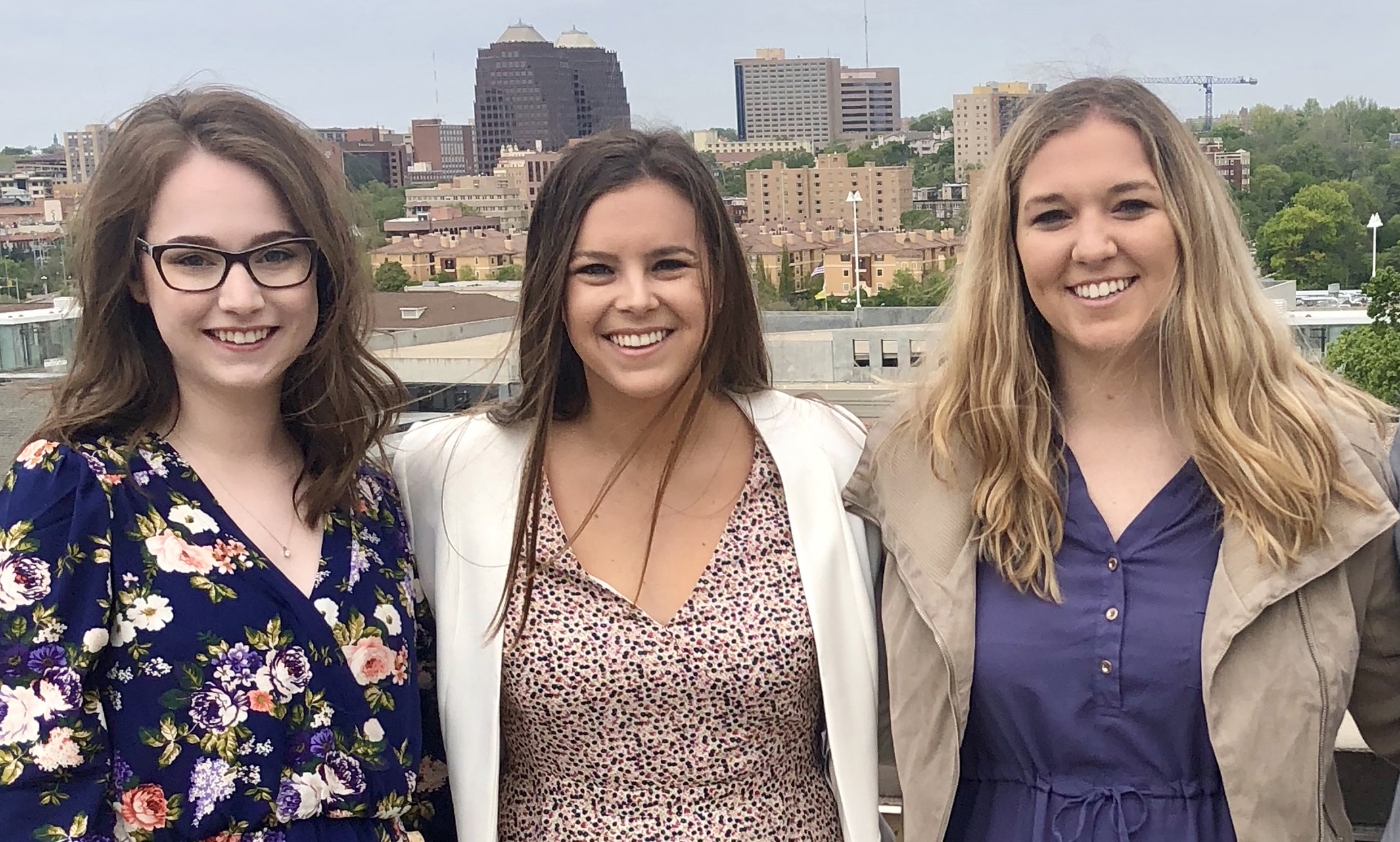
Second national championship this year for School of Pharmacy
Three fourth-year students from the UMKC School of Pharmacy defeated a team from Auburn University Harrison School of Pharmacy to win the 2020 ACCP Clinical Pharmacy Challenge. It is the school’s first national championship in the competition conducted annually by the American College of Clinical Pharmacy.
It is the second time this year that the School of Pharmacy has achieved the top rung in a national competition. In April, the American Pharmacists Association-Academy of Student Pharmacists recognized UMKC with its national Chapter of the Year award for the third time in the last nine years.
The ACCP competition started in early September with 109 teams across the country taking part. UMKC’s team of Brooke Jacobson, Kathryn Rechenberg and Jamie Sullivan made its way through six rounds of online competition to reach the finals on Oct. 16.
The challenge pits teams of three students against one another in a “quiz bowl”–type format. Because of the coronavirus pandemic, the final rounds, typically head-to-head duels held during the ACCP’s annual meeting, took place in a virtual format. Members of the UMKC team agreed that the online competition helped them improve their ability to communicate in a virtual format while also challenging their clinical skills in pediatrics, infectious diseases and cardiology.
“I think this was a really great tool to test the knowledge that we had learned from our didactic coursework and on rotations,” Jacobson said. “We learned that we are very well prepared for our rotations and for practice after (graduating from) school. We’re very thankful for the great faculty that taught us every section. This was a really great tool to measure that.”
Each round of the competition consisted of questions posed in three distinct segments: a trivia section of true-false and multiple-choice queries, followed by a set of questions based on a clinical case, then a final Jeopardy-style segment.
“Some rounds were more relaxed than others,” Sullivan said. “It got to be high stress, high tension at times but I think we used that to work together and achieve our goal of winning the competition.”
This is the 11th year for the ACCP competition. Questions for the contest were written and reviewed by an expert panel of ACCP members.
School of Pharmacy faculty members Elizabeth Englin, Andrew J. Smith, Sarah Billings and Jamie Hall, Pharm.D., BCPS, served as the team’s faculty advisers throughout the competition.
“Brooke, Jamie and Kathyrn did an amazing job throughout the competition and are well deserving of this accomplishment because of all the hard work they put in, not only for this competition but also their careers as student pharmacists,” Englin said. “All School of Pharmacy faculty and staff are extremely proud and happy for them. The team represented the UMKC School of Pharmacy well and their win demonstrates the strength of our program and how we are able to help prepare students for success including these types of competitions, but more importantly as future pharmacists within our communities.”
Rechenberg commended the school’s faculty in preparing the team for the competition.
“We want to give a special thank you to the wonderful faculty that supported us along the way and taught us the knowledge we were able to showcase during this competition,” Rechenberg said.
Oct 29, 2020

Four to receive Entrepreneur of the Year awards
The University of Missouri-Kansas City has announced the honorees for its 35th Annual Entrepreneur of the Year awards.
The celebration is sponsored by the Regnier Institute for Entrepreneurship and Innovation at the university’s Henry W. Bloch School of Management.
The 2020 EOY Ceremony is scheduled for Thursday, November 12, with a Student Venture Showcase at 4:30 p.m. and the awards program beginning at 5:30 p.m. Tickets are not required but advance registration is required for the virtual program.
The full list of 2020 honorees includes:
Henry W. Bloch International Entrepreneur of the Year Award: Yvon Chouinard, founder, Patagonia. Our Henry W. Bloch International Entrepreneur of the Year truly has had global impact. The honoree not only built a company but transformed his industry and significantly contributed to the economic and cultural development of many throughout the world. Chouinard is an itinerant adventurer, passionate activist and iconoclastic businessman. In 1973, he founded Patagonia, a mission-driven company known for its environmental and social initiatives. Chouinard is a surfer, mountain climber, gardener, falconer and is particularly fond of tenkara fly fishing.
Kansas City Entrepreneur of the Year: Nathaniel Hagedorn, founder and CEO, NorthPoint Development. With 18 years of commercial real estate experience, Hagedorn is responsible for the overall strategy of the company. He has helped raise in excess of $7.1 billion in capital over the last eight years for the company’s real estate investments. NorthPoint has developed and managed in excess of 88 million square feet of commercial space and over 4,900 apartments. The NorthPoint family of companies has grown to include the real estate development and management company, an international logistics and freight forwarding firm, a third-party logistics company, warehouse technology and supply chain integration company, and an industrial architectural and engineering firm.
Marion and John Kreamer Award for Social Entrepreneurship: Robert W. Hatch, chairman and CEO, Cereal Ingredients, Inc. and Great Plains Analytical Lab. Hatch founded Cereal Ingredients, a specialty-food ingredients manufacturer, and Great Plains Analytical Laboratory in 1990. Hatch is also Chairman of FINCA International (Foundation for International Community Assistance), a not-for-profit microfinance organization with a mission to provide financial services to the world’s lowest-income entrepreneurs so they can create jobs, build assets and improve their standard of living. FINCA pioneered the “village banking method” of credit delivery, which offers small loans and a savings program to those without access to traditional banks.
Student Entrepreneur of the Year: Jonaie Johnson Johnson is currently a Dean’s List business student and athlete at UMKC majoring in entrepreneurship. She started her company, Interplay, when she was accepted into the E-Scholars program. Interplay is working towards automating pet interaction by providing dog owners with an interactive, automated dog crate. Last year, she was a starter on the UMKC Roos Western Athletic Conference champion women’s basketball team.
The Entrepreneur of the Year Awards event is an iconic Kansas City tradition started in 1985. Beyond its philanthropic cause, this event is a valuable forum where Kansas City CEOs, entrepreneurs, business owners, industry legends, world-class faculty and students alike are able to celebrate a common passion. The event celebrates entrepreneurial spirit and serves as a source of inspiration to future generations of innovative entrepreneurs.
All proceeds from this event directly benefit the Regnier Institute for Entrepreneurship and Innovation’s student and community programs. The Regnier Institute at the Bloch School focuses on connecting students and community members with a comprehensive combination of world-class research, renowned faculty, cutting-edge curriculum and experimental programs driven to deliver results and nurture the next generation of entrepreneurs.
Oct 29, 2020
Bloch School associate professor weighs-in
“Hospitality, that’s the area that’s been hit the hardest,” said Nathan Mauck, associate professor of finance at the University of Missouri-Kansas City. Read the article and watch the newscast.
Oct 29, 2020
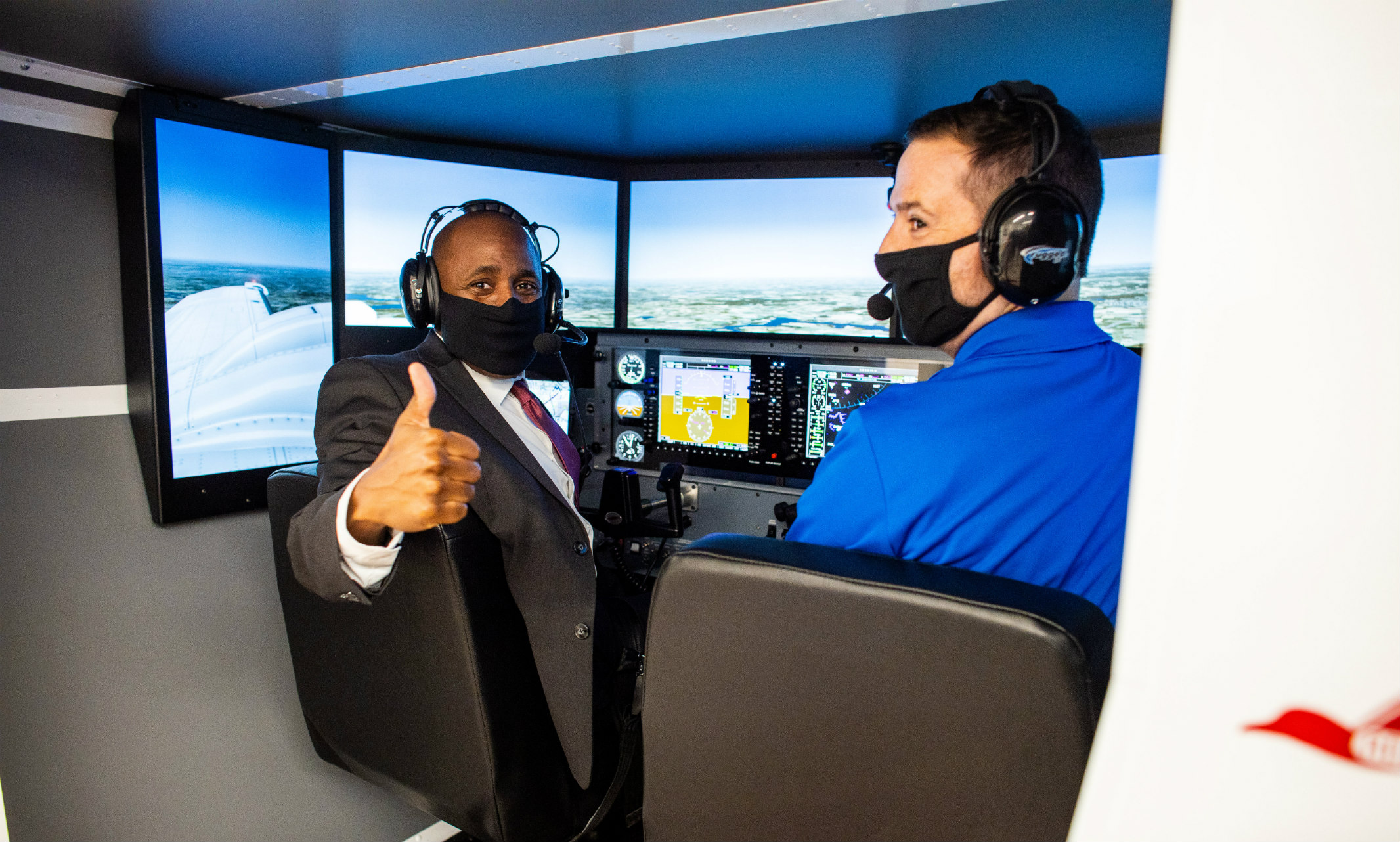
Story by Fox4KC
If you needed a sign from above to convince you to vote, on Tuesday, one week before the general election, there was one.
Two civil engineering professors at the University of Missouri-Kansas City took to the skies to encourage metro residents to head to the polls.
Mujahid Abdulrahim and Travis Fields, who are pilots as well as professors, have told UMKC student about the importance of voting all year. Read more.
Oct 28, 2020
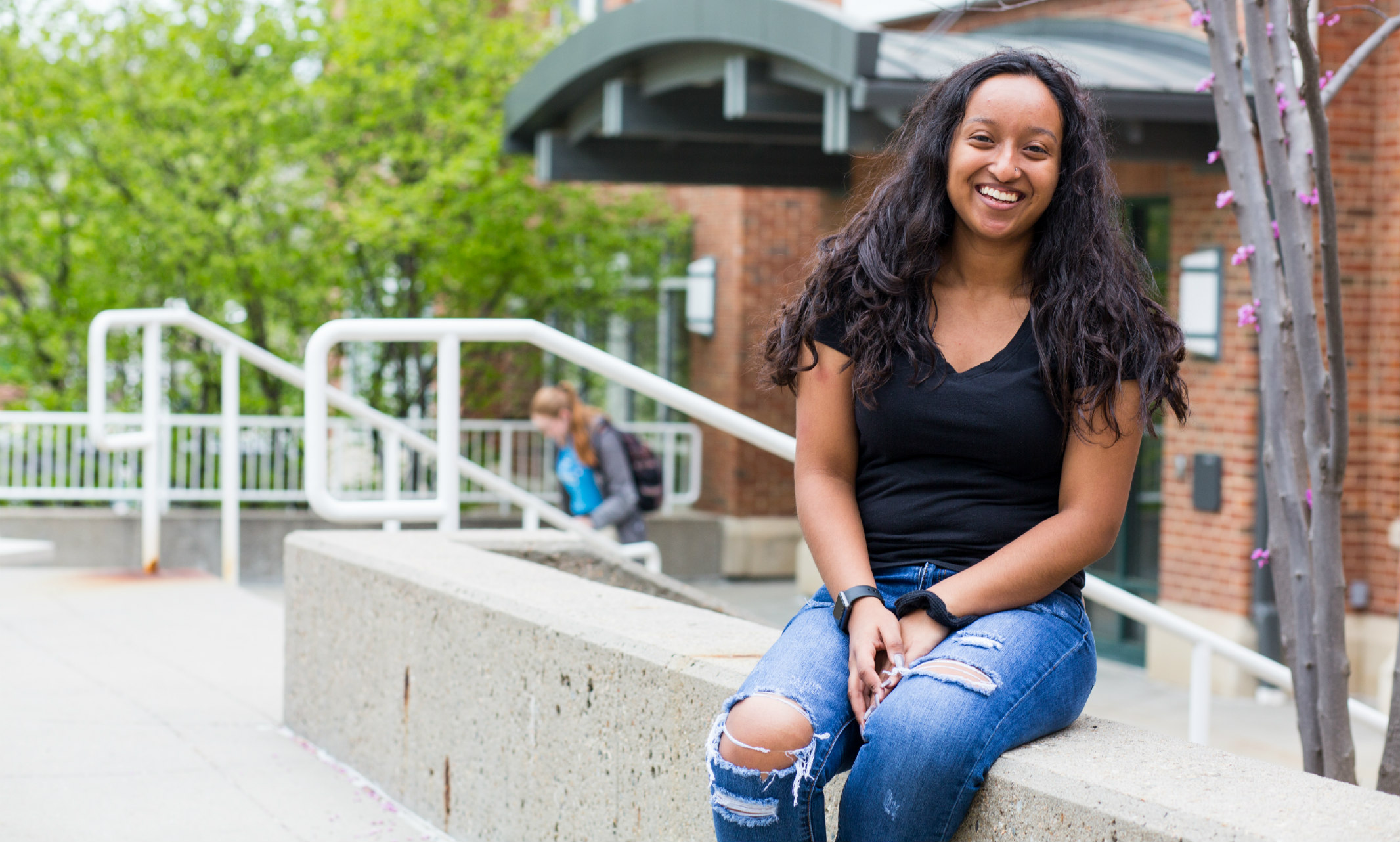
Junior Jennifer Rangel reaps benefits of KC Scholars despite challenges
Get to know our people and you'll know what UMKC is all about.
Jennifer Rangel, '22
Hometown: Kansas City High School: Shawnee Mission East High School UMKC degree program: Double major B.A. Communication Studies with an emphasis in personal and interpersonal communication, with a minor in business administration, and B.A. Studio Art with an emphasis in graphic design
Junior Jennifer Rangel was drawn to UMKC because of its diverse student body. As a recipient of a KC Scholars scholarship, she had been relieved of some of the stress that college can entail and is able to work part time. While the onset of the COVID-19 pandemic sidelined some of her plans, Rangel is finding her way with grace and good spirits.
Rangel started UMKC last year undecided on her major, but determined to find her path.
“I think that after taking some time, I found what I am interested in. I love designing and I always talked about it even when it was not my major. I think I just needed some time to really consider what I wanted, and I think I have found it. I have other interests as well that are causing me to consider graduate school.”
Currently, she is double majoring and minoring, pursuing a B.A. in Studio Art with an emphasis in graphic design and a B.A. in communication studies with an emphasis in personal and interpersonal communication along with a minor in business administration. Also, she is working part-time at Commerce Bank.
“I have been there for almost two years and I do enjoy it. I think it is a great job filled with so many opportunities to learn. I have so much knowledge about finances and how to manage money and I work with a great group of people that support me in any way they can.”
“I think that after taking some time, I found what I am interested in. I love designing and I always talked about it even when it was not my major. I think I just needed some time to really consider what I wanted, and I think I have found it."
Identifying strong support systems has been instrumental in Rangel’s success.
“My advisor, Susi Krulewich has had so much impact. She was my advisor when I was undecided on my major. She talked me through fears and concerns and led me to resources to help me decide. She allowed me to feel confident with my decision and has always been supportive. I am not on campus as much as I used to be, but I will almost always try to stop by and see her any chance I get.”
Krulewich leads the KC Scholars program on campus, which includes a mentorship program.
“I participated in the mentorship program my freshman and sophomore years and really enjoyed it,” Rangel says. “It was a great way to hold myself accountable and have additional support in ensuring that I have all the resources I need to succeed.
Susi has been trying to get me to become a coach to mentor other students for some time now, and I’m hoping that I will be able to take advantage of that opportunity at least once before I graduate.”
Rangel wants to give back to KC Scholars because it has meant so much to her.
“Honestly, KC Scholars has changed my life. I will never forget the day I found out I was accepted. It makes me emotional every time. Without KC Scholars, I do not think I could have had the amazing college experience I have had. I would probably be working multiple jobs to help pay my way. I am beyond grateful to be a KC Scholar.”
"Honestly, KC Scholars has changed my life. I will never forget the day I found out I was accepted."
The onset of COVID-19 has meant missing personal connection. As she’s not on campus as often she rarely sees Krulwich.
“I was able to stay connected with friends and family, although it was hard. Especially with friends, we had to be creative on how to see each other and spend time together and that often meant Zoom. We had to find time that worked for everyone and even then, there would be some that were missing.”
Rangel has found that keeping an open mind and being comfortable not always having a plan can be good tools that reinforce resilience, even in more normal times.
“I wish I had known freshman year that you do not need to come to college with a major in mind, and you don’t need to stick with what you choose for the rest of your life. Things change and you may not always be interested in the major you originally chose. Just make sure whatever you choose you actually love. It makes all the difference and you’ll know when you hear yourself talk about it.”
Oct 28, 2020
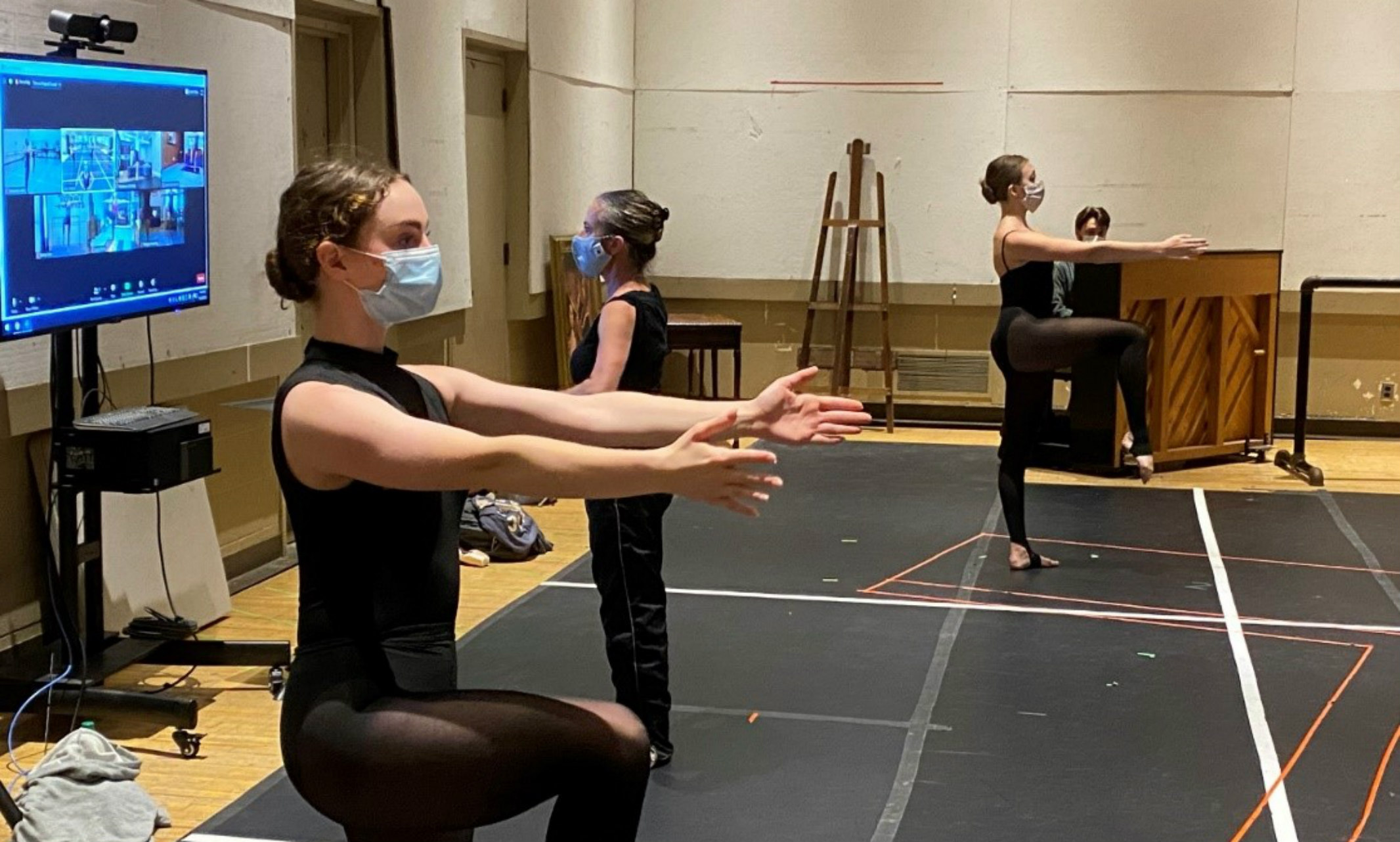
Conservatory faculty and students adjust to changes in classroom and teaching
Without a doubt, the coronavirus pandemic and COVID-19 outbreak has changed the way University of Missouri-Kansas City faculty teach and the way students learn.
Those changes are particularly challenging for performance classes such as dance. So, we decided to check in with the UMKC Conservatory Dance Division to see what classes look like during the fall semester.
DeeAnna Hiett, associate professor of dance and chair of UMKC Conservatory Dance, invited us to a 400-level modern dance class, which includes mostly seniors. She has 19 students in the class. But due to social distancing restrictions, she can only have a total of eight people in the room at a time, six students, one professor and one accompanist. On the day of our visit, Hiett juggled two practice rooms and a group of students on Zoom.
Hiett alternated between helping the students in the room she was in.
She monitored via Zoom the students in the other practice room and those connectedly remotely.
For the students connected over Zoom, Hiett reminded them to pay attention to details and not watch her on their monitors. She told them to focus on the moves, pay attention to carriage and posture, and give attention to the position of hands, fingers, toes and arms.
Senior Emily Moreland said practicing remotely has been a challenge.
“The most difficult part is when I have to dance at home over Zoom, having enough space, a suitable surface and technical issues with Zoom,” she said.
Before COVID, Hiett said she didn’t record the classes, but has found that the recordings, which are now posted to the class in Canvas, are helpful. She said students can review their movements and listen to the feedback given by the instructor.
Squares on the floor mark the space each student needs to stay within. And everyone must wear masks.
Moreland said she is more aware of the space around her because of the limited space in the practice room. “I am also so much more grateful for the time that I do get in the studio, with professors and musicians.”
All practice rooms have industrial air cleaners and sanitizing supplies.
Everyone enters through one door.
And exits through a different door.
Even though UMKC Facilities staff clean the rooms daily, each dancer cleans his or her own spaces after each practice. Senior Emily Rackers said they social distance as much as possible.
“And we end classes and rehearsals with a cleaning spree!”
Hiett said one of the hardest things for students right now, particularly seniors, is putting capstone projects together. Moreland is one of the students who has had to make changes to her senior showcase.
“The concept for my senior piece came out of the restrictions placed on us as choreographers,” Moreland said. “I wanted something conducive to those restrictions so that I didn't spend the whole process feeling defeated by them.”
"The most challenging part for me has just been trying to focus on the moment and not miss the way things used to be, especially since I’m a senior. I think the most positive change is that I’m forced to really focus in class and rehearsals and use more of my time outside of class to work on my craft. I’ve seen more improvement this way.” Emily Rackers
Rackers will also graduate in 2021. She is weighing her options after graduation but plans to audition for companies and inquire about jobs. She is also considering graduate school because of the limited job opportunities right now.
After graduation, Moreland would like to dance in a ballet company. The obstacles she’s overcome have made her ready for what comes next.
“I know that whatever gets thrown at me in my career I will be able to handle it because we’ve been through so much already,” Moreland said. “I am really proud of the creativity and perseverance of my class. Necessity really is the mother of invention.”
Oct 28, 2020

5 ways this coalition has helped people in the Kansas City area and more than 3 million nationally
The University of Missouri-Kansas City is a key collaborator on a recently awarded $30 million-plus project to address the opioid and stimulant crises across the nation. The American Academy of Addiction Psychiatry is the award recipient working with UMKC and Columbia University to lead an unprecedented coalition of 40 national professional organizations on the project.
The UMKC partner in the effort is the Addiction Technology Transfer Center Network Office at the School of Nursing and Health Studies. The grant from the Substance Abuse and Mental Health Services Administration supports the ongoing work of the Opioid Response Network, originally funded in 2018. To date, the initiative has reached more than 3 million people with education and training to mitigate opioid and stimulant use provided at no cost.
“We’re proud of the network we’ve built nationally, regionally and locally,” says Holly Hagle, co-director of the Addiction Technology Transfer Center Network, UMKC assistant research professor and UMKC site principal investigator. “This literally started with a budget on a napkin of what could be done.”
The Addiction Technology Transfer Center Network Office at UMKC is part of the Collaborative to Advance Health Services at the School of Nursing and Health Studies, which has about 30 employees.
“Helping people with substance-use disorders would not be possible without the foundational work of the Addiction Technology Transfer Center located at UMKC since 1993 and collaborating with universities across the country,” says Laurie Krom, principal investigator and co-director of the Addiction Technology Transfer Center Network Office and UMKC program director. “There have been a lot of people who have put in countless hours of effort and unyielding passion to develop the network.”
“This latest grant, and the ongoing long-term exceptional performance of the Collaborative to Advance Health Services, exemplifies UMKC leadership in healthcare research and service,” said Chancellor C. Mauli Agrawal. “Our School of Nursing and Health Studies is at the forefront of national efforts to address the scourge of opioid addiction.”
The new two-year grant began Sept. 30. The Opioid Response Network also intends to expand its support for justice and corrections settings, grow its culturally specific work groups, such as its American Indian/ Alaska Native committee and create new work groups for African Americans, LGBTQ and rural communities. Recognizing the impact stimulant use is having across the country, the network plans to expand resources to provide more educational services in this area – a need that is especially relevant locally.
Based on requests, here is how the network has helped people in the Kansas City area and regionally:
Provided consultation and support on evidence-based strategies for establishing a recovery high school to a local Kansas City businessman.
Presented a treatment and recovery-based training series to Jackson County Family Court personnel, including judges, guardians, social workers, juvenile correction personnel and private attorneys. This training included an overview of opioid-use treatment from a medical and behavioral health perspective, a local recovery subject-matter expert with lived experience and an anti-stigma training.
Consulted a Kansas City-based recovery coalition to help the organization collect information, strategize and plan an initiative to increase the number of recovery housing beds available in the metro area, which included applying the National Alliance for Recovery Residences’ accreditation processes and other recovery supports.
Developed and support a regular meeting of medical directors and treatment staff from opioid treatment programs in Kansas, Missouri, Iowa, and Nebraska, providing opportunities for sharing ideas around treatment and operational issues. This meeting became a vital connection for the participants after the Covid-19 pandemic hit the region. Many programs had to pivot quickly to begin providing services virtually via telehealth and develop safety guidelines for in-person services.
Translated patient education materials on opioid use disorder in Burmese, Somali and Rohingya for a community hospital in rural western Kansas located near a meat packing plant. The hospital is treating people with limited English language proficiency and had no materials in those respective languages to describe opioid-use disorder symptoms and treatments.
Oct 27, 2020
KC Studio reviews UMKC Gallery of Art exhibition
UMKC art student Shaka Myrick, co-curator of the exhibit with Davin Watne and Emma Thomas, states that she would like viewers to leave thinking, “We are not simply #BLM but we are real humans living in America attempting to live a ‘normal’ life with the compounding injustices of racism and sexism. But with this we are also people with an intrinsic ability to find fantasy and beauty in all of their experiences.” Read the full article.
Oct 27, 2020
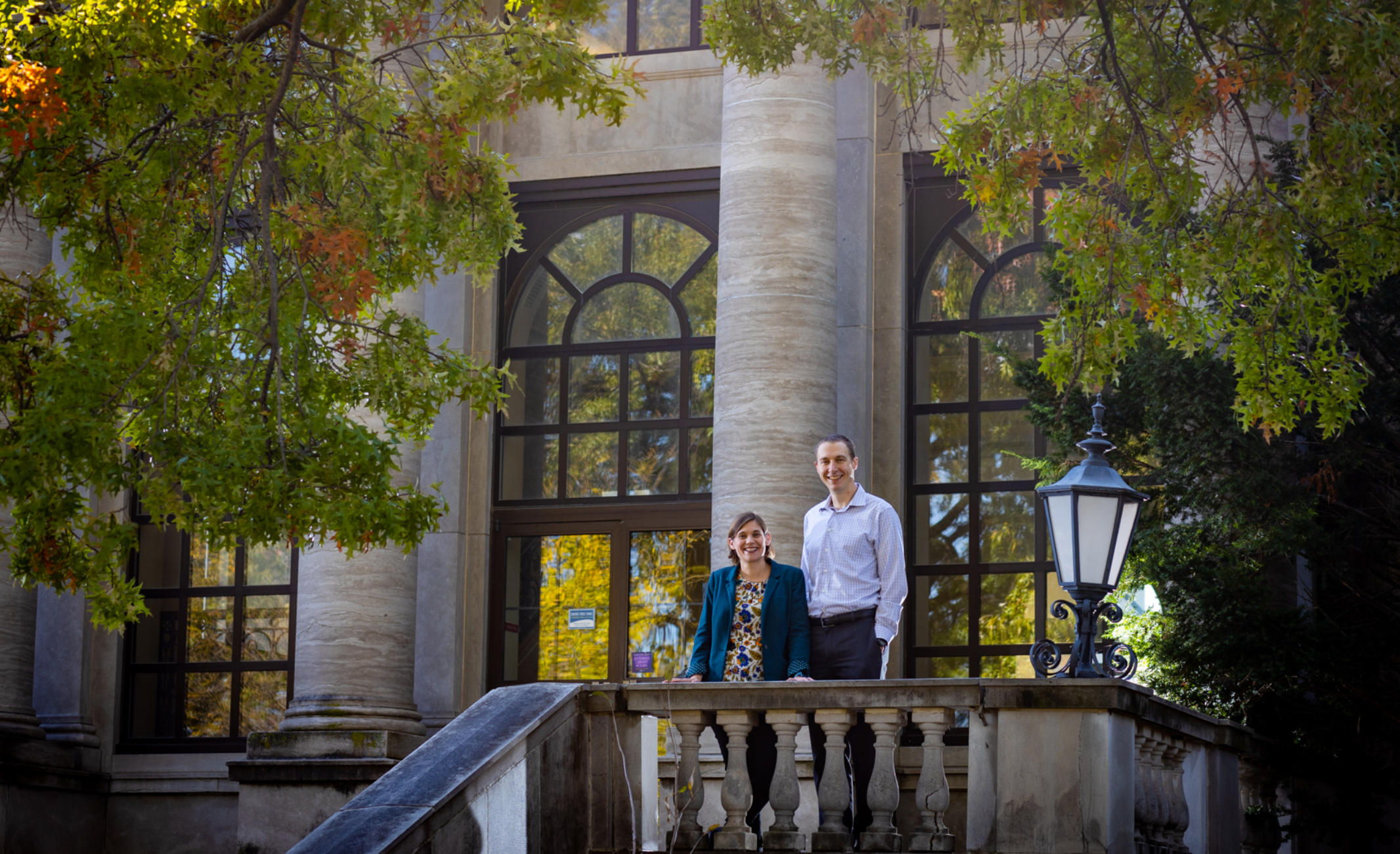
Balancing academia and family life in the busiest of seasons
Conversations at the Vonnahme family dinner table cover a lot of ground. Trucks. Turtles. Psychological dimensions of voter behavior.
Beth and Greg Vonnahme are both political science professors at UMKC, and parents of two preschool children. In a presidential election year generating unprecedented passion and interest, they find themselves juggling teaching, research and administrative duties; family life; and a constant stream of news media requests for analysis and commentary. It’s hectic, but immensely rewarding.
Beth is an associate professor of political science, former department chair and now serves as associate dean of the UMKC College of Arts and Sciences. Greg is an associate professor and current department chair. Between the two of them, they have done eight news media interviews since August on national, state and local election topics.
They met while in the political science doctoral program at Rice University, and “got together over the final season of The West Wing.”
Here are excerpts from a recent conversation.
How did you end up at UMKC?
Greg: Beth came to visit UMKC and loved the city, the department and the college. I was working at Alabama (roll tide!) and eventually got an offer from UMKC.
Beth: He is originally from Iowa and was very grateful to be able to come back to the Midwest.
How old are your children? Are they politically conscious?
Beth: Our kids are 2 and 5. The older one is aware of some basics—the government makes the laws, the existence of a mayor, president, etc. Politics is a big part of our lives and they’ll be exposed to a lot of it eventually, but right now it’s about trains, bugs, bikes, and outer space. (At the dinner table) we’re just as likely to be talking about a huge leaf in the backyard, garbage trucks or a turtle at the pond.
What drew you to political science initially?
Beth: I have always been fascinated with government and politics. I dressed up as the president in second grade for Halloween. My mom helped me sew “Commander in Chief” on a suit jacket. I always assumed I would be a lawyer until I was a senior in college. I took a number of political science and history classes and loved studying politics. I had a professor who suggested graduate school and I was hooked.
Greg: I don’t really remember a time when I wasn’t interested in politics. My parents were highly attentive to politics. Growing up in Iowa also meant that there was a lot of campaign activity around the state and community. There was always this sense that politics mattered and could be used to make our society better. Now, that’s not exactly the same as political science! One of my first political science classes was on international relations, and that introduced me to world politics, which in many ways operates with its own set of complex norms and rules. That had me hooked on political science as an academic discipline.
“Growing up in Iowa also meant that there was a lot of campaign activity around the state and community. There was always this sense that politics mattered and could be used to make our society better.” Greg Vonnahme
Have you had strong mentoring relationships with students who have gone on to enjoy professional success? What does that feel like?
Beth: I have. Most of my students have gone on to successful legal (defense attorneys, environmental lawyers, corporate attorneys, civil litigation, etc.) or governmental careers (World Bank, Defense Department, etc.). I am endlessly proud of our students’ accomplishments. It brings me great pleasure when I see my students getting excellent jobs, having families and doing amazing things for our community.
Greg: I teach a lot of introductory-level classes, so my interactions with students are pretty early, and I also advise them in the major later on. I’ve had students go on to positions on Capitol Hill, the White House, campaigns, in government relations and law. I’m very proud of all of our students, and their effort and resourcefulness. I might have had a small part to play along the way, but I mostly try not to hold them back too much!
“I have always been fascinated with government and politics. I dressed up as the president in second grade for Halloween. My mom helped me sew 'Commander in Chief ' on a suit jacket.” Beth Vonnahme
Have students changed much over the years you’ve been teaching, in terms of their approach to the subject? In terms of their professional goals?
Greg: What I’ve seen in the classroom in the last few years is that the decades-old story about young people not caring about politics might be changing. It is more than just “slacktivism” where people share memes on social media and then don’t actually do anything. I’ve seen a significant increase in the interest that our students have in politics, institutions and voting. They want to understand the issues and processes as a way to be involved in politics more effectively … There is also a degree of skepticism about technology. When social media first began to emerge as a tool for political organization, there was a bit of a utopian sentiment about its possibilities. There’s much more concern about its negative effects among today’s students.
Beth: Students today face many more obstacles than students did when I first started at UMKC in 2006. Food and housing insecurity is a very real issue; financial and family obligations are more acute today than in the past. The specific issues that motivate them have changed, but the passion of political science students to care about the political world and how it affects the daily lives of all has not changed.
What are your other major mutual interests besides politics?
Beth: Family outings, books and sports. Family outings we generally all do together. Books and cycling are both mutual interests, but books are a little bit more my passion, sports are a bit more Greg’s.
Greg: Beth also likes to bake and I like to eat what she bakes.
Oct 26, 2020
Sanjaya Gupta talks to HealthDay about MRIs
“... patients with these ‘legacy’ devices are still being told they can’t have an MRI,” said Sanjaya Gupta, M.D., a cardiologist at Saint Luke’s Mid-America Heart Institute in Kansas City, Mo., and assistant professor at the UMKC School of Medicine. Read the full article.
Oct 26, 2020
Kansas City Star interviews Bloch School Associate Professor
“That (money loss and debt) was not a product of the pandemic. It was a product of the industry and also their specific performance within the industry,” said Nathan Mauck, associate professor of finance at the University of Missouri-Kansas City. Read the KC Star article. (subscription required)
Oct 25, 2020
Beth Vonnahme talks to KCTV5 about voter turnout
UMKC associate dean of the College of Arts and Sciences, Beth Vonnahme, defines voter apathy as nonparticipation caused by feeling “turned off” of the political process. Read the story or watch the newscast.
Oct 22, 2020
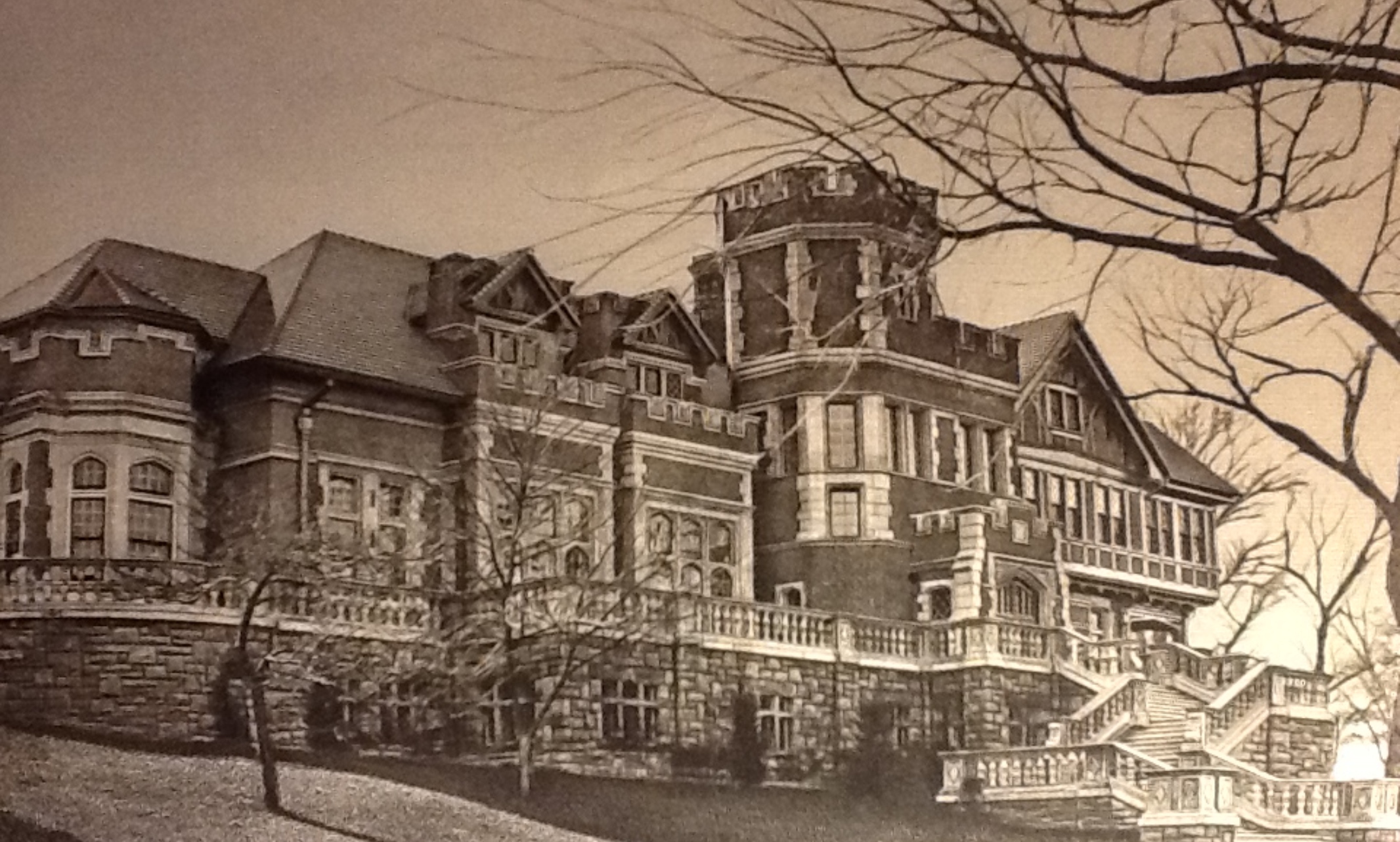
5 Historically Eerie Locations on Campus
Just in time for Halloween, we’re getting the scoop on five reportedly haunted places at UMKC from our own resident historian, Chris Wolff, manager of the UMKC Bookstore.
Historical photo of University Playhouse at its location near present-day Miller Nichols Library and Learning Center.
1. Lurking Patron at the University Playhouse
Vaugn Burkholder
Since opening in 1948, the University Playhouse had a tradition of bringing in professional actors and directors to work with the students. One of the actresses was a local woman named Vaugn Burkholder; she had a short career on Broadway, was petite in size and wore tall heels to compensate. With her love for theater, she would often observe casting calls and rehearsals from the catwalk above the stage.
On the night of Oct. 23, 1957, Vaugn’s husband dropped her off at the playhouse. Just as she walked in, she was greeted by the stage manager and suddenly collapsed. They called an ambulance, but it was too late. Vaugn died of a heart attack right in the manager’s arms.
Since Vaugn’s death, strange activities began to happen at the University Playhouse: reports of lights turning on and off; campus police, on multiple occasions, found all the doors and windows open in the middle of the night as they heard sounds of a performance—including audience laughter and applause--yet upon entry, they discovered no one was there. Sometimes guests of the theater would claim they saw a woman on the catwalk. However when they asked the ushers who it was, there would be no one there. The most interesting of all: the stage manager would often hear the distinct, chilling sound of Vaugn’s footsteps in those high heels on stage when he was in the building alone.
The University Playhouse was eventually torn down; all that remains today is the playhouse patio located on the southwest corner of Miller Nichols Library and Learning Center.
Present-day Spencer Theater with catwalk pictured above.
2. Dancing With the Past in the Spencer Theater
After the University Playhouse was torn down in 1978, Olson Performing Arts Theatre was built to replace it. The Kansas City Repertory Theatre moved inside to the Spencer Theatre in 1979, and it wasn’t long before strange things started to occur. Lights would mysteriously turn on and off. One evening, a costume designer left a project unfinished only to find it finished in the morning. Another time, an actress fell coming down the staircase from the catwalk and felt an invisible force stop her fall mid-air and steady her on the steps. And again, like in the University Playhouse, guests would ask the ushers, “Who is that woman up on the catwalk?”
In 1985, an actress named Laura San Giacomo was cast as Juliet in the KC Rep’s production of Romeo and Juliet. One evening, Laura went on stage to perform a scene where she danced around the stage by herself. As she set out across the stage, suddenly an older woman appeared in full costume dancing with her, step-by-step. Laura kept her composure and completed the scene. She then rushed off stage and found the stage manager and asked, “Who was that woman on stage with me?” He replied, calm and unfazed: “It was just the stage ghost.”
Historical photo of the UNews House at 5327 Holmes Street.
3. The UNews House Possession
The house at 5327 Holmes St. has been owned by the university for decades; it was once the home of radio station KCUR 89.3 as well as a weekly radio show first produced there in the 1970s. Legend has it that in 1977 a gunman forced his way into the home, burst into the studio and shot the host and guest he was interviewing. The gunman fled the scene and was never caught.
However, none of that is true. Once the rumors had begun, it only grew, and when the University News campus newspaper moved into the house years later, the legend took on a life of its own. It provided a backdrop and explanation for all the strange phenomenon that generations of UNews staff have experienced in the house. Working hard well into the night, students would often experience lights turning off and on by themselves and strange, unexplainable noises. Some students even encountered cold spots in corners of the house. Could it just be faulty wiring in an old, settling house? Could the urban myths be clouding the students’ perceptions? Perhaps.
The UNews house has sat empty for the last several years and the stories have now faded into memory. However, this year, the staff have moved back into the house and taken possession of their old work-space. Hopefully they’ll have no paranormal activities to report.
Historical photo of Linda Hall Library, which is surrounded by Volker Campus.
4. Ghostly Pages in the Linda Hall Library
When Herbert and Linda Hall passed away in the 1940s, they left behind a trust fund, their home at 5109 Cherry St. and instructions to create a public library. The trustees of their estate decided that the library would be dedicated to science and the history of science. Over the years, the library has acquired a world class collection of books, including original works of scientists such as Galileo, Darwin and Einstein. In 1964, the Hall home was torn down and the modern Linda Hall Library we have today was built. This new facility allowed the library to store and make available hundreds of thousands of books it had collected over the years in a special annex building — and within that collection, one of those books is haunted.
When someone requests a book, a staff member must go to the annex to retrieve it. In the late 1960s, staff began to experience strange phenomena on the top floor of the annex, where items least requested are stored. In this room there are also statues, paintings, and other relics that made a decidedly creepy atmosphere. Staff would enter and find themselves in complete darkness after the lights mysteriously went out. When they came back on, there would sometimes be a message scribbled on the chalkboard on the wall. One message identified a ghostly author: “I am Andre Dettonville.” Over time, Andre revealed his story. He was killed on a scientific expedition in the 1650s. His spirit attached itself to a book published by the French Academy of Science, and now he is travelling through time along with the book. It is to be believed that when the Linda Hall Library acquired the collection of the American Philosophical Society in the mid-1960s, it acquired Andre, too.
Living room, or Great Hall, complete with organ loft pictured top right, of the Epperson House in 1926.
5. Famous Epperson House Haunting
When the home of insurance tycoon, Uriah Epperson, at 5200 Cherry St. was under construction in 1920, his wife, Mary, couldn’t help but call it “The Eppersons’ Folly.” This four-story, 54-room, $500,000 mansion built for just the two of them was a cross between a Tudor style home and a castle. Beautiful and a little eerie after you learn some of the reasons it’s considered haunted. Here is part of the story.
Uriah Epperson
The Eppersons had no children and devoted most of their time and affection to the various charities they supported, most of which had to do with music and the arts. Their support of the Kansas City Conservatory (now the UMKC Conservatory) led them into a friendship with organ instructor Harriet Barse, whom they fondly referred to as their “adopted daughter.” It was agreed that Harriet would move in with the Eppersons and a special organ loft was constructed for her in the home’s living room. Harriet commissioned a custom pipe organ and everyone looked forward to her entertaining guests of the home.
However, shortly after they moved into the home around 1922, Harriet fell ill. She was rushed to the hospital where she died during an operation to remove her gallbladder. The Eppersons were crushed, but life went on. Uriah Epperson died of a stroke in 1927, and following that, Mary Elizabeth Epperson died of cancer in 1939. In 1942, the home was donated to the University of Kansas City and its first real use was as a dormitory for Navy air cadets during WWII. These men were the first to report sightings of a ghostly woman in a white gown who walked the hallways of the home.
The home was later used as a residence hall for the School of Education and in the 1970s, as practice and office space for the UMKC Conservatory. It was during this time that stories of strange phenomena inside Epperson House came to life. In addition to sightings of the ghostly figure, students reported hearing footsteps in empty parts of the home. Interestingly, the light in the top of the tower would turn on by itself even though the tower had been sealed off decades before. Then, there were claims of the unmistakable sound of the organ music coming from the basement.
Harriet Barse
A chandelier came loose in the living room once and barely missed a custodian, which only encouraged the spread of belief in the haunting of Epperson House to university staff. Even campus police were becoming believers after one officer was struck in his vehicle early one morning by another vehicle. When the officer got out to see what happened, there was no one nor another car around. Yet he had heard the shattering of glass and saw skid marks on the ground where his vehicle had been moved. And there weren’t just sightings of a woman: another officer saw a ghostly hand clothed in a man’s blue suit appear out of nowhere and turn off a light.
Today the Epperson House sits empty and in need of repair and access is strictly forbidden. However, depending on who you ask, you will get mixed responses on the potential for the supernatural. Although some may think the strange occurrences are caused from the old structure, others know for a fact they have heard the organ music and seen unexplainable things.
Oct 21, 2020
Ann Marie Marciarille was interviewed about the two competing theories on health care
“They have two different philosophical positions of fairness,” said Ann Marie Marciarille, associate professor of law at the University of Missouri–Kansas City. “Biden has the social insurance theory that we are all in this together…the other side is about having people live with their own actual risk.” Read the story.
Oct 21, 2020
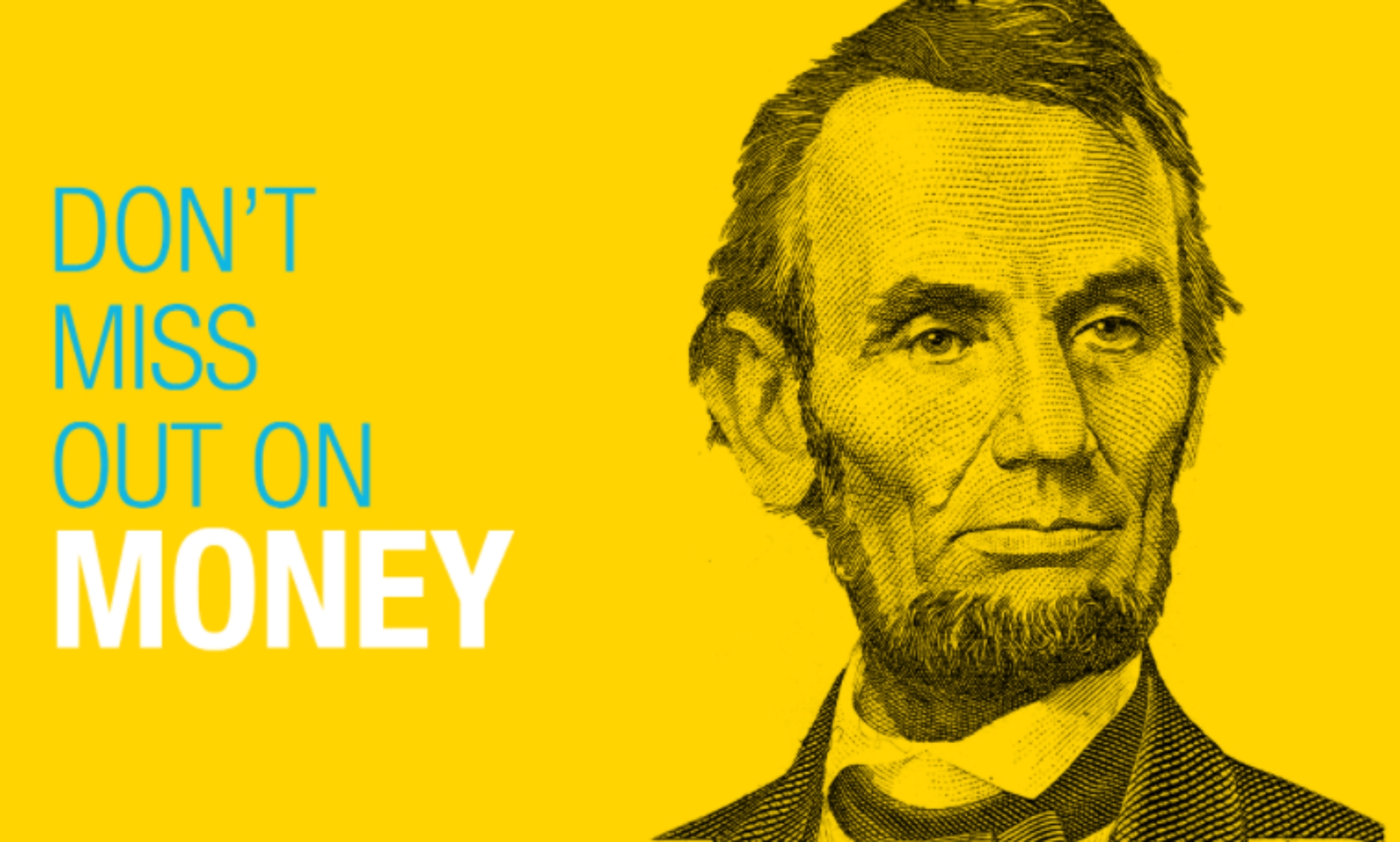
Best way to save time is to be prepared
Regardless of your financial situation or your family's, it is still recommended for all students to file the FAFSA because it can be the first step in qualifying for grant money as well as other types of need-based financial aid.
While the Free Application for Federal Student Aid form can be intimidating, these helpful tips can make you feel more prepared and less stressed.
Apply early
The FAFSA is open for students to apply on Oct. 1 every year. And when you apply early, you'll be able to have access to more federal or school financial aid.
Applying early also means you can get it out of the way now and not have to think about it later. Pushing it too close to the due date means more stress upon you and your family to find any relevant tax and income information.
Be prepared
Make sure that you are prepared and have gathered the information required to complete the FAFSA. By going out of your way to have the information you need, it will be easier to fill it out. For most students, who are still claimed as dependents on their parents' tax returns, that means making sure their parents have their financial and tax information easily available.
Schedule time to do it
A good tip when it comes to completing the FAFSA is to schedule a day where you and your parents, especially if you're using their financial and tax information, can do it together and make sure that everything is filled out. By scheduling a day to do it and making sure everyone knows what info is needed beforehand, it makes it easier for the student and the parents.
Proofread
One thing that students tend to forget is to double-check that all the information entered is correct and is ready to be submitted without any errors. It’d be terrible to miss out on aid because you entered information incorrectly without realizing it, so it pays to take a few minutes to review your work.
Don’t be afraid to ask for help
When it comes to financial aid, there are plenty of resources to help students and parents with the FAFSA application. Here at the UMKC Financial Aid Office, students can contact them to set up appointments if they have any questions or concerns when applying for FAFSA.
And don't forget, just because you filed the FAFSA doesn't mean you'll get aid. Make sure you also apply to scholarships and look for other means of financial aid like grants and loans. The UMKC Financial Aid Office is here to help you.
Learn more about UMKC Financial Aid
Oct 20, 2020
Forbes interviews Nancy Levit
The ability to learn how to be humble may not be the real problem, however, according to a forthcoming paper. The problem may, instead, be that organizations do not select for humble leaders, but use competitive tournaments to select for corporate executives promising immediate results, explains UMKC School of Law Professor Nancy Levit. Read the story online.
Oct 20, 2020
Clancy Martin joins KCUR discussion
Clancy Martin, professor of philosophy at the University of Missouri-Kansas City, was a guest on Up to Date.
Oct 20, 2020
The New York Times features Yotam Haber
Yotam Haber’s “Estro Poetico-Armonico III” combines live singing with archival recordings of cantors. Haber is an associate professor of Music Composition at the UMKC Conservatory. Read the full article.
Oct 20, 2020
Anthony Maly was a guest on Up to Date
Anthony Maly, senior program manager at the UMKC Office of Student Involvement, addressed food insecurity among college students. Listen to the story from KCUR.
Oct 19, 2020
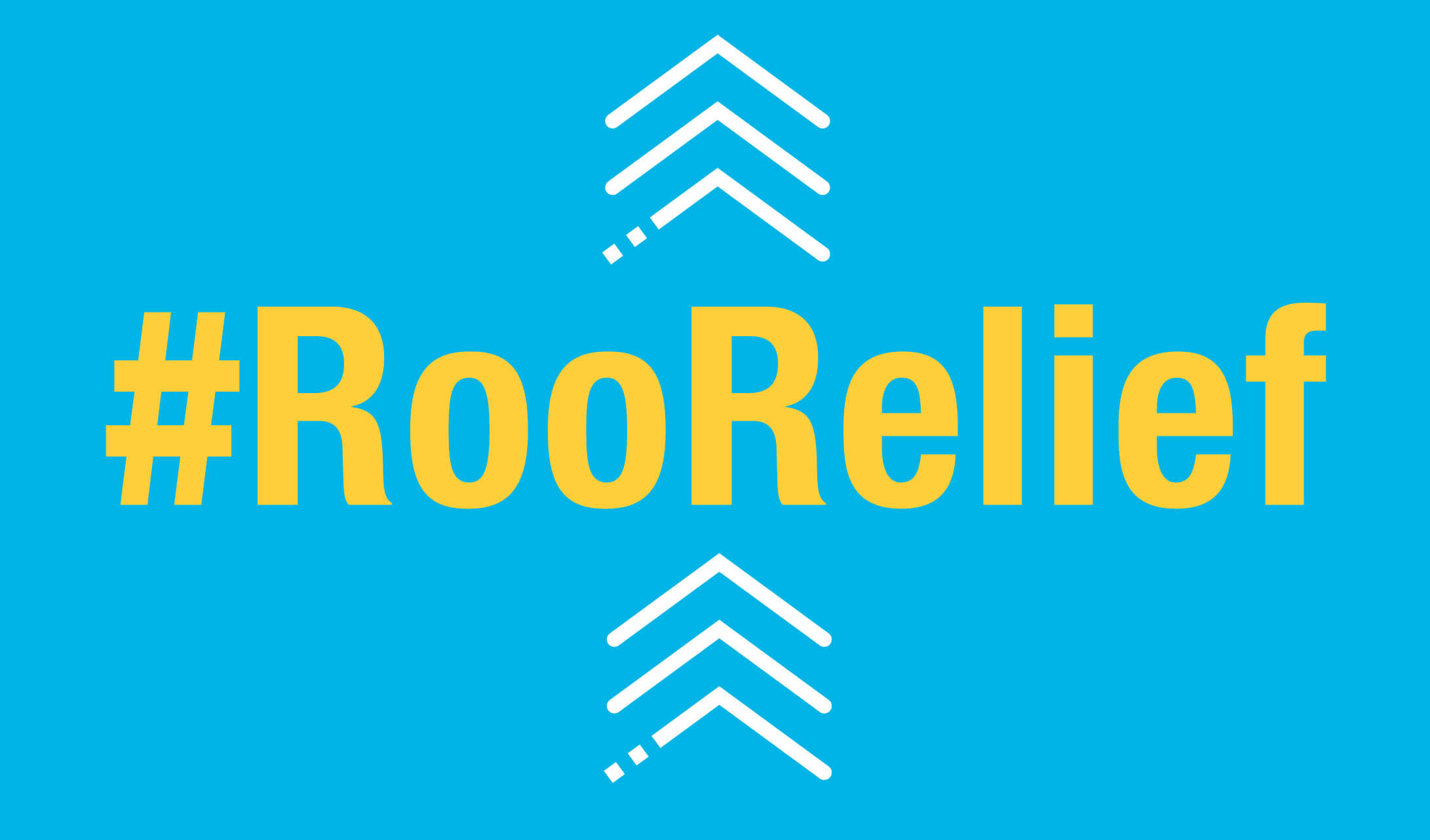
Recent study shows nearly a quarter are struggling financially
Despite previous efforts to replenish emergency funds for students, demand is outweighing availability.
A recent survey of more than 1,000 UMKC students found that nearly one-fourth of them are struggling financially. Many do not have the money they need to buy materials for their courses. To respond to this need, an anonymous donor has committed matching #RooRelief funds to any gift made to the Student Emergency Fund and the Kangaroo Food Pantry.
In addition to being unable to meet their financial obligations, many students have gaps in food security. The Kangaroo Food Pantry reports significant increases in demand over last year.
With the escalating ramifications of the COVID-19 pandemic and its effect on job availability and housing, many students at UMKC face unprecedented economic challenges. Last Spring the UMKC Foundation established the Student Emergency Fund to help students manage these shortfalls in order to keep them in school and physically and mentally healthy. These funds helped to keep students in school and meet their basic needs.
“I cannot tell you how much this will help me and my three small children. It was a stretch going back to school as a single mom, but I knew if I didn't we would be caught in this cycle of poverty forever. I want better for my children. With your gift, I am now able to pay for the internet we never had. This was much needed not only to help me with my school work, but it was also a godsend for my children during their homeschooling. I am also able to get caught up on our utility bills, which is a blessing! I hope to do the same for others when I am able to pay it forward. Thank you again.” - UMKC Emergency Fund recipient
Despite the initial overwhelmingly positive response to the Student Emergency Fund, the demand has exceeded resources. Since the beginning of the semester, UMKC has had to place dozens of student applications on hold because funds are no longer available.
“Our students’ well-being is always our top concern,” UMKC Provost Jenny Lundgren said. “We are doing our best to help them meet these challenges. In the current environment, emergency funds are critical to keeping our students healthy and on track for graduation and future success.”
“In a time where things are not what they used to be, the extending hand of giving is almost always an apprehensive gesture given the nature of what the future may entail. It is with that thought in mind that I am even more appreciative of your gift. Thank you for being a blessing to me, words simply cannot express how I am feeling. A little goes a long way - and I know that in the same way I was blessed with this small gift, my plans for my future will work out just fine." - UMKC Emergency Fund recipient
UMKC Foundation president Lisa Baronio considers these funds more than a short-term safety net.
“At UMKC we view our students, faculty and staff as family,” Baronio said. “We are grateful for the response to the Student Emergency Fund we had last spring as it made a difference for so many students. Unfortunately – rather than improving – students’ situations are in many cases becoming worse. We are so fortunate that we have a donor who has offered a challenge match, as they are as committed to the health of our students and our community as we are. With this match, even small donations become significant.”
To help aid our students and take advantage of the matching gift for #RooRelief, donations can be made online to the Student Emergency Fund or the Kangaroo Food Pantry.
Oct 19, 2020
Flatland interviews UMKC professor emeritus
Professor Emeritus of Environmental Geology Syed Hasan used to work with Charles Spencer at UMKC. He said people who spend a lot of time underground don’t have any issues with it, citing a psychological study one of his colleagues conducted on underground workers. Read the story online.
Oct 19, 2020
Professor Gary Ebersole joined 41 Action News anchor to discuss how history can teach about faith when the world is in peril
Taylor Hemness with KSHB talked to UMKC History Professor Gary Ebersole for the Faith in KC conversations series.
Oct 19, 2020
Washington Post interviews Max Skidmore
Donald Trump, who himself contracted the virus and was hospitalized this month, “seems not to have been chastened by the experience,” said Max J. Skidmore, UMKC Curators' Distinguished Professor of Political Science and the author of a book on presidential responses to pandemics. Read the full article.
Oct 17, 2020
Emeritus professor writes Special to The Star
This Special to The Star was written by Thomas Stroik, professor emeritus of English at the University of Missouri-Kansas City.
Oct 17, 2020
Community leaders from Missouri's largest cities discuss health disparities
UMKC kicked off its inaugural Engagement Month with UniverCities Exchange: Health Disparities in the Time of COVID-19, a panel discussion in collaboration with University of Missouri-St. Louis.
UMKC Engagement Month is a 31-day (virtual) celebration of all the ways our UMKC students, faculty, staff, alumni and friends contribute to the Kansas City community and beyond. The month overlaps with the University of Missouri System’s Engagement and Extension Week, held Oct. 26-30 and includes a variety of events.
The UniverCities Exchange: Health Disparities in the Time of COVID-19 discussion highlighted issues facing the urban communities of Kansas City and St. Louis and exacerbated by the pandemic. The event was moderated by Steve Kraske, host of KCUR’s “Up to Date.” Panelists included:
Diego Abente, president and chief executive officer, Casa de Salud
Jannette Berkley-Patton, director, UMKC Health Equity Institute
Alexander Garza (B.S. '90), chief community health officer, SSM Health
Riisa Rawlins-Easley, chief of staff, St. Louis Regional Health Commission
Qiana Thomason, president and chief executive officer, Health Forward Foundation
Pictured clockwise from top left: Moderator Steve Kraske, Diego Abente, Jannette Berkley-Patton, Alexander Garza, Riisa Rawlins-Easley, Qiana Thomason
Here are some highlights from the conversation.
“I would argue that it’s not so much health disparities, but social and economic disparities that contribute to or actually produce the health disparities. And if we want to come across a solution to the pandemic, we have to address these things first.” —Alexander Garza
“What underpins poverty is income and wealth inequality and structural racism. So knowing that, how do we calibrate our strategy and our positioning to go further upstream and address asset-building opportunities that build income and build wealth in communities?” —Qiana Thomason
“We need to recognize that we all play a role in addressing these inequities that have led to where we are today and that we all have a role and responsibility in addressing those moving forward. And so we need to give folks agency and empower them to help them feel like they are part of the solution.” —Diego Abente
“If we are going to really look, full in the face, and pivot — because this is our opportunity to pivot — from the systemic inequities that lead us to the disparate outcomes that we’ve seen 100 years ago and that are repeating themselves today, it’s only going to be through expanding that table and the conversation to the folks who are most impacted.” —Riisa Rawlins-Easley
“Medical mistrust [in Black and brown communities] is one of the key critical issues that has to be addressed. It’s not unfounded: studies show that, for people of color, many times they receive worse quality of health care, that they don’t believe they’re being respected by health providers, and there are other issues that come into play — like being able to access health care.” —Jannette Berkley-Patton
What the entire UniverCities Exchange discussion below.
View UMKC Engagement Month events
Oct 16, 2020
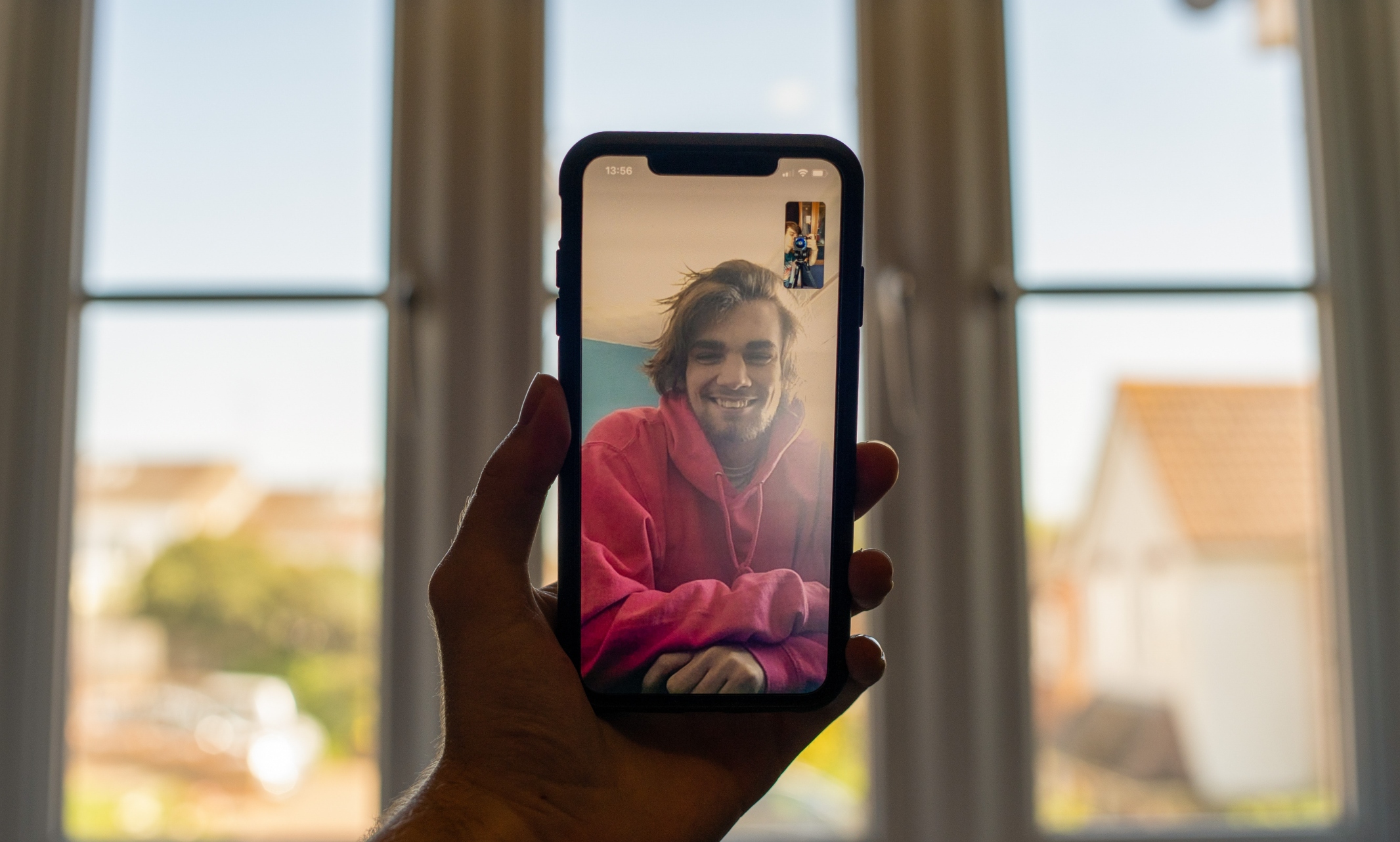
Tips for maintaining self-care and relationships during the pandemic
As the coronavirus pandemic continues, UMKC Staff Council recently conducted a panel discussion on staying connected, centered and well-grounded during COVID-19 as a critical part of protecting and maintaining one’s mental health and wellbeing.
Here are some of the key messages from the event.
Social distancing doesn’t mean social isolation.
Studies have shown that for many people, COVID-19 has led to an increased feeling of loneliness. While it’s necessary to maintain the practice of social distancing as we work together to bring this pandemic under control, it’s also important to remember that social distancing does not mean social isolation. Staying socially connected strengthens our immune system. It helps lower our anxiety levels. It helps prevent depression from setting in. And, it leads to a greater satisfaction in our lives.
Take audit of your media exposure and focus more on intentional relationships.
There are many ways that we can do that. Understanding and embracing what we do and don’t have the power to control is vital. Things such as managing our consumption of the news and social media. Be willing to simply turn off the TV, the radio and your social media, and instead make it a point to maintain social relationships. Those who are comfortable with and enjoy casual interactions with others are typically able to have personal, lasting and satisfying relationships that lead to greater mental and physical wellbeing.
Review your self-care habits and attitude.
Pay attention to your nutrition and excercise habits, and focus on fueling and strengthening your body and mind.
Maintain your regular work/life schedule as much as possible.
Engage in old hobbies or explore new ones.
Get out and enjoy nature.
Monitor your self-talk and exercise self-compassion.
Take disappointments in stride.
Be realistic about your abilities and don't strive for perfectionism.
Find COVID-safe ways to connect with other people.
So, how do we stay connected while protecting ourselves and one another through social distancing? First of all, don’t isolate yourself. Prioritize and maintain relationships by setting up regular communications with others using Zoom, Skype or other technology. Or, simply pick up the phone and call a friend you haven’t talked to for some time.
Be the one to organize activities such as:
Start a virtual book club.
Hold a virtual class and family reunion.
Host a virtual dinner party.
Take in a free online concert.
Schedule a virtual watch party of your favorite TV show or movie with friends.
Take a virtual tour of a zoo or museum.
Learn something new; take up a new hobby that you can practice together.
Find an online support group or others who share a common interest.
Consider implementing some of these lifestyle changes post-COVID.
Dealing with COVID-19 has made us rethink and, in many ways, change how we work and live. But that’s not all bad. In fact, some of these changes could provide benefits long after the pandemic has passed. For instance, with the normalizing of technology such as Zoom, we now save on time and travel by conducting more meetings and training sessions online. And many more of us have seen that teleworking can be a successful and effective option.
As you strive for work/life balance, make plans to get away from work and technology. Set boundaries. Learn to delegate or even say “no” when appropriate. Take advantage of your vacation time. You’ve earned it — use it.
And don’t forget that it’s important to get help when you need it. UMKC offers counseling services for students and the Employee Assistance Program, which provides counseling and resources for employees.
Oct 16, 2020
KCUR, Kansas City Star again taps UMKC criminal justice professor
“We’re going to very soon break the homicide rate record in Kansas City. It’s inevitable. We’re certainly on track to shatter that number,” says Ken Novak, a professor of criminal justice and criminology at the University of Missouri-Kansas City. Read the story from KCUR. Read the story from The Kansas City Star (subscription required).
Oct 16, 2020
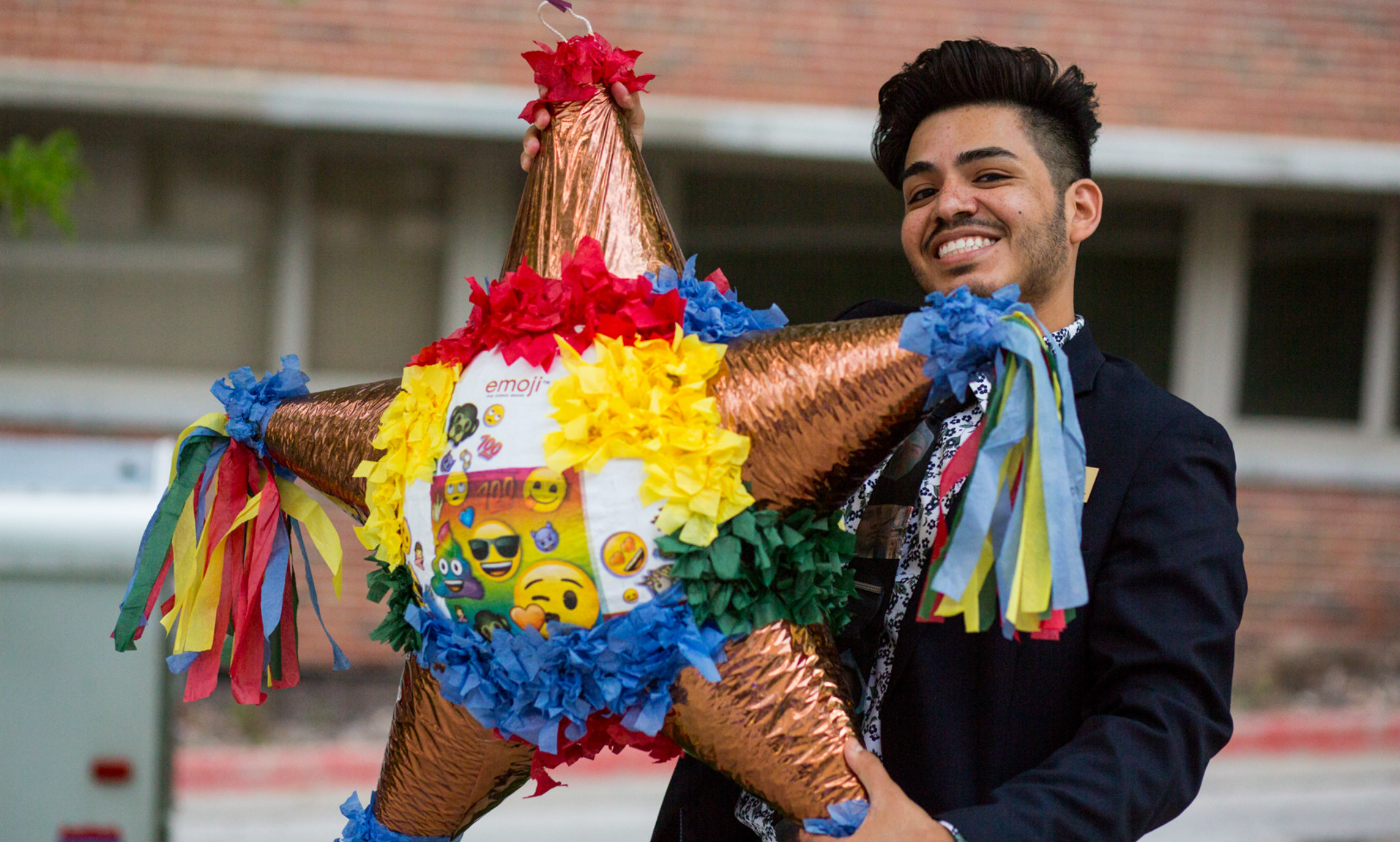
Personal experience enhances mentorship role
Iván Ramirez immigrated to the United States when he was 15 years old. He did not know anyone outside of his family or speak English. In his new role in Multicultural Student Affairs as senior coordinator of the Avanzando mentoring program, he is leveraging his personal experiences and education to increase the engagement of Latinx students at UMKC.
Ramirez is familiar with the challenges of transitioning from one culture and country to another.
“My dad had always worked in the United States, even before I was born,” Ramirez says. “We decided to move from Mexico to be together as a family when I was a freshman in high school.”
After arriving in the United States, Ramirez remembers himself as “silent.”
“I did all the things that high schoolers do — homecoming, going to football games — but I wasn't connected,” Ramirez says. “I wasn't able to attach to anything because of the language and cultural barriers.”
He says felt as if he was in the shadows and people were staring.
“I was with my small group of friends, but didn’t understand what was going on around me. The culture was different, the language was different and the educational system was different.”
His A-ha Moment
Ramirez’s parents both worked at Tyson’s Food and he felt that would be his path as well. But a neighbor saw his potential and took him to meet Uzziel Pecina, assistant teaching professor in the UMKC School of Education, who was at the University of Central Missouri at the time.
“He let me know that community college was a good path for first time college students.”
“I didn’t know what community college was. That is not a concept that we had in Mexico. But he convinced me. I went to community college and kept in touch with Dr. Pecina. When I graduated, he said, ‘That’s great! Now you have to go back and get your bachelor’s degree.’”
Ramirez started college at the University of Central Missouri and things began to click. He did earn his bachelor’s degree and started teaching. With Pecina’s continued encouragement, he completed his master’s degree.
It was through this organic experience that Ramirez uncovered the value of mentoring.
“I don’t want our students at UMKC to struggle the way I did. I want to do what Miss Gomez and Dr. Pecina did for me. It’s my priority to find a way that that works for each of our students, so there’s no need for them to be struggling.”
Part of his strategy is to reinforce something he’s learned from his mentors.
“We are part of something bigger. We’re here with a purpose. We don’t exist as a single person. There’s a collective.”
“I don’t want our students at UMKC to struggle the way I did."- Iván Ramirez
Ramirez believes that if one person succeeds, the collective succeeds.
“This comes naturally to me. As a Mexican Latino person, when I go back to Mexico, I see the collective. I see how people take care of each other in my neighborhood back home in Mexico.”
That connection is what Ramirez is trying to replicate with students at UMKC.
“It’s working,” he says. “I see that our students peer mentor organically. They are helping each other with homework. They help each other meet other people. It’s great to see.”
Helping Each Other
Adriana Suarez is a sophomore studying business administration with an emphasis in nonprofit management and a double minor in Latinx and Latin American studies and sociology. She came to UMKC through the KC Scholars program. She became involved with Avanzando her freshman year.
“Ivan was the first person to reach out to me from the university,” Suarez says. “Entering college, I had no idea what kinds of organizations were available to me as a Latina until Ivan sent out emails about a leadership retreat and the Avanzando program he coordinated.”
Adriana Suarez
Suarez had participated in leadership programs in high school, but not in a mentoring program like Avanzando.
“Avanzando has provided me an outlet to engage in the Latinx community, where I not only get to learn more about myself, but it has also taught me what it means to be a part of the Latinx community,” Suarez says.
Suarez finds Ramirez’s passion for supporting students, and his skills in pairing them with effective mentors to be incredibly helpful. But she discovered these attributes were critical during the time campus was closing because of COVID-19.
“When I didn’t know where I would be staying for the rest of the semester, Ivan helped me find resources that were available to students in my situation,” she says. “Not only that, my mentor checked in on me to see if I needed any help emotionally or academically. It was a situation that had never happened before, yet they did their best to support me.”
“Avanzando has provided me an outlet to engage in the Latinx community, where I not only get to learn more about myself, but it has also taught me what it means to be a part of the Latinx community.”- Adriana Suarez
Ramirez does not see Latinx students developing mentoring relationships in the Latinx community as having a foot in two worlds by staying connected to their country of origin while adjusting to life in the United States.
“It’s the same world,” he says. “But the goal is to find a place where people can be themselves. Once they are here, the goal is to be strong enough and secure enough in our culture and personality to use our voices on campus.”
The rise in animosity against Latinx and immigrant populations over the last four years have created challenges. Ramirez sees his role to move Latinos forward, even as he has felt at times that they have been regressing.
“I thought this challenge of assimilation and acceptance was going to be solved by the time I became an adult. But we keep moving backwards, though there are glimpses of successes and accomplishments that we all have.
The last four years have been hard on me as a professional, but also the students. They feel afraid. Just the uncertainty — whether or not their parents will be here the following day, or whether or not they will be able to have a job because of their status. That was something for me as a student that I didn't have to worry about, because we didn't have those challenges then.
But our community is really supportive. I know I'm one person, but there's a lot of people behind the program that support our students and they’re able to jump in there when the times are difficult.”
That has been Suarez’s experience.
“The Avanzando program definitely opens opportunities for its students to grow as people and professionals. It creates opportunity to build responsibility, ambition, confidence, social skills, and so many important life skills that help students, like me, advance their careers at UMKC. After all, that is what “avanzando” translates to in English — to move forward.”
Oct 15, 2020
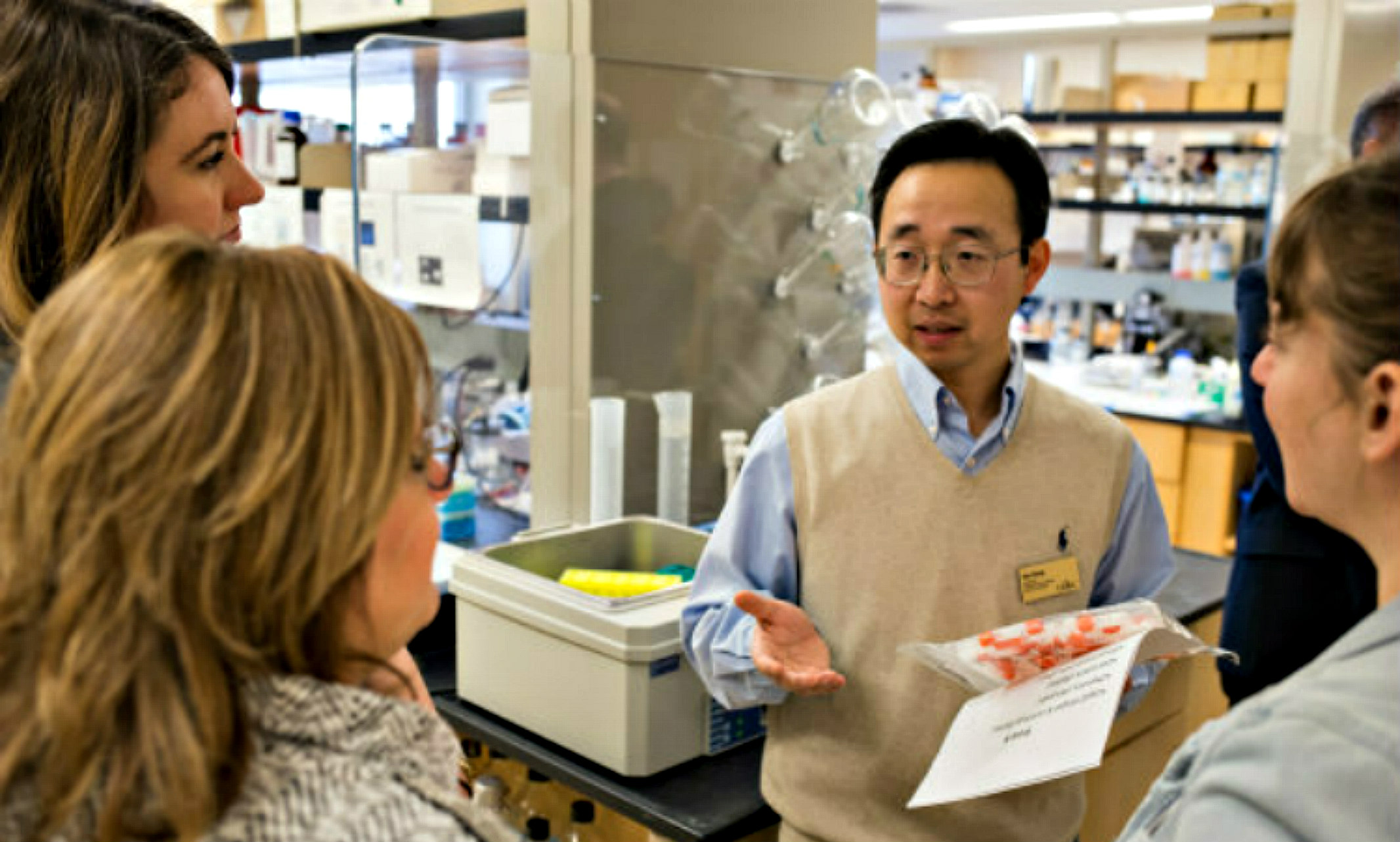
Pharmacy Professor Kun Cheng awarded as AAPS Fellow
University of Missouri-Kansas City Curators’ Distinguished Professor Kun Cheng, Ph.D., in the School of Pharmacy was named one of seven 2020 American Association of Pharmaceutical Scientists Fellows.
Each year, the AAPS Fellows Committee recommends a few members to be made fellows in recognition of their professional excellence and sustained superior impact in fields relevant to the AAPS mission: To advance the capacity of pharmaceutical scientists to develop products and therapies that improve global health.
“When I first attended an AAPS meeting as a graduate student, I was very impressed with the achievement and inspiration from the AAPS fellows. I hoped that one day I could become one of them, and today the dream has come true.” - Kun Cheng
Cheng’s research focuses on the development of novel therapeutics for prostate cancer, breast cancer, pancreatic cancer, liver fibrosis and Alzheimer’s disease. He has made substantial contributions in advancing the fields of nanomedicine, drug delivery and peptide drug discovery, winning several National Institutes of Health grant awards. He is also an active educator in mentoring a new generation of pharmaceutical scientists.
“I am truly honored and humbled to be named as the AAPS fellow this year,” said Cheng, who joined UMKC in 2007. “When I first attended an AAPS meeting as a graduate student, I was very impressed with the achievement and inspiration from the AAPS fellows. I hoped that one day I could become one of them, and today the dream has come true.
“As an AAPS fellow, I hope that I can inspire the next generation of scientists in pharmaceutical sciences. I would like to highly encourage young scientists to get involved in the activities of AAPS. This is a great place for scientists to learn, to grow and to enjoy pharmaceutical sciences.”
Cheng will be honoredin a virtual reception from 3:30 to 5 p.m. Nov. 2 during PharmSci 360, the AAPS annual conference.
Oct 15, 2020
UMKC Criminal Justice and Criminology professor weighs-in for St. Louis Public Radio
“It’s unclear whether a surge in law enforcement actually caused any change, or whether the natural ebb and flow of crime rates was going to go down anyway,” said Ken Novak, professor of Criminal Justice and Criminology at UMKC. Read the full article.
Oct 15, 2020
KSHB interviews School of Law professor
Allen Rostron, a constitutional law scholar and law professor at the University of Missouri-Kansas City, said it’s important to know your rights as a voter and understand who may be at the polls aside from the poll workers, who are there to help shepherd voters through the process and answer questions. Read the story and watch the news clip.
Oct 15, 2020
UMKC Political Science professor weighs-in
Debra Leiter, UMKC political science professor, said Alissia Canady has been much more visible this campaign than her opponent. But she said that’s a common strategy for an incumbent. Read the full article from KCUR.
Oct 14, 2020
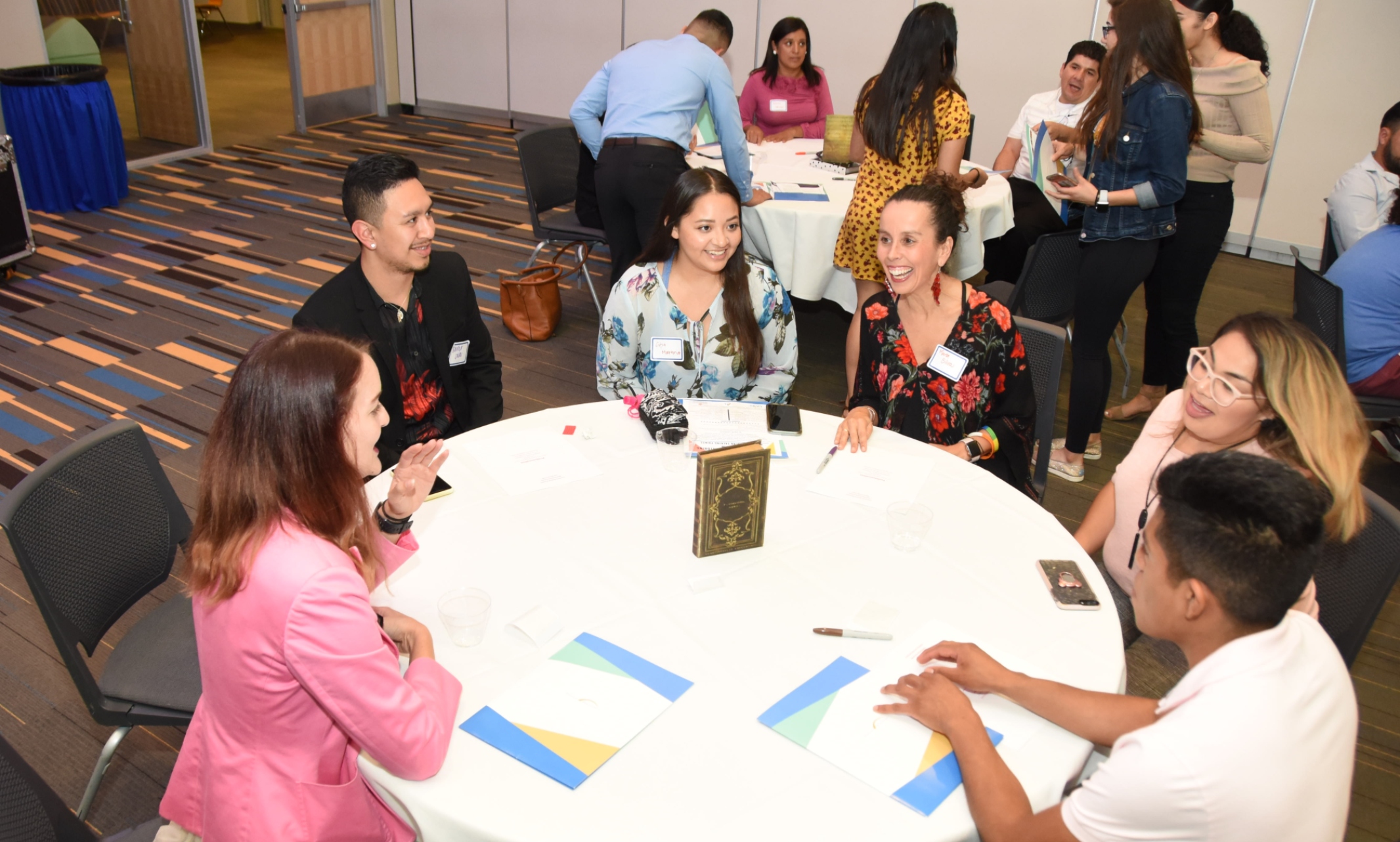
Everything you need to know about how to get started
At UMKC we understand beginning your academic journey can be scary, overwhelming, and seem impossible to afford, but we’re here to help. Here are some tips and resources to help you get started.
Fill out your FAFSA as soon as you can.
The Free Application for Federal Student Aid is the primary way need-based financial aid is evaluated. Fill out your FAFSA application as soon as possible to ensure funds are readily available. The form, which is available online opens Oct. 1.
Check out the UMKC Financial Aid website to learn about automatic scholarships, work-study positions, loans and grants.
For more information on financial aid and scholarships available, visit the Financial Aid site. To qualify for automatic scholarships, you just have to complete your UMKC application by the priority deadline.
Once you’ve applied and been accepted to UMKC, you can then explore competitive scholarships through Academic Works. Here are some tips for navigating that site.
Sign in using your UMKC username and password.
You will be directed to complete your General Scholarship Application. Depending on your major, you may be prompted to complete an additional Conditional Application which is required for scholarships in your major or area of study.
Once you complete the General Scholarship Application (and Conditional Application, if applicable), scholarships that are currently “open” will be recommended to you if you meet the basic criteria. Please keep in mind, that recommended does not constitute qualified. You can update and edit any application (including the General Application) untilthe scholarship opportunity closes.
Scholarships with the word “apply” in the action column (after you sign in) require further action on your part in order to be considered. Click “apply” to complete the application process.
Please read the scholarship eligibility requirements carefully to make sure you meet the eligibility requirements (e.g. major, GPA, enrollment requirement to receive the scholarship, other requirements as stated) before applying.
There are some scholarship opportunities you do not have to apply to but will be automatically matched to after you complete your General Application (and Conditional Application if there is one).
Search and apply for Hispanic or Latinx-specific scholarships.
UMKC is proud to offer numerous scholarships specifically for Hispanic/Latinx students. Please reach out to one of our financial aid specialists or your high school’s guidance counselor to assist further if you have any questions. In addition to scholarships throughout UMKC, there are also resources available from Kansas City, the state of Missouri, and the Hispanic Scholarship Fund (see the links below). Fill out the automatic and competitive scholarship applications where eligible. The sooner, the better!
UMKC
Avanzando Program
Agapito Mendoza Scholarship
Joel Christopher Brown Book Scholarship
Leo Long Hispanic Chamber of Commerce Scholarship
Henry W. Bloch School of Management: Martin Daneman Scholarship
Chancellor’s Historically Underrepresented Minority Nonresident Award
UMKC Hispanic Matching Scholarship
KC Scholarships
The Greater KC Hispanic Development Fund Scholarship Program
BizFest (awarded for students who attend)
Missouri Scholarships
Minority and Underrepresented Environmental Literacy Program
Other
Hispanic Scholarship Fund
Learn More About Financial Aid and Scholarships
Oct 14, 2020
Women of color and white women share experiences and perspectives
Leading women in higher education from across the U.S. participated Oct. 7 in a vrtual panel discussion, “A Dialogue Among Women of Color and White Women in Higher Education.”
The event was the sixth in the Critical Conversations series of panel discussions addressing systemic racism, sponsored by the UMKC Division of Diversity and Inclusion.
UMKC people are taking thoughtful action on campus and in our community to ensure lasting and comprehensive change through Roos Advocate for Community Change, a new campus-wide effort announced in June.
The Critical Conversations are part of that initiative. The goal of each discussion is to enlighten, to educate and to explore the causes and potential cures for racism.
Panelists for the Women in Higher Education session included:
Karen Lee Ashcraft, professor, College of Media, Communication, and Information at the University of Colorado Boulder;
Karen L. Dace, vice chancellor, Diversity, Equity and Inclusion at Indiana University-Purdue University Indianapolis;
Lona Davenport (co-moderator), senior diversity program coordinator, UMKC Division of Diversity and Inclusion;
Christine Grant, professor of chemical and biomolecular engineering, former associate dean of faculty advancement, North Carolina State University;
Jennifer Laflam, professor and director of Center for Teaching and Learning at American River College;
Tamica Lige (co-moderator), program coordinator, UMKC Students Training in Academia, Health, and Research (STAHR);
Shani Barrax Moore, director of diversity and inclusion, University of North Texas;
Julia Vargas, director, Center for Service Learning, Rockhurst University.
Excerpts from the conversation are below. A recording of the complete event is available at this link.
Excerpts:
Moore: Some white women “want to do the work (of addressing racism) and also get credit for doing it … It’s not about the credit.”
Vargas: Seeking credit for work done is a very prevalent mindset in higher education overall. “The way the system is set up pits us against each other.”
Ashcraft: the relationship among white women and women of color in academia “has transformative potential, but that potential remains latent. … There is a long history of white women not being trustworthy allies. That’s something we need to interrupt.”
Laflam: “For the first four decades of my life, racial issues were all around me but I believed that they didn’t involve me. I neglected to see myself as a raced person with racist tendencies. … This conversation is an act of love, for me and for everyone involved in it.”
White women need to focus on listening to women of color; “let me share my experience without you minimizing it by comparing it to your own.”
– Shani Barrax Moore
Dace: “One of the reasons this (conversation) is important is that women of color and white women make up the majority in multiple academic arenas. You would think that would lead to more women in leadership, but it has not. … There is a division between white women and women of color on many campuses, a division that women of color know about and most white women do not.”
Moore: To help bring down the barriers between women, white women need to “stop denying your privilege; stop denying your ignorance and willful obliviousness; stop denying the level of frustration that women of color deal with day in and day out.”
Grant: Women need to work at creating true friendships between white women and women of color; “We need to talk about more than just (race).”
Ashcraft: Factors that drive distrust of white women by women of color include “habitual reactions of fear and intimidation, which is gaslighting” and “insisting that your intentions matter more than your impact.”
Moore: White women need to focus on listening to women of color; “let me share my experience without you minimizing it by comparing it to your own.”
Vargas: At important meetings, “notice who isn’t there. If there are no women of color at the table, speak up. … Ask how do we build a bigger, more inclusive table.”
Dace: White women in leadership positions “have to make sure that your replacement does not look like you, and make sure people of color are having the kinds of experiences that make them ready to step in.”
Oct 13, 2020
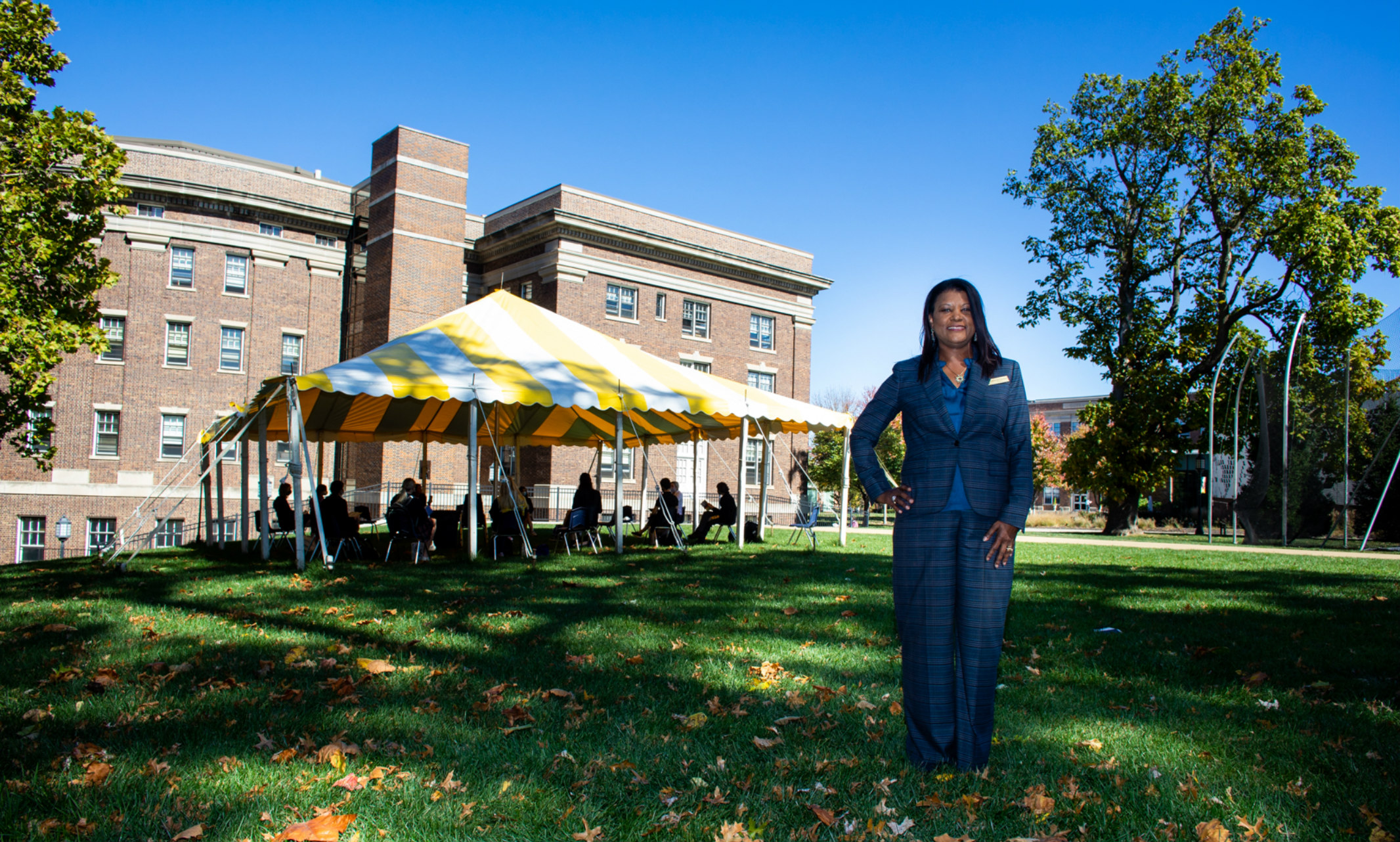
St. Teresa’s Academy President Siabhan May-Washington finds collaboration and compassion are key
People point to St. Teresa’s Academy President Siabhan May-Washington, Ed.D. as a model of school leadership during the pandemic.
May-Washington, B.A. English '88 and M.A. Curriculum and Instruction '91, admits COVID-19 caught her completely by surprise. As students and teachers were preparing for spring break, she was approached by a board member about her plans for the new novel coronavirus.
“I had read about the virus and I let him know that we would make plans to ramp up sanitation. He said, ‘I hate to scare you, but you need to be doing more than that.’ It heightened my sense of urgency. Then the very next day, hundreds of universities were sending students home, including my own children at college.”
May-Washington immediately convened her administrative team, that includes academic principal Barbara McCormick and principal for student affairs, Liz Baker, Ed.D, to develop a plan to ensure that teachers and students took everything they would need at home – including their computers – so they could continue their work once the break was over.
“That was a first foray into the pandemic,” she says. “We did not go back on campus after spring break until this fall.”
“Some districts were posting assignments for the week with no human contact. We knew that wasn’t going to work for us.” - Siabahn May-Washington
May-Washington was fortunate that she had already established systems for remote learning.
“We had developed a system for students to work remotely during snow days, so they were accustomed to the virtual format. Not that they were thrilled about it,” she says with a laugh. “But they were used to that form of learning.”
This real-time online instruction worked well for students and teachers last spring. At the same time, May-Washington was gathering information about how other schools were handling the shutdown.
“Some districts were posting assignments for the week with no human contact. We knew that wasn’t going to work for us,” she says. “As we approached fall, we knew that to be successful we would need to maintain close contact with our students, not only in class, but also through their group advisory meetings, prayer check-ins and lunch buddy sessions.”
May-Washington relied heavily on her administrative team to develop fall programming.
“I formed the President’s Visionary Council Team when I started at St. Teresa’s last year. That team is made up of all the directors – development and marketing, college counseling, facilities and development and marketing.”
The Visionary Council morphed into the COVID-19 task force. In addition to their input, Jo Weller, B.S. Math ‘93, M.A. Curriculum and Instruction ‘95, who was director of curriculum and instruction, surveyed the students, teachers and parents about their thoughts and concerns.
“We determined that learning entirely online did not work well. So, we began to develop a very detailed, robust plan to reopen in the fall,” May-Washington said. “But while I had a cabinet full of research, we realized we needed additional support.”
May-Washington contracted with MRI Global, who reviewed their reopening plan and helped the school come up with thresholds and develop alternatives to exclusive online learning.
“They talked to our leadership team, but also our parent community and the facilities staff to educate our complete community about the severity of the virus and the steps that we needed to take to have safe learning on campus.”
In addition to putting safety measures in place, such as daily health check-ins, social distancing in classrooms and one-way traffic directions, May-Washington had large tents erected on campus.
“This gives us the option to have our kids outside learning on campus as much as we can,” she says. “We use them for lunch, the girls’ advisory group meetings and the teachers have the option to hold classes outside.”
While May-Washington could have worked solely with the board of directors to develop a plan, she thinks that letting people have input and involving MRI Global created an environment of collective ownership.
“I think it’s important to bring all the stakeholders who are part of the community to weigh in, especially if they are going to be in the trenches. Our teachers were very concerned about mask-wearing policy, physical distancing in the classrooms and what the consequences would be if they were not followed.”
Young adults are one of the most challenging demographics when it comes to following preventative guidelines in mitigating the virus. May-Washington says it was critical to let people express their emotions around this during the planning. Their gating guidelines are very conservative and the school did move to hybrid shortly after the semester began.
“After the first week of school, we had eight students test positive for the virus,” she says. “While they did not contract the virus at school and had followed all of our safety guidelines, we thought it would be a good time to shift to hybrid to practice the hybrid schedule, but also for peace of mind for our community.”
After that week of hybrid learning, students have been on campus full time since. While classes are going smoothly, May-Washington recognizes that students are under increased pressure. St. Teresa’s has had counseling services in place, both for personal and academic concerns. In addition, May-Washington contracted with Sources of Strength, a national program to bring students together to talk about emotional health and as a resource in suicide prevention.
“In addition to the counselors and this program, our students’ advisory groups are like a homeroom family. They have lunch together and meet every day. It’s a tremendous support system. And, of course, being a Catholic school, we have a campus ministry department that is very involved.”
“I like having my hands on all areas and helping to use my experience and expertise from the classroom for the greater good of the community.”
While May-Washington has responsibilities relating to the health of the entire school community, she is also working to balance her own personal responsibilities. She and her husband, Rick Washington, who is a teacher at Allen Village Charter, are juggling their jobs as well household responsibilities and the care of their three children.
“He’s a great partner,” she says. “Two of our children are in college, but our youngest is in fifth grade. He’s very involved, which is great when I’m at meetings late in the evening.”
This teamwork is critical as May-Washington’s dedication extends beyond St. Teresa’s to the larger Kansas City community. She served on a panel with area public school leaders and is sharing ideas with her fellow area private school administrators at a weekly online meeting.
May-Washington started her career as an English teacher and did not foresee moving into administration, but she finds she enjoys responsibilities beyond the classroom.
“I like having my hands on all areas and helping to use my experience and expertise from the classroom for the greater good of the community. I didn’t envision doing this type of work, but t’s been a great evolution.”
Oct 13, 2020
UMKC Critical Conversation also features student leader and criminology professor
The fifth in the UMKC Critical Conversations series addressing system racism continued a multi-segment discussion of the future of policing in Kansas City.
This session, held on Zoom Oct. 5, featured Kansas City Mayor Quinton Lucas; Ken Novak, professor of criminology and criminal justice at UMKC; and UMKC Student Government Association President Brandon Henderson. Gary O’Bannon, executive-in-residence at the Henry W. Bloch School of Management, moderated the talk, fielding questions UMKC students submitted to the mayor.
The meeting was a continuation of the dialogue that began between Lucas and UMKC students earlier this summer. Many UMKC students and alumni attended the protests on the Country Club Plaza that began in late May after the death of George Floyd at the hands of police officers in Minneapolis. O’Bannon said that while Floyd’s death was a flashpoint in race relations, Kansas City has its own history of police brutality to confront. Protestors have voiced their concern over the absence of justice for the treatment of Ryan Stokes, Breonna Hill and others as evidence that the Kansas City, Missouri Police Department is systemically racist.
Listen to slices of that conversation:
Lucas: “One thing I am heartened by about this moment, particularly students, activists and others who have been part of it, is that it is sustained. It has continued to push change for us.”
“You have to stop allowing the things that are creating inequalities in our system…if you just change personnel but keep the same rules…you’re going to have all of these problems.”
Henderson: “I’m a senior, a Kansas City native and before all of that, I’m a Black man…And so like many young Black people in this city, I’ve decided it’s incumbent on me to protest and show up against the lack of action from our police department and local government, and it is incumbent upon me to help hold our elected officials accountable, which is part of why we’re having this meeting today.”
Novak: “The larger question about the defund movement, where do we place our resources to get the biggest bang for our buck? And I think that’s a very healthy conversation to have. That is something that has to happen at the local level because all policing is local.”
The UMKC Chancellor’s Office and Division of Diversity and Inclusion host Critical Conversations, which is part of Roos Advocate for Community Change, a campus-wide effort about thoughtful action on campus and in our community to ensure lasting and comprehensive reform.
Listen to the whole conversation
Oct 12, 2020
Dramatic ‘Light Up the Night’ Salute to return
The University of Missouri-Kansas City will conduct a virtual commencement December 19 to honor students earning degrees from the Kansas City metro’s only public research university.
The ceremony will be similar to the university’s first-ever virtual commencement in May. Again, students will receive celebratory packets that will include honor cords, a traditional Roo pin and other surprises. UMKC is again working with friends and supporters across Kansas City to celebrate our Fall semester graduates with another spectacular “Light Up the Night” salute, with iconic Kansas City buildings lit up in vivid Roo blue and gold.
“Earning a degree from an accredited research university such as ours is a true achievement, one worthy of celebration,” said Chancellor Mauli Agrawal, Ph.D. “In these times, as the COVID-19 pandemic continues, our celebrations must be planned with care. The health and safety of our graduates and their loved ones must remain our highest priority.”
In addition to going virtual in December, UMKC announced that it still intends to have an in-person commencement for May and December 2020 grads at some future date – but will postpone setting a date until health and safety conditions permit. Earlier in the year, UMKC had hoped to hold that in-person celebration in December.
In a letter to campus, Chancellor Agrawal and Provost Jenny Lundgren said: “Clearly, we do not know when large events will be safe again and cannot realistically set a date at this time.”
But they noted that they “firmly believe that every UMKC graduate should have the opportunity to be personally recognized for the degree they’ve worked so hard to earn in the presence of their loved ones and closest friends and fellow graduates.”
UMKC leaders worked with students to plan the virtual ceremony last spring and consulted with them again on the decision to stay virtual this fall while continuing to plan for an in-person ceremony once it is safe to hold one.
"I support the decision to take December commencement virtual, and I'm looking forward to sending off our UMKC Roos with a meaningful and safe celebration online,” said Brandon Henderson, president of the UMKC Student Government Association. “This decision will undoubtedly leave some students disappointed, but our first priority must always be student safety. This is an extraordinary moment we're living in, and we have to muster the courage to make tough decisions like this if we're going to beat this virus for good."
Oct 12, 2020
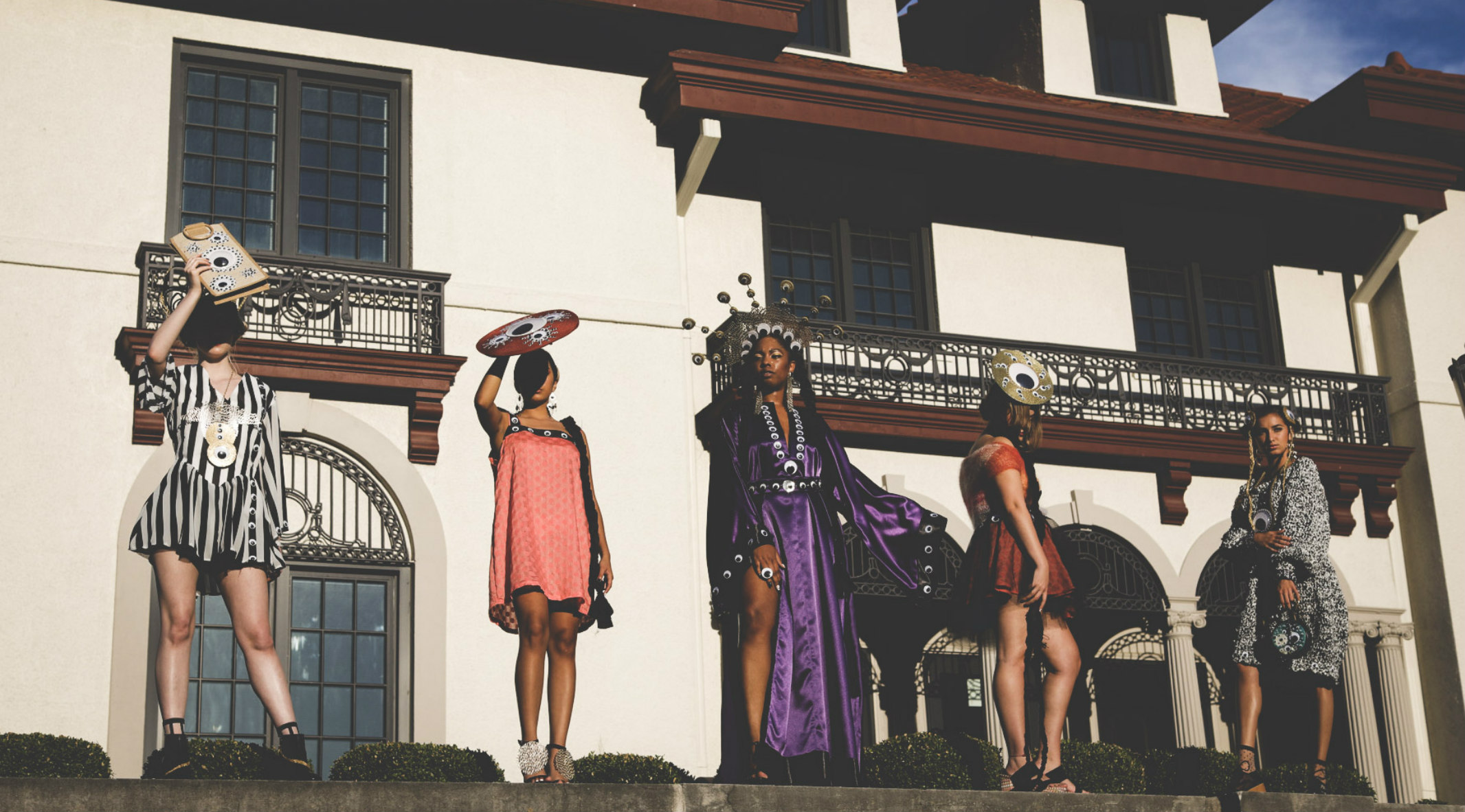
The show must go on and will go on Friday, Oct. 16, ticket info below
Celeste Lupercio (B.A. ’95, sociology) graduated from UMKC and began her career working in children’s psychiatric care in Kansas City. Using the extensive skills she’d developed, Lupercio shifted mid-career to event management and is currently the senior director of sales, marketing and events at the College Basketball Experience. The COVID-19 pandemic meant a different kind of transition; this time into fashion.
She’s been working from home since the spring, but Lupercio has also focused her energy on the West 18th Street Fashion Show: Summer in Hindsight. This treasured community event airs Friday at Boulevard Drive In.
Tell me what transitions you made personally because of the COVID-19 pandemic.
The College Basketball Experience closed March 16, and I’ve been working at home since then. It’s challenging though. I am used to being engaged in the community. I’m involved in a lot of volunteer positions – some at the board level. And I feel very lucky to be able to focus on the West 18th Street Fashion Show.
How did you make the transition to event planning from social work?
I worked as a case management liaison at a psychiatric hospital for children for 18 years. I wasn’t burned out, but I needed a different challenge. A large part of my responsibilities was communication, reorganizing priorities and case management liaison tasks. I thought event planning at a not-for-profit organization would be a good fit for my skills. I did some contract work for a while and then ended up interviewing at The College Basketball Experience. The CEO was kind enough to listen to me and recognized how my skills would apply. I’ve had several promotions since then. It’s been a great experience.
How did you become involved in the 18th Street Fashion Show?
Last year the founder, Peregrine Honig, asked me to come on board after I helped manage the patron party. I love the event and thought working on it would be great. Peregrine was studying the Bauhaus movement last year and reading a lot about it. It inspired this year’s theme, Summer in Hindsight.
You thought you’d be planning an event outside on 18th street in the Crossroads District. How did the shift to filming the event take place?
This is the 20th anniversary of the show. The logistics were in place. No one wanted to cancel the show, so we shifted so we could work to keep everyone healthy. The new plan was to film each designer separately and create a film.
We scouted different locations and ended up with 19. Most were willing to participate for free. We shot each designer in a different location over the course of two weeks with nine intense days of shooting.
We were fortunate that everyone was on the same page as far as the virus is concerned. We all believe in science. We all wore masks. We worked with a skeleton crew to minimize interaction. A colleague loaned us powerful portable air filters to clean the air on location.
Besides being a film, what will make this year’s event stand out?
[Singer and musician] Calvin Arsenia, this year’s star, performed last year and received a standing ovation. His energy is so great. After last year’s performance he said, “I want to be musical director next year.” He’s composed music based on what each designer is doing and has helped with editing the movie.
It has always been a diverse group of designers, but with the resurgence of the Black Lives Matter movement, we made a point of making sure that every level of the event had diversity – the designers, the producers, the board.
The film will debut at the Boulevard Drive-In Theatre on Friday, October 16. What do you think the experience will be like for the viewer?
Usually, spectators are physically outside on 18th Street sitting in chairs or standing. I think it’s possible that this may be a more focused experience for the viewer as they will be in their cars – their own private space. Also, they won’t be standing, or hot.
Even people who have gone to the show before will be surprised. No one knows what to expect. I think they will be on the edge of their seats. Besides, we are all missing live performances. This will be closer to that.
Is there one showing? It appears the movie can be booked for private events.
The film will be shown at the Boulevard Drive-In on the Oct. 16 at 7 p.m. and 9:30 p.m. But I do think if an organization wanted to host an event, Boulevard’s owners may be receptive to that.
We will have cameras there that night and re-edit the director’s cut that will include behind the scenes footage. We are hoping to submit that version to film festivals. We haven’t done that before, but we will figure it out!
This sounds as if it’s been an incredible amount of work at a very challenging time.
This has been the most altruistic thing I’ve done. It’s been exhausting, but amazing to work with such dedicated and talented people.
The whole experience has been so fulfilling and intense. We will all have to focus on maintaining our emotional health with the lack of all that energy and activity once it is over.
Summer in Hindsight will premiere at the Boulevard Drive-In Theatre. To purchase tickets or donate to the organization, visit West 18th Street Fashion Show.
Oct 12, 2020
Beth Vonnahme weighs-in
“There are official rules that govern the presidency, and then there are norms that govern the presidency,” explains Beth Vonnahme, a professor of political science at University of Missouri-Kansas City. She says that while Americans generally expect matters of national security to be shrouded in secrecy, “there’s the expectation that we’re given the truth about the president.” Read the full article from KCUR.
Oct 11, 2020
Bloch School professor talks about economic recovery
Expanded unemployment benefits and federal aid to small businesses were key to the robust rate of recovery early on, said Nathan Mauck, an associate professor of finance at the University of Missouri-Kansas City. So far, the region’s rebound has been rapid, but not complete, he said. Read the full article from the Kansas City Star. A subscription may be required.
Oct 11, 2020
US House, Senate races garner widespread attention
“State and congressional polling has been more hit or miss, so there’s a greater degree of uncertainly,” Greg Vonnahme, an associate professor of political science at the University of Missouri-Kansas City, said in an KSHB story.
Oct 11, 2020

Looking for strong candidates to lead community asset, research powerhouse
Provost Jenny Lundgren announced that a national search for the next dean of the University of Missouri-Kansas City School of Dentistry will get underway in early November.
“The UMKC School of Dentistry is a huge asset to the Kansas City community, delivering clinical care to more than 60,000 patients each year,” Lundgren said. “It is also internationally known for its research in dental biomaterials and bone biology. We’re looking for strong candidates who can build on the enormous impact of this more-than-century-old institution and continue to move the dental profession into the future through compassion, education and innovation.”
Founded in 1881 as the Kansas City Dental College, the UMKC School of Dentistry is the only public dental school in Missouri and Kansas, and most of the oral health professionals in those states are alumni. The school also has a large alumni base across the ocean in Hawaii that dates back to World War II when much of the U.S. was seized with fear of Americans of Japanese descent; the dean at the time took a different path and welcomed Japanese American students with open arms. In 2016, the school was one of only three schools in the country to be recognized with a Health Professions Higher Education Excellence in Diversity (HEED) Award from INSIGHT Into Diversity magazine, the oldest and largest diversity-focused publication in higher education.
The UMKC School of Dentistry is known around the world for its research, consistently winning significant National Institutes of Health grants and attention from media around the country and the globe.
Lundgren said the search committee also will be looking for a dean who can build on community engagement and fundraising. In 2019, the school opened a new state-of-the-art simulation lab funded through donor support.
The UMKC School of Dentistry is part of the UMKC Health Sciences District, collaborating with the UMKC Schools of Medicine, Nursing and Health Studies and Pharmacy as well as Children’s Mercy, Truman Medical Centers and city, county and state health institutions.
Marsha Pyle, who served as dean since 2009, retired in September, and School of Pharmacy Dean Russell Melchert is serving as interim dean until the next dean is hired in the spring with an anticipated start in the summer of 2021. The UM System Talent Fulfillment team is assisting UMKC in the search. Community forums are planned to be held in March or April.
Search Committee
Joy Roberts, search committee chair, interim dean of the School of Nursing and Health Studies
David Suchman, chair of the Rinehart Foundation
Ellyce Loveless, student services coordinator
Lance Godley, faculty chair, vice chair of restorative clinical sciences
John Killip, emeritus faculty, former associate dean of student programs
John Cottrell, clinical instructor in behavioral sciences, director of minority and special programs
Sarah Dallas, professor of oral and craniofacial science, researcher
Julie Sutton, associate professor of hygiene
Keerthan Satheesh, associate professor, chair of periodontics
Liz Kaz, associate dean for academic affairs, hygiene
Connie White, associate dean of clinical programs, community relations
Rukevwe Erhenede, third-year student, president of Student National Dental Association/Hispanic Student Dental Association
Russell Tabata, Hawaii, Bill French Alumni Service Award recipient
Makini King, director of diversity and inclusion initiatives
James Wooten, Professor, Department of Medicine (Section of Clinical Pharmacology), School of Medicine, Faculty Senate
Andy Goodenow, chief information officer
Oct 09, 2020
Zahra Niroobakhsh was one of 75 researchers chosen by the American Chemical Society
As an urban university, UMKC is growing and expanding in many new research areas, which makes it a great place for young faculty to inspire students and launch groundbreaking research careers. Just a few years into her first academic appointment within the School of Computing and Engineering Zahra Niroobakhsh was recently named one of 75 young faculty to receive a Doctoral New Investigator grant from the American Chemical Society in 2020.
Doctoral New Investigator (DNI) grants provide start-up funding for scientists and engineers in the United States who are within the first three years of their first academic appointment at the level of Assistant Professor or the equivalent. The assistant professor, who joined UMKC in 2018, shared details about her research and award.
Zahra Niroobakhsh
Why did you choose UMKC to launch your career as a researcher?
I liked the fact that UMKC has a friendly environment, supportive leaders and many potentials for expanding the research given the opening of the new building, Robert W. Plaster Free Enterprise and Research Center, in our school.
What classes do you teach in the School of Computing and Engineering?
I teach Engineering Thermodynamics (ME299) for sophomores and three classes for senior undergraduates and graduate students -- Introduction to Biomaterials, Introduction to Soft Materials and Polymers and Advanced Thermodynamics.
You’re also leading the niROO PRISM Lab, out of which came (student) Mahsa’s Droplets as Continents piece up for auction with Science2Art. Can you tell me more about the lab’s ongoing research studies?
In the niROO PRISM (Printing and Rheology of Interfacial Soft Materials) Lab, the main theme is to use various liquid/liquid-interfacial systems to investigate the structure-property relation of soft interfacial materials.
Currently, one of our focuses is to achieve self-supporting objects by printing liquid into another interactive liquid using our home-built 3D printing system. This work has potential applications related to biological, medical and drug delivery systems. Another focus is using food-grade surfactant systems to remediate oil spill in the ocean in a more sustainable way. That is the research Mahsa’s Science2Art work, which is being auctioned at BioNexus KC, comes from. We’re proud of her.
What got you interested in exploring oil and petroleum?
My research field overlaps with many environmental areas in the oil and petroleum fields due to the presence of similar interfacial phenomena occurring at the interface of the seawater and crude oil. My research has potential impacts on the oil industry and ultimately more sustainable environment.
The DNI grant awards $110,000 over two years for “investigator-initiated, original research.” What are the goals of your proposal?
The proposal aims to develop bijels (bi-continuous interfacially jammed gels) that are sponge shaped, bi-continuous emulsions stabilized by nanoparticles made from the relevant components used in the Enhanced Oil Recovery (EOR). We will tune the bijels stability and rheological properties so that it delays the transition from soft viscoelastic to rigid solid while it enhances the stability of systems in harsh conditions. The proposed research will provide a fundamental understanding of how bijel emulsion can help to improve recovery efficiency and reduce complications during EOR, which is a worldwide concern.
What influenced this project?
While conventional oil recovery techniques are only able to recover about a third of oil from their oilfields, a great amount of original oil in place remains trapped in a discontinuous phase of air, brine and oil. Due to the increasing demand for oil in the market and difficulty to find new giant fields, applying enhanced oil recovery technologies are the most viable and economic way to maximize the recovery efficiency of residual oils.
What have you discovered so far in your research?
Due to new COVID circumstances, the start of the research program is a bit delayed. We’ll start research soon.
Can you describe the achievement of being one of the 75 selected this year?
I feel honored to be the recipient of the Doctoral New Investigators by the American Chemical Society; it's a highly competitive and prestigious award, and it certainly gives me the confidence that my research topic has the potential to be expanded in the next few years. The funding will allow me to expand my research areas in this new direction and expand my research group.
Looking ahead, what do you hope to accomplish in your work – any cutting-edge discoveries, new research methods, major grant awards you’d like to pursue?
I am interested in revisiting the surface sciences that are traditionally applied in detergents and daily care products and using them in new technological advancements like energy storage, and medical and 3D printing applications. I am grateful of the ACS-PRF funds that allow me to obtain preliminary data that could be used for my future career awards.
Oct 09, 2020
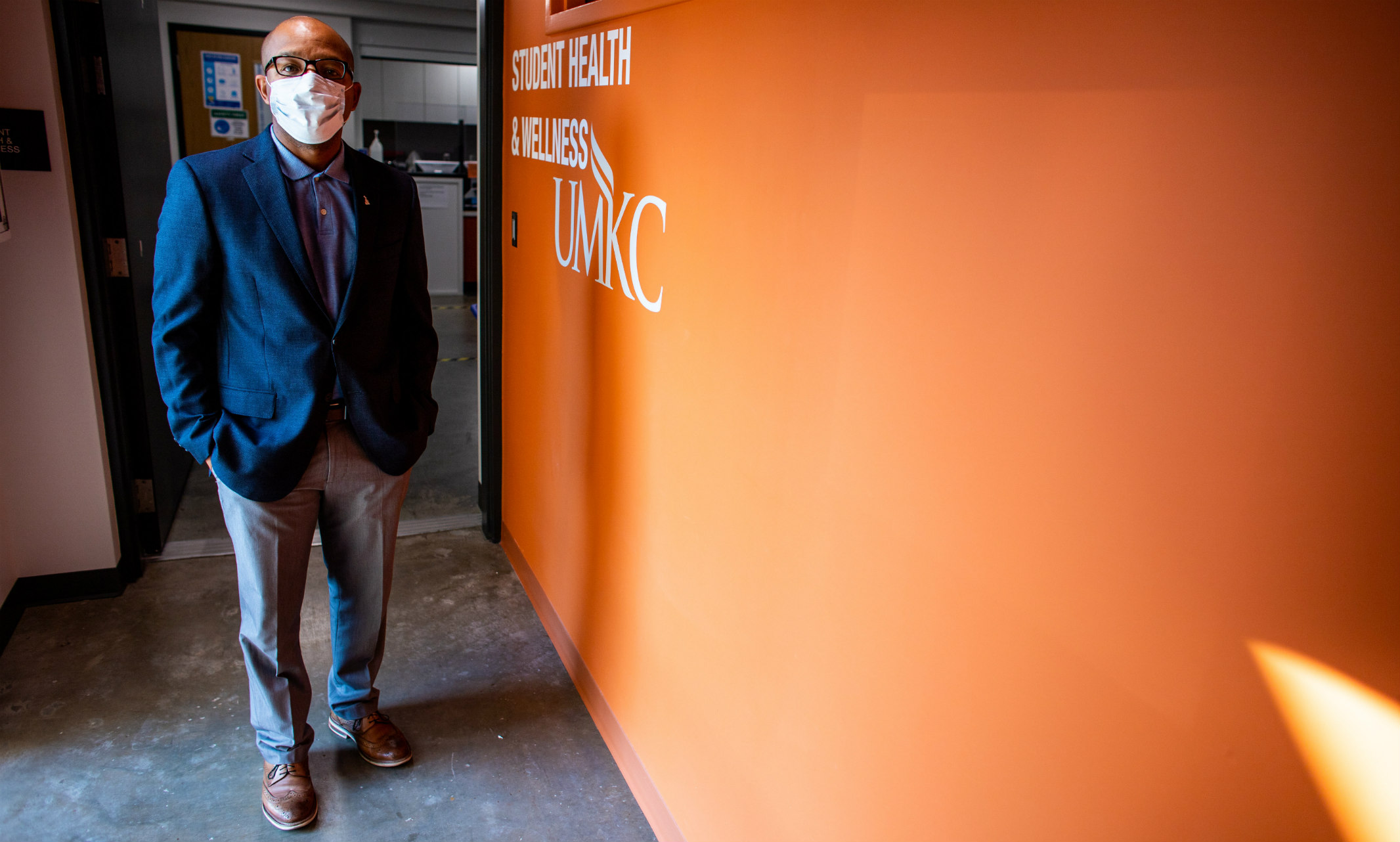
Obie Austin has a place in his heart for minority students of all ages
The “Black Excellence At UMKC” series helps to increase awareness of the representation of diversity and equity on campus and show a visible commitment to the inclusion and recognition of Black faculty and staff. This series celebrates and highlights Black and Roo faculty and staff working behind the scenes and on the frontlines to help our university achieve its mission to promote learning and discovery for all people at UMKC and the greater Kansas City community.
Obie Austin, director of Student Health and Wellness, has been schooled by both life and a quality education at UMKC. He revels in the opportunity to take the lessons he’s learned and apply them for the benefit of his family, community and the students he mentors. And he’s still learning himself. Through his daily interactions and work on campus, he’s able to experience and learn about the many diverse people and cultures that exist within the UMKC community.
Name: Obie AustinRole: Director, Student Health and WellnessTenure: 18 yearsHometown: Kansas CityUniversity/Alma Mater: Missouri Western State College, UMKC Degree Program: MSN Nursing
Why did you choose UMKC as the place to grow your career?
I came to UMKC as a student in 1996. Once I finished my program at the School of Nursing and Health Sciences, I was asked to stay on as an adjunct faculty. It sounded like an opportunity and I didn’t think about it much further. It turned out to be a passion. That short introduction to working with students was amazing. It shouldn’t have been because I was heavily involved in SGA as an undergraduate, but I found that I got the same warm and fuzzy feeling from helping people achieve their highest potential as I got from providing care to individuals and families.
"I am still fascinated by the body of knowledge I obtained on this very campus and how that continues to grow."
What do you enjoy most about working at UMKC?
Hands down, I enjoy the opportunity to change lives more than anything else I do. I understand the power of mentorship. Even if you don’t have a personal relationship with someone, just having the opportunity to see someone that looks like you succeed is an inspiration itself. Someone opened a door for me, and I revel at the chance to do that for others.
I learn daily. My interactions with others, specifically with others from so many varying cultures are intoxicating. If you’re willing to ask a question, the entire world opens up to you right here on our campus. I want to know why you have your name, what it means, and why your dialect is different from the other person here on campus from the same country. Cook some food and bring it to me so I can close my eyes and imagine being where you are from, why does your whole family have a certain pattern to the clothes they wear and what does it mean, I can go on and on…there’s so much to learn!
The campus is perfectly located, gorgeous and filled with young adults that remind me of myself and filled with people that have set out to change lives. Did I say that the power to change lives can be intoxicating?
How did you decide this career was right for you?
In the late 80s, we were having a nursing shortage and were at the beginning of the HIV epidemic. I worked at KUMC serving water to patients and the nurses asked if I was willing to help them with afterlife learning for their patients. I said sure because what boy wouldn’t want to see a dead person. Watching the nurse provide such respectful care of those patients lit a fuse, and the fire has been burning ever since. I immediately dropped out of engineering school (I had a 1.9 GPA anyway), took a year to get my grades fixed and ran off to nursing school never looking back.
I smile daily and love coming to work to do this job. I always wonder what more I can do. I am still fascinated by the body of knowledge I obtained on this very campus and how that continues to grow. Those are great signs that you are where you belong, right?
"What’s been unique about managing this pandemic is the fear. Fear is best handled with education, and we do that well here at UMKC."
What are the challenges of your career field?
You can’t fix everything. The world isn’t fair. I have a special place in my heart for minority students. We often face the trauma that the world and inequality have placed on these students and sometimes four years is not enough to unravel that trauma. It’s often disheartening. You want them to know that they can do anything if they believe it. Some you can inspire to achieve that goal and some you can’t.
That’s very personal for me because I’ve been there. I was lucky that someone got to me and planted a seed. They, then, stuck around to water the seed and witness the growth happen. I hope that I am a person that sticks around to pour the water.
From a care standpoint, sometimes you want so much for your patients but, for whatever reason, they are unable to get to their goal. That can be tough.
Photo taken circa 2018, pre-COVID
What are the benefits of your career field?
There is nothing better than saving a life. I get to do that in many ways -- providing healthcare, mentorship, education and counseling. It’s a very stable and noble profession with a great deal of flexibility and good compensation that helps me provide a good life for my family. It’s also a well-respected position that brings honor to the African American community.
What other roles have you had at UMKC?
Student, adjunct faculty, clinical instructor, associate professor, nurse practitioner, administrator, director… mentor
You’ve played an integral part in managing the university’s response to COVID-19, especially in tracking and monitoring cases and student health. How have your educational and career experiences equipped you to be able to lead at this time?
I’ve had the pleasure of serving our country in both the Army and the Navy. Leading through armed conflict, we learn to be still in chaos, be focused, be decisive and don’t hesitate to provide direction. These lessons follow me everywhere I go. I found these tenants of leadership to be helpful, especially at the beginning of the pandemic when there were so many unknowns and fears.
As a healthcare professional, we interact with illness as a normal part of our daily routine. We approach our jobs the same way every day so, in that regard, I felt well-prepared to handle COVID. What’s been unique about managing this pandemic is the fear. Fear is best handled with education, and we do that well here at UMKC.
I’ve also had the pleasure of working with some incredibly talented professionals, including staff and students. We’ve worked hard to keep this campus safe and support each other as we face the challenges of COVID.
"We have a lot to offer at UMKC."
Having been involved with UMKC in various capacities, you’ve gotten to work and connect with many different people. How do you connect and establish relationships with Black faculty and staff in other units and departments?
Race provides a sort of kinship through seemingly shared experiences. I think we all feel a little closer, unconsciously, to people that may have had a shared experience or who may look like we do. There is a familiarity that reminds you of a cousin, aunt or parent that makes the forming of relationships feel a little easier.
We are small in numbers on this campus, so it is honestly a little challenging to meet other folks that look like me. I try to just get out and participate where I can. Being involved in campus activities, attending meetings and serving on committees has been extremely helpful to me in building relationships on campus. I often walk the campus just to meet people in general. I have noticed that during the pandemic there are more concentrated efforts to gather as Black faculty and staff. This is very helpful, and I hope it continues. We have a lot to offer at UMKC.
You’ve spent much of your career serving in the urban core of Kansas City – whether working or volunteering at clinics or with youth groups. How are you currently involved in the Kansas City community outside of UMKC?
COVID has affected everything, even the ability to act and have time to volunteer.
I am currently most active with Rose Brooks Domestic Violence Center serving on their Medical Advisory Board. This is currently the only organized volunteer activity that I am committed to.
Individually, I’m actively mentoring about 10 young adults -- four young ladies that are here in nursing school and five young men that are post-high school students trying to figure out what’s next in their journey.
I continue to do safe sex and men’s health presentations throughout the community as asked, and I’m actively involved in helping my home church and other faith-based organizations plan how to safely reopen their doors during and after the pandemic.
"Someone opened a door for me, and I revel at the chance to do that for others."
How do you mentor and give back to students on campus?
My focus tends to be on the health professions students. I often offer my services as a mentor or tutor during lunch hours, but I find that my position in student health has given me a platform to reach all students. We have an opportunity to see students in venerable situations whether its illness-related, being homesick, or just lost under the weight of life. Here is where my education takes a back seat and my parenting skills kick in. Our students often need a listening ear and a familiar voice of assurance. As a middle-aged Black person on campus, we often fit the picture of a comforting parent. I try to take advantage of that role as often as possible.
What is one word that best describes you?
Resilient. Man, this life has thrown some things at me over the course of my 50-plus years! But my God has always seen me through. I’ve learned that if you have the ability to just stand, you can make it through any storm. So I just stand.
"I hope that I am a person that sticks around to pour the water."
What is one piece of advice you’d give a prospective faculty or staff member looking to grow their career at UMKC?
Allow yourself to be present here. The students are infectious and make you want to be better at what you do. Many people come and do their job and leave without out interacting with our young folks. They will make your days better if you let them.
What is one piece of advice you’d give a student wanting to follow in your footsteps?
Shadow a professional and make a friend that is doing what you want to do. Age does not always define friendship. There’s a lot to be learned from having a strong relationship with someone who has spent a little time in the shoes you want to wear.
Oct 09, 2020
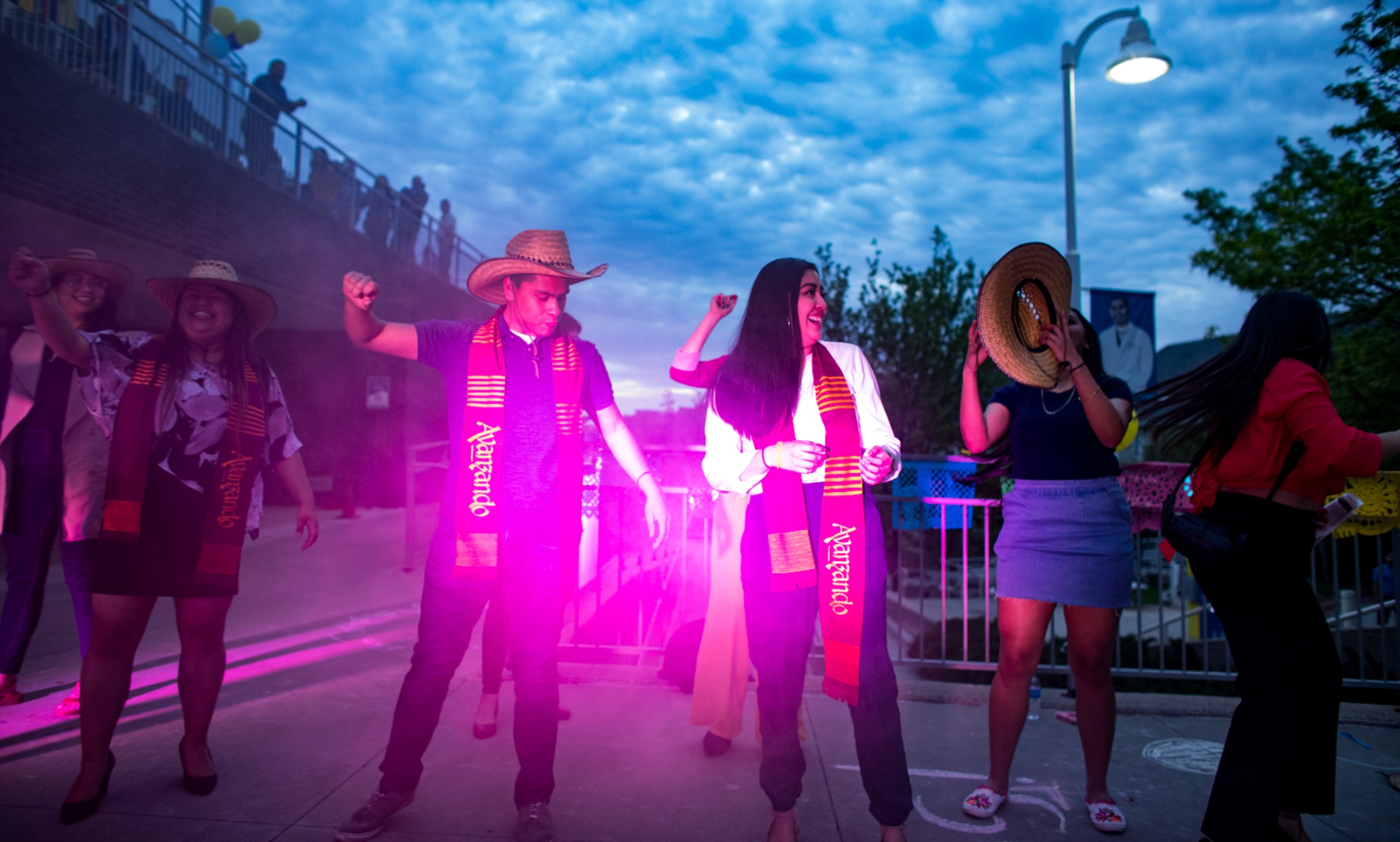
Students and alumni share their stories about the Latinx community and UMKC resources available
We want to shine a spotlight on the Latinx culture at UMKC during Hispanic Heritage month. Hear firsthand from students, alumni and faculty about their experiences at UMKC and the resources, opportunities, and programs for Latinx students that helped them navigate college.
What does a mentorship look like at UMKC?
“It’s such a joy. It’s such a rewarding experience. And it’s a way of paying back all the opportunities I have had in life. If I hadn’t had mentors, I wouldn’t have come as far as I have.” - Clara Irazábal-Zurita, Ph.D., mentor
“I just know she’s there, that I have someone to go to to ask for guidance and advice. I know I have someone to talk to.” - Aricela Guadalupe
“For me being a first-generation college student, none of my family members knew anything about college or knew the struggle or challenges that came with being in college. All of those things were difficult at times for my mother to understand. But having a mentor has helped me tremendously.”-Edith Moreno ‘16
Favorite Spanish/Latinx resources or student organization at UMKC?
“I am on the executive board for the Association of Latin American Students (ALAS) and a scholar in the Avanzando Mentoring Program. ALAS has helped me get to know fellow Latinx students on campus and about different Latinx cultures.” -Jonny Gutierrez ‘19
“The Avanzando Program made the transition from high school to college less stressful and more exciting. It also has given me the opportunity to interact with my mentor.” -Edith Moreno B.A. ‘16
Who/what motivates you?
“My parents didn’t go to college, but they always stressed the importance of going and finishing. And now I tell my younger sisters and my son ‘I made it, so you have to make it. No ifs, ands or buts.” -Astrid Vega ‘22
“I take pride in [being a first-generation student] because I know my family made a sacrifice to leave their homeland to come here and prosper. My parents were only able to get so far in life because of the lack of resources provided to them; however, I was inculcated with the desire to work hard and be humble, and I can't thank them enough for teaching me those values.” - Roberto Diaz ‘20
“Since migrating to the U.S., my parents have broken their backs to keep my siblings and I financially stable. After working for others for 15 years, my father finally owns his own company (also without a degree, like my grandmother). They’ve inspired me to follow in their footsteps and try to be even more successful than they were, but this time, with a college degree.” - Daphne Posadas ‘21
How do you want to make a difference in the Hispanic/Latinx community?
“I am a member and co-founder of the organization Voz Kansas City. We are a new Latinx Organization advocating for and advancing the role the Latinx community plays in the community and within politics.” - Aly Hernandez ‘19
“I got into teaching when I did City Year and Teach for America. Both of those experiences showed me that there are very few Latinx educators in front of black and brown children. Research shows when students have teachers that reflect their identities, they often do better. This motivates me to stay in education.” -Roberto Diaz ‘20
Advice for incoming first-generation Hispanic/Latinx students?
“Instead of advice, I would want to congratulate families in general, and Latino families in particular, because they invest a lot in supporting their children to come to college and to do well in college. Keep doing what you’re doing and realize that this is an investment for the long term.”- Clara Irazábal-Zurita, Ph.D.
Thoughts on diversity at UMKC?
“Another thing I love about UMKC is the diversity. It's great to see people from all different cultures and stories. I realized I haven't met everyone in the entire world, and I want to. UMKC allows students to start becoming the adult they want to be – one who is full of confidence, creativity and compassion.” - Daphne Posadas ‘21
“This might be a bit cliché, but I really admire the diversity at this school. Being Mexican American, I feel extremely welcomed, and it motivates me more because I know I have different kinds of support behind me and that means the world to me.” - Jonny Gutierrez ‘19
Oct 09, 2020
Kansas City Star editorial quotes UMKC history professor
Diane Mutti-Burke, a history professor at the University of Missouri-Kansas City, was quoted in a Kansas City Star editorial. The quote was from a piece she wrote for the online publication Civil War On The Western Border, "Slavery in western Missouri was often just as brutal as elsewhere in the South."
Oct 09, 2020
Yahoo News picks up KSHB story
Professor Gary Ebersole of the University of Missouri-Kansas City joined 41 Action News anchor Taylor Hemness to discuss how history can teach us a great deal about how people of faith respond when the world is in peril.
Oct 09, 2020
UMKC graduate students will teach classes
The Kansas City Public Library is partnering with the University of Missouri-Kansas City to offer four new writing classes through the Writers for Readers program.
Oct 07, 2020
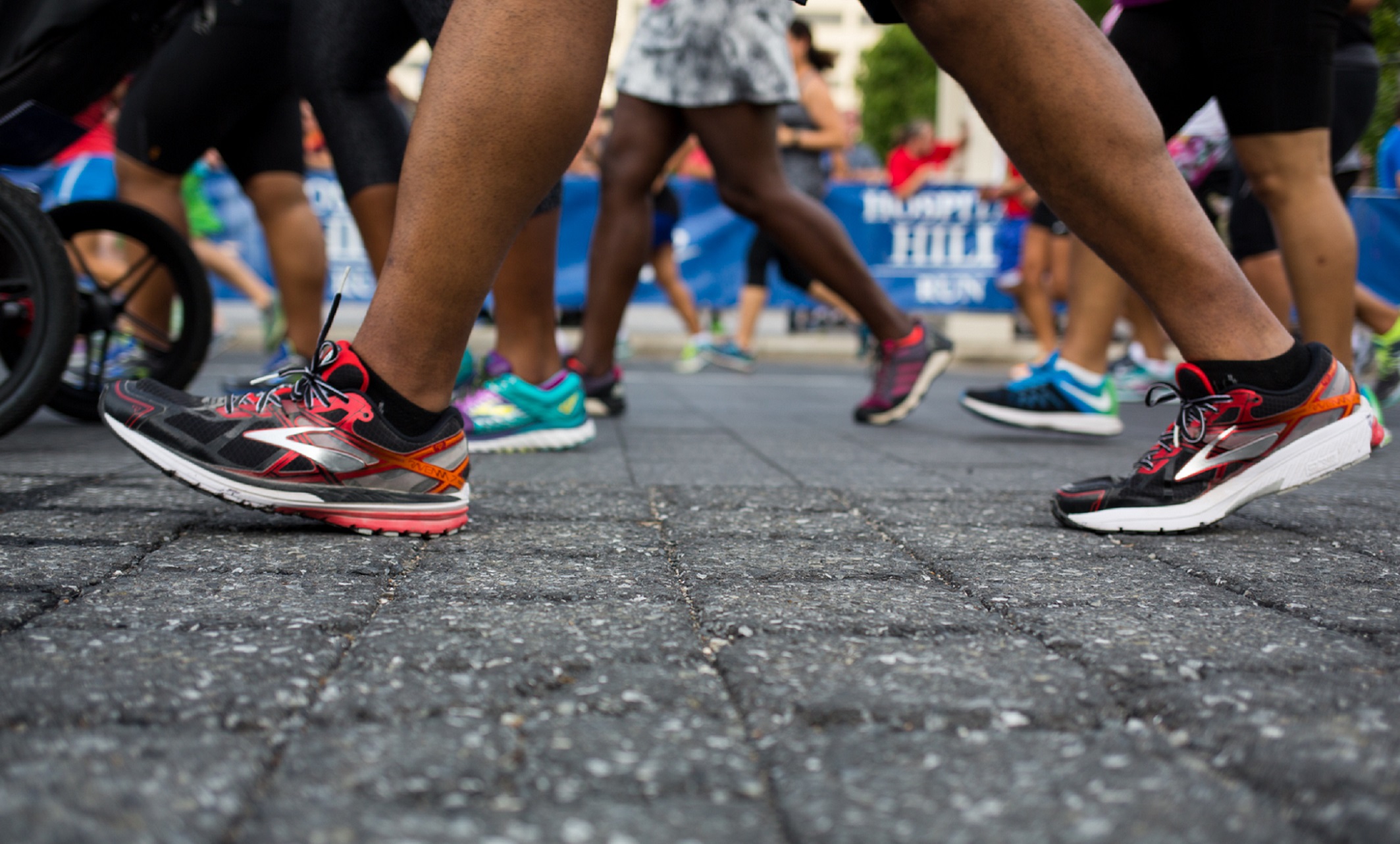
Funding from institute encourages UMKC community research partnerships. Informational webinar available online; applications due Nov. 12.
Making access to health care more equal is a tough task, and a pandemic only makes the job tougher. To help, the UMKC Health Equity Institute is trying a new tool — mini-grants to university researchers and their community partners — to boost those efforts.
“We have about $12,000 to $15,000 spend, and we think putting $1,000 to $2,000 in the right places could help eight to 10 projects move forward,” said Jannette Berkley-Patton, Ph.D., the director of the institute and a professor in the UMKC School of Medicine. “Sometimes help paying for study participants, software, consultants or other resources can make a real difference.”
Though small, the grants could be the seed money — or the Miracle-Gro® — needed to turn ideas into budding projects that encourage and measure the effectiveness of community health efforts.
The brief application for the mini-grant program is available now, and institute members are encouraging researchers and community groups to submit their joint applications. An informational webinar on the mini-grants was presented in mid-October and is available online, along with important information such as budget documents and the grant program overview.
Applicants will have until Nov. 12 to submit their proposals, after which finalists will be chosen. The finalists then will give short oral presentations Dec. 4 and recipients will be chosen. The institute plans to have the funds available at the beginning of 2021.
“We’re hoping the mini-grants stimulate our researchers to be creative and to collaborate with community partners — or build relationships with new partners,” Berkley-Patton said. “The institute’s steering committee will evaluate the applications, and we hope to have applicants make a brief, but impactful, oral pitch for their proposals Dec. 4 in a virtual presentation akin to “Shark Tank®.”
The idea behind the Health Equity Institute, an initiative Chancellor C. Mauli Agrawal started in April 2019, is to partner UMKC researchers with community groups, non-profits and government agencies in underserved areas on projects that aim to improve community health.
“We’re hoping the mini-grants stimulate our researchers to be creative and to collaborate with community partners — or build relationships with new partners.” — Jannette Berkley-Patton
The institute, for example, is working with the Kansas City Area Transportation Authority to evaluate the impact of the city’s now-free bus service on health outcomes. The institute wants to understand whether their recruited residents’ health and overall well-being improve because they walk more and have better access to jobs and health care through the free transit system. The institute has also helped the Kansas City, Missouri, Health Department conduct COVID-19 drive-through testing by coordinating more than 90 student volunteers. The students helped with intake, traffic control and providing COVID-19 information to people seeking testing.
The institute also helped with formation of an interfaith ministers’ group, the Clergy Response Network, founded to address COVID-19 inequities in Kansas City’s faith-based settings, and has created a church reopening checklist for clergy. The network recently received 30,000 face masks to distribute to congregations to help slow the spread of the coronavirus.
Berkley-Patton is a veteran of community-based health research, including studies that engage churches and other community-based organizations’ in efforts to combat health disparity issues such as HIV and other STDs, mental health, obesity and diabetes.
“We need more research projects that improve the health of people where they live, play, worship and work, and projects that can be sustained for the long haul after research shows they work,” Berkley-Patton said. “We think these mini-grants can get more projects like these up and running while engaging the community in research efforts that we hope will reduce disparities and improve health in Kansas City’s urban areas.”
UMKC researchers from any fields or departments are encouraged to apply as long as the research would involve collaboration with a community partner. UMKC research spans many disciplines, and health care research is fostered by the school's Health Sciences District, which includes the Schools of Dentistry, Medicine, Nursing and Health Studies, and Pharmacy.
For more information on the mini-grant program, visit the Health Equity Institute website.
Oct 06, 2020
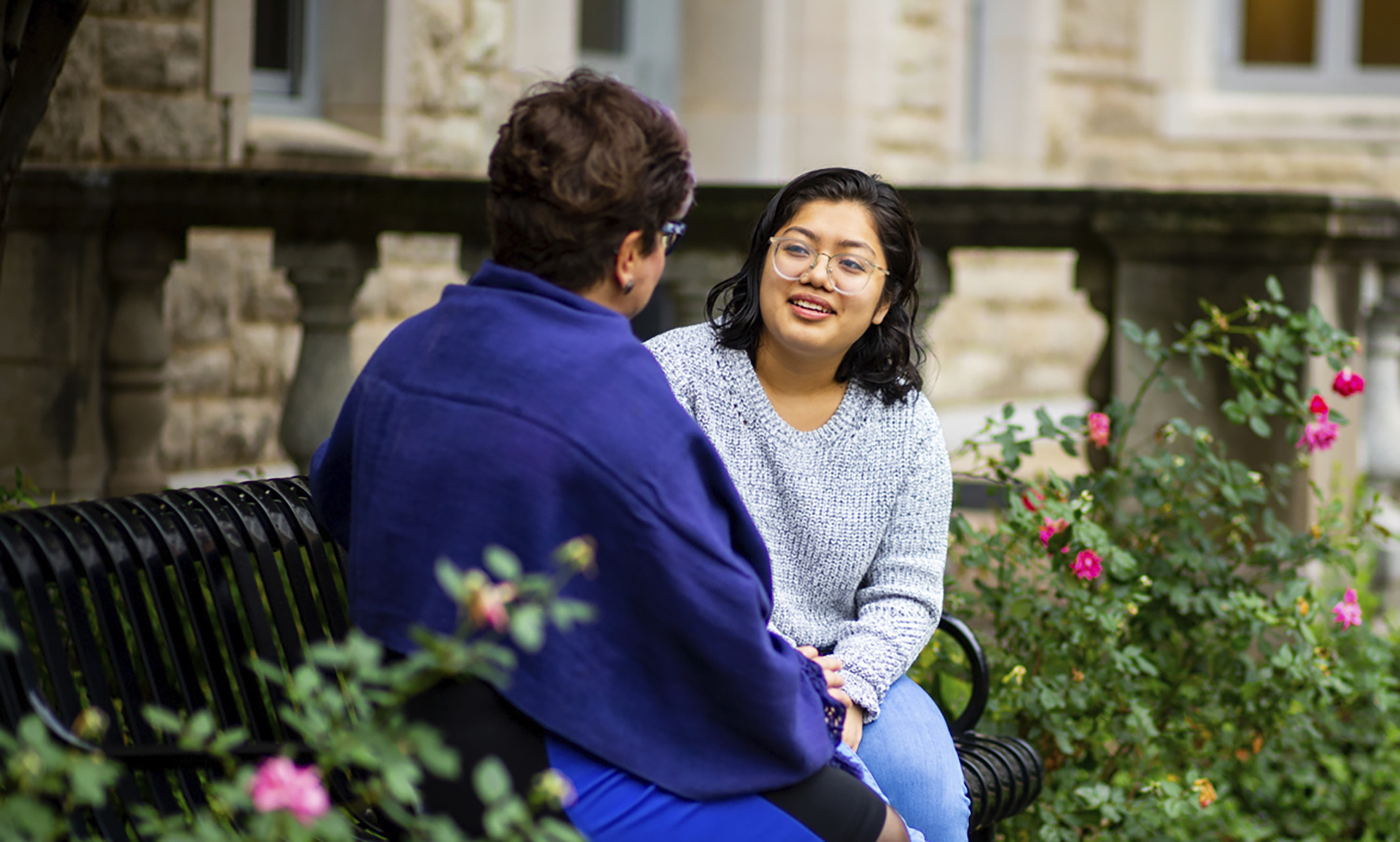
Program serves 250 UMKC students, many of them first-generation students
Sometimes it takes a crisis to make things happen. But good things can come from a crisis. That sentiment, shared by Theresa Torres, associate professor in the UMKC Department of Race, Ethnicity, Gender, and Sexual Studies, defines the evolution of Avanzando.
A decade ago, Latinx students at UMKC lacked a sense of belonging on campus and personal relationships with role models in the professional world for them to emulate. To address the crisis, community leaders worked closely to develop Avanzando, a program designed to provide support and resources to Latinx students. It was launched in 2011, initially as a way to support UMKC Hispanic Development Fund Scholarship recipients.
Today, Avanzando communicates to Latinx students that there is a place for them at UMKC. It provides Latinx students academic support, mentoring, resources and connections to help them do well in school, graduate and find success in their careers.
“That first year, we started with 27 students and today we serve 250,” said Torres, who has worked with the program since its beginning and currently mentors three students through the program. “Many are first-generation students who need support and someone to answer their questions, give encouragement, help them through the ups and downs of college. We offer the resources and support to stay in school and graduate from school. The mentoring piece really helps with that.”
Ivan Ramirez, coordinator for the UMKC Multicultural Student Affairs Department and the Avanzando Latino Mentoring Program, agrees. “The program has proven to be a pillar in a student’s success, having 90 percent retention rates of our participating scholars,” he says. “What you don’t see on paper is the long-lasting mentor-scholar relationships that are built.”
“This program helped me get connected with professionals that are Latinx just like me, and that is something that is not easy to do. It has helped me become a leader, but overall, it has helped me become an even better human being.” – Henry Ortega-Hernandez
Avanzando mentors are volunteers from the faculty, staff and the community — and there is always a need for more. Most are Latinos, but that is not a requirement. Students are matched to mentors based on common goals and career interests, and meet regularly with mentors throughout their time at UMKC.
According to Torres, funding is one of the major barriers for many students, as they often maintain heavy work schedules to fund their college expenses. The Avanzando program partners with the Hispanic Development Fund to support scholarship fundraising efforts for Latinx students. Although Avanzando started as a program to support the Hispanic Development Fund scholars, its reputation now draws students looking for a sense of community and campus support.
That was the case for Henry Ortega-Hernandez, a first-generation college student double majoring in criminology and sociology. Ortega-Hernandez admits UMKC wasn’t his first choice – he transferred from Kansas State University due to family issues at home – but says he is very grateful to be a Roo.
“I got involved with Avanzando because I felt alone, I didn't know anyone on campus and felt like I didn't fit in,” he said. “Avanzando felt like home in a way, it didn't make me feel like I was out of place. I would totally recommend this program to every student if I could reach out to all of them.”
Through the program, Ortega-Hernandez was connected to a huge community of Latinx students and professionals not only at UMKC, but from the entire city. And he was matched with several mentors that share his professional interests.
“This program helped me get connected with professionals that are Latinx just like me, and that is something that is not easy to do,” he said, “It has helped me become a leader, but overall, it has helped me become an even better human being.”
According to Torres, there is a common misconception in the country that most Latinos are immigrants when in fact more than 60 percent are natural-born citizens. In Kansas City, the Latinx population has been part of the community for more than 100 years, including many leaders committed to improving the community, giving back and fighting discrimination. “It’s important for our students to know the history and impact of the Latinx population, and to learn these leaders have backgrounds and interests similar to theirs,” said Torres.
And that’s key to Avanzando.
“The program is designed specifically to increase the retention and graduation of Latino students,” said Ramirez. “We are intentional in our efforts to increase participation and the sense of belonging to our scholars.”
To learn about becoming an Avanzando mentor, contact Ivan Ramirez.
Oct 06, 2020
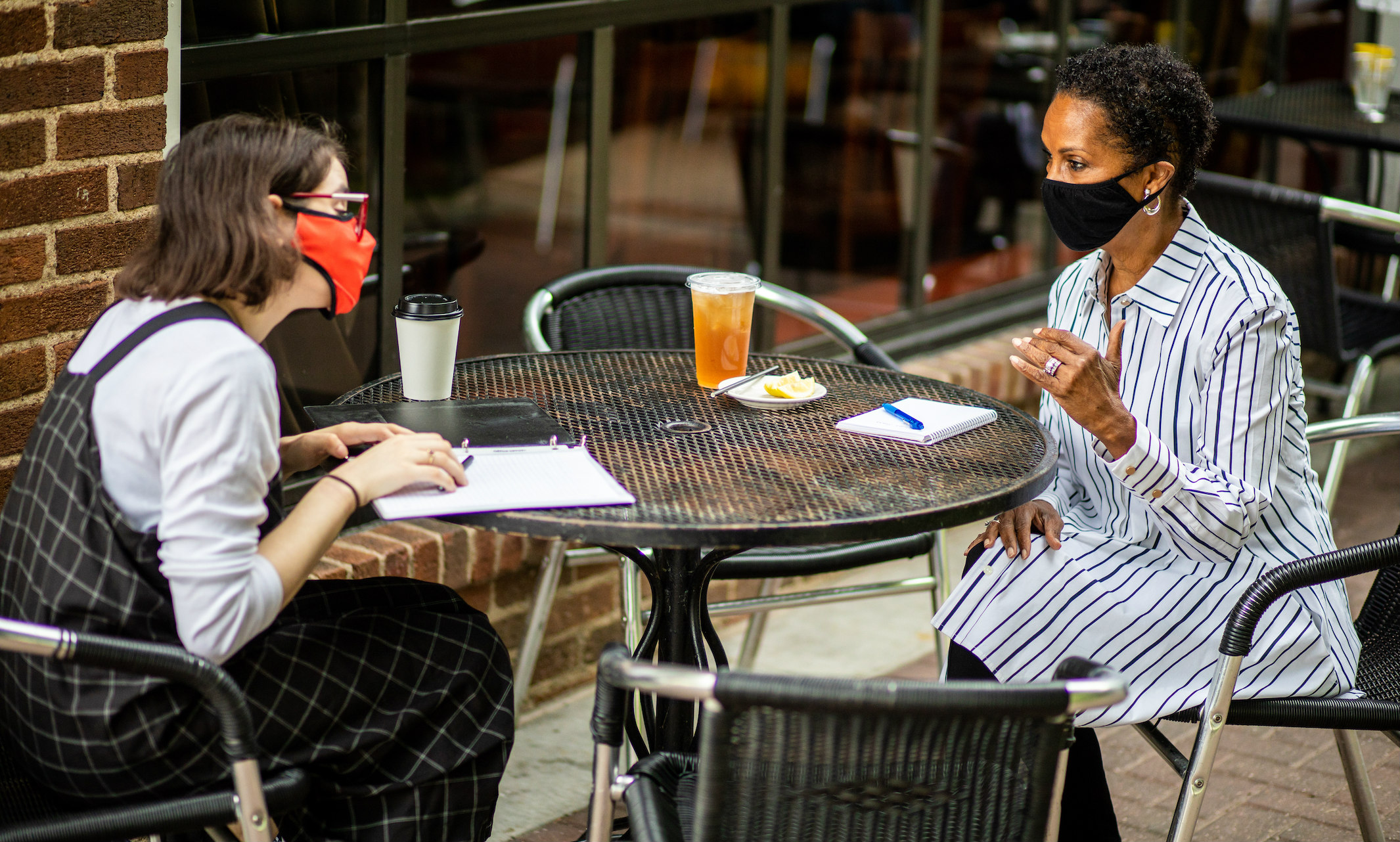
Dynamic duo share passion for giving back to community
The heart of UMKC is our campus community. With lots of opportunities, it’s easy to develop student mentorship teams. And these rich relationships—our Dynamic Duos—are some of our best success stories.
Debby Ballard and Ruby Rios met during Rios’s interview for the UMKC Trustees’ Scholars program in 2018. Ballard serves as Rios’s well-matched mentor as the computer science major manages online courses, living at home, a focused ambition and a desire to give back.
Ballard, president of the Sprint Foundation, is a UMKC Trustee who has deep and broad experience in community development. She serves on several community advisory boards and boards of directors including the Kansas City Girls Preparatory Academy and the Kansas City Chamber of Commerce. But in addition, she devotes time and energy into her mentoring relationship with Ruby Rios, ’21.
Rios is a UMKC Trustees’ Scholar. At the encouragement of her father, she started coding in fifth grade. While she was in high school, she started two Girls Who Code clubs in Kansas City, which led to her participating in a roundtable discussion with Nobel Peace Prize laurate Malala Yousafzai.
Ballard and Rios have sustained their mentoring relationship since the COVID-19 pandemic sent them to work from home in March. Cognizant of the scope of the effects of the disease, both women have recognized what they have lost, but are capitalizing on the lessons this crisis has brought them.
Tell me how you met originally.
Ballard: I met Ruby during the Trustees’ Scholar interviews. I was on the committee and was impressed with her from day one. I love the fact that she had this technology background, but she also had this passion for philanthropy and for giving back. That's my world.
It was a natural fit when you think about it, as I work for a technology company. But more importantly the role that I play at that company supporting the community is one of the areas that Ruby's interested in. It just made sense. It was a perfect fit. She was at the top of my list.
“The biggest advantage is having that person’s insight of, ‘Yes, you can do this. I've done it, and this is how I've done it.”- Ruby Rios
Rios: I guess I'll add in a little secret, and I don’t know if she's heard this or not. But after meeting Debby at my interview, I was so impressed by her that when they were setting us up to have the mentor-mentee relationship, I specifically asked if I could be assigned to her as a mentee because she’s so impressive to me. Her previous mentee was graduating, which I consider the second luckiest thing that happened to me in college after getting the scholarship itself.
It sounds as if you had an immediate connection.
Rios: I did, even though I was super nervous and anxious.
Debby: She was a superstar to all of us. Even if she was nervous, it didn't come across that way. She came across as confident, you know? Ruby’s smart - that goes without saying – but I think she also had a maturity that you don't see that often.
She really has goals and plans and has worked them. A lot of times -- not just young people but all throughout careers -- people will set some goals and set a plan, but they don't work it. That's like not having one.
Did you meet regularly before COVID? Are you meeting now?
Ballard: You know, it's sporadic. [Before the shutdown] we met as needed, either for breakfast or lunch. Since, we’ve met a few times by Skype.
Rios: She’s introduced me to some of the best eating places in Kansas City – Classic Cup, Seasons 52, Summit Grill.
Ballard: We do try to find different places. But I also make a point of bringing her with me if I am going to something where I think she would be interested or have job networking opportunities.
Rios: Debby has been one of the sweetest individuals and has invited to some really cool events in Kansas City. I always get a good feeling when I'm with her.
When you guys get together, are you mostly, focused on school and career, or are you friends and you talk about family and food?
Ballard: We cover a little bit of the personal stuff, because I think it's important to know the whole person. So, we cover that, but I would say we also are very intentional about Ruby.
I've had a lot of mentees over the years, and a lot of times they just kind of come and there's no agenda. She always has an agenda. She has great questions, and so we're pretty focused on what she wants to cover during that meeting and what we're going to get out of it. There's always a goal or objective for what we're going to be talking about. This is one of the things that impresses me about her.
Ruby, do you have a plan after graduation?
Rios: Yes! Of course!
“I realized that because of how my schooling was being disrupted by COVID, I had a unique opportunity to be able to really focus on and work towards graduating early.” - Ruby Rios
Do you want to share it?
Rios: It's a work in progress. I'm still getting all the kinks worked out.
Because of the pandemic, I am really able to focus in on being a full-time student. I'm taking some classes that I had previously thought I should spread out with some business classes. I'm taking more difficult classes at the same time because there's not really much else to do. My plan is to graduate this summer.
So, you’ll graduate early?
Rios: Yes. I realized that because of how my schooling was being disrupted by COVID, I had a unique opportunity to be able to really focus on and work towards graduating early. And then, after COVID, I’ll have the opportunity to go and do the fun stuff that right now I'm not able to do with a little bit more financial backing than I currently have.
That sounds really impressive.
Ballard: Right, definitely. I think she's amazing.
Ruby, what do you think is the advantage of having a mentor?
Rios: I think there are a lot of advantages. Debby is amazing, and helps me in so many ways that it would be impossible to list all of them. But I think the biggest one is that I have an example of someone who's entered the career path that interests me. And because of that, I now have the ability to see how I could do that myself. I think a lot of college students feel very lost in terms of how to go about thinking through a career plan and starting the career they want.
It's really nice to have somebody who's been down that road who's helping to steer the car. And I’m able to learn a little bit more about adulting and have conversations with a professional person. But the biggest advantage is having that person’s insight of, “Yes, you can do this. I've done it, and this is how I've done it.”
“I believe that ‘you have to see it to be it.’ And I think what I have allowed Ruby to do is really see somebody doing the job that she wants, and the work that she wants to be able to do.”- Debby Ballard
Debby, is there an advantage of having a mentee?
Ballard: It’s really, really satisfying and for both of us. It's a safe environment for Ruby to really be herself and to ask questions that maybe she wouldn't feel comfortable asking a lot of different people.
But I also believe that “you have to see it to be it.” And I think what I have allowed Ruby to do is really see somebody doing the job that she wants, and the work that she wants to be able to do. It gives me the opportunity to help shape her future and to impart any knowledge that I might have.
And then it gives me the opportunity to watch her grow into what she wants to be. I think mentoring is important at every stage because it does help you to get to the next step whatever that is. I'm just pleased to be able to be a part and to watch her move to the next step. That's wonderful.
Did you have a mentor?
Ballard: I have had mentors all throughout my career at Sprint, and really good ones who provided really good advice. It doesn't matter where you are in your career, a mentor is always a good thing. It’s good having people at the table who can speak for you.
Ruby, I know that you've been involved with people who are younger than you already but, does your relationship with Debby make you want to be a mentor?
Rios: 100%. I've always held the belief that wherever you are in life you need to reach back out and help the people who aren't there yet. And so, I have been a mentor for robotics teams. I'm the coach of my own Junior FIRST Lego League Girl Scout team. So as much as I'm able to – even though I don’t have much wisdom to impart quite yet -- I know that it's important for girls to be able to see that somebody like me in tech exists. They need to know that as a young person, they are as capable -- if not more capable than I am -- of doing some of the very cool things I've had the opportunity to be able to do.
Oct 06, 2020
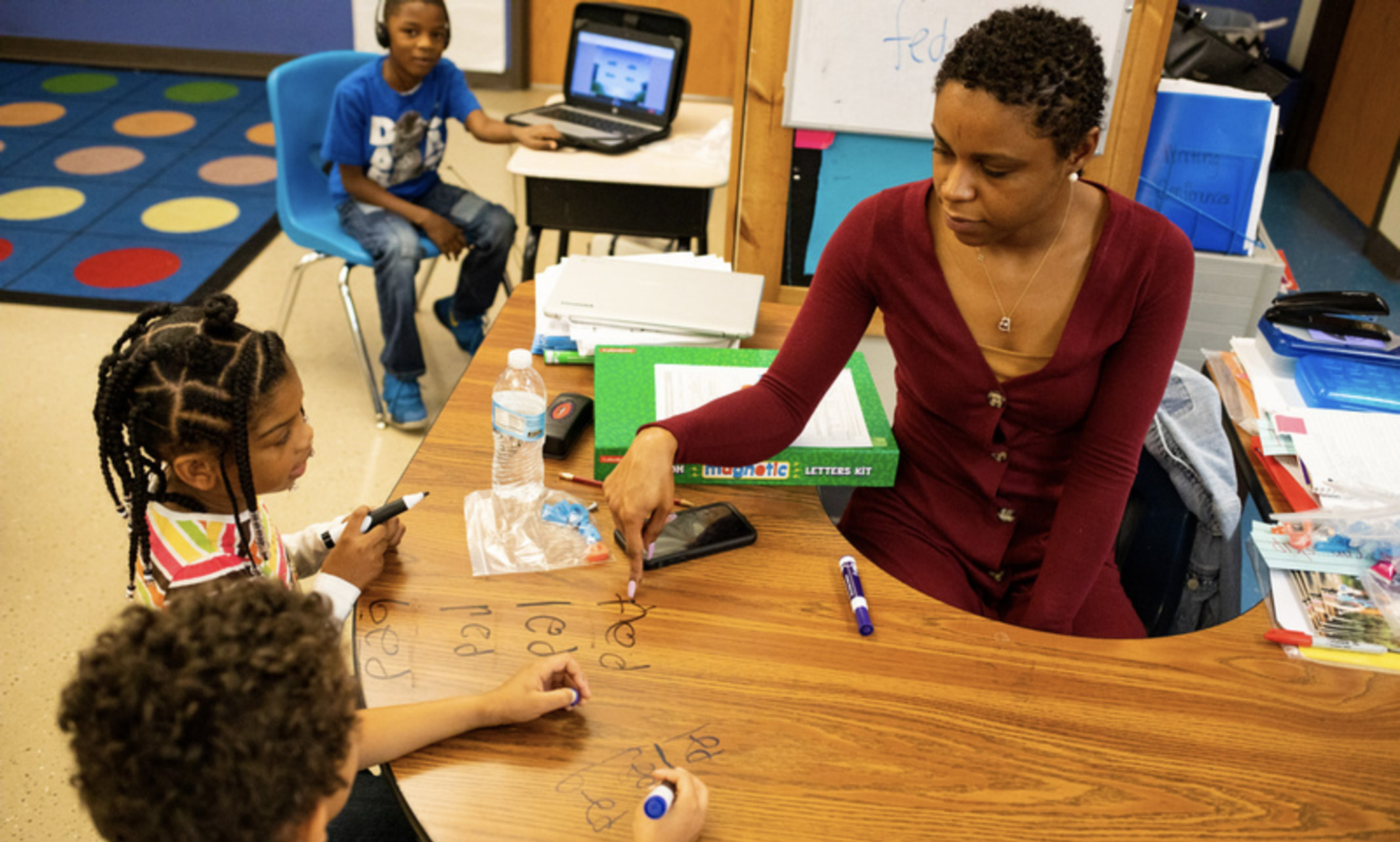
UMKC School of Education Institute for Urban Education is poised for growth
The Institute of Urban Education within the UMKC School of Education is committed to improving student success in urban schools.
While the UMKC School of Education has been successfully training students for teaching and leadership positions in urban schools for years, their current priority is exponentially expanding the number of graduates who are prepared to meet the unique challenges of teaching in the urban core, challenges that have made life more difficult for students, parents and teachers due to the current COVID-19 pandemic and the resurgence of the Black Lives Matter movement. Community leaders Leo Morton and Jerry Reece are leading the campaign to expand the program’s capabilities and ultimately long-term student success.
Morton and Reece, UMKC trustee and chair emeritus of ReeceNichols Real Estate, both attended public schools. Morton grew up in Birmingham, Alabama, in the 1950s and 1960s.
“It was totally segregated,” he says. “All my teachers were African American. Given that teaching was one of the best jobs you could have then, they were the best and the brightest and fully engaged.”
Patty and Jerry Reece with Institute for Urban Education alumna
Reece, a Kansas native, spent his formative years in a small town on the northwestern tip of Washington state.
“It was like going to Alaska,” Reece says. “There were no people of color, so I had the opposite experience of Leo.”
“It was the same experience!” Morton says.
Despite the disparity of their landscapes and the similarities of the uniformity of their classrooms, both men agree that the significance of the messages that children receive about their opportunities for success are universal.
“I think the environment in the urban core is a huge influence on what happens in our classrooms,” Morton says. “When you live in an environment where you grow up believing that by the time you’re 25 years old you’re going to be dead or in prison, what value do you see in math and science?”
“I’ve heard Leo tell the story about how his dad would tell people that he and his brother were going to be engineers when they grew up,” Reece says. “He set them on the right path.”
Leo Morton
“I’ve heard people attribute the problem in urban schools to students and parents,” says Morton, UMKC chancellor emeritus and president and chief operating officer of DeBruce Companies. “But when you look for an answer, you need to understand the problem. I can credit my whole career on having the right parents. You’re fortunate if you’re born to parents who really understand what it takes to succeed and can provide the exposure to the right kind of issues. But if a child is in the situation where the parents don’t provide that, the community needs to step in.”
Student success
Both men agree that the Institute for Urban Education is readying their students for success. The achievements of graduates of the program reinforce that this is the case.
Asha Moore (B.A. ’09 Elementary Education, M.A. ’14 Educational Leadership) is the dean of students at the Academy for Integrated Arts in Kansas City. She is a member of the first class of graduates from the Institute for Urban Education program. Moore was born in Florida and attended a predominately Black school in an urban neighborhood where she was excelling academically.
When Moore’s family moved to Olathe, Kansas, when she was in fourth grade, she was suddenly in the minority.
“It took some adjustment,” Moore says. “I struggled at first and it was a surprise. When I finally talked to my brother, he assured me that I was going to be okay.”
Asha Moore with student
Moore did make a successful adjustment and decided that she wanted to be a teacher because she wanted to make children feel as if they could prosper anywhere. She enrolled in the School of Education at UMKC, but she did not join Institute for Urban Education until her second year.
“Other students encouraged me to join. I had already decided that I was going to teach in an urban school and the scholarship was helpful.”
Moore feels the program prepared her for the unique challenges that she’s faced.
“When you’re in an urban school, it helps if you can be responsive in your teaching and culturally relevant. We need to meet students where there are and help them think critically.”
Moore says her experience at the Institute for Urban Education was a solid foundation for her career.
“The staff was great – not just teaching, but wanting us to learn and getting to know us.”
“When I decided to be a teacher, I knew I wanted to give students more than I got. Fewer than 10 percent of the kids I went to high school with went to college. I wanted to help kids make it.” – Destiny Flournoy
She is still friends with several of the people in her cohort. Destiny Flournoy, B.A. Education ’09, M.A. Education Administration ’17, was part of that first Institute for Urban Education class.
“When I decided to be a teacher, I knew I wanted to give students more than I got,” Flournoy says. “Fewer than 10 percent of the kids I went to high school with went to college. I wanted to help kids make it.”
Needed now more than ever
The current COVID-19 pandemic and the resurgence of the Black Lives Matter movement have added to the challenges of teaching in general, but in the urban core even more significantly.
“Teachers had to change direction so quickly,” says Jennifer Waddell, director of the Institute for Urban Education. “It really put the spotlight on the complexities of teaching and the services that schools provide, including providing meals for students.”
Waddell notes that the Institute for Urban Education focuses on teachers’ impact on how students see the world.
“How to be racist or not racist, how to be fair or unfair, as well as other issues, are learned behaviors. Children are affected by what they see adults do — particularly teachers. We teach what we call ‘mirrors and windows.’ Their students should be able to see themselves in what they’re learning and they should also be learning about other people and their perspectives.”
Waddell says that teachers and schools have a unique opportunity.
“Teachers really have the opportunity to help create individuals who can work together and work for the good of everyone,’’ Waddell says. “That’s why it’s important for everyone to have an equitable education, so everyone — regardless of the zip code they were born into — has career opportunities.”
Waddell says that Morton’s father was instinctually instilling something that education academics write books about.
“We instill in our teachers the need to put supports and strategies in place and to believe that every child can succeed, because there is motivation in knowing that someone believes we can,” Waddell says.
“Ideally, we would like to have a significant endowment so we can guarantee scholarships every year. But annual giving also gives us the opportunity to respond to specific needs and emerging priorities.” - Jennifer Waddell
Waddell says that the Institute for Urban Education has started a campaign to meet the demand for committed teachers in the urban core and to provide the resources that the school needs to prepare more students.
“Ideally, we would like to have a significant endowment so we can guarantee scholarships every year. But annual giving also gives us the opportunity to respond to specific needs and emerging priorities.”
Morton and Reece are confident that the community will respond to the opportunity to enhance schools in the urban core.
Jennifer Waddell with students
“Of all the nonprofits I’m involved with, Institute for Urban Education has the most potential to have the greatest impact, because we have the potential to chip away at the inequities in education by producing teachers of color,” Reece says. “The funds we raise will help close the gap and help these young people succeed.”
Morton says that while he and Reece are chairing this recent campaign, they are committed to Institute for Urban Education for the long term.
“I don’t have a drive-thru mentality about this,” Morton says. “We are researching and measuring results. We have to have patience and the conviction that we are investing in something that is going to make a difference in the long term. That’s what sets us apart from other programs.”
For more information or to make a contribution to the Institute of Urban Education, please contact Shelly Doucet at doucets@umkcfoundation.org or 816-235-6025
Oct 05, 2020
KSHB quotes Rebecca Best
Rebecca Best, an associate professor in the Political Science Department at UMKC, was quoted in two KSHB stories about the recent KC City Hall occupation. One story was about the purpose of the protests. The second story was about it being the first of its kind in nearly a decade.
Oct 05, 2020
Beth Vonnahme shares insight with KCTV5
“If he’s having mild symptoms, there may be little effect on the governing of the country. If he is having rather serious symptoms, then at some point we have to talk about Mike Pence taking over quite a bit of the duties,” said Beth Vonnahme, associate dean of the College of Arts and Science at UMKC. Read the full article and watch the newscast.
Oct 03, 2020
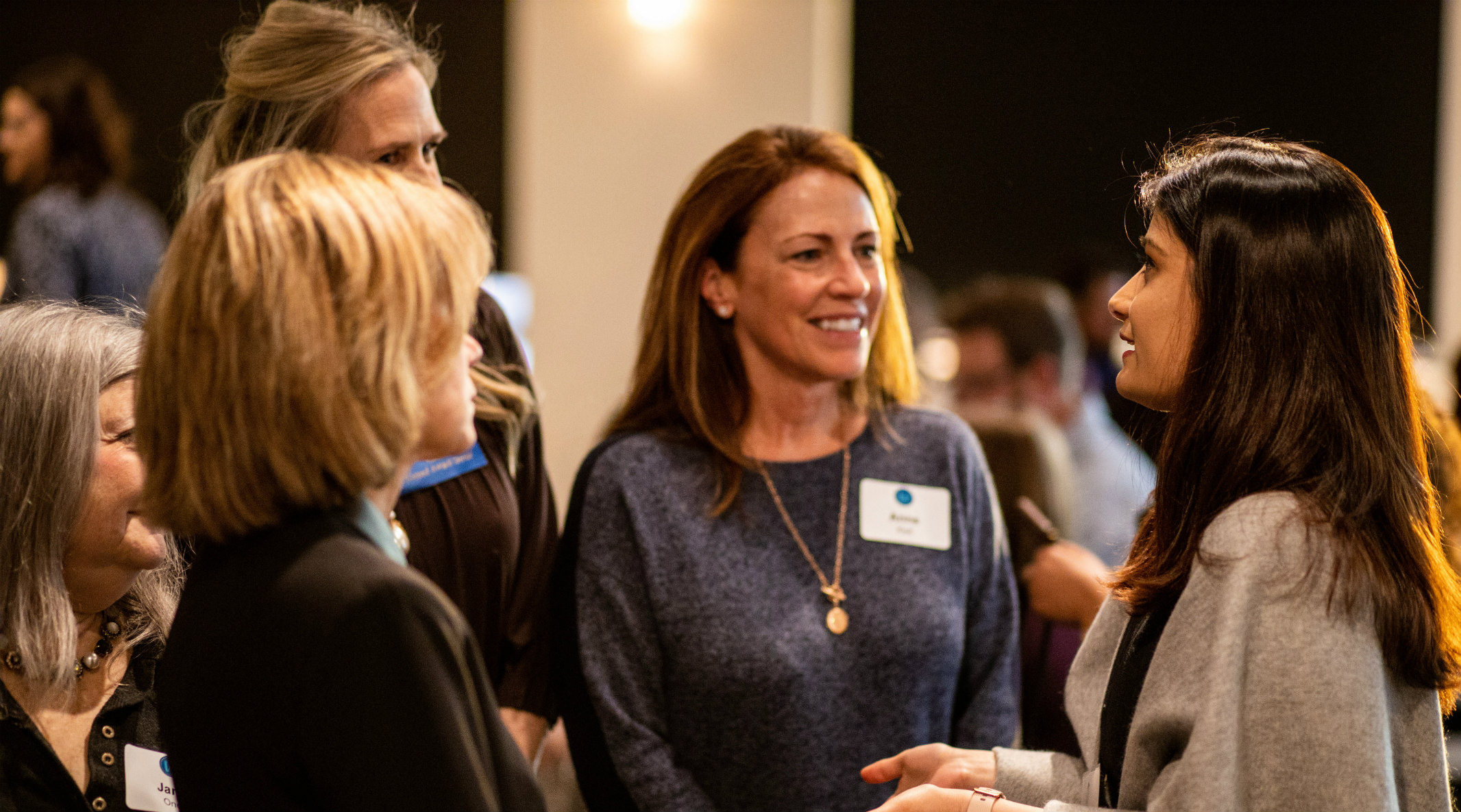
Every year the UMKC Women’s Council awards grants to enable post-baccalaureate students to pursue opportunities
Swetha Chintala is working to improve a new photoactivated glucagon delivery method for people with diabetes. Her Women’s Council Graduate Assistance Fund Award is making that process easier.
Chintala began working on improving photoactivated insulin and glucagon delivery when she joined the team of Simon Friedman, Ph.D.’s lab in Spring 2016. Their goal is to develop a minimally invasive light-activated artificial pancreas that is able to deliver both insulin and glucagon on demand, eliminating the need for people with diabetes to inject insulin multiple times a day. She received a Women’s Graduate Assistance Fund (GAF) award to further her work last year.
“It was a huge relief when I heard from the committee that I received the award, particularly because of the pandemic lockdown,” Chintala says. “I was able to purchase software required to analyze my data. We have recently communicated our work with a scientific journal for publication. After publication, I will also make use of the GAF award to present my work on glucagon administration at a national conference.”
Debbie Brooks
Debbie Brooks, JD ‘01 is retired assistant dean of the UMKC School of Law, the Women’s Council board of directors president and a GAF donor. She understands the significance of the grants.
“I was a GAF recipient,” she says. “I applied for funds to take a prep course for the bar exam and I continue to give back.”
Brooks says the fund was established specifically to support women such as herself and Chintala.
“You have to remember, when we started [in 1970] women weren’t supported in advanced degrees. They faced prejudice like, ‘Women can’t do math,’ and ‘Women can’t be engineers.”
She notes that some of these challenges still exist today.
“We are still a patriarchal society. It can be difficult to complete your dream while you have a family. Many of our women students still have primary responsibility for child care. They are expected to be excellent partners, mothers, employees and students.”
Brooks has donated to the program since she received her award because she is committed to expanding opportunities for women scholars.
Swetha Chintala
Students can use funds in many ways to help them achieve their academic goals as long as it’s not tuition, textbooks or software the academic department provides,” Brooks says. “The grants are not restricted to travel expenses or the sciences and professional schools. We receive applicants from the arts. Beyond research and conferences, some of our recipients may to go to other cities to pursue opportunities in theatre or dance.”
The committee looks forward to bringing recipients and their families together at the awards ceremony recognizing recipients every year. Just as the pandemic is making students’ research more difficult, it is interfering with plans for this year’s event.
“Next year – 2021 -- is the 50th anniversary of the awards. We are a determined group,” Brooks says. “We will find the best way to commemorate the recipients’ accomplishments.”
The deadline for Graduate Assistance Funds application is November 2, 2020. To support the UMKC Women’s Council Gradate Assistance Fund, contact Amy Loughman.
Oct 01, 2020
Kansas City Star features UMKC student who is a Mad Science instructor
Andy Chapel, music education student at the UMKC Conservatory, has taught classes with Mad Science since January. Having an insight into how it looks from a student’s perspective has informed his own teaching habits, Chapel said. Read the full article. A subscription may be required.
Oct 01, 2020
School of Law professor interviewed by Kansas City Star
“It’s not a covered entity. Therefore, HIPAA doesn’t apply,” said Ann Marie Marciarille, UMKC School of Law professor. Read the full article. A subscription may be required.
Oct 01, 2020
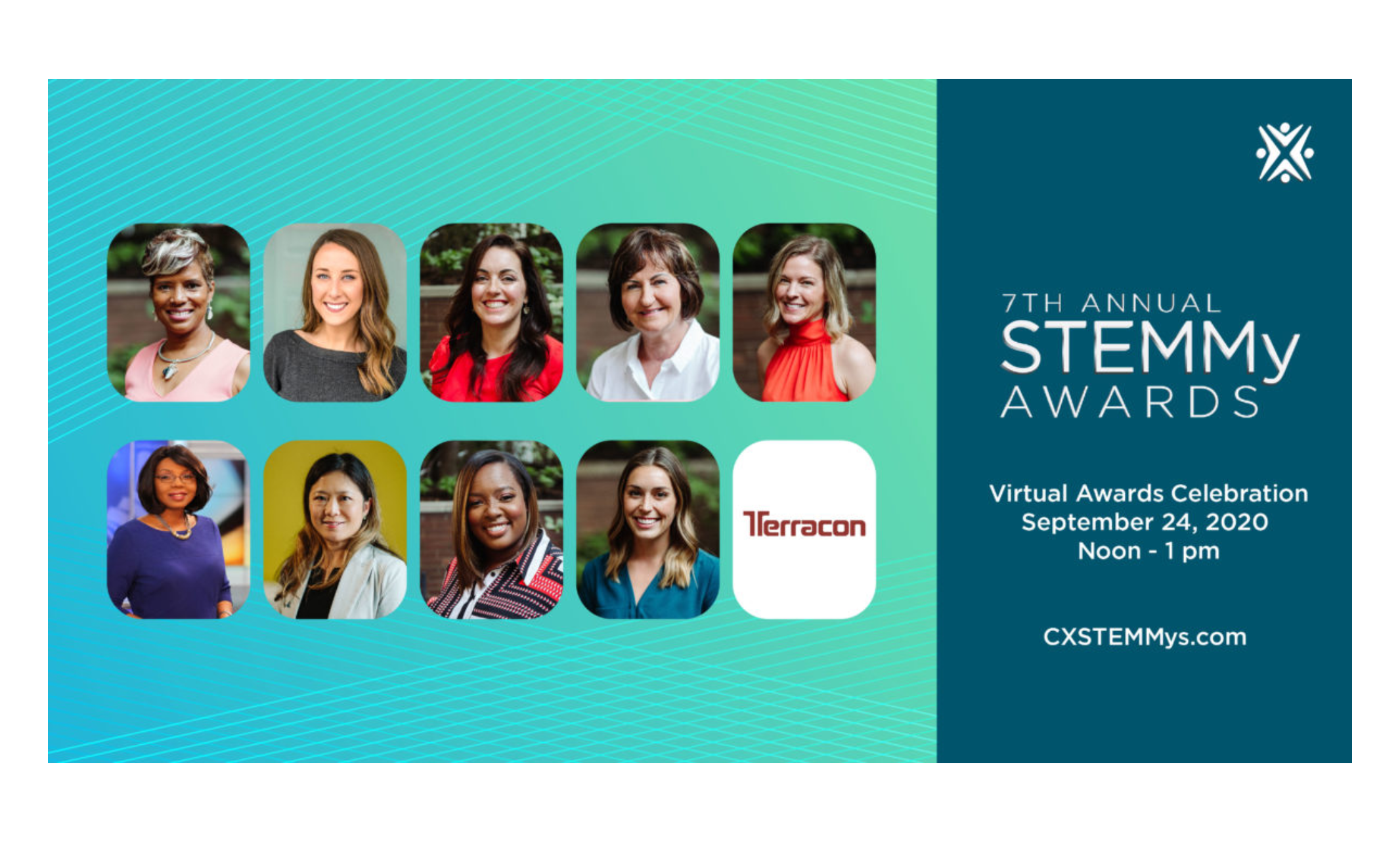
School of Computing and Engineering alumni and board member received STEMMy awards from Central Exchange
The 7th annual STEMMy Awards hosted by Central Exchange highlighted a host of women in STEM who are blazing trails and breaking barriers in the fields of science, technology, engineering and math. In true UMKC fashion, several of this year’s honorees are Roos hailing from the School of Computing and Engineering.
Sherry Lumpkins (BACS ’93), owner and principal of Blue Symphony and 2020 Vanguard Award recipient – Enterprising Innovator
Lauren Koval (BSCE ‘ 17), engineering manager at McCownGordon Construction – Rising Trendsetter
Emily Tilgner, civil and mechanical engineering advisory board member, vice president of engineering services at McCownGordon Construction – Groundbreaking Leadership
Our award recipients shared their passions for computer science and engineering, the importance of networking and how they contribute to closing equity gaps in STEM.
What sparked your interest in engineering?
Lumpkins: I stumbled upon it as a career option. Computers weren’t ubiquitous when I was in high school. I took one class and thought it was interesting but didn’t think about it as a career path until I had an internship in college where I worked on a computer. When I began diving deeper into how computers were made and I found that I wanted to learn more and eventually switched majors from accounting to computer science.
Tilgner: I always loved math and science classes and really loved puzzles and problem-solving. My parents, who were both educators, helped me explore areas of study that they thought would be a good match. Engineering was a great fit for me.
Koval: In junior high school, my advanced algebra teacher, Mrs. Docking, invited a woman engineer into our class to speak to us about her career. Listening to her speak really sparked my interest and from that day I decided I wanted to pursue engineering!
How did UMKC prepare you for the career you lead today?
Lumpkins: It was there that I decided to pursue a career in STEM, and I absolutely got great fundamentals that equipped me to be able to keep up with the changing pace in computer science.
Koval: I had a great deal of support during my time at UMKC! In addition to studying Engineering, I was also a Trustees’ Scholar and played on the Women’s Soccer Team, so I stayed pretty busy. Each of those areas of my life required a lot of time and dedication, but they also provided me with a lot of help and support. I learned to work hard and push myself, and also when to ask for help and guidance. I’m thankful for the life lessons I learned and have carried into my career.
"It used to be 'it’s not what you know, but who you know.' I’ve heard a more recent take of this, 'it’s not what you know or who you know, but who knows you.'” - Tilgner
Why is it important to mentor and help give back to future engineers?
Tilgner: I believe the earlier we can support women in this field, the better the chance for retaining them. Through various experiences mentoring youth and students, I’ve found that just having a trusted advisor, someone to talk to, or just knowing that someone has gone through that same thing, who can understand your point of view, provides support for young women pursuing this career.
How do you help to close equity gaps in STEM?
Lumpkins: I very intentionally want to use the internship opportunities I have available to address the equity gaps. I can’t solve all the problems in the world, but I can do my tiny piece. When I started the Blue Symphony internship program, I wanted to create an opportunity for underserved groups – students of color and women – and I try to be very instructive to help equip students for experiences they’ll have in their careers. I want to give them skills they can add to their resume.
Tilgner: The fact that my engineering team within a construction company is majority female speaks louder than any story I could tell or any metric I could list. To support and nurture women, you have to hire them first and give them a platform in which to shine. In addition to this role, I push for multiple women in my company to be nominated for various awards, leadership programs, and to be recognized for promotions and prestigious projects. We are getting closer to 50% representation in these opportunities, which I believe will help our company come closer to an executive leadership team with the same ratio. I believe it is not enough to only support the women. Creating a dialogue with my male colleagues and industry partners about equal opportunities and representation can exponentially expand the opportunities for everyone.
"Seeing women, and Black women, recognized in STEM fields shows little girls that if someone who looks like them can do it, they can do it." - Lumpkins
Why is it important to network and make connections as you build your career?
Tilgner: It used to be “it’s not what you know, but who you know.” I’ve heard a more recent take of this, “it’s not what you know or who you know, but who knows you.” You can never know what conversation or contact is going to help you along the way. Not every relationship should be viewed as transactional, but why not give yourself every opportunity on the way?
Koval: Networking and making connections play a huge part in the success of your career. I was very fortunate to form many connections while at UMKC through my time in the Trustees’ Scholars program, one of which led to my internship and now career at McCownGordon Construction! Forming relationships with people both inside and outside of my company has helped me gain knowledge and make connections that make my job both more rewarding and more fun! It has also allowed me to meet and help others within the same and different industries. It is amazing what a small world it is, once you are willing to put yourself out there and meet new people.
"I very intentionally want to use the internship opportunities I have available to address the equity gaps. I can’t solve all the problems in the world, but I can do my tiny piece." - Lumpkins
Sherry, what has your journey been like starting and growing a Black/woman-owned technology company in Kansas City?
Lumpkins: I think that being an entrepreneur has its own set of struggles, so adding on being a woman and being Black there is three-times the challenge, but those things shouldn’t be prioritized. It’s important to be aware of those things but you’ve got to do what you’ve got to do. When I walk into a room, I’ve had to figure out how to make people listen to me but those are the cards I’m dealt, and it’s been worth it. Once you’ve proven that you know what you’re talking about, it’s done.
Women weren’t always able to pursue careers in STEM, let alone receive credit for their innovation and leadership. What does this recognition mean for you?
Tilgner: It is huge, but it is not enough. In the words of Ruth Bader Ginsberg: “When I'm sometimes asked ‘when will there be enough (women on the Supreme Court?)’ and I say, 'when there are nine,' people are shocked. But there'd been nine men, and nobody's ever raised a question about that.” I would like to get a point where women make up at least an equal percentage, if not more, in STEM fields because why not?
Koval: This recognition means so much to me. I am so thankful to all of the women who helped blaze the trail in the STEM fields, and I hope to do the same for those following me. It’s incredible to be recognized, but I really wouldn’t be where I am today without all of the people that helped and supported me throughout my education and thus far in my career. There are too many to name, but I want to say thank you to all of them and I plan to keep pushing on!
Lumpkins: This recognition is important. I’ve heard the story so many times where a young woman pursuing STEM is the only one in the classroom. I’ve heard women being inadvertently being chased away. I believe that with STEMMy, and with the Vanguard Awards, it’s a testament for young girls that they can do this. In their formative years, children behave more equally, but that kind of fades away around their middle school years. But seeing women -- and Black women -- recognized in STEM fields shows little girls that if someone who looks like them can do it, they can do it.
"
I’m thankful for the life-lessons I learned and have carried into my career." - Koval
What advice do you have for students wanting to follow in your footsteps?
Tilgner: Ask for advice but listen to yourself – you are going to have to forge your own pathway and it will be as unique as you are. Create a support system not just personally but professionally. Find people that will be honest with you. Know that you deserve what you want just as much as anyone else but don’t put others down in order to build yourself up. Last but not least, in your way, don’t forget to help those ladies next to and behind you.
Lumpkins: Do it! Be aware but not discouraged. Be willing to learn all your life. The STEM field is HUGE, there’s no one kind of field. Don’t assume that because you have different interests you can’t pursue the career you want.
Koval: Work hard, stay motivated even on the tough days, develop as many relationships as possible, and don’t be afraid to ask for help! Something I have to tell myself (probably daily) is that mistakes are going to happen, and as long as I gave it my all, the rest is out of my hands. That’s hard to practice for most of us with an “engineering-mind,” but I find that the people who are most successful in my company and in other companies aren’t afraid to make a mistake because they know they will learn from it and are at least willing to try a new approach when needed.
Sep 30, 2020

Machine used in eye exams could lead to earlier diagnosis and treatment
Technology used in eye exams called microperimetry could prove to be an effective, non-invasive method of identifying early symptoms of multiple sclerosis.
An article recently published by researchers at the UMKC School of Medicine Vision Research Center reports the effective use of microperimetry during routine clinical assessments of multiple sclerosis patients. The article appeared in the research journal BioMed Central Ophthalmology.
Multiple sclerosis is a disease of the brain and spinal cord that affects nearly 400,000 people in the United States and more than 2 million throughout the world. There is no known cure for the potentially disabling disease, but treatment can help manage symptoms and speed up recovery from attacks.
Therefore, a non-invasive, clinically relevant and cost-effective method of identifying damage early would be invaluable to patients and health care providers. It would enable prompt therapy that may slow the progression of the disease and its ocular manifestations before irreversible damage occurs.
The testing method studied by the team of UMKC researchers, students and residents, microperimetry, measures light sensitivity of the center of a patient’s vision and can detect specific areas of decreased sensitivity. It typically takes less than half an hour.
Researchers from the school’s Vision Research Center have previously found the technology to be effective in diagnosing early stages of other diseases of the nervous system such as mild cognitive impairment in Alzheimer’s.
The vision research team of Landon J. Rohowetz, Qui Vu, Lilit Ablabutyan, Sean M. Gratton, Nancy Kunjukunju, Billi S. Wallace and Peter Koulen collaborated to determine subtle changes in visual function related to otherwise undetectable signs of multiple sclerosis. It is the first peer-reviewed study to assess the use of microperimetry, a straightforward and non-invasive vision test, as a tool to detect disease progression in early stage multiple sclerosis patients.
“The findings from this study provide a rationale for the use of microperimetry in the clinical assessment of patients with multiple sclerosis,” said Rohowetz, the study’s lead author. “By identifying visual dysfunction associated with multiple sclerosis, we hope physicians and researchers are able to use this technology to ultimately preserve and improve quality of life for patients with this often-disabling disease.”
More than 80 percent of the patients with multiple sclerosis show signs of impaired vision and 73 percent of MS patients experience visual impairment within the first 10 years of diagnosis, which is comparable to the prevalence of abnormal or impaired muscle function in the disease.
This initial study indicates that light sensitivity measured by microperimetry is lower among multiple sclerosis patients who have otherwise normal vision and no other history of issues with the optic nerve, which connects the eye to the brain. It also revealed a significant correlation between this impaired function and a reduced thickness of the retina in MS patients that is not seen in control subjects.
The report says further studies would look to monitor and evaluate ongoing changes in retina sensitivity and thickness as they correlate to a progression of multiple sclerosis. It will also broaden the approach to include MS patients who have a history of optic neuritis, where measurable damage to the optic nerve has already occurred.
Sep 30, 2020
KCUR taps Mary Anne Jackson for influenza, coronavirus advice
In two stories this week from KCUR, Mary Anne Jackson, dean of the University of Missouri-Kansas City School of Medicine, shares her expertise and advice on influenza and coronavirus. Influenza and COVID-19, Get A Flu Shot
Sep 30, 2020
Truman Fellows program provides jobs for recent alumni, legal services for community
The School of Law at the University of Missouri-Kansas City has launched a new program to provide training for recent graduates to further develop their legal skills in a supervised practice setting, while providing legal services that advance the public interest.
The grant-funded Truman Fellows program has created three full-time short-term positions at law-school-affiliated entities that are being filled by May 2020 graduates of the school’s Juris Doctor program. The program was launched to provide opportunities for recent graduates in the midst of the COVID-19 recession while building on the law school’s strong commitment to public service.
The funded positions are providing services to people in the community adversely affected by the pandemic. One of the fellows will be working with the school’s Entrepreneurial Legal Services Clinic to provide advice and assistance to small businesses and start-ups that have been adversely impacted by the pandemic. A second fellow will be working in the school’s Self-Help Legal Clinic to help educate those who are facing evictions and other legal problems from the pandemic. The third fellow will work with the UMKC School of Law’s Digital Initiatives team to develop an online system to help those threatened by domestic violence to obtain restraining orders.
The program has been launched with a $25,000 grant from the Kansas City Regional Covid-19 Response and Recovery Fund. Law school officials are seeking additional grant funds to continue the program.
The name of the program honors one of the school’s most illustrious former students, said Jeffrey E. Thomas, associate dean for international affairs and Daniel L. Brenner faculty scholar and professor of law, who helped set up the program. President Harry S. Truman attended the Kansas City School of Law for two years (1923-1925).
“We were looking for a name that would connect to the geographic area, public service, and a commitment to justice,” Thomas said, and Truman was an easy choice for the program’s namesake and role model.
“This program builds on the UMKC law school’s strong commitment to public service. Last year, the school’s clinician and field placement programs provided more than 38,000 hours of service to the community, and 83 students provided 8,500 hours of pro bono service at 32 sites,” Thomas added. “The Self-Help Clinic provided assistance to 700 clients last year, and the Entrepreneurial Legal Services Clinic provided assistance to dozens of small businesses.”
Sep 29, 2020
KC Studio features UMKC College of Arts and Sciences interim dean and professor of Studio Art
Kati Toivanen has two passions -- running and photography. She finds numerous parallels between the two. “There’s an art and science to both art and running,” she said. “Running is very physical. It’s also very mental. At the end of the race, it’s really your mind that carries you.” Read the full article.
Sep 29, 2020
School of Law professor co-authors article in national publication
Nancy Levit, associate dean and UMKC School of Law professor, was co-author of an article in The Conversation about state budget shortfalls and the impact on women.
Sep 29, 2020
Beth Vonnahme continues to led expertise to local media
“This is not a normal campaign. We don’t have big campaign rallies. We don’t have the in-person campaigning where you’re going door to door, meeting in small groups. That’s been a big problem for the candidates,” Beth Vonnahme said. “So this is really the first time they’ve had a chance to engage on a national stage with each other.” Read the article by Fox4KC or watch the newscast. She was also interviewed by KCUR about local elections in Missouri.
Sep 29, 2020
Sharing traditions, resources and what the month means to them
Each year, we observe National Hispanic Heritage Month from Sept. 15 to Oct. 15. It’s a time of celebration and recognition of the cultures, histories and contributions of the American Hispanic community.
Hispanic Heritage Month also includes the independence days of several Latin American countries, including Costa Rica, El Salvador, Guatemala, Honduras, Nicaragua, Mexico and Chile.
We recently spoke with three UMKC alumni about their traditions, resources and what the month means to them.
Meet our alumni, pictured below from left to right:
Veronica Alvidrez (M.S.W. ’11), experience manager, Startland
Susana Elizarraraz (B.A. ’15), chief community officer, Latinx Education Collaborative
Edgar Palacios (B.M. ’08), president and chief executive officer, Latinx Education Collaborative
What does Hispanic Heritage Month mean to you personally?
Veronica Alvidrez: For me, Hispanic Heritage Month is a time to consciously reengage with my culture. Although my culture is always with me, it is not always at the forefront. This time of year allows me to dig in and reconnect with a big part of what makes me, me.
Susana Elizarraraz: It personally gives me an opportunity to reflect on what my current opportunities are and how they are due to the many sacrifices people made before me. This includes my freedom, my opportunity to get an education, my opportunities to have ownership of land and property — all of these were denied from my ancestors at various points in history. Though I appreciate these sacrifices all of the time, Hispanic Heritage Month encourages me to pause, reflect and be grateful for those who came before me that made my life today possible.
Edgar Palacios: Hispanic Heritage Month is a time to celebrate and elevate the voices and contributions of the Hispanic community. Hispanic/Latinx folks make up 17% of the U.S. population and still are severely underrepresented in positions of influence and decision-making. It's also a time to celebrate various independence days of Latin American countries and honor the sacrifices of our ancestors.
Are there ways you celebrate? Traditions?
Alvidrez: We like to celebrate our culture with many carne asadas and gatherings during this time of year. My mother enjoys gathering us for a night of Lotería.
Elizarraraz: Hispanic Heritage Month is a tradition in the United States, so as a family, we didn’t follow any celebrations or traditions particular to the month. However, Mexican Independence Day lands during the month, Sept. 16, and my family recognizes that. As children, we didn’t have much to be able to celebrate, but as an adult, I’ve begun to appreciate my heritage more and recognize the dates that are significant to my identity. My identity has been something that I’ve had to learn more about in my adulthood, so many of the celebrations and traditions held by my people are new to me as well. Recently, it has been important for me to recognize those traditions to give homage to the strength and pride that they showcase.
Palacios: This year, I 've been celebrating by adding the Nicaraguan flag to my Zoom background. It typically gives me the opportunity to share about Hispanic Heritage month and about my Nicaraguan roots.
Are there resources in Kansas City or at UMKC that you recommend for people wanting to connect with the Hispanic community?
Alvidrez: Given the current state of our country due to COVID-19, I do not know of any places that one can visit to reconnect. With that said, I do enjoy visiting Café Corazón when I feel the need to fill my cup with our culture and all its color.
Elizarraraz: One organization that comes to mind right away is the Hispanic Development Fund and their partnership with UMKC Multicultural Student Affairs with Avanzando. Hispanic Development Fund awards thousands of dollars in scholarships to Latinx students every year. For many students, including myself, having scholarships like these are the determining factor of whether or not college is accessible. Avanzando, led by Iván Ramírez, is the program that derived from HDF at UMKC. It provides mentorship opportunities for the scholarship recipients, which is a life-changing experience as well.
In addition, I’d encourage people — especially artists — to check out the Latino Arts Foundation, led by Deanna Muñoz. The Latino Arts Foundation is doing great work in establishing a place for Latinx artists and others, which doesn’t currently exist in Kansas City.
Palacios: Kansas City has a rich and diverse Hispanic community. I recommended reaching out the following organizations or institutions: El Centro, Inc., Guadalupe Centers, Hispanic Development Fund, Mattie Rhodes Center, Latinx Education Collaborative, Hispanic Chamber of Commerce of Greater Kansas City, Greater Kansas City Hispanic Collaborative, KC Hispanic News, and Dos Mundos.
Sep 28, 2020
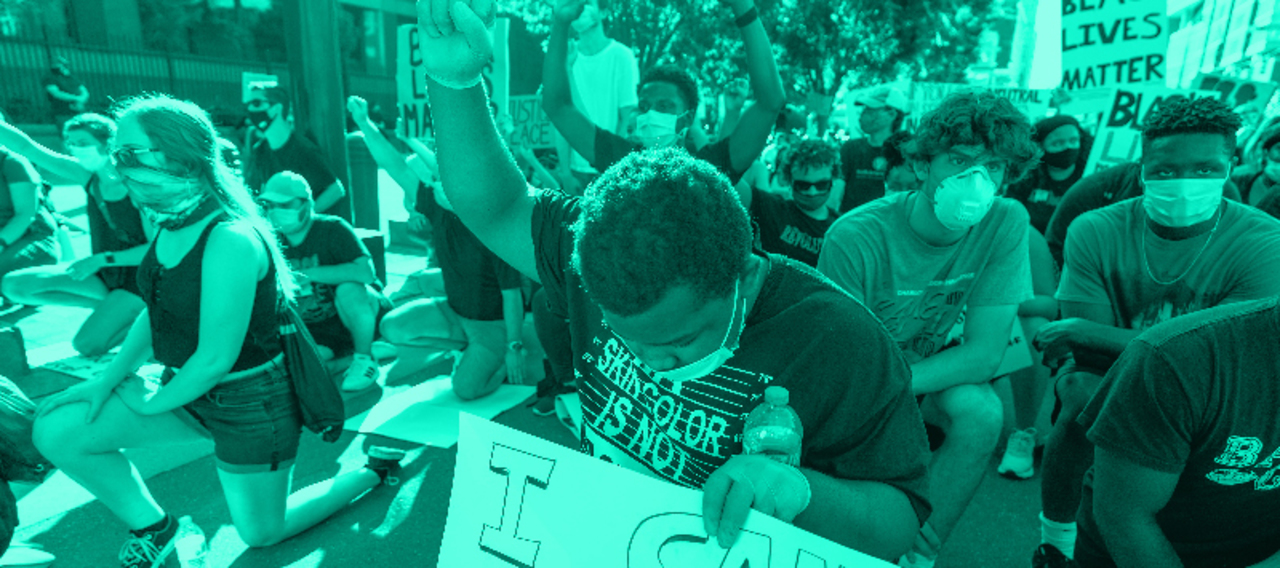
Panelists address the history of systemic racism and the struggle in America today
The Color of Money: Racism in Finance, presented on Sept. 17, was the fourth installment in the Critical Conversations series sponsored by the office of University of Missouri-Kansas City Chancellor Mauli Agrawal and the UMKC Division of Diversity and Inclusion.
Participating panelists included:
Gary O’Bannon (co-moderator), executive-in-residence, Henry W. Bloch School of Management and former director of human resources, City of Kansas City, Missouri
Lisa Uhrmacher (co-moderator), UMKC Bloch student, IoT and analytics practice lead, Atos
Ruben Alonso, president, AltCap
Victor Hammonds, director of small business banking, First National Bank of Omaha
Nathan Mauck, associate professor of finance, Henry W. Bloch School of Management
Nick Richmond, president and CEO, Kansas City Credit Unions
Critical Conversations is part of the Roos Advocate for Community Change, UMKC leading thoughtful action on campus and in our community to ensure lasting and comprehensive change.
The United States continues to struggle with its history of systemic racism, and that struggle is expressing itself in nearly all areas that make America what it is—the political system, corporate America, entertainment, athletics, social media and the police and criminal justice systems.
“The financial services industry has a responsibility in considering their role in this movement both in how we got there and how to work to achieve an equitable and inclusive financial system,” O’Bannon said. Of the systems that contribute to disparities in wealth, he started with employment.
“It is impossible to build wealth without steady and rewarding jobs,” O’Bannon said. “But minority unemployment is consistently twice that of whites no matter what the economy.”
Education is another system impacted. O’Bannon said Black and Hispanic children’s opportunities and choices are more limited than any other group.
Regarding the health care system, O’Bannon said repeated studies have found doctors and medical facilities have unconscious racial biases when it comes to minority patients.
The fourth system discussed was housing and redlining, barring Black and brown people from living in certain areas.
“It is still present today,” O’Bannon said of redlining. “These systems remain broken and won’t be corrected soon. So perhaps the question today is whether financial services companies and its professionals that run them, will be a part of the solution.”
Before the group delved into the role financial institutions have in being part of the solution, Uhrmacher led a discussion on Kansas City’s own history.
“We know that wealth is something that’s handed down from generation to generation primarily through home ownership,” Uhrmacher said. “And if you think about it, it’s the way that much of our wealth is transmitted from one generation to the next. For every one dollar that is passed along generationally in a Black family, 10 dollars are passed along in a white family.”
In many instances, according to Uhrmacher, the crux of the issue in terms of finance, comes down to home ownership. In her research of Kansas City housing, she found the city wasn’t always segregated. J.C. Nichols was a proponent of the covenant neighborhood concept in Kansas City, a concept that spread nationally. Redlining, which began in the 1920s, was the drawing of red lines on maps indicating where financial institutions would not provide home loans. The practice of redlining effectively segregated Black and white neighborhoods.
Mauck presented national trends on all of the systems and discussed wealth inequality from an educator and researcher’s perspective. According to the Institute for Policy Studies, Mauck said the gap in wealth grew between 1983 to 2016, with many drivers of wealth inequality going back to housing.
“This gap has been very persistent over time,” Mauck said. Levels of education is also something Mauck has examined. He cited a St. Louis Federal Reserve wealth report regarding college education and the wealth gap as he discussed the disparity in net worth and holding of assets among minorities. He said the gap in financial literacy levels impacts lending and who receives it.
Alonso also addressed racist constructs that prevent people of color from accumulating assets. He said lending is based on qualifying borrowers through their personal credit and assets. If the most common form of collateral for lending is real estate, and if there is a subset of the population that can’t get housing because of other discriminatory practices, Alonso said accessing capital is limited.
“That is a continual challenge for entrepreneurs of color,” Alonso said, which negatively impacts the number of minority-owned businesses. Compared to white families, he said all other races have lower levels of income and net worth and are less likely to hold assets of any type. In fact, Alonso said 19% of Black families have zero or negative net worth, while only 9% of white households have no wealth.
Richmond, as president and CEO of a credit union, said they try to help their customers and will often discuss financial literacy issues. For example, Richmond said there have been generations of Blacks watching their parents and grandparents get money orders to pay their bills. Richmond said he advises customers that it’s better to save the money order fee and get checks.
“However, it’s hard to break generations of habits with money,” Richmond said. He would like to see banks partner with schools, school districts and universities in educating community members on financial literacy so they can break the cycle of making bad financial decisions.
Hammonds said as a banker he also sees people who can’t get value out of their homes and builders who can’t build houses at a valuable price point in underserved areas. He said gentrification of neighborhoods also makes homes too expensive.
“When you’re in an underserved community…you can’t get value out of your home,” Hammonds said.
So, what is the financial industry doing to make progress to include communities of color? The panelists agreed that the desire to help and find ways to best serve the people in their communities is how they can make progress.
Alonso said Community Development Financial Institutions (CDFIs) are great partners because they don’t have the limitations/regulations on lending rates and terms. These organizations may be good options for minorities.
Representation matters. Like most systems that provide the opportunity to build wealth in this country, the underlying cause for a lack of substantive progress may be that leaders and industry decision-makers don’t see the barriers to entry, because they haven’t experienced them. And, unfortunately, the people negatively impacted aren’t represented. While every company in the S&P 500 Index now has a woman on the board, Uhrmacher said the same is not true in terms of racial diversity. An example is that only about 10% of the Russell 3000 Index has ethnically diverse board members.
When asked what the industry can do so their boards and leadership teams represent the communities they serve, Hammonds said it is something every company must be intentional about. The key is to start.
One of the last topics discussed was the responsibility that should be placed on educational institutions to push the narrative of financial literacy, address income inequality and the racial wealth gap.
“Education is a good place to help bring attention to this,” Mauck said. Education can be delivered in a number of different ways including K-12 education, college, community workshops, bank and financial institution education sessions and mentorship.
Uhrmacher said investments with traditional institutions and investment managers that promote Environmental, Social, Governance (ESG) and socially responsible investing has recently become popular. And while there’s good intentions, she said some say they may actually be inadvertently causing social, economic and environmental harm. She suggested a better option may be to offer both restorative and regenerative investment solutions.
“As an organization you have to listen to the voice of your customer,” Hammonds said. “Be sensitive. Cross all of the areas of ESG. Be aware of the social impact your organization can have.”
A third session on the future of policing is scheduled for Oct. 5, The Future of Policing in Kansas City: A Conversation with Mayor Quinton Lucas.
Watch the discussion in its entirety below and check-in on the original story for the next sessions, which includes A Dialogue Among Women of Color and White Women in Higher Education on Oct. 7.
Sep 28, 2020
Political science professor provides insight into Missouri House race
“What makes the Missouri Legislature interesting is there are huge issues, so people should pay attention,” said Beth Vonnahme, assistant professor of political science at the University of Missouri-Kansas City. Read the article by Lynn Horsley.
Sep 27, 2020
Chris Garmon provides insight for KCUR article
Chris Garmon, assistant professor of Health Administration at Bloch School, has worked on antitrust investigations at the Federal Trade Commission. He said even prices for common services, such as MRI scans, can be maddeningly difficult to compare. Read the full article.
Sep 26, 2020
UMKC student shares how every donation given through Oct. 15 will be matched by the Hispanic Development Fund
Daisy Garcia Montoya received support from the Hispanic Development Fund. Now, she’s raising money for scholarships for undocumented students at UMKC as part of HDF’s Cambio Para Cambio campaign or change for change. Read the KSHB story and watch the newscast.
Sep 25, 2020
Sean O’Brien provides reaction to KCTV5 and Diverse: Issues in Higher Education
Sean O’Brien, UMKC School of Law professor, who is part of a team to free the wrongly convicted, says it would be hard to argue what happened was murder, as many upset by the decision say it should be. But he says it is a clear example of why law enforcement tactics should be re-examined. Read the full story and watch the news report. Read continued coverage and an interview with Diverse.
Sep 23, 2020
Fox4KC talks to UMKC School of Law professor about the death of Supreme Court Justice Ruth Bader Ginsburg and the twist it brings to the presidenti...
David Actenberg said Ruth Bader Ginsburg was the type of judge that we don’t see much of today. Replacing her could bring a big shift in the high court. Read the story and watch the news segment.
Sep 23, 2020
Whitney Terrell’s 2005 novel inspired by Nichols Company racial covenants speaks to moment
KC Studio recently interviewed Whitney Terrell, associate professor in the UMKC Creative Writing Program, about his 2005 novel that tells the story of the racial covenants used to build a segregated suburban empire.
Sep 23, 2020
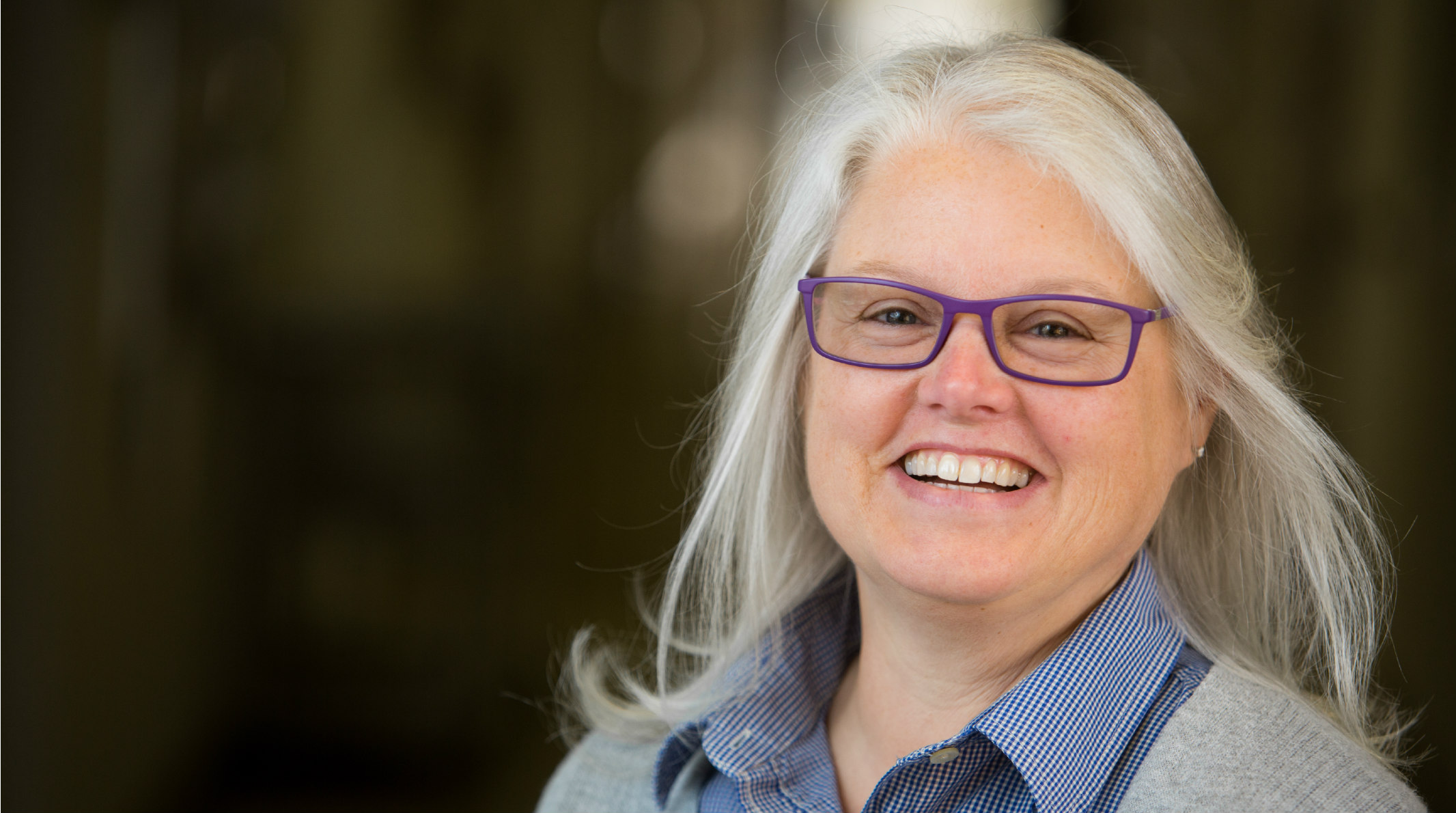
Biology professor goes the extra mile with student advising
Effective student advising is more than checking boxes on a worksheet. To honor the significance of advising students, the Missouri Academic Advising Association (MACADA) recognizes achievements in the field. This year, the association honored Tammy Welchert, associate teaching professor, director of academic advising, with the Outstanding Academic Advising Award for Academic Advising Administrator.
“Dr. Welchert has been a long-time champion of advising and the MACADA organization, including serving on our MACADA Executive Board as our Liaison Coordinator from 2006-2008, and our Kansas City Representative from 2005-2006,” says Bethany Jordan, MACADA president-elect. Welchert also served as President of MACADA from 2009-2010.
Jordan says the nominations and awards serve as a recognition from colleagues who have identified these individuals as champions of advising who strives to make an impact in the field.
"Advisors make a difference in the lives of their students every single day. We empower them to be independent, confident professionals." – Tammy Welchert
“Her letters of support spoke volumes about the role she continues to play to improve academic advising on the UMKC campus.”
Welchert is living what she learned. She is the product of strong academic advising.
“I didn’t start college until five years after I graduated from high school,” Welchert says. “I was married and had a young daughter. In my first term my biology professor, Dr. Albert Gordon, might have recognized me as a non-traditional student and perhaps that caught his eye. It was a fairly small class and I did well. He would stay in the lab and talk to students before and after class and we got to know each other. He took me under his wing and guided me throughout my undergraduate degree. We still stay in touch and trade Christmas cards to update each other on our lives every year.”
Welchert has carried that model of mentoring forward. She sees advisors as students’ success coaches, cheerleaders and parents away from home.
“Advisors make a difference in the lives of their students every single day,” she says. “We empower them to be independent, confident professionals.”
But beyond being willing to listen, laugh and advise, Welchert aims to inspire students to be happy, confident and prepared for the next steps of their journey.
“Our students inspire me every day with the incredible talent they bring,” she says. “Some of them just need someone to believe in them to tip the scale that allows them to bloom.”
That someone is often Welchert, who has a box filled with students notes of gratitude that she refers to as her “sunshine file.”
“It’s filled with cards and letters from students over the years thanking me for being there for them, for believing in them when they couldn’t believe in themselves. Advisors make a difference in the lives of their students every single day. We empower them to be independent, confident professionals.”
Welchert is looking forward to connecting with her colleagues at this year’s MACADA virtual conference.
“In my new position as director for academic advising at UMKC there will be more reasons than ever for us to find ways to partner to support our advisors.”
“Dr. Welchert has been a long-time champion of advising and the MACADA organization,” Jordan says. “We thank her for all her hard work, and congratulate her on a well-deserved recognition.”
Sep 21, 2020
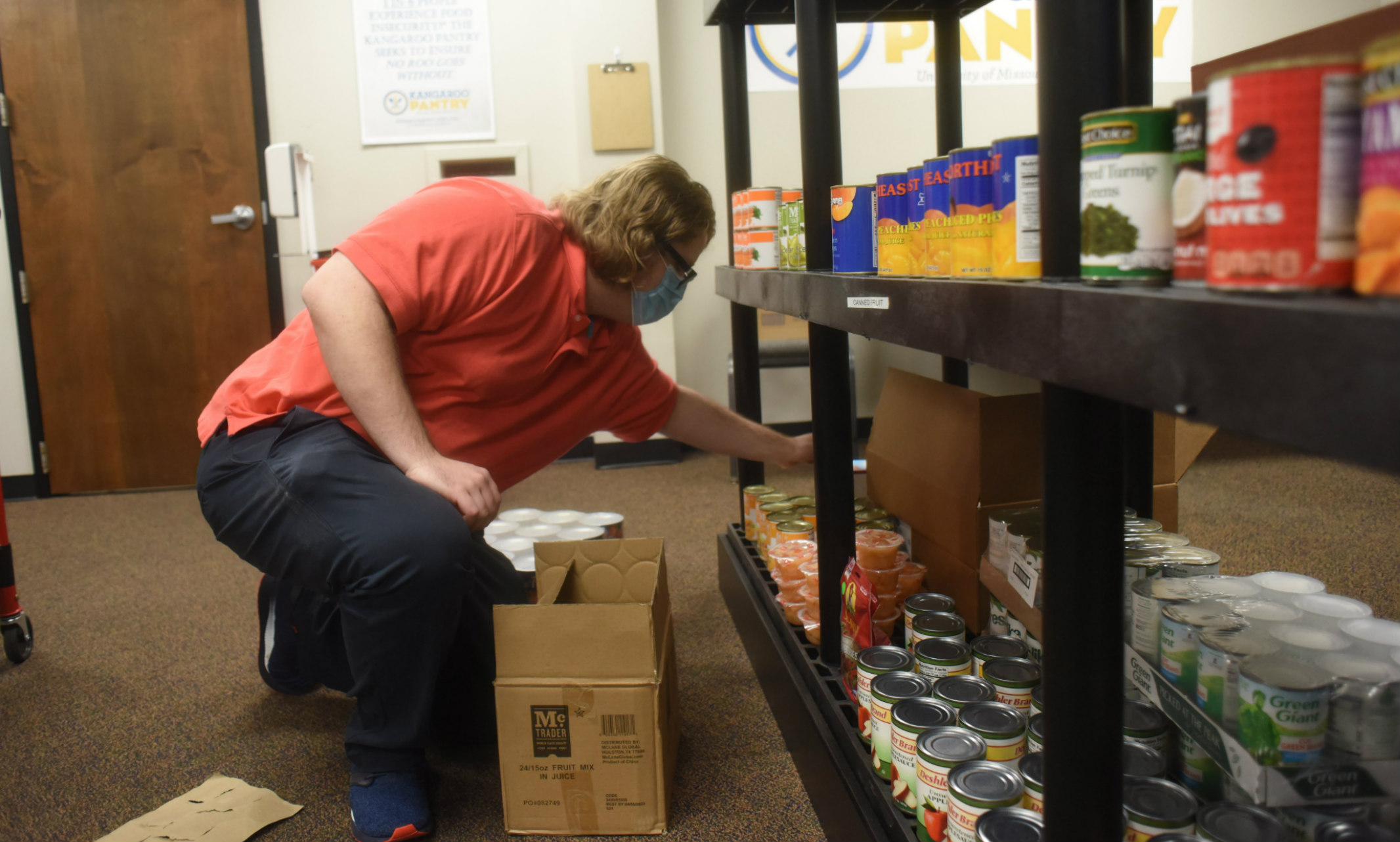
Satellite Kangaroo Pantry locations suggested for Volker and Health Sciences campuses
Since opening five years ago, Kangaroo Food Pantry has given UMKC students, faculty and staff access to food. Then the pandemic hit, and the demand has more than doubled.
With the growing need, Chancellor Mauli Agrawal formed a food security task force charged with finding gaps and finding solutions. The group studied best practices at other universities, analyzed campus survey data and held student focus groups.
“We made recommendations that are being implemented now and later this semester, but also determined future needs,” said Sue Agrawal, a co-chair of the task force and the chancellor's wife. “We want long-term solutions that make food accessible and convenient for our campus community.”
Based on the task force’s recommendations, this fall the Kangaroo Pantry, located at 4825 Troost Ave., room 103, extended its hours of operations from 6 to 12 hours per week, and expanded its offerings to include fresh produce. It also transitioned the pantry to operate as a full client-choice model so clients can shop as they would at a traditional grocery store.
The task force recommended that Kangaroo Pantry continue online request/pick-up option for students that was instituted during the COVID-19 pandemic in March, and to consider alternate locations for pick-up to make more convenient for students, such as Student Union. In addition, the group recommended establishing satellite pantry locations this fall on the Volker and Health Sciences District campuses.
"Anthony Maly, senior program manager in the Office of Student Involvement, and the Student Affairs team are making good progress and have already implemented several of the recommendations from the task force," said Sheri Gormley, a co-chair of the task force and director of strategic initiatives in the chancellor's office. "To build on this work, the chancellor has recently formed a food security advisory committee to prioritize recommendations from the task force and collaborate closely with our student affairs and student success teams to improve our students’ ability to access food and other basic needs.”
The group’s long-term recommendations:
Consider moving Volker pantry to more central location on Volker campus.
Develop permanent location on Health Sciences District campus.
Increase food offerings.
Expand operations to 40 hours or more per week.
Hire a full-time coordinator.
Institute comprehensive volunteer program to run food pantry.
Build new community partnerships and resource options for students experiencing food insecurity.
Create more food drives for the pantry.
Work in collaboration with UMKC Foundation to develop a comprehensive fundraising campaign with plan for outreach to local and national foundations.
Create a basic-needs center that would share space with pantry, which could contain school supplies and student resources.
Food security task force members are:
Sue Agrawal, co-chair, community volunteer
Obie Austin, co-chair, Student Health administrator
Sheri Gormley, co-chair, executive director of strategic initiatives, Chancellor’s Office
Debby Ballard, president of Sprint Foundation and UMKC Trustee
Stefanie Ellison, professor, associate dean for learning initiatives, School of Medicine
Sally Ellis Fletcher, associate dean for students, School of Nursing and Health Studies
Kellee Harris, assistant director, Multicultural Student Affairs
Kimberly Johnson, director of special projects, Chancellor’s Office
Ali Korkmaz, director of Institutional Research
Anthony Maly, senior program manager, Office of Student Involvement
Uzziel Hernandez Pecina, assistant teaching professor, School of Education
Gabriel Rop, director of programs and operations, Reconciliation Services
Leslie Tracy, residence hall manager, Residential Life
Katie Wiegand, graduate student, School of Social Work
Sep 21, 2020
Inside Higher Ed publication highlights UMKC work with prospective Latinx students
Since virtual channels make it possible to provide native-speaking representatives and break down cultural barriers, institutions can use digital platforms to connect with historically underserved groups of first-generation students and their families. A recent opinion article from Inside Her Ed gave UMKC as an example of this. UMKC reaches prospective Latinx students virtually with live remote bilingual chat office hours.
Sep 21, 2020
Fox4KC interviews UMKC political science professor
Beth Vonnahme, an associate professor of political science at the University of Missouri-Kansas City, said both sides are up for the fight. Read the article on the Fox4KC website.
Sep 21, 2020
Dia Wall, KSHB, talks to U.S. Supreme Court expert at UMKC Law
David Achtenberg, UMKC School of Law professor, was interviewed for this story. Watch the news segment.
Sep 18, 2020
Conservatory piano faculty find creative ways to stay engaged with students and perform during social distancing
In a time when a lot of us are feeling disconnected and missing personal interactions, members of the UMKC Conservatory piano faculty have been finding new ways to connect with students and audiences alike. Read the article in KC Studio.
Sep 18, 2020
KSHB interviews UMKC Avanzando program director; Race, Ethnic and Gender Studies associate professor; and UMKC Bloch student
Ivan Ramirez works in the UMKC Office of Multicultural Student Affairs and leads the Avanzando program. Andres Gutierrez interviewed Ramirez; Theresa Torres, an associate professor of Race, Ethnic and Gender Studies at UMKC; and Donovan Castaneda, UMKC Bloch student. Read the full story or watch to the news clip.
Sep 17, 2020
KCUR reports on a new UMKC department that was driven by student demand.
Toya Like, associate professor and interim chair, Race, Ethnic and Gender Studies Department at the University of Missouri-Kansas City, was a guest on Up to Date.
Sep 17, 2020
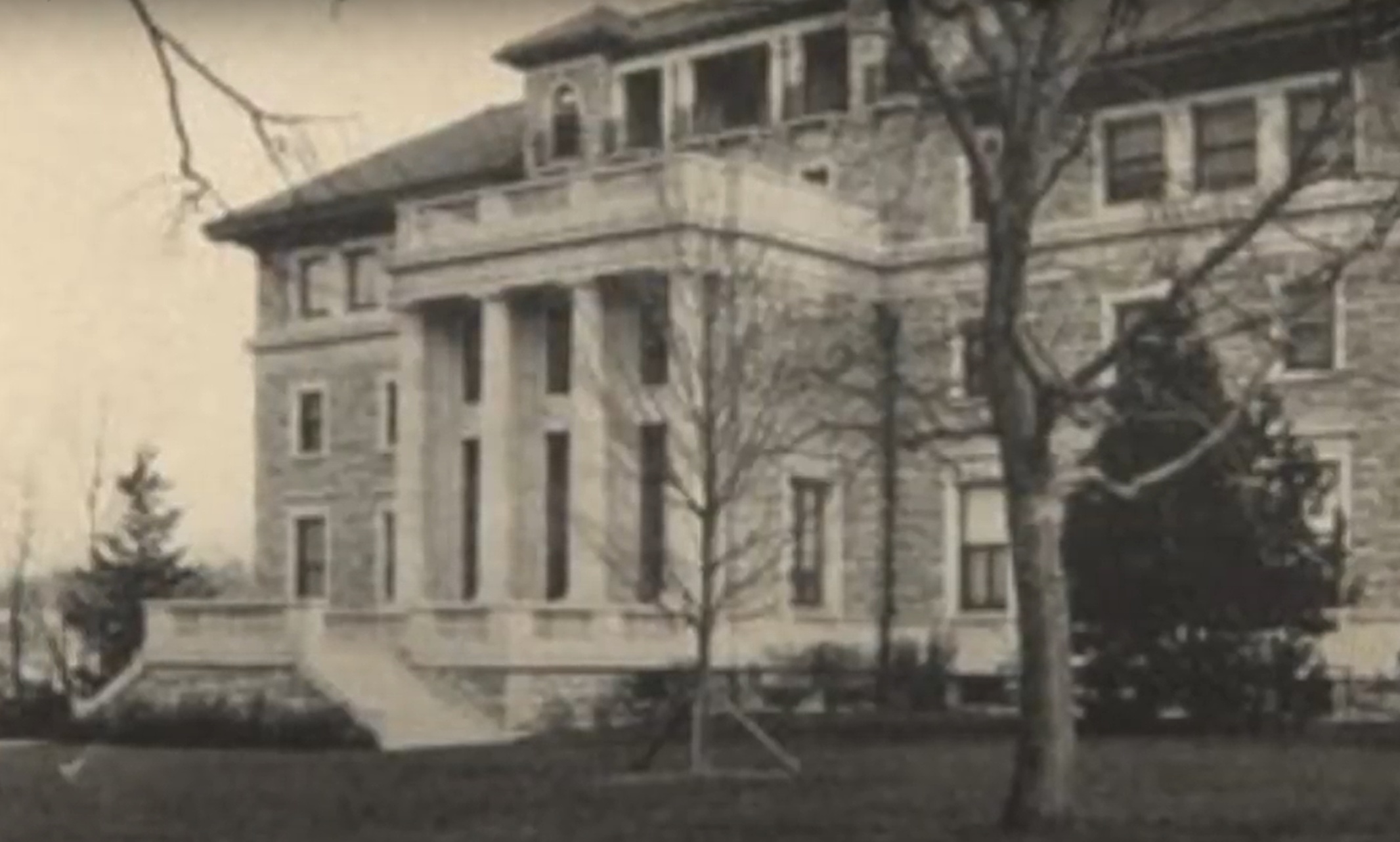
Chris Wolff shares his research on UMKC through the decades
Whether you're a new student to campus or a seasoned employee, you're bound to learn something new from this new campus history tour video series.
Chris Wolff, general merchandise manager at the UMKC Bookstore, will give a little background to the history of UMKC and help you see campus in a new light. Check out the videos for the campus locales you visit regularly or take your buds and phone along and give yourself a guided walking tour of campus. Once you know the history behind it, you’ll never be able to look at it the same way again.
Start with this video below of Volker Campus history.
Then check out these videos in the rest of the series:
Scofield Hall
Haag Hall
Haag Hall - Second Floor Murals
Haag Hall - Third Floor Murals
Royall Hall
Law Building
Swinney Center
University Playhouse
Gateway Sculptures
Atterbury Student Success Center and Pierson Auditorium
Sep 16, 2020
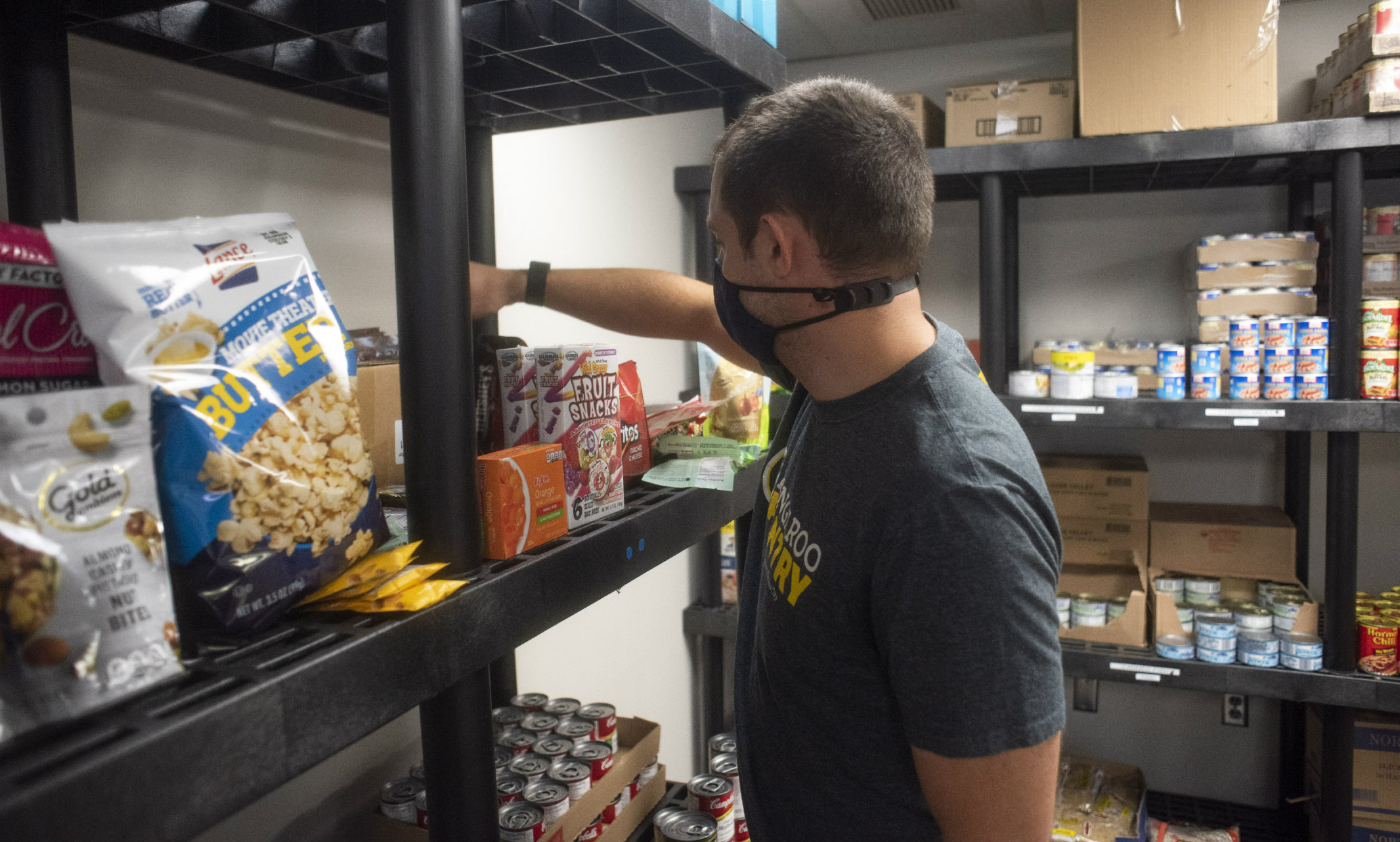
Recent updates to the pantry include fresh produce and client choice model
Two years ago, the U.S. Department of Agriculture reported that 11% of Americans experienced food insecurity. Since COVID-19, that number has doubled. And our UMKC Kangaroo Food Pantry is observing the same uptick in need this year.
The Kangaroo Food Pantry strives to provide food assistance for Roos in need, including students, faculty and staff.
“We had a lot of issues with COVID,” a recent pantry visitor shared. “A lot of unexpected expenses came up as a result. The Kangaroo Pantry has helped me overcome that.”
Anthony Maly, senior program manager, says historically the food pantry was distributing about 500-800 pounds of food per month but from March through August this year, they’ve given out more than 6,000 pounds.
Maly estimates the monthly need for food to be around 1,200-1,500 pounds for the duration of the semester and likely into 2021.
The pantry opened in 2015, after UMKC staff members learned of students in need of food assistance. Since then, the pantry has seen some changes, including the addition of fresh produce and a new refrigerator and freezer that will soon house meat and dairy items. The pantry has also switched to a “full client choice” model that allows individuals to pick their own food off the shelves. A majority of these changes stem from a food security task force created by Chancellor Agrawal to examine the needs of the campus community. The task force also completed recommendations for long-term expansion of the food pantry that will enable more students, faculty and staff to take advantage of the resources.
“We had a lot of issues with COVID. A lot of unexpected expenses came up as a result. The Kangaroo Pantry has helped me overcome that.” — Recent pantry visitor
How to receive assistance from the Kangaroo Food Pantry
If you are a UMKC student, faculty or staff member who needs food assistance, bring your university ID and you can shop for food during the pantry’s open hours, see below. Masks or face coverings are required and a limited number of individuals can be in the space at one time. Maly says they are frequently sanitizing high-touch surface areas to ensure the pantry is clean and safe for all visitors.
Tuesday: 1:30-5:30 p.m.Wednesday and Thursday: 1-5 p.m.
4825 Troost Ave.Room 103Kansas City, MO 64110
Roos are eligible to pick up 20 food items once a week, with a maximum of five proteins. Fresh produce doesn’t count toward the 20 items. If you’re unable to visit the pantry during these times, contact kangaroopantry@umkc.edu for other arrangements.
Sam Weis, graduate assistant at the pantry, stocks new food arrivals on the shelves.
How to support the Kangaroo Food Pantry
If you’d like to donate food to the pantry consider the most needed items below. Due to COVID-19, the pantry has been unable to hold food drives, but Maly says they are working to coordinate drives for the fall semester.
Items currently needed:
Canned chicken
Mac and cheese
Ramen
Canned vegetables
Monetary donations are important so that additional food can be purchased for the pantry, if you’d like to make a financial contribution click here.
Another way to support the Kangaroo Pantry is to participate in the UMKC Virtual 5K, Oct. 4-11. Registration is $25 and all proceeds support the pantry.
Learn more about the Kangaroo Pantry
Sep 15, 2020
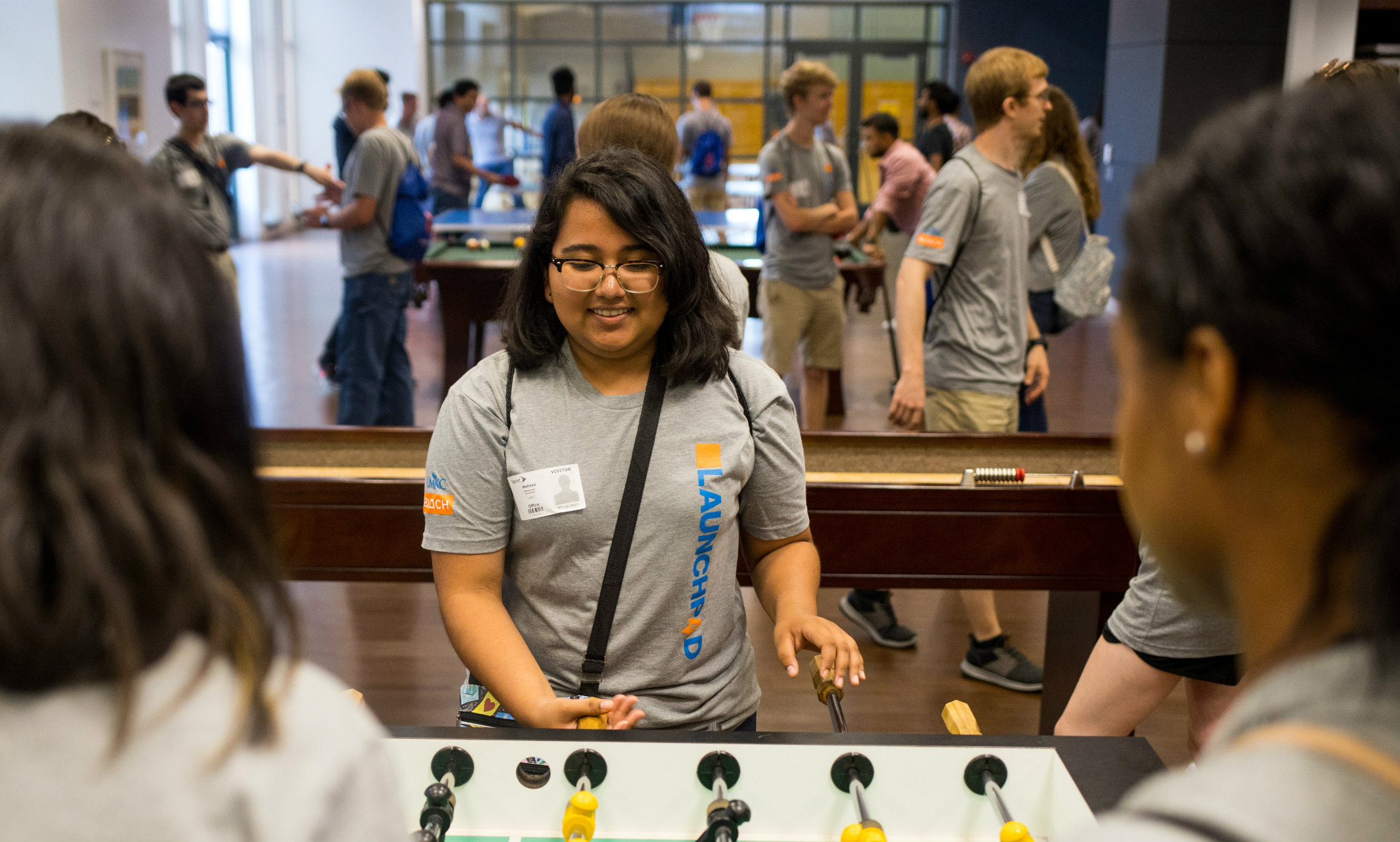
Hispanic high school students offered special programming, up to $10,000 in scholarships
The Hispanic community in Kansas City faces a 17-point college degree attainment gap compared to all other adults in the region. This means getting into and being successful in college can be a tough road ahead for students in this community. The University of Missouri-Kansas City is addressing the issue.
In an effort to close this gap, the Launchpad program at the Henry W. Bloch School of Management is teaming up with the Greater Kansas City Hispanic Development Fund to help provide a pathway for Hispanic students and their families as they prepare for college.
This partnership brings tailored Launchpad programming – including professional development and leadership skills – and scholarship support to Hispanic students planning to join the Bloch School. These opportunities and more will give students concrete skills to better stand out as they navigate college and prepare for their future careers. Scholarship support ranges up to $10,000 per year, when paired with a UMKC Automatic Scholarship.
As these high school students become Bloch Launchpad Scholars, they will continue to benefit by gaining exclusive access to additional coaching, professional development, leadership advising and professional networks – setting them up for a bright future.
How to Apply
Apply to UMKC and gain admission to study Business (B.B.A.), or Accounting (B.S.A.) no later than Nov. 15, 2021, (for Spring 2021 admission) or April 1, 2021 (for Summer/Fall 2021 admission)
Complete the Bloch Launchpad Application by Nov. 15, 2021, (for Spring 2021 admission) or April 1, 2021 (for Summer/Fall 2021 admission)
Submit official high school transcripts and ACT/SAT scores (high school students only) or submit official college transcript(s) (transfer students and/or high school students with dual-credit)
Sep 15, 2020
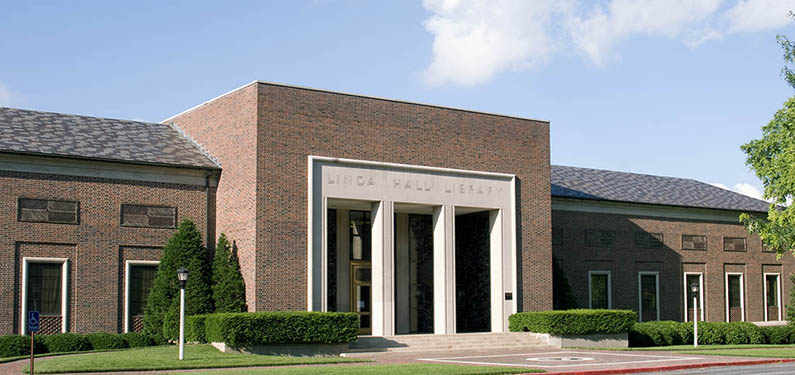
Curators’ Distinguished Professor supports Kansas City scholars
Jeff Rydberg-Cox, Ph.D.,Curators' Distinguished Professor in the UMKC English Languages and Literature Department, is the first-ever Scholar-in-Residence at the Linda Hall Library.
Located at 5109 Cherry Street next to the University of Missouri-Kansas City campus, the Linda Hall Library is an independent research library devoted to science, engineering and technology. This newly-established position provides support for scholars in the Kansas City metropolitan area whose research would benefit from sustained engagement with the library’s collections.
Jeff Rydberg-Cox, Ph.D.
“Linda Hall Library is full of treasures, and it has amazing collections covering science, engineering and technology with a spectacular history of science collection,” said Rydberg-Cox. “I was so happy that the library gave me the opportunity to spend an uninterrupted stretch of time working with their collections.”
As scholar-in-residence, Rydberg-Cox used his experience in digital humanities and put it into practice. One way he did that was through lectures, such as the virtual presentation on July 30, “Modeling the Sources and the Topics of Pliny’s Natural History.”
Gaius Plinius Secundus, called Pliny the Elder, was a Roman author. He wrote Naturalis Historia, which became an editorial model for later encyclopedias. In the July lecture, Rydberg-Cox discussed the nature of Pliny’s work, how other scholars and editors have tried to make the work more manageable and the ways that network analysis and other quantitative approaches can help people understand the sources that Pliny used.
“I am very excited to start developing projects with the students in my digital humanities seminar and my course on methods for digital publications,” said Rydberg-Cox. “I have a long wish list of other works in the History of Science Collection that I would like to study and integrate into my classes, such as a 1522 printed edition of Natural Questions by Seneca the Younger, a near contemporary of Pliny, a 1472 printing of Appian’s history of the Roman civil wars, a 1515 edition of Lucretius’ On the Nature of Things, and the library’s six editions of Vitruvius’ work on architecture from the 16th and 17th centuries.”
Rydberg-Cox started at UMKC during the 2000-2001 academic year. He teaches courses on ancient literature, digital humanities and representations of the ancient world in film. His research is on methodologies for digitizing texts and other materials in the humanities, multispectral analysis of manuscripts and early printed books, statistical analysis of Ancient Greek texts and applying techniques from the field of network analysis to literary texts.
Sep 15, 2020
The Journal of Blacks in Higher Education reports on the new Race, Ethnic and Gender Studies Department
The University of Missouri-Kansas City announced it is combining its Black studies, Latin American studies and women’s studies programs into a new academic department. Read the full article.
Sep 15, 2020
NBC News taps UMKC professor for comment about Kansas City crime statistics
Ken Novak, professor of Criminal Justice and Criminology, said that while the statistics are encouraging, crime typically ebbs and flows. Read the article on the NBC News website.
Sep 15, 2020
KCUR explores food insecurity, includes college students in discussion
Anthony Maly, senior program manager at the UMKC Office of Student Involvement, was a guest on Up to Date.
Sep 15, 2020
UMKC School of Law professor represents Eaton
Dale Wayne Eaton’s attorney, University of Missouri-Kansas City law professor Sean O’Brien, had argued his client had the right, pursuant to the Fifth, Sixth and 14th amendments to the Constitution, to have a defense lawyer present at any state-ordered competency. The story from the Casper Star Tribune was picked up by The Billings Gazette and The Sidney Herald.
Sep 14, 2020
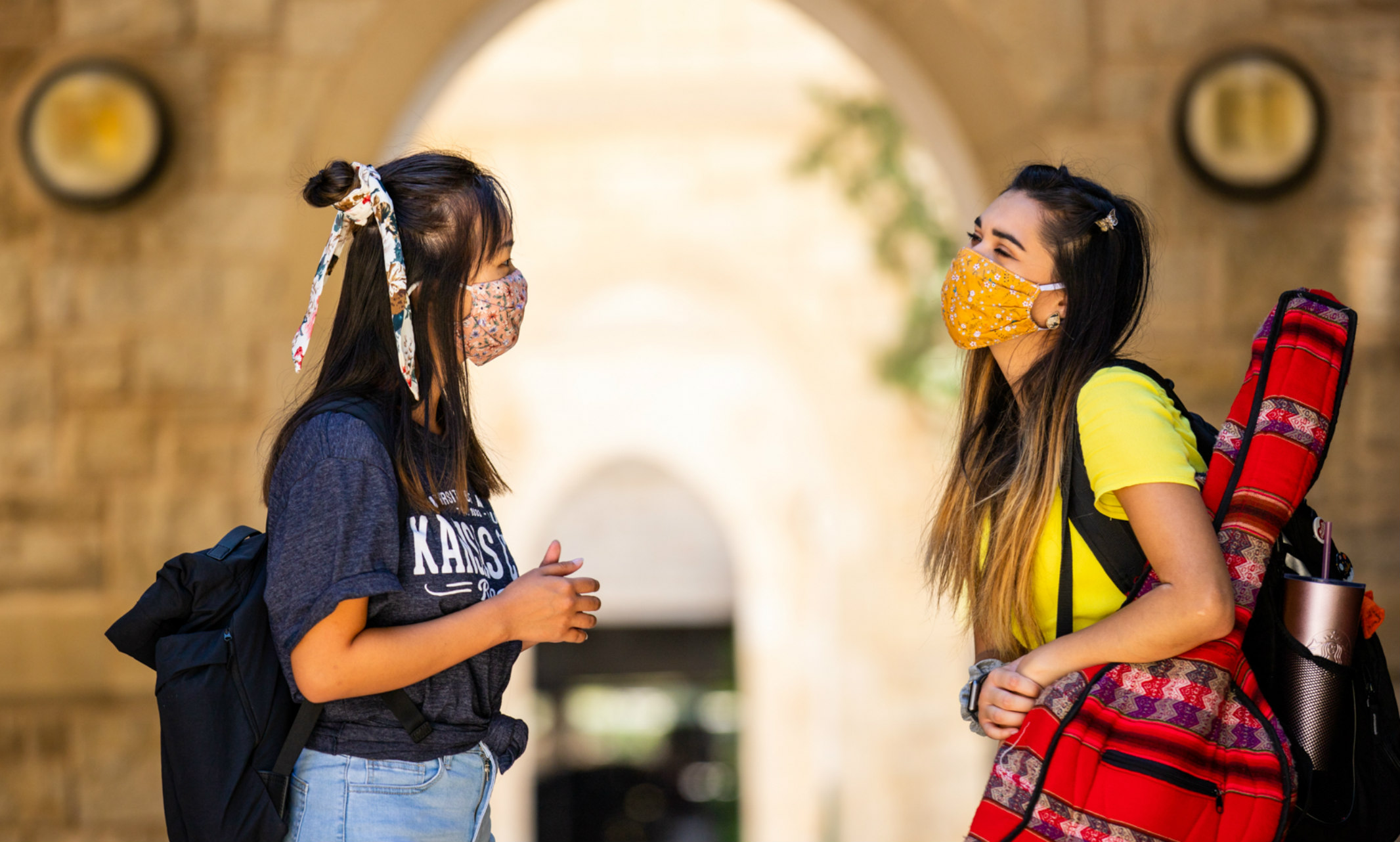
Photos show the new normal at UMKC as classes get underway
We were excited to welcome our Roos back to campus!
The beginning of the fall semester looked different this year, but Roo pride was still felt all throughout UMKC. We welcomed back students with a socially distanced parade, virtual Week of Welcome events and much more. With many safety precautions in place, our students were able to connect with one another and make a strong start to the semester. Here are a few photos that highlight our return to campus.
Sep 11, 2020
USA Today taps assistant professor
“You call 911. You need an ambulance. You can’t really shop around for it,” said Christopher Garmon, an assistant professor of Health Administration at the UMKC Henry W. Bloch School of Management who has studied the issue. Read the full article.
Sep 11, 2020
National Geographic interviews UMKC College of Arts & Sciences professor
Tina Niemi, a geologist at the UMKC Department of Earth & Environmental Sciences who was not involved with the Tel Kabri project, agrees that the evidence seems to point to an earthquake, though she says more research is needed to determine exactly where it originated. Read the full article.
Sep 11, 2020
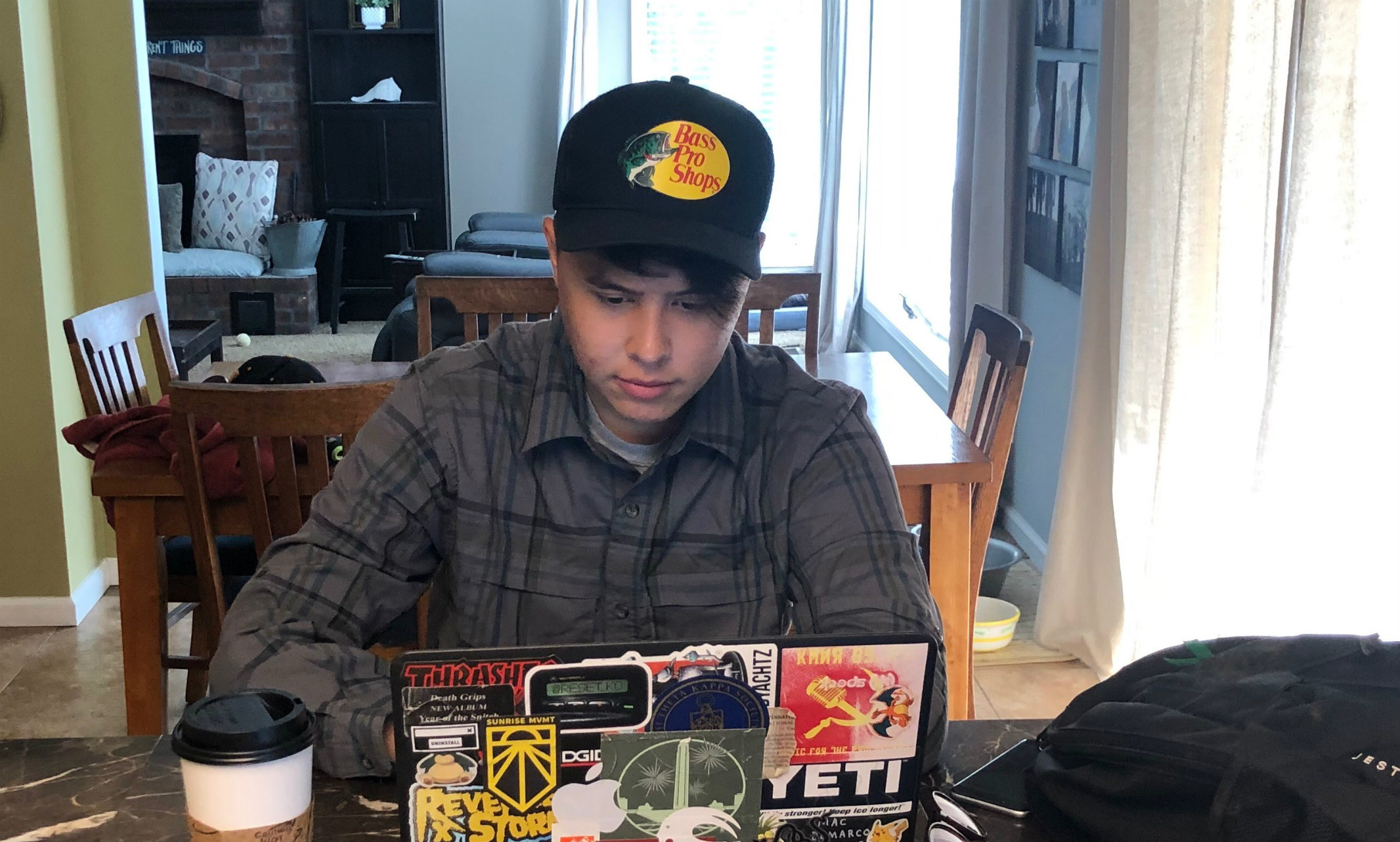
Grant Verhulst shares his internship experience
Most Missourians are familiar with the Mark Twain National Forest, and many have even seen it in person. Imagine getting to look at it from space. That is precisely what UMKC Environmental Science student Grant Verhulst spent his summer doing.
How did you first discover the NASA DEVELOP Program?
This internship was introduced to me in my environmental science program. My mentor, Dr. Jejung Lee has had two of his former students participate in it as well. It is a great opportunity for students in the environmental sciences field because this program facilitates research projects to address environmental concerns all across the country.
What excited you most about conducting environmental research with NASA?
I applied directly to a project involving the Mark Twain National Forest. I have always been interested in it, having camped and gone hiking there many times. This internship also gave me a great picture of what my future career could look like. Collaborating with NASA and other environmental agencies is exactly what I hope to be doing someday. I also really enjoyed partnering with my three other research participants on this project. We were a mixed team of undergraduates and graduate students so I gained useful insight into what my next steps could look like as a researcher.
COVID-19 has obviously made a huge impact on in-person experiences. What was it like conducting research remotely all summer?
Our main task was to utilize remote sensing using satellites produced by NASA to conduct feasibility studies. We wanted to see if it was possible to identify and track an invasive species of trees with satellite technology. While our research was possible to conduct from home, I did miss the energy that comes from sharing lab space with other researchers and having free flowing ideas and exchanges.
Photo by Missouri State Parks
What were the biggest benefits of interning for NASA?
The networking aspect of the internship was hugely beneficial. I got to speak with a lot of government employees in various agencies and practice having scientific conversations with non-scientists. I also learned how to create a lot of scientific materials like posters, presentations and papers. These are skills that any researcher needs to have.
"UMKC is filled with opportunities, especially in the environmental sciences field." – Grant Verhulst
How did being at UMKC help you get to this place in your academic career?
UMKC is filled with opportunities, especially in the environmental sciences field. There is also a lot of environmental action going on around this region, so opportunities abound. UMKC provides students the opportunity to conduct undergraduate research which I believe helped me get accepted into the DEVELOP program in the first place.
"Try everything. Environmental science is such a broad field with so many opportunities. You could get really deep into the science aspects and focus on lab research." – Grant Verhulst
What advice would you give to a younger student?
Try everything. Environmental science is such a broad field with so many opportunities. You could get really deep into the science aspects and focus on lab research. You could also work on climate justice and public policy or local regulations. If you take opportunities and explore everything you can figure out what you like doing the most. My internship with NASA is a great example of that. I am now one step closer to finding my dream career because of my time in this program.
Sep 10, 2020
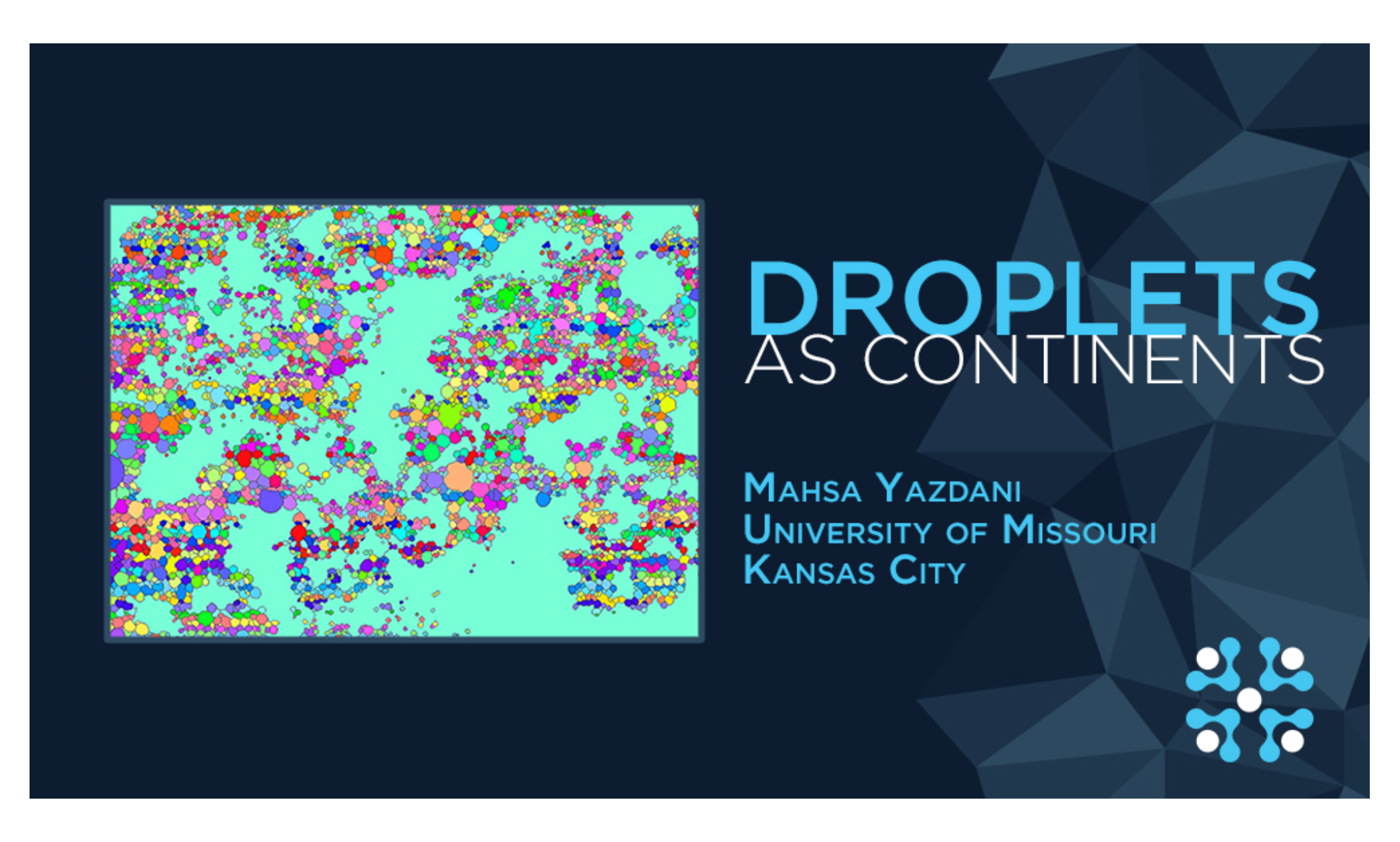
Mahsa Yazdani’s ‘Droplets as Continents’ chosen for annual BioNexus KC Science2Art event
Many of us don’t often view science as art. When we think of art, we see something abstract, something, maybe, with pretty colors, that's nice to look at or think about. That was until the introduction of arts into science, technology, engineering and math fields – STEAM.
Mechanical engineering doctoral student Mahsa Yazdani created an artistic digital imaging piece from her research that landed among the 12 featured visual works currently up for sale in the annual BioNexus KC Science2Art auction.
Science2Art is a platform for regional scientists to display and describe their research through the visual arts. Each of the images tells a personal research story and poetically captures the fieldwork performed by the scientists and their teams. Yazdani, under the direction of assistant professor Zahra Niroobakhsh, Ph.D., is part of a research team studying if non-toxic food-grade surfactants can be used to prevent environmental damage as a result of crude-oil spills.
As the only UMKC student to have their work included in the BioNexus KC art auction, Yazdani shared the inspiration behind her artwork, background on her research and the importance of incorporating art into science.
What influenced your interest in engineering?
I became interested in engineering while I was working on an application of engineering in biology. I noticed a combination of engineering and biology could affect human life in various ways, specifically by advancing our understanding of the environment and health.
What are your primary areas of research?
In addition to optimizing emulsions for oil spill remediation, I’m working on creating biomembranes using biocompatible surfactants through microfluidic systems for pharmaceutical applications.
How has UMKC helped to inspire and influence your research?
UMKC resources are key to my ability to continue several unique projects. Not only does UMKC give me access to other researchers’ scholarly work, but it also allows me to become acquainted with esteemed scientists who inspire me throughout my projects.
What do you hope to do with your degree when you graduate?
I am an interdisciplinary Ph.D. studying mechanical engineering and pharmaceutical sciences. I have always been interested in research – and becoming an effective researcher – learning new things and investigating. Walking on the edge of science fulfills my passion for solving problems to advance human health.
Why is it important to incorporate art into science?
I think art functions as a medium to expose people to the amazing, beautiful aspects of engineering. Without that exposure, everyone might not fully grasp how bold and astonishing science really is.
Droplets as Continents. Is this work based on an ongoing project?
“Droplet as Continents” is currently an ongoing project, and we are still working on that in the PRISM (Printing and Rheology of Interfacial Soft Materials) research group under the supervision of Dr. Zahra Niroobakhsh.
What is the inspiration behind your art?
When the BP oil spill happened in 2010, a large amount of crude oil leaked into the Gulf of Mexico. Several previous studies investigated the effects of this using various toxic surfactants to solve the problem. We are studying the effects of non-toxic surfactants on oil spill remediation. Droplets as Continents is a post-processing image from our preliminary studies, which displays several droplets covered with water in a similar way that continents are separated with water on the surface of the earth.
What are you learning from your research?
It has been documented that toxic surfactants have been used to amend oil slicks floating on the surface of the water during clean-up activities following an oil spill. As a member of the niROO PRISM Lab supervised by Dr. Niroobakhsh, I am studying the effectiveness of non-toxic food-grade surfactants to improve the effects of a similar environmental disaster. So far, we’ve done several preliminarily studies and hopefully, these non-toxic surfactants are just as effective as toxic ones, only without resulting in additional damage to the environment.
You are the first student to have their art included in the Science2Art auction. What does that mean for you?
I feel honored to have this special opportunity, and I’m glad that this platform helped me to contribute to fundraising for STEM education in Kansas City.
The current bid for Droplets as Continents is $350 on the BioNexus KC website. Images included in Science2Art were submitted by scientists from Columbia, Missouri, to Manhattan, Kansas. All proceeds from the Science2Art auction will be donated to STEAM education in KC.
Check out more UMKC Research
Sep 10, 2020
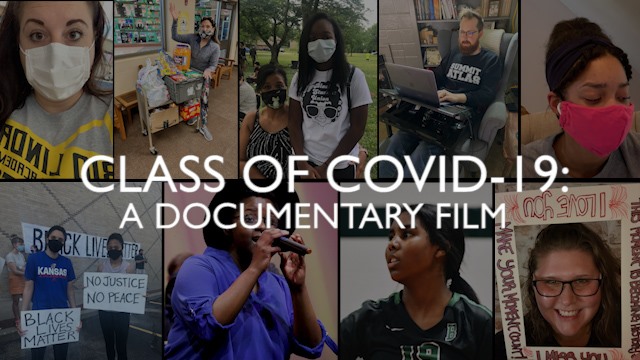
UMKC professor, Kansas City filmmaker team up to show experiences and emotions of students, teachers, families.
What do you do if you’re planning to make a documentary about teaching history in an age of disinformation, but history itself takes a big turn?
If you’re Donna Davis, Ph.D., a professor in the UMKC School of Education, you go with the more urgent story: How are the students, teachers and parents of the “Class of COVID-19” reacting to their new reality?
“This was supposed to be a small research project,” Davis said, “interviewing maybe four or five teachers about what it means to teach U.S. history with Twitter, Instagram, TikTok and other streams of information constantly feeding into their students’ worlds. I wanted to know how these teachers helped students understand what is fact and what is fiction.
“When the pandemic hit, it was clear that the film needed to adapt, adjust and make room for additional conversations.”
Fortunately, Davis already had Kansas City filmmaker Jon Brick on board. Davis’ work on the historical and social foundations of education typically appears in scholarly journals and books, but she thought filmed interviews would bring her new project to life.
“You’ll see both students and teachers express their real outrage about so much of what is happening.”
— Donna Davis
“I researched several professional directors in the area, and Jon stood out,” Davis said.
Brick’s credits include documentaries, original online video, and film and social media content for clients including Yahoo! News, People, Oracle, Getty Film and “60 Minutes.” Most relevant to Davis’s project was Brick’s 2018 documentary, “Uncommon Allies,” which told the extraordinary story of Rosilyn Temple, a Kansas City woman who responded to her son’s murder in 2011 by becoming an activist for reducing violence and improving police-community relations.
“Jon’s commitment to telling stories that are founded in social justice was important,” Davis said. “And his background in working closely with the Kansas City Police Department and community members on “Uncommon Allies” made this transition very smooth. We were able to ask very difficult questions of our interview subjects, and they were so very open and willing to share. You’ll see both students and teachers express their real outrage about so much of what is happening.”
Now, they have done more than 60 interviews, with more in store as schools and families continue to adapt to the pandemic, the explosion of protests over shootings by police, and other developments.
“This is an unfolding story, and the end hasn’t been written yet, unfortunately,” Davis said. “We continue to collect stories and get a look at just how devastating this has been for so many people.”
Davis said she already had learned how much people want to tell their stories and be heard, how powerful the stories of young people are, and how much they want social justice and social change.
“This is the Class of COVID-19, all of the participants on a terrible journey who took the time to share their lives with us.” — Donna Davis
Though they are staying flexible, Davis and Brick currently are hoping to produce a one-hour documentary by next summer or fall.
“As we thought about it, we wanted to capture the initial reaction to the pandemic, the various touch-points along the way, and then, hopefully, a look at the resolution of this nightmare, when a vaccine or solid treatment is in place,” Davis said. “This is the Class of COVID-19—all of the participants on a terrible journey who took the time to share their lives with us.”
As for distribution, Brick said, “We’ll submit the film to a number of film festivals as a feature documentary. We’ll work with some distribution partners to get the film out on streaming services such as Netflix, and possibly PBS or other television outlets. We also will do a social impact campaign and use the film for educational purposes.”
Davis and Brick are working with the International Documentary Association to gain fiscal sponsorship and 501c3 status, allowing foundations to contribute to the production of the film. They also have a crowdsourcing campaign underway with Indiegogo where anyone can support the project.
“People need to know that this is a project designed to illuminate the voices of the pandemic and all that took place during this awful time,” Davis said. “We don’t purport to have all the answers, but the questions are very clear and the emotion is raw.”
Sep 09, 2020
Faculty and staff training part of Roos Advocate for Community Change
UMKC people are taking thoughtful action on campus and in our community to ensure lasting and comprehensive change through Roos Advocate for Community Change, a new campus-wide effort announced in June.
It is a significant component of the UMKC response to the tragic death of George Floyd and the vital national conversation on racism it has spawned.
Chancellor Mauli Agrawal is leading this effort, working with a broad leadership group of faculty, staff and students. Activity is comprehensive, with intensive work being done across campus. One such example is the commitment for mandatory professional development for all UMKC faculty and staff by the end of this calendar year.
Beginning Sept. 16, faculty and staff will be required to attend a virtual session of “Unconscious Bias, Microaggressions, and What to do About Them.”
The training will focus on understanding and identifying bias and microaggressions, how to mitigate them and how to respond when you see them carried out by others. The training will offer employees concrete examples of microaggressions, insights on how unconscious bias influences decision-making, interactive conversation and breakout groups. Managers and supervisors will attend similar sessions with an expanded dialogue on how to address microaggressions and bias when it happens.
“I’m really excited for this training. We’ve known that it was needed and now is the time to make it mandatory,” says Susan Wilson, Ph.D., vice chancellor of the UMKC Division of Diversity and Inclusion.
Training sessions will be conducted via Zoom and last one hour and 15 minutes. There will be 36 sessions offered, with a maximum capacity of 60 people per training. Employees can sign up for the sessions directly through MyLearn.
University leadership attended a training earlier this summer with Andrea Hendricks, Ed.D., senior executive director of diversity and inclusion strategy at Cerner.
Professional development efforts are just one piece of Roos Advocate for Community Change. Other initiatives include the Critical Conversations series, virtual resource center and Troost to Prospect partnerships.
Sep 04, 2020
Kansas City community members continue dialogue around local control, use of force and future reforms.
The Future of Policing: Part 2 is the third discussion in the series sponsored by Chancellor Mauli Agrawal of the University of Missouri-Kansas City and the university’s Division of Diversity and Inclusion.
The second discussion focused on policing in the Critical Conversations series took place on Thursday, Aug. 27, and continued the dialogue around local control, use of force and future reforms.
Participating panelists included:
Gwendolyn Grant, president and CEO, Urban League of Greater Kansas City
Ronald Lindsay, pastor, Concord Fortress of Hope Church
Ken Novak, professor, UMKC Department of Criminal Justice and Criminology
Deputy Chief Karl Oakman, Kansas City, Missouri Police
Gary O’Bannon (co-moderator), executive-in-residence, Henry W. Bloch School of Management
Cynthia L. Short, trial lawyer, mitigation specialist and sentencing advocate
Jasmine Ward (co-moderator), third-year student, UMKC School of Law
Local control was top-of-mind since Mayor Lucas recently withdrew a measure allowing voters to weigh in on the issue. Grant cited the move as a wise one, saying that the people of Kansas City were not voting to establish local control or not, but only to have the city council make it a legislative priority.
Lindsay added that while the issue of local control is important, Kansas City would be better served by focusing on how we include communities, individuals and neighborhoods into the global policing strategy.
One way to offer community members insight into the police department is transparency, particularly around use-of-force techniques. Novak said that there is no greater disconnect between the police and public than what is considered a reasonable and unreasonable use-of-force. Partly because the public views use-of-force incidents through a larger, historical lens and partly because they don’t have access to or understand the police department’s existing policies and procedures. Some police departments – including Kansas City – make their policies available online to allow for greater transparency.
Another element that has been brought up nationally is the idea that police forces have “a few bad apples” and their actions aren’t indicative of the entire department. Unfortunately, as Short pointed out, framing the issue as a few bad apples is misleading to the public. Until everyone holds police accountable, including other officers, the situation will remain the same.
Sep 03, 2020
Fox4KC covers recent announcement of STEM funding
The National Science Foundation awarded UMKC $100,000 to support collaborative programming. Read the story from Fox4KC.
Sep 03, 2020
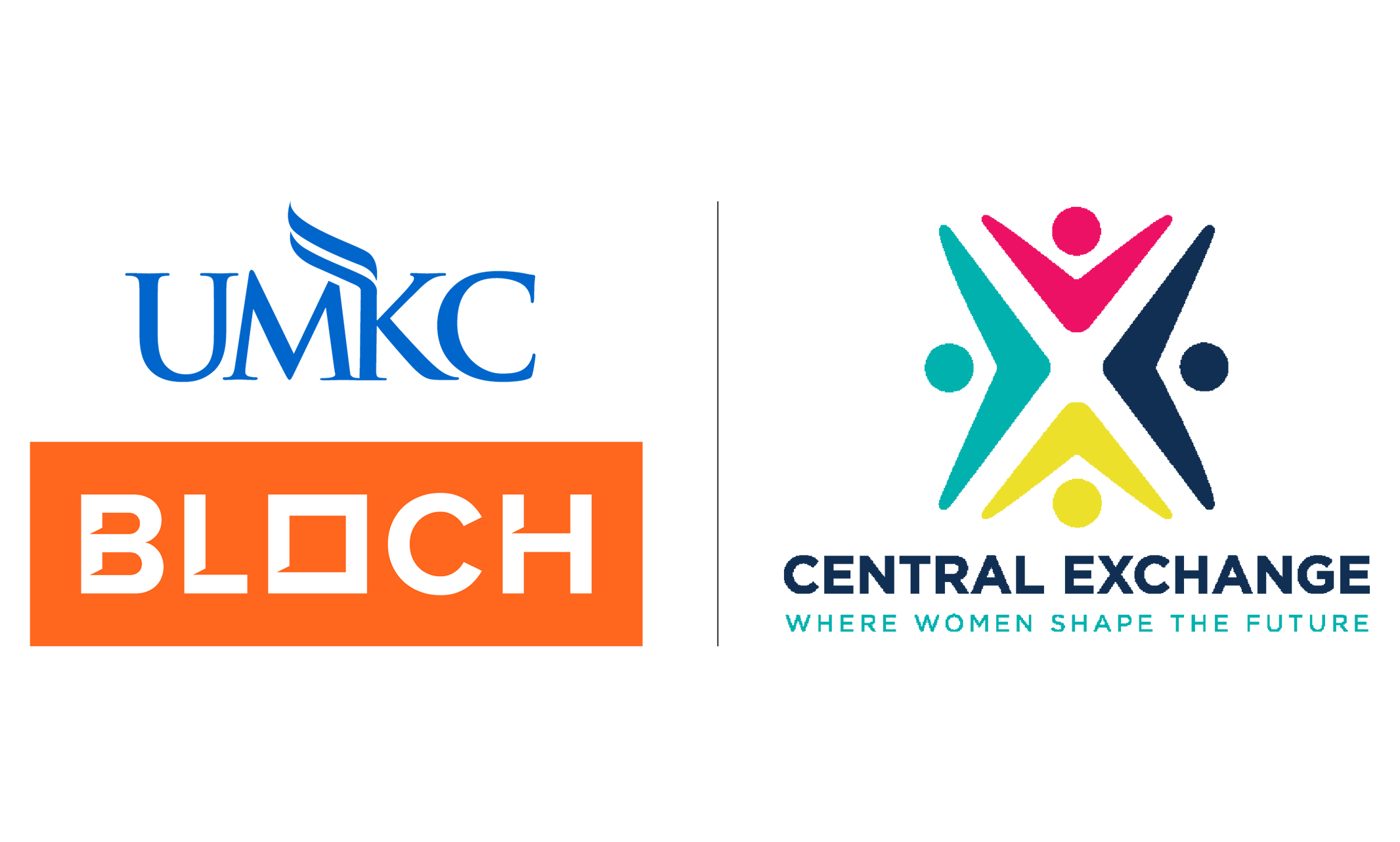
Collaboration will enhance networking and leadership development for women
Central Exchange has signed a three-year services agreement with the Henry W. Bloch School of Management at UMKC to further advance development of women by leveraging Bloch School assets to expand the reach, services and programming of Central Exchange.
Central Exchange, Kansas City’s community for women leaders, has signed a three-year services agreement with the Henry W. Bloch School of Management at the University of Missouri-Kansas City. The strategic and collaborative agreement will further advance development of women by leveraging Bloch School assets to expand the reach, services and programming of Central Exchange. The school will provide leadership and expertise for program design, delivery, and oversight of operations and events.
The agreement was effective as of Sept. 1. The Bloch Executive Education Center will be the new home of Central Exchange. Ann M. Hackett, Ph.D., chief learning and engagement officer for executive education, will lead day-to-day management of Central Exchange.
Hackett and other Bloch Executive Education faculty and staff will also work with the Central Exchange board of directors on strategic planning to find ways to expand the reach and enhance the experience of Central Exchange members and corporate partners.
“We are excited about the opportunity to work with Bloch and build on Central Exchange’s legacy through fresh new programming and expanded networking and development opportunities focused on advancing women, both professionally and personally,” said Ellen Fairchild, Central Exchange board chair. “Additionally, this will allow Central Exchange to streamline its overhead and help ensure its financial future. We want the Central Exchange to be here and relevant for the next 40 years.”
This year, Central Exchange is celebrating its 40th anniversary of being the premier women’s organization in greater Kansas City. With hundreds of members, Central Exchange represents the largest cross-section of women from throughout the Kansas City area. Members include business owners, entrepreneurs, executives, managers, nonprofit professionals, civic leaders and community volunteers.
“This agreement will allow both organizations to build on their long-term community relationships and expertise to accelerate women achieving their full potential,” Hackett said. “It is exciting to think about where Central Exchange can go with the Bloch engine powering its vital mission.”
Central Exchange is Kansas City’s community for women leaders. A women-centric organization that empowers and connects women across generations, industries and perspectives, promotes equity for women, ignites confidence in women and cultivates and accelerates women leaders. For more information go to www.centralexchange.org.
The Bloch Executive Education Center provides opportunities — including seminars, certificates, and custom programs — to help professionals and the organizations they serve promote innovative insights and business best practices.
Sep 02, 2020
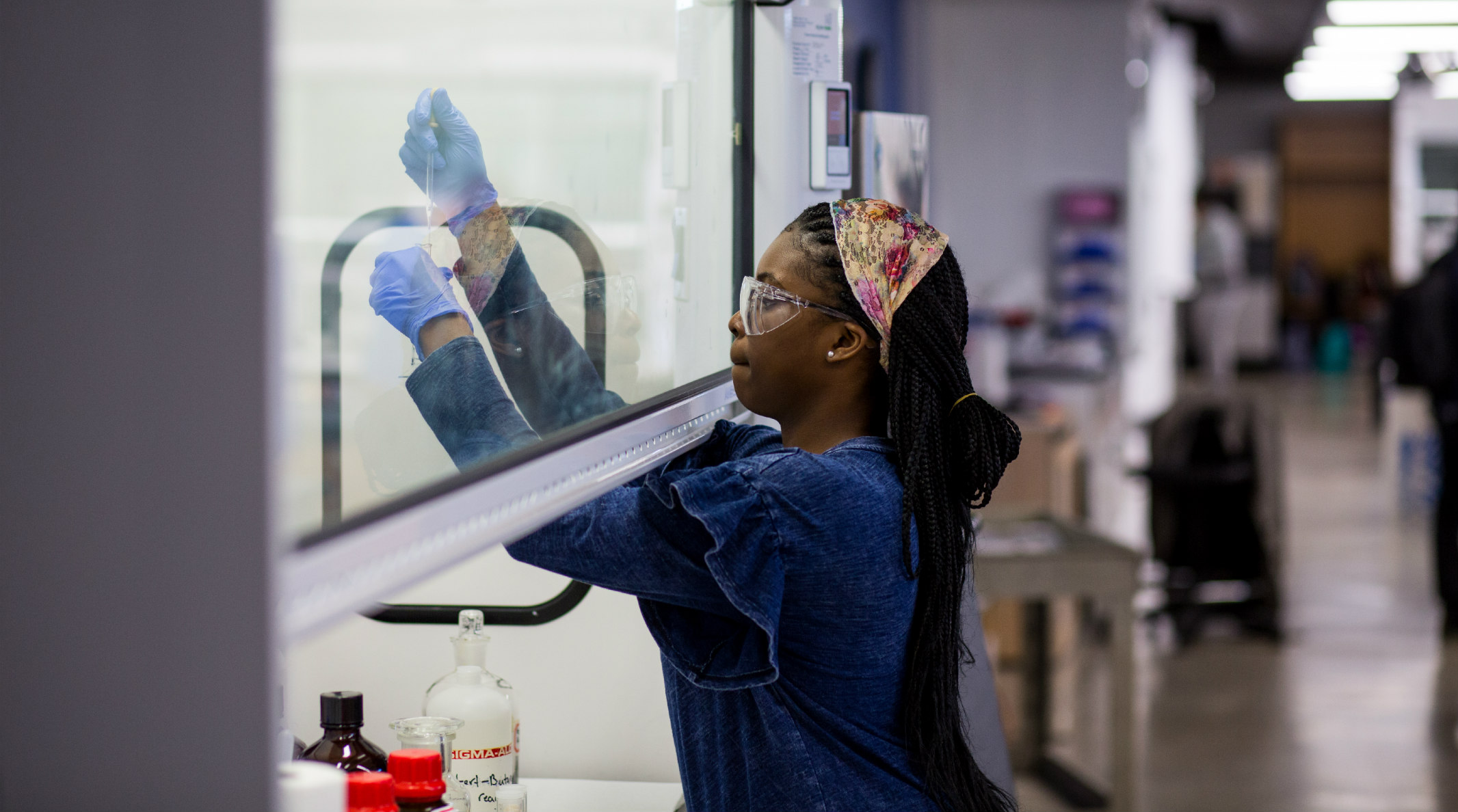
The National Science Foundation awards $100,000 to support collaborative programming
The National Science Foundation awarded the University of Missouri-Kansas City $100,000 to support the Integrating STEM Education Research Collaboration for Regional Prosperity.
The conference is designed to support researchers in science, technology, engineering and math education (STEM) as they collaborate to develop a regional STEM ecosystem that will identify challenges, opportunities and solutions to impact and educate the STEM workforce. The Integrating STEM conference will focus on professional development in conjunction with bringing together postsecondary faculty and administration, STEM communities and civic leaders to discuss the challenges of attracting and maintaining a diverse student pipeline that leads to graduation and career success, which fuels regional economic development.
Alexis Petri, director of faculty support and associate research professor, is the principal investigator for this project.
“We think it’s possible that focused professional development on new strategic tools and research driven initiatives will provide increased traction for students and regional prosperity.”- Alexis Petri
“Kansas City needs a more robust STEM workforce,” Petri says. “At UMKC, STEM faculty have been addressing this need. However, we believe a regional approach will bring increased urgency and collective impact to educating a skilled STEM workforce that meets employer demands.”
According to KC Rising, a business collaborative focused on accelerating regional growth, the Kansas City region outperforms its peers in STEM employment, but fewer students are graduating with STEM-related degrees than four years ago, especially among Black and Hispanic students.
“We think it’s possible that focused professional development on new strategic tools and research driven initiatives will provide increased traction for students and regional prosperity,” Petri says.
During the three-day conference, participants will discuss six topics critical to the Greater Kansas City STEM education research ecosystem:
Supporting student success in STEM majors by supporting intentionally inclusive educational research theories and practices
Transforming the first-year college experience – innovative educational technology and inclusive pedagogies for student learning and retention in STEM
Smoothing transitions from two- to four-year institutions – opportunities and challenges for institutional partnerships
Using high-impact practices to retain STEM majors and foster interest in STEM careers
Building coalition among stakeholders
Sustaining a multi-institution ecosystem in the Kansas City region including social and cultural inclusiveness for student success.
The conference is designed to encourage diverse viewpoints, the opportunity to engage with experts, and discuss the application of the presented information into real-world settings.
“Through the Integrating STEM education research efforts, UMKC seeks to promote collaboration among postsecondary institutions and community organizations to determine whether application of education research – existing and new – could support systemic, large- scale change,” says Chris Lui, Ph.D., vice chancellor of research. “These efforts ensure that UMKC is a regional stronghold for student learning, faculty and staff development and workforce production.”
To receive more information on Integrating STEM, including how to participate in the online conference, please contact Petri at petria@umkc.edu.
Sep 02, 2020
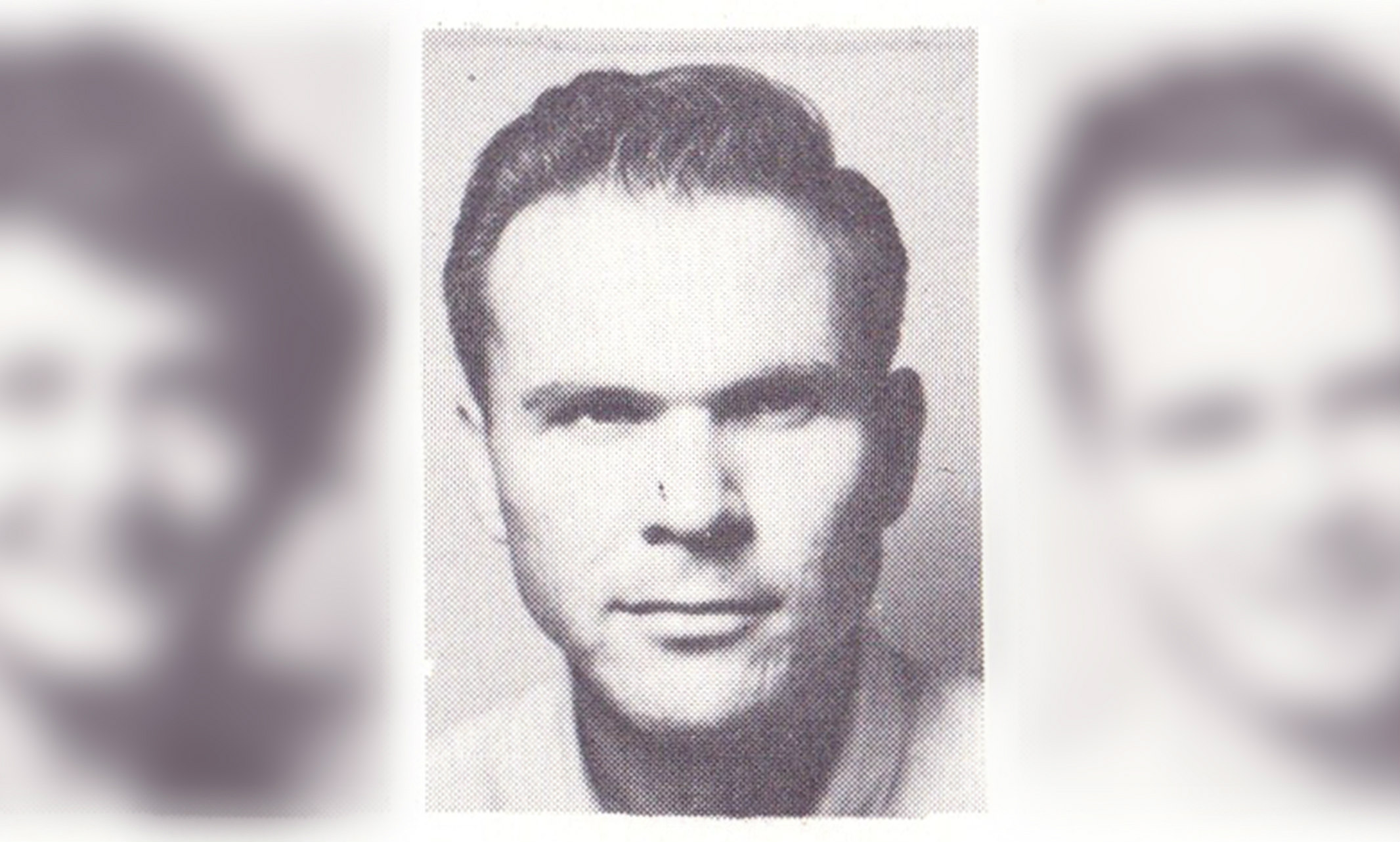
Kansas City businessman Albert Gerecht liked helping others succeed
Albert Gerecht, B.A. ’52, established his business, The Tax Gallery in 1956, one mile from his alma mater. After earning his degree and meeting his wife, Doris, he led a bold life making friends, building his business and supporting the community. Upon his death he bequeathed $400,000 for merit-based scholarships to further his commitment to helping people help themselves.
“Albert was one of kind,” Melanie Zeigler says. “I walked into The Tax Gallery 32 years ago looking for a notary and ended up with a job. It was his idea. You did not tell Albert ‘no.’”
Zeigler and Ken Baylie have co-owned The Tax Gallery since 1995 when Gerecht sold them the business.
Gerecht told Zeigler that he started the business selling insurance and went door-to-door selling policies. One day, a potential customer said that he couldn’t talk because he was working on his taxes. Gerecht had a quick reply.
“’My wife does taxes,’” Gerecht said. “‘Bring them down!’”
The Gerechts started their insurance and tax-preparation business on Troost Avenue, which is considered a racial and economic dividing line in Kansas City. Albert was committed to helping everyone who walked through his door.
“Albert loved his customers,” Zeigler says. “A lot of his clients were of color and he knew that they were often charged more at other places than white clients.”
“Albert was one of kind,” - Melanie Zeigler
In the 1970s, Gerecht sued multiple insurance companies under the Sherman Anti-Trust Act, which protects consumers from abuses, for red-lining.
“He didn’t win, but that was who he was,” says Albert’s son, Wolfe Gerecht. “He was always willing to do battle.”
In addition to his integrity, his family and friends remember him as a garrulous, quick-witted and intelligent man. He confided in them that he felt that because of his Jewish faith he experienced prejudice and mistreatment. As a result, he believed that an unbiased association with all people combined with the power of education could eliminate hatred.
Albert’s best friend, Art Kammerlohr, said his gift to UMKC to establish scholarships was intended to foster performance and excellence irrespective of need, but his substantial giving in other areas demonstrated his desire to help those less fortunate, foster education and to promote and support organizations that speak truth to power and protect individual rights.
The people who loved Albert remember him as garrulous, quick-witted and hard working.
“Albert loved people,” Zeigler says. “He would walk into a restaurant and say, ‘Hello, everybody!’ I learned a lot from him. He was a giving man.”
The Albert Gerecht Scholarship will fund five $10,000 scholarships annually until the funds are expended. For more information on scholarships, please contact Scholarships and Financial Aid.
Sep 01, 2020
Conservatory student captures attention of local newspaper
While many of us are tied to our computers typing, reading or (these days) meeting, Kansas City musician Tim Harte is creating. He’s the first and only student admitted to the UMKC Conservatory with his computer as his instrument. Read the full story from The Kansas City Star (subscription required). This story was also picked up by MSN.
Aug 28, 2020
Flatland publishes article by Chuck Haddix
This article was written by Chuck Haddix, director of the Marr Sound Archives, a collection of 380,000 historic sound recordings housed at the University of Missouri-Kansas City. He also is the author of “Bird: The Life and Music of Charlie Parker” and host of the “Fish Fry” Friday and Saturday nights on KCUR-FM.
Aug 28, 2020
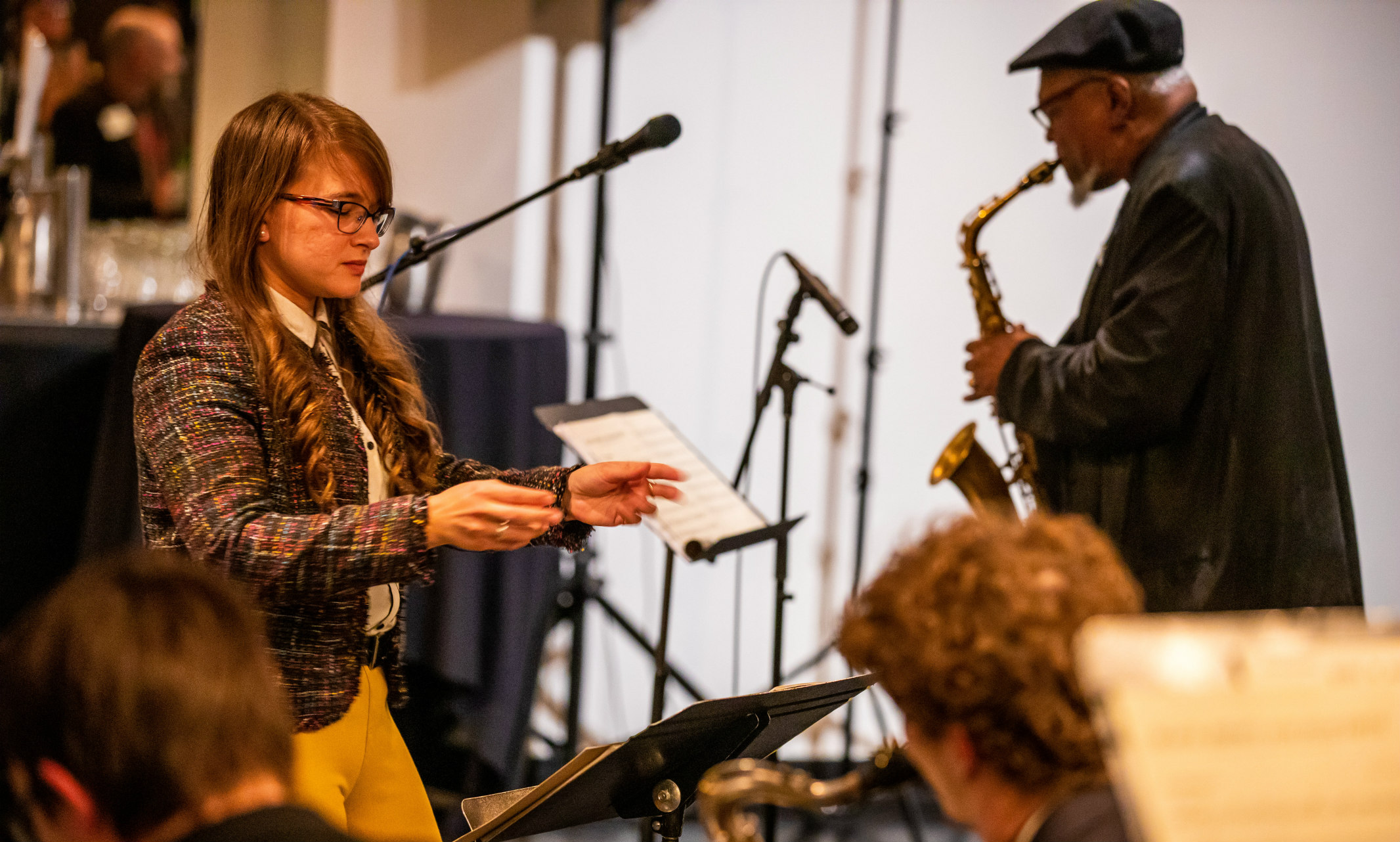
Multi-instrumentalist Aryana Nemati-Baghestani on her musical journey
UMKC Conservatory Jazz Studies alumna Aryana Nemati-Baghestani (B.M. ’14) spoke with us about her experiences as a female in jazz, what she’s been up to during the pandemic and her future goals.
Where does your passion for music stem from?
I remember in middle school having a portable CD player (Sony Walkman) and carrying it with me everywhere I went. At the time, I also joined band class playing alto saxophone. My brother and sister, who are older, were also in band so I was inspired by them to join. My mother played clarinet in grade school and my father never really picked up an instrument, but I later realized how avid music listeners and music lovers they were and still are. I didn’t start really listening to jazz until I was in high school. My main influences before then were mainly pop, hip-hop, reggae, alternative and R&B.
I was fortunate to be a part of the distinguished band program at Grandview High School. Garry Anders was the band director for only a short time while I was there, but I learned so much from him and was exposed to music and musicians I didn’t know about, which has had a lasting impact on my career and life as a whole.
At first, I was inspired by music because of the way it sounded and how it made me feel. As I got older, I began to appreciate and understand why many styles of music came to be. Because jazz and reggae, two genres of music that are dear to me, came to fruition mostly because of oppression, music and its creation has a completely different meaning to me and motivates me in new ways.
What instrument(s) do you play?
I started my musical journey in middle school on the alto saxophone. About a year later, I switched to the baritone saxophone primarily. When I got to high school, our band director was adamant about getting the saxophone players to be able to “double” on flute and clarinet, so I began to work on both. I am glad I did so at a younger age, because it has definitely come in handy. My brother played the oboe, and I came across some opportunities that had some oboe playing/teaching. With his help, I was able to learn that instrument as well. I took some keyboarding classes in college and continue to work on my keyboard skills. This is one instrument I wish I would have started sooner. I believe it is an important one to know for any musician. I also play a little electric bass and drums for fun.
Jazz is seen as a male-dominated industry, particularly regarding instrumentalists. What drew you to it?
I was introduced to jazz later in my middle school years and enjoyed playing in the jazz band. I did not really get into jazz until high school. I was exposed to certain artists and performances that I was naturally attracted to for reasons, at the time, I could not put into words. I did know that I felt attentive and intrigued when listening. Also, at this time, I had not really noticed how male-dominant jazz was.
What has been your experience as a female in the profession?
My experience has been good and bad. I didn’t start realizing that the field, even in Kansas City, was male-dominated until I got to college and began playing professionally. There were only a few females in the jazz department (none on staff) and it felt as though there were even fewer at the jam sessions and gigs around town. As I began to understand the lack of women in the field more, it both discouraged and encouraged me. It isn’t easy being a woman of jazz. You get a lot of sexist comments on gigs and as a woman. Even if you have worked extremely hard to become a working musician, that stigma stays with you. I have been fortunate though to work with people that hire me solely because of my playing, and I feel their intentions are genuine. I have also had people, such as young women or parents with daughters that play instruments, come up to me at shows and thank me for what I am doing or tell me that it is inspiring for them to see a female performing on an instrument. As difficult as it is, it is experiences like those, genuine people, and my love for the music, that pushes me to continue on.
How do you hope to encourage the next generation of female musicians? Or next generation of musicians in general?
I believe exposure is a big part of it. Thankfully today, there are many well-known female musicians that have successful performing careers. With my female students, I like to show them videos and recordings of these artists to exhibit that there are artists out there, we just have to do some digging. I do expose all my students to current musicians of all walks of life. In the general media, there is not a lot of exposure to jazz, and I do my best to provide resources for them. I have been thinking about doing more community outreach in this respect, to get the word out there. Visiting local schools and giving clinics about jazz. Especially in Kansas City, with the great jazz history we have and the thriving music community, I like to encourage them to go to jam sessions and see live shows because there are opportunities and things happening but, again, you may not see a commercial for it or hear it on the typical radio stations.
"Because jazz and reggae, two genres of music that are dear to me, came to fruition mostly because of oppression, music and its creation has a completely different meaning to me and motivates me in new ways." —Aryana Nemati-Baghestani
Why did you choose UMKC?
Being a Kansas City native, it was definitely one of my top options for school. I was fortunate enough to see Bobby Watson perform a number of times while I was in middle and high school and was always blown away by his playing, so to be able to go to the school he taught at was a huge plus. I also got to see the jazz bands at the Conservatory perform while I was in high school and remember thinking how great the band sounded, as well as the soloists, and that I would be honored to be a part of the program. Luckily, they accepted me when I auditioned!
Who was your most influential faculty or staff member at UMKC?
I am not able to choose only one. The faculty in the jazz department were great people and phenomenal performers, but I did work with some more closely than others. Doug Auwarter was a drum instructor (now happily retired) but he also taught the Latin jazz combos. He has a huge heart and is one of the sweetest people I know. He is extremely well-versed in many areas, but Latin rhythms and styles was one of the things that he was teaching primarily at UMKC, and he was definitely the one for the job.
I was fortunate to work with two wonderful saxophone teachers and my experiences with them will be with me forever. Dan Thomas was teaching mainly the freshman and sophomore classes and I took lessons with him for two years. I will be honest, at first, he stressed me out! He had high standards and was full of energy. Some of the things that he would tell me to work on I would think to myself, “are you crazy? There is no way I can do that!” but little did I know, Dan believed in me and was pushing me to reach my full potential unlike any mentor I had before. I ended up being able to do things I never thought I could because of Dan, and I am forever grateful for his tutelage.
And then of course, Bobby. Another kind-hearted man, but would not sugarcoat the truth. He taught me to never take for granted picking up your horn, to have fun but also, that we need to take this musically seriously. Just being around him was inspiring.
I am pleased to say that I am still in contact with all three of these mentors and am happy to call them my friends as well.
"Thankfully today, there are many well-known female musicians that have successful performing careers." —Aryana Nemati-Baghestani
What are your lifelong goals?
Most of all, I want to live a happy life. I would like to have a successful performing career and work with a group of other musicians that believe in the music that is being performed. I enjoy learning about other cultures, so it would be nice to live abroad for some time and do more traveling. I have thoughts of starting a nonprofit that would benefit young musicians, primarily females and people of color. I would like to have a family and be able to provide a comfortable living situation for them. I have been doing this a bit, but I would like to explore other hobbies more, and get better at them, such as, painting, gardening, and woodworking.
Who are your favorite jazz musicians?
There have been quite a few musicians that have inspired me over the years, primarily saxophonists. One of the first was Cannonball Adderley. I had not listened to much jazz when I came across him, but I remember thinking when listening to him, “Wow, how does he even do that?” Another one of my early influences was Bobby Watson. He was one of the first musicians I saw perform live and I will always remember that concert with the high school band in my high school auditorium. I love the personality and phrasing of Sonny Rollins. For the baritone saxophone, Ronnie Cuber is a huge inspiration. In my opinion, he has the quintessential sound for the horn and his ideas are thorough and precise and full of soul. I stumbled upon Charles McPhearson a bit later and when I heard him, I was surprised I had not heard of him before. I have been listening to him quite a bit lately.
Where can we hear you play?
As of now, for live settings it is hard to say. I have done a few Facebook Live shows, but am taking a break from it to focus on other aspects of music (practicing, writing). I know that some places are having live music, but I feel now is a good time to reflect and meditate instead of rush back onto the scene. I did come out with a reggae/jazz album that is on some streaming platforms such as YouTube and iTunes. A great summer soundtrack. It is entitled The Sax in I.
What have you been up to during the COVID quarantine?
Since the quarantine and the end of semester for school, I have been primarily teaching online music lessons. I have done some livestream gigs here and there as well. They started out as solo shows but I have had the pleasure of playing with small groups (trios and quartets) mainly outside, on patios and driveways. There have also been some home and studio recording projects for clients and myself that I have been working on. I have also been going for walks, bike rides, working on small home projects, and gardening.
A couple of local musicians, Marcus Lewis and Matt Otto, started a weekly Zoom meeting that primarily includes jazz musicians in KC, and our main focus is to discuss the racial injustices that are a big issue in America. This has been great, not only seeing everyone, but working together to figure out what we can do to make a difference for the better. It is also insightful hearing people’s opinions and experiences. I’ve known most of the folks for some time but never got to have discussions with them such as the ones we are having now.
Aug 27, 2020

Yes, human expression can be leveraged
Human beings’ urge to express themselves is so strong that it can be leveraged to increase charitable donations.
That’s the finding of one of the newest faculty members at the Henry W. Bloch School of Management.
Jacqueline Rifkin, Ph.D., came on board this semester as an assistant professor of marketing. She is co-lead author of a paper recently published by the prestigious Journal of Marketing.
Jacqueline Rifkin
For one of the experiments the authors conducted, they placed tip jars on a café counter, alternating for set periods between a single jar marked “Tips” and a pair of two jars, with one labeled “Cats” and the other “Dogs.” The result: When café guests were able to vote for their favorite animal by choosing between two jars, the total dollar amount of tips doubled.
In a similar experiment soliciting donations to the American Red Cross in which half of people could choose to donate by expressing their preferred ice cream flavor, donors gave 28% more money when given the opportunity to express an opinion at the same time.
Since the paper was published earlier this summer, it has generated international news coverage, including an article in the German magazine Der Spiegel.
The research was inspired by anecdotal accounts offered by baristas and other counter-service retail workers.
“Put really simply, people are willing to pay for a chance to share what they believe in, and this is what makes the dueling preferences approach so effective at increasing giving.”
“Our goal in this research was to formally test the belief that this strategy works, and, moreover, to understand the psychological reason why it works,” Rifkin said. “We found that this strategy works because it transforms an act of giving into an opportunity to say something about one’s beliefs and opinions, which people inherently find motivating.
“Prior work has shown that people find the act of self-expression to be incredibly attractive and rewarding. In fact, the parts of the brain that light up when we get to share our opinions also light up in response to finding $10 or eating dessert,” Rifkin added. “Put really simply, people are willing to pay for a chance to share what they believe in, and this is what makes the dueling preferences approach so effective at increasing giving.”
Rifkin’s co-authors are Katherine Du, assistant professor of marketing at the Lubar School of Business, University of Wisconsin-Milwaukee; and Jonah Berger, associate professor of marketing at The Wharton School, University of Pennsylvania.
Rifkin earned her Ph.D. in business administration at Duke University and her Bachelor of Arts in psychology at the University of Pennsylvania.
Aug 27, 2020
KCUR talked to Chuck Haddix about Charlie Parker
Charlie Parker’s story is also kept alive by Chuck Haddix, the director of the University of Missouri-Kansas City Marr Sound Archives. Haddix wrote a 2015 book about Parker, titled “Bird: The Life and Music of Charlie Parker.” Haddix was recently interviewed for KCUR All Things Considered.
Aug 27, 2020
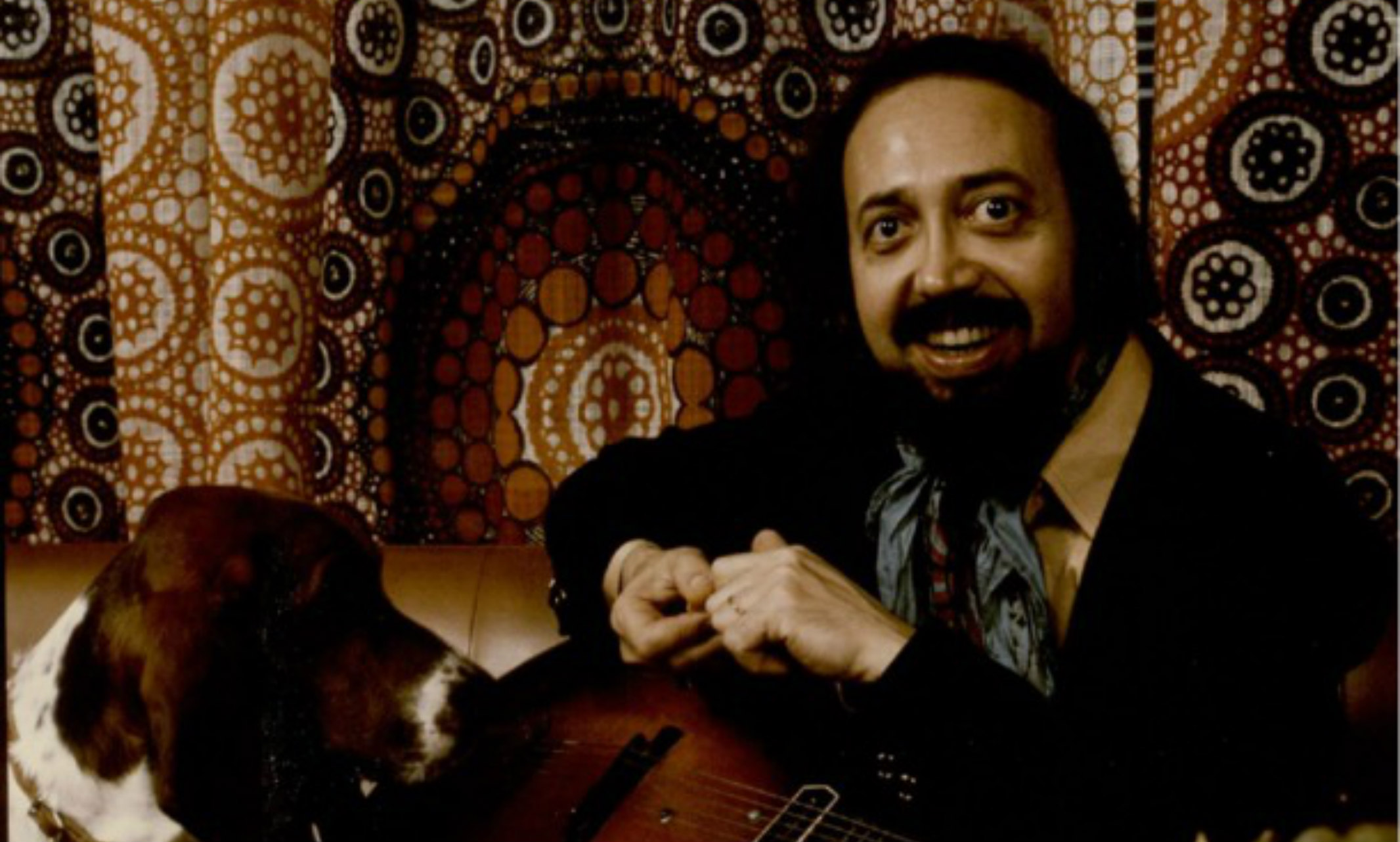
Students create digital exhibit highlighting achievements
Barney Kessel began playing guitar when he was 12 years old in his hometown of Muskogee, Oklahoma. By 1937, at the age of 14, he was playing professionally.
Kessel built a legendary jazz career and an impressive collection of music and manuscripts that archivists and students have worked to preserve in the Marr Sound Archives and the LaBudde Special Collections at UMKC.
Kessel played with jazz greats, such as Charlie Parker, Lester Young and Charlie Christian. He jammed with Christian for three days and the session had a profound effect on his style. In 1942, Kessel moved to California and played with big bands and studio musicians. He contributed to soundtracks with musicians including Sam Cooke, Elvis Presley and the Beach Boys.
After his death, Kessel’s widow, Phyllis Kessel, made the decision to donate his materials to the Marr Sound Archives and the LaBudde Special Collections.
“Phyllis had been looking for a place to house Barney’s collections,” says Chuck Haddix, curator of Marr Sound Archives. “She contacted Rob Ray at San Diego State. He is the former head of the UMKC collections and recommended she get in touch with us because of our strong holdings in jazz. He knew that we would be able to manage it.”
Phyllis met Kessel in 1987. She was a magazine editor, and while she was on a personal trip, she saw Kessel play with Herb Ellis and Charlie Byrd. She has a natural curiosity about people and an instinct to interview. She was familiar with Kessel and struck up a conversation with him in the park where he was playing.
“Barney was the most talkative of the great guitarists that were there and he loved to talk,” she says.
They married two years later and traveled together often. Phyllis understood the significance of Kessel’s collection and following his death in 2004, she began to think about preserving his legacy.
“I needed to find a home for all that Barney had left behind.”
The donation includes an extensive audio-visual collection and manuscripts spanning the length of Kessel’s career. In addition to the library staff cataloguing and processing the collection, seven students, who referred to themselves as the Barney Bunch, produced a digital exhibit, Barney Kessel; Illuminating a Musical Legacy, of Kessel’s life and work.
“We started the third week of February,” says Lacie Eades, a member of the team from the UMKC Conservatory advanced research and bibliography class led by Sarah Tyrell, Ph.D., associate teaching professor of musicology. “Our goal was to create a virtual exhibit. We worked for about four weeks before the COVID-19 outbreak led to the global shutdown.”
The team moved to working remotely. While it took a few days to adjust, Eades notes that the staff at LaBudde worked to digitize the content the team needed.
“Anything we flagged, anything we needed, the staff retrieved for us,” Eades says. “We met as a group two days a week and there was a lot of group messaging. It was continual cooperation.”
The team knew they needed to determine if they were going to create a biographical sketch or a narrative. The material seemed to lend itself to narrative.
“This class working on a project that shows the artist’s work, gives them the skills to see it through from the research to the digital exhibit – that is the way of the future.” - Chuck Haddix
“One of my jobs was to go through his daily planner,” Eades says. “One of the intriguing elements was that on one day he would note, ‘Studio with Elvis.’ And the next day would be, ‘Take boys to the dentist.’ On November 22, 1963 he wrote, ‘President assassinated.’”
Each student took responsibility for different aspects of the research. Bryanna Beasley is pursuing her master’s degree in flute performance and musicology.
“I had the opportunity to work directly with Phyllis,” Beasley says. “Especially during COVID, she became a primary resource. She is funny and intelligent. It was rewarding to work directly with her to create a legacy for scholars and enthusiasts. We are lucky she saved so much of his materials. It enabled us to highlight different aspects of his legacy.”
Phyllis is satisfied and relieved that Kessel’s collection is safe and available for scholars and enthusiasts.
“I have a great interest in keeping Barney’s name and music alive for future generations,” she says. “Sadly, I know how quickly the public forgets our stars. It takes some effort to keep their legacies alive. I truly believe Barney was one of the greatest jazz guitarists that ever lived.”
Sandy Rodriguez, associate dean of special collections and archives, understands that donating a loved one’s material is always very personal.
“They want to give to a place that’s going to be responsible,” Rodriguez says. “As the long-term home for these materials, we work hard to ensure they are cared for over time and are made available for research as soon as possible. Not all collections are processed so quickly. This was prioritized.”
“I have a great interest in keeping Barney’s name and music alive for future generations.” - Phyllis Kessel
Haddix appreciates that the team was able to make such a quick pivot to develop the digital exhibit.
“These are brilliant students who treated the project with humor and good will,” Haddix says. “The exhibit tells Barney’s story and is free and open to the public.”
He notes that this turned out to be a great way to manage research.
“This class working on a project that shows the artist’s work, gives them the skills to see it through from the research to the digital exhibit – that is the way of the future.”
Aug 26, 2020
Parking app is a no-touch system
Changes students will encounter this semester include expanded online and in-person library access and a new metered parking system that requires no cash or physical contact with meters.
Library Update
This fall, the library buildings are open whenever classes are in session on campus, while virtual resources and live help will never close.
You can use the library online, any time at library.umkc.edu. Chat with a librarian 24/7, make an appointment for some research help on Zoom, or hop onto video with a librarian any time between 9 a.m.-5 p.m. Monday-Friday, no appointment needed.
UMKC students voted in March 2019 to implement a new Student Library Fee to pay for improvements to the hours, resources, spaces, and services at UMKC Health Sciences Library and Miller Nichols Library. While the UMKC campus is operating with modifications for COVID-19, the libraries are directing resources toward services, projects and tools to keep the libraries virtually available to users 24 hours a day, 7 days a week.
During the pandemic, the library is not open as late as usual and library fee-funded staff have been reassigned to earlier shifts to support health and safety measures such as increased cleaning, making library materials available virtually, and extra work duties to keep library users safe. The library hours for fall 2020 preserve the longer hours implemented last fall as much as possible and retain the new highly-used late closing time on Friday, and early opening times on Saturday and Sunday.
When using the library in person, remember to maintain face coverings except when seated to eat or drink. Leave the furniture in place; it has been arranged to maintain physical distancing. Wash your hands before and after using a library computer or table and chair.
Parking Update
All metered parking on the two UMKC campuses will now be through the use of the AMP Park mobile app, available from both the Google Play Store and Apple App Store. This is a “no-touch” system, eliminating the potential risk of spreading viruses by touching a machine or meter, as well as digging in your cup holders to find enough change to pay for parking.
Within the app, users will be able to see on a map the general areas where metered parking is offered on campus. There will be signs in those areas denoting the spaces designated for metered parking. Campus signage indicating metered parking also has a QR code that can be scanned with a smartphone to be taken directly to the appropriate store to download the app.
Simply download the app, select the area where you are parking on the map, and select how long you anticipate needing to park. Then add your license plate number, issuing state, vehicle make (brand), and your payment information to the secure app, and start your parking time. You will have the option to save your account information (if you will be a regular AMP Park user on campus) or just enter the information for a one-time use. If you save your account information, you will be able to add another license plate if you are driving a different car during a different parking session.
If you find that your class or meeting is running longer than expected, you can add time to your metered parking session from your smartphone, without having to go all the way back to the parking lot. And you will receive a notification on your phone when you are nearing the end of your paid parking time.
Anyone who has a meter park card, for use at the old single meters, can contact the UMKC Parking and Transportation office for a refund of the remaining balance on the card.
We are also now on Twitter, @UMKC_parking. Follow us to be updated with the latest parking information around campus.
Aug 26, 2020
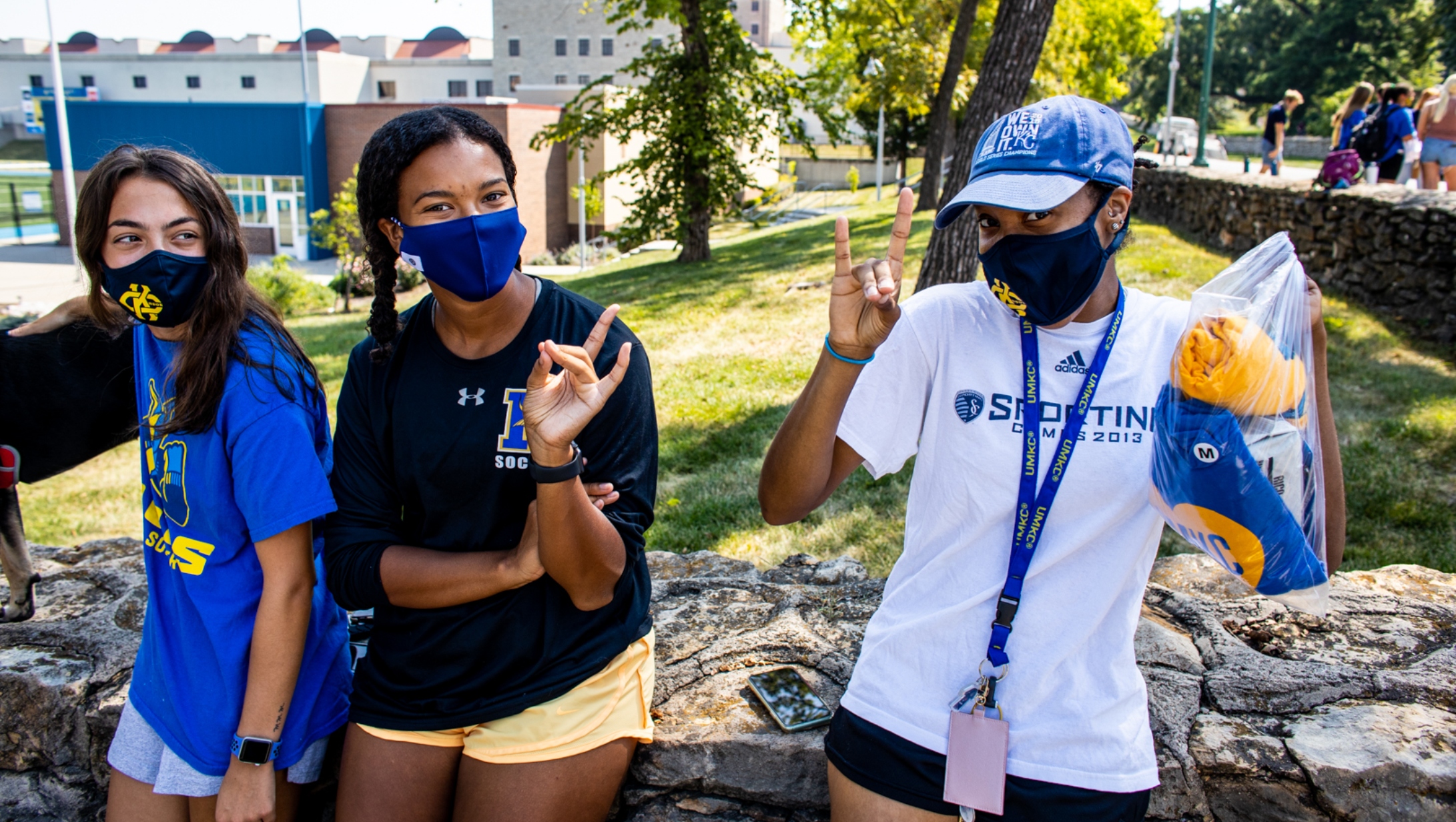
From how to meet people to getting help with coursework
Welcome back, Roos! While this semester looks a little different than normal, there are still plenty of ways for you to get plugged in and explore the many opportunities available to you at UMKC.
Here are some of the tried-and-true tips from our students, faculty and staff for incoming students.
1. Check out Roo Groups.
Hands-down this is the best way to get involved on campus. With 300+ groups around hobbies and professional interests, you’re bound to find something you’re interested in and meet new people along the way. Check out the current groups or create your own at umkc.edu. And if you want to check out what else is happening on campus, visit the Office of Student Involvement.
2. Get to know your professors.
Just because you have online class doesn’t mean you can’t get to know your professors. Many professors are natural mentors for students and often have great connections to industry professionals (and internship opportunities) in Kansas City and beyond the region. They’re also the gateway to exploring undergraduate research So, if you can’t stay to chat after class, make sure to send an email or drop by their virtual office hours to get to know them.
3. We’re back on campus – explore it!
UMKC has a very green, walkable campus, so take some time every day or each week to walk to an area you haven’t explored yet. While you’re at it, check out our list of top 5 Instagrammable spots on Volker Campus. Both campus maps are available online. If you have questions, stop by one of the CityPost kiosks on campus or ask any staff member you see. And while you’re at it, make sure to check out this slideshow of how campus has changed throughout the years and check out the UMKC campus history tour videos featuring staff member historian Chris Wolff.
4. Scope out academic resources.
At the heart of UMKC is the desire to see students succeed. That’s why there are so many campus resources dedicated to helping you. Make sure you check out Supplemental Instruction, especially for those harder classes — SI is basically a free study/review session with your peers led by an upperclassman who aced the course material. Also, look into tutoring and the writing studio for help. And don’t worry, they practice COVID health and safety measures and also provide virtual sessions. And if you’re just looking for general tips on creating a study plan, note-taking, and success in an online course, check out the RooUp Seminars, available 24/7 via the RooUp Seminar Canvas page.
5. Not feeling 100%? Know where to go.
The beginning of the semester can be stressful, especially if it’s your first time away from home, not to mention during a pandemic. It can be intimidating to find help in an area you’re unfamiliar with. That’s why we have Student Health and Wellness as well as Counseling Services on campus (and virtually) to help take care of you when you need it. You’re a valuable part of our community and it’s important to pay attention to your health and wellbeing. Our staff are very friendly, so don’t hesitate to reach out if you’re not feeling well or need help. You can also check out the Counseling Services’ online resources, the Sanvello mental health app (free to all with a UMKC email address), Roos for Mental Health and the COVID symptom monitoring app.
6. Get to know why people love KC.
We’ve got a great location in the heart of the city. And while some of typical entertainment, like sports and concerts, aren’t going on right now, there’s still plenty to explore. Check out Visit KC and a list of some of our students’ and alumni’s favorite places to explore and make KC your new home away from home.
Aug 26, 2020
New York Times taps Earth and Environmental Sciences Department assistant professor
Fengpeng Sun, assistant professor in the UMKC Earth and Environmental Sciences Department, was interviewed by the New York Times about the California wildfires. Each fall, strong gusts known as the Santa Ana winds bring dry air from the Great Basin area of the West into Southern California, said Fengpeng Sun, assistant professor in the UMKC Earth and Environmental Sciences Department. Sun is co-author of a 2015 study that suggests that California has two distinct fire seasons. One, which runs from June through September and is driven by a combination of warmer and drier weather, is the Western fire season that most people think of. Sun and his co-authors found a second fire season that runs from October through April and is driven by the Santa Ana winds. Read the full article.
Aug 26, 2020

Campus Screen is for students, faculty and staff
Campus Screen is a new mobile app that University of Missouri-Kansas City is recommending that students, faculty and staff can use in their daily COVID-19 self-monitoring.
Campus Screen users are walked through a series of questions and responses and based on their answers, are given a “Campus Pass” that is good for a period of time. It can help people identify if their symptoms warrant contacting a health professional, and could be used at campus events to verify entrants have passed a screening by showing their app upon entry.
Other University of Missouri System universities are also using Campus Screen, including Missouri Science and Technology and the University of Missouri-St. Louis
Download links are here:
Download for iOSDownload for Android
For more about monitoring your health, please visit the UMKC Coronavirus website.
Aug 25, 2020
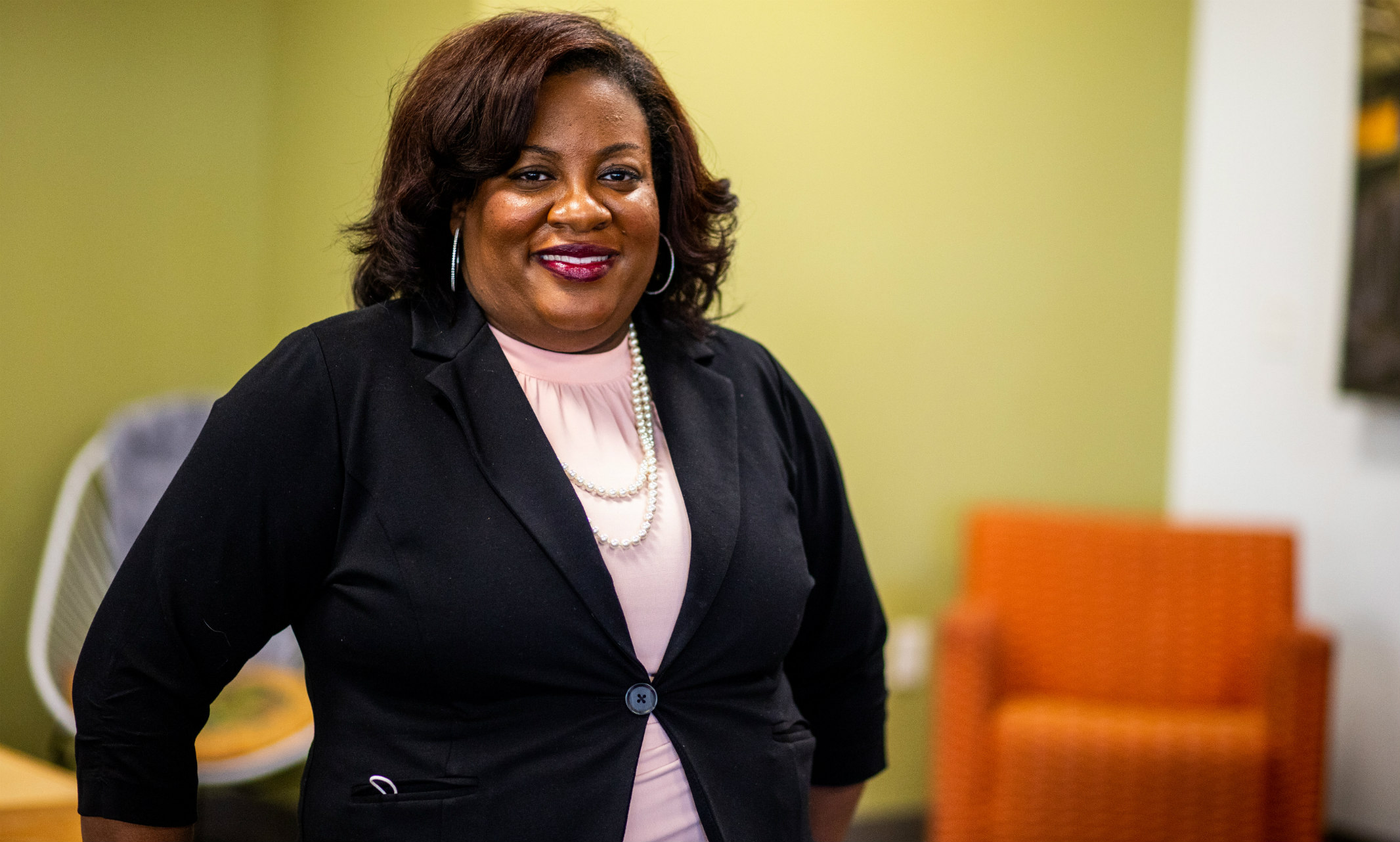
Keichanda Dees-Burnett went from active undergrad to motivating staff member and mentor
The Black Excellence at UMKC series helps to increase awareness of the representation of Black faculty and staff and show a visible commitment to diversity, equity and inclusion on campus. This series highlights Black and Roo faculty and staff working to help our university achieve its mission to promote learning and discovery for all people at UMKC and the greater Kansas City community.
Name: Keichanda Dees-Burnett Job function: co-interim dean of students and director of Multicultural Student Affairs Tenure: 17 years Hometown: Kansas City, Missouri Alma Mater and Degree Program: UMKC B.A. Communication Studies (minor in Black studies) '02; M.A. Higher Education Administration '04; Current Ed.D student
Keichanda Dees-Burnett grew up at UMKC. From an active undergraduate majoring in communications studies to the director of Multicultural Student Affairs and co-interim dean of students, the Kansas City native is a key source of support for minority students on campus. Oft-referred to by many students of color as a go-to safe space on campus, Dees-Burnett said one the best parts of her job is the opportunity to mentor and interact with them daily while helping them achieve their goals.
"It is my responsibility to help them make connections with other faculty, staff and community members who can help them reach their goals."
Why did you choose UMKC as the place to grow your career?
It happened naturally. I didn’t necessarily know I would grow my career here, but I definitely chose to start here. I enjoyed my experience as an undergraduate student here at UMKC and wanted the opportunity to give back to future students and make their experience even better.
What do you enjoy most about working at UMKC?
I enjoy working with the students and doing my part to help make this campus welcoming and exciting for them. I also enjoy my wonderful colleagues across campus. Everyone is always great about lending their expertise with initiatives that support students.
"There’s a need to help others understand what it is that we do and the importance of our work in achieving the mission of the university."
How did you decide this career was right for you?
I knew this career was for me after my first semester in graduate school. I was very involved at UMKC as an undergraduate. I was active with the Office of Multicultural Student Affairs, The African American Student Union, Student Government Association and the Rho Alpha Chapter of Alpha Kappa Alpha Sorority, Inc.
When I started learning about student development theories and the history of higher education and the college environment, it enhanced my understanding of how the university and its staff support students. That’s what influenced me to take what I learned and put it into practice.
Keichanda (far right, second to last) poses for an NPHC (National Pan-Hellenic Council) Greek photo with fellow staff members and MSA student leaders at the conclusion of the 2019 TAASU Freedom Breakfast.
What are the challenges of your career field?
Increased cuts in funding to higher education definitely threaten our ability to create and maintain important programs and services that support student engagement and success on campus. Also, higher education administration or student affairs aren’t careers commonly known to those outside of the field. There’s a need to help others understand what it is that we do and the importance of our work in achieving the mission of the university.
What are the benefits of your career field?
Helping students get to college and helping them reach their aspirational goal of graduating from college. We also have the privilege of observing and influencing the growth and development of students from the beginning to the end of their college journey. For many student affairs professionals, our connections with our students last beyond graduation, sometimes even for life.
How do you connect and establish relationships with other Black faculty and staff in other units and departments?
I am hopeful that there are things in the works to make it easier for Black staff and faculty to connect. I typically meet other Black staff or faculty through committee work on campus, or participation on panel discussions. The Women of Color Leadership Conference planning committee has served as a great source for meeting fellow Black women staff and faculty. I typically try to maintain those relationships through periodic email check-ins, connecting on social media or connecting them to opportunities to get involved with MSA.
Describe your mentoring relationships with students.
My role as a mentor is to empower students to make decisions that are best for them by sharing my knowledge, providing honest feedback, offering pros and cons and, ultimately, respecting the fact they are adults. It is my responsibility to help them make connections with other faculty, staff and community members who can help them reach their goals.
What is one word that best describes you?
Selfless. I very rarely do anything with myself in mind. This may be to a fault at times but doing what’s right for the greater good is what drives me.
What is your favorite spot to eat in Kansas City?
There are too many great places in KC to choose from, but I will say Jazz’s Louisiana Kitchen because I LOVE Cajun and spicy foods. Peachtree Buffet is also one of my favorites.
Where’s your favorite spot to hang out/visit in Kansas City?
My aunt and uncle’s front porch on a Saturday night.
"For many student affairs professionals, our connections with our students last beyond graduation, sometimes even for life."
What’s your favorite spot on campus?
The Student Union, specifically the Office of Multicultural Student Affairs, which is where my office is located. I love all the noise and energy from the students in the building and the opportunity to interact with them daily. Being around students everyday has definitely kept me youthful.
What is one piece of advice you’d give someone looking to grow their career at UMKC?
I would advise new employees to take some time to understand the culture of UMKC, lean on their colleagues with tenure for support, and to never be afraid to ask questions.
What is one piece of advice you’d give a student wanting to follow in your footsteps?
Start protecting your image and reputation now, and nurture existing relationships because you NEVER know who you will need later when you get into the field.
Learn More About Multicultural Student Affairs
Aug 24, 2020
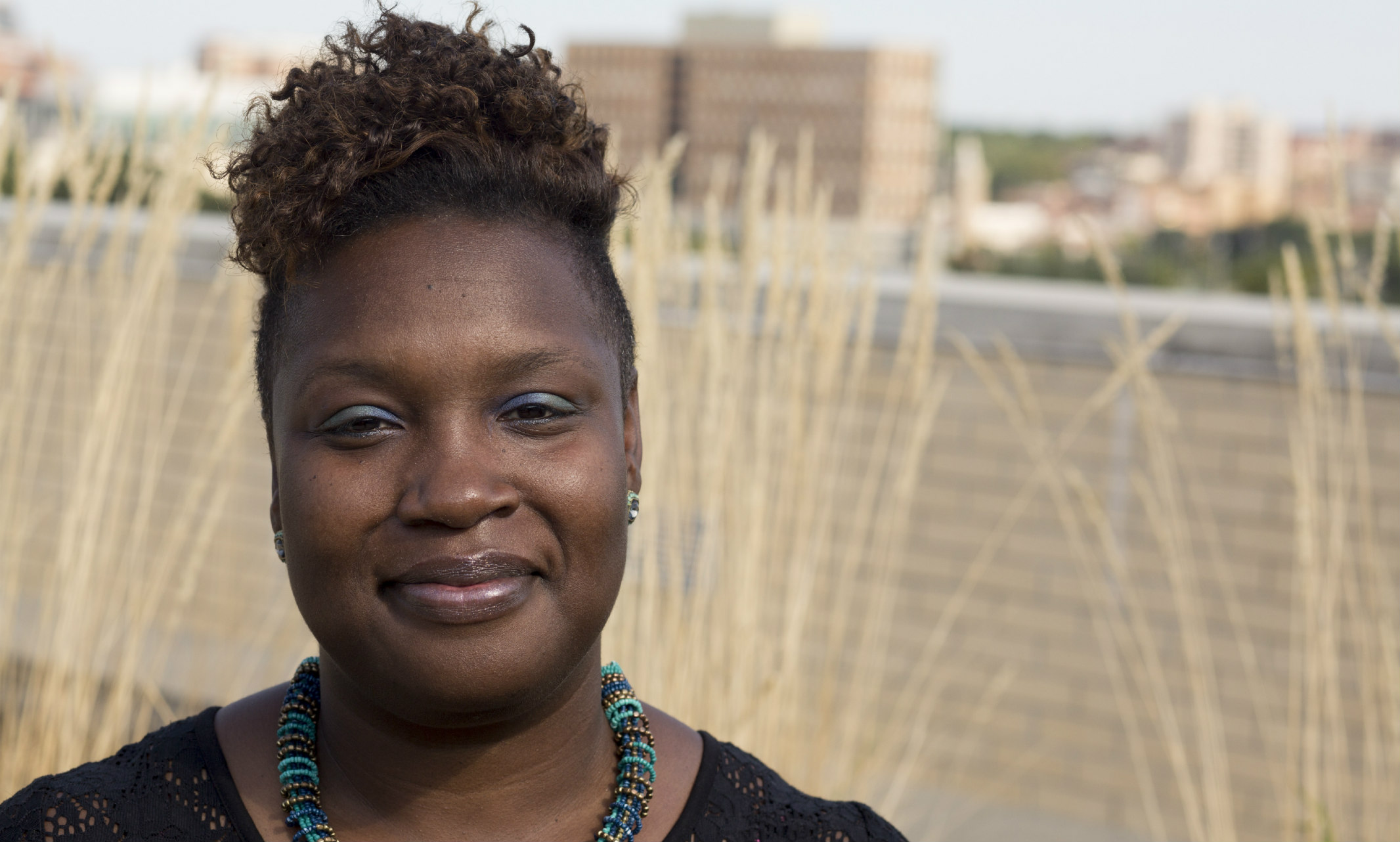
REGS is in the College of Arts and Sciences and offers many opportunities
The University of Missouri-Kansas City will offer a new academic department starting in the fall semester: Race, Ethnic and Gender Studies (REGS) in the College of Arts and Sciences.
The REGS Department’s interdisciplinary curriculum teaches critical thinking through an examination of historical and contemporary problems and expands student understanding of the intersection of gender, culture and society.
The department currently offers minors in three interest areas: Black Studies; Latinx and Latin American Studies; and Women’s, Gender and Sexuality Studies. Students are able to pursue a specialized focus while enhancing their major in the humanities, social sciences or natural sciences. The minors provide flexibility to allow for the creation of a course of study suited to individual student interests. A proposal for a Race, Ethnic, and Gender Studies major is in development.
“The REGS Department truly reflects who we are as an urban, public university community. UMKC REGS alumni will be the future leaders who will insist on and play a significant role in creating a more socially just Kansas City community.” - Provost Jenny Lundgren, Ph.D.
“This is the course of study we need to offer right now, during this period of raised consciousness and expanding opportunity,” said Toya Like, Ph.D., interim chair of the REGS Department and associate professor of criminal justice and criminology. “Individuals and organizations across the country are recognizing that they have a lot of work to do if they want to expand social justice, and that work will need to be guided by well-educated professionals with a deep understanding of the roots of injustice.”
Employers in business, law, education, communications, the arts, government, medicine and public and social services actively recruit job candidates with knowledge and training in issues of race, ethnicity, sexuality and gender.
The goal is for REGS to offer a Bachelor of Arts degree and minors for the Fall 2021 semester, and students can start earning credits toward that with the currently available minors. The degree will focus on the intersectionality of race, ethnic, gender and sexuality studies.
“Creation of a REGS Department is the culmination of years of research, effort and activism by students, faculty, alumni and community stakeholders,” said Kati Toivanen, interim dean of the College of Arts and Sciences. “The result is a strong interdisciplinary program featuring some of our most accomplished faculty from multiple disciplines representing diverse perspectives.”
“This is the course of study we need to offer right now, during this period of raised consciousness and expanding opportunity. Individuals and organizations across the country are recognizing that they have a lot of work to do if they want to expand social justice, and that work will need to be guided by well-educated professionals with a deep understanding of the roots of injustice.” - Toya Like, Ph.D.
A few of the faculty in addition to Like include Brenda Bethman, Ph.D., associate teaching professor of women’s, gender and sexuality studies and director of the UMKC Women’s Center, who was integral in helping form the department and developing the new degree; Clara Irazábal-Zurita, Ph.D., Latinx and Latin Studies and planning professor; Linda Mitchell, Ph.D., Martha Jane Phillips Starr Missouri Distinguished Endowed Professor of Women’s and Gender Studies and professor of history.
“Our classes fill up semester after semester because UMKC students are interested in the intersectionality in these areas of study,” Bethman said. “It is rewarding that we can offer this new robust course of study that will provide students with the opportunity to eventually major or double major in REGS.”
Internship programs will provide opportunities for undergraduate or graduate students to gain on-site experience. In some cases, students can receive 1 to 4 hours of academic credit while learning and working in off- or on-campus placements. Kansas City offers numerous opportunities.
When travel restrictions related to the COVID-19 pandemic are lifted, REGS along with other departments will once again host a study-abroad program in Senegal, West Africa.
UMKC is known for its strong commitment to diversity and inclusion and is consistently striving to improve at every level. REGS is one of the ways the university is strengthening academics based on this core mission.
“The REGS Department truly reflects who we are as an urban, public university community,” said UMKC Provost Jenny Lundgren, Ph.D. “UMKC REGS alumni will be the future leaders who will insist on and play a significant role in creating a more socially just Kansas City community.”
Aug 24, 2020
Kansas City television station covers the first day of the new semester
UMKC welcomed students back to campus Monday. KSHB talked to Michael Graves, director of facilities operations, about the new semester and changes students will see.
Aug 24, 2020
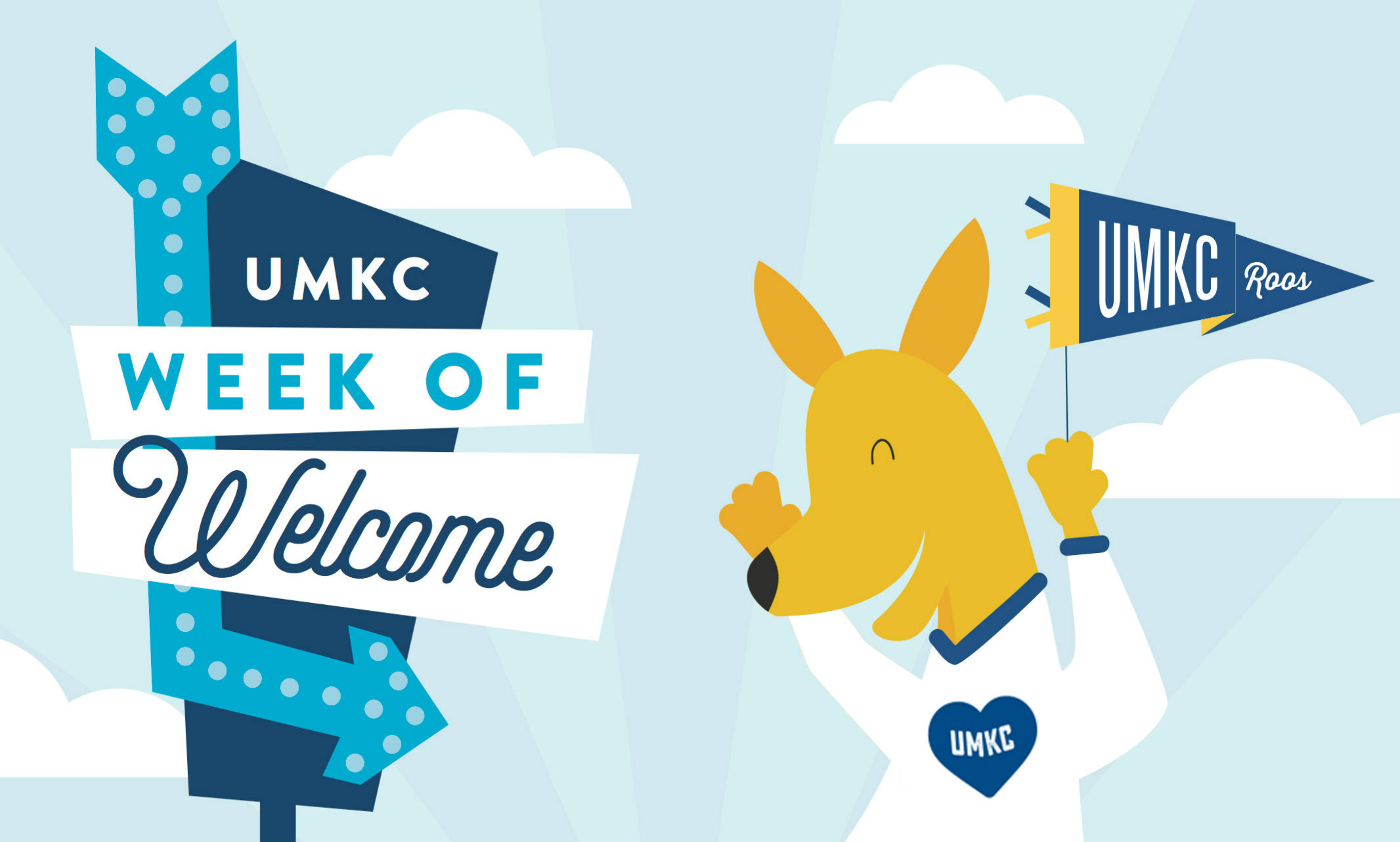
WoW now more than ever
UMKC faculty, staff and student leaders welcomed our new and returning Roos with the same confidence and enthusiasm as always. Showing up and connecting has never been more important, which was evident in the online activities that made up Week of Welcome. While events were virtual, common experiences and common goals still connect students in a unique way.
This year’s Week of Welcome ‑ or WoW ‑ included Residential Life housing floor meetings, where students drew Roos with the guidance of local artist Josh Ware and had the opportunity to participate in Late Night with the Greeks Trivia.
Brandon Henderson, Student Government Association president, encouraged freshmen to get involved in one of the more than 250 student organizations.
“You are embarking on your journey. The most exciting part is the time you will spend outside the classroom,” Henderson said. “No matter who you are, you’ll find a space on campus to call your own.”
“No matter who you are, you’ll find a space on campus to call your own.” - Brandon Henderson
Convocation embraced new students by celebrating their addition to our UMKC family with the traditional UMKC Pinning Ceremony. A longtime tradition, this ceremony signifies the inclusion of new students into our UMKC family.
Chancellor Mauli Agrawal noted that this year’s virtual convocation was a great example of how the university is balancing being careful with health with a real campus experience.
“I hope you are as eager as I am to get started,” he said. “Today marks the beginning of the best four years of your life. From this moment on you are officially part of the UMKC family.”
This year’s freshman class and new students will always have a special story to tell about the commitment to their future that they undertook at a challenging time. That commitment will draw this class together in a unique way. To this year’s students we say: “WoW!” We can’t wait to get to know you.
Aug 21, 2020
Fox4KC stopped by campus on Monday to learn what's new
College students started moving into dorms on the University of Missouri-Kansas City campus Monday. Check out John Pepitone's story online.
Aug 17, 2020
Local television station previews UMKC move-in
Aug. 17 was the first day for move-in at UMKC. Like almost everything else in 2020, it’s going to look a lot different than in years past. Read the story by KCTV5. The station came back on the first day of move-in and covered the story again.
Aug 16, 2020
Charlie Keegan with KSHB interviewed Rebecca Gubbels of the UMKC Innovation Center about new grant
Beginning at noon, Monday, Aug. 17, the Kauffman Foundation and UMKC Innovation Center began accepting applications for the Kansas City Minority Business Resiliency Grant. The full story is on the KSHB website.
Aug 16, 2020
Brandon Martin featured on the Aug. 14 cover story of the Kansas City Business Journal
When people talk about Division 1 college athletics in the metro area, the University of Missouri-Kansas City rarely enters the conversation. Brandon Martin vows to change that. Read the full article.
Aug 14, 2020
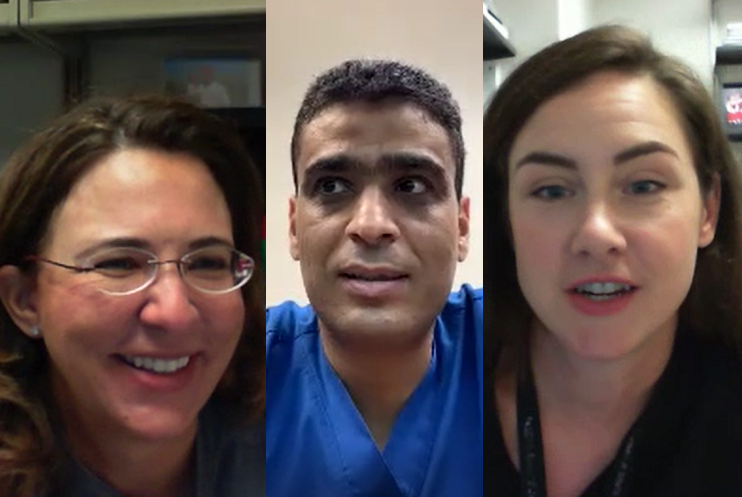
When everything became 'after hours,' School of Dentistry faculty kept emergency care available.
Ask a person with a toothache to list “essential workers” and chances are “dentist” will top the list. So when most UMKC operations closed and moved online for the pandemic, some School of Dentistry faculty stayed on call for emergency patients.
“Three of us were used to taking turns answering emergency calls after hours,” Cynthia Petrie, associate professor and chair of the Department of Restorative Clinical Sciences. “Suddenly, everything was ‘after hours,’ but we worked together to get our patients through the difficult time when the school closed.”
Another member of the emergency team, Ahmed Zarrough, clinical assistant professor, said they did their best with phone calls and teledentistry to determine the nature and severity of callers’ conditions. Though initial pain relief often could be taken care of over the phone, the team members didn’t hesitate to have patients come in when needed — and to call on their specialist colleagues.
“We could do restorative work,” Zarrough said, “but I have to give a big shout out to endodontics and oral surgery. When patients needed an extraction or a root canal, those specialists stepped in and took care of them.”
Similarly, Petrie said, problems with braces led to frequent calls to the school’s orthodontists.
“Orthodontists rarely get emergencies,” Petrie said, when their practices are open. But with their practices shut down, “they had a couple of emergencies every day.”
An important part of the emergency team’s work was advising and reassuring callers, especially early in the pandemic, said Melynda Meredith, a clinical associate professor in the Department of Restorative Clinical Sciences who is the third member of the school’s emergency dental team.
“We were a counseling service of sorts for concerned patients,” she said. “Some of them were so scared at first. There was so much unknown in March and April, and if you even had a minor dental issue, it made it seem more severe. But just being there to offer reassurance — to let them know it will be OK — seemed to help a lot. And once I got out of my house and came back to the school the first time, I felt much better, too.”
“I have to give a big shout out to endodontics and oral surgery. When patients needed an extraction or a root canal, those specialists stepped in and took care of them.” — Ahmed Zarrough
If anything, she said, patients with urgent needs might have been seen more quickly during the shutdown.
“Before, we could always say ‘come in tomorrow’ or ‘come in Monday’ if a problem could wait,” Meredith said. “But with everything closed, we got people in as quickly as we could.”
Though the team members didn’t work side-by-side, they said communication with one another and with other colleagues was a key to providing excellent care during the shutdown. For example, the school donated most of its personal protective equipment to hospitals nearby, but the dental faculty who run the clinics made sure to keep enough on hand for emergencies.
“We also made sure to let each other know about patients who might need continuing care,” Zarrough said, “and to plan ahead.”
The team members’ triage duties have lessened a bit as the school slowly and carefully reopens its clinics. An operator is back on phone duty most days from 8 a.m. to 4:30 p.m., and some non-emergency patients are being scheduled (primarily those who had to stop mid-treatment when things shutdown). But the team members still cover emergencies after hours and are ready to do whatever is needed.
“We have hundreds of patients,” Petrie said, “and with our added precautions, we don’t expect to be able to treat the same volume we did before. But we will provide safe, excellent care — and continue to handle the emergencies as they arise.”
Aug 13, 2020
The Kansas City Star interviewed UMKC faculty, staff and students for back-to-school article
The University of Missouri-Kansas City will test dorm residents before they move in, and vending machines are now loaded with personal protective equipment. UMKC faculty, staff and students were interviewed for the article, which included two videos about UMKC welcome kits that include a mask and hand sanitizer as well as the vending machines. Read the Kansas City Star article or the story picked up by the Wichita Eagle.
Aug 13, 2020
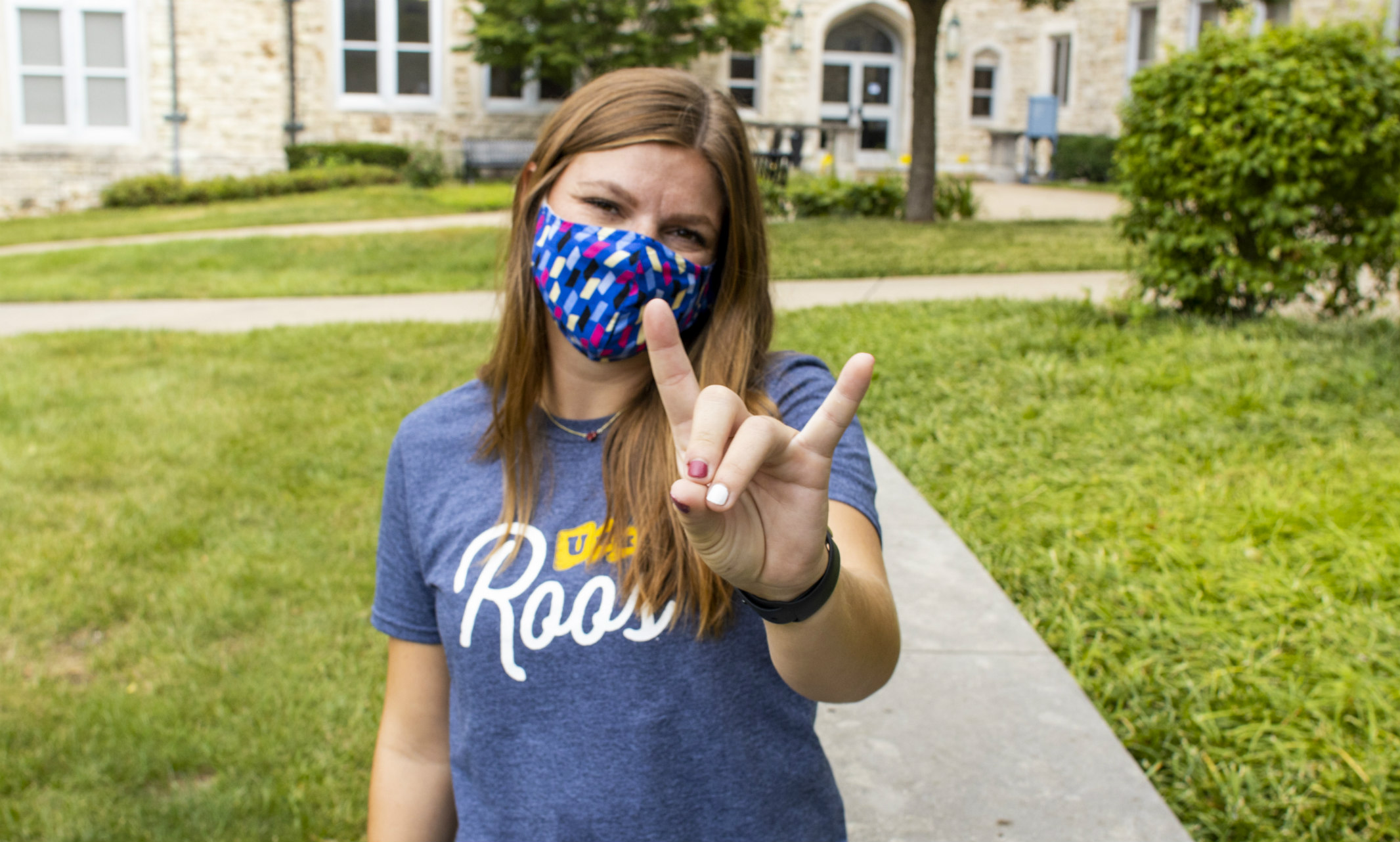
Responses on class modality vary widely
A July survey of students, faculty and staff revealed deep and widespread support for a face covering requirement on campus for fall semester.
While the campus face covering policy announced last week is based on best available medical advice, the survey indicates strong support for that decision.
The survey also sought student preferences with regard to in-person, online and blended class modalities. Responses varied widely among various student groups – new students, returning students, graduate students and professional students – but one consistent factor was a strong preference for asynchronous online courses (students engage with the course on their own schedule) over synchronous courses (class sessions conducted live at a scheduled time). Survey results will inform decisions on in-person, online and blended class options in the spring.
Here are highlights of the survey results:
90% of faculty and staff and 83.9% of students agreed that face coverings should be required while you are physically on-campus. The UMKC policy is that face coverings or masks are required in all indoor spaces, except when you're alone in a private office, and are required in all outside spaces when physical distancing of six feet cannot be maintained per Kansas City order.
Class modality preferences:
Incoming new students: 56.2% prefer face-to-face, 46.1% blended and 25.6% asynchronous online courses
All undergraduate students: 42.9% prefer asynchronous online, 40.1% face-to-face and 37.2% blended
Graduate students: 40.4% prefer blended, followed by any online modality
Professional students: 46.6% prefer face-to-face, 34.4% blended and 29.1% asynchronous online
Note: percentages on class modality preferences are not cumulative since this question allowed students to select multiple preferences.
Student meetings/consultations with faculty and staff:
Incoming new students preferred appointments over walk-in unscheduled sessions, either in-person or virtual
Exceptions: walk-in preferred for Roo Wellness and UMKC Central
All other students preferred virtual sessions by appointment
Exception: walk-in preferred for Roo Wellness
Survey response rates: more than 6,000 students, faculty, and staff responded
Faculty: 23.6%
Staff: 28.5%
Students: 30.7%
Aug 11, 2020
Personal responsibility will be a key factor
People want to know: Is it really safe to return to campus during a pandemic? University officials conducted a webinar for employees on Aug. 10 and for students on Aug. 11 that explained in detail how this can be accomplished with a high level of cooperation from the university community.
The hour-long webinars included detailed explanations from campus experts about risks, the steps UMKC is taking to minimize those risks, and the vital role individuals must play to manage risks on an ongoing basis. Chancellor Mauli Agrawal said occurrences of COVID-19 on campus during the semester are all but inevitable, but if we all do our part, the spread can be controlled.
“The virus is with us, but the good news is we can keep it under control,” the chancellor said.
Personal responsibility, many of the presenters emphasized, is key. If students, faculty, staff and visitors are disciplined about three fundamental behaviors – wearing face coverings, maintaining at least six feet of distance from others and frequent, thorough hand washing – the risk of on-campus transmission will be significantly reduced.
Another vital step is for anyone who gets sick to notify campus authorities immediately, and stay home.
Mary Anne Jackson, M.D., is dean of the UMKC School of Medicine and an infectious disease expert who has counseled Kansas City and Missouri state government leaders on pandemic response. She pointed out that the mortality rate from COVID-19 infections is three times higher for black patients compared to the population as a whole, and two times higher for Hispanic patients.
“This is an example of health inequity driven by systemic racism,” she said.
Jackson added that the primary source of transmission is personal contact; the risk of contracting COVID-19 from a contaminated surface such as a countertop is much lower than originally believed.
Nevertheless, Mike Graves of Campus Facilities Management said their team has been hard at work all summer and will continue a stepped-up regimen of cleaning and sanitizing across campus.
“We’ve been here all along. We have flushed water systems in buildings and improved air circulation in HVAC systems,“ he said. “We know we are going to have positive cases. We have a plan to respond.”
Obie Austin, Student Health and Wellness administrator, said his team will play a major role in that response as well, working to trace the movements and contacts of people who test positive for the virus and advising people on proper isolation or quarantine steps.
“If at any point you can’t remember what to do or you’re not sure, call us,” Austin said. Student Health and Wellness can be reached at 816-235-6133.
Provost Jenny Lundgren said the academic operation is fully prepared as well.
UMKC faculty participated in training specifically for effective online teaching. For the fall semester, the university will be offering approximately 50% of classes online, 40% percent in person and 10% via hybrid delivery.
“Students will have a wonderful experience because of the hard work of our faculty,” Lundgren said. The full range of student success services, from advising to financial aid, will be offered via a mix of virtual and face-to-face modes; appointments are recommended in most cases but walk-ins will be allowed in many offices.
In the student webinar, Kristen Temple, UMKC Residential Life director, addressed the steps taken to prepare the physical spaces and configure the rooms. Guests will not be permitted in the residence halls, except for move-in help (two guests per student). Students living on campus must submit a negative COVID-19 test result before moving in, from a test taken no more than 7 days before their official move-in date. The Student Services Office has a list of testing locations that provide test results within 24 to 48 hours.
"All spaces are ready for you," Temple said.
Changes to campus dining services were addressed by Jody Jeffries, manager of Student Union Operations and Student Auxiliary Services. Although seating capacity in the UMKC dining center will be reduced to allow for physical distancing, all but one menu option will be offered. Open area cooking will not be offered. UMKC retail dining services will also be open. Students will have the opportunity to dine in person or take their orders to go. Order ahead and pay ahead services have also been added to the offerings, including the Bite by Sodexo App.
Lundgren also urged faculty and staff to refer to the UMKC coronavirus website to get full details on all aspects of preparation and response to the pandemic. A recording of the student webinar is available online.
Aug 11, 2020
The Kansas City Business Journal reports on new funding opportunities
The UMKC Innovation Center has partnered with local banks to help close the funding gap for minority-owned businesses in the Kansas City metro. Read the full article.
Aug 11, 2020
Kansas City Star interviews UMKC professor
Robert Prue, a professor of social work at the University of Missouri-Kansas City, said his scouting experiences years ago didn’t involve Native American traditions, but when he moved to Kansas City he learned more about Mic-O-Say and its various traditions. You can read the full article with a Kansas City Star subscription.
Aug 11, 2020
Fox4KC taps UMKC political science professor for commentary
This fall UMKC Associate Dean and Political Science Professor Beth Vonnahme will be teaching a class called “The Road to the White House.” She says that race now starts in earnest. Read more from Fox4KC.
Aug 11, 2020
KCUR includes UMKC ethics professor on panel discussion
Clancy Martin, professor of philosophy at the University of Missouri-Kansas City, was a guest on KCUR's Up to Date.
Aug 11, 2020
Medscape covers commentary by UMKC School of Medicine professor
In a linked commentary, Peter Koulen, Ph.D., of the University of Missouri-Kansas City and colleagues write, “These findings are in accordance with previous work demonstrating aflibercept’s superiority compared with other anti-VEGF treatments in improving functional and anatomical outcomes in DME, particularly in patients with a BCVA of 20/50 or worse.” Read the full article.
Aug 10, 2020
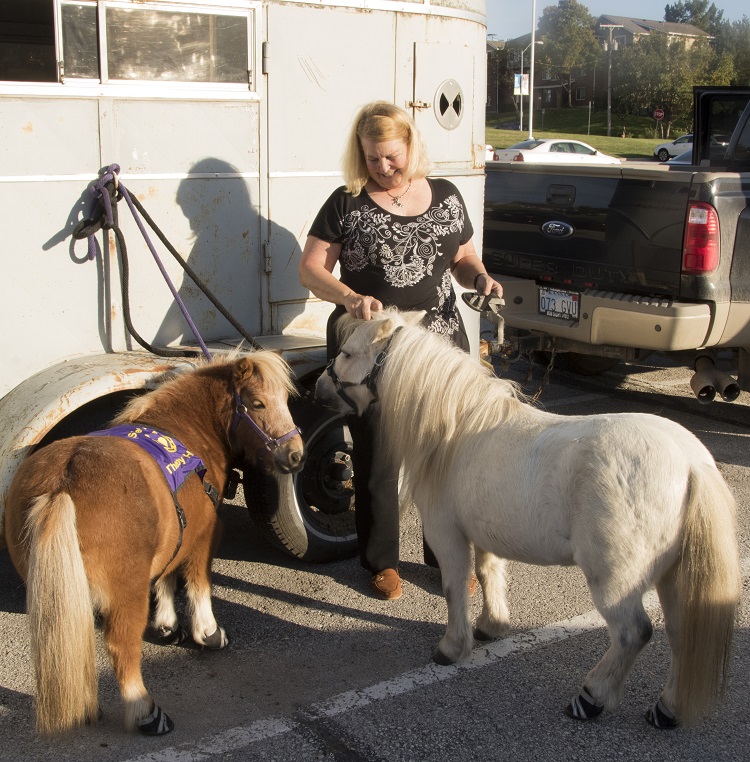
Sharon White-Lewis oversees a rare nursing doctoral research program in equine therapy.
Betting on a horse at the racetrack is a good way to lose your money. But betting on horses to help people heal turned out to be a sure thing for Sharon White-Lewis, earning her a Ph.D. and making her a unique mentor and leading researcher in the field of equine therapy.
Horses have been used for therapy since at least the second century, but research documenting their therapeutic benefits is a relatively recent development, said White-Lewis, an assistant professor in the UMKC School of Nursing and Health Studies. Her review of equine-therapy research was published in 2017, and she found benefits for all sorts of patients, from veterans with PTSD and women recovering from breast cancer to cerebral palsy patients who regained nerve function and muscle strength through horseback riding.
“The physical and psychological effects are huge,” said White-Lewis. “Some people walk who have never walked before. Autistic kids talk who never talked before. Horseback riding stimulates all five senses. It’s fascinating what it can do.”
Her own doctoral research at UMKC found that a regular riding program for adults with arthritis decreased their pain, increased their range of motion and improved their quality of life in just six weeks. She’s currently following up with research involving the biomarkers — molecules in the bloodstream —that indicate cartilage and muscle damage, to track how much they decrease with equine therapy as a way to measure its effectiveness.
Besides earning her doctorate, White-Lewis joined the UMKC faculty, and now she wants prospective nursing graduate students to know that they, too, can do equine-therapy research at UMKC, with most of their costs covered. She particularly likes the Nurse Faculty Loan Program, which forgives 85% of advanced-degree students’ loans in return for serving as nursing faculty or hospital preceptors.
“Some people walk who have never walked before. Autistic kids talk who never talked before. Horseback riding stimulates all five senses. It’s fascinating what it can do.” —Sharon White-Lewis
As White-Lewis sees it, “It can take five years to earn your doctorate, so why not spend that time working with horses and having most of your expenses covered?” She has identified more than two dozen medical uses for horses, so there are plenty of types of therapy to research. And as more high-level research is conducted to document the benefits, she said, equine therapy could gain insurance coverage and benefit more people.
White-Lewis currently has one student doing doctoral equine-therapy research, Holly Bowron Hainley of San Diego. She’s a certified nurse practitioner and has a non-profit organization in Southern California that promotes the psychological benefits of equine therapy by bringing miniature horses to schools and clinics.
Like White-Lewis, she’s hoping equine therapy can spread through greater awareness and more evidence leading to insurance reimbursement.
Bowron Hainley, whose research involves people with eating disorders, said, “Our goal is to have the kind of data you could show a health system saying that if you would reimburse, say, $10,000 for a person to be part of this equine-assisted intervention program, it would save you $30,000 you would have to spend otherwise on psychotherapy, medication, and hospitalization for relapses.
“I can’t tell you how many people tell me my work is the first time they’ve ever actually seen a horse in person. And I’m in California where it’s much easier to have horses than in many parts of the country. Wouldn’t it be wonderful if this therapy was more widely available and affordable?”
Bowron Hainley also hopes others interested in equine therapy research will find White-Lewis. Though such research can be done under a variety of disciplines, from psychology and psychiatry to physical, speech and rehabilitation therapy, such research at nursing schools is rare.
“I did some deep searches, and she appears to be the only nursing faculty in the country mentoring equine therapy research,” Bowron Hainley said. “When I read her dissertation, I said, ‘This is what I want to do.’ ”
“Wouldn’t it be wonderful if this therapy was more widely available and affordable?” —Holly Bowron Hainley
White-Lewis hopes for more doctoral students and pointed out that the research could be done in and around Kansas City, or elsewhere as Bowron Hainley is doing. “My husband and I own four horses and two miniature horses,” said White-Lewis, who also noted that there are several good stables and riding programs around the area.
Her work also has drawn international attention. Her published analysis of equine-assisted therapy helped clarify terms in the field, and her dissertation led to a consortium of researchers in Spain, the United States and six other countries planning to perform extensive further research like hers on equine therapy for arthritis.
For all she has done in equine therapy research, White-Lewis is no one-trick pony at the School of Nursing and Health Studies. She also leads the school’s emergency response studies and teaches quantitative research and disaster preparedness for nurses. As an expert in emergency response, she has helped with local efforts to combat the spread of the coronavirus, and she will help teach a COVID-19 course the school is adding this fall.
But it’s also clear that horses, and equine therapy, have a special place in her heart.
“It’s gratifying that physicians, occupational therapists and other professionals in other countries are working on this,” White-Lewis said. “But I want to see more equine therapy research at UMKC. Its benefits are fascinating, from physical improvements to psychosocial and mental health. We just need more nurse researchers willing to look into the applications and gain evidence to support it.”
Aug 07, 2020
Panelists address police reform in Kansas City
The Future of Policing is the second discussion in the Critical Conversations series sponsored by the office of UMKC Chancellor Mauli Agrawal and the Division of Diversity and Inclusion.
The murder of George Floyd at the hands of a Minneapolis police officer was the latest chapter in a bigger story. From police stops to use of force and arrests to incarceration and the death penalty, nearly every aspect of the criminal justice system is pervaded by racial disparities. On July 30, panelists discussed the history of policing and actions for reform moving forward, focusing on Kansas City. Another Critical Conversations discussion will be held on Aug. 27 to further examine the future of policing.
Participating panelists included:
Gary O’Bannon (co-moderator), executive-in-residence, Henry W. Bloch School of Management and former director of human resources, City of Kansas City, Missouri
Jasmine Ward (co-moderator), third-year student at the UMKC School of Law
Jean Peters Baker, Jackson County prosecutor
Emanuel Cleaver III, senior pastor, St. James United Methodist Church
Damon Daniel, president, AdHoc Group Against Crime
Toya Like, associate professor, UMKC Department of Criminal Justice and Criminology
The importance of engaging the community and rebuilding trust of the police was a common theme throughout the discussion. In Kansas City, panelists said a lack of local control, unresolved complaints, unsolved cases and biased policing has resulted in distrust of the police.
Currently, the city does not have local control over its police department — making it the only city in Missouri and one of the largest in the U.S. that doesn’t govern its own police force. The Kansas City Police Department is controlled by a five-member board (among the members is Mayor Quinton Lucas) appointed by the governor. The argument for local control has pros (making decisions regarding police without having to go through Jefferson City) and cons (the challenge of putting together a new structure for the KCPD).
Whether or not the city gains local control over the police department, Cleaver suggested forming an independent review board to address community complaints in an effort to foster trust. Right now, complaints are overseen by the police department and community members feel many are unresolved. Peters Baker added that two out of 10 violent crimes come to her office for charges, meaning that eight cases go unsolved leading to further distrust of police.
Calls to reallocate funding and increase training for police officers have been heard across the country. All the panelists agreed that changes in funding should be considered, including training on recognizing bias, ongoing psychological evaluations for officers and systematically reviewing cases where excessive force was used to improve future encounters. Like wants to remove confusion around defunding the police, a common call-to-action during recent protests, by putting community safety and reformation at the forefront.
Watch the discussion in its entirety below and check-in on the original story to see when part two of the future of policing will be announced this fall.
Aug 07, 2020
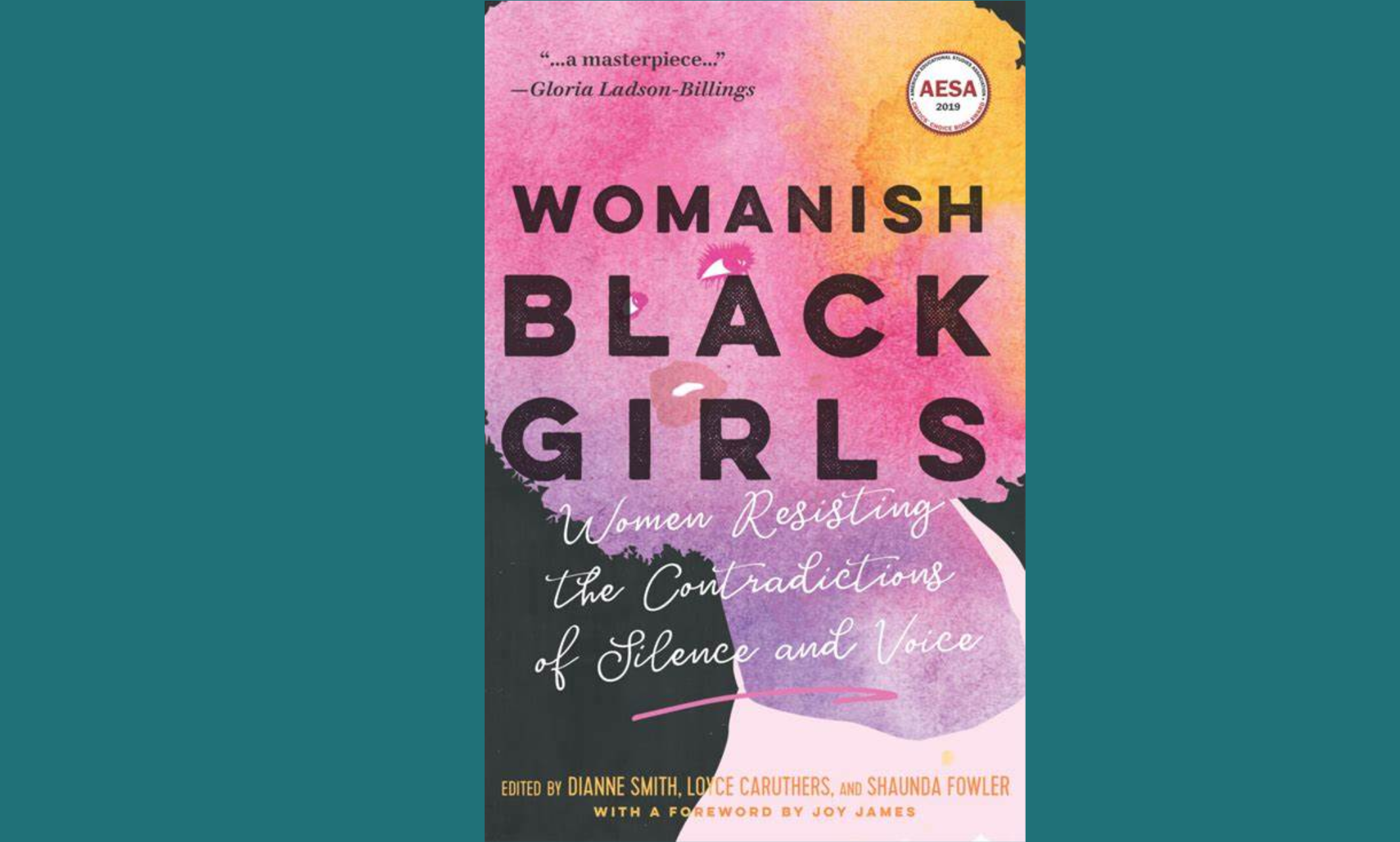
Womanish Black Girls/Women Resisting Contradictions of Silence and Voice
“Womanish.” It’s an anthology of stories meant to break the silence and spark conversation surrounding key issues around power and transformation among Black women, and two School of Education faculty members – professor Loyce Caruthers, Ph.D. and professor emerita Dianne Smith, Ph.D. – are among the trio of editors who compiled this award-winning literature.
Since it was published in 2019, Womanish has received two awards and sold out twice.
Society of Professors of Education Outstanding Book Award, 2020
American Educational Studies Association Critic's Choice Book Award, 2019
While it can serve as a secondary text in academia, Caruthers and Smith said book clubs from Kansas City to North Carolina have read and discussed the collection of essays.
“We all have different interpretations about what womanish means, but one of the common themes was about speaking your mind and being heard." - Smith
“There is a lot of hope and self-empowerment in this book,” said Caruthers. “The themes in each of the stories shed light on things that have impacted all of our lives that we don’t always understand.”
The editors said the power of the book comes from breaking the silence about topics from abuse to religion to the stereotypes and sexualization of Black women and girls. Each of the writers pulls from personal and familial life experiences to share how their lives were shaped from childhood to adulthood.
“'Womanish' for me comes from the fact that we are sexualized too early as little girls. There was also Black male patriarchy where we were to be seen and not heard,” Smith said. “I used to ask my Sunday School teacher why Eve was blamed for the fruit and not Adam, and I was shamed for that.”
The idea for “Womanish” stems from Smith’s dissertation and previous writings, which focus on themes surrounding race and racism, feminist theory, critical educational theory and curriculum theory. When the opportunity came to publish a book, she said knew she needed to include more than one Black woman’s voice, so she invited Caruthers and Shaunda Fowler, principal of Troost Elementary in Kansas City, to contribute and serve as co-editors.
“The themes in each of the stories shed light on things that have impacted all of our lives that we don’t always understand.” - Caruthers
Each woman has her own story to tell, they have each had various experiences growing up being called “womanish.”
“We all have different interpretations about what womanish means, but one of the common themes was about speaking your mind and being heard. A lot of it has to do with our mothers protecting us from cultural and social oppression,” said Smith, adding that the book, for some, is hard to read.
Caruthers said “Womanish” is about each author grappling with the secrets of their lives, things that they know happen to women but that become silenced and left unaddressed.
“Womanish” is a book for every generation of woman from every walk of life, says its writers. The list of authors includes women from academia and from the broader community. Voices from the past and present can be heard as, throughout the book, each writer chose different Black women authors and theorists to pull from as influence and inspiration: Audrey Lorde, Alice Walker, Brittany Cooper, Rebecca Walker and Maya Angelou and Joy James, who authored the foreward, are among the voices you can expect to be presented in this collection of work.
“If you don’t know where you’ve been,” said Caruthers, “you don’t know where you’re going.”
Aug 06, 2020
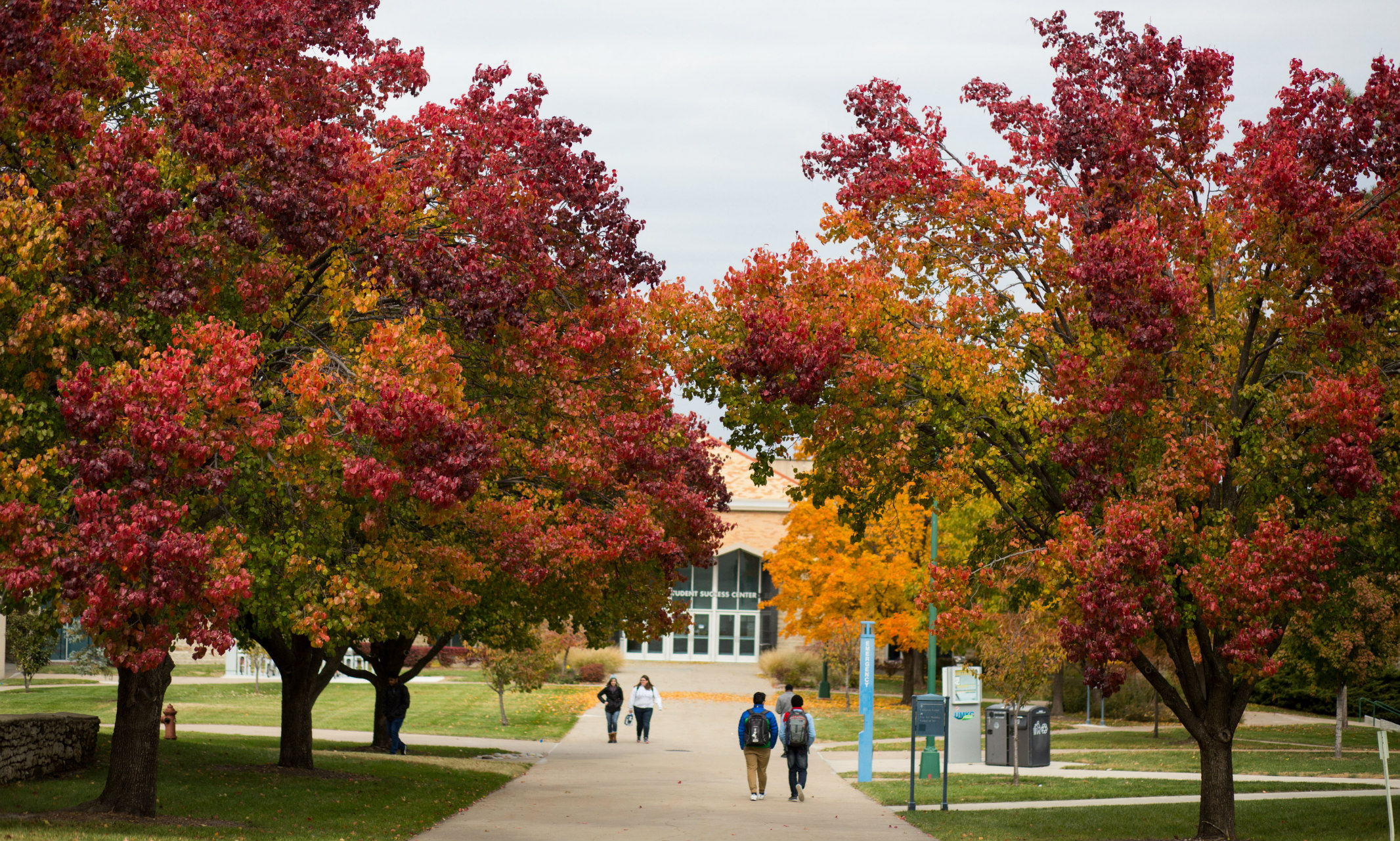
Donors respond with increases across the board in challenging year
The UMKC Foundation has had a year of record giving with significant increases in both contributions and donors. This year’s donations are 35% greater than the previous record year, with gains in all areas of giving.
“We are thrilled with the level of support that we have received from the community and our alumni through donations,” said Lisa Baronio, UMKC Foundation President and UMKC Chief Advancement Officer. “This year, we celebrate our donors who have provided contributions that totaled more than $59 million. To receive an increase in giving at this level in a year that has proved so challenging for so many people is reflective of the recognition of the great work UMKC is doing and our staff.”
The Marion and Henry Bloch Foundation and the Sunderland Foundation that support programming integral to student success as well as capital commitments represent a significant component of the donations. But individual giving increased as well.
“More than 20,000 donors contributed 103,789 gifts,” said Baronio, who recently celebrated her first year at UMKC. “And we also achieved a $20,000 increase in annual giving – a small, but significant increase.”
These donations represent increased funding to programs, scholarships and emergency funds as well as capital improvements. This year the Marion and Henry Bloch Family Foundation donated $21 million to support three initiatives: $11.8 million for programming within the Bloch School of Management; $8 million for infrastructure improvements to and expansion of the Bloch Heritage Hall building; and $1.2 million to support RooStrong, the university’s new program for increasing student retention, six-year graduation rates and career outcomes.
“We are deeply grateful to donors who support UMKC with gifts at any level,” - UMKC Chancellor Mauli Agrawal
The Sunderland Foundation’s $15 million gift provided significant support for capital improvements on both UMKC campuses including $5 million for renovations to Bloch Heritage Hall, which has not received an upgrade since 1986, and $3 million for the School of Law for renovations of classrooms and student services.
In addition to major gifts, individual support of more than $70,000 to the Student Emergency Fund provided funds to help students stay in school and with basic living expenses during the COVID-19 crisis.
“We are deeply grateful to donors who support UMKC with gifts at any level,” UMKC Chancellor Mauli Agrawal said. “We view this as strong message of confidence in the university, as well as our students, faculty and staff and an investment in future success. I commend the UMKC Foundation on their dedication and diligence in helping to generate these resources.”
Aug 06, 2020
Safe planning ensures physically and mentally healthy Roos
Thinking about hosting an event this semester?
Returning to campus creates needed opportunity for connecting and collaborating. In order to facilitate meetings and events in the safest possible way, the university has developed guidelines incorporating the latest information on preventing the spread of COVID-19.
Safe and successful events can be arranged with three criteria:
Make it easy for attendees to touch fewer surfaces
Allow touchless check-in
Manage space effectively
Creating opportunities to register online can provide a high level of touchless interaction. Digital registration also creates an opportunity for attendees to print digital credentials at home, eliminating the need to pick up materials at the event. Digital registration information also allows organizers the opportunity to communicate staggered arrival times and ensures effective communication if follow-up information related to exposure or contact tracing is necessary.
If on-site registration is necessary, plexiglass shields are recommended between registration staff and registrants and masks are required for registration staff. All attendees must wear masks as well.
In addition, advanced digital registration allows organizers to plan for the necessary space for the number of attendees. While rooms can be arranged with seating six feet apart, meeting rooms with stadium seating may require seats to be blocked to allow distancing. Directional arrows on the floor can provide clear guidelines on traffic flow that enable attendees to limit interaction.
Pre-packaged food provided by a fully licensed caterer ensures that attendees will not be sharing serving utensils or condiments. Bottled beverages may be used at self-serve drink stations, and pre-wrapped utensils are required.
Hand sanitizer throughout the event – at the meeting room entrance and exit, food and beverage stations and restrooms – are key to encouraging the elimination of spreading. Face masks are required and should be worn whenever people are within six feet as recommended by the CDC.
Communicating as much information as possible to attendees in advance allows all attendees to understand the expectations and make appropriate accommodations when visiting campus. For further information, including suggested room seating diagrams, please visit the Events section of the Coronavirus site.
Aug 06, 2020
Yotam Haber won the Azrieli Commission for Canadian Music prize
The Azrieli Foundation will present its biennial Azrieli Music Prizes Gala Concert on Oct. 22. Yotam Haber's work will be featured in the gala. Haber is a UMKC Conservatory associate professor. Read the full article online.
Aug 06, 2020
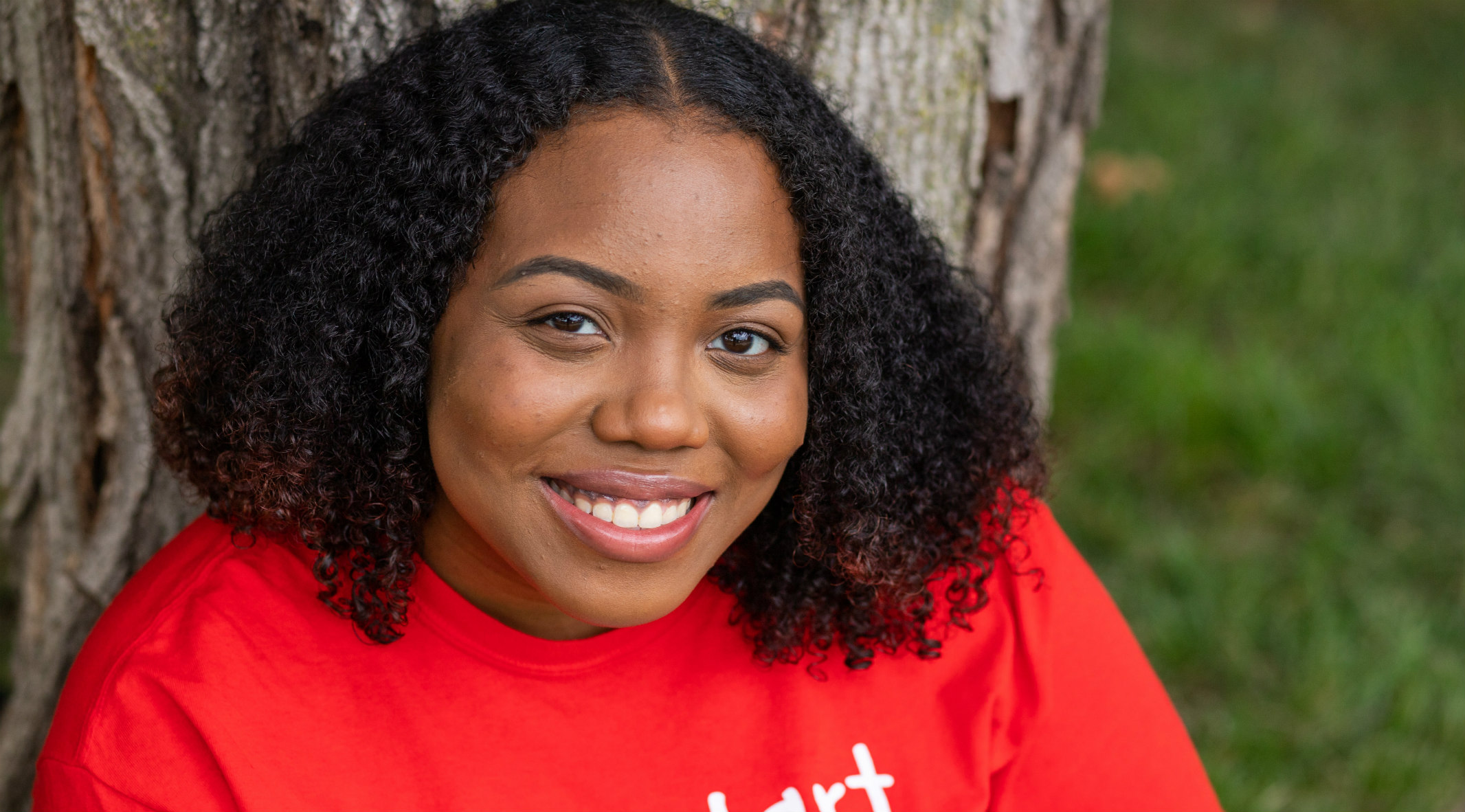
Alea Roberts aspires to a career in nursing
Name: Alea Roberts
Hometown: Kansas City, Missouri
High School: Raytown High School
UMKC degree program: Health Sciences, Pre-Nursing Track
Anticipated graduation year: 2022
Get to know our people and you'll know what UMKC is all about.
Alea Roberts has her sights set on nursing school, but as she makes her way through her undergraduate degree, she works with Jumpstart, a program to encourage kindergarten success for children in under-resourced communities. Alea's history with UMKC began in kindergarten, so her experience has come full circle.
“I participated in programs at UMKC from kindergarten through 12th grade,” Alea says. “I did a summer reading program in elementary school, I was in the Young Achievers program my sophomore year of high school and I did the Summer Scholars program my junior and senior years.”
She also picked up some dual credit classes in high school that went through UMKC. So it’s no surprise that she is pursuing her dream of nursing school, hopefully at UMKC.
“I love the medical field!” Alea says. “There is a vast selection of careers to choose from and there will always be demand as a health care worker, even more so as a nurse. I want to meet new people every day, never stop learning and make a difference in someone's life. Nursing is a great path to achieve all of these goals.”
Beyond her interest in nursing, Alea is a team leader for Jumpstart. Her work there has been eye-opening.
“When we walk into the classroom wearing our red T-shirts, all of the children's faces light up and they run to give us hugs, even on the first day we meet them.” - Alea Roberts
“When we walk into the classroom wearing our red T-shirts, all of the children's faces light up and they run to give us hugs, even on the first day we meet them,” Alea says. “There are children from many different cultural and economic backgrounds, some who face devastating hardships at home. School becomes a safe haven for them.”
The Jumpstart teams are made up of four to five people who spend two hours a day twice a week in the classroom reading and playing games. As a team leader, Alea also teaches short sessions on topics relating to the children’s current curriculum. She develops close relationships with the students.
“We really encourage them and make them feel special. When they show us their projects, we really react. ‘You did so well! You used all those colors! You made that shape? I can see all the hard work you did.’ That’s what connects them to us.”
As a team leader, Alea also spends time in the office preparing materials, meeting with supervisors and her other team members. She never feels as if the hours she puts in feel like work.
“Jumpstart is different than people might expect. We tutor, but it feels as if we’re playing all day. We get to spend hours being big kids. And it’s a great opportunity to help out with our community.”
“Jumpstart is different than people might expect. We tutor, but it feels as if we’re playing all day.”
This year’s session ended a week early because of COVID-19 precautions. It was a tough transition.
“Our job is to be a pillar of stability and encouragement while providing a way of learning that connects to each kiddo,” Alea says. “We ended up doing our year-end celebration and wrap-up online. It wasn’t the happiest ending, but we made the best of it.”
Alea’s experiences at Jumpstart have influenced her career direction.
“Now I’m sure I will be in the pediatric field,” she says. “I have seen how much kids can struggle and how they need someone who sees them. I learned that in Jumpstart. I know there’s so much I can do in the health field.”
Aug 05, 2020
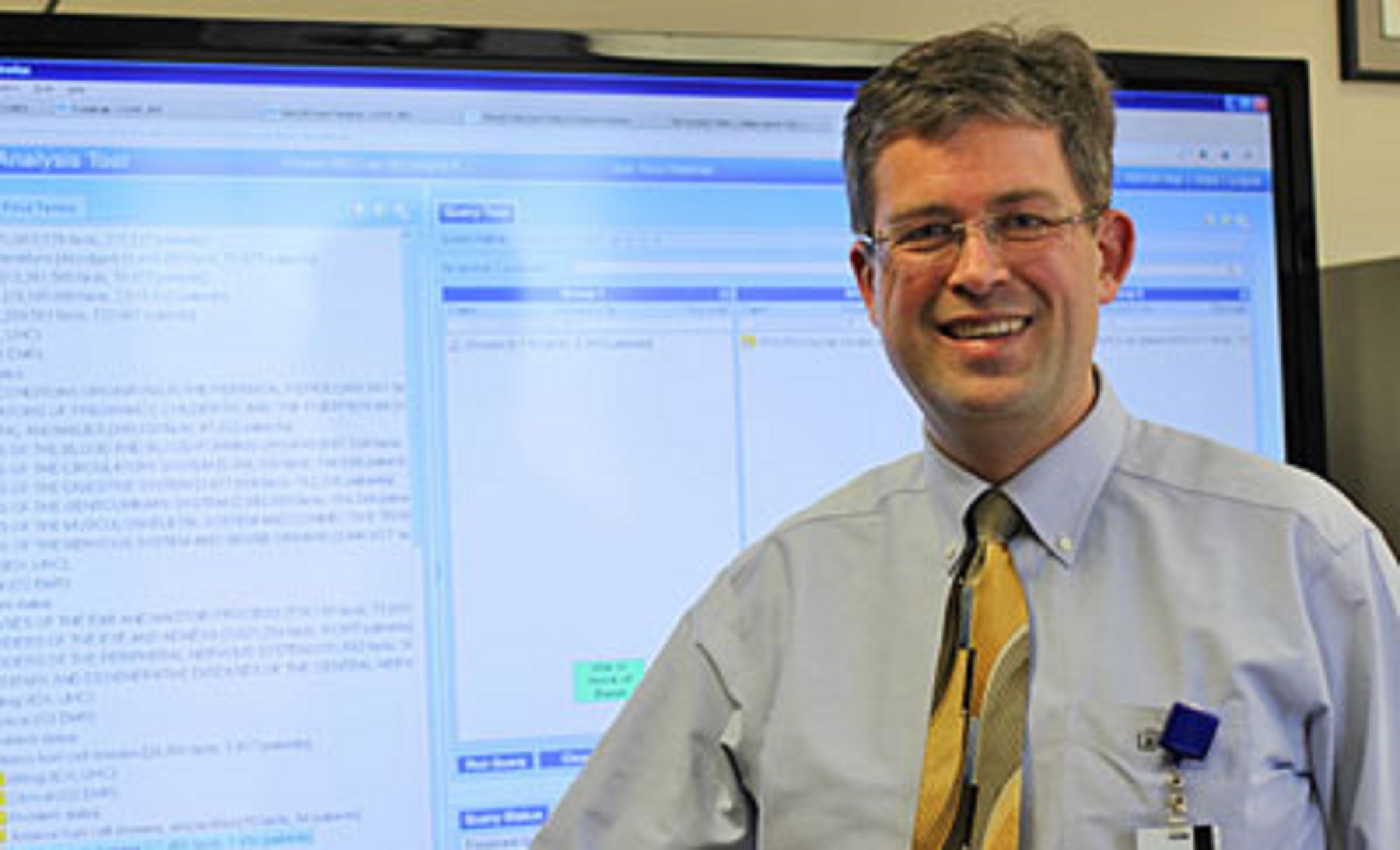
Lemuel Russell "Russ" Waitman also will teach at the School of Medicine, help lead UM System’s precision health effort
Lemuel Russell “Russ” Waitman, Ph.D., will join UMKC on Oct. 1 as the director of the Center for Health Insights at the School of Medicine. He also will be a professor in the Department of Biomedical and Health Informatics.
The center partners with Truman Medical Centers and Cerner Health Facts to use de-identified health systems data to conduct data-driven research for biomedical discovery and to gain insights into usage and comparative effectiveness of treatment to improve patient safety and quality of care.
“We are thrilled to welcome Dr. Waitman, who can help accelerate our research at the university to help improve health care for millions of people,” said Dean Mary Anne Jackson, M.D. “We look forward to his leadership at the UMKC Center for Health Insights and expanding our outcomes research enterprise.”
Waitman also will spend time at the University of Missouri System’s campus in Columbia as the director of medical information for the NextGen Precision Health Institute, which fosters big data medical research at the UM system’s four campuses. He also will be the Columbia campus’ associate dean for informatics and vice chair for informatics and professor in its Department of Health Management and Informatics. He also will be an adjunct professor in the Department of Family and Community Medicine there.
In his new position, Waitman plans to split his time between the campuses. He will work one day a week from his UMKC office at the School of Medicine and spend the rest of his time working from the Columbia campus.
“This is a transformational hire to the University of Missouri System, as MU and UMKC have jointly worked together to make a recruitment of this type happen,” said Richard Barohn, M.D., executive vice chancellor for Health Affairs at the University of Missouri. “Dr. Waitman is a national leader in medical informatics and is well known around the country as an informatics researcher at the top of his field. We hope this is the first of a number of systemwide recruits that will further our mission to provide leading-edge research and world-class health care to Missourians.”
Waitman's research is funded by the National Institutes of Health and the Patient-Centered Outcomes Research Institute. Waitman established the Greater Plains Collaborative, which linked the electronic medical records for a dozen academic health centers in the Midwest, Utah and Texas to enable investigators to access clinical data to perform leading-edge precision health research. The University of Missouri has been part of the Greater Plains Collaborative for several years as one of the collaborating sites.
“By working together, we have an opportunity to create a stronger environment for investigators from all schools.” —Russ Waitman
Since 2010, Waitman has served as a professor of internal medicine, the director of the Center for Medical Informatics and Enterprise Analytics, and as the associate vice chancellor for Enterprise Analytics at the University of Kansas Medical Center. There, he has worked to establish a strategy for clinical and translational research informatics for Frontiers, the Kansas and Kansas City NIH Clinical and Translational Science Award. Before his time at KU, Waitman served as a faculty member with the Department of Biomedical Informatics in the Vanderbilt University School of Medicine where he led their Computerized Provider Order Entry project, “WizOrder,” and its commercialization to McKesson Corp.
“I’ve enjoyed my collaborations with the University of Missouri over the past decade and am excited about this opportunity to enhance informatics across the campuses,” Waitman said. “By working together, we have an opportunity to create a stronger environment for investigators from all schools to engage patients and partner health systems in advancing health in Missouri and nationally. As a former Air Force medical service corps officer and military brat, I am also interested in the potential with Cerner to contribute to military members’ and veterans’ health.”
Waitman received a bachelor’s degree in electrical engineering from Washington University in St. Louis and a master’s degree and doctorate from Vanderbilt University in Nashville.
Aug 05, 2020
Flatland KC wrote about a study that pushes for more a equitable investment citywide
The University of Missouri-Kansas City Center for Neighborhoods opened in April of 2016. While it is still fairly new, the center currently works with 67 neighborhood associations across the city. Writer Mawa Iqbal interviewed Director Dina Newman, who refers to the center as a “one stop shop” for neighborhood associations seeking resources to go back to their communities and do the work that needs to be done. Read the full article.
Aug 05, 2020
Startland News writes about the fund
A new $100,000 fund is expected to help minority-owned Kansas City businesses — left out of initial rounds of COVID-19 relief — to build resiliency and come back stronger as the pandemic persists. The grants are funded by the Ewing Marion Kauffman Foundation and administered by the UMKC Innovation Center in partnership with local financial institutions.
Aug 05, 2020
UMKC Political Science professor offers election commentary
Greg Vonnahme was recently interviewed by Courthouse News Service about the upcoming primary election in Kansas. Read the full article.
Aug 04, 2020
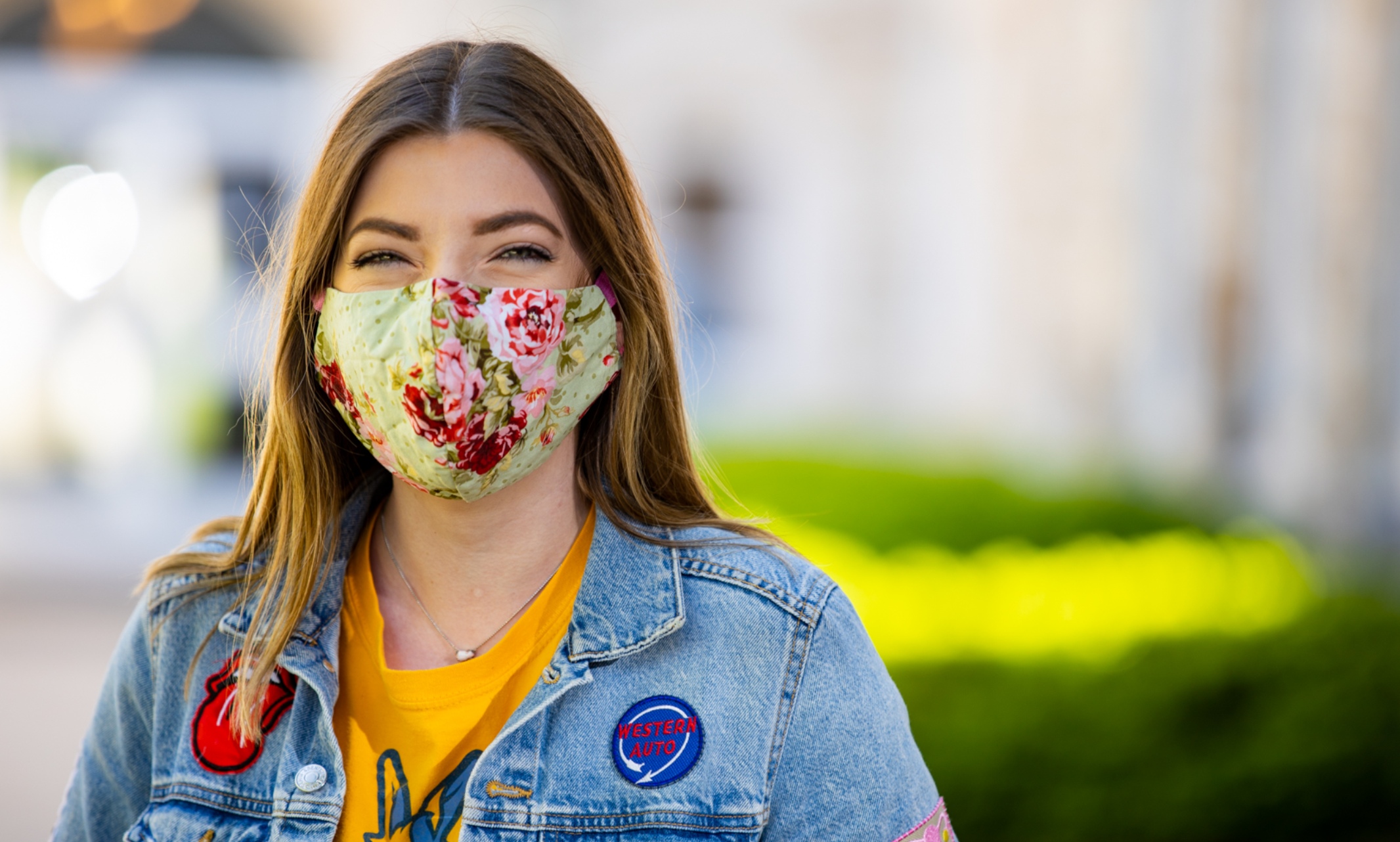
Cooperation is vital to managing pandemic
As we return to campus during this uniquely challenging time, all of us will need to become more careful and intentional about how we interact with our physical environment and, especially, how we interact with each other.
To protect our own health, as well as the health of other members of our community, we have responsibilities that we must take seriously. Our challenge will be to keep these responsibilities top of mind. We have to really think about things we used to take for granted, such as conversations and formal and informal gatherings; even the way we greet old friends we haven’t seen for months.
Here are our most important responsibilities to each other:
Wear a mask or face covering. UMKC policy: face coverings or masks are required in all indoor spaces, except in private offices, and are required in all outside spaces when physical distancing of six feet cannot be maintained, per Kansas City order. Any time you are within six feet or less of another person, you must have your nose and mouth covered. This is the single most important thing we must do to prevent the spread of the virus on campus.
Maintain physical distancing. Stay at least six feet apart from others to the maximum extent possible. Be patient. Don’t crowd, don’t cut properly distanced lines. Do not congregate in hallways, outside classrooms in other common areas.
Wash your hands. Wash as often as possible, for at least 20 seconds, with soap.
Be safe off campus as well as on. Masking, hand washing and distancing on campus will make no difference if you go unprotected to crowded social gatherings in bars, restaurants, music clubs, parties, etc. after school. This also means avoiding unnecessary travel.
Monitor yourself for symptoms. Take your temperature daily. If it is above 100.4F, or if you display these other symptoms of COVID-19, stay home. If you test positive, we ask that you call and notify campus within four hours of getting test results. Students: Call UMKC HelpLine at 816-235-2222. Faculty and staff: Call your supervisor. After business hours: Call 816-235-COVI.
Cover coughs and sneezes. Follow these CDC recommendations.
Clean up after yourself. When using residence hall kitchens, workplace break rooms and other common areas, clean up before you leave by using provided materials and following directions on posted signs.
Take care of yourself. Eat a healthy diet, get plenty of rest and exercise and reduce your stress levels. Useful information and tips on a healthy lifestyle are available on the Sanvello app and the campus recreation Instagram account.
Understand and accept that you will be inconvenienced. This will be a challenge for all of us. Be patient, be kind and remember that you are part of a Culture of Care.
Stay informed. Take the time to read campus communications. Our COVID-19 website has all of the most recent communications as well as the latest rules and recommendations for our campus based on local, state and national public health guidance.
Aug 04, 2020
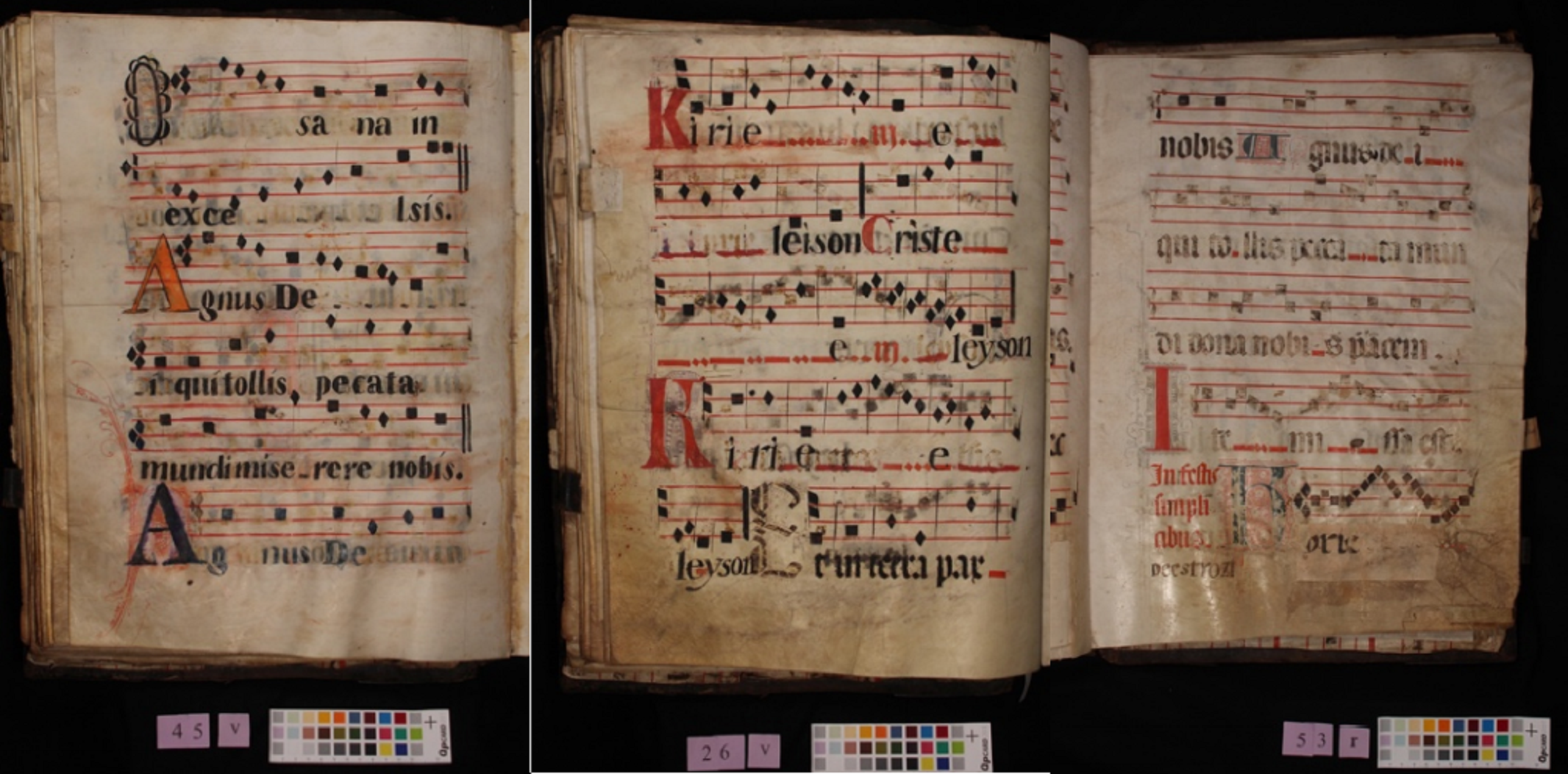
Use of digital photography, computer analysis and cataloging bring historical texts alive for modern researchers.
UMKC researchers’ 21st century methods for analyzing records from the Middle Ages and the 17th century have received a $400,000-plus boost from two grants by the National Endowment for the Humanities.
One grant, for $324,317, goes to a team led by Jeffrey Rydberg-Cox and Virginia Blanton, both curators’ distinguished professors in English; Nathan Oyler, associate professor of chemistry; Zhu Li, associate professor of computer science and director of the Center for Big Learning; and Yugi Lee, professor of computer science. Their project, titled “Unlocking the Mysteries of a Medieval Chant Book with Multispectral Imaging,” furthers their work with a new method for analyzing early modern manuscripts and print materials. It draws upon special collections held by UMKC, the Linda Hall Library and the University of Kansas. A sophisticated camera Oyler built is able to capture a wide spectrum of colors in Medieval manuscripts, including some the human eye cannot see, giving the other professors and the graduate students on their team the ability to extract more information from the texts. They hope the method eventually could be used widely by graduate students in their research, and by smaller libraries to analyze their own collections.
The team has been working on the project since 2014 and first published on it in 2015. Rydberg-Cox said the new grant will help finance refinements in the multispectral imaging equipment and support two graduate students on the team for three years.
Blanton said the team was gratified to have national funding affirm its work, and grateful to the UM system for funding at an earlier stage that helped get the project going.
“These NEH grants are very competitive, so it’s exciting to receive one and build on the support UMKC has given us. It shows we are headed in the right direction.”
—
Viviana Grieco
The other grant, for $100,000, goes to a project of Viviana Grieco, associate professor of history and Latin American and Latinx studies, and Praveen Rao, who taught computer science at UMKC before moving to MU-Columbia earlier this year. Their project, titled “A Knowledge Graph for Managing and Analyzing Spanish American Notary Records,” aims to unlock thousands of notary records from Argentina.
The records, from the 17th century, were written in a script that can be difficult to decipher, Grieco said, even after years of study. Making the texts digital and developing a system for reading them will make them accessible to researchers.
And although notary records may sound dry, Grieco pointed out that “they touch on every aspect of life and how a society is organized. Wills, contracts, dowries and other records can tell us about trade, poverty and other economic, social and political arrangements.”
Like the other grant winners’ project, their work crosses disciplines to get a deeper look at the past. Grieco and Rao met while organizing a UM System summit on bringing technology and the humanities together, and it has been a fruitful collaboration.
Using “big data” techniques such as deep learning and scalable knowledge management, Rao said, will make it possible for researchers without substantial technical backgrounds to quickly search and access thousands of records for information relevant to whatever aspect of history and society they are researching. “It brings the humanities into the digital age,” he said.
Grieco said their project, just a year and a half old, also got an early boost from seed money from UMKC.
“These NEH grants are very competitive, so it’s very exciting to receive one and build on the support UMKC has given us,” Grieco said. “It shows we are headed in the right direction.”
The awards for UMKC were two of four that went to Missouri institutions from the NEH, and were among 238 grants totaling $30 million. The other Missouri projects will benefit the St. Louis Botanical Garden and an MU-Columbia project making a volume 18th-century engraved prints and essays available digitally.
A full list of the 238 grants by geographic location is available here.
Jul 30, 2020
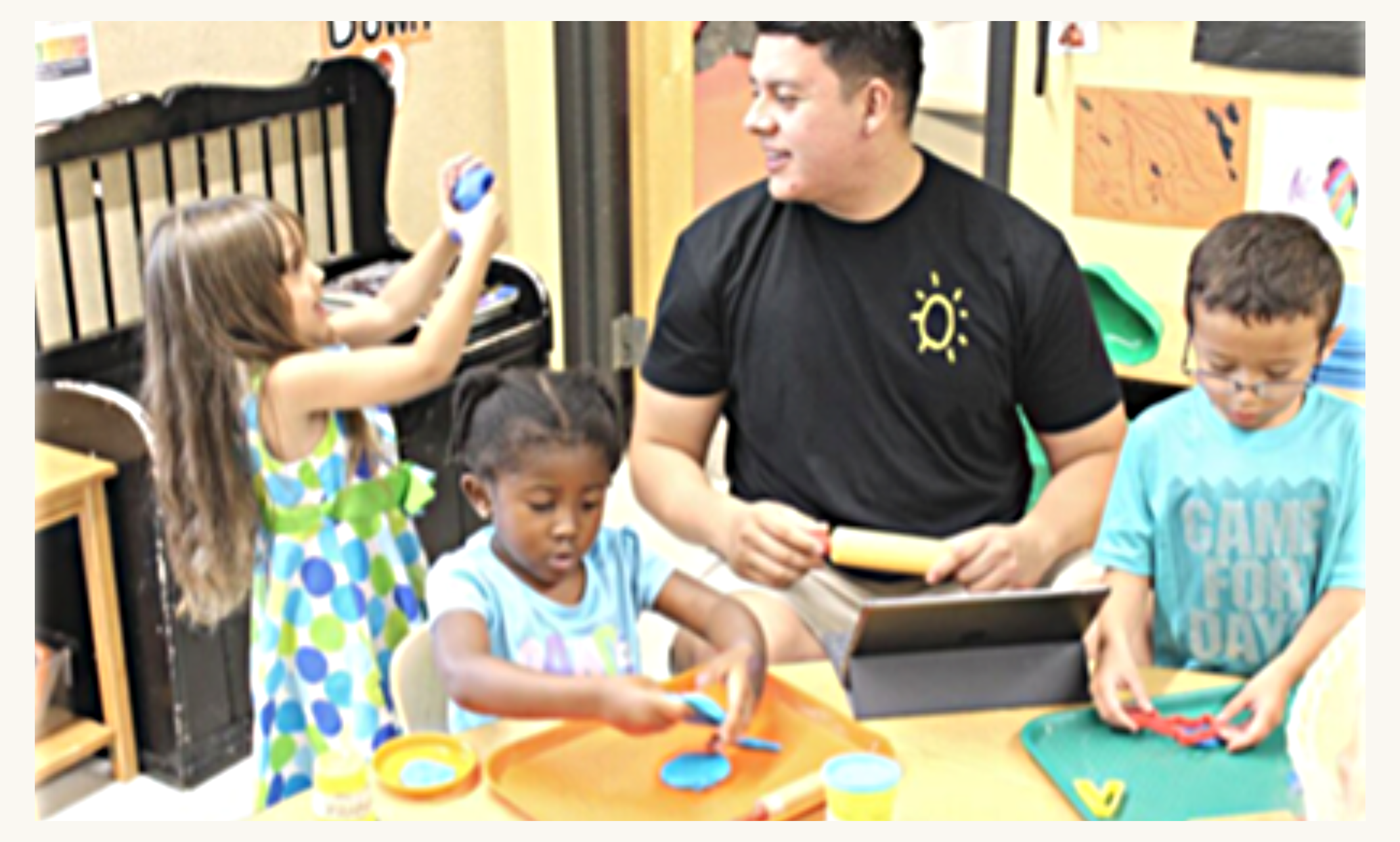
Roberto Diaz advocates for underserved and underrepresented children
Get to know our people and you'll know what UMKC is all about.
Name: Roberto DiazHometown: Pomona, CaliforniaUndergraduate University: California State University, Long BeachUMKC degree program: Education SpecialistAnticipated graduation year: Fall 2020
Growing up in a single-parent home in Pomona, California, Roberto Diaz resisted the influence of gang violence by getting involved in community education programs like the ones he aspires to someday lead. After joining the Marine Corps Reserve his sophomore year of college, which he said taught him discipline and perseverance, he gained transferrable skills that he applies to his journey to becoming a school administrator.
Why did you choose UMKC?
I was teaching in Chicago when I was recruited by Teach for America to come work in Kansas City. From there I joined Kansas City Plus, which is a two-year principal certification program for educators. They have a partnership with the School of Education, so I was able to apply to the education specialist degree program.
Why did you choose your field of study?
I got into teaching when I did City Year and Teach for America. Both of those experiences showed me that there are very few Latinx educators in front of black and brown children. Research shows when students have teachers that reflect their identities, they often do better. This motivates me to stay in education. I currently work at Operation Breakthrough as an education manager and lead instructional coach and hope to someday lead a similar organization in the future.
"I'm grateful to be a part of so many elite veterans and represent Kansas City."
What do you enjoy most about teaching?
Inside every person, there is this inner child that we often neglect due to pressures from adulthood and society. As an early childhood educator, I try to tap into that inner child when I engage with children. I enjoy seeing them light up when they learn something new; it's a unique feeling that not many people get to experience.
What are the challenges of your career field?
I think a challenge for me is trying to advocate for early childhood education when most programs are geared toward K-12. I have to find a way to translate a lot of content through an early childhood lens.
Having an undergraduate degree in political science helps me understand the more systemic issues in education like funding, teacher retention, lack of resources, achievement gap, etc. I can understand from a macro level how systemic issues trickle down into the classroom.
What are the benefits of the program?
I get to influence education for the most underserved children in Kansas City.
When campus reopens, I’m looking forward to being in class.
Are you a first-generation college student? If so, what does that mean to you?
Yes, and I take pride in that because I know my family made a sacrifice to leave their homeland to come here and prosper. My parents were only able to get so far in life because of the lack of resources provided to them; however, I was inculcated with the desire to work hard and be humble, and I can't thank them enough for teaching me those values.
Who/What do you admire most at UMKC?
The different resources it provides students. It’s a great school that challenges its students.
What’s the best piece of advice you have ever received from a professor?
This isn’t necessarily a piece of advice, but a quote from one of my professors, Arthur Jacob, that had a profound impact on me:
He said, “I do not respect a school that turns children away.”
What he was saying is that schools should not pick and choose the children they accept because they want their data to be the best. It made me reconsider my position on charter schools. What about the other children? Where will they go?
“Having an undergraduate degree in political science helps me understand the more systemic issues in education.”
You were recently awarded the Pat Tillman scholarship for veterans. What does it mean to you to have been one of only 60 students, and the only student from the University of Missouri System, to receive the scholarship?
I learned about the scholarship two weeks before the deadline, and it captivated my attention based on the information I had about who Pat Tillman was. Soon after I submitted my application, COVID hit. That gave me a lot of downtime to read more about Pat Tillman and I was amazed. The program supports veterans who are pursuing programs that impact people’s lives. I’m grateful to be a part of so many elite veterans and represent Kansas City.
What’s has your class experience been like during the pandemic?
It’s impacted my education but not too much. I think it’s been difficult knowing that I am missing out on real dialogue in the classroom. We can still interact on Zoom but, in person, the interaction is more organic.
When campus reopens, I’m looking forward to being in class. As an undergraduate, I used to dread going to class but now that it’s online, I realize there’s nothing like having that in-person human connection.
How has your work been impacted by COVID?
When COVID first happened, we closed for a little while but then we opened back up. We’ve been open since May, but we do our best to adhere to health and safety guidelines. From an administrator’s standpoint, the dilemma of virtual versus classroom learning a hard call to make because you wonder where the kids will go -- their parents need to go to work and the kids need to eat. I trust my school leader, Mary Esselman, and I know she is making the best decisions for everyone.
What do you hope to take from your experiences at UMKC into your professional career?
I remember when I got to Kansas City, I was perplexed about the segregation that exists here. Living on Troost, a street known to historically be the dividing line between black and white folks over the course of many years, I experience this division daily. Kansas City has been ranked as one of the most racially segregated cities in America and, in some respects, it remains that way. Segregation existed in LA and Chicago, but it wasn’t as obvious as it is in Kansas City. Here, you can cross one street and literally be somewhere else. I hope to use this experience to inform my decisions as a school leader later down the road.
Jul 30, 2020

Black Lives Matter movement inspired Harper Zimlich to use her business to spread awareness
Sophomore Harper Zimlich found a way to use her side hustle as a fundraiser for an organization that is making a difference in her community.
Harper Zimlich
Zimlich, a business administration major and and Bloch Launchpad student, has been selling baked good since she was in middle school. Her business, Harper’s Homemade, really took off when she began high school.
Typically, she runs her business on an order and pick-up basis out of her home, but this summer she began selling at the Topeka Farmer’s Market. Topeka is her hometown.
“This was a great way to gain exposure for my business within my community,” Zimlich said.
At the June 6 Topeka Farmer’s Market, Zimlich sold sugar cookies and cupcakes as a fundraiser for the YWCA of Northeast Kansas. She donated $363, which was the total sales from that day. Zimlich chose the YWCA because its mission as an organization aligns with her values.
“The organization as a whole works to eliminate racism while empowering young women directly in the Topeka community, which I feel a personal connection to being a female small business owner," she says.
"I have been very moved by the Black Lives Matter movement, and I felt the best way I could do my part would be to use my platform to spread awareness. My hopes with this act would be to bring attention to the movement and give others an opportunity to do their part by donating and continue to educate themselves on the matter. I believe small acts within your own community can inspire some of the biggest change!”
Zimlich said running Harper’s Homemade has taught her many valuable skills and has given her a look into what running a business is like.
“I figure, by the time I graduate, I can take what I have learned and put it towards my existing business, or pursue a different career that will further develop my skills while still operating Harper’s Homemade as a side hustle.”
You can find Harper’s Homemade on Instagram, @harperzhomemade. Orders can be placed through her Instagram account.
Jul 30, 2020
Council of Chancellors will represent all four universities
Mun Choi will serve as both president of the University of Missouri System and Chancellor of the University of Missouri in Columbia, Missouri, under a new system governing structure approved July 28 by the University of Missouri Board of Curators.
The Columbia campus is one of four universities that make up the System, along with the University of Missouri-Kansas City, University of Missouri-St. Louis and Missouri University of Science and Technology in Rolla.
The new structure will also include a Council of Chancellors, consisting of the chancellors of all four universities, that will meet monthly to “confer, address mutual challenges and opportunities and exchange information,” according to the board resolution.
“I respect the decision of the Board of Curators and appreciate the fact that they are willing to ask hard questions regarding the governing structure of the University of Missouri System,” said UMKC Chancellor Mauli Agrawal. “It is clear that the board recognizes the lasting significance of any changes to this structure and the potential impacts on each individual campus. Through the ongoing process approved by the board, we must ensure that the entire UM System flourishes and UMKC can thrive and continue to be the vibrant and vital urban resource of teaching, research and service that Kansas City depends on.”
The board also directed the Council of Chancellors to explore the role and services of the UM System, the role of the president, the role of the chancellors and the scope of the Council and how it should function. The council will provide ongoing updates and recommendations to the board within 120 days.
Agrawal says he will call on the UMKC community for guidance and input into the questions the board has asked the council to explore. In addition, he looks forward to introducing the two curators who will be appointed as a UMKC-specific advisory committee to the Board of Curators. He wants those two curators to understand the unique needs of UMKC and to hear from a diverse group of campus-specific voices.
Julia Brncic, chair of the Board of Curators, said the new governance structure “offers the best way to ensure continued academic and research excellence across the UM System while providing a more cost-effective model during this unprecedented budget crisis and beyond.”
“The combined role preserves the strength of our individual universities and will not result in a one-university model,” Brncic said.
Jul 29, 2020
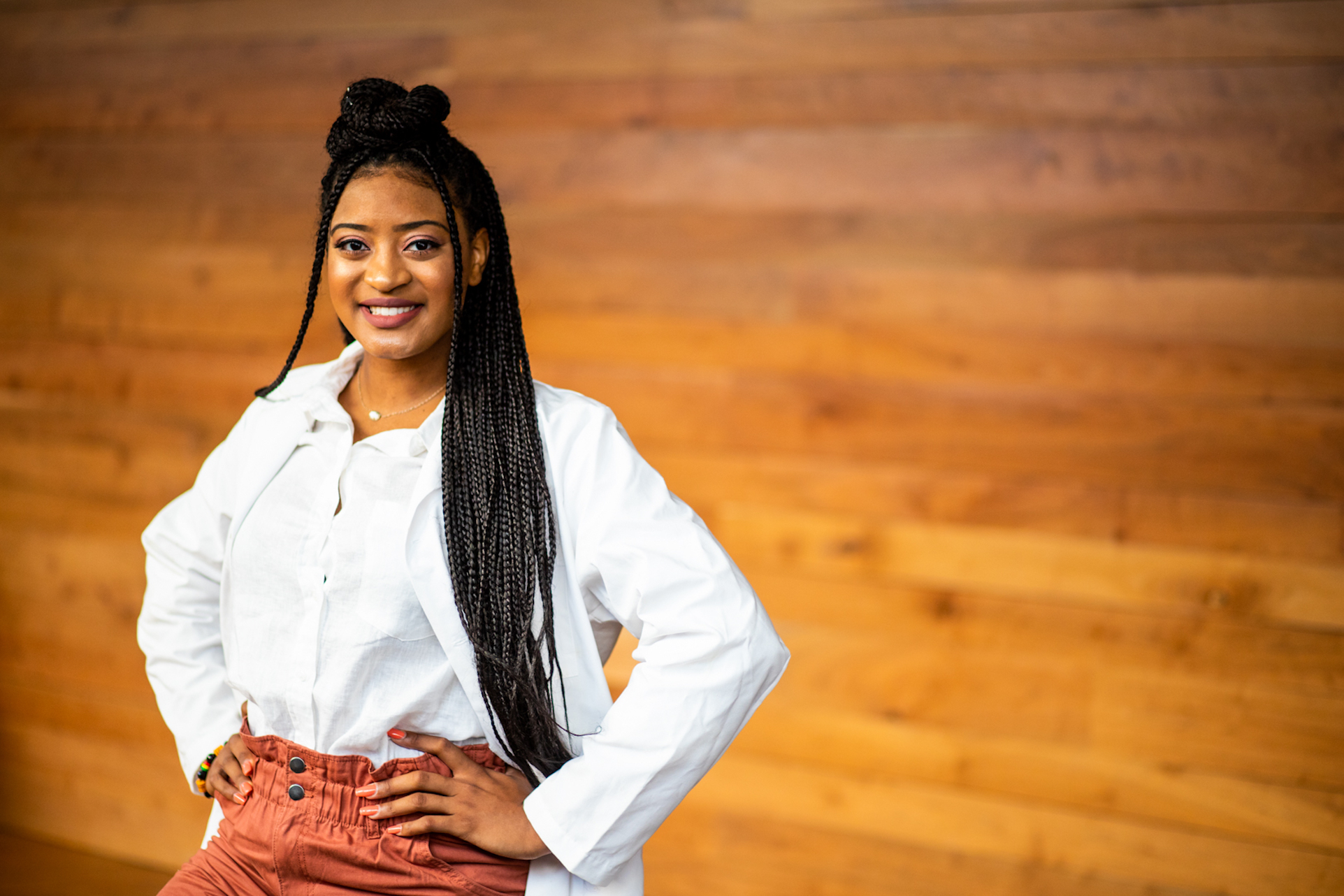
Alynah Adams created a niche for students pursuing science, technology, engineering and math degrees
Alynah Adams ‘20
Hometown: Kansas City, Missouri
High school: Liberty North High School
Degree program: B.S. Biology, minor Chemistry
Get to know our people and you’ll know what UMKC is all about.
Alynah Adams has explored a few areas that intrigued her academically, but with her interest in science, technology, engineering and mathematics – and with her sights set on the medical field – she decided to create a podcast for other students like her.
“Science students like to talk science, but there’s not always a space to do that,” says Adams, who is majoring in biology at UMKC. “I was talking about this with some of my friends one day and thought, ‘Someone should start a podcast.’ And then I thought, ‘Why not me?’”
Once she had the concept in mind, she started coming up with potential names. Her friends were her focus group.
“I sent about 30 friends 10 podcast names,” she says. “Within a day they helped me settle on ‘STEMology: The Young Scientists Survival Guide.’”
Adams’ parents had encouraged her to try different things. She played college volleyball in Nebraska for two years before transferring to UMKC. At one point she considered a journalism degree, but her focus kept coming back to a career in the medical field. These two interests peacefully coexist on STEMology.
“Science students like to talk science, but there’s not always a space to do that.”-Alynah Adams
While her interview subjects have a common interest, their backgrounds and focus are different.
“Mostly, I try to choose based on what people are studying in school now and their future plans,” Adams says. “But I reach out to my professional network, too.”
Close to home, Adams has interviewed Tammy Welchert, associate teaching professor, director of student affairs and academic advising in the School of Biological and Chemical Sciences, on information high school students should know that will help on the first day of college classes and beyond. In a recent episode, Adams interviewed one of her mentors, David Tung, Ph.D. of BioMed Valley Discoveries, on the importance of developing mentoring relationships. In the interview, Tung outlines elements of a beneficial mentoring relationship that goes beyond a resume entry. He sees a real advantage in making interviews like Adams’ available for interested students.
“I was an engineer by training before I went into drug discovery research,” Tung says. “There were a lot of encounters in this vocation that surprised and shocked me. I feel that while everyone is trying to get more minorities and females into the STEM world, no one has actually provided an honest picture of how life is really like.
“I’ve always known what I wanted to do. My compass has always pointed North." - Alynah Adams
Having the intellect to survive in this business is only part of the story. Having the aptitude to endure and excel is something that is seldom addressed. In all these conversations, the words 'happiness' and 'fulfillment' were never mentioned. Alynah has always wanted to share her experiences and help others.”
Adams worked with Tung on a research project for a family in England who needed information on Sengers Syndrome, a rare mitochondrial autoimmune disorder from which their son was suffering.
“Only 44 people in the world have this condition,” Adams says. “I was able to find information on what might help mitigate the symptoms and what won’t. I put it in presentation form and we presented it to the family and their team of medical professionals. It was amazing for me to able to directly affect their lives.”
Adams’ parents have encouraged her to explore opportunities in health care that go beyond being a physician.
“I’ve thought about being a pharmacist and a few different specialties,” she says. “But it’s always been about health care. I may be an anomaly, but I’ve always known what I wanted to do. My compass has always pointed north."
Jul 29, 2020
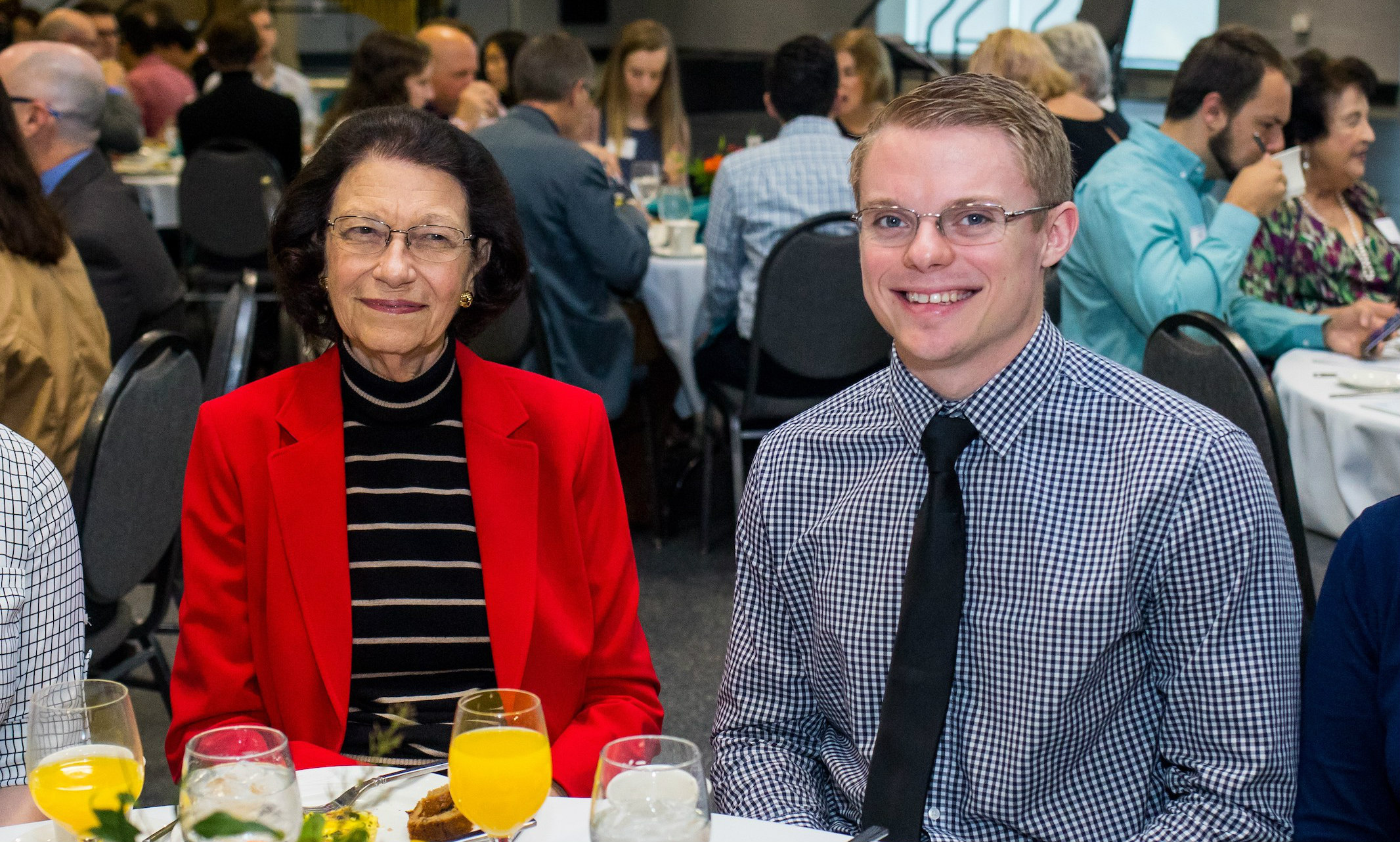
Conservatory donor supports programs and people
The strongest relationships sometimes build over time. Marylou Turner’s exposure to music began as a child in a small town in Kansas, but she has become a stalwart supporter of the UMKC Conservatory and its students.
Turner has been a Conservatory donor and member of the Women’s Committee for the UMKC Conservatory, which supports scholarships, for 27 years. She served as the council’s president for six years, serves on the board of the UMKC Friends of the Conservatory and co-chaired Crescendo, the Conservatory’s largest fundraiser, in 2019. Despite her dedication, her early exposure to music was limited.
“I grew up in Albert, Kansas,” Turner says. “I heard music mostly at church and school. It was a rural community so there were lots of opportunities to perform in school and other activities. My teacher was very into music, but not classical. It was during World War II, so we were exposed to hit songs mostly.”
Eventually, Turner’s parents bought a piano and she and her sister learned to play.
“I played the snare drum and bassoon in high school and the bassoon in college. That was the beginning of my exposure to classical music.”
Turner married her late husband, John Turner, who was her high school sweetheart, and they moved to Kansas City after their college graduation. Turner started teaching school and her husband began his work as an interior designer.
“There was a salesman at my husband’s office who bought season tickets to everything, but he rarely went. He usually gave them away. We were able to go the symphony and the opera for free.”
Turner taught for seven years before returning to school at UMKC to achieve her Master of Arts in Education. She did not return to the classroom, but decided instead to tutor and began dedicated herself to volunteering, primarily in the arts.
“I’ve met a lot of wonderful people who I may have never had the opportunity to meet.”
One of Turner’s fortuitous meetings was with Conservatory student Chase Shumsky who studied saxophone performance. Shumsky was the recipient of the endowed scholarship that Turner established with her late husband. They were seated next to one another at the annual Conservatory brunch for donors and scholars.
“We became acquainted at the brunch, but we’ve met many times,” Turner says. “We talk about his hopes and dreams. I’m always interested in his aspirations.”
Shumsky received his news about receiving his scholarship in an email, but he did not anticipate that he would become friends with the donor, who is several decades his senior.
“When I first found out I received a scholarship, my reaction was, ‘Where do I sign?’ I overlooked the clause in the contract that outlined the requirement to attend the annual scholarship brunch to meet the person generous enough to support the Conservatory and its students.”
“The best part of being Marylou's friend is that she took the time and effort to actually get to know me as a person.”- Chase Shumsky
Shumsky admits that while he understood the importance of scholarship funding – he would not have been able to attend the Conservatory without it - he did not understand how significant this relationship would become. Turner attended Shumsky’s solo, quartet and band performances. She had dinner with him and his parents after his senior recital.
“The best part of being Marylou's friend is that she took the time and effort to actually get to know me as a person,” Shumsky says. “She is an amazing conversationalist, and for a good amount of time as her scholarship student, I was not.
This leads to probably one of my favorite traits about Marylou. She is strong and persistent in the most kind and generous way possible. These traits are present not only in how she developed a meaningful relationship with me but how she fights in the Kansas City community as a supporter for the arts and for arts education.”
While Turner enjoys developing these relationships with students, she’s aware that they may not go on to professional careers. She does not see that as failure.
“I learned the bassoon, but never played it again after school,” Turner says. “But when I hear or see another musician, I understand the dedication that went into it. Not every student will pursue a lifetime occupation of performance, but the discipline and work ethic benefit them in other areas.”
“I enjoy talking to people about giving. I couldn’t ask for myself, but I can ask for a cause that I believe in and I enjoy encouraging others to contribute.”-Marylou Turner
Turner’s perspective, experience and financial support have been a constant pillar of support to the Conservatory’s endeavors.
“I love raising money!” she says. “I enjoy talking to people about giving. I couldn’t ask for myself, but I can ask for a cause that I believe in and I enjoy encouraging others to contribute.”
Diane Petrella, dean of the UMKC Conservatory, appreciates and applauds Turner’s commitment.
“Marylou is one of our most passionate and dedicated patrons,” Diane Petrella, dean of the UMKC Conservatory says. “She is a force to be reckoned with in every sense. She leads by example, holds everyone to the same high standards she exhibits and her steadfast commitment to the organizations in which she serves is profound. In every situation, from chairing Crescendo to tracking the scholarship funds for the Women’s Committee, Marylou’s attention to detail, perseverance, intellect, and humor inspire us all to give more of our time, talents and resources. She has made a tremendous impact on the Conservatory and its students, and we look forward to our continued collaboration.”
Turner has no intention of slowing down. Even the COVID-19 outbreak has not kept her from her passion.
“The arts have a special place that is very important to me. Of course, I’ve stayed involved in my volunteer work.”
Lifetime of Leading the Arts
Marylou Turner has dedicated her time, energy and resources to the arts for nearly 50 years. Her contribution to the UMKC Conservatory as a leader, donor and friend is exemplary.
Member of the Women’s Committee since 1993
Instituted the Women’s Committee endowed scholarship program, which is responsible for 23 endowed scholarships valued at over $1.4 million
Serves as a board member of the UMKC Friends of the Conservatory, and is a member of the 20/20 Scholarship campaign which has raised over $900,000 toward 20 new scholarships
Recognized by the Association of Fundraising Professionals Greater Kansas City Chapter with the 2020 Spirit of Philanthropy Award
Jul 29, 2020
UMKC Conservatory grad, UMKC Bloch student featured by KC Studio
“Music changed my life in positive ways only. And I wanted to be able to provide that while also significantly offering help,” said founder and artistic director Flor Lizbeth Cruz Longoria. Cruz, a flutist. She graduated with a master’s degree from the UMKC Conservatory in May and is completing a graduate certificate in nonprofit management and innovation from the UMKC Henry W. Bloch School of Management. Read the full article.
Jul 28, 2020
Yahoo News picked up KSHB story about emergency funding for students
“We created this emergency fund back when we went into quarantine,” said Logan P. Cheney, director of Annual Giving for the UMKC Foundation. “Students could apply for it to pay their bills, to help pay for rent. If a lot of students had to basically up and leave their apartment or quit their job, this was a way to help kids out.” Check out the KSHB story that was picked up by Yahoo News.
Jul 27, 2020
Bill Tammeus, Flatland KC, calls Nancy Tilson-Mallett a rare combination - a physician and an artist
In science classes, Nancy Tilson-Mallett, M.D., says students are taught “that there’s got to be a right answer. In art class, I teach them that sometimes there are right answers but there are also shades of gray and ambiguity.” Tilson-Mallett has been teaching a class at the University of Missouri-Kansas City School of Medicine called “Medicine and Art.” Read more.
Jul 26, 2020
Publisher will complete literary projects that are in progress
The University of Missouri-Kansas City will extend operations of its publishing house, BkMk Press, in order to complete literary projects that are in progress.
Kati Toivanen, interim dean of the UMKC College of Arts and Sciences, said the extension has been funded by donors for a limited time that will will allow BkMk to publish these works in the professional quality the press is known for.
“This will also give us additional time to seek another home for the press or to identify a more self-sustaining funding structure,” Toivanen said. “Published literary works contribute to our culture, expand our understanding of the world and enrich our lives. We welcome any support, ideas and partnerships that would allow the tradition of this distinguished press to continue.”
Public higher education has been facing budget constraints in recent years that have been further challenged by the coronavirus pandemic. These pressures compelled UMKC to reduce funding for the literary entity that includes both BkMk Press and New Letters magazine, in order to focus available resources on academic programs and student success services. New Letters will continue its operations and will be run out of the Department of English with faculty leadership and student support.
Jul 24, 2020
Provides access for organizations that cannot afford web design, hosting
The Center for Neighborhoods at the University of Missouri-Kansas City has launched a new website designed to highlight the work of Kansas City, Missouri, neighborhoods and to address the issue of digital equity.
The Center for Neighborhoods is housed in the Department of Architecture, Urban Planning + Design, part of the UMKC College of Arts and Sciences. Director Dina Newman said many urban neighborhoods, with volunteer leaders and limited financial capital, are impacted by unequal access to information, connectivity and data. Too often, they must endure the racial and economic disparities associated with the “digital divide.”
The new website, cfn.umkc.edu, provides an interactive digital resource hub for Kansas City neighborhoods. This platform features up-to-date contact information and meeting times for neighborhood organizations and HOAs (homeowners’ associations) that have participated in the center’s 12-week Neighborhood Leadership Training session since 2016. Additional features include a calendar of events, critical information from partner organizations including pertinent information from City Hall, the popular weekly update “News You Can Use” and a short film from the Center for Neighborhoods’ First State of the Neighborhood Address.
Newman said the website provides access and a platform for those organizations that might not be able to afford the fees associated with web design, hosting and maintenance.
“The website creates an opportunity for Center for Neighborhoods to expand socially in our increasingly digital world,” Newman said. “These mediums are a tool for people and organizations to connect with each other and share valuable information to those who need it the most.”
As a follow-up step, the Center for Neighborhoods plans to take a more expansive role in popular social media platforms. “Our goal is lifting up the communities we serve.”
Jul 24, 2020
Kansas City Star, CBS Sports reports on Black AD Alliance
The Black AD Alliance includes 16 Black athletic directors in Division I, which includes Kansas City Athletics Director Brandon Martin as co-chair. Read the full KC Star article. Read CBS Sports.
Jul 24, 2020
Kansas City Business Journal covers research grants
Timothy Cox, Endowed Professor in Musculoskeletal Tissues at the UMKC School of Dentistry, is studying genetic differences in embryonic facial tissue to see how they affect the development of cleft lip and cleft palate. It is among the most common birth defects, affecting one in 700 live births globally. Read more.
Jul 24, 2020
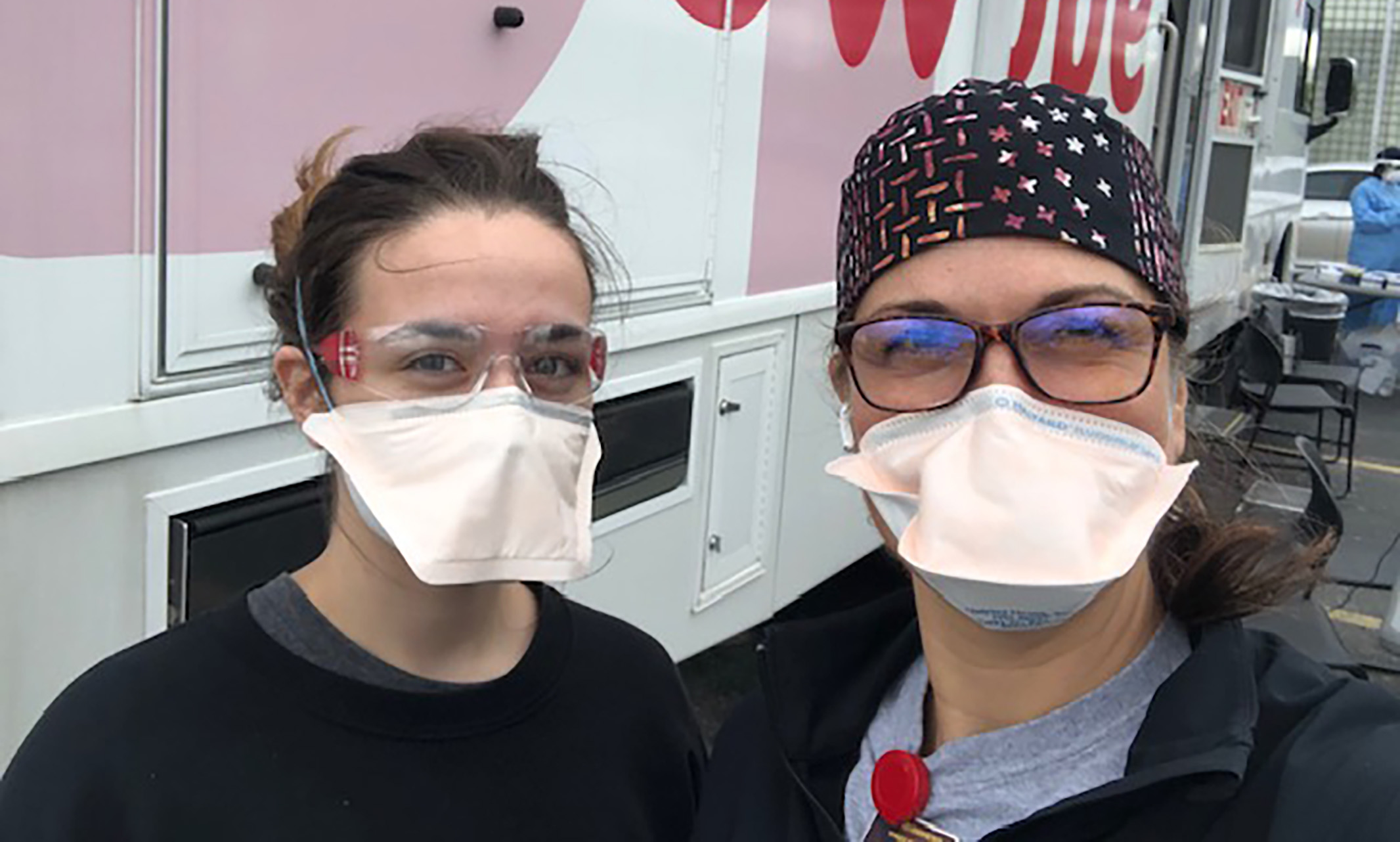
More than 80 students helped the Kansas City Health Department in providing COVID-19 tests
Earlier this spring, the Kansas City Missouri Health Department received federal funding to provide COVID-19 testing. What the department lacked was the manpower to support the many testing sites across the city.
It didn’t take long for the UMKC Health Sciences Campus to fill the void. More than 80 students from the schools of dentistry, medicine and pharmacy answered the call for helpers. In May and June, they volunteered 28 three-hour blocks of time at 18 testing locations through the greater Kansas City area. Many of those were at schools and churches.
“This is a great example of a long-running collaboration with the health department,” said Jannette Berkley-Patton, Ph.D., director of the Health Equity Institute. “Especially since our students could help expand their capacity to conduct testing in communities hard hit by COVID-19.”
Stefanie Ellison, M.D., associate dean for learning initiatives at the School of Medicine, said students across the campus were eager to help.
“In 24 hours, I gave a group of students the chance to communicate the need across social media sites and get the word out,” Ellison said. “They stepped up to fill in the volunteer spots.”
The testing was offered at federally qualified health centers such as the KC Care Clinic, Swope Health and the Samuel Rogers Health Center.
Carole Bowe Thompson, project director for the Health Equity Institute, helped organize the volunteer efforts.
While workers at the testing centers did the actual COVID-19 testing, Thompson said the students worked in a supporting role, handling patient check-in and registration, providing patient education, labeling and securing specimen tubes and even directing car and walk up traffic up to the test sites.
“They did the pre-screening, going over COVID-19 symptoms and collecting health and other important intake information,” Thompson said. “The testing centers didn’t have the support they needed for taking care of traffic. They needed the students to help direct traffic.”
Many of the students said the experience helped them realize the importance of working with other health care providers and how community outreach can play a large role in public health.
“I learned that I am in a prime position to assist those in need,” said Rico Beuford, a sixth-year medical student. “I don't necessarily need a medical degree to open up access to health care resources to vulnerable communities. I think it's important for each us to realize how much we can impact those who are on the periphery of society and that are largely neglected by it.”
Sixth-year med student Emma Connelly was one of those who helped with the screening process, taking basic patient information and asking those being tested if they had experienced symptoms or been exposed to anyone with the coronavirus.
“Being a medical student, I am not technically on the front lines, so I thought this would be a small way to help out,” Connelly said. “I felt that it was important to help out no matter how small the task was. And if I could help prevent at least one COVID-19 positive individual from spreading it to their family or friends, it was totally worth the effort.”
Ellison said students found a wide variety of other ways to help those in need as well. Some spent time simply talking online with senior center residents to keep them company and help them feel less isolated. Students volunteered to tutor and check on grade school students who were suddenly faced with online school while their parents had to work. Others found their green thumbs to help with gardening, harvesting and distributing produce, while some provided babysitting for health care workers.
“I am so overwhelmed by our students’ efforts to help out,” Ellison said.
Thompson said she hoped the volunteer efforts would continue through the summer and pick up steam when students returned to campus for the fall semester.
“There will be plenty more opportunities,” she said. “The health department is not going to stop doing testing.”
Jul 23, 2020
Missouri Lawyers Media recognizes Ayyoub Ajmi
Ayyoub Ajmi, associate director of the Leon E. Bloch Law Library and director of Digital Communications and Learning Initiatives at the UMKC School of Law, was named a 2020 Unsung Legal Hero in Information Technology.
Jul 23, 2020
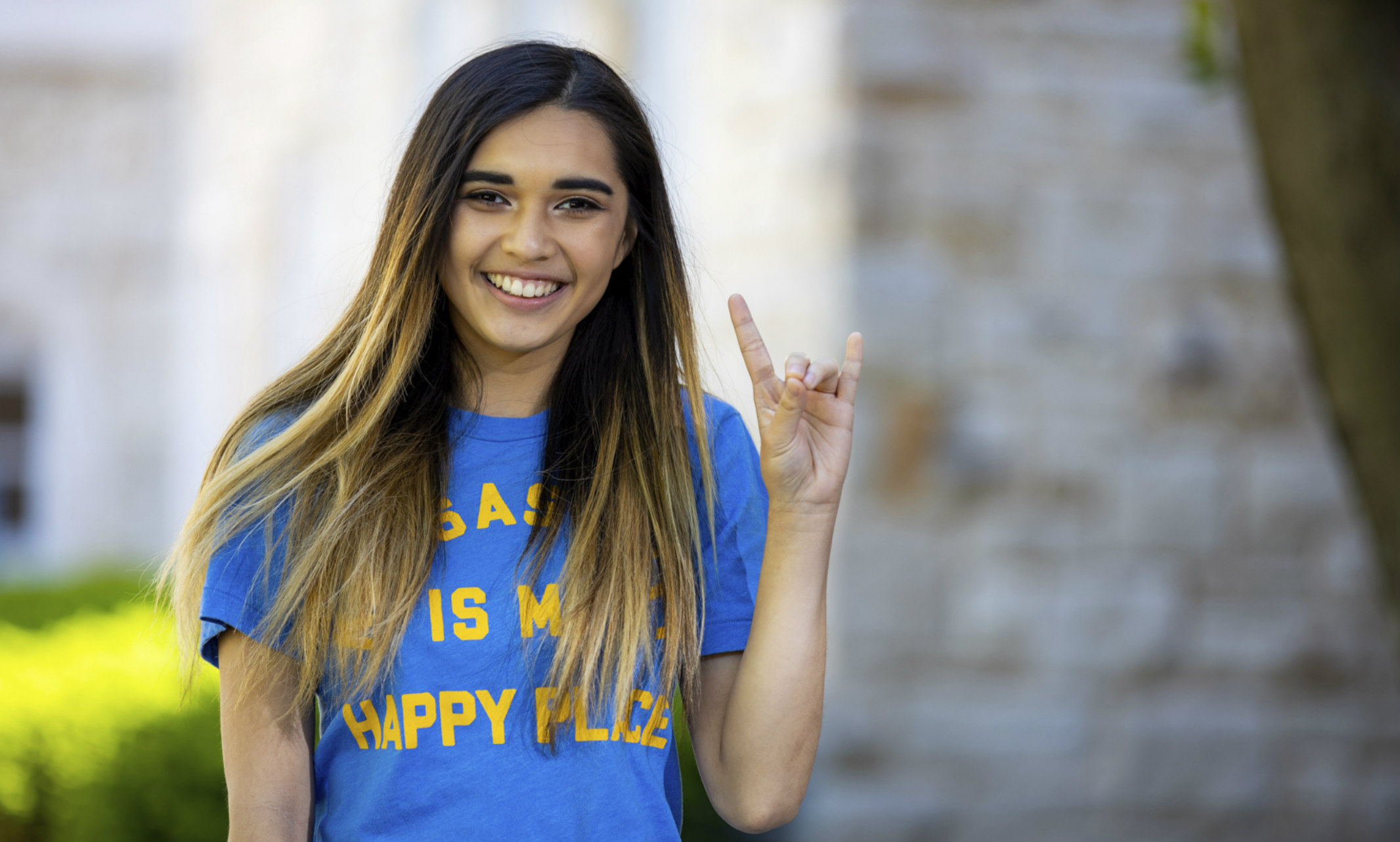
Roos share what they’re looking forward to this fall
It’s definitely been a minute since most of us have visited campus in person. Come August, it will have been five months ‑ nearly half a year!
Yes, the world has changed, and classrooms will be modified so we can safely maintain social distancing. While the physical space will be a little different, it’s our campus community that we’re most excited to see. We talked to a few Roos about what they’ve been anticipating the most this fall.
1. Week of Welcome
“Not just for incoming students or current students, but EVERYONE! I think we all have shared this difficult time together and no matter what this fall looks like, it’s going to be great to welcome everyone back to the new school year.”
-Hope Romero, music therapy ’ 21
2. Helping others
“I want to help other students, whether it’s by giving tours or with classwork. Since all of this (the pandemic) started, my professors have been super helpful to me.”
-Hannah Shackles, communications ’ 21
3. Familiarity
“I'm coming back home, back to a daily routine, to see the faces of my friends and professors and just walk on campus again like I used to!”
-Jose Mendoza, vocal performance and composition ’23
4. Student organizations
“I’m definitely looking forward to getting more involved with my organizations and my senior year.”
-Krithika Selvarajoo, chemistry and English ‘21
5. Theatre
“It’s hard to do theatre online. Yes, in my theater classes, we’ll have to wear masks like everyone else does. This time away has made me realize how social my job is and how social the field I’m going into is.”
-Michelle Lawson, theatre and history ’ 21
Jul 22, 2020
CNN interviewed School of Medicine assistant professor of pediatrics
Gail Robertson provided tips for parents. Read more.
Jul 22, 2020
Diane Petrella was interviewed by The Independent on going from interim dean to full-time dean
Paul Horsley talked to Diane Helfers Petrella, the first woman to head the UMKC Conservatory in its 110-year history. Read the full article.
Jul 22, 2020
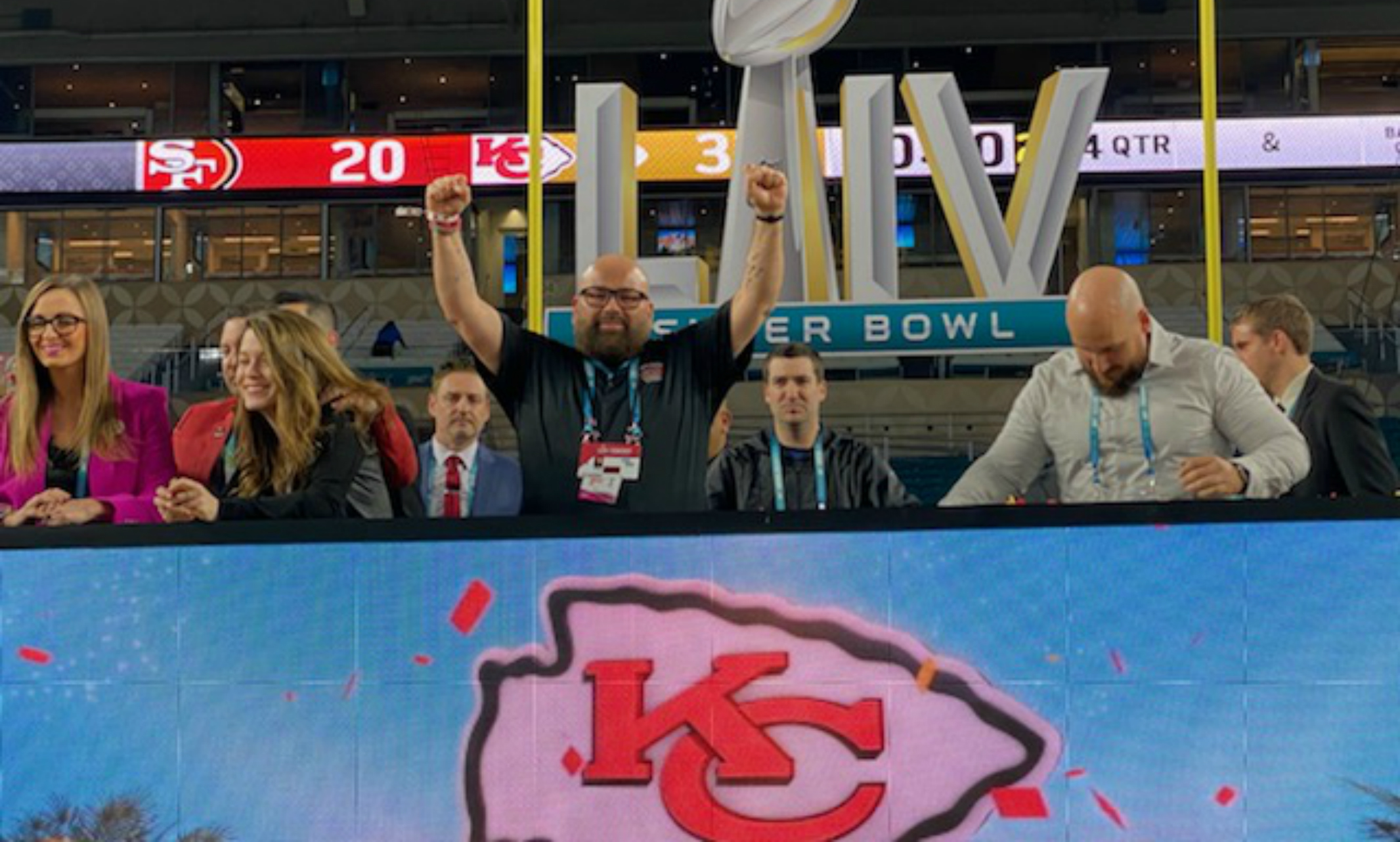
Steven St. John shares some of his favorite moments from SBLIV
Steven St. John (B.A. ’96) has been a fixture on the Kansas City sports scene since 1999 and a lifelong Chiefs fan. As host of the popular sports morning show “Border Patrol” on 810 WHB, he was in Miami, Florida, covering Super Bowl LIV and celebrating KC’s win in person.
He recently shared some of his favorite moments with us and how things have changed since February.
What was your most memorable moment from the Super Bowl?
Wow. Such a tough question to answer. Waking into the stadium, realizing that I was actually at the Super Bowl and the Chiefs were playing in the game. That was mind-blowing. I loved watching the Chiefs run out of the tunnel during the pre-game festivities. That was so cool.
Also, screaming at Goldie Hawn to the point she was visibly startled. (I meant Goldie no harm. You see, I’m a Goldie Hawn fan, so when I saw her, I naturally screamed “Goldie!” Sometimes I forget the power of my booming voice and the sheer volume of my cry clearly caught Goldie off guard.)
All of these are wonderful memories. But, nothing compares to the moment when Damien Williams scampered into the end zone and secured the biggest Chiefs victory of my life. I still get chills when I relive that moment in my mind.
What did you think of the halftime show?
I thought the halftime show was wonderful. Jennifer Lopez and Shakira are two of the most electric live performers in the world and they were on stage together! It was such an exciting experience to be inside the stadium while they shared the stage. The lights, colors, music, sounds and emotion all overwhelmed my senses. It really was a magical experience. And, when you mixed in the tremendous anticipation for the 2nd half of Super Bowl LIV, it was a perfect recipe for one of the most enjoyable nights of my life.
Steven St. John, left, interviewing during 810WHB's Super Bowl coverage in Miami.
What are your predictions for the next season?
The Chiefs will repeat as Super Bowl champions and Patrick Mahomes will win another Super Bowl MVP.
Biggest play of the game?
Jet. Chip. Wasp. That is all.
Under the radar MVP?
Most people will say Damien Williams or Chris Jones. But, I will say me. I absolutely deserve some type of award for successfully composing myself in time to conduct post-game player interviews just minutes after watching my beloved Chiefs win their first Super Bowl of my lifetime. I wept quietly on my way down to the locker room, thinking about all the past heartbreak in the life of a Chiefs fan. They were some of the happiest tears I’ve ever cried.
"I absolutely deserve some type of award for successfully composing myself in time to conduct post-game player interviews just minutes after watching my beloved Chiefs win their first Super Bowl of my lifetime."—Steven St. John, B.A. '96
How do you feel about the Patrick Mahomes contract?
He's worth every penny and more. Imagine if I would have told you a few years ago that the Chiefs were finally going to draft a QB in the first round. And, that QB would win the NFL MVP in his second season. Then, in his third season, he'd win the Super Bowl MVP and lead the Chiefs to their first championship in 50 years. 50 years! And, along the way, he'd become KC's most beloved athlete because he was as great off the field as he was on the field. He'd be involved in the community to a level that helped him develop an unparalleled connection with the city. And, he'd also become the best player in the NFL, the face of the league and one of the most recognizable and respected sports figures in the world. And, all the while, he'd continue to represent KC and spread unadulterated joy throughout the city, at a time when it was desperately needed. In other words, I think it was a good deal.
What do you think about the plans for the upcoming season amid COVID-19?
Along with everyone else, I really don't know what's going to happen. Things are far too unpredictable to make any type of educated prediction and feel confident about it. I'm cautiously optimistic, but I've learned to brace for the worst and hope for the best. But, if any league can make it happen, it’s the NFL.
How has the pandemic affected the way you work?
I've been very lucky to be able to work from home. I've broadcast my show from my house the last few months and that's worked well for me. I have a heart condition that I need to protect, so working from home has allowed me to take a cautious approach while trying to keep my family healthy. And, when we do leave the house, we've done our best to wear masks and practice social distancing.
Jul 21, 2020

Interdisciplinary UMKC faculty influence a new storytelling approach to teaching the subject
Data science education is challenged with attracting minority students from various socio-economic backgrounds.
However, recent advances in artificial intelligence and deep learning create an urgent need for a qualified data science workforce that can perform critical functions in a variety of domains and aspects of human society from journalism to health communication to advertising to educational resources for underserved populations. Enter the Open Collaborative Experiential Learning in Artificial Intelligence (OCEL.AI) project with a unique solution to address this need.
“We’re trying to change the reality and culture of data science education.” - Yugi Lee, computer science professor, School of Computing and Engineering
Led by a multi-disciplinary team of faculty at the University of Missouri-Kansas City – Yugyung (Yugi) Lee, professor of computer science; Ye Wang, associate professor of communication studies; and Alexis Petri, senior director of faculty support – OCEL.AI received a $350,000 grant from the National Science Foundation to make data science more relevant to minority students.
The OCEL.AI project is an open knowledge network and collaborative partnership with the University of Florida, Eastern Michigan University and Essex County College that supports postsecondary instructors who teach underserved populations (Data Science) + Journalism and strategic communications within their existing institutional structures.
This storytelling approach maps a story onto data to transform artificial intelligence models and then extracts knowledge that can help solve societal issues. The group expects to see increased interest, self-efficacy and motivation in studying data science among both computer science and non-computer science majors – particularly female, Black and Hispanic students.
“Most computer scientists like to dive right into data to solve problems without thinking about the stories behind the data, so this project is a transformative approach to teaching the subject,” said Lee, who serves as the principal investigator for OCEL.AI. “We’re trying to change the reality and culture of data science education.”
Storytelling is used to create cases – personas if used in marketing, also called user stories in data science – that guide users through the process of machine learning. Wang said each user story contains the core fundamentals of storytelling taught in communications studies: who, what, when, where, why and how.
“We’re taking a ‘so what?’ approach to big data. What problems can we observe? How does this change a user’s life?” Wang said.
The machine-learning experience is guided by theoretical frameworks – also called the use cases – so rather than taking the traditional approach to machine learning to build models, Wang is helping teach computer science students the fundamentals of journalism to determine which data helps tell a story. Students can then input that data in machine learning applications, which also helps ensure outcomes are fair and unbiased because developers are no longer applying a singular context – typically the majority – in machine learning.
Groups from each of the partnering universities are currently working to test this model on sample stories to answer unique questions like “where can I buy a used car as a college freshman?” or “the community economic approach to COVID-19.” Computer science students from UMKC recently participated in a Hack-A-Thon and applied use cases to develop a mobile application to help parents find after school learning resources in Kansas City, based on budget, student gender, age and transportation needs. The storytelling approach has inspired students and faculty from the four partnering universities to learn more about data science’s role in society.
OCEL.AI will host a virtual workshop in August and invite faculty and students to learn about this new teaching approach and how to apply it and plans to invite student participants to try it in upcoming projects. Petri is working with Lee and Wang to develop a new curriculum for teachers to implement this model into their courses. Petri will also conduct a user study to help inform improvements to the new model.
“When you’re trying to implement a new learning model, you don’t always get it right the first time,” Lee said.
Jul 21, 2020

Harnessing the power of AI to aid disaster relief
Imagine you’re receiving multiple calls about dangerous levels of floodwater damage, and your job is to prioritize relief efforts. Now imagine you have a statistical map telling you exactly where the damage will be worst. Creating solutions for real-world disaster-relief situations is the primary focus of the research of ZhiQiang Chen, Ph.D., associate professor of civil and mechanical engineering.
Chen is part of a growing field of research that he refers to as “disaster informatics.” That is, harnessing the power of cuttingedge technology and using it to respond to natural disasters. His research is part of a much larger collaboration between several entities, including the NASA Jet Propulsion Lab, University of Indiana, Oak Ridge National Laboratory, ImageCat in California and Pacific Disaster Center in Hawaii.
Chen’s piece of the puzzle has to do with artificial intelligence (AI)-based computing of remote sensing data for global flood-hazard monitoring and damage assessment. His ultimate goal is to develop a program that automatically creates 3D renderings that clearly show damage and provide decision-makers with stats about damage levels in real time.
“When I first started this research, it was a very small field,” Chen says. “However, the increased frequency and severity of natural disasters is attracting more people to this field.” Currently, images of disaster areas are typically taken by satellite, but Chen imagines drones being used more regularly. In theory, a drone could fly over a damaged area, collect an image and either process the image with an edge computing system or send the data to a ground center to be processed. Then a 3D rendering would be sent directly to first responders to help them quickly prioritize areas with the greatest damage.
Chen’s first opportunity to test his research’s potential was in the aftermath of the 2019 tornado in Jefferson City, Missouri, through support from the Structural Extreme Events Reconnaissance (StEER) program of the National Science Foundation. In the days following the tornado, he and his team flew a drone over an apartment complex to collect images of the damage.
He then processed the data and produced two images: one was an orthomosaic image — stitched together from multiple images — and the other was a digital surface model, showing the volume change of each structure. These final products were then fed to an AI-based model to determine the extent of the damage to each of the buildings in the apartment complex.
In Jefferson City, Chen used only one drone, but during the 2017 total solar eclipse, he was able to test the use of multiple drones. Local law enforcement officers and emergency responders in St. Joseph, Missouri, had expressed concern over traffic congestion.
With a group of about 20 residents and a total of 10 drones, Chen and his team collected images and funneled them to a single location for processing. Local officials received the final outputs on iPads and used the images to assess traffic throughout the day. “With this experience, we confirmed the notion of community-based, connected remote sensing where citizen scientists can participate in disaster response and provide key input to first responders,” he says.
"When I first started this research, it was a very small field. However, the increased frequency and severity of natural disasters is attracting more people to this field." — Zhiqiang Chen, Ph.D.
While it is exciting to see the potential of Chen’s research, there is one major obstacle to overcome. Aviation regulations require approval to fly in order to maintain safe and open airspaces for other aircraft like medical helicopters. Currently, there are not many ways for helicopters and other aircraft to identify a flying drone in their airspace. The new Unmanned Aircraft Systems (UAS) Remote Identification Program may soon resolve this issue, opening up the civilian market for use in projects like this.
Another equally important challenge is the nature of disaster response in general. With so many social factors at work, the application may not be straightforward. Chen stated that at a certain point this research will have to become interdisciplinary in order to study social implications and how they affect implementation.
“For me, the greatest success would be to see my research being used to make a difference and help people when they need it most,” Chen says. “The possibility that my research could someday become a regular part of disaster relief is what fuels my passion for this work.”
Jul 20, 2020

Support for emergency funding keeps more than 90 students afloat
As the UMKC community began to feel the impact of COVID-19, individual donations to the Student Emergency Fund made a significant difference for students in need.
From fellow students who started crowdfunding projects, to staff members and community donors, UMKC supporters contributed over $70,000 to the UMKC Student Emergency Fund to help students not only stay in school, but pay for housing, food, utilities and other emergency needs.
“We recognize that the effects of COVID-19 are not only physical, but economic. We are grateful to those who were able to step up and lend a hand.” - Jenny Lundgren
“Based on the demand, we were relieved to be able to provide critical assistance to our students in need,” said UMKC Provost Jenny Lundgren. “We recognize that the effects of COVID-19 are not only physical, but economic. We are grateful to those who were able to step up and lend a hand.”
Victor is studying electrical and computer engineering. He believes having a college degree will provide a solid foundation for him to build a successful career. Emergency aid kept him on track for completing the academic year and building a brighter future.
“With this act of kindness, I am one step closer in achieving my educational and career goals,” he said. “I plan to always give back to the community as a professional and successful engineer.”
Some students faced broader challenges than solely their academic ones. Denise is raising her children alone while pursuing her graduate degree.
“I had fallen behind on everything,” she said. “I am ever grateful for the blessing that you have bestowed on me.”
"We are grateful for those donors who support this fund at every level." - Lisa Baronio
While the current crisis will eventually pass, the need for emergency funds will always exist. UMKC Foundation President Lisa Baronio is confident that the community will continue to support students on their paths to graduation.
“We always make the distinction that our donors are supporting people who are working to improve their lives and our communities as a whole,” Baronio says. “But these emergency funds are critical to keeping students in school, and we will always have students for whom relatively small amounts can make the difference between graduating and not being able to continue their education due to small financial constraints. We are grateful for those donors who support this fund at every level.”
UMKC Emergency Fund Availability
The UMKC Foundation continues to accept donations to the UMKC Student Emergency Fund to assist students.
Donate for Students In Need
If you are a student who needs assistance, please access UMKC resources.
Student Emergency Resources
Jul 16, 2020

Researcher looks to computer modeling to enhance aviation safety
Assistant professor Mujahid Abdulrahim’s passion for flying once led him to devise a way to commute to work in his personal plane. That passion also drives his research on helping pilots and passengers get home safely.
Modeling the movements of aircraft is the backbone of his research at the UMKC School of Computing and Engineering. Abdulrahim’s specialty is in autonomous aircraft development, but he stresses that autonomy isn’t just drones – it is everywhere in aviation. He wants to take auto-pilot functionality to a new level, not to take flying away from pilots, but to make their safety net stronger.
“I don’t want to replace pilots with computers,” Abdulrahim says. “I love the idea of preserving everything that makes airplanes fun to fly, but I also love the idea of coming home to my children after every time I take to the air.“
A self-described “air safety geek,” Abdulrahim is working on a computer algorithm that would interpret the equations of motion for each individual aircraft with predetermined models on how it should be performing. At any given time, moving the elevator stick of an airplane results in a specific response, and this technology would try to determine whether the flight matched the expected motion for that specific aircraft.
He’s also interested in the human element of these models. That’s why he’s looking to study how pilots learn and how they react to certain aviation situations. He’s especially interested in studying how pilots react when they’re at the edges of the flight envelope – the term “pushing the envelope” comes from testing the operating limits of an aircraft.
Abdulrahim’s goal is to incorporate pilot behavior into these models, to help indicate when the pilot could use assistance. He compares this supervisory system to lane-change warnings in modern automobiles: to detect an irregular driving pattern and let the driver know.
One area that will play a big part in this supervisory system is something called “task saturation.” According to Abdulrahim, it’s a concept that’s not limited to pilots.
“If you’re taking notes and someone asks you to solve a math question while also jumping on one foot and reciting the alphabet – you’ll eventually hit your task saturation point,” he says. “From there you’ll stop receiving inputs and only focus on one thing at a time, and you probably aren’t going to do that one thing very well.”
In aviation, this can happen to any size of aircraft, but is more common when pilots of small airplanes fly into bad weather. For example, a pilot can be talking to air traffic control while scanning for other aircraft, with limited visibility and high winds affecting air speed – suddenly that pilot has hit saturation.
With Abdulrahim’s supervisory system, a model can be built to monitor the flying skills a pilot shows as they fly – how well they hold airspeed, how well they hold altitude. If those skills suddenly take a turn for the worse, the system can intervene to improve safety.
Abdulrahim sees far-reaching potential for his modeling technology. He’s looking at replacing or enhancing aircrafts’ airspeed sensor – the only aircraft sensor exposed to the elements and thus more susceptible to being corrupted mid-flight. There are also ridesharing companies looking at autonomous aviation as the future of people transport. Abdulrahim is looking at how his models could help make that a reality.
His passion for flying will continue to drive his research into safer skies so everyone in flight – pilot and passenger – can keep coming home to their families.
Jul 16, 2020
The Kansas City Star publishes an article by Linwood Tauheed
Linwood Tauheed, UMKC associate professor of economics, recently had an article about policing published by The Kansas City Star.
Jul 16, 2020
Charlie Keegan, KSHB, talked to Jannette Berkley-Patton and volunteers at a drive-thru COVID-19 testing site
The UMKC Health Equity Institute facilitated volunteer efforts at a recent drive-thru COVID-19 testing site. The institute is a group, which was formed four years ago, focused on identifying health care problems and offering solutions led by Jannette Berkley-Patton, Ph.D.. Read Keegan's story about the testing site and the Health Equity Institute.
Jul 16, 2020
Local media cover safety measures taken at UMKC.
UMKC students, faculty and staff will be able to purchase personal protective equipment in campus vending machines this fall. Local media outlets talked to UMKC administrators about the offerings. Read more from KSHB.
Jul 15, 2020
UMKC Professor of Criminal Justice and Criminology Ken Novak provides insight to The Beacon
In addition to violent crime, police officers are often the first responders to nonviolent incidents, like individuals experiencing a mental health crisis. Ken Novak, UMKC professor of criminal justice and criminology, was recently asked by The Beacon if police officers are in the best position to respond to somebody who's having a mental health crisis.
Jul 15, 2020
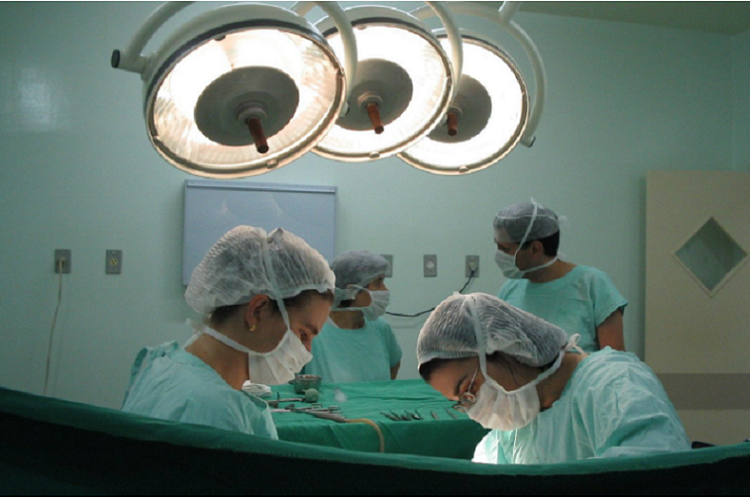
The nursing school's programs continue to meet or exceed national standards.
The UMKC School of Nursing and Health Studies’ national accreditation has been renewed for 10 years, through June 2029.
Joy Roberts, interim dean, said, "This full accreditation means that the school’s BSN, MSN, DNP and post-MSN certificate programs meet or exceed standards accepted by nursing education programs throughout the country. This gold standard of approval indicates the high quality of our nursing education."
The school received the good news from the Commission on Collegiate Nursing Education, a national accreditation agency recognized by the U.S. Department of Education. The commission reviews undergraduate, graduate and residency programs in nursing under a voluntary, self-regulatory peer review.
Jul 14, 2020
Statement from University of Missouri-Kansas City Chancellor Mauli Agrawal and Provost Jenny Lundgren
International students have long been an integral part of our campus community. They teach as well as learn, sharing information about their home countries and their cultural traditions. We welcome today’s news that puts their fears about visa issues and online courses to rest and look forward to continuing this rich and rewarding shared experience when we return to campus in August.
Jul 14, 2020
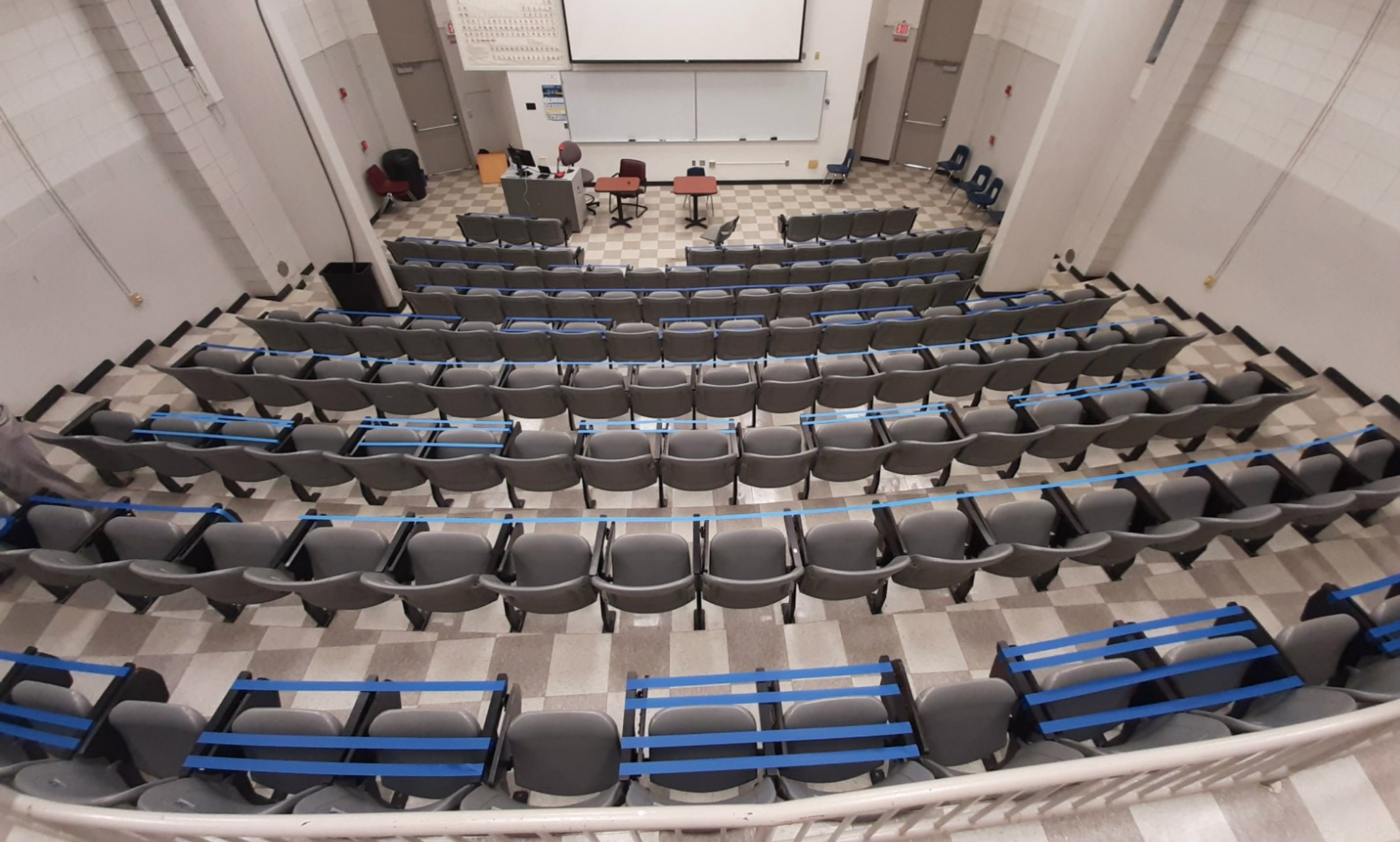
Shields and rearranged furniture are among the changes
No surprise, but classrooms and offices will look slightly different this fall due to safety precautions because of the COVID-19 pandemic.
We talked to Michael Graves, director of UMKC facilities operations, to find out about building modifications for in-person interactions.
"We're following CDC guidelines to help keep our students, faculty and staff safe," Graves said.
Classroom modifications
Following those guidelines, UMKC is using 25 percent capacity in classroom spaces.
To accomplish this, Graves' teams are moving furniture and taping off seats in auditoriums.
“The goal is for each student to have a 6-foot perimeter,” Graves said.
Faculty instructors in lecture spaces can wear clear face masks — vs. cloth masks — to promote more accessible learning. The transparent plastic material allows others to read lips and facial expressions more easily.
Desk shields
A desk at the School of Dentistry will have a shield to provide a barrier between patients and employees.
For extra safeguarding on the Health Sciences and Volker campuses, front desks and counters that don’t provide enough physical distancing will have plexi shields.
If you’ve been to the grocery store recently, you’ve probably seen shields in the checkout aisle as a barrier between cashiers and customers.
Office precautions
Departments throughout UMKC are making sure staff are sufficiently distanced from others. For example, Graves' team is building clear desk shields in between cubicles that are not 6 feet from others.
Common spaces
Floor markers are being added to areas where lines form to help remind everyone to keep a 6-foot distance from others. And seating is being separated 6 feet away from other seating.
Ventilation
During depopulation, all HVAC systems continued to operate at reduced levels to maintain adequate air quality and prevent adverse environmental conditions. An increased amount of fresh air has been introduced into spaces. All buildings have now experienced multiple air changes. Appropriate filters are being utilized based on each system’s design specifications and are being maintained regularly to provide continual air filtration.
UMKC buildings are designed to meet building code ventilation requirements, based on ASHRAE standards. Those standards include a set number of air changes per hour (ACH). All of those rates are calculated to provide good air quality for the maximum total occupancy allowed in the space. Since spaces are rarely filled to maximum occupancy, the buildings are almost always over ventilated during normal operations. In addition, our Energy Group will continue introducing as much additional fresh air into those air changes as is practical, based on each system’s capabilities, outside air conditions, and financial stewardship.
School of Dentistry Clinic
Scheduling has changed to shorten wait times and reduce patient loads in the waiting area, where easily disinfected and well-spaced plastic chairs have replaced cloth-covered ones.
In the clinic, 30 aerosol suctioning units are being added to quickly remove water droplets a patient expels during dental or hygiene work. A bipolar ionization filtration system, which kills viruses, has been added to the heating and air-conditioning system.
Jul 13, 2020
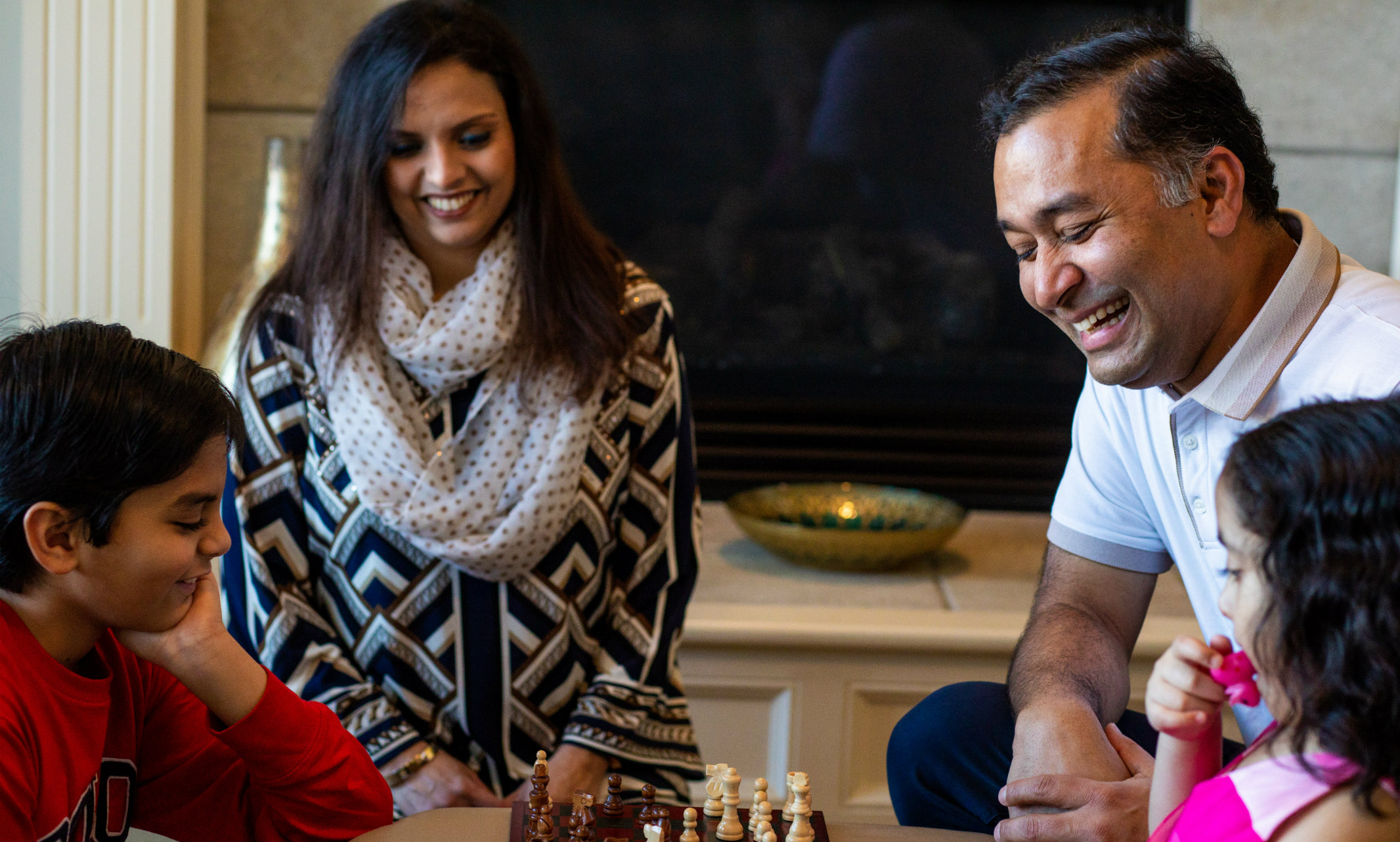
UMKC researchers are working on the technology behind a noninvasive device that would monitor for symptoms
Professor Masud Chowdhury, Ph.D., and his postdoctoral fellow, Mahrukh Khan, Ph.D., are in the beginning phases of developing a new approach that would detect the severity of asthma at different stages without subjecting patients to invasive measures.
Their work is somewhat personal. Chowdhury has a child with asthma and has experienced the anxiety of identifying and treating asthma attacks. Khan went through the difficulty of trying to diagnose a young child with a persistent cough.
“My son suffered from the time he was a year old until he was four. My daughter, who is five years old, had to go to the emergency room twice last year,” Chowdhury says. “Now I know firsthand the severity of the condition. We carry two types of nebulizers.”
Khan has experienced similar challenges.
“My daughter was having problems breathing when she was very young,” Khan says. “Her daycare teacher mentioned that asthma was very common here in Kansas City and that may be the cause. It was so alarming for me. I did a lot of research.”
Asthma is a chronic condition that inflames and narrows the airways of the lungs. This narrowing creates symptoms such as shortness of breath, a persistent cough and a feeling of tightness in the chest. Some people can easily manage their asthma, but it can be extremely serious for others. Every day ten Americans die from asthma, and many of these deaths are preventable with treatment.
Adults generally monitor their own breathing, and when situations escalate can use a nebulizer — or inhaler — to deliver medication directly to the lungs. Monitoring children with asthma can be a particularly stressful responsibility, as children don’t always recognize symptoms until they escalate.
“This can be a big hurdle in monitoring, because parents cannot always determine if children need to be taken to the hospital or treated,” Khan says. “If we develop a low-profile wireless monitoring device, we can improve the accuracy of monitoring and help parents and other caregivers make better decisions.”
Currently, people with asthma monitor symptoms with a peak flow meter. The device looks like a kazoo, with a gauge that measures how well air is flowing. To achieve an accurate reading, the patient needs to close their lips tightly around the mouthpiece, keep their tongue away from the opening and blow as hard as possible. That physical maneuvering is often difficult with young children and older adults.
Detection of an impending attack can be tricky — sometimes even for doctors. A wireless system could relieve the asthma sufferer and their caregivers from being in a constant state of alert. It could also send notifications to patients, caregivers and health- care providers in real time.
“If a child or older person is having an asthma attack away from caregivers, we can integrate a warning system they can use within the monitor,” Chowdhury says. “It could be programmed to notify the doctor and the family if the patient is unable to respond.”
The research is focused on detecting the concentration of mucus and water content in the lungs and bronchial system. To make the system effective, Khan and Chowdhury would need to expose the device to existing information so it can “learn.”
“We would have to train the system with microwave images of healthy lungs and bronchial systems and then images of different levels of asthma so that it can recognize the severity of the condition,” Chowdhury says.
This data collection may not be as far-fetched as it seems. The technology has been in use in the medical field for years and is currently in place for monitoring blood glucose without collecting blood samples through needle pricks. Kahn is also developing electromagnetic wave-based technology that can be used for detection of breast cancer.
The doctors view this as a long-term project because of the prototype development. The initial phase — collecting data, testing information-gathering methods and developing and testing the resulting device — will take a few years, but Kahn and Chowdhury are dedicated to its completion, both professionally and personally.
“When you witness an asthma attack firsthand, it’s very scary — especially if it’s a young child,” Chowdhury says. “We are hoping to use this evolving technology to identify reliable early detection so patients can receive early and effective treatment. This will provide peace of mind for asthma sufferers and their caregivers.”
Jul 13, 2020
UMKC School of Computing and Engineering Professor John Kevern tells Medium about his stormwater research
John Kevern, a professor of civil engineering at the University of Missouri-Kansas City, is the inaugural director of the new Center for Urban Stormwater Research. The center is a research consortium focused on tackling urban flooding in Kansas City. Read the full article in Medium.
Jul 13, 2020
Mary Anne Jackson was a guest on KCUR's Up to Date
Mary Anne Jackson, M.D., has been providing expert advice on coronavirus and COVID-19. Most recently, Jackson participated in a Q&A session with KCUR. You can listen to the full interview on KCUR.
Jul 10, 2020
The Kansas City Star, KMBC, The Pitch produced stories about the data analysis conducted by the new institute
The coordinator of the new institute, Brent Never, associate professor at the Henry W. Bloch School of Management, conducted an analysis of the recipients of the Paycheck Protection Program loans tied to the Coronavirus Aid, Relief, and Economic Security (CARES) Act. Read more from The Kansas City Star, KMBC and The Pitch.
Jul 10, 2020
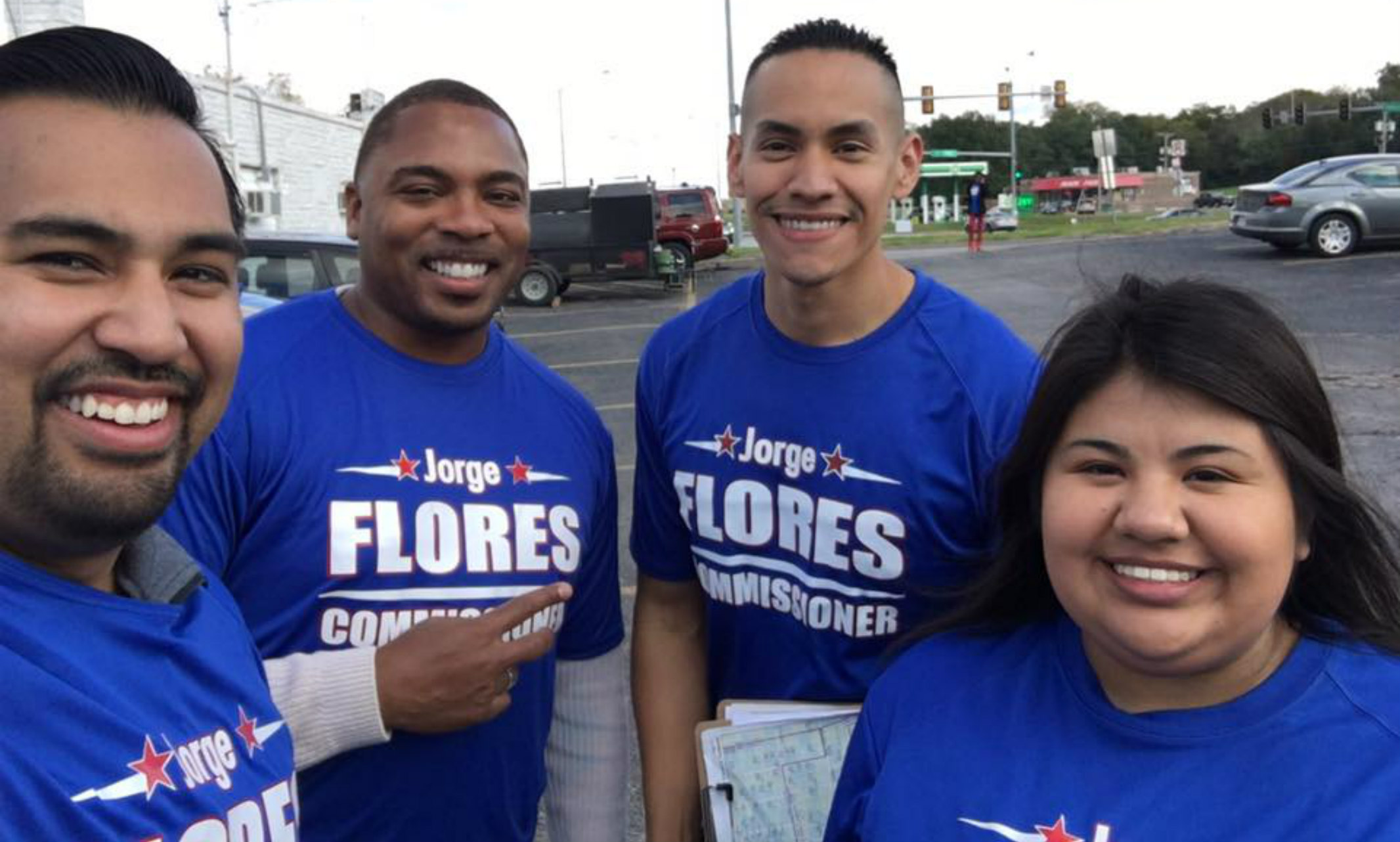
Aly Hernandez's background sparked her passion for public service
Prior to joining Kansas City, Missouri, Mayor Quinton Lucas’ office, UMKC Honors College graduate Aly Hernandez (B.A. ’19) worked on his election campaign as well as efforts for U.S. Rep. Emanuel Cleaver II and the Jorge Flores campaign for Wyandotte County Commissioner.
Aly Hernandez(B.A. '19 with University Honors)
Now, as external affairs manager, she is helping connect Mayor Lucas with the Latino community.
“Aly is a vital member of the Mayor’s Office, bringing to work each day her creative ideas, passion for change and positive mentality. Never does Aly forget why she chose a career in public service—which is to increase opportunities for the community she’s from. Aly has been an important liaison between my office and the Latinx community throughout Kansas City, especially during this uncertain period of COVID-19, and we appreciate her tremendously,” said Mayor Quinton Lucas.
We spoke with Hernandez recently about her role in city government, her love of learning new languages, and what fuels her passion.
Tell us about your role in Mayor Lucas’ office.
I assist the Mayor by providing recommendations for city boards and commissions, brief him on current events and information prior to events and meetings, create social media posts and act as our onsite field coordinator for various community and office events. Recently, I began acting as our communications liaison with local Spanish media and have translated various interviews, speeches, and statements for Mayor Lucas.
How do you keep the Latinx community engaged with the Mayor and vice versa?
COVID-19 is a great example of how we have kept our community engaged with the Mayor and vice versa. Our office has continued to provide Spanish language translations for our Spanish-speaking community almost immediately as it has been shared. We’ve kept a weekly Spanish radio spot and have been increasing Spanish interviews for the Mayor. I’ve also increased the number of Latino community events he attends and panels and townhalls he participates in.
What is VozKC? Why is it important?
I am a member and co-founder of the organization Voz Kansas City. We are a new Latinx Organization advocating for and advancing the role the Latinx community plays in the community and within politics. Our goal is to support political candidates whose interests align with ours and increase the number of Latinx candidates in our elections. We also support equity education initiatives and are heavily focused on the immigration debate in our country.
VozKC is important because the Latinx community is the largest growing electorate, meaning that our voting potential and voting power will continue to grow in the years to come. Thus, it is crucial to have organizations like VozKC to work on Get Out The Vote campaigns and be involved in the policy making process. It is also important to have representation in all political offices
“I want to help people in the way my family would have wanted to be helped when we first moved to the city.” —Aly Hernandez, B.A. '19
Have you attended any of the Black Lives Matter protests with Mayor Lucas? Do you brief him on the events? Has there been any policy instituted as a result?
I have attended Black Lives Matter Protests with and without the Mayor. I keep him up-to-date on any major things that may arise, but I am also there as a supporter for BLM. The Mayor is currently working on a few initiatives that resulted from the protests such as introducing an ordinance directing the City Manager to examine any city ordinances that have negative racial/bias language and directly affect people of color along with working with the Board of Police Commissioners and forming the Public Safety Study Group.
What are the challenges of your job? The benefits?
The most challenging part of my job would be how quickly your day can change. Sometimes we go into the office with an idea of our plan for the day and then something changes which impacts our entire day. We just have to be comfortable with never knowing what each day might bring.
The most rewarding part of the job would be how fast or quickly something can get passed by the council and almost immediately help people. It’s amazing how much non-partisan local governments can do without polarizing political views interfering with day-to-day Mayor and Council operations.
Aly Hernandez, left, with U.S. Rep. Emanuel Cleaver II at a previous fundraising event.
Where does your interest in politics and public service stem from?
My interest in politics and public service has to come from seeing my family, friends, and neighbors live difficult lives. My parents and I are immigrants. I grew up undocumented in the northeast part of the city and am a product of public schools. I grew up hearing my classmates say that college wasn’t even in their minds, much less graduation. I’ve seen, and experienced myself, how families who have homes often struggle just to pay their utilities or struggle to provide basic services for their families. I want to help people in the way my family would have wanted to be helped when we first moved to the city.
What advice do you have for students who want to pursue a career in politics or public service?
Sometimes change doesn’t happen immediately. It can take a long time, but that doesn’t mean it isn’t any less worthwhile to continue the effort. Patience is important in this field, but the relief in seeing the project through is like no other.
“Sometimes change doesn’t happen immediately. It can take a long time, but that doesn’t mean it isn’t any less worthwhile to continue the effort.” —Aly Hernandez, B.A. ’19
What brought you to UMKC?
I knew I wanted to be close to home and within a city that could provide me with many internship opportunities and scholarships. I found that at UMKC, and I also found my niche there as well. I think UMKC was big enough for me to get the large university experience, but small enough where I could get to know my professors and be involved on campus.
Why did you choose your majors of criminal justice and French?
I knew I wanted to get into politics and Criminal Justice fit perfectly with what I wanted to do. By focusing on crime, I’m able to apply those skills here in the office as needed as well. I’m currently getting a master of public administration in urban policy and my background in criminal justice helps me understand policy making and research that my professors often discuss in our classes. I also love learning languages, and French was always something I wanted to take when I was in high school but was never able to take since they only offered Spanish. I hope to learn another language soon.
What is something you learned about yourself at UMKC?
I learned that I should take care of myself as much as I am determined to help others. I never really paid much attention to self-care until I went to UMKC. I appreciate all the efforts they made to help us relax and have fun apart from just studying all day. Self-care really stuck with me even after undergrad.
Why did you and your family come to the United States?
My mom left Mexico to give us a better opportunity in life. She grew up poor and wanted more opportunities for my sister and I. She left her life behind and crossed the border like millions of others did to join my grandparents in Texas. She didn’t see her mother for 17 years until she received her green card. She made a huge sacrifice, and I will always be appreciative of it.
Jul 09, 2020
Panelists call for action on multiple fronts to drive change
How do we drive change to address systemic racism in the workplace? Use your voice, use your vote and use your purchasing power.
That was one of the primary messages emerging from the first of a series of “Critical Conversations” panel discussions sponsored by Chancellor Mauli Agrawal of the University of Missouri-Kansas City and the university’s Division of Diversity and Inclusion.
Panelists discussed how racism – often unconscious but no less real – remains pervasive in the American workplace, despite years of training programs and volumes of legislation. In order to continue the anti-racist momentum arising in the wake of the murder of George Floyd in Minneapolis, panelists said people of color, and their white allies, must use multiple avenues of leverage to drive ongoing awareness and action. More than 600 people tuned in.
Participating panelists included:
Gary O'Bannon (Moderator), Executive in Residence, Henry W. Bloch School of Management and former Director of Human Resources, City of Kansas City, Mo.
Clyde McQueen, President and Chief Executive Officer, Full Employment Council
Uzo Nwonwu, Corporate Legal Counsel, UMB Bank
Jeffrey J. Simon, Office Managing Partner, Husch Blackwell LLP
A'yanna Tomlin, UMKC student, studying Business Administration
Racism in the workplace is rarely overt or obvious, Nwonwu said, and it is often sanctioned by “facially neutral” language: a policy or standard that does not mention race, but has the net effect of favoring white people and exploiting disadvantages that are more prevalent or powerful among people of color.
Simon said an example would be a standard that favors the connections that white males have to power structure networks, such as minimum revenue generation standards for partnerships in a law firm.
It can also be subtle, McQueen said. When people of color are not acknowledged or recognized in group interaction, they sometimes lose confidence and become withdrawn.
“They take themselves out of the game,” he said.
Tomlin said people of color often feel pressured to practice “respectability politics” in the workplace: “Putting on an act, a face, to make the other people in the room more comfortable.”
Government and business policies also play a powerful role in workplace racism, panelists agreed. Those policies, for example, drive many of the best job opportunities well outside of the urban core, out of reach of underfunded public transit systems that people of color depend on.
Too often, workplace diversity programming is a check-the-box exercise with little impact on entrenched company culture. Panelist offered several strategies for moving past that barrier.
McQueen said organizations must commit to monitoring progress and reporting improvement – or the lack thereof – in an honest and transparent manner. “Build cultural competency into job descriptions and performance reviews,” he said.
“If you’re not getting it done in-house, you need to bring in an outside expert,” Nwonwu said. “Outside forces can infuse new ideas into the conversation but change has to come from inside.”
When progress fails to happen, Nwonwu said, people have to decide to either confront it, or look for better opportunities elsewhere. Simon said that applies not just to those who experience workplace racism, but also those who witness it. People of color cannot bear the burden alone,
“The white power structure that built the structure of systemic racism has to be a part of tearing it down,” he said. ”It takes leadership, and a sincere, heartfelt belief that it’s part of who we are and what we believe in. And to have the courage to look at ourselves and say, here is where we are not doing a good job.”
Tomlin said companies need deeds to match their words.
“A lot of these companies issued statements of solidarity with Black Lives Matter, but then I look at their all-white executive board. You have to practice what you preach.”
McQueen urged people to do the research they need to use their power of the purse effectively, doing business with organizations that have demonstrated a genuine commitment to addressing systemic racism. That applies to both personal consumption and business relationships within their organizations.
“Use your voice, use your vote and use your purchasing power,” he said.
Jul 09, 2020
Fox4KC interviewed Brent Never about his analysis of federal data on the Paycheck Protection Program
Brent Never, coordinator of the new UMKC Institute for Data Education, Analytics and Science, conducted an analysis of the Paycheck Protection Program loans. The analysis and found only 341 of 4,677 went to minority- or women-owned firms. Read the full story from Fox4KC.
Jul 09, 2020
Only 341 of 4,677 Paycheck Protection Program loans went to minority- or women-owned firms
A $650 billion federal loan program created to address the economic impacts of the COVID-19 pandemic failed to reach large numbers of women, Black, Hispanic or Asian people in the Kansas City region, according to an analysis by the new UMKC Institute for Data Education, Analytics and Science (IDEAS).
The coordinator of the new institute is Brent Never, associate professor at the Henry W. Bloch School of Management. Never conducted an analysis after the Small Business Administration on Monday released information about the recipients of the Paycheck Protection Program loans tied to the Coronavirus Aid, Relief, and Economic Security (CARES) Act.
Never’s analysis found that the program made 4,677 loans of $150,000 or more in the Kansas City region to small businesses or 501(c)(3) public charities with up to 500 employees. Of those loans:
24 went to African American/Black-owned firms;
34 went to Hispanic-owned firms;
33 went to Asian-owned firms;
250 went to women-owned firms.
The vision for IDEAS is positioning UMKC as the top option for data science training in the region, building on the university’s strengths in biomedical informatics, big data analytics, image analysis, digital humanities and geospatial analysis.
Jul 08, 2020
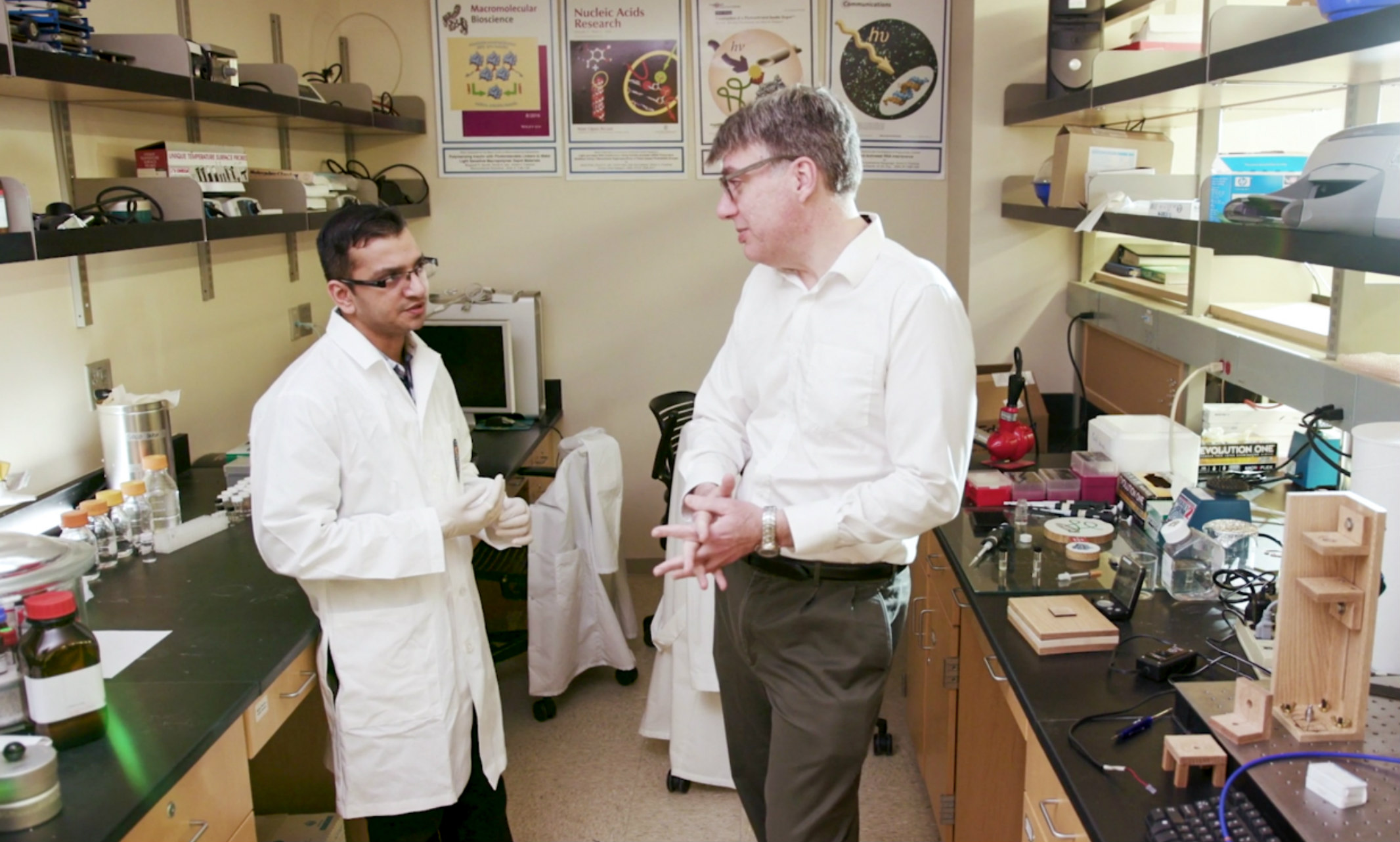
Pharmacy researcher awarded $1.5 million NIH grant to refine innovation
The University of Missouri-Kansas City School of Pharmacy has been awarded a $1.5 million grant from the National Institutes of Health (NIH) to continue work on an important advancement to help treat the tens of millions of people who have diabetes.
The lifetime burden of constantly checking blood sugar and injecting insulin is significant. UMKC research has developed a way of delivering insulin to diabetics that eliminates pumps and most injections.
“We’re aiming to improve the lives of diabetics all over the world,” said UMKC pharmacy professor Simon Friedman, the principal investigator on the grant.
Normally, diabetics must inject themselves with insulin numerous times per day to enable the body to absorb blood sugar. The amount of insulin needed and timing vary with what an individual eats and their activity level. With blood glucose continuously varying, the insulin requirement parallels the amount of glucose in the blood.
The only clinically-used method to permit continuously variable delivery of therapeutic proteins like insulin is a pump. But they do so at a high cost: a physical connection to the outside of the patient, where the drug reservoir resides, and the inside of the patient, where drug absorption will ultimately take place. This connection in insulin pumps is a cannula — or needle — which can be dislodged, crimped, snagged, infected and most importantly, rapidly gets biofouled from moisture after implantation. This leads to variable and unpredictable delivery.
For several years, Friedman and his lab associates have been developing a method in which a single injection of a material called a PAD (photo-activated depot) can take the place of multiple normal insulin injections and allow for minute-by-minute automatic updating of insulin release. The material is injected into the skin like insulin, but lies dormant until a beam of light stimulates release of insulin, in response to blood sugar information.
The new grant will help make the technology more reliable for someone to use and easier to manage.
“With the improvements, we anticipate creating a new and revolutionary approach to continuously variable protein delivery, one that minimizes invasiveness and maximizes the close matching of therapeutic with patient requirements,” Friedman said.
Karen Kover, associate professor of pediatrics at the UMKC School of Medicine and Children’s Mercy, has been an integral member of the research team for years, and Friedman is grateful for her collaboration. Reviewers of the grant application praised the work, and Friedman, who has won previous NIH funding, said this was his highest rated grant award.
“We are grateful for the enthusiastic response from the NIH study section, given the very competitive nature of funding at this time during the pandemic,” said UMKC Vice Chancellor for Research Chris Liu.
The project is supported by the National Institute of Diabetes and Digestive and Kidney Diseases at the NIH.
In people with type 1 diabetes, the pancreas no longer makes insulin. Patients need insulin to process sugar from meals.
People with type 2 diabetes make insulin, but their bodies don’t respond well to it. At first the pancreas produces extra insulin to make up for it. But over time it isn’t able to keep up and can’t make enough insulin to keep blood sugar at normal levels.
About 34.2 million children and adults in the U.S. — 10.5% of the population — have diabetes, according to the Centers for Disease Control and Prevention. More than 25 percent use insulin shots. About 86 million people ages 20 and older in the U.S. have prediabetes.
Complications from diabetes include heart disease and stroke, high blood pressure, blindness, kidney disease, nervous system damage and amputation.
People with diabetes risk more serious complications from COVID-19 than others who do not have the disease.
“Through research at UMKC, we strive to improve the health of not just our community but our entire population,” said Chancellor Mauli Agrawal. “We are proud of Dr. Friedman and his team’s innovation, which could significantly benefit people around the world.”
Jul 08, 2020
Kansas City's university awards seven for 2020
Aubrey Brown, a spring 2020 Cameron High School graduate, has been named a University of Missouri-Kansas City Trustees’ Scholar.
When Brown begins business administration studies at UMKC in the fall, she will receive a scholarship valued at $60,000 over four years. Her award is supported by the UMKC Board of Trustees, the founder of the scholarship program.
An annual member of the Principal’s Honor Roll and academic letter recipient, Brown was president of National Honor Society, vice president of DECA, co-captain of the pom squad, president of the chamber choir and member of the drama club. She was also a member of the Northwest Missouri All-District Choir and volunteered with Meals on Wheels through the Cameron Regional Hospital.
Brown consistently played lead roles in school theater productions, received the Rising Star award for her involvement in arts at school and was named Best Female Vocalist in the Cameron High School choir two years in a row. Brown won first place in the Northwest Missouri District 1 Hospitality and Tourism Operations Research DECA competition.
In the essay submitted to the Trustees’ Scholars selection committee, Brown shares why she plans to pursue a degree in business and marketing.
“I love all of the opportunities the marketing field offers for creativity and variety; you have the potential to be doing something new and imaginative every day. I enjoy getting to organize and design fun flyers and videos for events. Through projects I have done for DECA, I have made a few flyers with online programs. I have even made a flyer for a girl who organized a fashion show for our community last summer.”
The Trustees’ Scholarship provides educational fees and on-campus room and board for the first two years. In the third and fourth years, the package provides educational fees and $2,000 for room and board. Each Trustees’ Scholar also receives $500 toward books each year. To qualify as Trustees’ Scholars, students must meet at least two of the following three criteria: score a minimum ACT Composite of 30, rank in the top five percent of the graduating class, or have a cumulative grade point average of 3.5 or more in a 17-class core curriculum. Trustees’ Scholars must enroll full-time, be seeking an undergraduate degree and commit to living on campus for the first two years.
The UMKC Trustees’ Scholars Program is unique in that it aligns students closely with corporate sponsors, who give students access to their professional knowledge and experience, insight into the inner workings of the company or institution they represent, and a strong mentor relationship throughout the college experience. Students have opportunities to network and find internships or jobs through the Trustees and their connections in the community.
The UMKC Board of Trustees is a non-profit organization established by civic and community leaders to support the University. Members advocate on the University's behalf, provide community feedback and forge partnerships to help the University achieve its strategic priorities and financial objectives.
Jul 07, 2020
Kansas City's university awards seven for 2020
Lily Dang, a spring 2020 Joplin High School graduate, has been named a University of Missouri-Kansas City Trustees’ Scholar.
When Dang begins biology studies at UMKC in the fall, she will receive a scholarship valued at $60,000 over four years. Her award is supported by the UMKC Board of Trustees, the founder of the scholarship program.
Active in the Future Business Leaders of America, Dang was vice president of membership and a senior representative in addition to being a member of student council and Key Club. She volunteered at St. Peter’s Outreach House preparing and serving food to the hungry and held the position of secretary with Messengers of Christ, a group responsible for educating youth about faith and their Vietnamese heritage.
During her final two years at Joplin High School, Dang was a member of the National Honor Society, National English Honor Society and National Technical Honor Society.
In the essay submitted to the Trustees’ Scholars selection committee, Dang explains why she wants to pursue a career in medicine.
“Growing up, I’ve always been so curious about why and how things work. When it comes to understanding life, especially the human body, it makes my heart skip a beat. There are so many questions that I ponder about. Why is life the way it is? Why are people the way they are? All these thoughts fascinate me.”
The Trustees’ Scholarship provides educational fees and on-campus room and board for the first two years. In the third and fourth years, the package provides educational fees and $2,000 for room and board. Each Trustees’ Scholar also receives $500 toward books each year. To qualify as Trustees’ Scholars, students must meet at least two of the following three criteria: score a minimum ACT Composite of 30, rank in the top five percent of the graduating class, or have a cumulative grade point average of 3.5 or more in a 17-class core curriculum. Trustees’ Scholars must enroll full-time, be seeking an undergraduate degree and commit to living on campus for the first two years.
The UMKC Trustees’ Scholars Program is unique in that it aligns students closely with corporate sponsors, who give students access to their professional knowledge and experience, insight into the inner workings of the company or institution they represent, and a strong mentor relationship throughout the college experience. Students have opportunities to network and find internships or jobs through the Trustees and their connections in the community.
The UMKC Board of Trustees is a non-profit organization established by civic and community leaders to support the University. Members advocate on the University's behalf, provide community feedback and forge partnerships to help the University achieve its strategic priorities and financial objectives.
Jul 07, 2020
Kansas City's university awards seven for 2020
Whitney Schweiger, a spring 2020 Olathe South High School graduate, has been named a University of Missouri-Kansas City Trustees’ Scholar.
When Schweiger begins music education studies at UMKC in the fall, she will receive a scholarship valued at $60,000 over four years. Her award is supported by the UMKC Board of Trustees, the founder of the scholarship program.
A Kansas Honor Scholar, Schweiger was a member of the National Honor Society, Fountain City Youth Brass Band and Tri-M Music Honor Society. She was a drum major of the Olathe South Band, received the Terry James Social Science Award and was also a nominee for the Wellesley College Book Award.
Schweiger served as president of United Sound, a club that teaches students with special needs how to play an instrument, and volunteered with Harvesters and as a writing center tutor at Olathe South.
In the essay submitted to the Trustees’ Scholars selection committee, Schweiger explains the importance of leadership.
“Leadership has taught me how to connect with others, work as a team, and make decisions for the good of a whole. These lessons are important to all people in everyday life, which is why I believe that it is important for everybody to know how to be a leader.”
The Trustees’ Scholarship provides educational fees and on-campus room and board for the first two years. In the third and fourth years, the package provides educational fees and $2,000 for room and board. Each Trustees’ Scholar also receives $500 toward books each year. To qualify as Trustees’ Scholars, students must meet at least two of the following three criteria: score a minimum ACT Composite of 30, rank in the top five percent of the graduating class, or have a cumulative grade point average of 3.5 or more in a 17-class core curriculum. Trustees’ Scholars must enroll full-time, be seeking an undergraduate degree and commit to living on campus for the first two years.
The UMKC Trustees’ Scholars Program is unique in that it aligns students closely with corporate sponsors, who give students access to their professional knowledge and experience, insight into the inner workings of the company or institution they represent, and a strong mentor relationship throughout the college experience. Students have opportunities to network and find internships or jobs through the Trustees and their connections in the community.
The UMKC Board of Trustees is a non-profit organization established by civic and community leaders to support the University. Members advocate on the University's behalf, provide community feedback and forge partnerships to help the University achieve its strategic priorities and financial objectives.
Jul 07, 2020
Kansas City's university awards seven in 2020
Grace Yu, a spring 2020 Park Hill High School graduate, has been named a University of Missouri-Kansas City Trustees’ Scholar.
When Yu begins accounting studies at UMKC in the fall, she will receive a scholarship valued at $60,000 over four years. Her award is supported by the UMKC Board of Trustees, the founder of the scholarship program.
Yu was a section leader in the marching band and as co-captain, led her team to the Varsity Tennis Co-Conference Championship title in 2019. Yu was an AP Scholar of Distinction at Park Hill High School and also graduated in 2017 from the Chinese School of Greater Kansas City where she placed first in a speech competition. In 2016, Yu’s piano performance earned high marks at the MSHSAA District Solo and Ensemble Festival and allowed her to advance to the state festival where she received the highest rating.
Yu served on the leadership committee for the Trojan Mentors program at Park Hill, as a teaching assistant at the Chinese School of Greater Kansas City and traveled with the Youth Summer Mission Project to host Vacation Bible School on a Native American reservation in Arizona. Recently, she organized a book drive for Children’s Mercy Hospital in Kansas City where she collected and donated 159 books for children in need.
In the essay submitted to the Trustees’ Scholars selection committee, Yu shared her career goals.
“I plan to pursue a master’s degree in accounting to become a Certified Public Accountant (CPA), followed by a Juris Doctorate degree to become a tax attorney. My interest in both these fields comes from how much I enjoy maximizing the use of my money, in my case, to contribute to a greater cause.”
The Trustees’ Scholarship provides educational fees and on-campus room and board for the first two years. In the third and fourth years, the package provides educational fees and $2,000 for room and board. Each Trustees’ Scholar also receives $500 toward books each year. To qualify as Trustees’ Scholars, students must meet at least two of the following three criteria: score a minimum ACT Composite of 30, rank in the top five percent of the graduating class, or have a cumulative grade point average of 3.5 or more in a 17-class core curriculum. Trustees’ Scholars must enroll full-time, be seeking an undergraduate degree and commit to living on campus for the first two years.
The UMKC Trustees’ Scholars Program is unique in that it aligns students closely with corporate sponsors, who give students access to their professional knowledge and experience, insight into the inner workings of the company or institution they represent, and a strong mentor relationship throughout the college experience. Students have opportunities to network and find internships or jobs through the Trustees and their connections in the community.
The UMKC Board of Trustees is a non-profit organization established by civic and community leaders to support the University. Members advocate on the University's behalf, provide community feedback and forge partnerships to help the University achieve its strategic priorities and financial objectives.
Jul 07, 2020
Kansas City's university awards seven in 2020
Madelyn Bremer, a spring 2020 Clinton High School graduate, has been named a University of Missouri-Kansas City Trustees’ Scholar.
When Bremer begins political science studies at UMKC in the fall, she will receive a scholarship valued at $60,000 over four years. Her award is supported by the UMKC Board of Trustees, the founder of the scholarship program.
In addition to academic excellence, Bremer held a variety of leadership positions in the Future Business Leaders of America, including chapter president and north central region vice president. She was the Student Council Senior Class president, the National Honor Society chapter secretary/treasurer, a student body delegate in the Student Activities Leadership Team and volunteered as a tutor as well as worked part-time at Cook Auction Company.
In the essay submitted to the Trustees’ Scholars selection committee, Bremer shares why she plans to pursue a career in law after receiving her political science degree.
“I believe the law is the base of our society, and I want to help people at its foundation. I know that I can best accomplish this as a human rights attorney, where I hope to work on cases that will improve the lives of the people around me. With this career, I can incorporate my passion for social justice and the skills I will gain to make an impact that matters.”
The Trustees’ Scholarship provides educational fees and on-campus room and board for the first two years. In the third and fourth years, the package provides educational fees and $2,000 for room and board. Each Trustees’ Scholar also receives $500 toward books each year. To qualify as Trustees’ Scholars, students must meet at least two of the following three criteria: score a minimum ACT Composite of 30, rank in the top five percent of the graduating class, or have a cumulative grade point average of 3.5 or more in a 17-class core curriculum. Trustees’ Scholars must enroll full-time, be seeking an undergraduate degree and commit to living on campus for the first two years.
The UMKC Trustees’ Scholars Program is unique in that it aligns students closely with corporate sponsors, who give students access to their professional knowledge and experience, insight into the inner workings of the company or institution they represent, and a strong mentor relationship throughout the college experience. Students have opportunities to network and find internships or jobs through the Trustees and their connections in the community.
The UMKC Board of Trustees is a non-profit organization established by civic and community leaders to support the University. Members advocate on the University's behalf, provide community feedback and forge partnerships to help the University achieve its strategic priorities and financial objectives.
Jul 07, 2020
Kansas City's university awards seven in 2020
Isabella del Cid, a spring 2020 Ladue Horton Watkins High School graduate, has been named a University of Missouri-Kansas City Trustees’ Scholar.
When del Cid begins health sciences studies at UMKC in the fall, she will receive a scholarship valued at $60,000 over four years. Her award is supported by the UMKC Board of Trustees, the founder of the scholarship program.
She was secretary of Health Occupations Students of America, vice president of the Make-A-Wish Club and co-captain of the volleyball team.
A mainstay on the honor roll throughout high school, del Cid received the AP Scholar Award, Ram Pride Award and was a member of the National Honor Society. She was also named to the Ladue All-Academic Team for volleyball and received All-Conference honorable mentions in 2018-2019 and 2019-2020.
Del Cid volunteered with the Ladue Special Olympics tournaments and at St. Luke’s Hospital as a courier and served as a camp counselor at King’s Kids Camp.
In the essay submitted to the Trustees’ Scholars selection committee, del Cid shares how being a camp counselor affirmed her passion for helping others.
“The servitude that I show at camp has grown in my daily life. I have an intense drive to help others, and that passion consequently boosts my confidence in my abilities. I’m able to lead people confidently by putting their needs first and helping them grow personally.”
The Trustees’ Scholarship provides educational fees and on-campus room and board for the first two years. In the third and fourth years, the package provides educational fees and $2,000 for room and board. Each Trustees’ Scholar also receives $500 toward books each year. To qualify as Trustees’ Scholars, students must meet at least two of the following three criteria: score a minimum ACT Composite of 30, rank in the top five percent of the graduating class, or have a cumulative grade point average of 3.5 or more in a 17-class core curriculum. Trustees’ Scholars must enroll full-time, be seeking an undergraduate degree and commit to living on campus for the first two years.
The UMKC Trustees’ Scholars Program is unique in that it aligns students closely with corporate sponsors, who give students access to their professional knowledge and experience, insight into the inner workings of the company or institution they represent, and a strong mentor relationship throughout the college experience. Students have opportunities to network and find internships or jobs through the Trustees and their connections in the community.
The UMKC Board of Trustees is a non-profit organization established by civic and community leaders to support the University. Members advocate on the University's behalf, provide community feedback and forge partnerships to help the University achieve its strategic priorities and financial objectives.
Jul 07, 2020
Kansas City's university awards seven in 2020
Mouada Allan, a spring 2020 Ruskin High School graduate, has been named a University of Missouri-Kansas City Trustees’ Scholar.
When Allan begins biology studies at UMKC in the fall, she will receive a scholarship valued at $60,000 over four years. Her award is supported by the UMKC Board of Trustees, the founder of the scholarship program.
Allan, who is already a Certified Nursing Assistant and plans to become a doctor, was co-president of the National Honor Society, vice-president of Health Occupations Students of America and served as a student representative on the Superintendent’s Council in addition to being captain of the soccer team.
A mainstay on the honor roll throughout high school, Allan interned with the First Hand Foundation at Cerner and volunteered in the long-term care wing at Truman Medical Center during the summers of 2017 and 2018.
In the essay submitted to the Trustees’ Scholars selection committee, Allan shares why she values tact in a leader.
“As a Muslim female in the United States, I tend to receive many stares and comments from others who aren’t fully informed about Islam. Hence, I communicate with them tactfully to ensure that I can convey my opinion without offending the other person or their views … If tact wasn't used in situations like this, where two people have different viewpoints, then a dispute may break out. On the other hand, when tact is used, both sides can voice their views and opinions on the topic to understand each other peacefully.”
The Trustees’ Scholarship provides educational fees and on-campus room and board for the first two years. In the third and fourth years, the package provides educational fees and $2,000 for room and board. Each Trustees’ Scholar also receives $500 toward books each year. To qualify as Trustees’ Scholars, students must meet at least two of the following three criteria: score a minimum ACT Composite of 30, rank in the top five percent of the graduating class, or have a cumulative grade point average of 3.5 or more in a 17-class core curriculum. Trustees’ Scholars must enroll full-time, be seeking an undergraduate degree and commit to living on campus for the first two years.
The UMKC Trustees’ Scholars Program is unique in that it aligns students closely with corporate sponsors, who give students access to their professional knowledge and experience, insight into the inner workings of the company or institution they represent, and a strong mentor relationship throughout the college experience. Students have opportunities to network and find internships or jobs through the Trustees and their connections in the community.
The UMKC Board of Trustees is a non-profit organization established by civic and community leaders to support the University. Members advocate on the University's behalf, provide community feedback and forge partnerships to help the University achieve its strategic priorities and financial objectives.
Jul 07, 2020
The 2020 recipients include Richard Delaware and Sarah Pilgrim
Each year, the highly competitive UM System President’s Awards recognize faculty who have made exceptional contributions in advancing the mission of the University.
The awards are presented on behalf of President Mun Choi to faculty members across the four universities of the UM System. President’s Award recipients will be recognized at a Board of Curators meeting on their university campus, as well as at a faculty awards event hosted at their home institution. This year, two UMKC faculty, Richard Delaware and Sarah Pilgrim, were among the 13 awardees recognized across the UM System.
President’s Award for Innovative Teaching
Richard Delaware, Ph.D.
Richard Delaware, Ph.D., Teaching Professor of Mathematics and Statistics, UMKC
In Delaware’s own words: “We must encourage our students to reason actively, not blindly master mathematical tools, and to trust to their own innate originality. Mathematics is a quintessentially human endeavor.”
Delaware teaches mathematics courses that integrate history, writing, immersion and active learning principles. His students have published dozens of expository mathematics publications and won numerous national and local writing awards. In his classes, students engage with the subject by working together on mathematical proofs and posting them on online learning platforms. He also has created YouTube-based courses that can supplement high school and college lectures. Importantly, his methods of educating middle school mathematics teaching majors inspire them to re-create empowering education experiences for their future students. Delaware’s innovative teaching encourages students to take ownership of their learning and apply creativity to all aspects of life.
President’s Award for Intercampus Collaboration
Sarah Pilgrim, Ph.D.
Sarah Pilgrim, Ph.D., Assistant Professor, School of Social Work, UMKC Ginny Ramseyer Winter, Ph.D., MU
The Inter-Campus Collaboration Award recognizes faculty who engage in activities that foster collaboration across two or more universities of the University of Missouri System. At UMKC, Sarah Pilgrim, Ph.D., focuses on the sexual health and decision-making of adolescents in foster care. At MU, Ginny Ramseyer Winter, Ph.D., investigates body image and health disparities. She created the Center for Body Image Research & Policy with the help of MU colleagues; and faculty from other universities, including Pilgrim, are affiliated.
The collaboration includes departmental affiliations with Psychology at Penn State Abington, Textile and Apparel Management at the University of Missouri-Columbia, Social Work at Washburn University, Social Work at the University of Arkansas, Public Health at the University of Missouri-Columbia and the College of Engineering at the University of Missouri-Columbia.
The range of collaborators and their departments speaks to both Ramseyer Winter and Pilgrim’s dedication to interdisciplinary partnerships. Their work examines body image and sexual health among Missouri foster youth and utilizes mobile technology to provide foster parents with the knowledge and skills necessary to help decrease sexual health disparities. Importantly, this study would not be possible without intercampus collaboration. Ramseyer Winter and Pilgrim’s sincere desire to better the lives of underserved youth is energizing for all those involved. This collaborative project will go a long way to assisting the most vulnerable young Missourians by disseminating critical public health information.
Jul 07, 2020
KSHB talked to Steven Siegel about his research on mask misconceptions
Steve Siegel, senior research design engineer with the Department of Physics and Astronomy, told McKenzie Nelson that false information compelled him to conduct his own research on masks. Find out more by reading the story online.
Jul 07, 2020
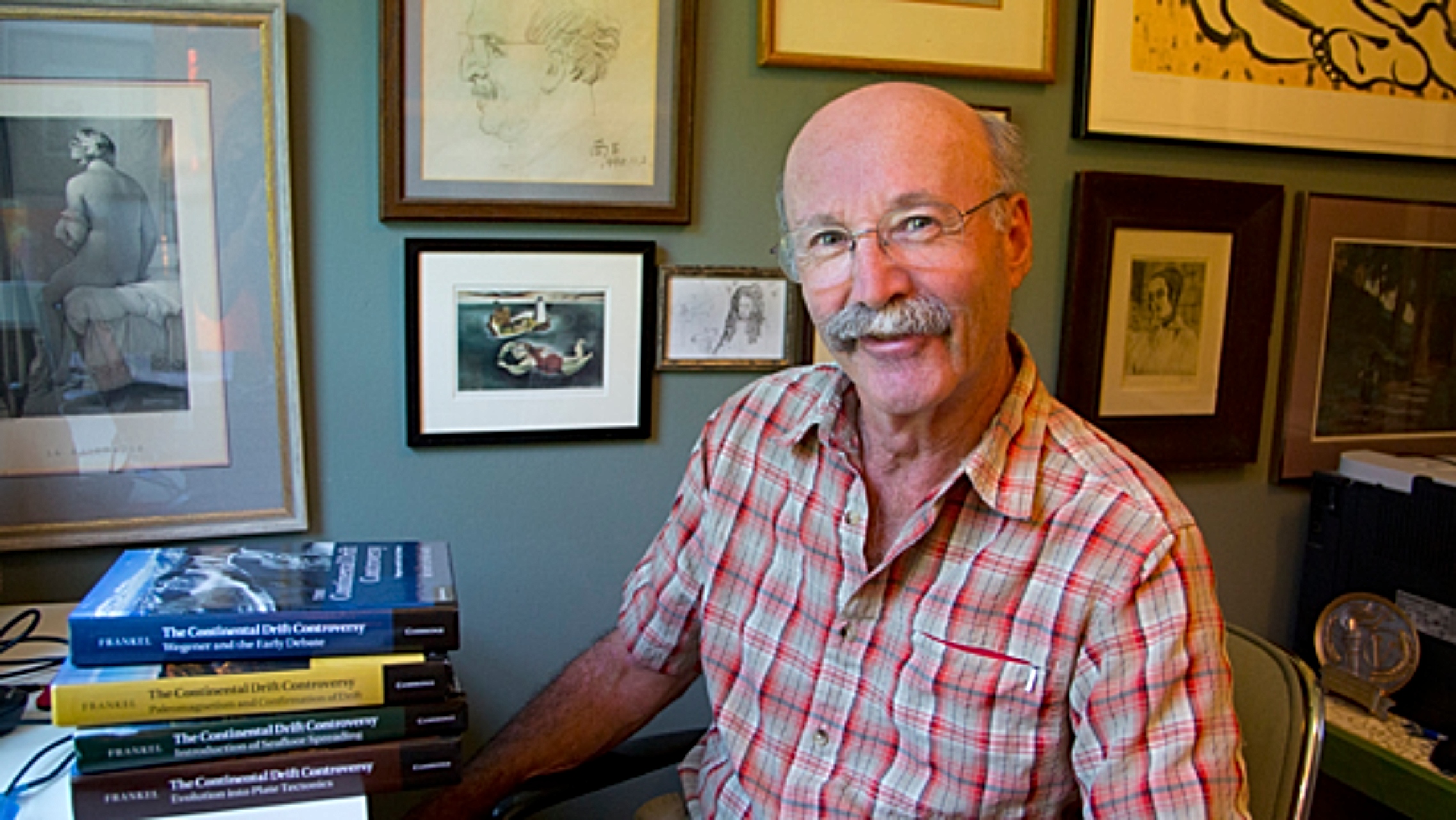
Henry Frankel was admired for his research and personal connection
The recent death of Henry R. Frankel, Ph.D., who was known as “Hank” to his friends, has left a void for those who knew him. Passionate and enthusiastic about his family, his research and his students during his 43-year career at UMKC, Frankel’s legacy will continue to enhance the university through a new scholarship.
“Hank Frankel is the most accomplished and influential scholar the philosophy department at UMKC has ever had,” says Bruce Bubacz, Ph.D., Frankel’s friend and colleague. “His extraordinarily complete and extensive research into the controversy over the acceptance of continental drift and plate tectonics must be examined and understood by anyone who is studying that subject.”
Frankel devoted much of his professional life to studying the theory of continental drift, which was initially received with skepticism.
“Hank Frankel is the most accomplished and influential scholar the philosophy department at UMKC has ever had.” - Bruce Bubacz, Ph.D.
“In 2012, Cambridge University Press published his four-volume work, ‘Continental Drift Controversy: Wegener and the Early Debate,’” Bubacz says. “It was the culmination of a distinguished 40-year research career and has brought recognition to our university among philosophers and historians of science as well as Earth scientists and physicists.”
Frankel called the work a “romance,” referring to its emotion, imagination, heroism, mystery and adventure. The volumes are considered the definitive work on continental drift and plate tectonics in the field of Earth science.
Bubacz notes that the verification that the continents were not stationary was revolutionary.
“The plate tectonics revolution changed Earth science as profoundly as the Copernican revolution changed astronomy and the Darwinian revolution changed biology,” he says.
Beyond Frankel’s groundbreaking work, he was a remarkable human being. Bubacz says that he was one of the first professors to “flip the classroom” by posting his notes online and devoting class time to discussion and debate. His family remembers that his passion for teaching and his excitement about science and philosophy were obvious to his students.
"He could be loud and enthusiastic when teaching, walking back and forth in front of the class, talking excitedly.” - Johanna Comes, Frankel’s daughter
“He could be loud and enthusiastic when teaching, walking back and forth in front of the class, talking excitedly,” says Johanna Comes, Frankel’s daughter. “It was as if he hoped that through his genuine excitement for the subject, his students would become genuinely excited for the material also. And his delight for teaching wasn’t just with college students. One year, he came to my grade school class to give a talk about basic logic. He brought logic workbooks for the kids and he worked through some problems with us. I don't know if he inspired any kids to become future philosophers, but it was cool that he took time to do that."
Comes says that her father expected students to work hard, but he genuinely wanted them to succeed. She remembers that he committed himself to working with students who struggled with the subject matter as long as he could see they were trying. Her sister, Nora Frankel, agrees.
“My dad always wanted his students to succeed,” she says. “I think his dedication to education was apparent in not only the way he treated his students, but also how he was an educator at home, both with me and my sister and his granddaughters.”
Paula Frankel, Frankel’s wife of 50 years, witnessed his extra efforts to help students who were interested in undergraduate or graduate degrees in philosophy. She and her children are proud that the Henry R. Frankel Scholarship in philosophy will recognize his efforts.
“In a way, this scholarship is just a continuation of that help,” she says. “I think he, and I know his family, are proud to have this established in his name.”
Henry Frankel signed his correspondence, “Joy, Hank.” The Henry Frankel Scholarship in philosophy will continue the sentiment of his parting wish for future scholars in the field.
For more information about scholarships, please contact Financial Aid and Scholarships.
Jul 06, 2020
KCUR officially launches 91.9 Classical KC
Kansas City has not had a classical music station since KXTR went off the air more than eight years ago. Classical KC will operate out of the same space at 4825 Troost in Kansas City, in a building owned by the University of Missouri-Kansas City. Read more.
Jul 06, 2020
The Kansas City Star gets advice from Michael Moncure about the Kansas City COVID-19 mask orders and exemptions
The Kansas City Star interviewed Michael Moncure about an internet myth that diabetics who wear a mask risk spiking their blood sugar. A Kansas City Star subscription is required to read the full article.
Jul 06, 2020
Media coverage includes Yahoo Finance
KCUR public radio, the University of Missouri-Kansas City and a host of Kansas City’s charitable foundations are bringing classical radio to Kansas City. The announcement made local and national headlines including Yahoo Finance, Broadway World and The Kansas City Star.
Jul 06, 2020
KCTV5 interviewed Brent Never
Brent Never, Henry W. Bloch School of Management at UMKC associate professor, said the Chiefs aren’t the only people who should be excited to see this photo securing the champion quarterback as a Kansas City fixture for an additional ten years. Read more.
Jul 06, 2020
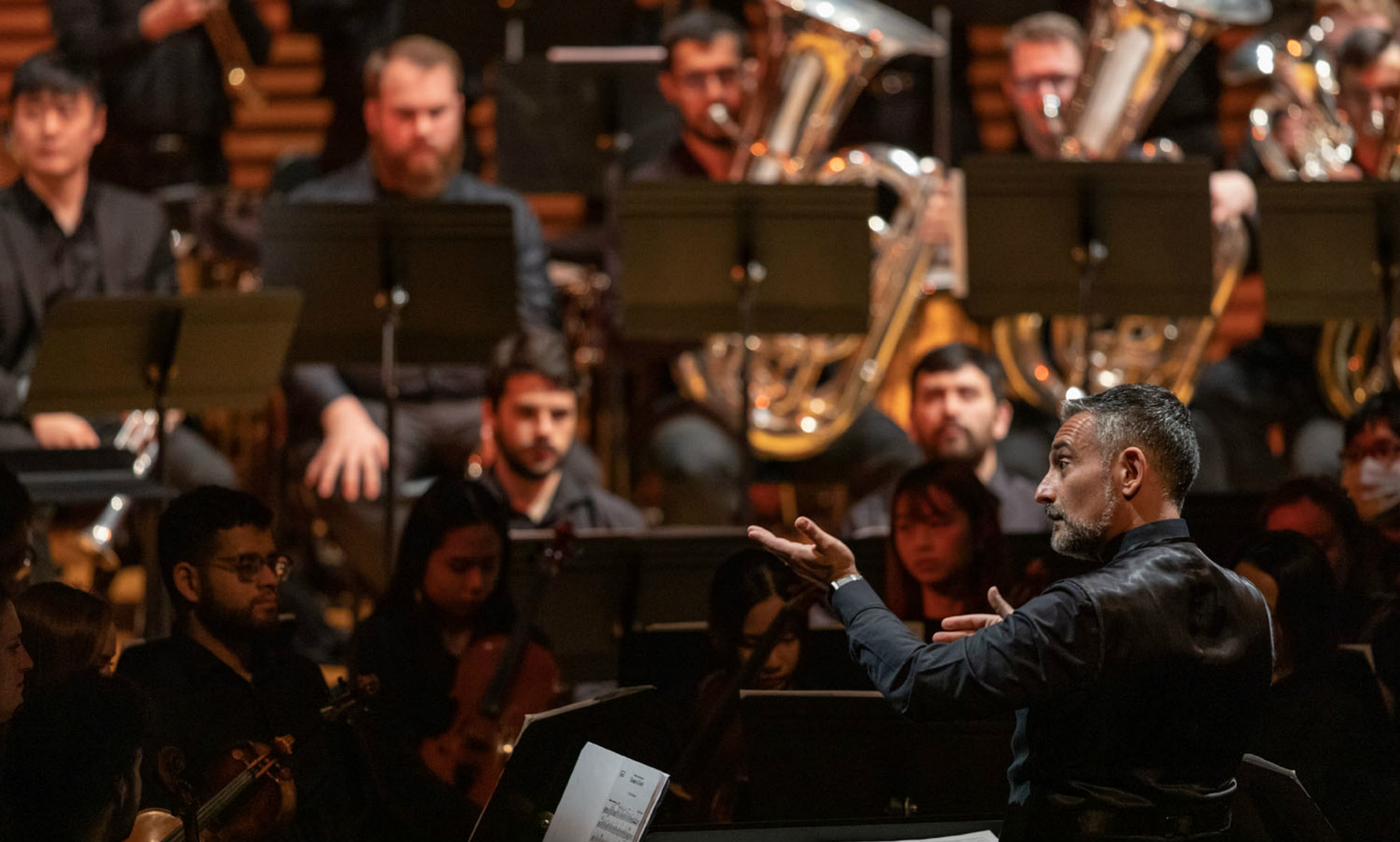
KCUR creates second radio station to provide 24/7 classical service
At a time when we most need it, classical radio has returned to Kansas City.
91.9 Classical KC began broadcasting June 30 and is now operating 24 hours a day, seven days a week. The music service also can be streamed through a new website at classicalkc.org.
The station is an enterprise of KCUR 89.3, Kansas City’s public radio station, which purchased the signal at 91.9 FM from William Jewell College in late June. KCUR is an editorially independent community service of the University of Missouri-Kansas City, which holds its broadcasting license.
Adding a second radio station to its portfolio fits well with KCUR’s history of supporting Kansas City’s rich arts culture, said Sarah Morris, interim general manager.
“We see Classical KC as a cultural institution in the making,” Morris said. “Over time, we want the new station to be Kansas City’s ambassador for all things classical, and this is a fundamental step in that direction.”
Morris pointed out that the purchase of the station would not have been possible without the generous support of several key funders in Kansas City.
“We are supremely grateful to those wonderful funding partners who enthusiastically agreed to make initial investments in this vital project,” Morris said.
For the past 20 years, Kansas City has been one of the few metropolitan areas of its size without a full-time classical music radio station. But, with the launch of the new music platform, KCUR intends to do more than simply play classical compositions.
“Classical KC will not only be a major asset to our world-renowned UMKC Conservatory, but to our entire Kansas City community at a time when the spirit of music is needed more than ever.” - UMKC Chanellor Mauli Agrawal
91.9 Classical KC will be a local service with a focus on Kansas City, its arts institutions, its home-grown musicians, its audiences and its schools. The new station will act as an ambassador for the classical community and will partner with area arts organizations such as the UMKC Conservatory, the Lyric Opera of Kansas City and the Kansas City Symphony to promote their work.
Danny Beckley, executive director of the Kansas City Symphony, said he looks forward to working with the staff at Classical KC to develop innovative ways to share classical music with as broad an audience as possible.
“We must democratize this music just as the ‘foodie’ movement has democratized our cultural taste buds,” Beckley said. “If we could commit to a collaborative partnership unburdened by more traditional siloed models of radio and orchestra, I believe such an effort could be transformational for Kansas City’s appetite for classical music.”
Even before the purchase of 91.9 FM, William Jewell College and KCUR have enjoyed a longtime relationship that has included collaborative events involving the college’s Harriman-Jewell performing arts series. The launch of the new station allows that partnership to continue to flourish, says Elizabeth MacLeod Walls, president of William Jewell College.
“William Jewell College has a proud history as a supporter of the arts, from helping grow aspiring performers on our campus to bringing the best artists to Kansas City through the Harriman-Jewell Series. We believe music inspires creative thought, and this new station is a valuable addition to our culturally rich city.”
“We see Classical KC as a cultural institution in the making. Over time, we want the new station to be Kansas City’s ambassador for all things classical, and this is a fundamental step in that direction.” - KCUR Interim General Manager Sarah Morris
Stephen Steigman, KCUR’s longtime chief of broadcast operations, will lead Classical KC as its director. Over the next three years, the new station plans to expand its dedicated staff, including announcers, a social media/digital editor, a membership director and a community outreach coordinator.
Steigman reiterated the importance of bringing Classical KC to life at this time.
“While concert stages are dark, we can help classical arts organizations and musicians remain in front of their audiences at a time when they need to be in front of their audiences,” he said.
“I’m looking forward especially to working with Kansas City’s musicians and organizations to find innovative ways to reach audiences through the broadcast of small-scale performances, living room concerts, interactive interviews and the airing of great archival content,” Steigman said, adding that classicalkc.org will provide a choice platform from which to share the work of local performing arts organizations, including performances and works by UMKC Conservatory faculty and students.
While most commercial classical stations in the country have gone out of business in the past two decades — including KXTR in Kansas City — classical music is flourishing on public radio. More than 11 million listeners in the U.S. tune in to classical music on 71 public radio stations nationwide.
“While concert stages are dark, we can help classical arts organizations and musicians remain in front of their audiences at a time when they need to be in front of their audiences.” - Classical KC Director Stephen Steigman
The new station will be operated by KCUR as a community service of the UMKC, and will reinforce the university’s long-standing commitment to the arts in Kansas City. Classical KC will be funded exclusively by private donors, partner marketing and a membership program modeled after the one that helps sustain KCUR. No state or tuition money will be involved in this enterprise, Morris said.
Although the new station’s signal is located in Independence, Missouri, it will be run out of KCUR’s offices at UMKC.
“We are thrilled by this new partnership and celebration of the arts,” said UMKC Chancellor Mauli Agrawal. “Classical KC will not only be a major asset to our world-renowned UMKC Conservatory, but to our entire Kansas City community at a time when the spirit of music is needed more than ever.”
About KCUR
KCUR 89.3 is a public radio service deeply rooted in the Kansas City metro area since 1957. It is the flagship NPR station in Kansas City, connecting people to ideas and to each other through news reporting, thoughtful conversation and vibrant expressions of arts and culture. The station serves the public by reporting on and sharing information about local governments, politics, education, health care, arts and culture through the voices of the people living those stories. It spotlights the creative works of artists, musicians and innovators who make the world and our community more vibrant. It brings people together through events intended to inspire and engage. The station is operated as an editorially independent community service of the University of Missouri-Kansas City (UMKC), which holds the station's broadcast license. The station broadcasts 24 hours a day in a 90-mile radius of Kansas City. Its audio stream, archived local programming and podcasts are available at kcur.org. The station leads three public media collaborations: Harvest Public Media, the Kansas News Service and America Amplified, a national project for the 2020 election year.
Jul 05, 2020
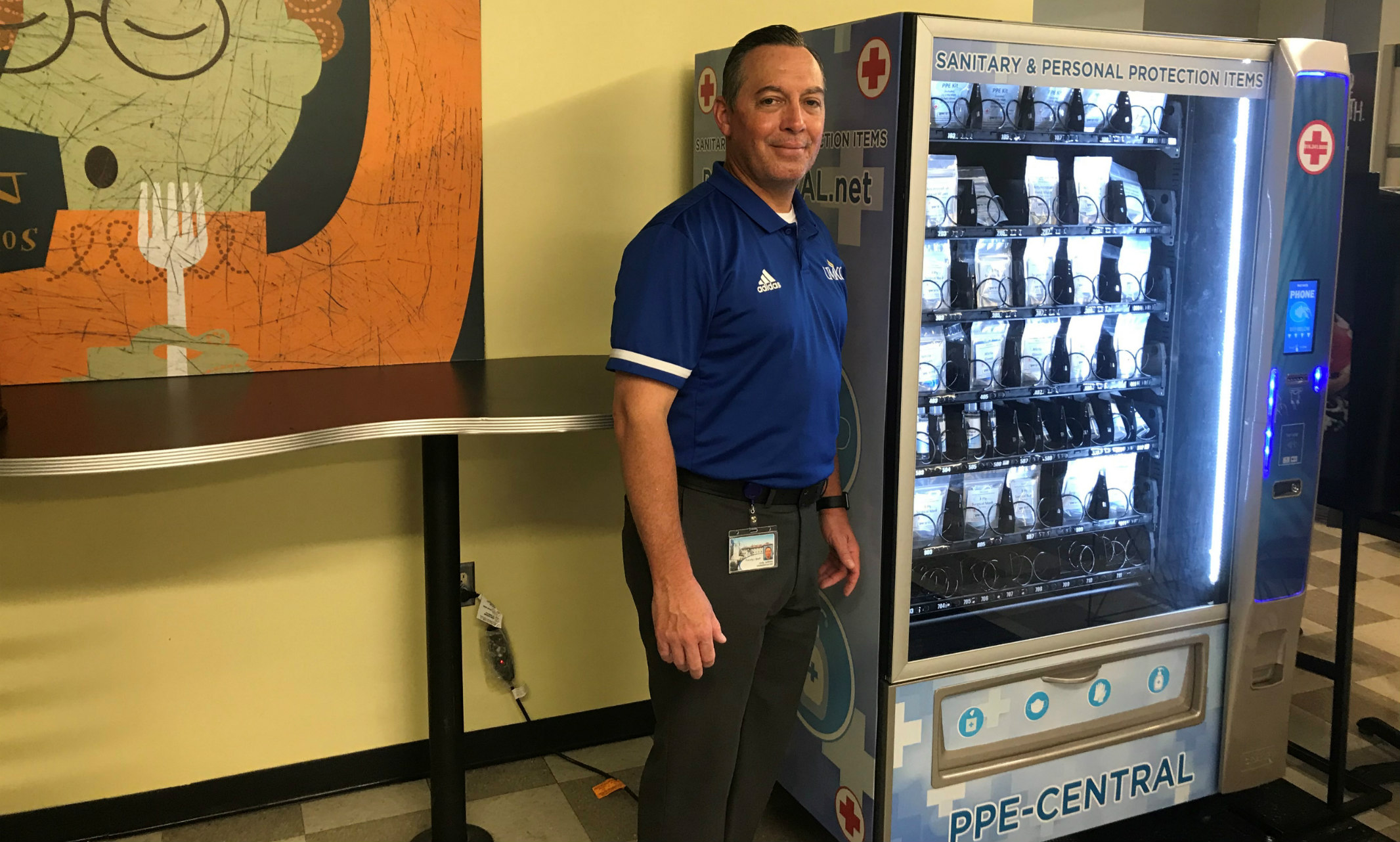
All details considered in preparing for fall
Under our new normal with COVID-19, no detail is too small to be considered when it comes to preparing for the safety of all on campus. Even the vending machines.
This fall, there are two vending machines dedicated to personal protective equipment, commonly known as PPE. One will be at Royall Hall, near Einstein Brothers, on the Volker Campus. The other will be inside the Health Sciences Building on the Health Sciences Campus.
“We are very fortunate to have a partnership with a local vending company that was fully prepared to address the personal safety and welfare of our students and the campus community during these unprecedented times,” said Jody Jeffries, manager of Student Union Operations and Student Auxiliary Services.
The vending machines will offer:
Ear-loop masks
Hand sanitizer
Disinfecting, antimicrobial wipes
Disposable non-latex gloves
Kits with a mix of items
Most items cost between $1 and $4 to keep them more affordable than what you’d buy in most stores, Jeffries said.
Regular vending machines that sell snack items on both campuses also will be stocked with some PPE items.
Jul 02, 2020
Fox4KC highlights contributions made to Jayden Francois
Three years ago, Jayden Francois joined the UMKC “A Bridge to the Stars” program. It aims to teach high school students in the urban core, or who are under-represented, about STEM. One month ago, Jayden’s father, was murdered after a protest near the Plaza. Now, faculty and student mentors in the Bridge to the Stars program are showing support to Jayden and are helping him reach for the stars. Read the story by Fox4KC.
Jul 01, 2020
KCUR interviewed Pritchett about his novella "Tania the Revolutionary"
Michael Pritchett’s new work of fiction is the third book for this University of Missouri-Kansas City associate professor of English. Read more from KCUR.
Jun 30, 2020
Scott Fullwiler co-writes article on fiscal deficits and central bank financing
In the June 30 issue of The Business Times, UMKC Economics Associate Professor Scott Fullwiler addresses reasons to not fear fiscal deficits and central bank financing. Read the article.
Jun 30, 2020

Read about the latest town hall
The University of Missouri-Kansas City Division of Diversity and Inclusion hosts a series of critical conversations addressing systemic racism in the United States.
UMKC people are taking thoughtful action on campus and in our community to ensure lasting and comprehensive reform through Roos Advocate for Community Change, a campus-wide effort announced in June following the death of George Floyd.
Critical Conversations are part of that initiative. The panel discussions are in a Zoom town hall-format and feature UMKC faculty, staff, students and volunteer leaders who represent the topic being discussed. The sessions are free and open to the community at-large, but pre-registration is required online.
The goal of each discussion is to enlighten, educate and explore the causes and potential cures for racism. Further, the university will strive to share actionable steps that can be used to improve racial interactions in the broader community. For more information, please email umkcchancellor@umkc.edu.
Critical Conversations Series
Eighth Session, April 22: Black and Brown Excellence in the Classroom: Exploring Bridges and Barriers to Success
Panelists include Brandon E. Martin, Ed.D., UMKC vice chancellor and director of athletics; Edgar J. Palacios, president and CEO of the Latinx Education Collaborative; Loyce Caruthers, Ph.D., UMKC professor of educational leadership, policy and foundations; Lauren Sanchez, program director at Kauffman Scholars; Gary O'Bannon (moderator), executive-in-residence, UMKC Henry W. Bloch School of Management; Adriana Suarez (co-moderator), UMKC student.
Seventh session, Feb. 18: Politics and the State of Black and Brown America
Panelists included: Tom Carignan, Overland Park City Council member; Irene Caudillo, president and CEO of El Centro; Kelvin Simmons, co-founder of the Nexus Group, a full-service government affairs firm; Beth Vonnahme, associate professor of political science and associate dean of the College of Arts and Sciences at UMKC; Gary O'Bannon (moderator), executive-in-residence, Henry W. Bloch School of Management; Charisma Sewell (co-moderator), UMKC political science major.
Sixth session, Oct. 7: A Dialogue Among Women of Color and White Women in Higher Education
Panelists included: Karen Lee Ashcraft, professor, College of Media, Communication, and Information at University of Colorado Boulder; Karen L. Dace, vice chancellor, Diversity, Equity and Inclusion at Indiana University-Purdue University Indianapolis; Lona Davenport (co-moderator), senior diversity program coordinator, UMKC Division of Diversity and Inclusion; Christine Grant, professor of chemical and biomolecular engineering, former associate dean of faculty advancement, North Carolina State University; Jennifer Laflam, professor and director of Center for Teaching and Learning at American River College; Tamica Lige (co-moderator), program coordinator, Students Training in Academia, Health, and Research (STAHR); Shani Barrax Moore, director of diversity and inclusion, University of North Texas; Julia Vargas, director, Center for Service Learning, Rockhurst University.
Fifth session, Oct. 5: The Future of Policing in Kansas City, A Conversation with Mayor Quinton Lucas
Panelists included: Mayor Quinton Lucas; Brandon Henderson, president of the UMKC Student Government Assocation; Ken Novak, professor in the UMKC Department of Criminal Justice and Criminology; Gary O'Bannon (moderator), executive-in-residence, Henry W. Bloch School of Management. Hosted by the UMKC Student Government Association.
Fourth session, Sept. 17: The Color of Money, Racism in Finance
Panelists included: Ruben Alonso, president, AltCap; Victor Hammonds, director of small business banking, 1st National Bank of Omaha; Nathan Mauck, associate professor of finanace, Henry W. Bloch School of Management; Gary O'Bannon (co-moderator), executive-in-residence, Henry W. Bloch School of Management; Nick Richmond, president and CEO, Kansas City Credit Union; Lisa Uhrmacher (co-moderator), IoT and analytics practice lead, Atos.
Third session, Aug. 27: The Future of Policing, Part 2
Panelists included: Gwendolyn Grant, president and CEO of the Urban League of Greater Kansas City; Ronald Lindsay, pastor of the Concord Fortress of Hope Church; Ken Novak, professor in the UMKC Department of Criminal Justice and Criminology; Deputy Chief Karl Oakman, Kansas City, Missouri Police; Gary O'Bannon (co-moderator), executive-in-residence, Henry W. Bloch School of Management; Cynthia L. Short, trial lawyer, mitigation specialist and sentencing advocate; Jasmine Ward (co-moderator) third-year student at the UMKC School of Law.
Second session, July 30: The Future of Policing, Part 1
Panelists included: Jean Peters Baker, Jackson County prosecutor; Emanuel Cleaver III, senior pastor of St. James United Methodist Church; Damon Daniel, president of the AdHoc Group Against Crime; Toya Like, associate professor, UMKC Department of Criminal Justice and Criminology; Gary O'Bannon (co-moderator),executive-in-residence, Henry W. Bloch School of Management and former Director of Human Resources, City of Kansas City, Mo.; Jasmine Ward (co-moderator), third-year student at the UMKC School of Law.
First session, July 8: Systemic Racism in the Workforce
Panelists included: Clyde McQueen, President and Chief Executive Officer, Full Employment Council; Uzo Nwonwu, Corporate Legal Counsel, UMB Bank; Jeffrey J. Simon, Office Managing Partner, Husch Blackwell LLP; A'yanna Tomlin, UMKC student, studying Business Administration; Gary O'Bannon (moderator), executive-in-residence, Henry W. Bloch School of Management and former Director of Human Resources, City of Kansas City, Mo.
Jun 29, 2020
Max Skidmore was again tapped for commentary
The Portland Press Herald recently reprinted a Washington Post article quoting UMKC Professor Emeritus Max Skidmore. Skidmore is the author of a book on presidential leadership during health crises.
Jun 27, 2020
Local, national media outlets share details about the new scholarship
The scholarship, announced on June 24, provides first-semester grad school tuition for adults hit by the COVID-19 recession. This story was picked up by more than 65 sources, including Business Insider, Yahoo Finance and The Kansas City Business Journal.
Jun 26, 2020
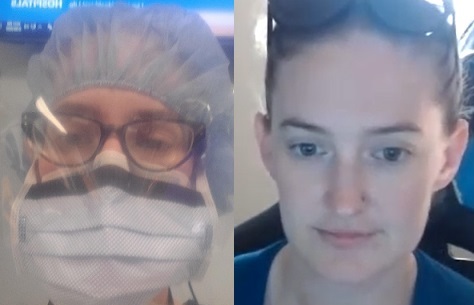
Desire to help other nurses led her to the epicenter of COVID-19 cases
What could cause a nurse to leave family and safety behind to work at a New York City hospital filled with COVID-19 patients, many of them destined to die on her watch?
“I really wanted to help my fellow nurses,” said Hanna Bates-Crosby, RN, who works at the UMKC School of Dentistry and is trained as an emergency room nurse. “I went with my sister, who’s also a nurse, because we knew the nurses and doctors in New York were struggling, drowning in patients. I didn’t know how I could ethically not go and use my skills to help them.”
Bates-Crosby and her sister, who is trained in intensive care, were among the first of thousands of nurses from across the country who went to New York to help. They arrived March 26, just after a week in which the number of COVID-19 patients in New York City had increased tenfold.
“It truly was a war zone,” said Bates-Crosby, who worked the 7 p.m. to 7 a.m. shift for seven straight days at one of the hardest-hit hospitals in Queens. “A trauma bay designed for four patients would have eight or 10 patients in it, and one nurse, because that was all we had. Another room meant for a few heart attack patients would have a dozen COVID patients and two nurses.”
On one of her shifts, 30 people died. “Those people who don’t believe they were loading bodies into semi-trailers need to believe it,” she said. “It happened.”
Away from the emergency room, on the regular hospital floors, “it was still practically all COVID patients, and if someone came in with something else, within a couple of days they could have COVID. There was no way to separate and protect the non-COVID patients,” she said.
“But we went in knowing it wasn’t going to be normal nursing. We were going to see a lot of death, and not be able to do much for many of the patients. It was hard, being there for a patient and sedating them and putting them on a ventilator, knowing the odds of them coming off were not good.”
She remembered one patient in particular. Making a rectangle around her eyes with her hands, to represent her hospital mask and other protective gear, Bates-Crosby said, “Knowing my face, this much of my face, was probably going to be the last face he saw — that was hard.”
“It was hard, being there for a patient and sedating them and putting them on a ventilator, knowing the odds of them coming off were not good.” Hanna Bates-Crosby
But the difficult experiences were worth it, she said, to do what she could to support her colleagues. “One doctor asked me where I was from, because I sounded different,” she said. “She couldn’t believe I had come all the way from Kansas City to help them.”
Since returning, she said, “I have dreams sometimes where I’m in that emergency room. And I’m a very auditory person, so for a while I would wake up and hear ventilator alarms going off. But I was only there a week, so I’m doing all right. I worry about the nurses who are still there, getting COVID or just being exhausted.”
When she and her sister returned to Kansas City, they still had to quarantine in a motel for two weeks. “That was hard, too. My husband was really good about it, bringing food and clothes, but he said, ‘It’s like you’re back, but you’re not really back.’ ”
When quarantine was over, she finished coursework that added a bachelor’s in nursing degree to her RN, and in August she will start classes toward becoming a nurse practitioner. Bates-Crosby also picks up shifts administering infusion therapy in people’s homes. But she’s most looking forward to working again at the School of Dentistry as its clinics reopen, she hopes in July.
“I really miss the students,” Bates-Crosby said. “It will be good to be back.”
Jun 25, 2020
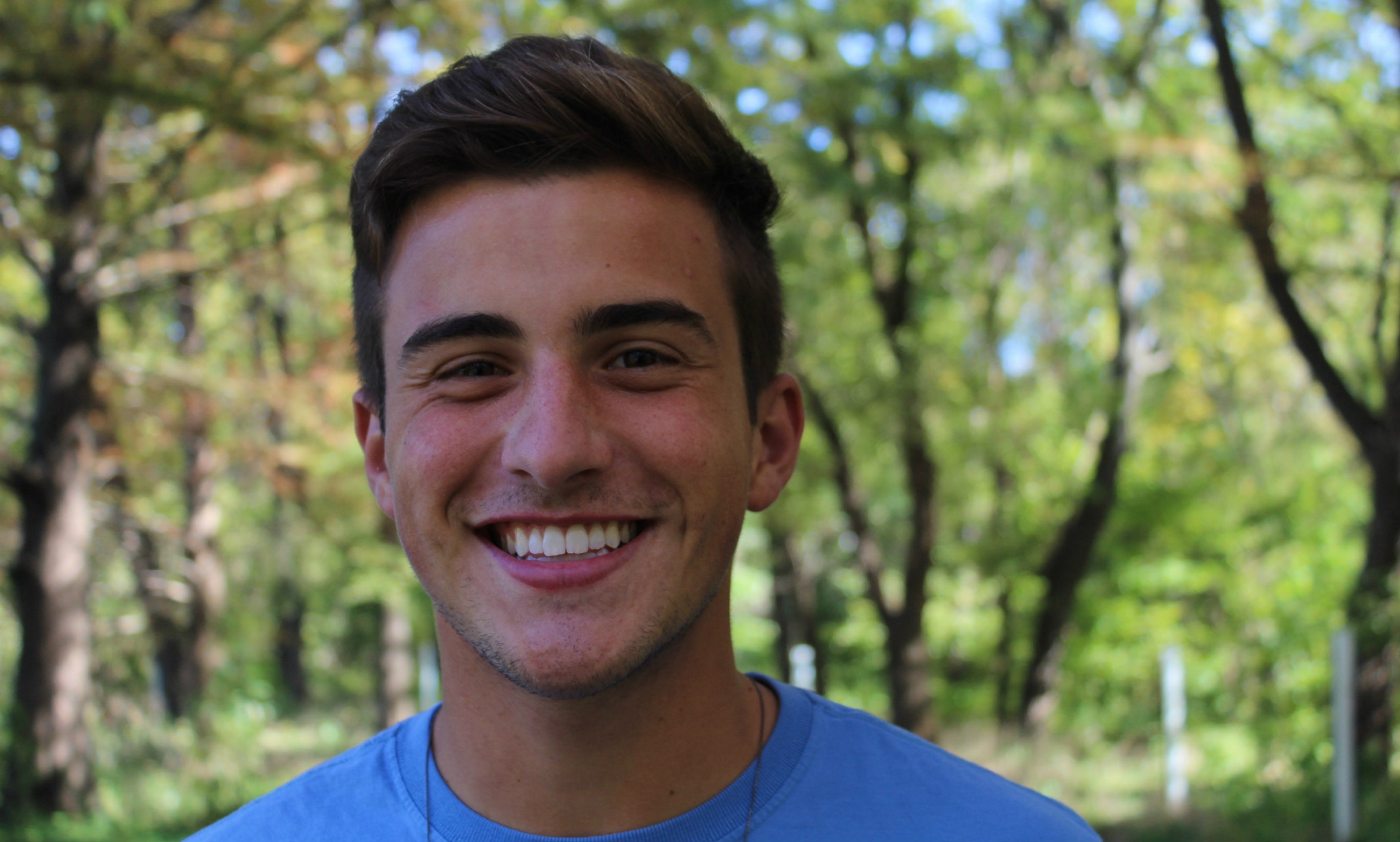
New York investment firm adds UMKC student to its Ivy League lineup
Eduardo Avendano, a rising senior in the Henry W. Bloch School of Management, is chasing a dream.
“I want to achieve big things,” Avendano says.
He is off to a good start. Avendano, who is majoring in business administration in finance, is a native of Brazil. Attending UMKC was the first step on the path toward a long-term goal.
“I decided to come to the U.S. for college so I could chase my goal of building my career closer to the biggest players in the financial market.”
Last fall, he interviewed with more than 30 companies in the United States for a summer internship. Avendano knew that the large New York-based firms usually hire interns from Ivy League colleges.
He was undaunted.
“I want to achieve big things.” — Eduardo Avendano
“I understood that the easiest way for the firms to sort so many people applying for the same position was to separate people by school,” he says. “I had so many automated emails saying I did not get the job.”
To change the outcome, he decided to change his approach.
“Not only was I applying through the websites, I started cold calling, adding connections through LinkedIn and sending emails.”
Using this method, he applied for 30 jobs and secured one interview at Ares Management Corporation.
“Out of more than 3,000 applicants, 100 people were selected for a phone interview. I told my story and clinched the in-person interview in New York two weeks later.”
Besides Avendano, four other candidates received an invitation to interview in person.
“You can probably guess their backgrounds. Two were from Wharton [School of the University of Pennsylvania], one was from Brown University, one from Cornell University. And then there was me.”
Avendano was not intimidated.
“Even though there were more than 3,000 candidates, the moment I had the phone interview I knew would get the job.”
He was able to visit the company before the escalation of the COVID-19 outbreak. The energy of New York City did not disappoint.
“I stayed in a hotel overlooking Central Park. I love the energy of the city. When I looked down from the 42nd floor, I knew I was making the right decision."
While the outbreak of COVID-19 has upset some of his plans, Avendano has remained positive even as he has been working at home in Kansas City.
“It’s still very exciting,” he says. “We are supposed be in the office in the next few weeks.”
"Even though there were more than 3,000 candidates, the moment I had the phone interview, I knew I would get the job." — Eduardo Avendano
Avendano would encourage anyone with a similar dream to be as tenacious as he was.
“I wanted to be where the best players in the market are. I knew some of the other candidates had more choices, but I knew I had the qualities to be as successful as they could.”
He recommends being tenacious in the search, even if something seems like a long-shot.
“It’s not an easy thing, but anyone can do it,” he says. “Just because you keep hearing ‘no’ doesn’t mean you’re not capable. You just better be prepared for the next ‘yes.’”
Jun 25, 2020
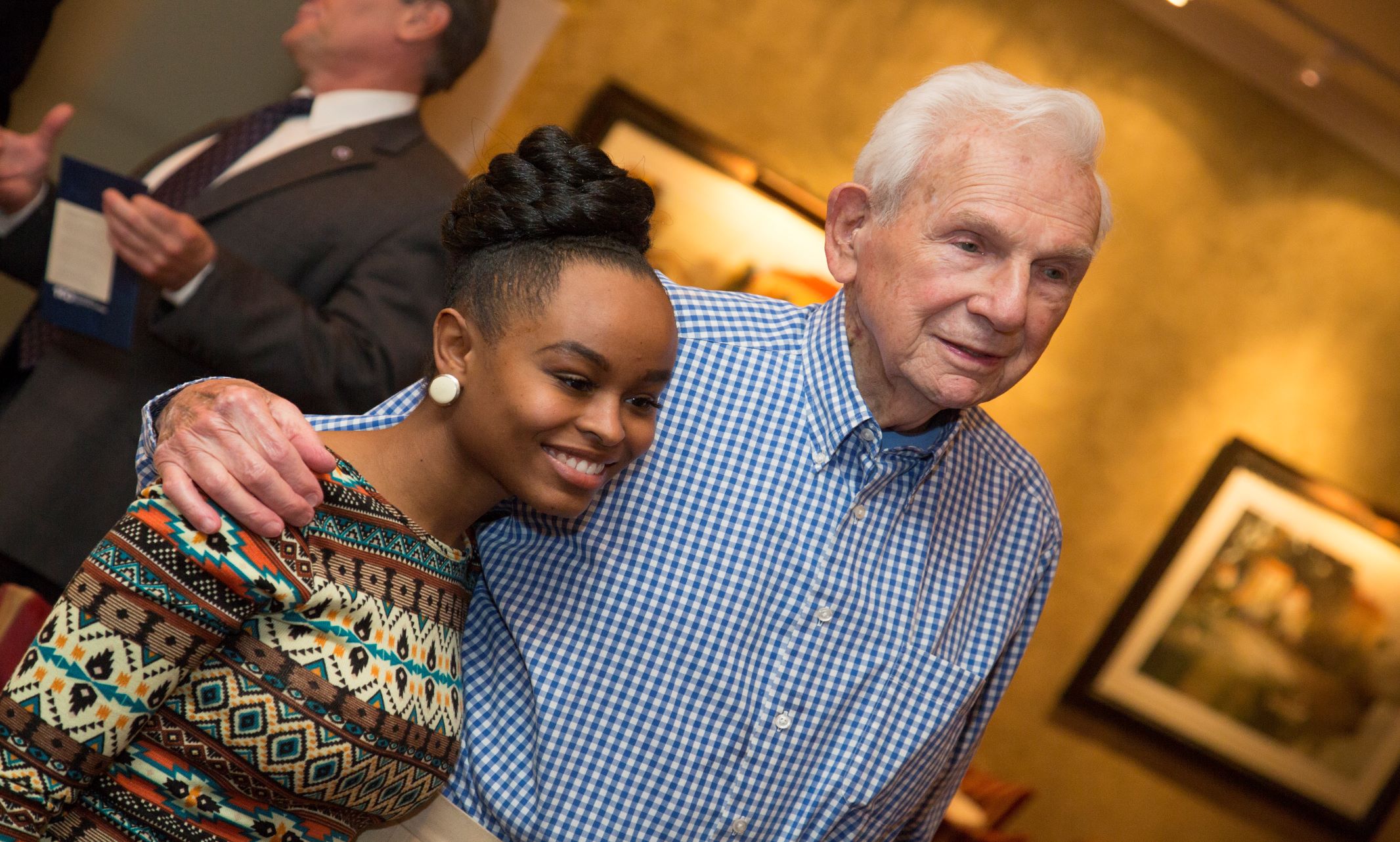
New scholarship provides first-semester grad school tuition for adults hit by COVID-19 recession
Kansas City working professionals facing career setbacks due to the COVID-19-related recession can get a helping hand toward a fresh start, in the generous tradition of the late Henry W. Bloch: free fall tuition for the first semester for graduate school programs at his namesake school of management at UMKC.
Henry Bloch never wavered in his support for Kansas City, or in championing the people of his hometown. Following his example, the UMKC Bloch School of Management and the Marion and Henry Bloch Family Foundation are helping Kansas Citians affected by COVID-19 begin the next step in their careers and lives.
One of the first scholarship programs in the nation aimed specifically at working professionals suffering financial hardship due to the coronavirus recession, the Bloch Helping Hand Scholarship provides awardees free tuition for their first semester in a Bloch graduate program and immediate access to the Bloch School’s career and entrepreneurship resources.
“We know what Dad would do in this difficult time; he would seek out unique ways to help those most in need.” said his son, Tom Bloch, chairman of the Bloch Family Foundation. “With this program, the school that bears his name is honoring his generous spirit to help those who have suffered unprecedented hardship and uncertainty by providing a pathway forward and upward through education.”
Helping Hand Scholarships are available to people living in the greater Kansas City designated market area who have suffered job loss, furloughs, or other financial hardships as a result of the pandemic. Applications are available at this link and must be submitted by August 1.
“Support for working professionals who have experienced job loss or other financial hardships due to the coronavirus recession is a critical unmet need,” said Brian Klaas, dean of the Bloch School. “Providing scholarship support during these challenging times is a fitting legacy of Henry Bloch’s lifetime of leadership and service, and we are grateful to the Bloch Family Foundation for working to address an important need within this community.”
The Bloch Helping Hand Scholarship is funded by grant from the Marion and Henry Bloch Family Foundation and is designed to help approximately 100 students restart their careers.
The Henry W. Bloch School of Management, “Kansas City’s Business School,” emphasizes programs that link Bloch students and faculty with business partners throughout greater Kansas City. For students, these strong connections offer opportunities to learn from leaders in many of Kansas City’s most successful organizations. The Bloch School full menu of resources includes career coaches, entrepreneurship mentors, social media skills builders and deep connections to Kansas City’s business community, providing opportunities for internships, full-time jobs, mentoring and project-based learning.
Apply for the scholarship
Jun 24, 2020
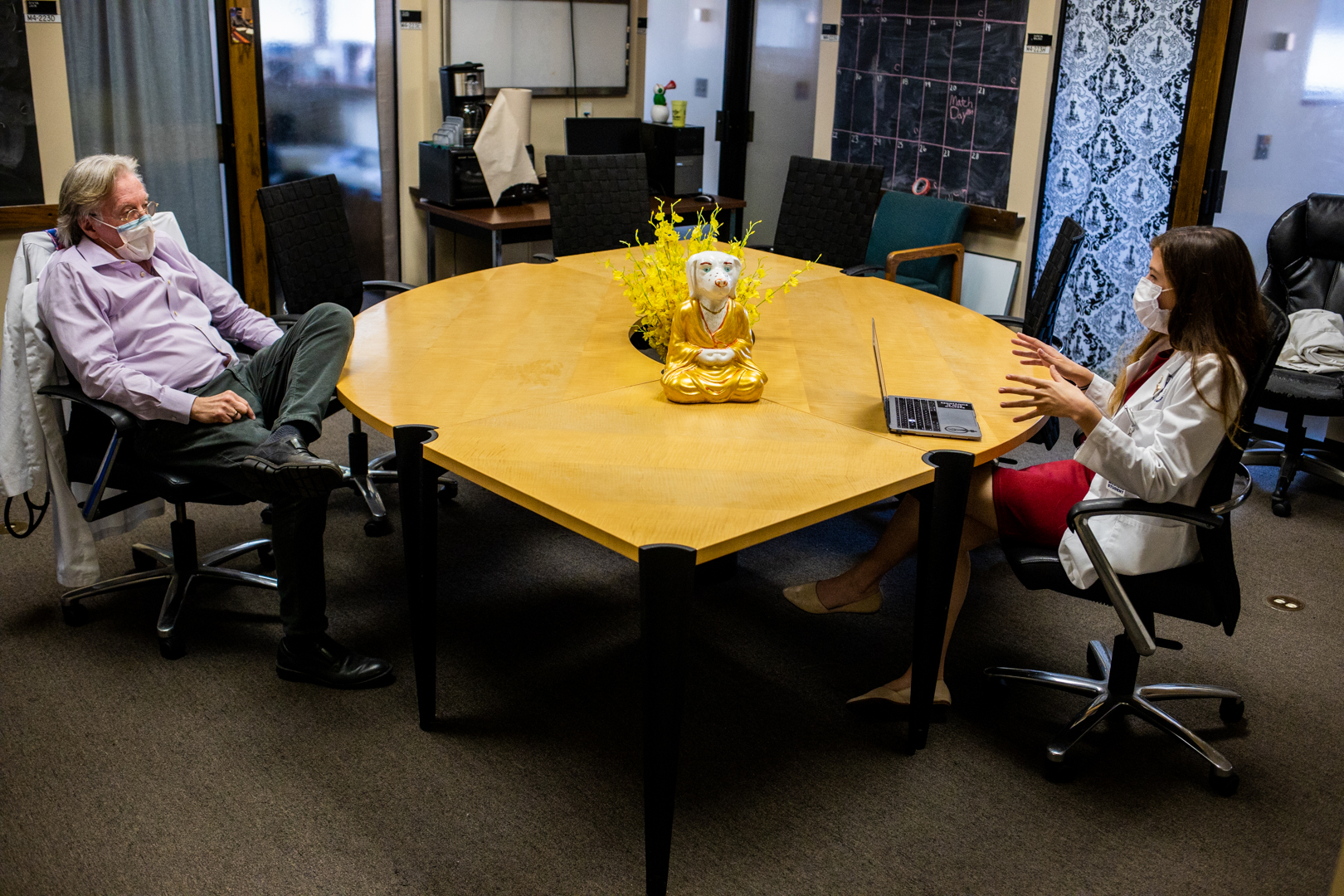
Physician mentor David John helps med student Faith Mueller toward her goal
The heart of UMKC is our campus community. With lots of opportunities, it’s easy to develop mentorship teams. And these rich relationships — our Dynamic Duos — are some of our best success stories.
Faith Mueller wants to become an obstetrician/gynecologist and change the world. David John, M.D., believes she will and is mentoring her on that path. When each talks about the other, it’s clear that their inspiration is mutual.
“Early on, I became enveloped in the world of women’s liberation,” said Mueller, who is entering her last year of the UMKC School of Medicine’s six-year B.A./M.D. program. “I started reading stories of female genital mutilation, of sexual violence, of the pregnancy circumstances in areas of instability. These were stories that I could not shake, and I knew I had found my vocation.”
Faith Mueller
When she graduates, Mueller plans to find a role in women’s global health after serving her OB/GYN residency.
John, a member of the six-year program’s original graduating class in 1977, had a long career in rheumatology in Hawaii and returned to UMKC three years ago to teach and mentor students as a docent, the teaching physician for a small “docent unit” of medical students. He and Mueller met when she joined his docent unit.
“Our students are all bright and uniquely talented,” John said, “but it is rare to have a student like Faith Mueller. In addition to exceptional capabilities, Faith has the drive and the initiative, the passion, to do great things in her career. I hope to live long enough to see her early accomplishments to improve the health of women at a global level.”
“Dr. John … approaches medicine with an empathy that is sustainable and rooted in ideas of equality. He stands for a world that is better for the people he serves.” — Faith Mueller
Her drive to get started in medicine as soon as possible led Mueller to UMKC, where she could get her M.D. two years sooner than at other universities. But in John, who as a young man envisioned being a professor of English literature, she found a mentor who also emphasized the humanities and appreciated her desire to help others.
“Dr. John is unwaveringly kind and takes the effort to see the humanity in everyone, no matter how they come to him,” Mueller said. “He approaches medicine with an empathy that is sustainable and rooted in ideas of equality. He stands for a world that is better for the people he serves.”
David John
Her mentor’s personality and commitment also make learning medicine less daunting. “I know I can always ask questions, whether about patient care, navigating the medical field, or life in general,” Mueller said.
In turn, John said, Mueller and his other students have inspired and renewed him.
“I had become intellectually complacent, emotionally placid, professionally successful but somehow not complete,” John said. “When I was a medical student here in the 1970s, certain docents showed me what it really means to wear the mantle of the physician within society. I viewed it as a great gift. This knowledge kept me true to the profession; it kept me grateful that my purpose was to help people suffer less and live healthier. When I decided it was my turn to give back, life got exciting again.
“Faith has the drive and the initiative, the passion, to do great things in her career. I hope to live long enough to see her early accomplishments to improve the health of women at a global level.” — David John
“As Faith’s mentor, I feel my major purpose is to be a sounding board and a cheerleader. Her accomplishments are her own; she created her own goals. Mueller said she appreciates his support: “Dr. John inspires me to live boldly. I feel like I can ‘go for the gold’ knowing that I have someone within the faculty who will have my back and advocate for my success.”
The med school’s docent system gave Mueller her opportunity to find a mentor, but she encourages other students to actively seek out mentors if a mentor relationship doesn’t develop naturally. “Keep your mind open for who would be a good mentor,” she said. “They don’t have to be in your field or occupation. Find someone that helps you grow as a person. Look for someone who inspires you.”
Jun 24, 2020
Scott Helm explains the impacts of JC Nichols’ policies and practices
KSHB interviewed a number of local experts for their recent story about the renaming of the JC Nichols Fountain. Scott Helm, professor at the UMKC Bloch School of Management, was one of the individuals interviewed. Read more and watch the news clip.
Jun 24, 2020
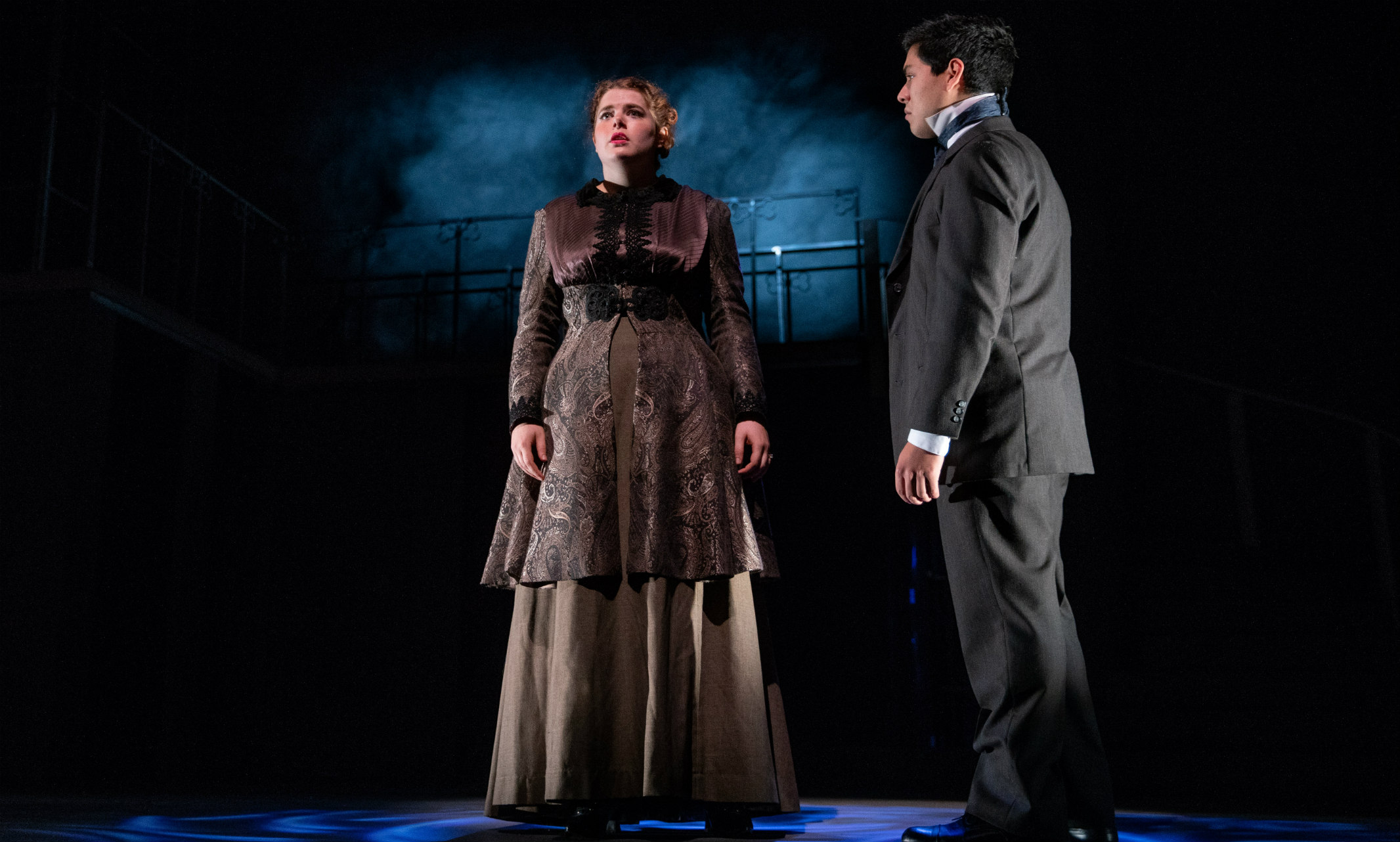
Master of Fine Arts program consistently recognized as one of the best performing arts schools
The Hollywood Reporter’s recent rankings have the University of Missouri-Kansas City Theatre graduate program at No. 24 out of 25 for the world’s top dramatic and performing arts schools, making this the second year in a row in the Top 25.
According to the Hollywood Reporter, the publication consulted with academics, influencers and alums to rank the top 25 Master of Fine Arts acting programs. In the article, the Hollywood Reporter highlighted UMKC for bringing theater, music and dance departments under one roof: the UMKC Conservatory. UMKC Theatre was also ranked in the Top 25 by the Hollywood Reporter last year at No 20.
For the third year in a row, Hollywood Reporter has also included UMKC Theatre in its national list of Top 10 Costume Design schools. UMKC Theatre offers a single comprehensive M.F.A. degree in costume design and technology, which has been key to its success. Students learn many skills including drawing, painting, sketching and learning how to construct a garment with techniques in fabric manipulation, millinery, tailoring and pattern drafting.
“The history of UMKC Theatre has been one of excellence,” said Ken Martin, Patricia McIlrath Endowed professor of Theatre and chair of UMKC Theatre. “A high quality, forward thinking faculty, coupled with a regional professional theatre on campus, results in a world class training. We are proud to be mentioned alongside these other programs, and look forward to building on the traditions and quality already established.”
As well as merging with the UMKC Conservatory in 2019, Martin was named chair of the UMKC Theatre Department. The merger was a natural alignment: the two programs share a long history of collaboration, a physical space, a conservatory model of teaching where students receive intensive hands-on training while gaining analytical skills taught by professional performing artists, a professional-school focus, a strong national reputation, a spirit of civic engagement and a supportive philanthropic audience.
UMKC Theatre continues to make the entire city an artistic campus. In addition to its on-campus partnership with Kansas City Repertory Theatre, this year the program continues to partner with Unicorn Theatre, Coterie Theatre and Kansas City Actors Theatre, featuring MFA and Bachelor of Arts acting students in major professional roles.
Alumni include Nick Gehlfuss of “Chicago Med,” Patrick DuLaney of “Harry Potter and the Cursed Child on Broadway” and Toccara Cash of Broadway’s “The Play That Goes Wrong” and “Half Me, Half You” at London’s West End.
Jun 23, 2020
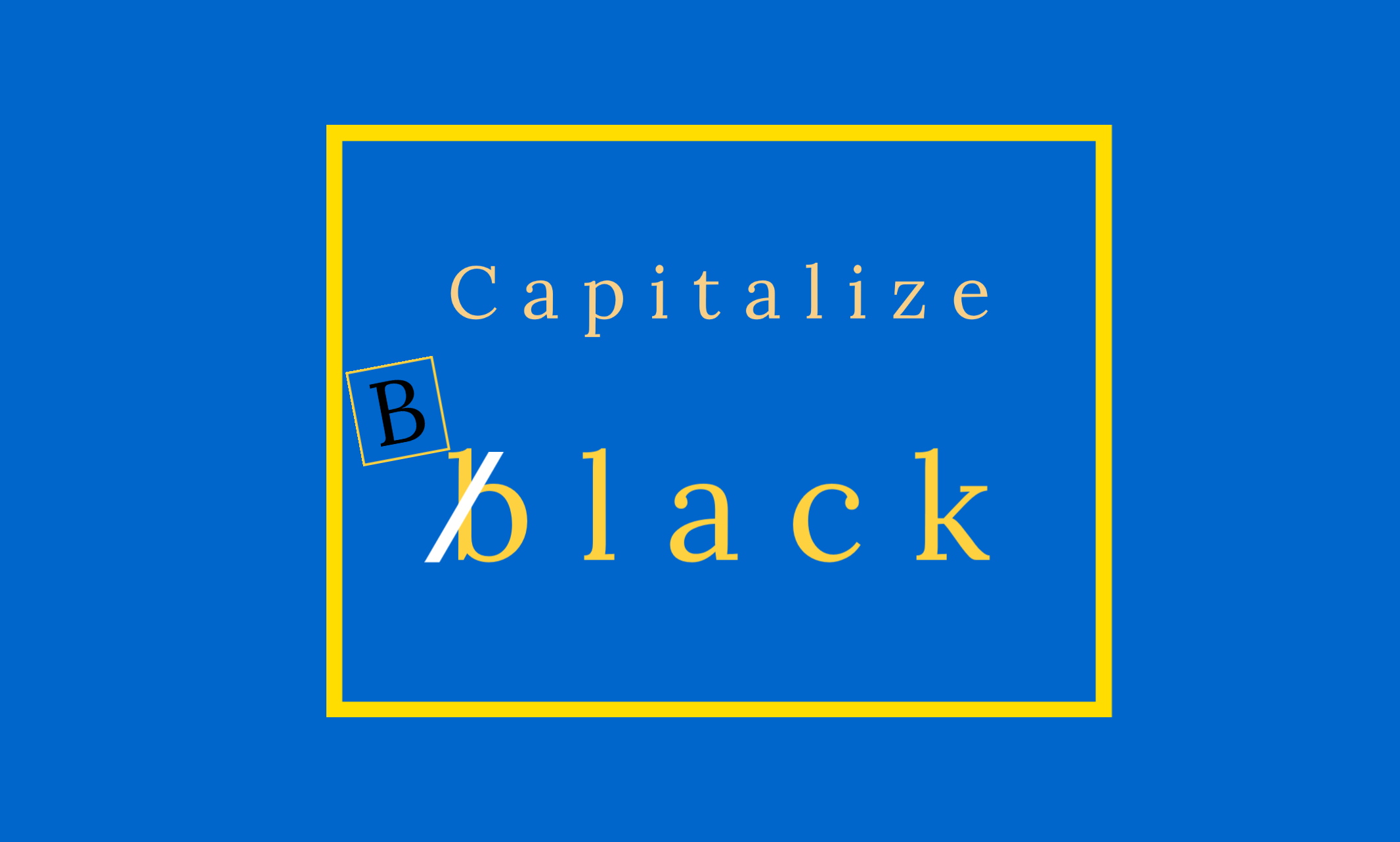
Division of Strategic Marketing and Communications updates reference to Black faculty, staff and students in UMKC style guide
Listening to feedback from members of our campus community, the UMKC Division of Strategic Marketing and Communications (MCom) changed its writing style guidelines to capitalize the ‘B’ in Black in reference to Black people, history and culture.
To capitalize or not to capitalize Black has been an ongoing discussion in cultural, academic and journalistic circles for many years. As the Black Lives Matter movement nationally has heated up that discussion, the UMKC marketing and communications staff, took note.
And decided to make a change.
The Associated Press (AP) Style Guide, the bible of writing and editing rules for most news and communications organizations, including MCom, has long called for lowercase “black” when referring to Black people, history and culture.
However, newspapers, journals, TV news programs and many companies have slowly begun the shift to capitalizing that reference over the years, more so in recent weeks. The AP announced its decision to change its longtime standard on June 19, also known as Juneteenth, the day commemorating the official end to slavery in the United States.
UMKC Law Professor Jamila Jefferson pointed out that trend, in a recent interview with MCom about some of her research.
MCom conducted some quick research and took the pulse of staff members. People noted some key developments:
Many large newsgathering organizations across the country -- USA Today, the LA Times, CNN, The AP and NBC, to name a few – have made the decision to capitalize.
Several journalists and scholars have called for AP to change its style guide in recent years. They announced the change on Friday, June 19.
This week, the influential National Association of Black Journalists announced that its plans to update its own guidelines.
“Many on our staff cited excellent reasons to make this shift,” said Anne Spenner, vice chancellor of Strategic Marketing and Communications. “Given our university’s desire to listen, learn and lead when it comes to matters of diversity and inclusion on our campus, this change makes sense for UMKC.”
Learn about the values of UMKC
Jun 23, 2020
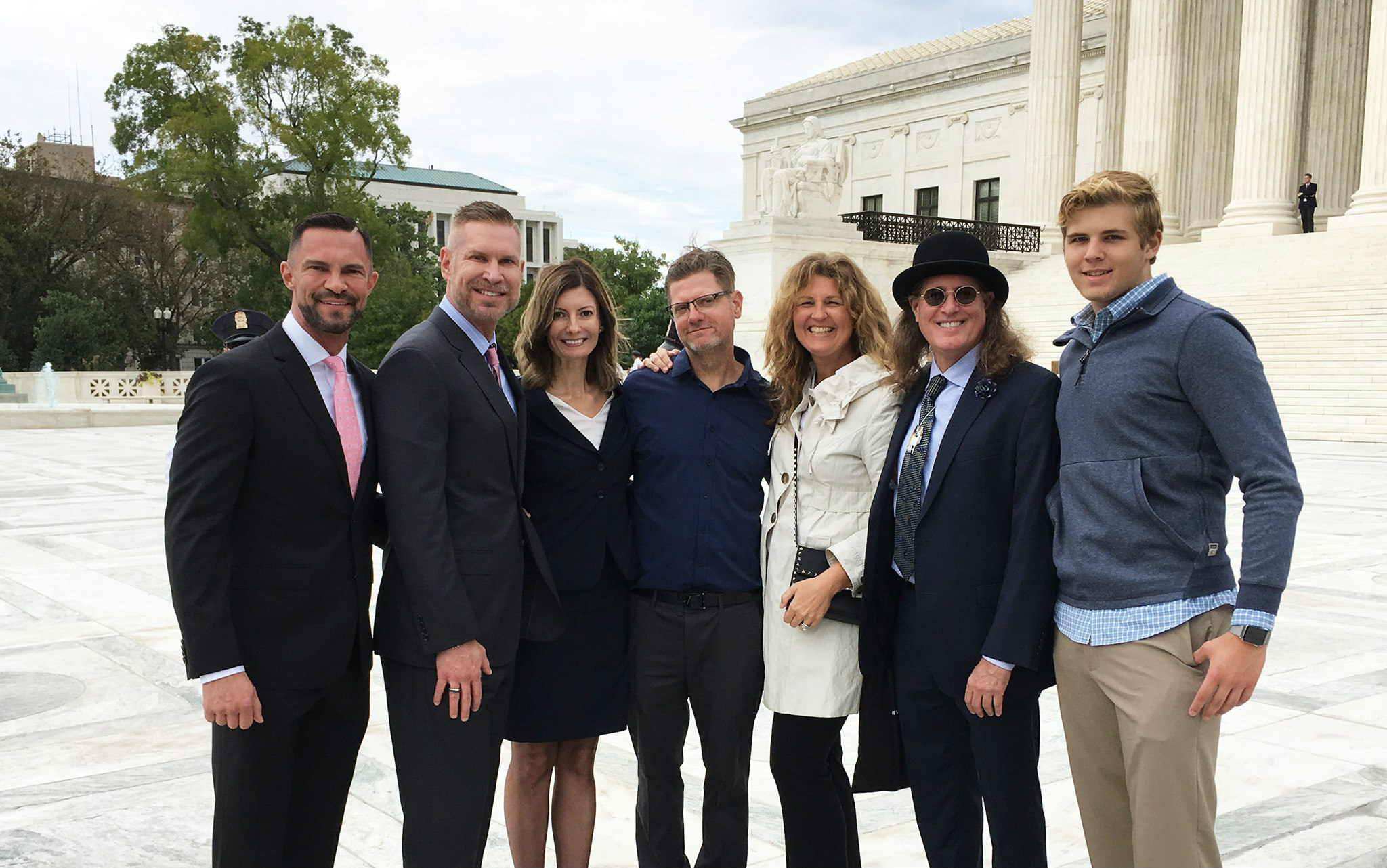
Melissa Zarda (B.A. ’02, M.A. ’07) stepped in to advocate for equal protection in workplace discrimination
Don Zarda worked at a skydiving company in Long Island, New York where he would accompany customers on tandem jumps. In an effort to make a female customer more comfortable, he mentioned that he was gay. Following the jump, the customer’s boyfriend complained and Don was fired. He sued and pursued the case, Zarda v. Altitude Express, through the courts until his death BASE jumping in 2014.
His sister, Melissa Zarda, who had been at his side during the years following his dismissal, took up the mantle that recently resulted in a Supreme Court ruling that sexual orientation falls within Title VII of the Civil Rights Act of 1964 that determined people could not be discriminated against based on race, color, religion, sex or national origin. Melissa never wavered in her commitment to advocate for her brother and the LGBTQ community.
"This case was so important to my brother that we owed it to him to pursue it in his honor,” Melissa says. “I heard from people all over the world who had been fired for nothing more than being themselves at work. People lost their paychecks, the ability to provide for themselves and their families, their health insurance and more.”
Don Zarda BASE jumping from a tower in Kuala Lumpur
Before Don filed his case, Melissa was not aware how common LGBTQ discrimination was in the workplace.
“I was totally ignorant of the plight of LGBTQ people in the workplace,” she says. “I assumed federal protections were already in place under Title VII and couldn't be challenged.”
While she was active and supportive in Don’s case, her role changed after his death. Despite her drive to achieve his dream of the courts supporting LBGTQ equality, her devotion to her brother and her conviction that workplace equality was essential, she was not confident that they would win.
“I hate to say it, but there were times that I worried that we’d lose and I thought that would be tragic.”
As she watched the oral arguments during the Supreme Court hearing, she began to gain hope.
“I noticed during oral arguments that (Associate Supreme Court Justice) Neil Gorsuch was really engaged,” Melissa said. “He was asking questions and paying attention and taking the time to listen to both sides. Also, we were represented by the best of the best. Our attorney was Pam Karlan, co-director of the Supreme Court Litigation Clinic at Stanford, and we were also supported by a talented team at the ACLU.”
Melissa Zarda addresses the press after the verdict
Despite her years of work and devotion to her brother’s cause and the strength of their team, Melissa was overwhelmed when the verdict was in their favor.
“My heart was racing. I can’t really put it into words. My brother had been dealing with this case for a few years already before he died and it took a huge toll on him,” she says. ”I took over along with his partner, Bill (Moore), in 2014. We hit many snags along the way, but we kept going. It has been a long journey, and to see it all end at the highest court with a fair ruling was euphoric.”
Melissa felt as if Don were with her when she heard the news.
“I feel he was looking down on us and that he was proud that we didn’t give up,” she says. “He would have been wearing his biggest smile and would have given me one of his bear hugs that I miss so much.”
Rather than resting, Melissa is taking advantage of the momentum of the decision to pursue further LBGTQ protection.
Don Zarda and his partner Bill Moore
“I think it’s important to push Congress to pass the Equality Act to fully protect LGBTQ people — and all people — from discrimination in all contexts covered by federal civil rights law. The reality is that many LGBTQ people face harassment and mistreatment in their daily lives.
LGBTQ people of color — particularly Black transgender women — face even higher rates of discrimination and too often violence. LGBTQ people should be protected from discrimination across all areas of life, including health care, education, housing and more. The Equality Act would address that discrimination. We need to pass it now.”
Jun 23, 2020
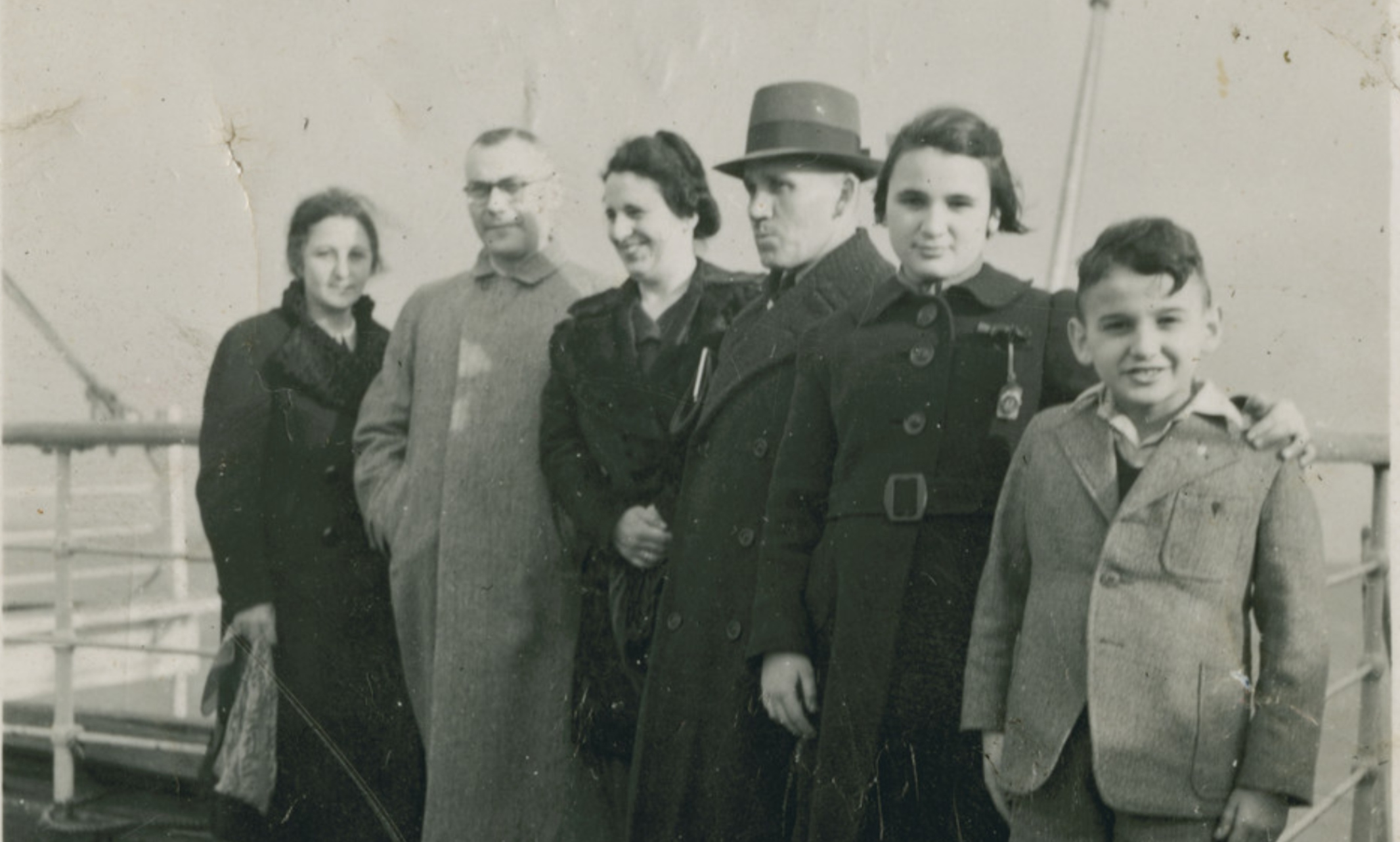
Family with strong UMKC ties furthers future success
Doris Edelman fled Germany with her family when she was a teenager as violence began to build against Jewish citizens. She instilled the value of education into her three sons, Mark, Alan and Ron, who have established an endowed scholarship in her name.
“My mother was the principal influence in our lives,” Mark Edelman, J.D. ’75, says of he and his brothers Ron, J.D. ’82 and Alan. “She was German, so there were certain cultural imperatives that worked their way into our home. Her expectations for us were high.”
Doris Edelman’s family left Germany in 1938 following Kristallnacht, or “the night of the broken glass,” in which paramilitary troops demolished synagogues and Jewish-owned businesses and buildings. The event was a precursor to the rise of the Nazi party and the “final solution” to eliminate the Jewish race. Doris’ family sailed to Cuba on the S.S. Rotterdam, one of the last ships bringing refugees from Europe that was allowed to dock in the Americas.
“They were in Cuba for a year and a half before they moved to Kansas City,” Edelman says.
Edelman’s grandfather had owned a men’s clothing store with its own workroom in Germany. A cousin sponsored the family’s immigration to the United States and Brand and Puritz, a Kansas City Garment District manufacturer, offered his grandfather a job.
“My mother was the principal influence in our lives.” - Mark Edelman
Eventually, Doris Edelman enrolled in Kansas City University and earned degrees in Spanish and economics in 1947. Her husband, William, earned a psychology degree from the university in 1954 while supporting the family as a practicing physician.
“My mother was a very bright woman,” Edelman says. “After she graduated KCU, she translated overseas cables for Butler Manufacturing. She became the first woman vice president and partner at B. C. Christopher & Co., a securities and brokerage firm. She loved going to work and being a part of that business.”
In addition to work, education was very important to Doris.
“I wanted to be a filmmaker,” Edelman says. “She did not think that was very serious. She said, ‘Mark, you can always be a filmmaker if you go to law school, but you can’t be a lawyer if you go to film school.’
I forgot to say ‘I don’t want to be a lawyer.’ So I ended up in law school at UMKC, which turned out to be a great foundation for my career.”
Edelman’s connection to the university began years before law school.
“My parents took advantage of all the things an urban campus like UMKC can provide to the city,” he says. “My love of the theater grew from my experiences of going to the Missouri Rep while in high school.”
“When my brothers and I began to think about what we could do to honor her memory, we decided that a scholarship that would enable refugees like my mother to have an education was the best thing to do.”- Mark Edelman
Edelman founded the Theater League, Inc., a not-for-profit performing arts organization that presented the best of Broadway to Kansas City audiences for 42 years. He built the Quality Hill Playhouse and produces 12th Street Jump, a syndicated public radio show hosted on KCUR-FM 89.3, another UMKC institution.
His brother Ron and Alan’s son Alex also attended UMKC law school. The family will be recognized with the 2020 Legacy Award at the UMKC Alumni Awards ceremony which will take place in spring of 2021. Their deep and broad connection to the university contributed to honoring Doris Edelman with a scholarship.
“When my brothers and I thought about how we could best honor her memory, we decided on a scholarship that would enable refugees like her to get a college education,” Edelman says. “I think she’d like that. She was proud of us and I think she’d be proud of our association with the university.”
For more information about scholarships, please contact Financial Aid and Scholarships.
Jun 23, 2020
Coding academy is backed by the Full Employment Council and the University of Missouri-Kansas City
The UMKC School of Computing and Engineering and Full Employment Council created this partnership to deliver a 21st century workforce in Kansas City. Read the Startland News story.
Jun 23, 2020
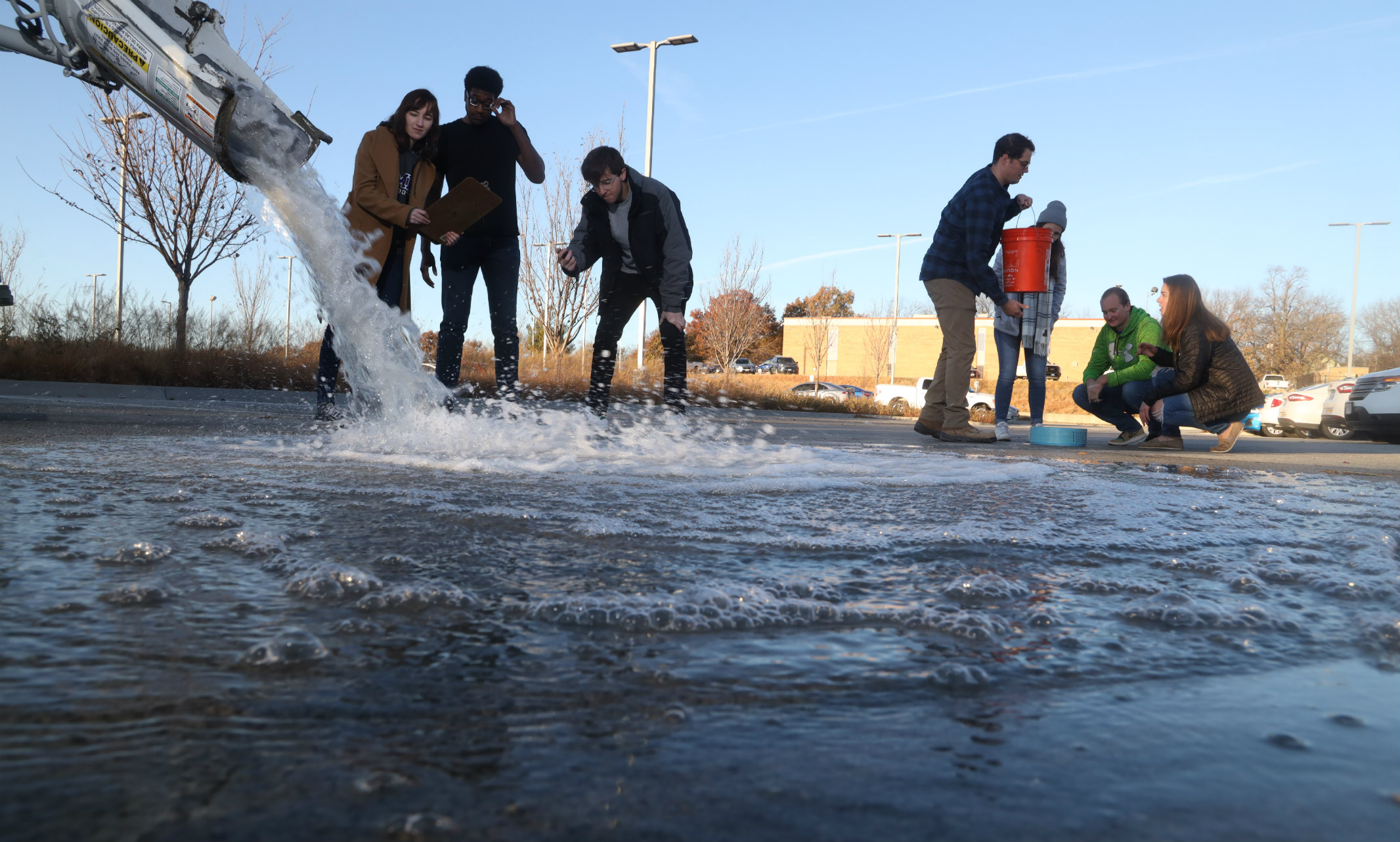
How a UMKC researcher is paving the way for sustainability
Our global temperature is on the rise, oceans are warming and extreme weather events have been steadily increasing. According to NASA, “the current warming trend is of particular significance because most of it is extremely likely (greater than 95% probability) to be the result of human activity."
Kevern with students makingconcrete in an SCE lab.
Luckily, humans from the UMKC School of Computing and Engineering are developing ways to make their respective areas of expertise more environmentally friendly. John Kevern, Ph.D., professor and civil and mechanical engineering department chair, has been working with SCE alumni as well as Kansas City architects, builders and concrete companies to increase the amount of pervious concrete used around the city.
Pervious or permeable concrete is a porous mixture of cement, water and coarse aggregate. The beauty of the lumpy, holey concrete that has the consistency of a rice cake is that it serves as pavement and stormwater mitigator in one. It can also help prevent floods, control erosion, allow groundwater recharge and improve water quality through filtration.
Bonus: Pervious concrete doesn’t freeze over like normal pavement. It’s less slippery since the water has a smaller surface area to freeze on. A recent $55,000 EAGER grant – which support exploratory work in early stages with opportunity for high risk-high reward – from the National Science Foundation allowed Kevern and SCE students to experiment with de-icing and slip and fall.
“For society, from an equity and access perspective, any surface where we can reduce the chance of a slip and fall makes both a safer surface and allows us to use less de-icing agents like salt. Salt is not only bad for the environment but it also reduces the lifecycle of concrete,” Kevern said of his NSF research.
Kevern, who is a member of the advisory group for the American Public Works Association’s Sustainable Stormwater Task Force, is also researching a greener way to produce the cement used in concrete by reducing the amount of carbon dioxide emitted throughout the process. Using recycled ingredients — like the byproducts of coal burning power plants or iron and steel production — in the cement mix drastically lowers CO2 emissions.
Kevern ran the numbers on CO2 in Kansas City and found that the city used 2.5 million cubic yards of concrete in 2018, which equals 663,375 tons of CO2. The average Kansas City vehicle is responsible for 10.690 pounds of CO2 each year.
That means that if you use a mix of concrete that’s made of 35% recycled byproducts, the CO2 reduction would be equivalent to taking 42,000 cars off the road. Increase to 50% recycled byproducts, and the equivalent is 60,000 vehicles.
“The production of cement for concrete is somewhere around 8-10% of the human-produced carbon dioxide in our atmosphere — there are many other things that are more but it’s not insignificant — anything we can do to replace cement and reduce the CO2 footprint of our concrete is helpful from a climate change perspective,” Kevern said.
Concrete and Beyond
The increased greenhouse gases can also account for an increase in extreme weather changes. In Kansas City, stormwater and flooding have raised an early challenge.
"Building physical models is nearly a lost art. When computers came around, everyone thought they’d take the place of physical models, but unfortunately they aren’t able to predict flooding as accurately.”—John Kevern, Ph.D., UMKC professor and civil and mechanical engineering department chair
Kevern regularly works with KC Water, the city department responsible for accessibility and quality of water services around the city, including School of Computing and Engineering alumni like Tom Kimes (B.S.C.E. ’87), manager of stormwater engineering, and Jose Lopez (B.S.C.E. ’15), watershed planner.
KC Water recently installed several different types of concrete, including contracting Kevern to install pervious concrete, in the parking lot of their offices to test the long-term benefits of each. Kimes and Lopez are also working on a way to combat the longstanding stormwater and sewer issues that have plagued the city for years and will be exacerbated by the added rainfall that climate change brings.
After several years of repeated flooding from nearby Indian Creek, the City of Kansas City, Missouri, bought the land and demolished the strip mall that stood at 103rd Street and Wornall Road. The mall was home to Coach’s Bar & Grill, where two employees had to be rescued from the roof by firefighters during severe flooding in 2017.
Kevern (left) regularly partners with SCE alumni at KC Water to examine stormwater and sewer issues that have affected the Kansas City area for years. Here he is pictured with watershed planner Jose Lopez (B.S.C.E. ’15, center) and manager of stormwater engineering Tom Kimes (B.S.C.E. ’87, right) with a model they are constructing inside the KC Water building to identify various flood risks and ways to combat them.
Now, the city, along with KC Water and the Army Corps of Engineers, are building a 70 feet long by 25 feet wide physical model of the area inside a building downtown, to better identify the flood risks and how to combat them.
It’s an innovative approach. Kimes says not many places are able to produce physical models and having two experts in the city — UMKC adjunct professor Don Baker and associate professor Jerry Richardson — is especially valuable. Lopez has been working on the model since its inception – he started working on the scaling for the project while still a student at UMKC.
“Instead of something to be protected from, I’d like to see us embrace rivers as the valuable parts of our ecosystem that they are.”—Tom Kimes, B.S.C.E. ’87
Kevern agrees, “Building physical models is nearly a lost art. When computers came around, everyone thought they’d take the place of physical models, but unfortunately they aren’t able to predict flooding as accurately. I’d estimate there are less than a handful of places that have people with the knowledge and technique needed to build physical models.”
That’s not to say computers are totally out of the picture. Lopez says they will “flood the model several times to get the flow patterns, then make the computer model reflect those.”
Once the research on flooding is done, the area will become a park complete with pervious concrete, green space and information about Indian Creek.
Focusing on Stormwater Research
In May, Kevern and the School of Computing and Engineering will team up with KC Water and several other stakeholders – including FEMA, Unified Government of Wyandotte County and the Army Corps of Engineers – to launch the Center for Urban Stormwater Research. The first project the center will focus on is a FEMA grant exploring ways to educate the public about the risks of flooding.
Kimes hopes that Kansas City is able to manage stormwater in a way that leads the nation and turns the city’s “wild rivers” into community assets even with added rainfall.
“Instead of something to be protected from, I’d like to see us embrace rivers as the valuable parts of our ecosystem that they are,” Kimes says.
Jun 22, 2020
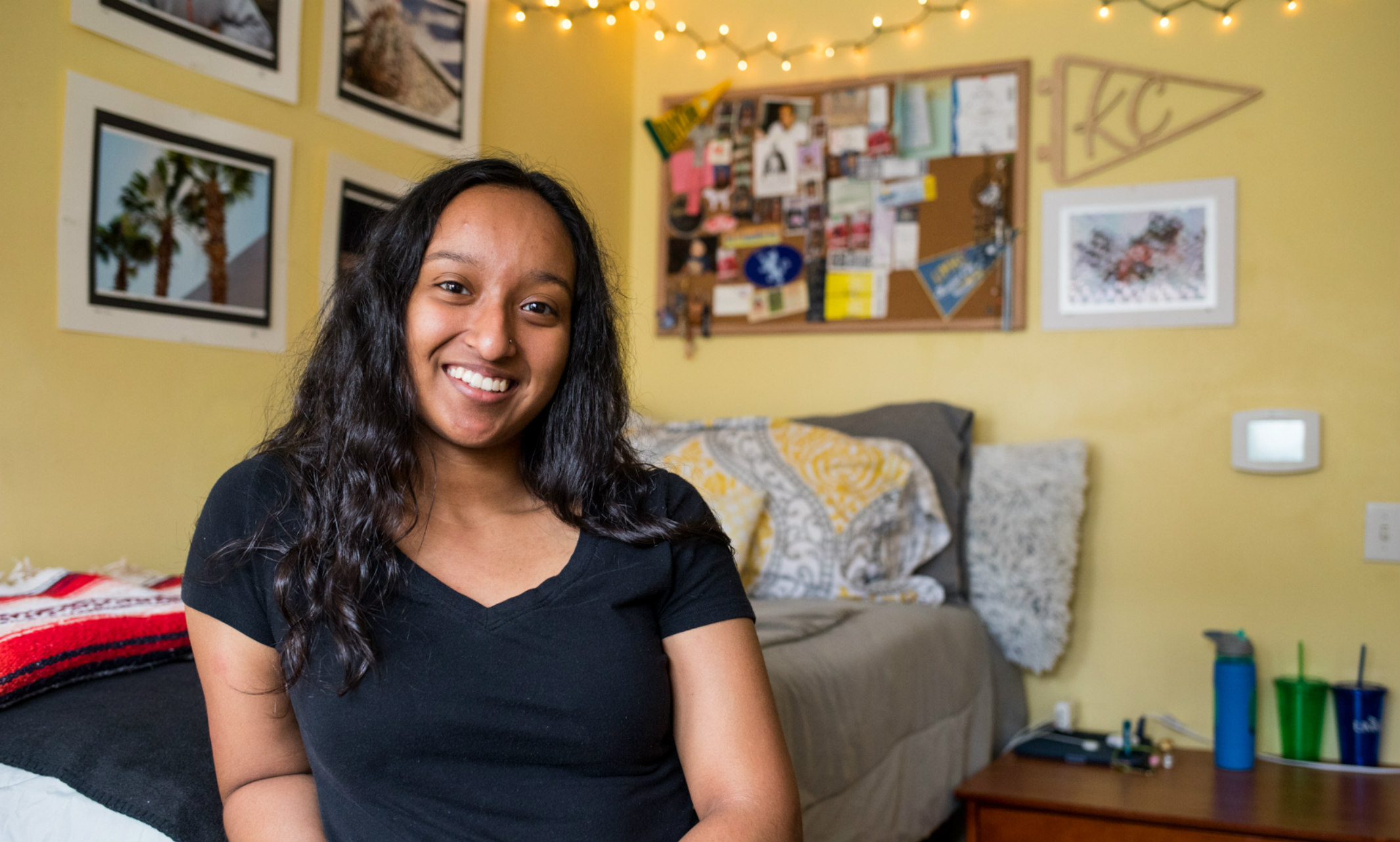
Residential Life and Dining Services take extra precautions due to the pandemic
One of the most rewarding and memorable parts of the college experience is living on campus and forming friendships with other students.
Considering that importance with the pandemic top of mind, here are seven steps UMKC is taking at the beginning of the fall semester with campus housing and dining services to ensure students have a fun but safe place to live, learn and grow.
1. Guest policy
Guests will be limited to residents from the same building, caretakers and those assisting with move in and move out only. Roommates and suitemates must establish their own visitation rules for their room/apartment.
2. Room configuration
Furniture will be arranged to maximize distance between individuals. Additionally, beds may not be bunked to ensure adequate distance is being maintained. However, lofting will still be allowed in Oak Street Residence Hall.
3. Community spaces
Study and community lounges will be closed at the beginning of the semester. Kitchens will remain locked but available for use by checking out a key at the building’s front desk; cleaning supplies for residents will be provided with the expectation that they clean up after each use. Elevators will be limited to two people to allow for physical distancing. Lobbies, access doors, laundry rooms and public restrooms will have additional cleanings.
4. Equipment checkout
Front desk services are limited to essential operations to reduce traffic flow. Board games, kitchenware, sports items, pool cues and other items are temporarily suspended.
5. Dining service
Service at all locations, both residential dining and retail dining, will be either directly served or pre-packaged. There will be no self-service. On-premise dining will be limited to 50% of seating capacity at all locations.
6. Modified dining hours
Dining Center hours will be modified to allow for more frequent cleaning and disinfection of the dining area between meal periods, while offering longer periods of time for students to access the full breakfast, lunch and dinner offerings.
7. New app
A new app will allow students to place orders, complete secure payment using their dining plan or payment card information and schedule pick-up times at all locations, which are moving toward contactless entry and transactions. FreedomPay at all locations currently accepts Apple Pay and Google Pay.
As the pandemic situation evolves, university leaders will make certain best practices are in place so students have a safe living and learning environment.
Jun 22, 2020
The Kansas City Star calls on UMKC Criminal Justice and Criminology Professor Ken Novak
Ken Novak weighs in on whether the public should have a voice in determining whether police departments allow the use of neck restraints during less-than-lethal encounters. Read more from The Kansas City Star. (subscription required)
Jun 22, 2020
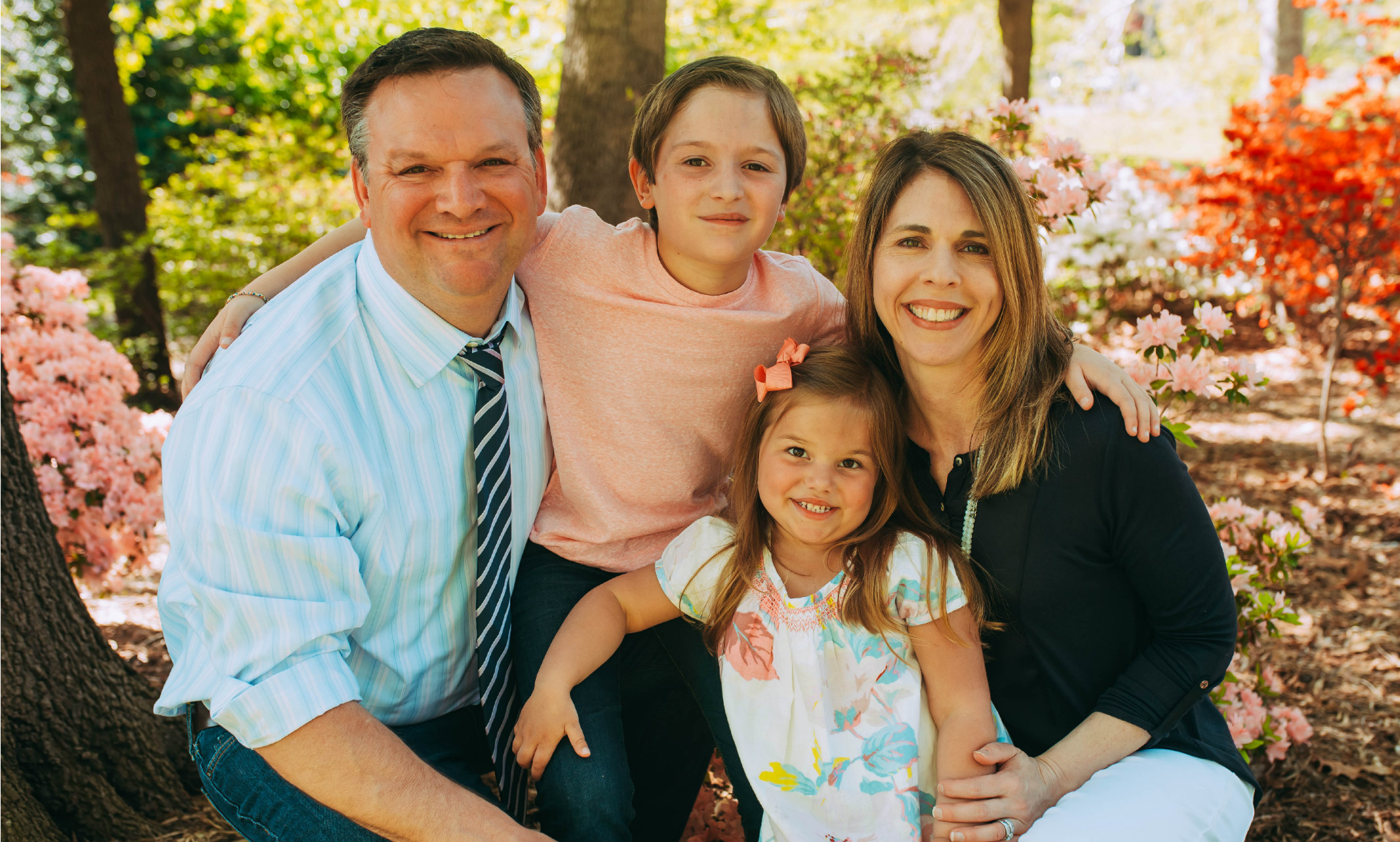
Checking in to see how our UMKC community is managing the highs and lows of sheltering in place
UMKC Provost Jenny Lundgren is sheltering in place with her 5-year-old daughter, 10-year-old son, her husband and their dog. As life takes steps back toward “normal,” their household is beginning to resemble pre-COVID activity.
“My husband goes to work each day and my daughter is back at daycare, so during the day it’s me, my son and our dog,” Lundgren says. “My son spends most of his day playing [the online game] Roblox with his friends, but that will change in July when camps start up. Thankfully!”
Everyone in the Lundgren house is doing his and her share to keep things running smoothly.
“I work best when the house is organized and clean, so that’s been my contribution” she says. “My son has weekly chores and my husband does most of the cooking. We both love to work outside in the yard, so we are doing that together when we have a chance.”
"The work day doesn’t have a starting and stopping place like it used to." - Jenny Lundgren
Even while sheltering in place, home has looked very similar for her family, except the dining room became her office.
“My actual office at home has poor Wi-Fi, so I’ve spent most days in the dining room. That worked well when I was simultaneously home schooling my 4th grade son.”
While Lundgren and her family have managed to blend work and home, it can be challenging.
“The work day doesn’t have a starting and stopping place like it used to,” she says.
Still, the family is finding a way to take breaks and find joy.
“We get to the lake every once in a while, and have the opportunity to spend some time in nature,” Lundgren says. “I love hearing my daughter say, ‘This is the best day of my life!’ I’m reminded that you don’t need exciting vacations to make your kids happy.”
What are you reading?
I wish I were reading more than just emails! I try to practice Spanish on the Duolingo app every day, so that – and emails - are the bulk of my current reading. I just ordered Stamped from the Beginning: The Definitive History of Racist Ideas in America, and I’m looking forward to reading that.
What are you watching?
Bloodline on Netflix
What are you eating?
The only consistent food in my diet is a daily iced coffee with cream and sugar!
Jun 21, 2020
Diane Mutti-Burke explains the significance of Juneteenth and emancipation proclamation
“The emancipation proclamation actually didn’t free any enslaved people," said Diane Mutti-Burke. "Lincoln basically said to the southern states that he was turning the army into an army of liberation and, anywhere that the Union Army went from that point forward, they would liberate people." Read more and watch the story on KSHB's website.
Jun 20, 2020
Three questions with Diane Mutti-Burke, professor and chair of History
June 19 is celebrated throughout the United States as Juneteenth, commemorating the end of slavery in this country. Diane Mutti-Burke, professor and chair of the Department of History, is a historian of the American South and the Civil War with a particular interest in the history of slavery, women and the Missouri/Kansas border region. She discussed the history, meaning and the importance of Juneteenth.
Juneteenth recognizes a specific event in Galveston, Texas – the notification of Black people there that slavery had ended. Why is it considered a national holiday?
The Juneteenth holiday celebrates the official end of slavery in the state of Texas on June 19, 1865. President Lincoln issued the Emancipation Proclamation on January 1, 1863, but it did not immediately free any enslaved people. The order explicitly did not apply to border states like Missouri or areas of the South already under the Union army’s control. Although the Civil War formally ended on April 9, 1865 when Robert E. Lee surrendered at Appomattox, there were still Confederate forces in the field, including in the West.
Texas had remained relatively protected during the war because of its great distance from the fighting. This geographic isolation created a situation in which many enslaved Texans were unaware of the end of the war or their freedom. Union troops finally entered the state in early June 1865, and in Galveston on June 19, Major General Gordon Granger issued General Order No. 3, an emancipation order informing people of their freedom. Since the Emancipation Proclamation was a wartime military order, Abraham Lincoln and Congressional Republicans decided a constitutional amendment was necessary to permanently secure people’s freedom. The Thirteenth Amendment was ratified on December 6, 1865, legally ending slavery in the United States.
In the decades after the Civil War, African American communities throughout the U.S. organized Emancipation Day celebrations to commemorate their liberation from slavery. Many celebrated on January 1, the date of the Emancipation Proclamation, but in some states, they commemorated dates that were specific to their location, such as June 19 in Texas, known as “Juneteenth.” Juneteenth became a Texas state holiday in 1979. Black Texans migrated to other parts of the United States, bringing the Juneteenth celebration to their new communities. In recent years, Juneteenth has become an informal national holiday celebrating African American heritage throughout the United States.
“Juneteenth allows us to celebrate Black Americans’ resistance and resiliency as they fought – and continue to fight – to rectify four centuries of racial discrimination and economic and social injustice.” Diane Mutti-Burke
What can you tell us about how emancipation took place in this region?
When most Americans think about emancipation they focus on the legal or military acts that occurred on specific dates, such as Abraham Lincoln’s Emancipation Proclamation or the Thirteenth Amendment. I would encourage people instead to think about emancipation as a process – one that was as much driven by enslaved people themselves as it was by white emancipators.
Missouri’s border location and politically divided population (with white Missourians supporting both the Union and the Confederacy) resulted in a violent armed conflict between Union military forces and Confederate guerrillas, which actively engaged the civilian population. Many of Missouri’s 115,000 enslaved people took advantage of the chaos of the state’s internal civil war and struck a blow for their own freedom, running away to nearby Union military encampments or to the bordering free states of Kansas, Illinois, and Iowa. Lincoln’s Emancipation Proclamation explicitly did not apply to the border states. But over time, enslaved men, women and children continued to flood into Union military camps, forcing officers to increase protections for those who sought their aid and eventually to authorize their freedom. Many recognized that Black Missourians greatly aided the Union war effort through their labor and the information that they provided about the activities of secessionists and guerrillas, many of whom were their former owners.
Eventually, the Union army enlisted Black men to fight and Missouri men joined in large numbers. Black men fully understood that their enlistment would ensure their freedom and might result in the freedom of their family members as well.
On January 11, 1865, Missouri’s Republican-controlled state Constitutional Convention freed enslaved people in the state through an emancipation ordinance, which predated the passage of the Thirteenth Amendment by three weeks.
What are the important lessons that Americans should take from the Juneteenth celebration?
The Juneteenth holiday provides a wonderful opportunity for both reflection and celebration. The commemoration allows Americans to reflect on the United States’ long and tragic history of slavery, segregation, racial injustice and systemic inequality. It is important that we learn about and reckon with the many painful and destructive legacies of this devastating history and how it affects us still today.
This is an uncomfortable and difficult history to process and study but it is imperative that we wrestle with it. Too often people respond to issues of race as being outdated and irrelevant because slavery and legal segregation ended “so long ago,” but understanding the legacies of slavery, white supremacy and the challenges and pain that the Black community continues to encounter in the face of ongoing systemic racism and inequalities illustrate the importance of this history. At the same time, Juneteenth allows us to celebrate Black Americans’ resistance and resiliency as they fought – and continue to fight – to rectify four centuries of racial discrimination and economic and social injustice. Equally essential, the Juneteenth holiday provides a venue to acknowledge, appreciate and celebrate the profound contributions that Black Americans have made to the economic, social, political and cultural foundations of the United States.
I encourage everyone to spend today in contemplation and celebration of the long history of the Black freedom struggle and the central role that Black Americans have played in building this nation, while also reflecting on how much farther we must travel along the road toward justice and equality in order to achieve America’s promise of a more perfect union.
Jun 19, 2020
Local media outlets covered the news about the new satellite campus for the UMKC School of Medicine
Read some of the media coverage of the satellite campus in St. Joseph. Kansas City Business Journal, KCUR,
Jun 19, 2020
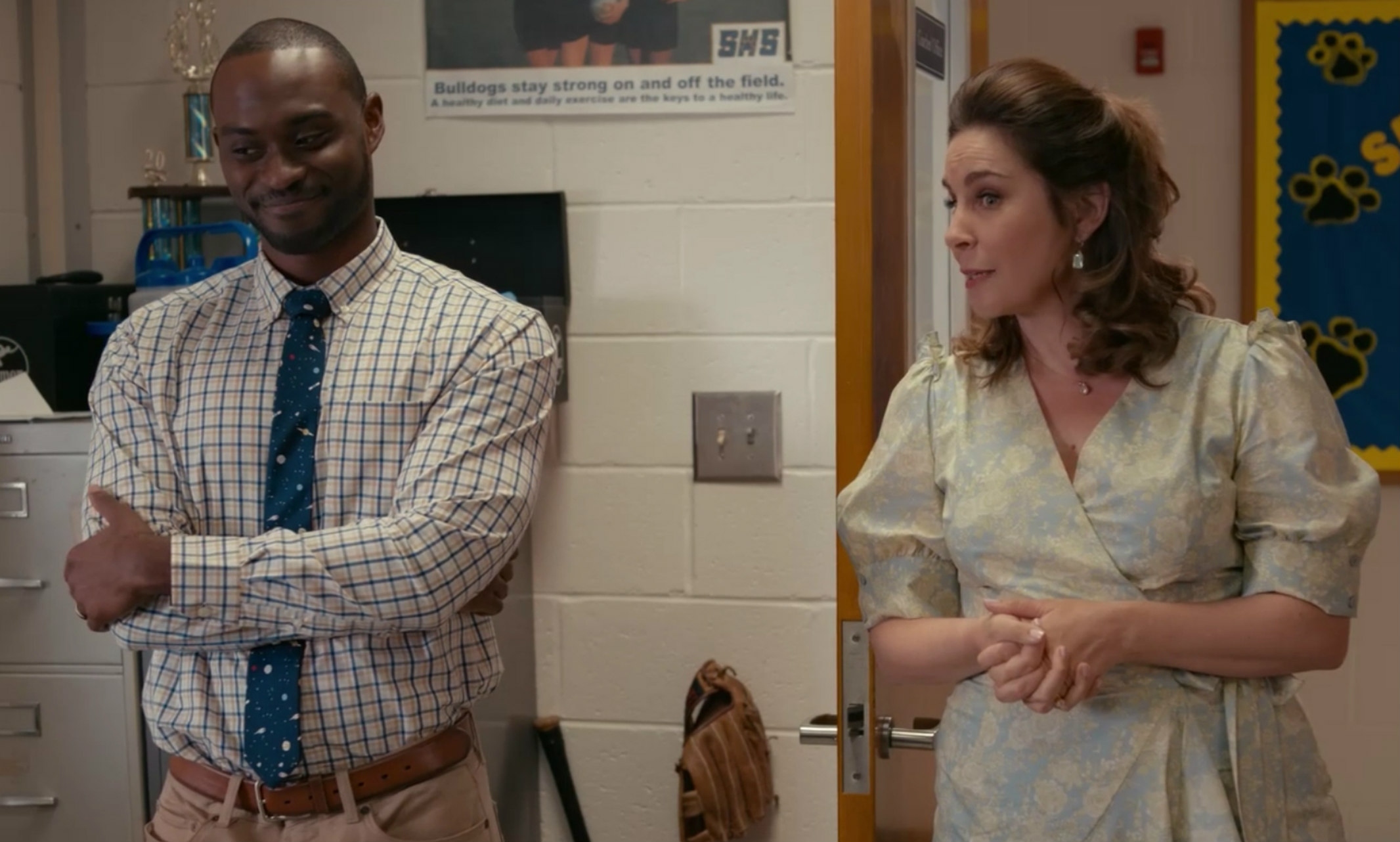
Frank Oakley III draws on his theatre training in role on "Sweet Magnolias"
We caught up with Frank Oakley III (B.A. ’14) a theatre performance grad who is part of "Sweet Magnolias" on Netflix. He spoke with us about what he's learned in the acting biz, his favorite UMKC memory and what’s next.
Frank Oakley III, B.A. '14Photo credit: Mike Senior
How does it feel to be part of “Sweet Magnolias,” one of the most popular shows on Netflix right now?
It honestly still hasn’t fully hit me yet! “Sweet Magnolias” was released on Tuesday, May 19, and the very next day we were #5 in the U.S. We kept climbing up the ranks, and by that Sunday were #1 on the world’s largest streaming platform! After holding down that spot for a few days, I think that’s when things started hitting me. To say the very least, it’s surreal to be a part of a show that so many people connected with, supported, and loved so much to get us to that point in less than a week!
Was Harlan Bixby, in "Sweet Magnolias," your first recurring role on a series? What did you learn from the experience?
Yes, it was my first recurring role on a series. I’ve learned so much from filming the first season, but the two biggest things came from the callback room and being on set.
First, I learned that you really can’t go off of how you feel you did in the audition/callback room, because it isn’t always true. I felt like I was completely bombing my callback audition — and in front of some major players in the process! I psyched myself out by getting into my head too much, but once I was able to relax, I feel like I did much better.
Then, the filming process just really affirmed how valuable my training from UMKC is. I was able to do my job, play with other seasoned actors and adapt to any changes made during the process in a quick manner.
The takeaway in both lessons: it’s all about your mental game. From the audition to working on set, you have to trust your training, trust the process and keep a strong mental game.
What are the challenges of being an actor? The benefits?
Some of the more universal challenges I’ve found as an actor are getting established, creating a name for yourself, defining what your brand is and booking work. For the most part, we as actors can have some control over those challenges, with the exception of the seemingly most important one — booking. That said, I’ve found that once I was able to define what my brand was for me, set up boundaries, and was willing to stand firm on what I mapped out, everything followed suit.
The benefits (besides booking work) are doing work that you’re proud of and believe in and getting to collaborate with some amazing people to create and play! I know it sounds like an artsy-fartsy thing to say, but man, it is real and rewarding. To be a part of a larger picture or body of work, and to share that with both fellow artists/creators and the audience, is truly a blessing and privilege.
Oakley, pictured right, with Justin Bruening in episode four of "Sweet Magnolias." Still courtesy of Netflix.
What brought you to UMKC?
It is truly a long story, but in an attempt to condense a bit: one audacious prayer, teachers and mentors believing in me, and the kindness and support of people. At the beginning of 2011, I was sitting in contemplation in my dorm room at my first college, trying to figure out whether or not I’d be truly satisfied with a career in broadcast journalism. A thought sparked in my mind: maybe acting.
I reached out to my high school debate/forensics coach, Ms. Michelle Lee, about possibly trying out acting. She sprang into action and shared with me a bucket of resources — everything from colleges with awesome theatre programs to prestigious theatre summer camps. After some research, I was considering transferring to UMKC and auditioning for the Perry-Mansfield Performing Arts School and Camp.
While waiting to see if I got accepted, I auditioned for the camp. And I got in with a partial scholarship! I couldn’t afford to pay the remaining balance, so Ms. Lee helped me sell candy bars. I knew this was a really hard hump to overcome, so I prayed “God, if this is something I supposed to do with my life, help provide a way for me to attend this camp. If I’m able to go, then I know this is what you have for me to do with my life.”
As it got really close to time to go, I was told that the rest of what I couldn’t earn from selling candy bars was covered, and that I’m heading to camp. Later in life I found out that Ms. Lee and Melinda McCrary (director of education and community programs at the Kansas City Repertory Theatre) funded the rest.
Once I got that confirmation of being able to go, and getting accepted into UMKC, that was all I needed to know. It was off to UMKC with purpose and a mission!
Oakley pictured with his future wife, Anna, in the production of Three Sisters at UMKC in 2013. Photo Credit: Brian Paulette.
Do you have a favorite memory from UMKC?
Cheesy, yes, but true: meeting my wife, Anna Oakley! (She was Anna Day at that time, B.A. '15). We met and worked together for the first time on a show “Cover of Life” in November of 2012. But our relationship actually started to bloom while we were doing a show together “Three Sisters” in October of 2013. Hands down, favorite memory.
What advice do you have for students entering UMKC?
I actually have three pieces of advice. And honestly these are for everyone, no matter what your life path is. I say these a lot, but it’s something that is extremely imperative to grasp and understand from the beginning. It will save you a lot of time, frustration, and darkness:
You are always enough, no matter what!
Don’t give up, what is for you is for you. Regardless of the circumstances or odds.
Don’t find your identity in your craft. Your worth is in who you are, and not what you do!
What other projects are you working on? Where else can we catch your performances?
As of now, there isn’t anything I’m working on, due to the pandemic. However, I will be in an episode of a series called The Underground Railroad. It is an upcoming American historical fiction drama limited series directed by Barry Jenkins. The series is set to premier on Amazon Video in the near future. I’ve had the privilege to be a part of some really amazing and special projects, and almost all of them can be found online. Feel free to go to my website at www.frankoakleythethird.com to check them out!
Jun 18, 2020

New campus in St. Joseph in partnership with Mosaic Life Care will increase rural health care
The University of Missouri-Kansas City School of Medicine is expanding its program to St. Joseph, Missouri, to address the state’s rural physician shortage.
UMKC received a $7 million grant from the Health Resources and Services Administration (HRSA) to start the new program in January 2021. HRSA, the primary federal agency for improving access to health-care services for people who are uninsured, isolated or medically vulnerable, will pay out the grant over four years.
“We are thrilled we will be able to address a critical health-care need in Missouri,” said Chancellor Mauli Agrawal, Ph.D. “This will enable more patients throughout the state to get better access to high-quality medical treatment.”
The need is great in the United States – the American Association of Medical Colleges projects a shortage of nearly 122,000 physicians by 2032, with primary-care physicians making up almost half of this shortage. And the need is especially great in Missouri: the state has 250 primary-care health professional shortage areas, including 109 of its 114 counties. It ranks No. 40 among U.S. states in terms of health.
“The disparities in care in rural areas result in higher rates of death, disability and chronic disease for rural Americans have intensified during the COVID-19 pandemic. Expansion of our medical school to the northwestern region of our state will serve to bridge this gap, knowing that students training in rural programs are three times as likely to remain in practice in those areas.” - UMKC School of Medicine Dean Mary Anne Jackson
“Missouri is facing a physician shortage in the next five years, creating major challenges for rural communities,” said U.S. Senator Roy Blunt (Missouri). “As chairman of the appropriations subcommittee that funds the Department of Health and Human Services, I started the Medical Student Education Program to ensure resources were specifically targeted toward improving access to care where it’s needed most. I am glad to see the University of Missouri-Kansas City focusing efforts on addressing that challenge by training more physicians to practice medicine in rural and underserved areas. This is great news for UMKC and the St. Joseph community.”
Typically, physicians remain in the areas where they go to medical school, and 80 percent of UMKC School of Medicine students are from Missouri and the surrounding counties, said Mary Anne Jackson, M.D., dean of the school. “The disparities in care in rural areas result in higher rates of death, disability and chronic disease for rural Americans have intensified during the COVID-19 pandemic. Expansion of our medical school to the northwestern region of our state will serve to bridge this gap, knowing that students training in rural programs are three times as likely to remain in practice in those areas.”
“I love how tight-knit communities are in rural areas. We're going to be surrounded by the environment we want to pursue a career in.” - Ashley Ayers
While the UMKC School of Medicine is known for its innovative six-year B.A./M.D. program that admits students directly from high school, it will offer a four-year M.D. program in St. Joseph open to students who have already earned a bachelor’s degree. This M.D. track option has been part of the school tradition since opening its doors almost 50 years ago.
Ashley Ayers of Curryville, Missouri, is excited to be a student in the first class of the UMKC School of Medicine in St. Joseph.
"I love how tight-knit communities are in rural areas," Ayers said. "We're going to be surrounded by the environment we want to pursue a career in."
“I am glad to see the University of Missouri- Kansas City focusing efforts on addressing that challenge by training more physicians to practice medicine in rural and underserved areas. This is great news for UMKC and the St. Joseph community.” - U.S. Senator Roy Blunt
The new program in St. Joseph will expand the UMKC School of Medicine M.D. program by adding 20 students in St. Joseph to each cohort of about 100 students in Kansas City, said Steven Waldman, M.D., J.D., program director and principal investigator on the grant, and vice dean and chair of Humanities at the UMKC School of Medicine. The co-investigators on the grant are Michael Wacker, Ph.D., associate dean of academic affairs, and Paula Monaghan-Nichols, Ph.D., associate dean of research administration, both from the UMKC School of Medicine. The four-year program eventually will allow the UMKC School of Medicine to train 80 additional medical students.
“The receipt of this federal grant, as well as the partnership, will allow the UMKC School of Medicine to expand our mission of training superlative physicians and health-care professionals to care for our most vulnerable populations,” Waldman said. “The addition of the UMKC School of Medicine’s St. Joseph campus will greatly enrich rural health-care education for our students.”
In addition to the grant, the expansion is possible because of a partnership with Mosaic Life Care, located in St. Joseph. Mosaic is one of the largest private rural primary-care networks in the U.S. and a member of the Mayo Clinic Care Network. Students will be able to learn and train in Mosaic’s rural healthcare network.
“This is an exciting opportunity for Mosaic to become an academic health care provider in the region," said Davin Turner, DO, chief medical officer of Mosaic Life Care. "As Mosaic has expanded into Maryville and Albany, we look to broaden the scope of health-care services to ensure the long-term sustainability of high-quality health care in the communities we serve. Innovative partnerships like this with UMKC help us address rural health care gaps in our area.”
Here's what student space looks like at the new UMKC School of Medicine at Mosaic Life Care in St. Joseph, Missouri.
Other partners:
Truman Medical Centers, the primary teaching hospital for the school, has a mission dedicated to providing public health and specialty services for those with financial, health or insurance issues that limit access to care in Kansas City. Students, residents and faculty who are based at Truman in Kansas City will be able to learn and teach at Mosaic in St. Joseph and collaborate on care for patients.
UMKC Health Sciences District is a partnership of a dozen health-care entities including four UMKC health professions schools. This further expands the district’s reach into rural health care.
UMKC STAHR (Students in Training, in Academia, Health and Research) Partnership Program is committed to increasing the number of students from educationally and/or economically disadvantaged backgrounds who are prepared to enter, persist and graduate from a UMKC health sciences degree program. STAHR serves as a mentorship resource to students.
UMKC has a successful track record of creating rural health education programs in Missouri. The UMKC School of Pharmacy includes satellite campuses at the University of Missouri in Columbia and Missouri State University in Springfield.
Jun 18, 2020
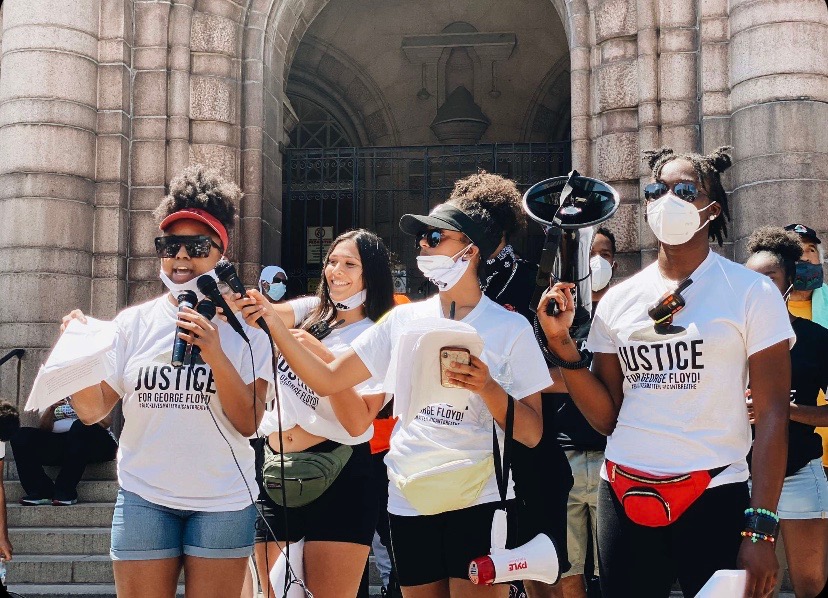
Education senior Daishanae Crittenden incorporates her passion for teaching into her activism
School of Education senior Daishanae Crittenden has a clear idea of how she wants to structure her future classroom – as a team. Her passion for teaching and her want to help shape the lives of her students fuels her activism in the community. Though she’s only had practicum teaching experience so far, she’s already hard at work showing her future students that she’s advocating for them not just through their academics, but also through social justice. This is her story.
Why did you choose to attend UMKC?
I knew I wanted to get out of St. Louis, but I didn’t want to go too far because I wanted to be able to come back and visit my mom. My mom is like my best friend. She’s one of my biggest supporters. Kansas City is similar to St. Louis – just a little smaller; and UMKC isn’t small but it isn’t too large either. Plus, in the School of Education, the classes are smaller. I was able to get out and work in the field and get practicum teaching experience earlier than I would at a larger school.
"I want my future students to see that I did this, that I’m fighting for them. We have to fight for things to be better for future generations."
What drives your passion for wanting to be a teacher?
Growing up all my teachers told me I would become a teacher. My mom was a teacher for many years. She instilled the value of education in me. I’m also the oldest of five; I have four younger brothers, so teaching kind of came naturally. I denied it for a long time but eventually, I accepted it. I love kids. I don’t care what grade I teach; I just know that I want to teach children and be a part of shaping their lives.
What other student activities are you involved in at UMKC?
Being in education doesn’t give you a lot of free time because I’m doing practicum work in the schools. I was part of the student government at the School of Education, and then I also participate in NAACP and The African American Student Union when I do have time.
"Our protest was about unity. It was about all of us being on the same team; we are fighting for the same cause."
Speaking of which, tell me about the large protest you were a part of organizing in St. Louis.
That was so exciting. I still can’t believe I did that.
It was me and three friends I went to school with. It was right after the murder of George Floyd. I remember waking up one day to a bunch of texts in our group chat and we were all talking about how we need to do something. We couldn’t just sit by and do nothing, and there hadn’t been anything organized by women in our city and we need to hear women’s voices too. So we came up with the idea to have a protest. I was kind of nervous about it because I’ve never organized a protest before.
Wow! I wouldn’t have guessed that. From the media coverage and feedback, it seemed really organized. How long did it take you to organize?
We pulled it off in like 8 days, so there were a lot of long nights. We made the flyer and posted it and, with all of our connections, people started sharing it on Facebook.
We had eight speakers, including an educator, a Pride representative, a speaker from the first Black Lives Matter movement in Ferguson, Cori Bush, who was a campaign surrogate for Senator Bernie Sanders, and a local pastor. We had a lot of people who wanted to speak but those are the ones we chose.
How did you narrow down your choices for speakers?
Each of the speakers were vetted. We shared a Google Form for potential speakers to complete and let us know what they wanted to talk about, and then we did Zoom interviews with the people we were interested in hearing from. We also sent follow-up letters to let everyone know whether or not they were selected. During the protest, we strategically placed our speakers in a certain order. The first group of speakers spoke prior to the march at City Hall to inspire and motivate the protestors, and the second group of speakers spoke at the downtown St. Louis Police Department to further discuss the deeper systemic issues within our country and why we are fighting this fight.
Some people already had scripts written and submitted them with the Google Form, but we asked for final copies of everyone’s script closer to the event because you just never know what someone will get on the mic and say. We didn’t want any surprises, and we didn’t want anyone to say anything that might incite violence.
The attention to detail is impressive. How were you able to ensure it remained peaceful the entire time?
We really made sure everyone knew that it was going to be peaceful. We couldn’t say that enough. We included that in everything we put out. And people who know me know that I don’t like violence or drama. It’s all about how you present yourself to the public, so people know that’s not what I’m about. More importantly – and I know not everyone is religious – but I have faith in my God and He had us.
We marched from downtown City Hall to the police headquarters without any problems. We didn’t want to agitate the officers and meet anger with anger, but we did make sure we had someone there to read everyone their rights before we started walking. People also donated bail funds in case we had to get anyone out of jail.
Our protest was about unity. It was about all of us being on the same team; we are fighting for the same cause.
"Growing up all my teachers told me I would become a teacher. My mom was a teacher for many years. She instilled the value of education in me."
Circling back to teaching, how do you apply the lessons you’ve learned at the School of Education to your activism?
In education, you learn to work with people from different backgrounds but with similar interests and outlooks. We did that with the protest, and I want my classroom to be structured like that. I want my students and me to work together and win together, and I never want them to feel like they can’t come and talk to me. I want my future students to see that I did this, that I’m fighting for them. We have to fight for things to be better for future generations.
Protest organizers left to right: Bersabeh Mesfin, Natasha Jain-Poster, Brooke Jones, and Daishane Crittenden
Lastly, what has this experience taught you?
I learned that I am capable of leading a crowd. Nearly 5,000 people showed up and we led them. I also learned that it’s OK to be flexible and wing things. You can’t micromanage a protest, just like you can’t micromanage a classroom. You have to just take things one step at a time.
Half the people that showed up were allies, which goes to show that skin color is an excuse. So is age. We had babies walking with us! This protest was all-inclusive. We tried to make sure everyone was represented and felt that Black lives matter, Black trans lives matter…Black people matter. We had an ASL interpreter signing everything, as well, to make sure the deaf community knew what we were saying. It was an amazing experience; I still can’t believe I did that.
People have been asking when we’re going to plan another one and we keep saying we need a minute to breathe. This took a lot out of us. It’ll have to be in the next month or so, though, because we all attend different universities across the country, and we’ll have to go back to school soon.
Of course, I’m at UMKC, one of the girls goes to Xavier University, which is an HBCU in Louisiana; one attends the University of Miami and one attends the University of California-Irvine. Had it not been for COVID, we wouldn’t have been able to pull this off. We just all happened to be home because the universities closed.
Jun 18, 2020
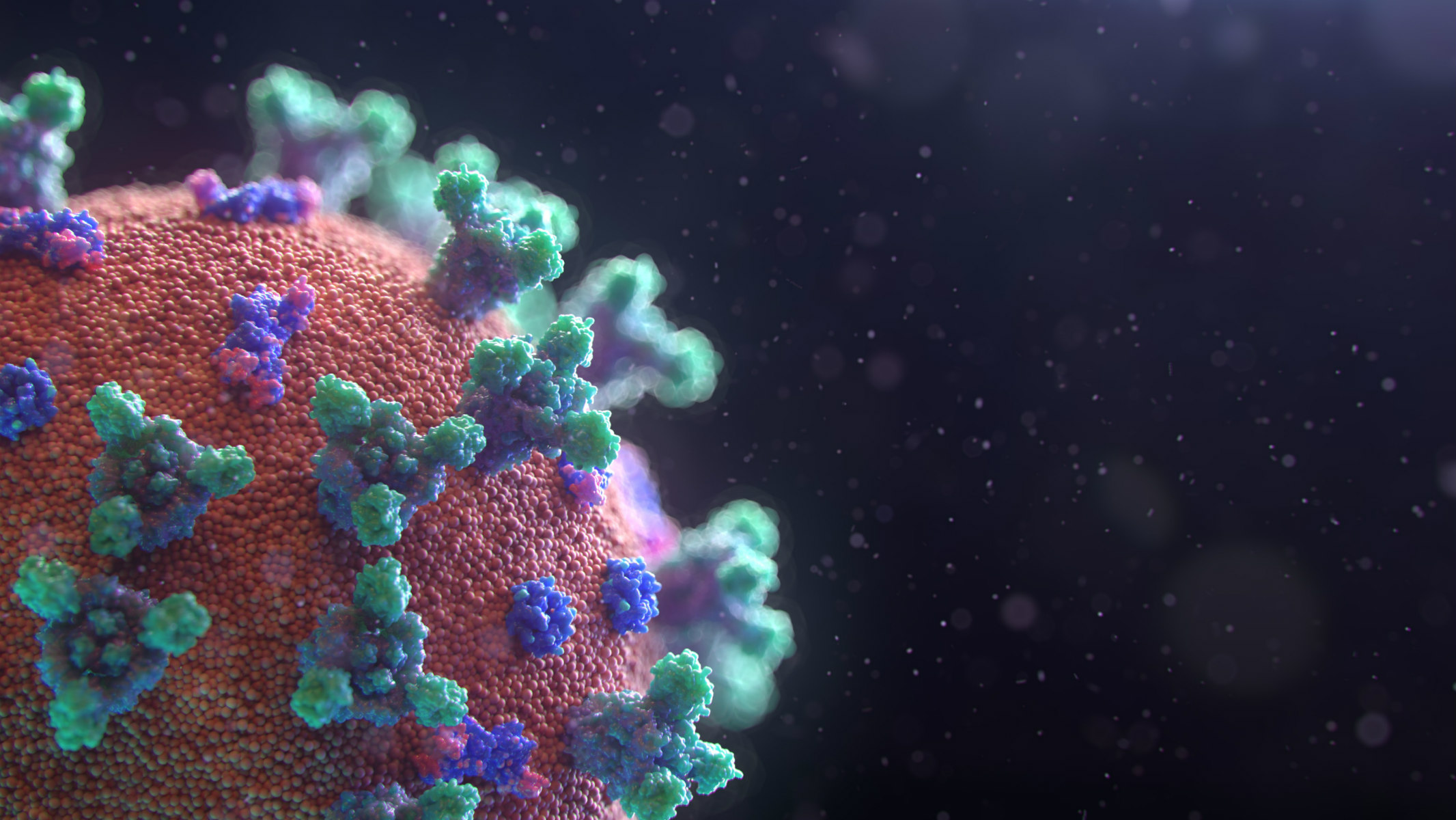
The National Science Foundation awards UMKC nearly $200,000
For scientists to develop a successful vaccine to fight COVID-19, they must understand the structure of a virus and how it attacks human cells. The National Science Foundation (NSF) recently awarded UMKC researcher Wai-Yim Ching, Ph.D., $199,640 to identify the cell structure of components of the virus. This is the university’s first national grant directly for COVID-19 research.
“In early March, I was reading a paper published in a science magazine about the virus’s structure,” says Ching, who is a Curator’s Distinguished Professor in the College of Arts and Sciences. “I thought I might be able to do some calculations.”
Within two weeks, he had some credible preliminary results. About the same time, NSF made a special call for requests. He submitted his early finding in a five-page proposal that he developed with his assistant, Puja Adhikari, Ph.D., a recent UMKC graduate and postdoctoral fellow.
“Within five weeks, we had a decision,” Ching says. “That’s very fast – and we were very happy.”
Understanding the structure of the virus through large-scale computer modeling will pave the way for highly efficient vaccine development and antiviral drug design, potentially at a lower cost. To identify accurate data on the structure of the virus, Ching will work with Adhikari, undergraduate students and external collaborators.
“The support of the Office of Research Services and Research Support Services was significant. It would have been difficult to submit our request so quickly without them,” Ching says.
Vice Chancellor for Research Chris Liu, Ph.D., says the research targets the structure and properties of a crucial COVID-19 protein using large-scale computational modeling and is exactly the type of research that the UMKC and the upcoming NextGen Data Science and Analytics Innovation Center (dSAIC) are designed to address.
“Dr. Ching will be providing critical data that could advance the development of a COVID-19 vaccine,” Liu says. “We are excited that his research will contribute to unlocking the complexities of the virus’s structure.”
Chancellor Mauli Agrawal sees the NSF’s support of Ching’s research as a harbinger of the growing success of the UMKC research enterprise.
“We are equipped to provide cutting-edge research by analyzing massive amounts of data, thanks to the research infrastructure development including the upcoming dSAIC. The center will continue to meet current and future demands from the public and private sector and develop solutions for our most critical challenges.”
Ching is already immersed in the research.
“This research is very important,” Ching says. “We need to roll up our sleeves and get working. There is no time to waste.”
Jun 17, 2020
Selections based on demonstrated research excellence and ability to communicate
Three members of the University of Missouri-Kansas City faculty were among the 15 2020-21 Presidential Engagement Fellows introduced today by University of Missouri System President Mun Choi.
The announcement came at the University of Missouri Board of Curators meeting. Presidential Engagement Fellows represent the UM System and share their research discoveries and expert knowledge with Missouri citizens in every county.
This year’s UMKC Fellows are:
Jamila Jefferson-Jones, associate professor, School of Law
Jefferson-Jones teaches courses in Property, Real Estate Transactions and Professional Responsibility. Her scholarship reflects her intellectual interest in theories of property and ownership as well as in property and wealth attainment by communities and groups on the margins of society. Her recent work has three strands: the interplay between and among sex, race, status and property; the intersection of property and criminal justice theory; and the regulation of the housing sector of the sharing economy. She is a graduate of Harvard College and Harvard Law School, where she was an executive editor of the Civil Rights-Civil Liberties Law Review and delivered the graduate English oration at the university’s 346th commencement.
Joey Lightner, assistant professor, School of Nursing and Health Studies
Lightner is director of the Bachelor of Science in Public Health Program at the school. The program combines urban-focused coursework in health policy, health and wellness, health program development and population health outcomes, to prepare students for a wide variety of careers in public health. His research is focused on increasing physical activity for large populations. His current projects attempt to understand how to improve social relationships that may lead to improvements in physical activity behavior.
Joan McDowd, professor and chair of Psychology, College of Arts and Sciences.
McDowd serves as director and advisor for Gerontology programs. Her research interests are in cognitive aging, particularly in attention and memory processes. Although primarily interested in healthy aging, she also applies methods from cognitive psychology to understanding cognition in stroke, Alzheimer’s disease and Parkinson’s disease as well as in severe mental illness. She was awarded the 2017 President’s Award for Community Engagement, which recognizes faculty who are involved in exemplary engagement activities such as volunteerism, service-learning, educational programming and outreach.
“The Presidential Engagement Fellows are among our best scholars and are widely respected by their peers," Choi said. "This group also demonstrates the breadth and depth of the expertise among our faculty. I’m excited as we welcome them. This is yet another example of our commitment to serving the state of Missouri and improving the lives of our fellow citizens.”
Faculty members were selected based on their demonstrated excellence and their ability to communicate their research to the public.
Bookings for the new class of speakers will begin in August. For more information, please visit: www.umsystem.edu/forms/pef-speaking-request-form.
Jun 17, 2020
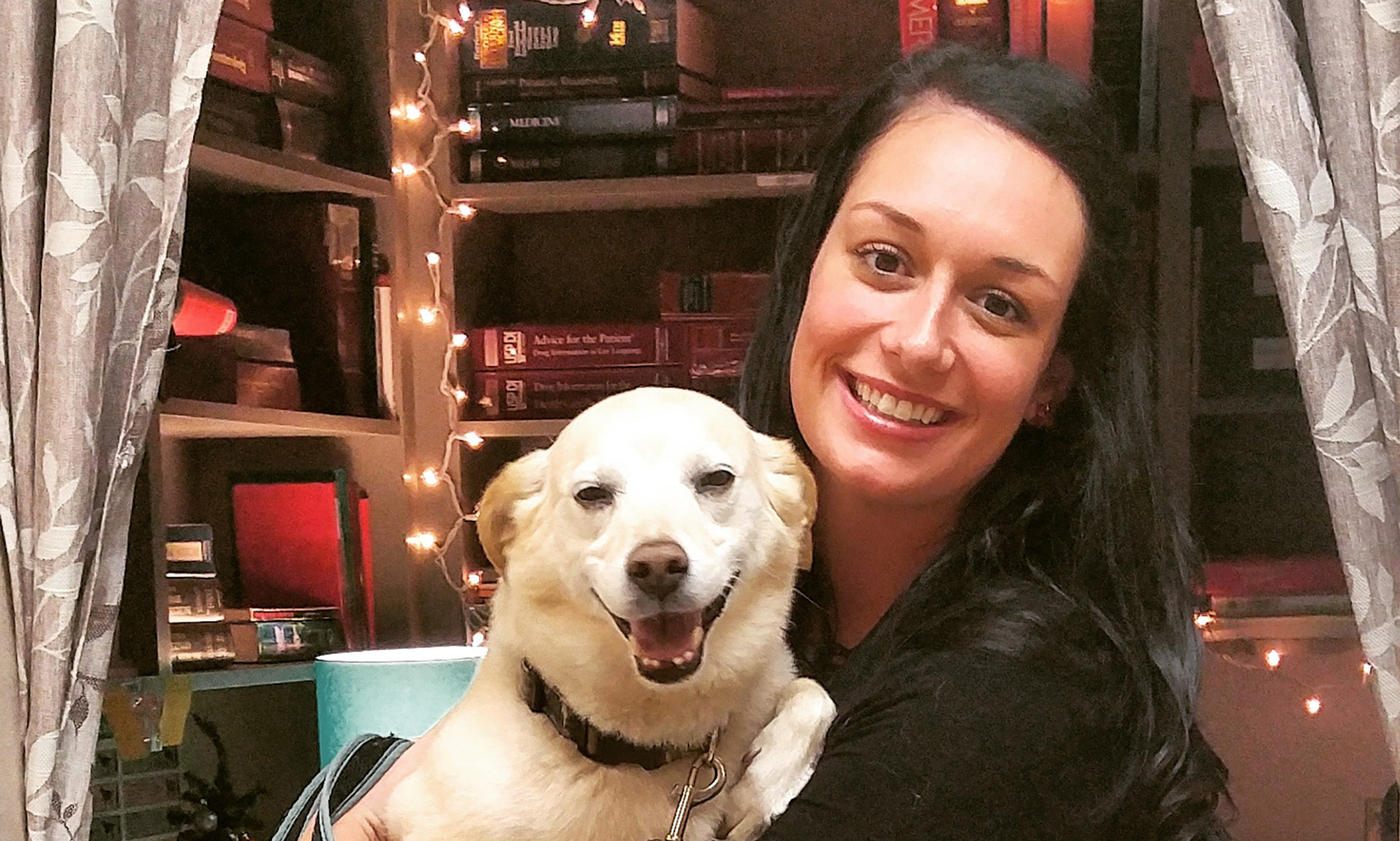
School of Pharmacy’s Emma Stafford is the lead author of the article in the Journal of the American Pharmacists Association
A drug routinely used in treating type-2 diabetes could also make those patients more susceptible to complications from COVID-19 says a report written by a UMKC School of Pharmacy researcher.
The article published in late May in the Journal of the American Pharmacists Association says the drug, captopril, was found to produce a statistically significant higher rate of pulmonary adverse drug effects compared to other drugs in its class.
Emma Stafford, Pharm.D., is the lead author of the article. Stafford worked with a group of data scientists from a collaborative known as 1Data to comb through a large source of information from national and international databases. 1Data is a partnership between UMKC and Kansas State University that has developed a platform for sharing human and animal health research data.
Stafford and her 1Data colleagues evaluated all adverse drug effects reported to the Food and Drug Administration for diabetic patients taking common front-line drugs known as ACE (angiotensin converting enzyme) inhibitors and ARBs (angiotensin-II receptor blockers).
“They were able to actually delineate diabetic patients that were taking these medications,” Stafford said. “Because pulmonary side effects are so common and so prevalent in COVID-19 patients, we were trying to ascertain if captopril, which is the oldest ACE inhibitor, might worsen someone with pulmonary issues from this disease.”
Stafford concluded in the article that going forward, pharmacists and clinicians must consider the specific adverse event profile of specific medications, particularly captopril, and how that might affect infections and other acute disease states that could alter pulmonary function, such as COVID-19.
ACE inhibitors are known to upregulate the ACE2 enzyme that is responsible for cellular entry of SARS-CoV-2. Stafford likened the effects of using captopril to a door that opens a path for the coronavirus to enter the body.
“By taking this medication, instead of having one door, you now have 20,” she said. “So, you can see that can put patients at risk.”
At the same time, Stafford said captopril also helps create a molecule that can help protect people infected with the COVID-19 virus.
“It's a really fine line and I think a lot of research is trying to toe that line and figure out which way is more predominant; is it protective or is it putting patients at risk,” Stafford said. “That was what we wanted to look at in the data. But I do think it’s early to tell exactly what effect it will have.”
Stafford is already working with a physician-researcher at the UMKC School of Medicine to look specifically at patients who have tested positive for the coronavirus and whether those on ACE inhibitors and ARBs fare worse than others not using the medications.
“These drugs are being taken for a reason,” Stafford said. “If we can help delineate these specific drugs that are a problem, it can eliminate much the confusion amongst clinicians and patients.”
Jun 16, 2020
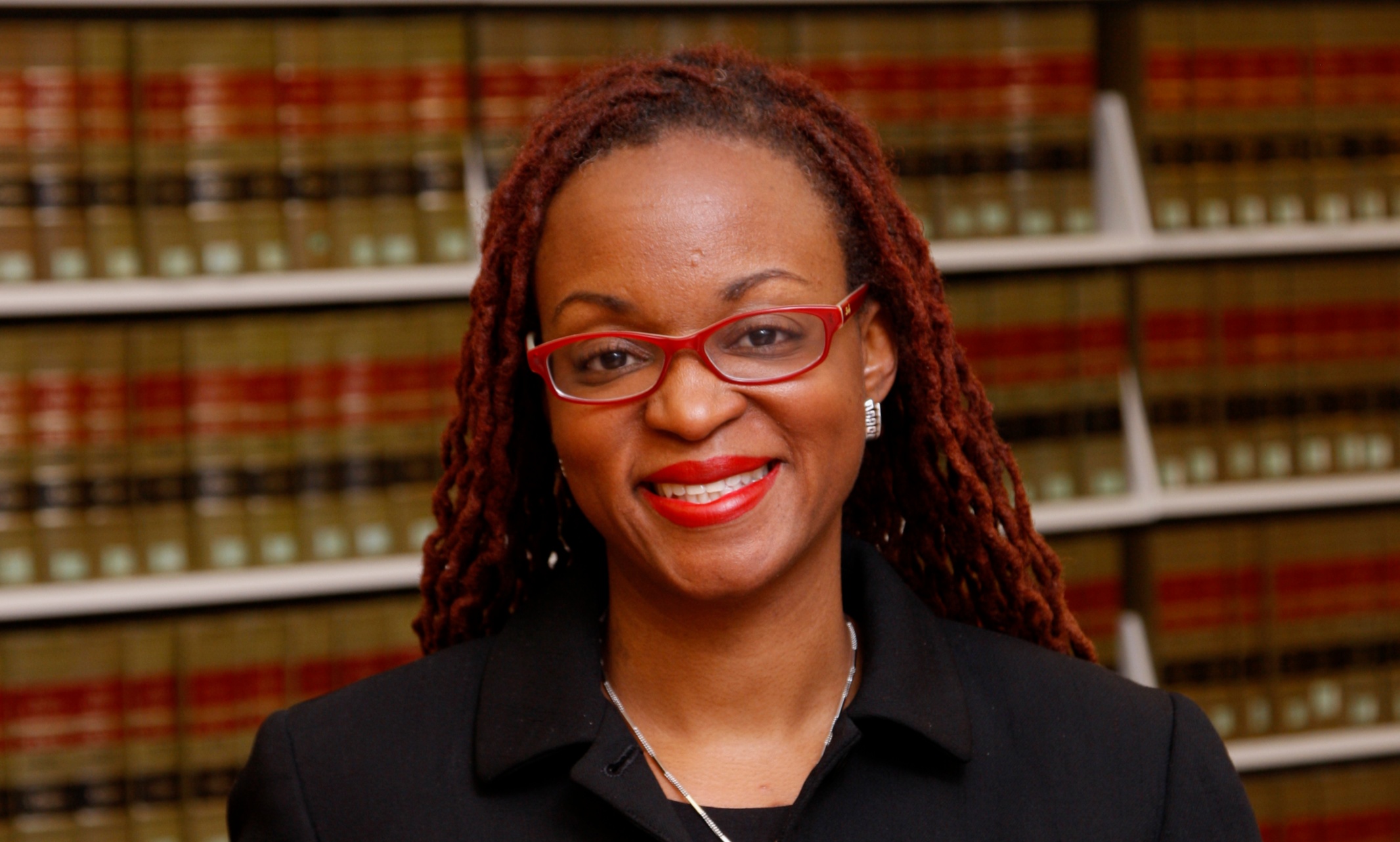
Five Questions With Jamila Jefferson-Jones
Cell phone videos in recent years have captured multiple incidents in which white people have threatened African Americans with calls to police in situations in which no laws are being broken. The case of a white woman walking her dog in New York’s Central Park threatening a black man in this manner was the latest example of a phenomenon that has been called “Living While Black.”
Jamila Jefferson-Jones, associate professor of law at the University of Missouri-Kansas City, recently co-authored an article, "#LivingWhileBlack: Blackness as Nuisance," published by American University Law Review. She was subsequently interviewed for a New York Times article on the phenomenon.
Jefferson-Jones recently discussed the phenomenon with UMKC Today.
Can you explain the “Living While Black” phenomenon in layman’s terms?
The hashtag #LivingWhileBlack first appeared as a social media hashtag to mobilize attention to incidents where white people called the police on Black people for engaging in non-criminal/everyday activities such as shopping, using the sidewalk, swimming in community pools, studying in university common rooms or sitting in a Starbucks. While the term “Living While Black” had been previously used to describe the fraught conditions of navigating racist encounters for Black people, the hashtag brought this term into the nation’s common lexicon. It is a play on an older term, “Driving While Black,” which euphemistically describes the violence of racial profiling of Black drivers by law enforcement.
What does it mean for a public space to be “racialized”?
A public space is “racialized” when it is ascribed a racial identity or character that includes some and excludes others on the basis of race. Those spaces can be neighborhoods, public parks, avenues/boulevards, or sidewalks, among other spaces. Spaces are racialized by the people who use and lay claim to them, irrespective of whether those spaces are legally designated as public or private. The idea is that a claim is wrongfully staked to shared space in the name of racial exclusion based in notions of white supremacy.
What role has cellphone technology played in making Living While Black a “genre”? Is the net impact on black Americans positive or negative — i.e., easier for racists to call police quickly, but also a capacity for victims/bystanders to collect video evidence?
Cellphone technology has put high-quality video production and distribution in the hands of the masses. Everyone is able to use this ostensibly objective medium to validate their witness to abuses — whether to the circumstances prompting false 911 calls or to police violence. The ubiquity of cellphones does make it easier for racists to call the police quickly, but I think this is outweighed by the benefits that victims and bystanders are able to reap. Cellphone video corroborates what had previously been dismissed as unreliable.
Explain how the vocabulary and word usage of 911 callers is key to revealing their true racial intent — i.e., “you don’t belong here.”
In our law review article, we examined video recordings and transcripts of 911 calls from 2018 and 2019. Our research highlighted language that either explicitly called for exclusion of the victim based on his or her race or that employed racially coded language (“dog whistles”) to call for the removal or expulsion of Black people from shared space. In one instance, where a white graduate student called Yale’s campus police on a Black graduate student who was napping in their dormitory’s common room, both the white graduate student and the police relied on the language of “belonging” to question the Black student’s presence in the building. The implication was that someone like her could not possibly belong in such a Yale dorm.
Last month, when Amy Cooper called 911 on a Black birdwatcher in New York City’s Central Park, she deployed racist ideas about Black men to communicate to the dispatcher that he was a threat. In fact, before she called 911, she told Mr. Cooper that she was going to leverage racist ideas to summon police. Her intention was to signal to the dispatcher that Christian Cooper’s race alone made him a threat worthy of swift police response.
What are the potential legislative or procedural remedies that could reduce the incidence of #LivingWhileBlack events?
Some cities and states have enacted laws that punish perpetrators of #LivingWhileBlack abuses. Last year, the city of Grand Rapids, Michigan passed a human rights ordinance that prohibits crime reporting based, among other things, on an individual’s actual or perceived color or race. Such biased crime reporting may result in prosecution for a municipal civil infraction and is punishable by a modest fine in addition to costs, damages, expenses and sanctions. Also last year, Oregon enacted legislation that allows targets of #LivingWhileBlack calls to sue those who initiate such calls for civil damages up to $250. In the wake of the recent incident in Central Park, a bill that was introduced two years ago in the New York State Assembly has gained new life. It is already illegal in New York to make a false 911 call; if this new bill is passed, it will make it a hate crime to call 911 and make a false accusation of criminal activity based on race, gender or religion.
In addition to statutory remedies, there have been calls to better train 911 dispatchers so that they ask questions aimed at rooting out bias rather than unquestioningly sending officers to the scene. Finally, police must also be better-trained to respond to instances that may be #LivingWhileBlack occurrences — and to better protect the victims of such false reporting.
Jun 16, 2020
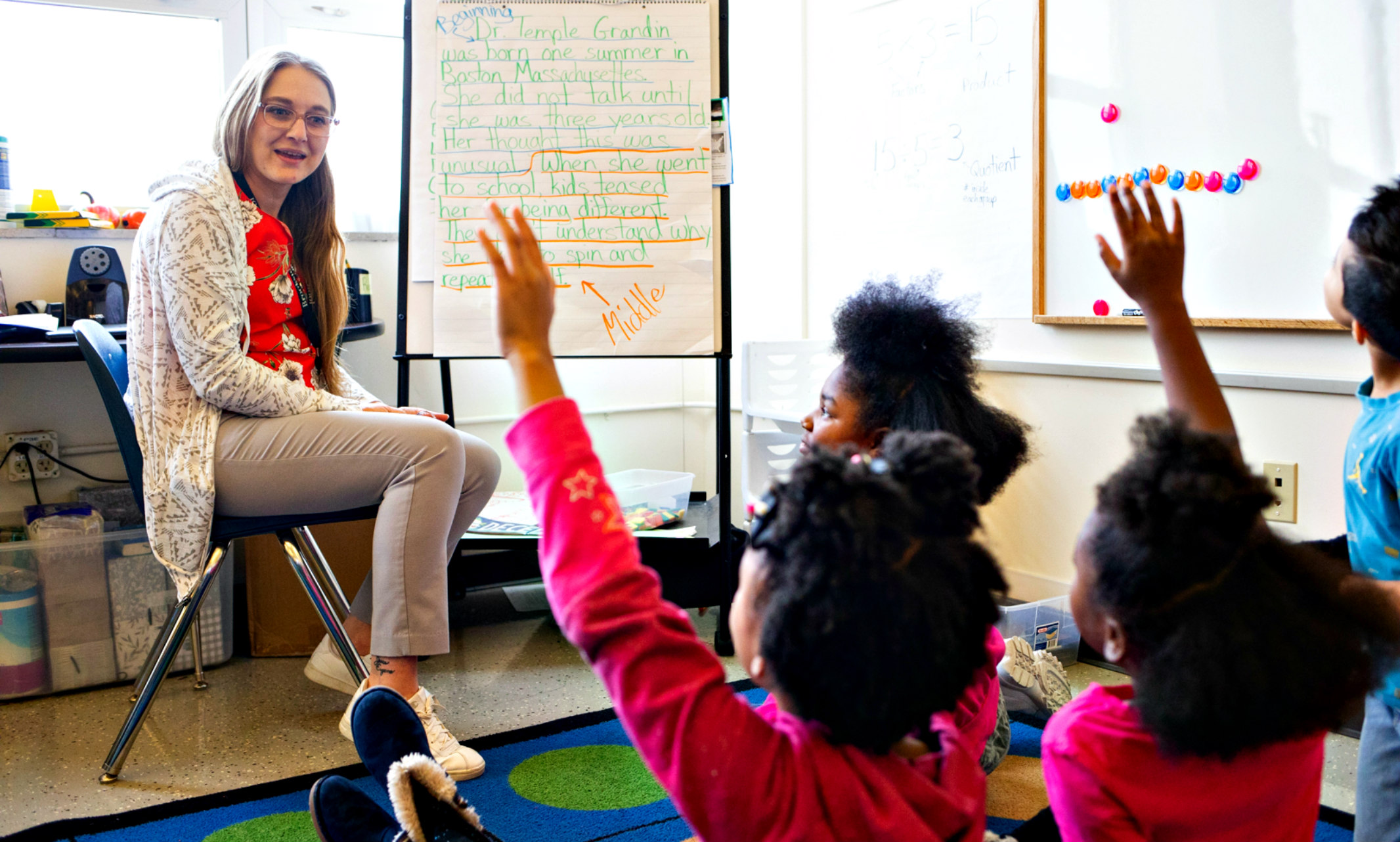
UMKC School of Education’s Institute for Urban Education offers guidance on creating culturally inclusive classroom environments
In the current racial climate and unrest facing America today, and as schools continue to explore how classrooms will be structured post-COVID-19, Jennifer Waddell, director of the UMKC School of Education’s Institute for Urban Education, said the preparation of teachers has become increasingly critical in uplifting our society and promoting educational equity and justice.
“Racism and oppression are both learned and practiced throughout societal institutions, including schools and, in particular, through the socialization of children and youth,” Waddell said in a statement following the recent deaths of black men and women due to racism and systemic injustice. “Teachers help children and youth interpret, make sense of, and view the world around them. Therefore, it is critical that they understand the power they yield, as well as, their influence and the importance of implementing a culturally responsive and anti-racist curriculum. It is also our duty as educators to identify and eradicate racist policies and practices within educational systems and communities.
Institute for Urban Education faculty and staff shared their thoughts on how teachers can do their part to develop inclusive classroom curricula and ensure their classrooms are a safe space for black students.
"It's important to understand yourself first," said associate director Bradley Poos. "It's more than just reading books; you have to be willing to do self-examination and allow yourself to be vulnerable and recognize your unconscious biases."
Poos said that while the institute trains teachers to foster inclusive classroom environments, they are also committed to increasing the number of students of color who want to be teachers.
“Teachers are trained to be the expert voice in the classroom and focus on the curriculum on the shelf, but there’s a need to engage the curriculum of self.” - Jennifer Fergerson, program coordinator, Institute for Urban Education
“Studies show that students who have a teacher that looks like them at an early age are 17% more likely to go to college,” Poos said. “The percentage of likelihood increases to 35% if they have two. That’s why we ensure we're able to recruit and retain teachers of color.”
At the Institute for Urban Education, faculty and staff view education as a form of social justice. There is only 5 percent of teachers of color statewide in Kansas and Missouri and, according to Poos, that’s not unintentional.
“Black teachers were pushed out after the Brown vs. Board of Education decision and we haven’t recovered,” he said. “When we integrated schools, we accounted for students, but we didn’t account for teachers. We’re making a push to help undo that.”
“Studies show that students who have a teacher that looks like them at an early age are 17% more likely to go to college.” - Bradley Poos, associate director, Institute for Urban Education
Program coordinator Jennifer Fergerson said that one reason oppression continues to be so prevalent is that we haven’t learned how to listen to one another. Learning to listen and engage in discourse starts in school.
“Teachers are trained to be the expert voice in the classroom and focus on the curriculum on the shelf, but there’s a need to engage the curriculum of self,” Fergerson said.
She said teachers have to create student voice in the classroom, especially in areas like social studies and literature. It’s up to teachers to ensure they use supplemental material to ensure multiple voices are presented and give students the opportunity to analyze from different perspectives.
“Students are the experts on their identities and their lives,” Ferguson said. “They should be a part of setting norms in the classroom. They want to learn, and they want respect.”
Institute for Urban Education staff suggests:
Incorporating room meetings to give students an opportunity to share and be a part of creating classroom norms
Implementing an 80/20 rule – 80% student and 20% teacher – to ensure teachers are doing more listening and moderating discussion among students, allowing them to learn from one another and give voice to necessary conversations
One-on-one conferences with students to check in on their success and build relationships,
Studying and really getting to know students’ names
Building authentic relationships with students’ families, letting them see teachers as human
Waddell said this work isn’t just for teachers in schools with predominantly black student bodies; predominantly white schools need to do this work as well – in some ways, more importantly.
“Teachers help children and youth interpret, make sense of, and view the world around them. Therefore, it is critical that they understand the power they yield, as well as, their influence and the importance of implementing a culturally responsive and anti-racist curriculum." - Jennifer Waddell, director, Institute for Urban Education
The Institute for Urban Education plans to continue doing its part by fostering important conversations with its future teachers, its partners and the community. This fall, the institute is launching its Grow-Your-Own program, a teacher pipeline program for future Institute for Urban Education students and teachers in local K-12 schools. Its goal is to recruit more teachers of color, especially males, who view education as a social-justice profession and want to remain in Kansas City to pursue their careers.
Beginning July 8, the institute will host a free weekly webinar series, Voices in Education, to share resources with local teachers and continue the conversation surrounding the need for diversity, equity and inclusion in education.
Classes will take place at 1 p.m. each Wednesday and cover topics like anti-racist classroom practices, promoting student voices, tech tools for the classroom and remote learning and more. Follow the UMKC School of Education on social media for upcoming registration details.
The mission of UMKC School of Education’s Institute for Urban Education is to prepare and support exemplary teachers for richly diverse schools in Kansas City.
Jun 15, 2020
Nancy Levit, an employment law scholar and associate dean at the University of Missouri-Kansas City School of Law, was interviewed by Forbes about ...
The ruling is “historic, long overdue, and offers some hope that many of our fellow citizens can now feel more secure at work,” noted Nancy Levit. Read the full Forbes article.
Jun 15, 2020
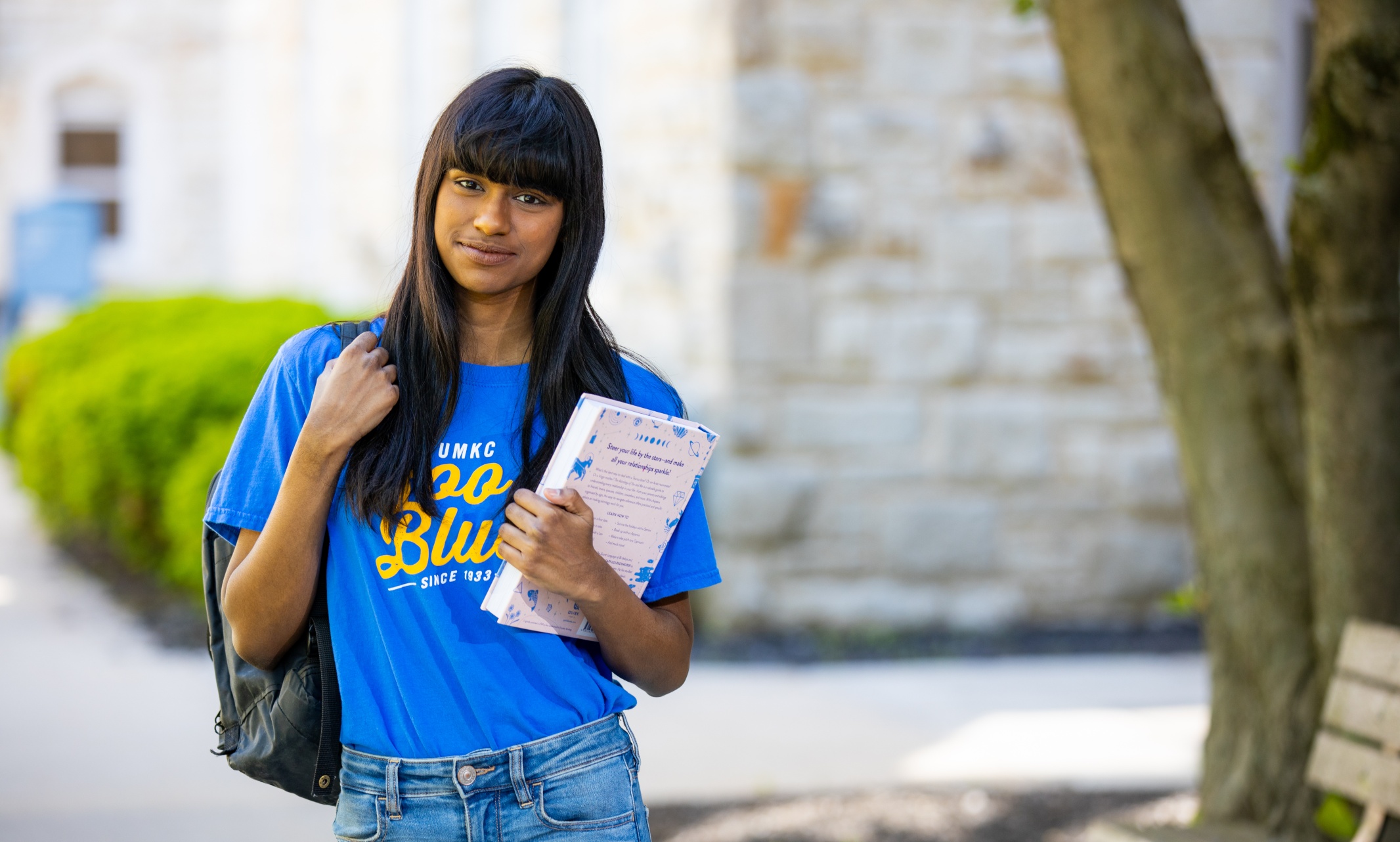
Even in uncertain times, it’s a decision I am confident about
COVID-19 is continuing to change the way our world is functioning. However, one thing that has remained a constant throughout this global pandemic is my determination to complete my degree as soon as possible.
It is important to acknowledge that although COVID-19 momentarily caused the world to be at standstill, our goals and dreams will not wait for anyone. Here are some reasons why I am eager to go back to school in the fall.
1. There are still things I need to learn for my career.
Growing up, I always loved learning about new things. Academics has played a significant role in my life and has taught me so much about the world we live in. I cannot imagine taking a break from my college experience because I know learning plays an important role in my everyday life and will in my future career as well. I already have my classes picked out for the fall semester and am looking forward to continue to learn more about everything, from American literature to Physics.
2. I still want to make a difference on campus.
A huge part of my college experience has been defined by being involved in various organizations. I would definitely like to continue to be a part of these organizations and contribute as much as I can. I am very excited and despite the uncertainty, I cannot wait to contribute my efforts and ideas towards the organizations I am currently involved in, which include Her Campus at UMKC and the UMKC Student Government Association (UMKC SGA). Also, I am currently a writing consultant at the UMKC Writing Studio. Working on campus has been a significant part of my college experience. The UMKC Writing Studio is one of the places where I can truly express and develop my passion for writing while helping my peers. I definitely want to go back to school in the fall so that I am able to continue working there – whether that is in person or online.
3. UMKC continues to help me grow as a leader.
UMKC has been the place that has allowed me to grow not just academically, but holistically as well. I have become a more well-rounded person with various leadership qualities under my belt due to the experiences UMKC has offered me. I cannot imagine taking a break from my undergraduate academics as this would mean that I would not have many opportunities to continue to grow as a person.
Knowing that UMKC is #RooReady has definitely alleviated my anxiety surrounding going back to campus in the fall. I’m encouraged about the steps the university is taking to ensure students are safe while getting a high-quality education.
Krithika Selvarajoo is a senior double majoring in English and Chemistry, and an orientation leader. Upon graduation in 2021, she plans to further her studies to potentially work in a health care setting.
Jun 11, 2020
Recommended reading by University Libraries and English Department to build empathy and understanding
In support of the Black community in Kansas City, nationwide, and all over the world, here are resources for recommended reading.
University Libraries Diversity, Equity and Inclusion Committee has compiled a list of resources to help those support racial justice and as well as a reading list.
Gloria Tibbs, organizational development coordinator for University Libraries, is the founder of the African American Read-In at UMKC. She was recognized by the White House in 2013 as a "Champion of Change." Her recommendations include The Venus Hottentot by Elizabeth Alexander, An expanded edition of Movement in Black by Pat Parker and Brown Girl Dreaming by Jacqueline Woodson.
Broadcasting from UMKC since 1977, the literary radio show New Letters on the Air has long been known for its diversity of voices among writers of poetry, fiction, essays, plays and more. Producer and host of New Letters, Angela Elam recommends listening to recordings in their extensive archives such as Gwendolyn Brooks, Terrance Hayes, Audre Lorde, Stanley Banks and Stephanie Powell Watts.
Imaginative storytelling has the narrative power to build greater empathy within and among readers. The English Department offers the following list of recommended creative works by African American writers:
Hadara Bar-Nadav, professor and director of Creative Writing, recommends: Gwendolyn Brooks’ Selected Poems
Virginia Blanton, Curators’ Distinguished Professor, recommends: Zora Neale Hurston’s Their Eyes were Watching God
Britta Bletscher, M.A. student and graduate teaching assistant, recommends: Alice Walker’s The Color Purple
Crystal Doss, associate teaching professor, recommends: Toni Morrison’s Beloved
Madison Clay, M.A. student, recommends: Angie Thomas’s The Hate U Give
Ande Davis, Ph.D. candidate, recommends: Kwanza Osajyefo, Tim Smith, Jamal Igle, and Khary Randolph’s BLACK
Laurie Ellinghausen, professor and interim chair, recommends: Ralph Ellison’s Invisible Man
Robert Farnsworth, emeritus faculty, recommends: Richard Wright’s Native Son
Thomas Ferrel, instructor and director of the Writing Studio, recommends: Alice Walker’s To Hell with Dying
Jane Greer, Curators’ Distinguished Teaching Professor, recommends: Nella Larsen’s Quicksand
Emily Grover, instructor, recommends: Chimamanda Ngozi Adichie’s Americanah
Christie Hodgen, professor and editor of New Letters, recommends: James Baldwin’s “Notes of a Native Son”
Sheila Honig, lecturer, recommends: James Baldwin’s “Sonny’s Blues”
Ben Jasnow, instructor, recommends: Frederick Douglass’ Narrative of the Life of Frederick Douglass, an American Slave
Sarah Beth Mundy, instructor: recommends: Chinua Achebe’s A Man of the People
Ashley Pendleton, M.A. student and graduate teaching assistant, recommends: Nic Stone’s Dear Martin
Jennifer Phegley, professor, recommends: Colson Whitehead’s The Underground Railroad
Robert Stewart, former editor of New Letters, recommends: Tim Seibles’ One Turn Around the Sun
Jun 11, 2020
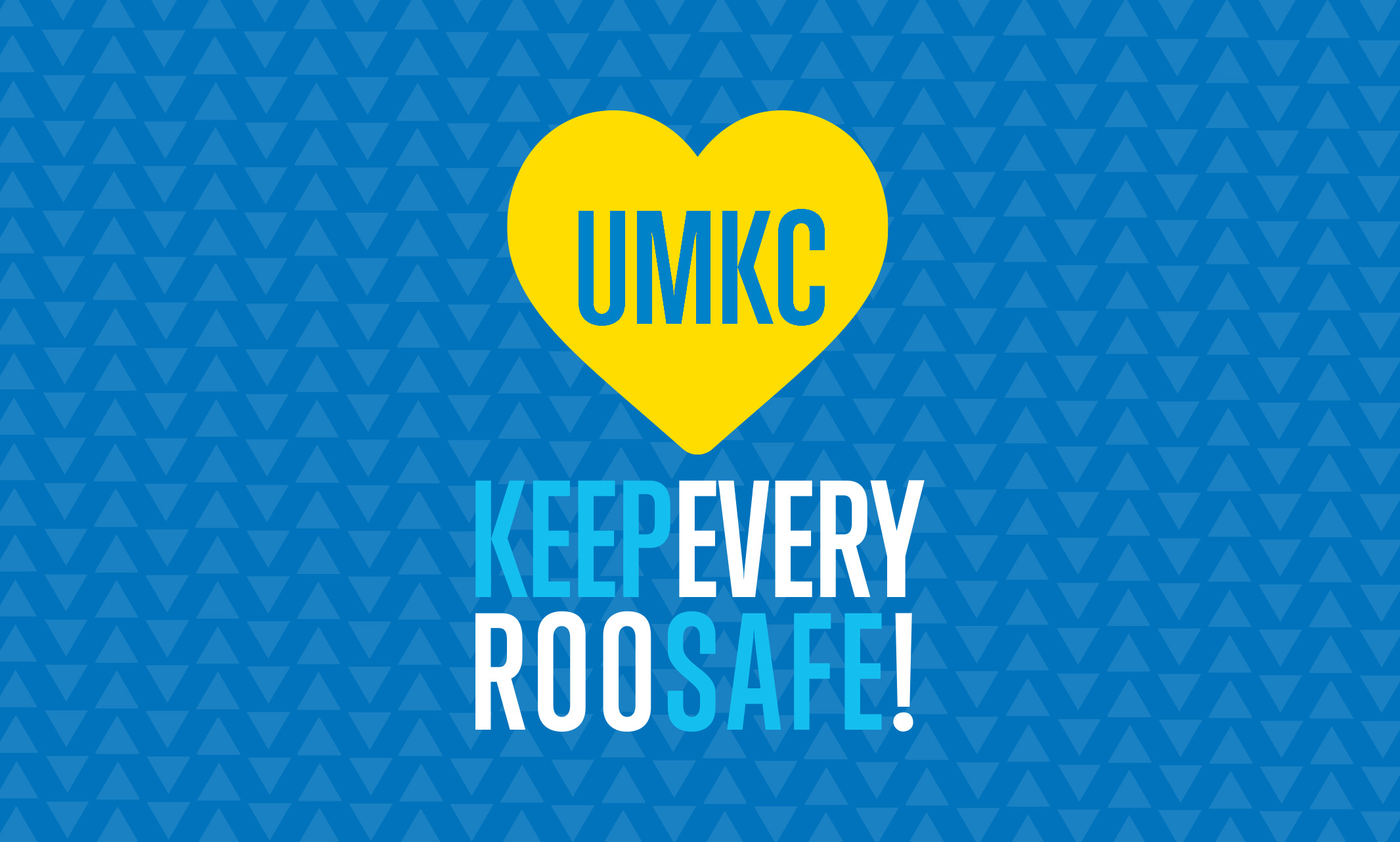
University taking precautions during pandemic
UMKC has been working hard to follow the latest recommendations and precautions to keep our students, faculty and staff safe on campus as we continue to deal with COVID-19.
We spoke to Michael Graves, director of facilities operations at UMKC, to give us the information we’ve all wanted to know as we get ready to return to campus.
What are we doing to keep university facilities clean?
While buildings have been closed, Campus Facilities Management has remained on site performing enhanced cleaning and disinfecting of facilities at both Volker and Health Sciences campuses. They are using procedures recommended by the CDC and products approved by the EPA as effective against COVID-19. We’re continuing to follow those protocols as a part of daily cleaning and disinfecting services.
High-touch points like handrails, door handles and light switches are receiving increased cleaning. Most of that daily cleaning occurs overnight and during the early morning hours so that buildings are ready to be used the next day.
Is hand sanitizer being used on campus? Where are the dispensers?
Yes, hand sanitizer dispensers are stationed at every building entrance as well as other high-traffic areas. Our team will refill these daily. If you see a dispensing station that has been damaged or needs service, please call Campus Facilities Management at 816-235-1354.
What will be different about buildings when we return to campus?
Elevator capacities are being reduced to two-person occupancy to accommodate social distancing. New signage encourages occupants to face away from each other while in the elevator.
Water fountains are being taken off-line to prevent use. Bottle fillers will remain operational.
Acrylic “Plexiglas” type screens are being installed at reception desks, service counters and other spaces where close interaction for prolonged periods is common and social distancing is not practical. These are generally custom-made and may be requested by individual units as needed.
Breakrooms, lunchrooms, open shared spaces and gathering areas will be closed or significantly limited in use to avoid social gatherings. They may still be used for food and drink preparation and consumption (one at a time, or multiple people as long as 6-foot social distancing can be maintained). Users should disinfect any shared appliances after use including copiers, fax machines, microwaves and coffeemakers. There will be cleaning supplies nearby.
Tell us about the new signs on campus.
Signage is being placed around campus identifying sanitizer dispensers, promoting hand hygiene and social distancing practices, revising occupancy limits and more. It’s part of the university’s “Keep Every Roo Safe” campaign.
Do the buildings’ heating and air conditioning systems provide fresh air to the spaces?
Yes, UMKC buildings are designed to meet building code ventilation requirements that are based on the American Society of Heating, Refrigerating and Air-Conditioning Engineers (ASHRAE) standards. Those standards require a set number of air changes in every space per hour, based on the size and type of area. Those air changes include a certain percentage of outside air. All of those amounts are calculated to provide good air quality for the maximum occupancy allowed in the space. Since spaces are rarely filled to maximum occupancy, the buildings are almost always over-ventilated during normal operations.
What will Campus Facilities Management do if there’s a suspected case of COVID-19 on campus?
After any suspected case of COVID-19 on campus is communicated to campus leadership, Campus Facilities Management immediately will help vacate spaces that are potentially affected and close them so that others do not enter. Following CDC guidelines, the area will remain closed for at least 24 hours, before being thoroughly disinfected using an EPA- and CDC-approved process.
We want to make sure we maintain a safe environment for students to learn, and for our faculty and staff to teach and work.
Jun 11, 2020
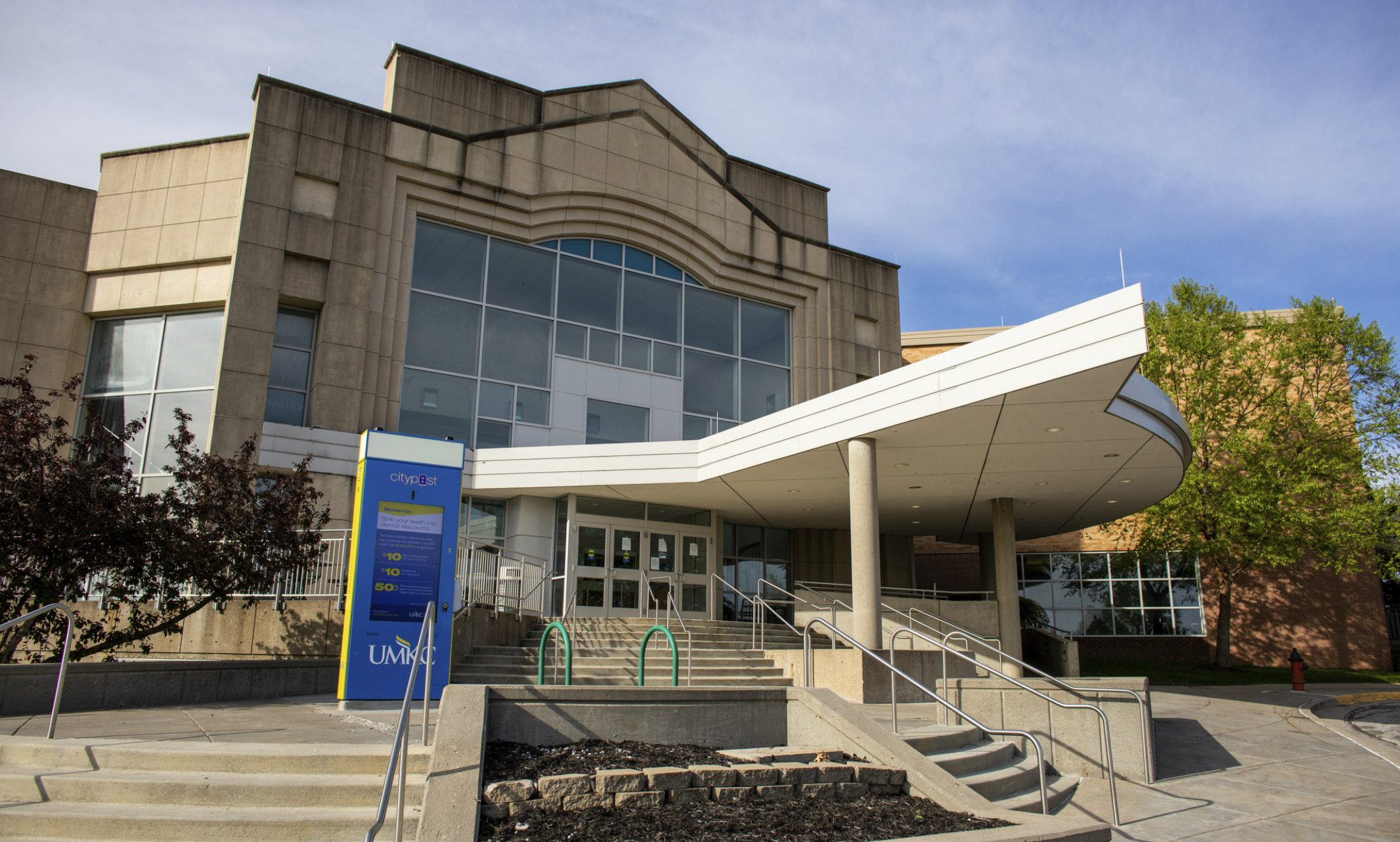
Faculty, staff tackle ‘big lift’ to meet demand
How’s this for a Rubik’s cube-level puzzle challenge? UMKC typically schedules more than 5,800 courses a week. Now we have to limit all of our classrooms to only 25% of capacity due to COVID-19. There is some extra meeting space available, but not nearly enough to consequentially meet what is essentially a four-fold increase in demand for classroom space.
What do we do?
Ask UMKC Registrar Amy Cole. She and her team are doing it.
To maintain recommended social distancing in response to the COVID-19 pandemic, the university is mandating that classroom population be limited to 25% of capacity for the fall semester. That key element of the #RooReady challenge landed in the lap of the Registrar’s office.
To make it work, Cole and her team are converting event spaces including Pierson Auditorium and the fourth floor of the Student Union into classroom space, while exploring “every nook and cranny” of almost every building on both campuses to make sure students and faculty can socially distance while having a great in-classroom experience. The team is working with each of the schools to expand online and hybrid class offerings, and offer more evening and early-morning sections of popular classes.
“It’s a big lift, and we’re still at it,” Cole said. “We’re still finding spaces that can be converted to classrooms, figuring out a safe capacity for them and working them into the schedule. The goal is to give as many students as possible as much of what they want as possible. It’s time consuming, but we have a great team of dedicated people committed to getting it done.”
Other members of the UMKC community are hard at work as well in order to meet this unique challenge. Faculty are undergoing summer training to create format flexible courses. This means that while they are planning to teach in-person, they will have a Plan B to take classes online if the COVID environment makes that necessary. Those plans will be communicated clearly to students in the syllabus at the beginning of the semester to minimize surprises or disruptions during the semester.
Instructors will have new flexible attendance policy guidelines to meet the unique demands of attending class during a pandemic, including guidelines for those with underlying health conditions or other situations. Those guidelines will be clearly laid out in the syllabus. Students requesting COVID-related academic accommodations should contact Scott Laurent at (816) 235-5696 or by email at laurentr@umkc.edu.
UMKC also is making increasing use of “hybrid” courses for the fall, which include a combination of online and in-classroom sessions. For example, the course readings and online lectures are completed outside of class and students meet in person for smaller discussion groups or lab sections.
The university is expanding online offerings of both “synchronous” courses, which are conducted in real time with ongoing interaction among students and instructors; and “asynchronous” courses, which allow students to access the material at times of their own choosing. Even for fully online courses, faculty are preparing them so that there are opportunities for small group, virtual break-out sessions allowing students to have safe, meaningful engagement with other students and the faculty.
“We are looking at scheduling some sections as early as 7 a.m., or on weekends,” Cole added. “Some students may prefer an online course meeting at a more convenient hour.”
Classes involving internships, service learning, and clinical rotations/practica will have to be set up, and communicated, on an individual basis.
“We’re trying to provide as much flexibility as we can while sticking to that 25% capacity limit,” Cole said. “UMKC wants to provide all of our students with an engaging and meaningful college experience despite the challenges presented by the pandemic.”
Jun 11, 2020
Ericka Mattingly played during the 2019-20 women’s basketball season and was featured in The Kansas City Star
On June 12, she received the Spire Sportswoman of the Year Award from the Kansas City Sports Commission. Read more about her in the article from the Kansas City Star.
Jun 10, 2020
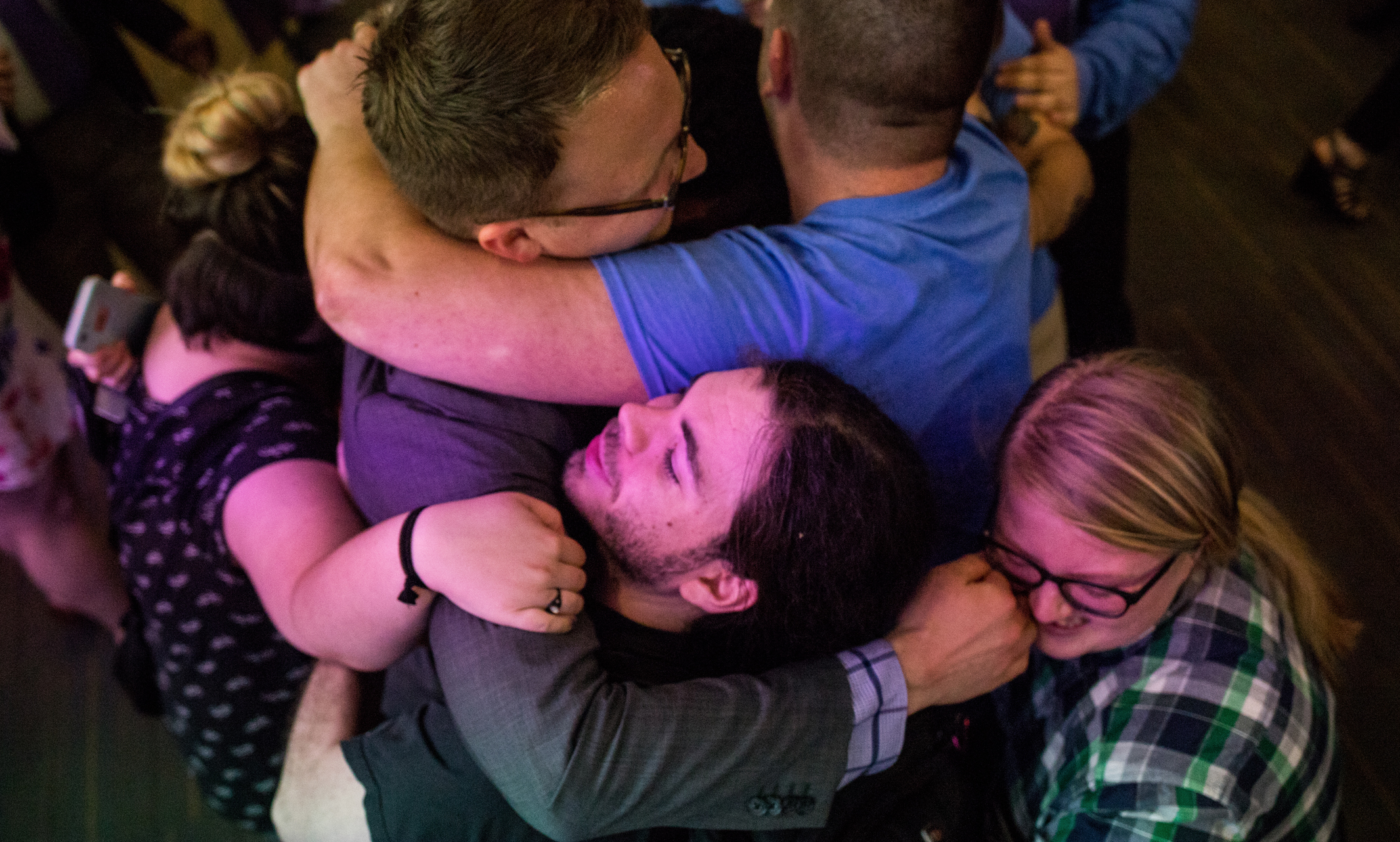
Annual program honors accomplishments by students, faculty, alumni and more
The annual UMKC Pride Awards recognize outstanding individuals in the community who have contributed to the betterment of the LGBTQIA+ community through education, support, programming or activism. These awards honor those who have contributed in the areas of service and outreach, establishing a safer and more welcoming environment at UMKC.
“This year, our office was blown away by the nominations and the quality of awards candidates,” said Kari Jo Freudigmann, assistant director, LGBTQIA Programs and Services. “There are many change-makers on campus and in our local community, and we want to be sure they know that their work and efforts do not go unnoticed.”
The full list of 2020 awards includes:
Note: The text under the names of each award recipient are excerpts from the nomination packets.
Outstanding Faculty/Staff: Tamica L. Lige
Recognizes lesbian, gay, bisexual, transgender, queer, intersex, asexual, or ally faculty or staff who contribute to a positive campus climate for LGBTQIA individuals.
“Plenty can talk, plan or imagine: Tamica Lige gets to work. Under Ms. Lige’s leadership, an organization on UMKC’s Hospital Hill with an established history expanded its mission to include the needs of LGBTQIA+ people.”
“Tamica Lige scheduled sessions with healthcare providers at institutions with which UMKC has partnerships in order for us to learn more about the needs of transgender patients and their struggles navigating healthcare systems.”
Jim Wanser Award: Mark T Sawkin
Named for the faculty member, advisor and guiding force to the UMKC LGBT Initiative and its development into the LGBT Office, this award recognizes an individual who has volunteered hours of service to the UMKC LGBTQIA community or the greater Kansas City LGBTQIA community.
“Dr. Sawkin is heavily involved in the UMKC STAHR program that focuses on ways in which we can increase program retention for students that come from underserved backgrounds. One way in which he has done this is by eliminating barriers, and helping all his students, including myself, feel accepted.”
Rising Star Award: Jager “Jay” Wirth
Recognizes one area high school student whose leadership and service have resulted in a tangible gain for LGBTQIA students (such as Gay/Straight Alliance), or whose energies have created a more friendly, inclusive environment at their high school.
“Jager helped to found the GSA at our high school two years ago, as before there wasn’t really a safe space for students in the LGBTQIA community to go and be supported by peers and faculty as well. Jager saw a need, and he made it happen.”
Outstanding Alumni Award: Taryn Hodison
Recognizes one UMKC Alum who works toward fostering an inclusive community, at UMKC or in the community in which they live and work.
“She has a gift of being able to provide a space in which those identifying as LGBTQIA+ feel safe, seen and heard, something many have never felt.”
“Taryn has a special interest in transgender youth, especially in providing them with education, fellowship, connection and acceptance. She has hopes of developing a program that will benefit Kansas City youth that can also be taught and implemented nationally.”
Graduate/Professional Student of the Year Award: Luke R. Allen
Recognizes one student for outstanding leadership, dedication and service within the university, or in the community, that has resulted in new or revitalized resources, services, or programs for the LGBTQIA community.
“Luke is especially interested in topics related to sexual and gender diversity, including LGBTQ youth, counseling effectiveness, and culturally relevant counseling approaches with these populations. Luke developed a study that explored the extra-familial sources of support for transgender and gender nonconforming youth.”
Undergraduate Student of the Year Award: Kristen Garcia
Recognizes one student for outstanding leadership, dedication, and service within the University, or in the community, that has resulted in new or revitalized resources, services, or programs for the LGBTQIA community.
“I met Kristen for the first time at the 2019 Masqueerade event after she personally reached out by email to invite me. As a queer individual who never got the chance to go to homecoming and Prom, that night truly meant the world to me. That night happened because of the endless work Kristen put into it.”
Collaborative Excellence Award: Central United Methodist Church – Sally Haynes and Maggie Holley
Recognizes departments whose collaborative efforts have resulted in new or improved resources and services for LGBTQIA students, faculty, staff or community members.
“Rev. Dr. Sally Haynes from Central Methodist Church works endlessly for the students at UMKC. She has committed to ensuring her church to be inclusive and affirming of all gender and sexual identities. She put up flags and posters to tell the community that the church is on the LGBT+ side and that the community is welcome.”
“With the help of Maggie Holley reaching out to the LGBTQIA Programs & Services office, she organized a UMC Community Dinner where students from UMKC were welcomed in the church to discuss LGBT+ concerns, goals and get to know students.”
Jun 09, 2020
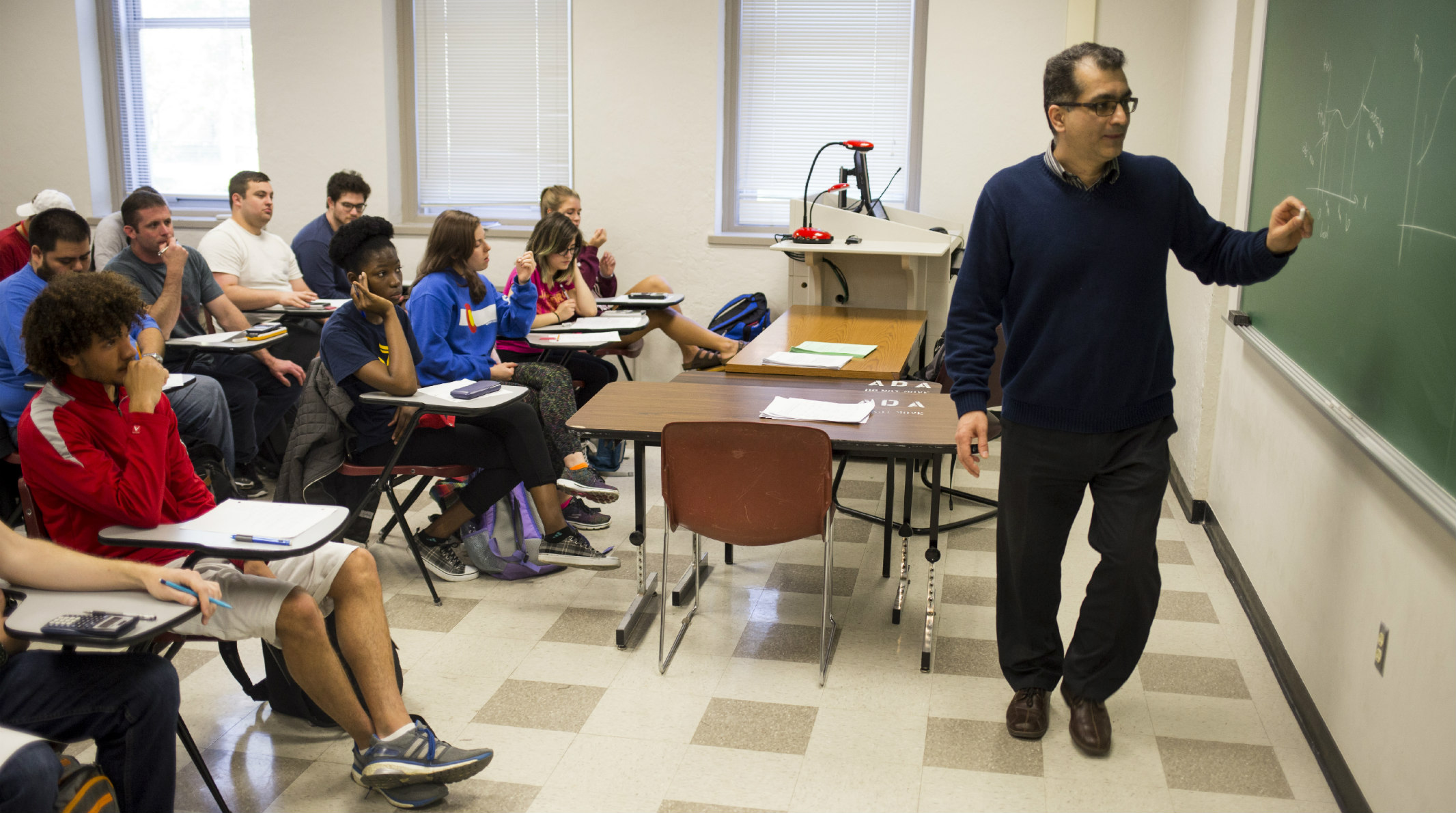
Math and statistics students began studying the potential spread in January
Before many people were aware of the COVID-19 virus and its potential for broad infection, UMKC students were building predictive models of its possible spread.
Majid Bani-Yaghoub, Ph.D. (known as Dr. Bani), associate professor and chair of the Department of Mathematics and Statistics, focuses on mathematical modeling in several areas of study including health and biomedicine. He had been following the scientific reports of the new virus in China and incorporated it into his Graduate Differential Equations class.
“I was following the news in January, and I knew modeling and analysis of the virus would be a good fit with this course,” he says. “Our work is continuing. We have three different groups using epidemiology, math and statistical models and numerical simulations to see how the virus is affected by policy.”
In addition to following the progress of COVID-19, they are using optimal control theory, to predict the best way to minimize spread.
“Analyzing which combination of control measures gives us the best result and provides a good understanding of how to stop the spread of the virus,” Bani says.
Hope Mertz, MS ‘20, Science and Mathematics, studied the spread of COVID-19 for her research project. She was not that familiar with the virus when she enrolled.
“I had just started hearing about what was happening in China, so when Dr. Bani started talking about the project, my partner [Kodi Kuhlmann] and I jumped at the chance to work on something so pertinent.”
At the time, it appeared that the virus was only spreading in a small part of China. Bani shared the website for research articles at John Hopkins University and Mertz began to think that virus was spreading further and faster than reported.
“We modeled the spread from Wuhan City to New York City via their main travel hubs,” Mertz says. “We could see that the reported number of cases was a huge understatement. I could not force my model to give me numbers as small as what was being reported.”
Besides the student projects, research on COVID-19 has yielded successful collaborations with other faculty members. Using existing resources through the UMKC Institute for Data Education, Analytics and Science, Bani has recently started research on drug repurposing with Bi-Botti Celestin Youan at the School of Pharmacy and Liana Sega, also in the Mathematics and Statistics Department in the College of Arts and Sciences.
“There are millions of untested drugs,” he says. “We can use predictive modeling, machine learning techniques and some abstract areas of mathematics such as persistent homology to explore how we could use an existing drug as a solution for the problem.”
While he is certain of the quality of his team’s work, Bani cannot predict the likelihood of another surge.
"We could see that the reported number of cases was a huge understatement. I could not force my model to give me numbers as small as what was being reported.”- Hope Mertz
“Math models are as accurate as the data,” he says. “From what we see so far, we hope that there’s a down trend, but we are not 100% sure about the data.”
Bani says we will know more once more businesses are open and more people are out.
“The spread could be really rapid, and we should follow the CDC guidelines to prevent the second wave,” he says. “We are relying on each individual. This is proven epidemiology – each person can make a difference.”
He notes that the basic reproduction number is an essential threshold value. If the average number of newly infected people caused by an infected individual is less than one, then the virus will die out.
“Social distancing and mask wearing are effective in preventing virus transmission,” he says. “We need to get used to these measures.”
Along with the other projects, Mertz and Kuhlmann’s modeling approach and research results were presented at the UMKC Sixth Annual Math & Stat Research Day on April 17.
Jun 08, 2020
Mitch Brian, associate teaching professor at UMKC, is Kevin Willmott’s former screenwriting partner
Brian was recently interviewed by the Kansas City Star about Willmott's latest film and going to the movie theater.
Jun 08, 2020
Hollywood Reporter ranks UMKC Theatre in Top 25
The Hollywood Reporter surveys alums, academics and industry pros for its annual list of the top acting schools. Read why the publication ranked UMKC Theatre.
Jun 08, 2020
The Kansas City Star featured Dentistry, Medicine, Nursing and Pharmacy students who showed peaceful solidarity
Approximately 150 healthcare workers and students gathered at the UMKC Health Sciences campus on June 6 to show their support for the Black Lives Matter movement and demonstrators fighting for racial equality and an end to police brutality. Read more from the Kansas City Star.
Jun 06, 2020
School of Law professor on Ricky Kidd legal team
Sean O’Brien, UMKC School of Law professor, worked to free Ricky Kidd, a man who was wrongfully convicted and sent to prison. The story was covered nationally at the time of the ruling and recently made headlines again, this time on BuzzFeed.
Jun 05, 2020
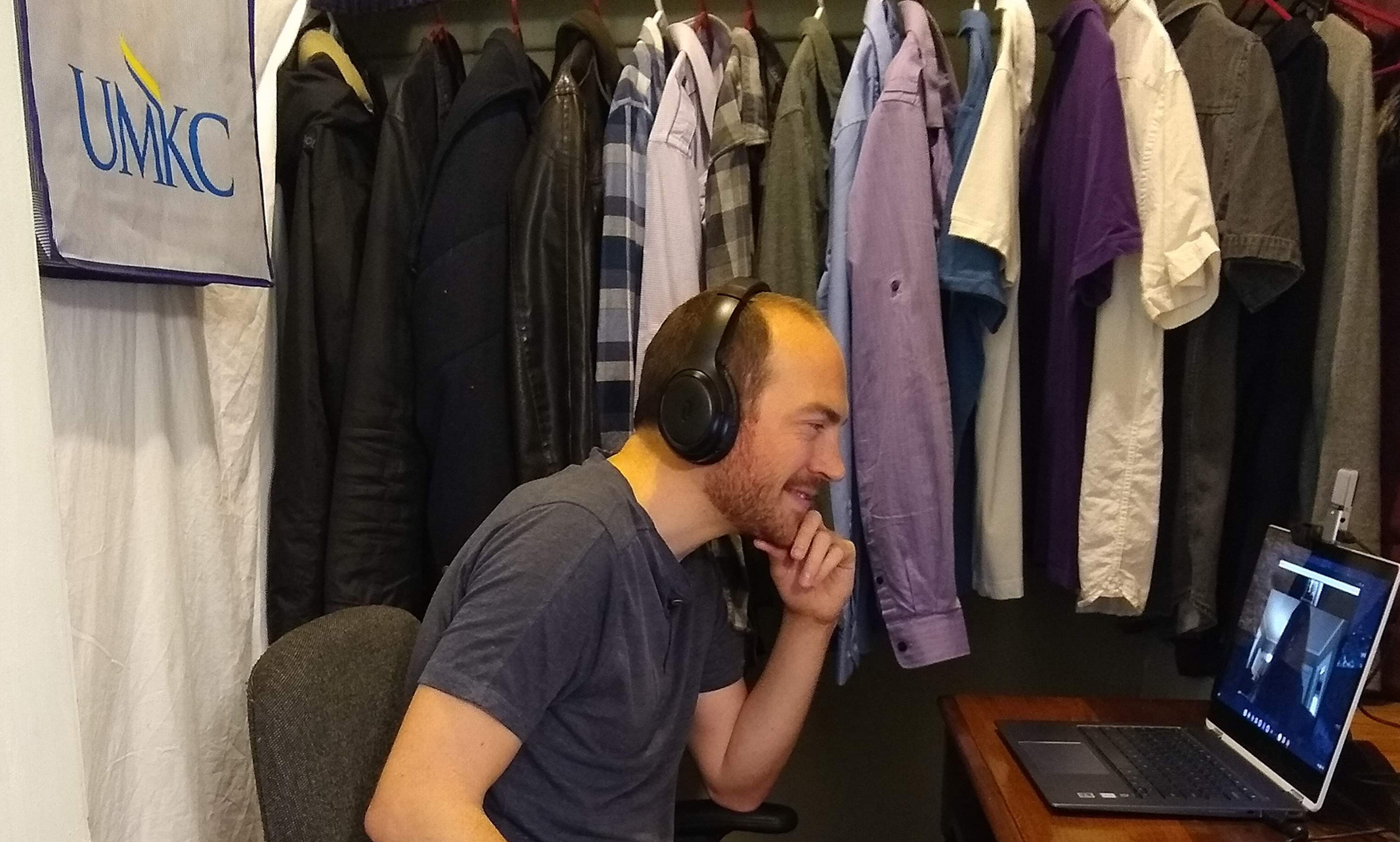
Students gain valuable experience in the world of podcasting
What started as a podcast side project for UMKC faculty member Whitney Terrell, has now evolved into the first podcasting class at UMKC. In turn, the class has so far produced four thought-provoking, student-led podcasts.
Terrell teaches creative writing and in his spare time has a successful podcast called Fiction/Non/Fiction that he co-hosts with V.V. Ganeshananthan of the University of Minnesota. His podcast led Jennifer Phegley, the chair of the English Department, to approach him to gauge his interest in putting together a practicum on podcasting
“The department has always been interested in the digital humanities,” said Terrell. “With me already podcasting, it made perfect sense. And it has been super fun.”
UMKC students have interned for Terrell to help with his podcast, and the success of the internship was another contributing factor to starting the class. Still, Terrell said he and his students were in uncharted territory for the university.
“I’d never asked students to create a podcast from scratch in three months, so I really didn’t know whether we’d end up with something we’d want public,” said Terrell. “And when we got the final product I realized they were this good — we’ve got to get these out there.”
What they got were four unique podcasts. “Everything Genre” — produced by Harmony Lassen, Hunter Moseley and Abbey Outain — teases out the way TV shows use genre tropes. “Lit Adaptations” — produced by Jasmine Rollins, Sophie Straight and Kara Walters — analyzes the ways books are adapted into films. “MFA Insider” — produced by Jared McCormack, Giana Miniace and Montana Patrick — talks to MFA students across the country about their programs and work.
I started listening to their podcasts while I was jogging. I would get to the end of my run, finding myself just enjoying them and forgetting I need to be grading them as well. - Whitney Terrell
All three podcasts can be heard on this website. There was a fourth podcast produced, by Eva June Narber, Summer Collins, and Beth Graham, that did investigative stories on human trafficking, but out of caution for the interview subjects the hosts decided not to make it public.
Terrell was blown away by the finished products. “I started listening to their podcasts while I was jogging,” he said. “I would get to the end of my run finding myself just enjoying them and forgetting I need to be grading them as well.”
McCormack plans to continue the MFA podcast, with a slightly different format rebranded as “MFA Writers” where he will be the sole host but continue to interview fellow MFA students from across the country. He sees it as a useful tool for potential MFA students and filling an untapped niche in the literary podcast space.
“There are a number of podcasts out there that I love that interview established writers about their process,” said McCormack. “I think it would be really interesting to do something similar but with emerging authors on the cusp of making it.”
One thing that hit home for Terrell was the advanced cultural commentary represented in “Everything Genre” and “Literary Adaptations.” “They were putting into practice the techniques that students learn in our creative writing and English programs,” said Terrell. “They were using the skills they’re picking up in the program, and I just love that.”
For the class, the students were divided into four groups, with each group coming up with their own podcast idea. The students were grouped by similar interests. In addition to their own podcast, the students were assigned duties on the Fiction/Non/Fiction podcast so they could practice sound editing and script writing ahead of tackling their own podcasts.
Jasmine Rollins, who worked on “Lit Adaptations,” thought the work on Terrell’s podcast was particularly eye-opening. “I was surprised at how quickly the turnover was from week to week,” she said. “Before the new episode is even up they’re already working on planning for the next episode.”
When it came to finishing production for the students’ podcasts, the class had to get creative because of the shutdown of the campus. They had planned to record and edit everything on campus with the help of a Communications professor, Angela Elam, and using audio software available in one of the computer labs.
Those best-laid plans were turned upside down. The students instead used Zoom to record their podcasts and managed to edit their audio with an any-means-necessary array of free (or free-trial) audio editing software. Terrell said he was amazed by the students’ determination to experiment and improvise to get to their finished products.
The plan is for Terrell’s spring semester Podcasting Practicum class (ENG 449C) to continue. Another podcasting course will be added in the fall in the Communications Studies Department (class #46784), taught by Elam, who is host of the “New Letters on the Air” podcast.
For McCormack, the experience was incredibly rewarding. ““I didn’t know anything about making a podcast before taking this class. This was a great way to get my feet wet learning from someone who is actually doing it,” he said. “You really see what all goes into making a podcast before you jump straight into it.”
Jun 04, 2020
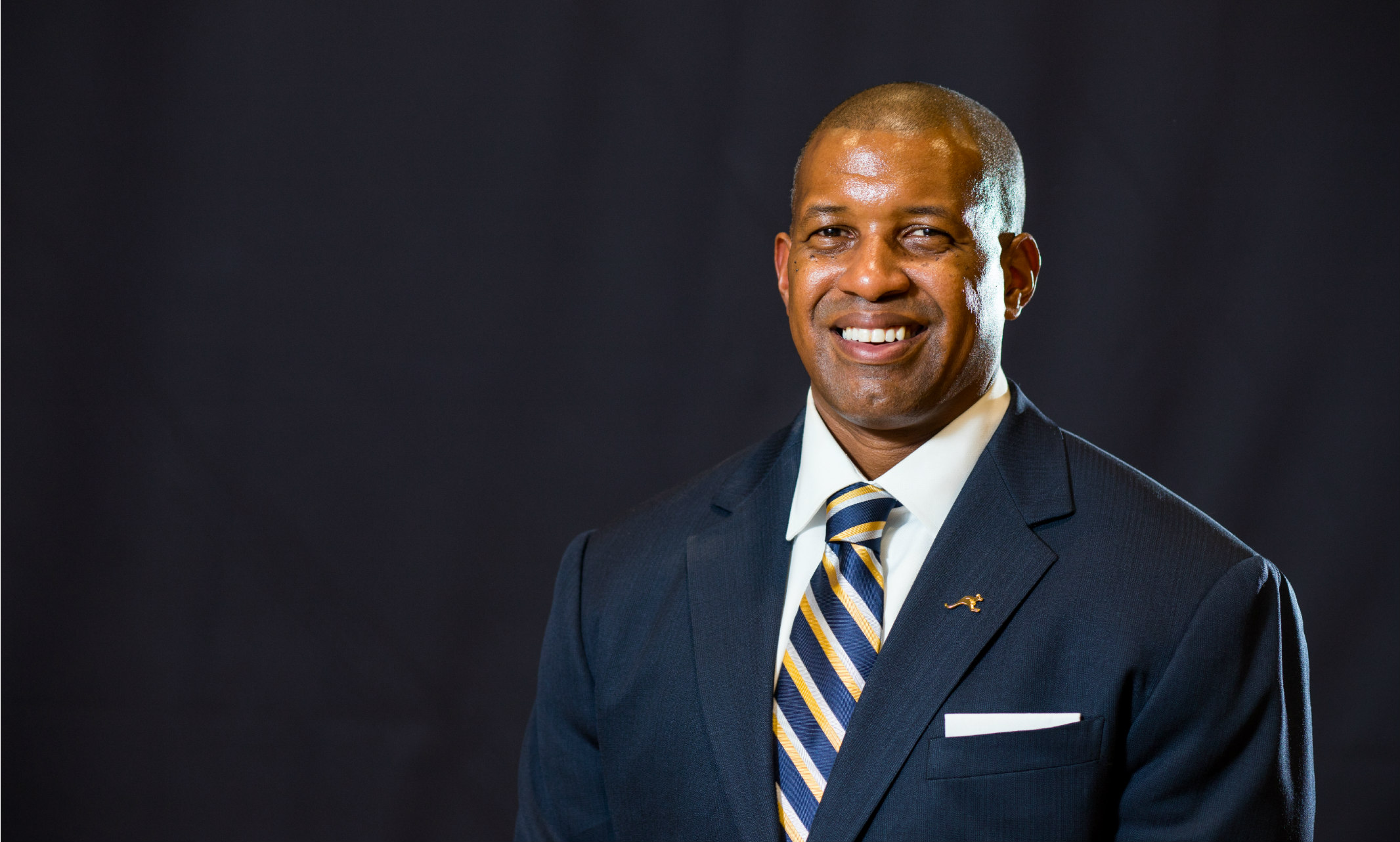
Checking in to see how our UMKC community is managing the highs and lows of sheltering in place
UMKC Athletic Director Brandon Martin is off the court, off the field and home with his wife, two daughters and son. He’s been home with his family more than ever before — and finding that he loves it.
“It’s really going great,” Martin says. “We are having a ton of family time and I’m just so grateful that my family is all here and safe.”
He and his wife, Rosemary, who works in human resources at Metropolitan Community College, are both working at home in their basement and home office. His oldest daughter is home from her first year of college.
“She came home from Arizona State University with straight As,” he said. “We were just thrilled”.
His younger daughter and son were both going to school remotely.
“They were going to school in their bedrooms and basically living on their iPads.”
The Martins are all pitching in and helping each other out, and they are taking a lot of family walks.
“I love it,” he says. “I’ve been home more now than I’ve ever been before. Balance has always been tough for me, but I feel like the ratio is good right now and it makes me feel fulfilled.
We had a great Mother’s Day. I couldn’t stop thinking about what it would be like if my wife weren’t here. It just filled me with so much gratitude.”
Still, Martin is aware of the suddenness of his athletes’ season ending and he understands the loss they are feeling.
“I have a great respect for the resilience of our athletes and coaches. Their seasons ended so abruptly. I really appreciate how willing they were to take the appropriate directions. They were all patient, focused and centered.”
Despite his positive perspective, Martin struggles with the ambiguity of what will come next.
“I am trying to crystallize what the ‘new normal’ is going to be. My life — my job — are never going to be the same. In my life and my career, so much of it is about competing. Now we’re competing against the unknown, but I know we’re going to get through this.”
What are you reading?
“Laws of Human Nature” by Robert Greene
“How Champions Think: In Sports and in Life” by Bob Rotella and Bob Cullen
“Daily Stoic” by Ryan Holiday and Stephen Hanselman
“Managing from the Heart” by Hyler Bracey, Jack Rosenblum, Aubrey Sanford and Roy Trueblood
What are you watching?
“The Last Dance.” It’s epic and it’s great family time for us. I love educating my kids about the greatness of Michael Jordan.
“Billions.”
What are you eating?
I love to cook, and I’ve started posting on Instagram with the hashtag thecookingad. I just made Baja fish tacos.
Jun 04, 2020
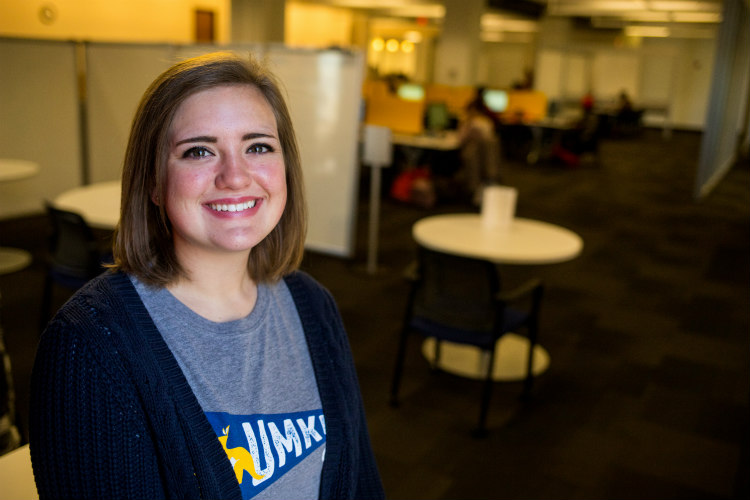
Senior Hayley Benton wants to help people learn
Get to know our people and you'll know what UMKC is all about. Hayley Benton has wanted to be a teacher since she was in first grade, and a degree in education has been a long-time goal.
Hayley Benton ’21Major: Elementary EducationHometown: Omaha, NebraskaHigh School: Millard North High School
A visit to the UMKC website led Benton to visit campus. That visit resulted not only in her enrollment in the School of Education, but her immersion in campus life as a Resident Assistant, a member of the Honors College and a campus ambassador. In addition, Benton was selected as a member of the UMKC Forward committee exploring solutions for university success in the midst of the COVID-19 crisis.
Benton is a helper and her focus during the crisis has largely been on the success of others.
“They say that you’re supposed to put your oxygen mask on first when the plane is crashing, but, that’s not me,” Benton says. “I wouldn’t be able to help people a row or two behind me if I did that. I would be the one running up and down the aisle making sure everyone has their mask on — or had the ability to put their own mask on. If I see someone who needs help, I drop whatever it is that I am doing and I help them no matter what.”
She has stayed on campus and expanded her role with Residential Life to help the students who needed to remain on campus.
“For me, helping students was crucial to my success and really helped me during such a challenging time.” — Hayley Benton
“I am staying on campus throughout the summer as an RA as well,” she says. “For me, helping students was crucial to my success and really helped me during such a challenging time.”
Despite her commitment to students at UMKC, Benton is missing the children in her elementary-school classroom.
“The biggest challenge was that we were no longer able to go to our practicum placements, so my student teaching experience got cut very short,” she said. “I wasn't able to say goodbye to the class. I went from seeing them almost every day to absolutely nothing. I miss their smiling faces, jokes, personalities and out-loud thoughts. It's definitely pulled on my heartstrings.”
She has been able to stay close to her cohort in the School of Education. Beyond online classes, the GroupMe Benton started became an essential way to connect.
“We used it a lot prior to COVID-19, but once classes went online we used it a ton! While we couldn't see each other in person it still felt like we were connected and interacting with one another and building our relationships,” Benton said. “A lot of us faced very difficult things during this time as well and it was amazing to have such a strong support system of empowering women.”
“I’ve learned that I am a strong leader and that I am able to do anything I set my mind to.”
While she is not the first person in her family to attend college, Benton is the first person in a long time.
“I take a lot of pride in my academic drive, my passion for getting a degree in education and for pursuing my dreams this way because it’s not the conventional thing for the rest of my family.”
She has learned a lot about herself since coming to UMKC.
“I’ve learned that I am a strong leader and that I am able to do anything I set my mind to. In high school, I was only involved a little bit. In college, I have thrown myself into a ton of new things in order to be as involved as I can be. I have grown so much as a person.”
Her student teaching and the current crisis have opened Benton’s eyes to the challenges students face and has deepened her commitment.
“It has inspired me to work as hard as I can to better an education system that is failing for a lot of people. I want to pour my heart and soul into my students.”
Hayley’s Highlights
Who do you admire most at UMKC?
Elora Thomas, associate director of admissions, is the person I admire most at UMKC. I am a campus ambassador and Elora is my boss. She is so strong and powerful, and inspires me to be the very best I can possibly be. Sometimes I can get very discouraged because my family members and friends back home don’t understand the value of my work on campus, but Elora has always been so supportive. She has so much passion for this university. I just hope that one day I can be someone’s Elora Thomas, because she is the best person I have ever met.
What’s your favorite social media channel?
RawBeautyKristi on YouTube is so amazing. She’s a very realistic, down-to-earth person who gives her actual opinion on things. It’s so refreshing to hear someone talk about real life on their social media platform rather than the fake stories people make up for entertainment.
What’s something that you’re missing?
I miss aimlessly wandering around Target for over an hour looking at things I never end up buying. Of course, it's a small thing, but it's all about routine.
Where are you finding joy?
I have gone on a ton of walks and I've gone hiking a couple of times. I spent a lot of time—maybe too much time—playing Animal Crossing.
Jun 04, 2020
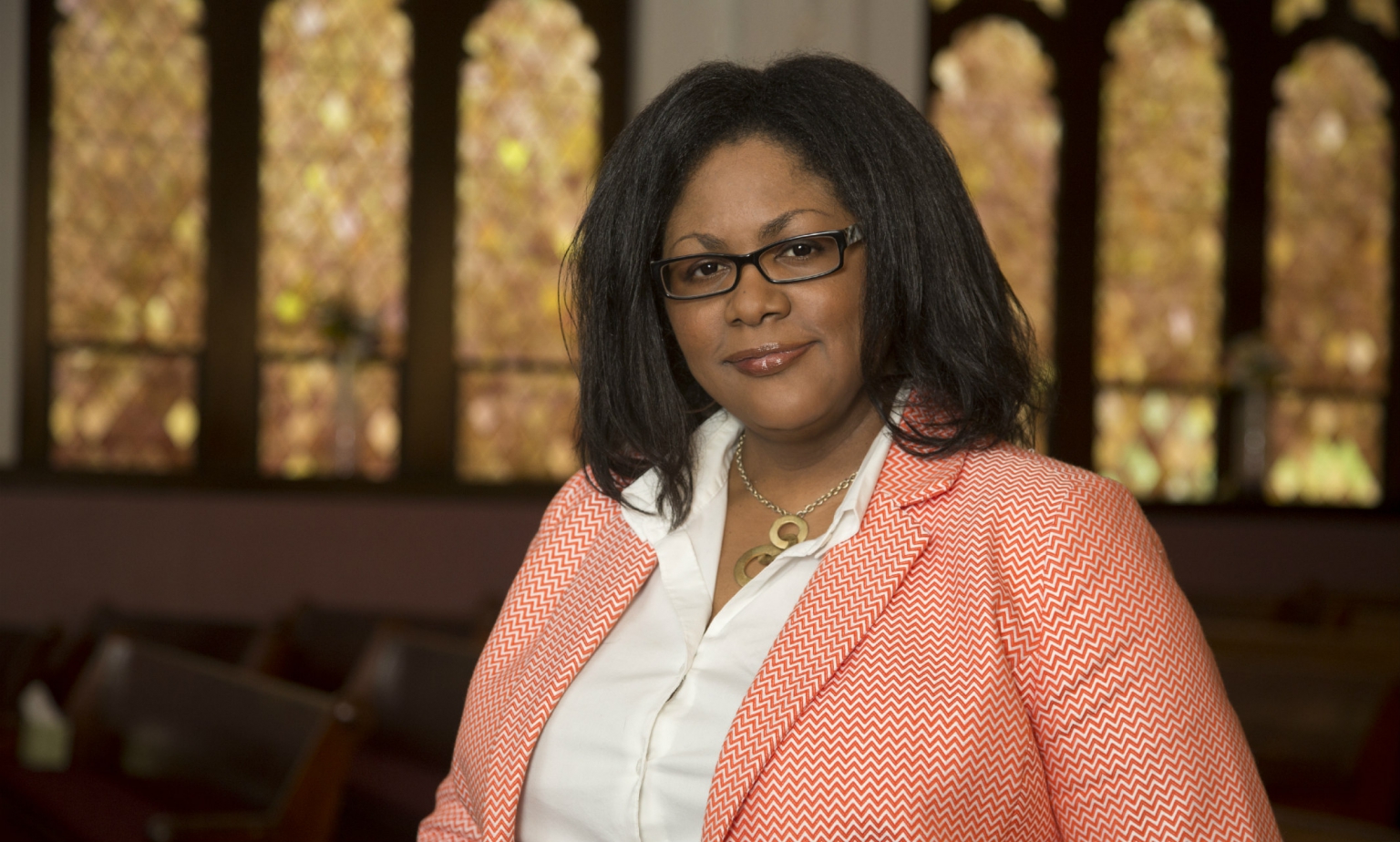
The UMKC Health Equity Institute brings together university researchers, government and community efforts to improve the lives of the underserved
When Chancellor C. Mauli Agrawal needed someone to head the new UMKC Health Equity Institute, he didn't have to look far. The School of Medicine’s Jannette Berkley-Patton is a leader in community health research — just the right person to direct the institute, which is charged with combining the university’s research strengths with community groups’ grass-roots involvement to identify, quantify and reduce health care gaps.
Berkley-Patton, Ph.D., a professor in the school’s Department of Biomedical and Health Informatics, might be best known for her Taking It to the Pews project, an outreach effort through local churches that gets people tested for HIV. She also is director of the UMKC Community Health Research Group, putting her in an ideal position to bring together the university’s research programs and Kansas City social services groups and agencies.
In the year since Agrawal announced the institute, Berkley-Patton has made sure it got off to a running start. The institute has helped new projects large and small, with the goal of lasting improvements in health across social and economic classes. Anything that might improve health — from providing better transportation and more-affordable care to encouraging better eating and exercise — could be involved.
“We spend billions on health care but are still one of the unhealthiest countries in the world,” said Berkley-Patton, who has degrees in engineering, human development and family life, and child and developmental psychology. “Large federal grants can help create effective programs, but we need sustainable improvements that continue when the grants end.”
Berkley-Patton also is determined to keep the institute’s momentum moving forward, despite the COVID19 disruptions to health care and the wider economy.
“In fact,” she said, “the Health Equity Institute is even more important than ever given that these underserved folks who historically have had more challenges in accessing health care services are likely to be hurt the most by the disruptions.
Get on the bus
One big project for the institute will be tracking how free bus service affects people’s health. This year, Kansas City, Missouri, plans to become the first large city with free public transit — dropping bus fares to zero to match the city’s streetcars, which already are fare-free.
The institute, recognizing a golden opportunity to measure the benefits of free public transit, has drawn up a multi-step research plan and submitted ambitious applications for grants from the National Institutes of Health and the Centers for Disease Control.
The CDC grant calls for research into “a natural experiment,” Berkley-Patton said, “and if ever there was a natural experiment, offering free transit is it.”
She continued, “We know from other research that people who use public transit tend to get 5 to 15 minutes more physical activity than non-riders, just getting to and from public transit. So if free bus service increases ridership, we hope to also see improvements in the health of people in low-income areas.”
The institute will start by gathering baseline data, both from comparable cities’ transit systems and from 500 current riders. The plan for identifying those people and getting data from them has been approved by UMKC’s Institutional Review Board, which ensures that research subjects are treated ethically. That data gathering is on hold over COVID-19 concerns, but the institute is ready to go when the situation improves.
The CDC grant the institute seeks calls for data on 10,000 people, which defies individual recruitment. “So, we’re proposing to collaborate with the Truman Medical Centers,” Berkley-Patton said. “We have identified 11 low-income ZIP codes, and TMC has data on thousands of people that can serve as a measure of the health of those areas.”
Of those patients, the institute hopes to have 4,000 take a brief survey, to gauge some basics about them such as income and incidence of health problems including diabetes and obesity.
The institute also plans to recruit 200 occasional bus riders to track, to see whether free service turns them into regular riders, and whether that improves their health.
Berkley-Patton says the elimination of fares should be a good incentive, saving a regular rider an estimated $1,500 in transit costs. And the research should identify other possible benefits, such as having access to more and better jobs.
“We’ve had lots of collaboration on this already to design research and make our grant proposals,” Berkley-Patton said, ticking off allies from Children’s Mercy, the Kansas City Area Transportation Authority and Public Works Department, UMKC Departments of Economics and Psychology, and the Schools of Dentistry, Medicine, and Nursing and Health Studies.
Now the institute must wait — on whether it gets CDC and NIH money to go full bore on its plans, and on when people can resume more normal living and head to jobs, doctor’s appointments and other activities.
‘They miss recess’
Another project is Youth Engagement in Sports, or YES, led by Joey Lightner and Amanda Grimes, UMKC assistant professors in the School of Nursing and Health Studies. When their proposal received an $800,000 grant from the U.S. Department of Health and Human Services, Grimes described the need to increase activity in middle school students.
“The evidence is very clear that American youth suffer from high rates of obesity, inactivity and poor nutrition,” said Grimes, who has a master’s degree in health science and a doctorate in community health.
Joseph Lightner and Amanda Grimes of the School of Nursing and Health Sciences involve students in their community health research.
“Adolescence seems to be a critical time in a child’s life where behaviors are learned or reinforced. Girls are particularly prone to low rates of physical activity during adolescence.”
The YES program will help students at two Kansas City middle schools, Central and Northeast, said Lightner, who has a master’s in public health with an emphasis in physical activity, and a Ph.D. in kinesiology.
According to Lightner, sixth- through eighth-graders are in a tough place between elementary and high school. “In talking with them, we found out they miss recess. They don’t get to play anymore. And they’re suddenly supposed to be adults, often without all the information they need on health and nutrition.”
One goal of the institute is to come up with innovative programs, and YES is certainly that.
“So after school, we’re going to give them a big, healthy snack and then there’s a physical activity intervention — they get to play,” Lightner said. “We’re going to offer competitive and non-competitive games, because we’ve found that some students gravitate to one kind of sport or another.”
By reaching out to the students and their schools, the program also embodies the institute’s emphasis on community engagement. And it draws heavily on another institute strength — collaboration.
TMC’s Mobile Market, which brings healthy foods to underserved areas, will give students a weekly bag of produce along with recipes. Children’s Mercy consulted on the program, providing its expertise with young people’s health. The Kansas City Department of Parks and Recreation will help with the sports activities.
And Lightner, as director of the UMKC Public Health Program and a new bachelor’s degree under it, has recruited undergraduate students to help gather data — and get first-hand experience in devising and tracking the sorts of programs that could become integral in their careers.
The program’s aim is to help at least 300 students at the schools in summer sessions, and then again in the fall. Of course, the level of disruption and other unknowns caused by COVID-19 make it hard to plan. But when school is back in full swing, Lightner wants YES to be making a difference.
“We know this is a pivotal time for students, especially girls,” Lightner said. “Peer groups are really important; there’s a mentality of, ‘If my friends are doing it, I’ll do it.’ So if we get them engaged in physical activity with their friends at this age, they’re likely to continue. And so many benefits, from physical and mental health to staying in school and achieving academically, have been demonstrated.”
Seeding other efforts
Another goal of the institute is to communicate across the university and among hospitals, government health agencies and community groups. A database is being compiled for training and other resources, along with opportunities to collaborate.
The institute's new website will be a clearinghouse for everything from health indicators to grant opportunities and processes. That could help community groups connect, for example, with the Health Forward Foundation, a Kansas City fund that promotes healthy communities.
The institute also will be awarding mini-grants, with the aim of giving several community groups a few hundred dollars each for health-related training, software, added staff help and other basics.
Overcoming health disparities is a huge task, made more daunting by the COVID-19 disruptions. But BerkleyPatton and other Health Equity Institute partners have had success in the past and will keep looking for new ways to reshape access to health care.
“It will be a while before we know how much damage the pandemic has done,” she said. “But we do know that research programs that involve people in improving their own health can make a real difference, and it’s going to take all the innovative, collaborative efforts we can build to help those most affected.
Jun 03, 2020
As protesters and police clash in cities from coast to coast, Kansas City discusses a way forward
Ken Novak, professor of criminal justice and criminology at the University of Missouri-Kansas City, was a guest on KCUR's Up to Date.
Jun 03, 2020
Ken Novak, UMKC professor of criminal justice and criminology, was a guest on KCUR's Up to Date.
The June 2 show was devoted to hearing what listeners have to say about the situation, which included a journalist, faith leader and criminal justice expert. Listen to the segment online.
Jun 02, 2020
The Kansas City Star featured Mary McMurray
‘Johnson County Museum tells the story of suburbia.’ Its new director embraces history. Read the story here.
Jun 01, 2020
Police report 68 homicides so far this year, compared to 56 in the same period a year ago
Ken Novak, a criminologist at the University of Missouri-Kansas City, offered this perspective: Kansas City’s per capita homicide rate last year was about 30 deaths per 100,000 residents. Read the full article from the Associated Press.
Jun 01, 2020
Max Skidmore has been providing local and national media interviews
Max Skidmore, author of a book on presidential leadership during health crises, was quoted in an article by the Washington Post e-Replica Newspapers in Education.
Jun 01, 2020
Studies Explore the Question: ‘Has My Insulin Gone Bad?’
The experts who led this study included Dr. Alan Carter of the non-profit MRI Global research group and a pharmacy professor at the University of Missouri-Kansas City, and Dr. Lutz Heinemann, a San Diego-based expert on insulin and emerging biosimilars. Read the story here.
May 31, 2020
Brandon Henderson, new UMKC student body president was interviewed about his experience at local protests
‘It could’ve been me’: Why one Kansas City student attended protest for black lives. Read the story here.
May 31, 2020
Max Skidmore, political scientist at UMKC shares insights on politics and pandemics with multiple publications.
Read the MSN article: Trump tightens grip on coronavirus information as he pushes to restart the economy
Read The Philadelphia Inquirer article: Trump’s push to reopen Pennsylvania adds 2020 politics to a heated coronavirus debate
Read The Deseret News article: How the pandemic might have been different if this wasn’t an election year
Read The Washington Post article: Trump’s baseless claim persists
Read The Washington Post article: President inflames rather than soothes
May 30, 2020
Ken Novak, a criminologist at the University of Missouri-Kansas City, offered this perspective on rising homicide rates
Homicides spike in Kansas City; on possible record pace. Read the story here.
May 30, 2020
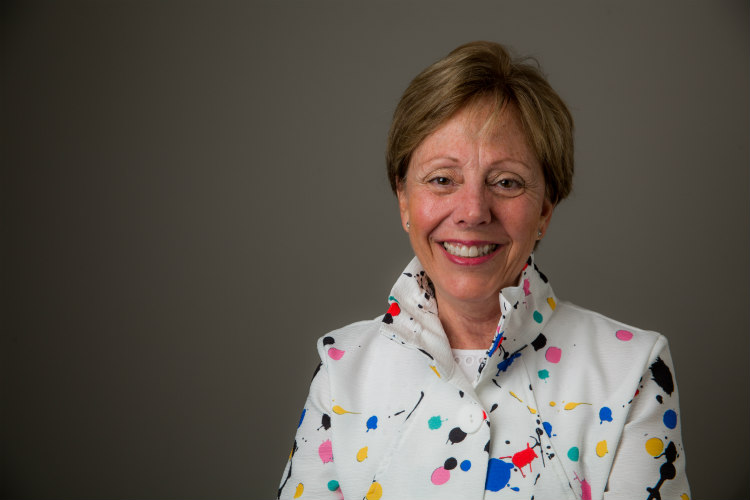
Dean of UMKC School of Medicine separates facts from fiction
Mary Anne Jackson, M.D., dean of the University of Missouri-Kansas City School of Medicine, is an infectious disease expert.
Also an alumna from the UMKC School of Medicine’s innovative six-year B.A./M.D. program, she served as one of six physicians statewide advising Missouri Governor Mike Parson about COVID-19, and was recently named senior advisor of public health in a five-member volunteer group on how Jackson County should spend its $122 million in CARES Act funding.
On numerous media appearances, Jackson has answered questions about evidence-based practices in dealing with the coronavirus pandemic. Here are just a few examples she’s dispelled of legend and lore about COVID-19:
1. A chiropractor has been publicizing an IV vitamin C product as a possible treatment for COVID-19. Anything to that?
Jackson: While there is biologic plausibility based on the hypothesis that when an individual suffers a severe infection, vitamin C which is necessary for cellular and tissue function, is depleted, there is no scientific evidence to support the use of vitamin C in the management of hospitalized COVID-19 patients. There is no data to support its use as prophylaxis that would be given in a chiropractor’s office.
One study registered at clinicaltrials.gov, will investigate the use of IV vitamin C in SARS-CoV-2 pneumonia patients in China using a randomized control trial protocol. The randomized control trial using a standard control group receiving placebo vs. the treatment group excludes bias and allows the outcome variable to be clear. This is especially important for COVID-19 where we know many cases spontaneously improve. There have been two recently published studies that are “open label” (no control group) to study the use of vitamin C in non-SARS-CoV-2 infections where individuals suffered from shock and acute respiratory distress syndrome. Neither showed clear evidence of benefit.
What is interesting is that anti-vaxxers appear to be circulating information on social media to drive the unproven messaging around vitamin C. For treatment of disease, trust a well-trained healthcare professional who practices evidence-based medicine and has extensive clinical experience.
2. Does heat kill the coronavirus? For example, the sun? A hot bath? Drinking hot water?
Jackson: There is no evidence of a benefit to flushing the virus from your system by drinking hot water or taking a hot bath. Drinking water will keep one hydrated and that is recommended for all.
The concept that heat can affect the virus is one worth discussing. The virus that causes COVID-19 is an enveloped virus, and enveloped viruses do generally demonstrate sensitivity to temperature and therefore may be more likely to appear or disappear during certain seasons related to temperature.
Research on other enveloped viruses suggests that this oily outer coat makes the viruses more susceptible to heat than those that do not have one. In colder conditions, the oily coat hardens into a rubber-like state, much like fat from cooked meat will harden as it cools, to protect the virus for longer when it is outside the body.
Many viruses wax and wane in seasons. Influenza typically arrives with the colder winter months. So does norovirus and RSV. Measles cases drop during the summer in temperate climates, and increase when schools are in session.
But we have no information about how the virus that causes COVID-19 will change with the seasons.
For one thing, pandemic viruses often don’t follow the same seasonal patterns seen in more normal outbreaks. Spanish flu, for example, peaked in the summer, while the typical seasonal flu peaks occur during the winter.
Even if COVID-19 does show some seasonal variability, it likely will persist to some degree and not totally disappear in the summer. A dip in cases will bring benefits, however. If it decreases in the summer, it is likely to re-emerge again in the fall. But there will be fewer susceptible individuals at that point, too, so potentially fewer cases-depending on how much of the population remains susceptible after the first wave.
3. If there has been a day of rain followed by sunshine, is playground equipment safe from COVID-19?
4. Jackson: As the weather warms, people will want to be outdoors and I’ve seen more people in our community outdoor walking and running in neighborhoods and in areas of parks and trails. It’s important to be outside to keep healthy, physically and mentally. And I especially like that I’ve seen families outside with their kids, who need to be active especially since they have no school and can’t be out with friends.
CDC and the World Health Organization (WHO) have been emphasizing that to control the COVID-19 epidemic, we must “flatten the curve” — that is, reduce the amount of transmission of the virus. We know that one proven way to accomplish this is by physical distancing — keeping six feet or more from other individuals and taking precautions to wash hands, refrain from being in enclosed spaces with other people, disinfect surfaces and other precautions to prevent the spread of the virus.
But do not take the kids to public playgrounds—you’ll find that all are cordoned off so that equipment can’t be accessed. Not only would open play areas encourage the kind of close contact we are trying to limit, but also, contaminated surfaces have been found to have detectable virus—including plastic and stainless steel. The duration that virus could exist on wood is not clearly known. There is no good evidence that following rain and with a day of sunshine, the playground is safe. There is no present guidance from CDC on how best to manage these spaces, including recommended cleaning and disinfection for outdoor equipment to prevent transmission of the coronavirus.
Bottom line: Avoid the playground (and play dates) for kids while you are social distancing unless it is the playground in your own backyard for your family.
4. Should you consider deliberately exposing yourself to inoculate yourself?
Jackson: In the past, some parents participated in “chickenpox parties” to intentionally expose their unvaccinated children to a child with chickenpox in hopes that they would get the disease. CDC strongly recommends against hosting or participating in these events because serious complications and even death can follow infection and one cannot predict how severe the disease will be.
Now the same bad idea has emerged related to COVID-19. On March 24, it was announced that an individual in Kentucky tested positive for the novel coronavirus after they attended a "coronavirus party" for people in their 20s.
Young people are less at risk of developing serious complications of COVID-19, the disease caused by the novel coronavirus, but they may still require hospitalization for serious symptoms. And even someone who only contracts a mild case of the disease can spread it to vulnerable people.
We need to wait for the vaccine—and until then continue social distancing.
5. Can livestock pass COVID-19 on through our food supply?
Jackson: There are some food products that can be contaminated and pose a risk for transmission to humans—like E coli, norovirus and hepatitis A. That is why there is emphasis on food preparation safety in general.
The bacteria and viruses that are transmitted by food products are those that cause gastrointestinal infection. SARS-CoV-2 is a respiratory virus and there is no known foodborne risk for transmission.
There is no evidence that livestock or any other food product in the U.S. is a vector for transmission of the virus, and there is no evidence of human or animal food or food packaging to be associated with disease transmission.
There is no risk of food product recalls, and the U.S. food supply is safe.
6. Will drinking lots of water wash the virus down to your stomach where it will be killed by stomach acid? What about drinking bleach? Can you ward off the virus by eating food with higher PH level?
Jackson: Washing the virus down the esophagus will not reduce the risk of coronavirus and the virus is resistant to the diluted acid in the stomach
Gargling with water or with an antiseptic solution, compared to doing neither, did reduce reports of respiratory symptoms in a study from Japan. However, the findings don’t necessarily apply to COVID-19 – and it’s dangerous to assume that they do.
The main risk is from breathing in tiny droplets containing thousands of viral particles after an infected person coughs or sneezes within 6 feet from you.
The overwhelming evidence suggests that the best approach remains avoiding unnecessary social contact and washing your hands. So, put down the water and pick up the soap instead.
Drinking bleach is not a cure and is dangerous—it can result in vomiting, diarrhea and liver failure. Some bleach-based cleaners, however, are helpful for keeping surfaces virus-free.
7. Pets cannot spread the coronavirus, can they?
Jackson: This virus is thought to have jumped from animals to humans, but there is no evidence that it is spreading among pets or from cats and dogs to their owners. Cats have been infected, both at the zoo and in homes-but there is no evidence that cat to human transmission is a significant concern. There was one instance in Hong Kong where a dog tested positive, but the dog was well, and it was thought contaminated by secretions from the infected pet owner.
The CDC suggests letting family members without symptoms take on pet care and recommends that people with symptoms should avoid close contact such as “petting, snuggling, being kissed or licked, and sharing food.”
When you care for your pets, wash your hands before and after handling and feeding.
8. Does ibuprofen make COVID-19 symptoms worse?
Jackson: I first heard of the ibuprofen alert after a report from the French health minister, Olivier Véran, identified that it could be a factor in worsening the infection based on anecdotal reports from physicians treating patients in that country. Then there was a letter that was published in the British medical journal The Lancet Respiratory Medicine where it was hypothesized that ibuprofen could make it easier for the new coronavirus, SARS-CoV-2, to enter cells. The theory is that ibuprofen could increase the levels of ACE2, which is a protein that the coronavirus uses to enter cells and might therefore increase the risk of serious infection. However, there is no evidence that ibuprofen raises ACE2 levels.
The National Institute of Allergy and Infectious Diseases says more research is needed, but right now, there is “no evidence that ibuprofen increases the risk of serious complications or of acquiring the virus that causes COVID-19.”
There are reasons in general to avoid ibuprofen and other non-steroidal anti-inflammatory drugs (NSAIDs) because they are known to have gastrointestinal, kidney and cardiovascular side effects, which may be especially dangerous in very ill or elderly patients or in those with preexisting conditions.
9. Does putting petroleum jelly in your nose prevent the virus from getting into pores? Will rinsing your nose with saline prevent the virus?
Jackson: In the face of the COVID-19 coronavirus outbreak, it’s natural that we’re looking for ways to stay healthy. Washing your hands and practicing social distancing are two proven pieces of advice that are more important than ever.
A dry nose can make one more vulnerable to viruses and certainly is an irritant for those who suffer allergies. A water-based product can help. Using saline or saltwater nose rinses will not prevent the virus, but in certain people with asthma for instance, who also have nasal and sinus symptoms, a saltwater nasal wash, or nasal irrigation, can help reduce nasal symptoms that can aggravate asthma.
According to National Jewish Health, a nasal wash:
Cleans mucus from the nose, so medication can be more effective
Cleans allergens and irritants from the nose, reducing their impact
Cleans bacteria and viruses from the nose, decreasing infections
Decreases swelling in the nose and increases airflow
But do not use tap water for the nasal wash. Do not use well water. Only use distilled or sterilized water for nasal rinses. And follow the CDC water preparation guidelines for proper preparation.
Avoid petroleum jelly in the nose—it can be inhaled and cause lung injury called lipid pneumonia. Don’t use antibiotic ointment either—that type of ointment does not fight viruses.
10. Can kids die from COVID-19?
Jackson: While children have been generally spared from COVID-19, pediatric cases requiring intensive care have occurred within our state and there are rare child deaths. The burden of disease is far less for children than influenza though.
A new syndrome, recently described, called Multisystem Inflammatory Syndrome in Children (MIS-C). MIS-C is an inflammatory response with organ dysfunction, thought to be triggered by prior exposure to SARS CoV-2. On May 14, 2020, the Centers for Disease Control issued a health advisory, to alert providers to this condition, which has now been identified in at least 19 different states and Washington DC. Parents should report to their pediatric provider if their child develops fevers especially associated with a rash. While the prognosis is good, children have suffered shock and required intensive care—the syndrome is extremely rare and we are still learning more about it.
11. If you can hold your breath for 10 seconds, does that mean you don’t have the virus?
Jackson: It is true that those with serious lung disease of many types, such as emphysema, may not be able to hold their breath for 10 seconds.
Many respiratory viral infections make it difficult to hold your breath because the airway is irritated. The inability to do so does not identify those who have COVID-19.
This false claim was first attributed to someone at Stanford University Medicine—and the spokesperson at Stanford denies it came from them, and on March 12, they posted on social media that this was misinformation.
The only way to know if one is infected by SARS-CoV-2 is by testing secretions obtained by a swab placed in the nose/throat and having the specimen tested in a laboratory.
12. Is cupping a treatment for COVID-19?
Jackson: Cupping is a process whereby the skin is bruised using a suction cup over the skin, and is used in traditional Chinese medicine for a variety of ailments. It is being studied in a Chinese population convalescing from COVID-19, but there is no evidence that it is beneficial at this point.
13. Is proning a treatment for COVID-19?
Jackson: There is no specific treatment for COVID-19 and we currently rely on supportive intensive care including oxygen, IV fluids andmechanical ventilation. Of specific therapies targeting SARS-CoV-2, none have been adequately studied, but there are some encouraging reports. Prone positioning of those with respiratory failure, meaning having the patient on a ventilator lay face down, was shown in a small study to result in better lung function with better oxygen levels and this treatment is being incorporated into care now.
Other therapies which are being examined include the use of hydroxychloroquine, an antimalarial drug which was shown to inhibit virus in a small study when paired with an antibiotic called azithromycin. We now know that there is no data to support its efficacy and individuals accessing chloroquine products and suffering life-threatening toxicity.
There are a couple broad-spectrum antiviral agents (one used in Ebola called remdesivir) that are being studied. Remdesivir is an intravenous drug used for those with serious COVID who require hospitalization and treated patients have shown a shortened course of disease.
Drugs that modify an inflammatory over-response seen in COVID-19 appear promising. These agents inhibit IL-6, an immune modifier, and are also being studied in severe cases of COVID-19.
14. Even though COVID is here to stay, at least for the next six months to a year, is it okay for me to go out into the community now? Can I go to the doctor for my routine care?
Jackson: We have successfully flattened the curve here in Kansas City, but COVID is continuing to circulate. The chance that you’ll be exposed to SARS CoV-2, is related to three factors:
what activity you are involved in
your proximity to others
the duration of exposure
Risk is greatest for indoor exposure where individuals are in close quarters with a large group of people. After a choir practice that took place in Washington on March 17, 2020, among 122 choir members, 87% of the group became infected from one infected member—it appears the act of singing amplified the spread of the virus. In contrast, if one is outdoors for a limited time, and can socially distance from others, the risk is very low.
In terms of going back to your doctor for routine appointments, every provider in our community is prepared to care for patients even while the virus is still circulating. It is especially important that infants and children visit their pediatrician and get their immunizations on time. Many pediatricians are asking parents to call on arrival to the office, and the provider will text when the office is ready to place the patient directly into an examination room. We don’t want a measles outbreak in our community while we’re still tackling COVID!
May 28, 2020
Three-phase process will run June 1 through August 24
The University of Missouri-Kansas City will begin to repopulate its two Kansas City campuses in June, using a phased approach designed to protect the health and safety of students, faculty, staff and visitors.
Phase 1 of the plan runs June 1 to July 5 and will include a small group of employees engaged in critical operations that support the university’s core mission and who must be physically present to effectively complete their work duties.
Phase 2 runs July 6 to August 2 and brings back to campus senior administration and departmental leaders heavily engaged in student services and academic roles preparing for the fall semester.
Phase 3 runs August 3 to August 24. During this period, all remaining faculty, staff and students will return to campus, except for those with individual medical exemptions. The plan includes guidelines encouraging people to wear face coverings on campus. Masks may be essential under certain work/educational conditions which preclude adequate social distancing.
The university plans to return to in-person classes in August but will monitor the public health situation closely and constantly, following Centers for Disease Control and Prevention (CDC) and local guidelines, and make changes to steps, timelines and requirements in the plan as needed. UMKC is #RooReady to begin classes in the fall, no matter what that looks like, whether it’s in person, online or a mix of both.
“The time has come for us to prepare in earnest to return to campus,” said Chancellor Mauli Agrawal. “We will do so carefully and flexibly, because the health and safety of our community is our highest priority. We will continue to be team players in the overall effort to both reduce the impact of the virus and rebuild and restore our economy and our society. ”
May 28, 2020
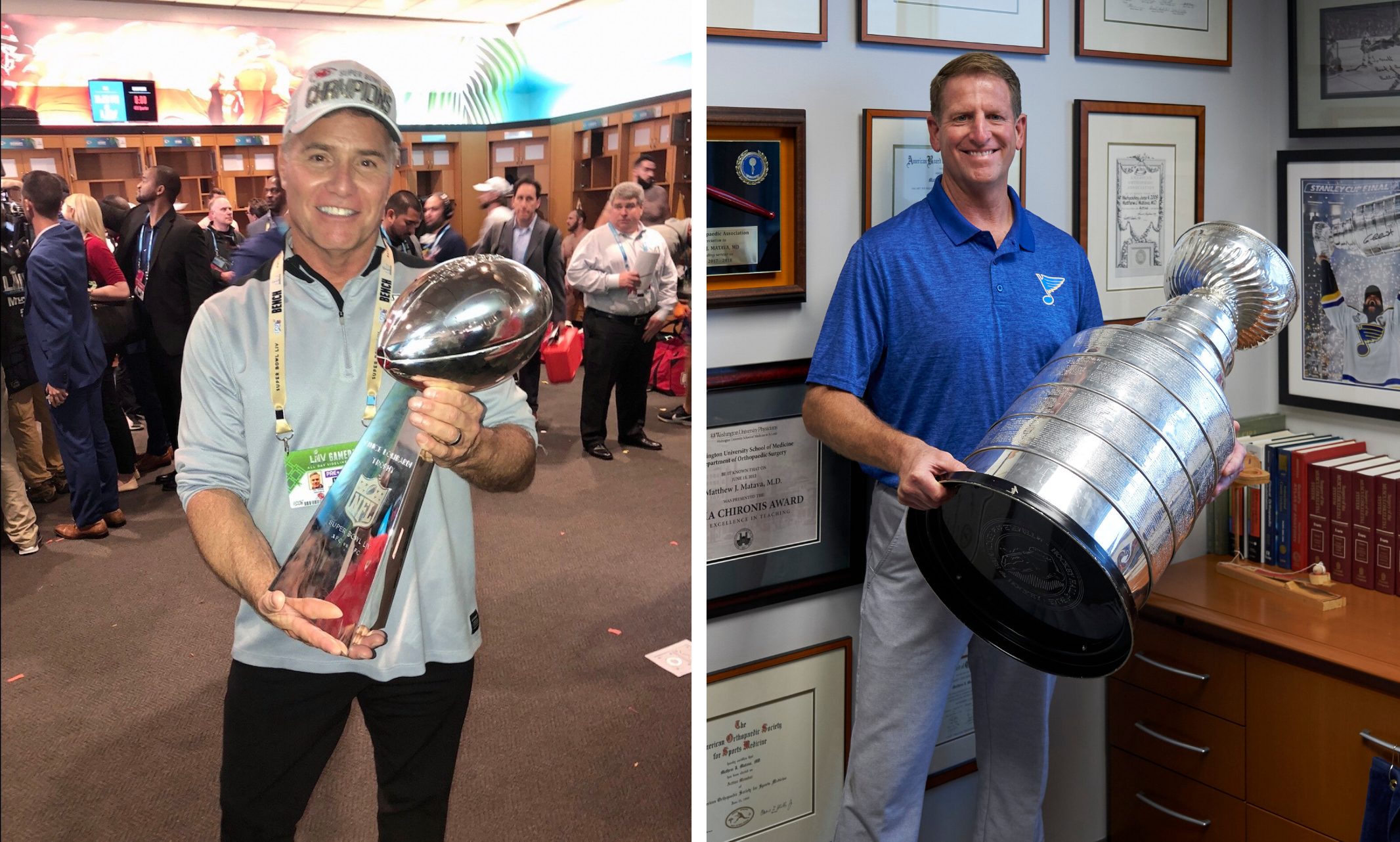
School of Medicine classmates celebrated their teams' super seasons
What a difference a few months can make.
In February, team physician Michael Monaco (B.A. ’84, M.D. ’87) was holding the Kansas City Chiefs’ Super Bowl trophy. Now, he has a new granddaughter he hasn’t held yet, to keep her from any possible coronavirus exposure.
And last June, orthopedic surgeon Matt Matava (B.A. ’86, M.D. ’87) was tending to the St. Louis Blues as they won their first-ever National Hockey League championship. Now, he’s slowly reviving his regular surgery practice and wondering whether the rest of the hockey season will be canceled.
Both savor the camaraderie and association with elite athletes that make being a team physician special, and the particular joy of being part of a championship. But they also confront the challenges and uncertainties, personal and professional, that the pandemic has put front and center for everyone.
The peak
They didn’t complete the big touchdown pass or make the winning slap shot, but Monaco and Matava did their part to make their teams champions in the past year.
In February, Monaco was the senior physician on the sidelines with the Kansas City Chiefs when they won the team’s second NFL championship, 50 years after their first.
“I have been with the team 26 years,” Monaco said. “When I realized we were going to win the Super Bowl, I got a little teary-eyed.”
It was much the same feeling for Matava the previous June, when the Blues took the Stanley Cup.
“In 23 years with the Blues, my most memorable experience was being in Boston for Game 7 of the Stanley Cup Finals,” Matava said. “I got to hold the Stanley Cup overhead on the ice and drink champagne out of the cup in the locker room during the player celebration.”
Getting to the top, though, took years of effort, starting at the School of Medicine.
Matt Matava in his office with the Stanley Cup.
The long climb
Matava played basketball for UMKC while he was in medical school, and he wanted to be a surgeon. That focus turned to orthopedic surgery for athletic injuries when a torn ACL (a knee ligament) knocked him off the basketball court. He experienced first-hand the important process of recovering from a serious injury.
“Though I wasn’t drawn to internal medicine, my docent was Marjorie Sirridge, an excellent internist,” Matava said. “She taught us the importance of being thorough in the evaluation of patients … of sitting down when speaking with patients to let them know that you are taking time specifically for them. Doctors in general and surgeons in particular have a reputation for paying more attention to lab tests and imaging studies than to the patient themselves. No one should underestimate the importance of the physical exam.”
When he returned to his native St. Louis after a sports medicine fellowship in Cincinnati, it didn’t take long to find work with sports teams to go along with a private practice. He became a team physician for Washington University, a job he still holds along with being a professor of orthopedic surgery. He also worked for the St. Louis Rams for 16 years, until the franchise moved back to Los Angeles. That’s in addition to serving the Blues, a position he’s held since 1997.
The clock is always running
But for all the excitement of being part of sports, being a team physician also means hard work, long hours and performing under intense pressure.
“Hockey season involves up to three games a week from October to April for the regular season and into June for a deep run in the playoffs,” Matava said. “When I finish my regular clinical duties, I head to the games.” Add in his 25 years serving Washington University’s sports teams — along with football games each fall weekend during the years he was with the Rams — and Matava has spent a lot of time in locker rooms and away from his family.
“In 23 years with the Blues, my most memorable experience was being in Boston for Game 7 of the Stanley Cup Finals."—Matt Matava
“But the most challenging aspect of being a team physician or surgeon,” Matava said, “is having to ‘bat 1,000’ in the care of every player, considering the scrutiny of the public, media, team administration, agents and other team members.”
In Monaco’s situation, being the Chiefs’ head medical team physician is a year-round job. “From the end of July when training camp begins until the exit exams after our last game, two days after the Super Bowl this past season, there are daily issues: medication changes, illness evaluations, exams for new players acquired.” He’s also involved in the preparation for the NFL Combine each February, a weeklong showcase for possible pros coming out of the colleges, and the NFL draft in April.
“I also have a full-time internal medicine concierge practice with my partner of more than 20 years,” Monaco said. “He’s been very supportive, which makes doing both possible.”
Monaco with internal medicine and Matava with orthopedic surgery exemplify the two main types of medicine for sports teams. And they both will tell you it’s about a lot more than operations to mend broken bones or reconstruct damaged joints.
According to Monaco, his medical team handles various types of injuries, such as chest and abdominal problems. In a given week, they might take care of more players than the surgical and rehab staff, keeping players hydrated and managing their electrolytes if there’s a bug going around. Quickly isolating a player with the flu, for instance, can protect the rest of the team.
“I have been with the team 26 years, when I realized we were going to win the Super Bowl, I got a little teary-eyed.”—Michael Monaco
Working and waiting
When the NHL season was suspended, Matava noted, “the team was in first place and expecting the return of Vladimir Tarasenko, our star goal scorer, whose shoulder I fixed earlier in the year.”
Now, he said, he can see the players if they are injured or require rehabilitation, but the training facility, practice rink and weight room have been off-limits across the league. Whether the season resumes or is canceled remains up in the air.
For several weeks at his other practices, Matava said, “Washington University and Barnes Hospital were on a strict lock-down with all non-emergency surgeries and procedures cancelled to treat COVID-19 patients. The most COVID patients we have had at our hospital was 95. We are now allowed to return to 50 percent of our normal duties.”
Monaco, far right, with students from the UMKC School of Medicine. For many years, Monaco was a supervising physician, known as a docent, for a group of first- and second-year medical students.
For Monaco, coping with the pandemic has meant focusing on safety for his staff and patients, and for Menorah Medical Center in Overland Park, Kansas, where he is on the Medical Executive Committee. Precautions have worked to reduce the pandemic’s effects, but they can’t be eliminated.
“After my first positive COVID-19 in the office, I have been doing all testings outside in the parking lot using personal protective equipment,” he said. “I am doing this to protect my staff, others in the office and all those who come into our medical building.”
One picture in particular, of a tent attached to the hospital, haunts Monaco: “Family members of COVID-19 patients cannot be allowed in the hospital, but we placed a tent next to the window of one dying patient in the intensive care unit to allow the family to be with and grieve for their loved one.”
Personally, Monaco said, precautions have meant he has yet to hold his third granddaughter, born just a few days before the pandemic was declared. And his son, Nicholas Monaco, a 2017 graduate of the six-year medical program at UMKC, is serving his internal medicine residency in Georgia, where the incidence of coronavirus cases is high.
“I would say this virus has had a definite impact on my life professionally and personally, like so many other health care workers,” Monaco said.
Monaco also is in touch with other Chiefs physicians, and infectious disease specialists across the country, as the team moves toward possibly reopening some facilities. Resuming sports would provide a great emotional outlet for fans, he said, but there’s no telling when that might be possible safely.
“Unfortunately, I do not see it going away soon,” he said. “I can only hope we come up with more and improved testing to give us the data that we need to make better decisions, better treatment protocols to reduce the morbidity and mortality associated with this virus, and eventually a vaccine to once and for all give the global community enough herd immunity so we can get back to work and life again.”
May 27, 2020
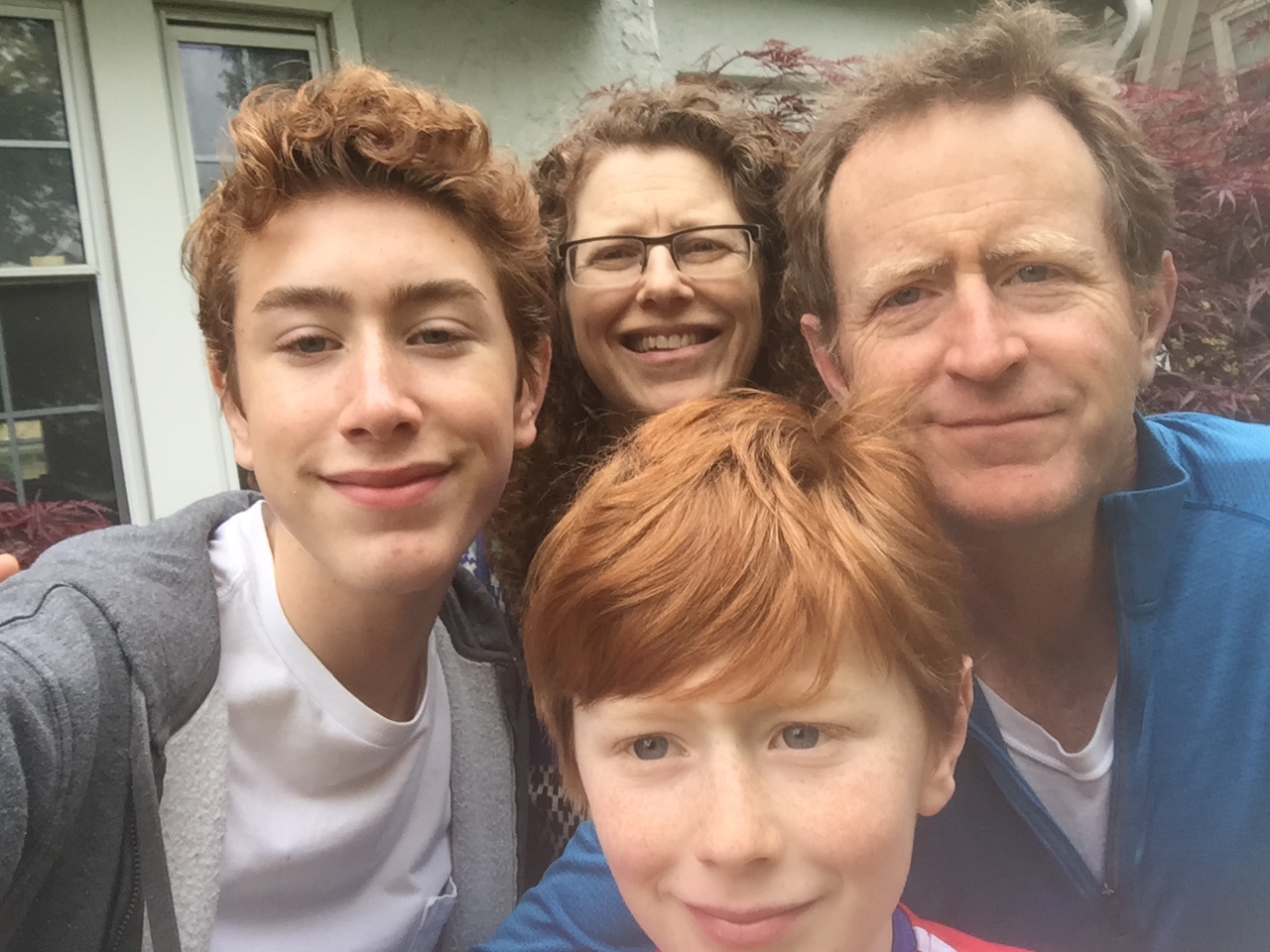
Checking in to see how our UMKC community is managing the highs and lows of sheltering in place
Gayle Levy and Whitney Terrell are working at home as their two sons go to school via Google Classroom and their cat, Dusty, composes signs in order to get some sleep.
The advantage for married UMKC professors Gayle Levy, associate professor of French and director of the Honors College and Whitney Terrell, associate professor of English, is that they have a keen understanding of each other’s jobs. They start each day working in their own offices, while their two sons, Moss (15) and Miles (10) attend school online. While Levy moves from Zoom meeting to Zoom meeting, Terrell is finishing up his new novel, “The Crossroads.”
“Miles has made silly signs that we put up on our doors when we can’t be disturbed,” Levy said.
Her sign reads, “Do no desturb! Kat uzally zweepin.”
"We're getting a puppy!" - Miles Terrell
While the family is mostly finding their greatest joys being with each other, they are indulging in some distractions.
“Moss has online piano lessons and drama classes through the Coterie,” Levy said. “Miles practices soccer online, which he does in the living room.”
But some activities are less demanding.
“Miles spends some time on House Party (a social media app) and playing Pictionary with friends,” Levy said. “Moss is generally Snapchatting with friends.”
While Levy is missing her students and the boys are missing their friends, the Levy-Terrell clan is welcoming a big dose of joy. “We’re getting a puppy on Sunday!” Miles proclaims.
What are you reading?
Levy: Nana by Emile Zola
Terrell: MFA theses
Miles: Wings of Fire books by Tui T. Sutherland
Moss: Shakespeare’s Midsummer Night’s Dream - for school
What are you watching?
“Miles watches 3-4 Simpsons episodes PER DAY!” Levy said. “I’m just thankful that the show has been on for like 30 years! Moss watches “Gossip Girls” and I’ve been watching “This is Us.” As a family most recently we have watched “Blazing Saddles,” “Smokey and the Bandit,” and “Rocky.” Terrell and Moss just finished “The French Connection” and “Breathless” and I showed Moss “Harold and Maude”—my favorite!”
What are you eating?
“Great food!” Levy said. “Moss cooks a few times a week. Tonight, we had miso chicken but he has also prepared shakshouka, curried shrimp, Mediterranean lamb chops and a three-berry pie. I made Guinness cake for Moss’s 15th birthday, which was last week, and lots of banana bread.”
May 27, 2020
Ivan Ramirez, student services coordinator, UMKC Multicultural Student Affairs, and Sandra Enriquez, assistant professor of UMKC History and direct...
Listen to the podcast episode: The Filter Ep. 4: ‘Graduation Day’
May 27, 2020
Brian Frehner, Ph.D., Clara Irazábal-Zurita, Ph.D., and Charles Inboriboon, M.D., will use the awards during the 2020-2021 academic year.
Three University of Missouri-Kansas City faculty members, Brian Frehner, Ph.D.; Clara Irazábal-Zurita, Ph.D.; and Charles Inboriboon, M.D.; have received prestigious Fulbright U.S. Scholar Awards for the 2020-2021 academic year.
The Fulbright program is the U.S. government’s flagship international educational program. Award recipients teach, conduct research and provide expertise abroad in a program designed to build lasting connections between the people of the United States and other countries.
Frehner, associate professor in the UMKC History Department, received an award to Germany where he plans to teach and conduct research for three months. Much of his time will be spent working with colleagues at the University of Hamburg to expand upon an online course that examines themes in transatlantic history and German migration from Hamburg to St. Louis, Missouri..
He will also travel to Munich to review documents in the Deutsches Museum relating to the acquisition of oil exploration technology related to geophysicial oil exploration. The research is for a book he is working on that details the science and technology of exploration geophysics that seres as the basis for oil discovery throughout the world.
Irazábal-Zurita, director of the Latinx and Latin American Studies program and professor of planning in the Department of Architecture, Urban Planning + Design, received an award to lecture and conduct research at the Universidad de Costa Rica. She will focus on selective (dis)affiliations and (sub)urban implications of middle-class Venezuelan migration to Costa Rica.
The project is an extension of her study of migration and urban planning in U.S. Latinx/immigrant communities and in Latin America, including Costa Rica and Venezuela. Irazábal-Zurita plans to conduct her work in Costa Rica during the summers of 2021 and 2022.
Inboriboon, director of International Emergency Medicine Programs at the School of Medicine and associate professor of emergency medicine, received an award to Thailand where he plans to spend six months teaching at Chulalongkorn University in Bangkok. His project will enhance emergency medicine education by incorporating active learning into the didactic curriculum. He will also be developing online learning resources and enhancing individual learner feedback.
Inboriboon has led several programs in Thailand during the country’s transition to competency-based medical education.
Fulbright award recipients are selected on the basis of academic and professional achievement, record of service and demonstrated leadership in their respective fields. Funded through the U.S. Department of State, the program is also supported by and operates in more than 160 countries throughout the world.
May 26, 2020
41 Action News shares updates on Main Street extension
KC Streetcar gets federal approval for Main Street Extension. Listen to the story here.
May 26, 2020
KMUW interviewed Ann Marie Marciarille, a UMKC law professor with a specialty in health care
A Kansan's $50k Medical Bill Shows That You Don't Always Owe What You're Charged. Read the story here.
May 26, 2020
KCUR shares the sentiments of college bound students
Danashia Scott plans to attend the University of Missouri-Kansas City to study dental hygiene. Read the story here.
May 24, 2020
Christopher Holman, professor at the University of Missouri-Kansas City School of Law, wrote this article.
Coronavirus Treatment: The Next Great Cure Might Be Hiding In Your Medicine Cabinet. Read the story here.
May 23, 2020
School of Medicine dean and director of Latinx and Latin American Studies will help guide $122 million in CARES Act spending
Two of the five advisors named to help guide Jackson County on spending CARES Act funds from the federal government are top UMKC faculty members: School of Medicine Dean Mary Anne Jackson, M.D., and Clara Irazábal-Zurita, Ph.D., director of the Latinx and Latin American Studies program and professor of planning in the Department of Architecture, Urban Planning + Design.
The county received about $122 million under the federal government’s CARES Act to aid the county’s response to the COVID-19 pandemic. Members of the volunteer advisory group will provide recommendations to County Executive Frank White Jr. and the legislature on how to allocate funding consistent with CARES Act restrictions to have the greatest and most direct impact for the community.
Joining Jackson and Irazábal-Zurita on the advisory group are former Kansas City Mayor Sly James, former Kansas City Mayor Pro-Tem and Councilwoman Cindy Circo and accountant Rachelle Styles.
Mary Anne Jackson, M.D., dean of the UMKC School of Medicine
Jackson, who is also an alumna from the UMKC School of Medicine, will be the senior advisor on public health. In addition to her role as dean, she is a pediatric infectious diseases expert, affiliated with Children’s Mercy and internationally known for her research. She is widely recognized for developing one of the nation’s leading and most robust pediatric infectious diseases programs. She serves as a member of the National Vaccine Advisory Committee, at the direction of the United States Assistant Secretary of Health, to provide recommendations for ways to achieve optimal prevention of human infectious diseases through vaccine development. During the current COVID-19 crisis, Jackson has served as one of the six physicians statewide advising Missouri Governor Mike Parson. She also continues to be a frequently sourced expert for the media and national publications.
Clara Irazábal-Zurita, Ph.D., director of the Latinx and Latin American Studies program and professor of planning in the Department of Architecture, Urban Planning + Design
Irazábal-Zurita will be the senior advisor on community development and humanitarian response. Before joining UMKC, she was the Latin Lab director and associate professor of urban planning in the Graduate School of Architecture, Planning and Preservation at Columbia University in New York City. In her research and teaching, she explores the interactions of culture, politics and placemaking, and their impact on community development and socio-spatial justice in Latin American cities and Latino and immigrant communities.
May 22, 2020
KMBC Interviewed Retired UMKC medical librarian and R.N. Susan Sykes Berry
Susan Sykes Berry explains the city’s response to the pandemic due to its political boss system. Listen to the story here.
May 22, 2020
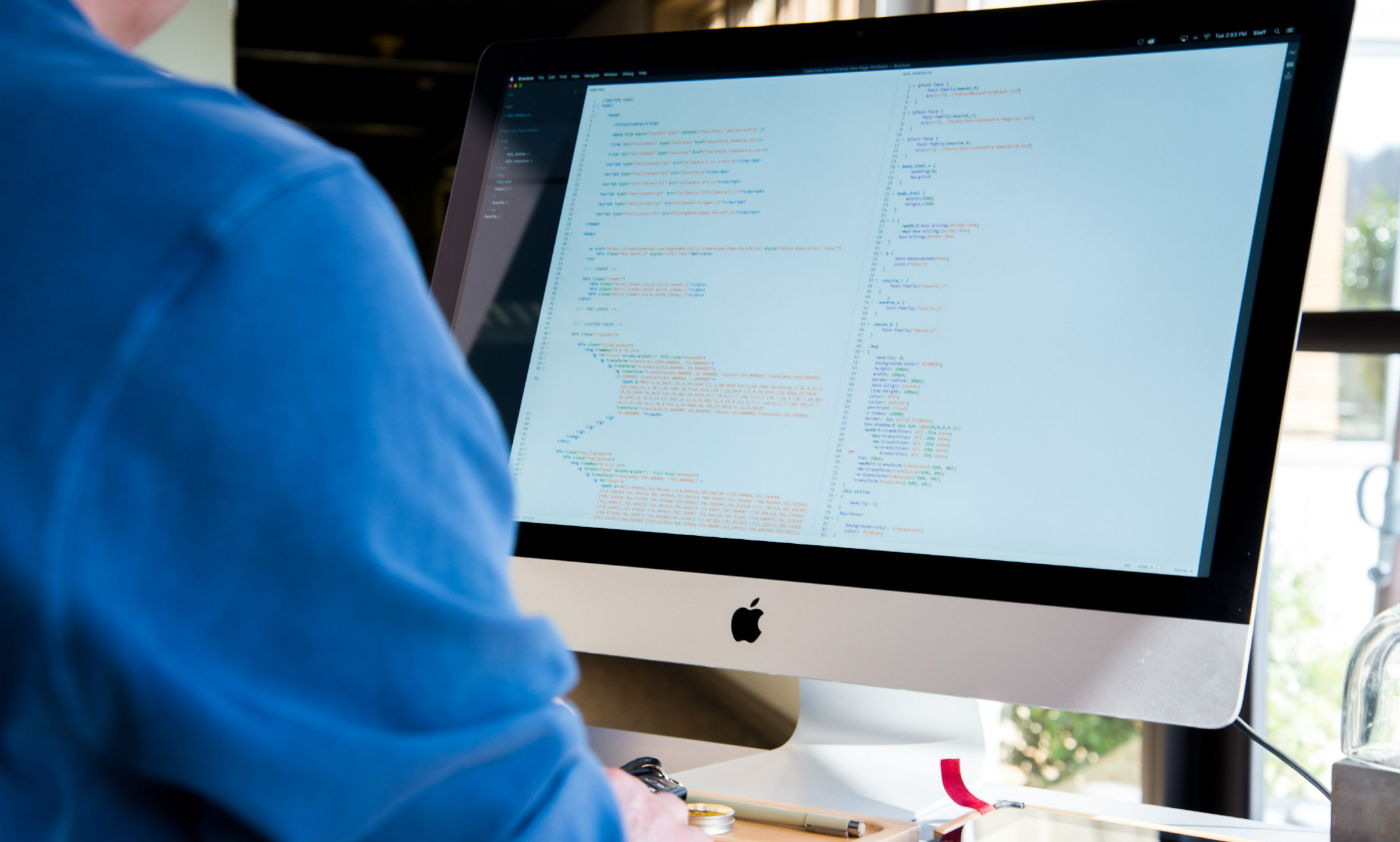
The FEC Coding Academy at UMKC offers two classes for displaced workers
The University of Missouri-Kansas City School of Computing and Engineering and Full Employment Council created a partnership to deliver a 21st century workforce in Kansas City.
The FEC Coding Academy offers two classes – Web Developer Fundamentals and Full Stack Web Developer – for displaced and incumbent workers to move up in their careers. These courses provide an opportunity for attendees to learn to build websites from scratch with no prior experience necessary and tuition assistance for those who qualify.
“The Full Employment Council is interested in connecting Missouri residents who have lost their jobs to industry-informed training opportunities that result in industry-recognized portable credentials. Our ultimate goal is rapid reentry into the workplace,” said Shelley Penn, senior vice president and chief operations officer for the FEC.
Through the Coding Academy, instructors will equip attendees with marketable skills to forge ahead into the exciting world of coding. They’ll also be working on individual and team projects to build a portfolio to showcase to prospective employers and/or potential clients, as well as working with resume coaches from FEC to prepare for job applications processes and interviews.
“This is a fast-track option for those who want to develop skills in technology,” said Christina Davis, director of continuing education at the School of Computing and Engineering. “Given the current state of the economy, the FEC Coding Academy is a great resource for displaced workers to gain skills that translate into positions in high demand.”
The 16-week Full Stack Web Developer Course, beginning Thursday, June 4, will introduce attendees to building entire web applications using MongoDB, Express, Angular and Node.js. Throughout this course attendees will focus on how to use each of the technologies in the stack, and how to use them together. The dealine to register is Friday, May 29.
The eight-week Web Developer Fundamentals Course, set to begin Monday, July 6, will introduce attendees to the aspects of HTML, CSS and JavaScript, the core building blocks of websites. The course is meant for anyone who wants to learn how to build websites from scratch. Prior programming or markup experience is not assumed, however an aptitude for programming will go a long way in being successful in this course. The deadline to register is Friday, July 3.
Basic requirements for these courses include:
The ability to pass an aptitude test for programming
Proof of birth, residence, authorized work
Must live in Jackson, Clay, Platte, Cass or Ray Counties
High School/GED with an aptitude for programming
The student will need a laptop computer running Windows OS.
Motivation to succeed
Though the cost of tuition for each course is $3,495 and $6,495 respectively, tuition assistance is available for qualified applicants through the Full Employment Council. Visit the School of Computing and Engineering online for more information on the Coding Academy and registering for classes.
Learn more about the FEC Coding Academy
May 21, 2020
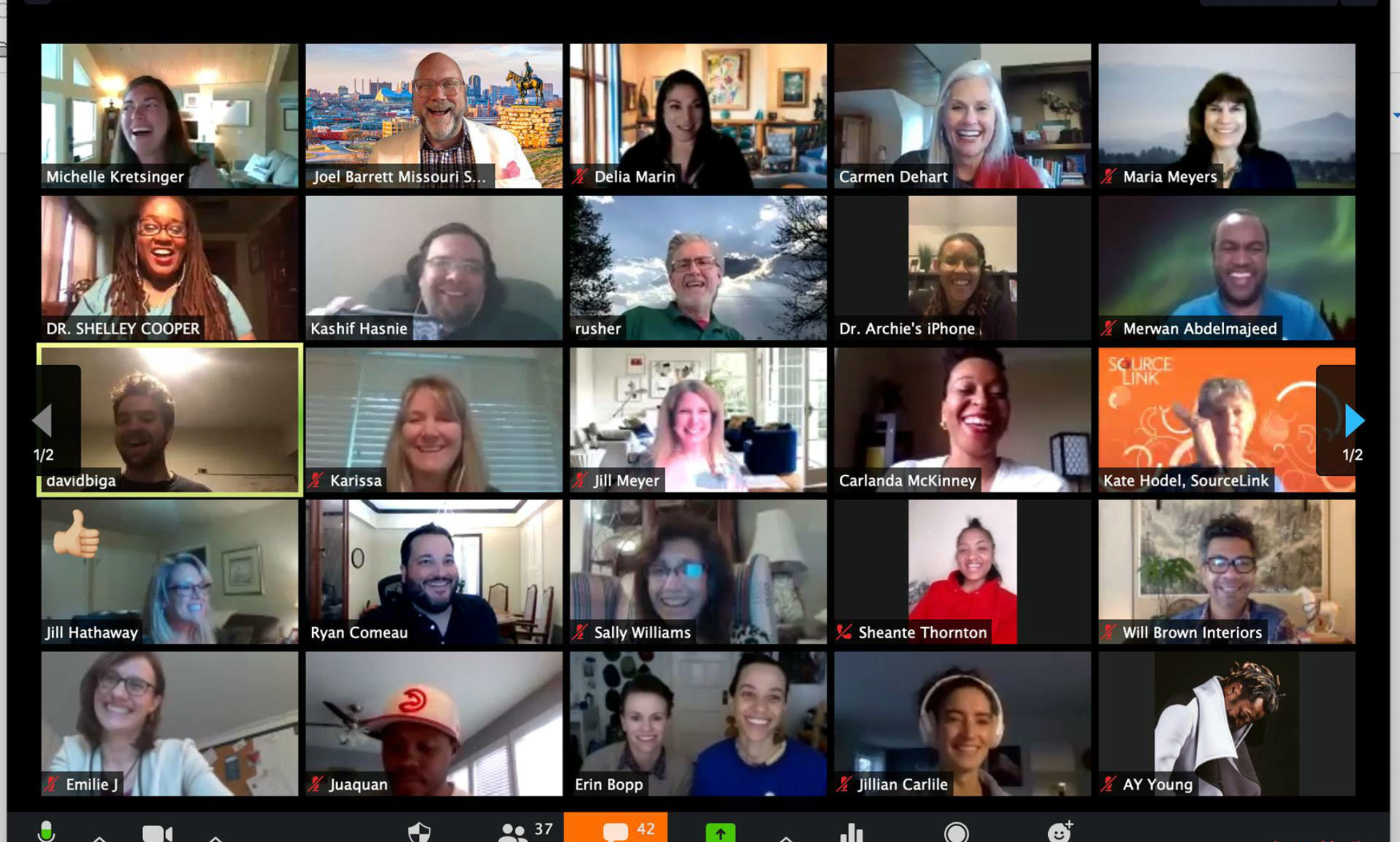
UMKC Innovation Center's Dare To Venture competition supports entrepreneurs in Kansas City's urban core
Sixteen Kansas City, Missouri entrepreneurs recently took home cash prizes as part of a new Dare to Venture micro-grant competition hosted by KCSourceLink. At a time when small businesses need the most support, the program offered a total of $30,000 in microgrants to entrepreneurs starting or growing businesses in the city’s urban core.
Funded by the City of Kansas City, Missouri, and supported by the UMKC Innovation Center, Dare to Venture was open to any entrepreneur currently living or working in Kansas City, Missouri, who had completed one of the 30-hour-plus entrepreneurship classes offered as part of the center’s Urban Business Growth Initiative. The Missouri Small Business Development Center at UMKC administers the UBGI courses and provides each participant with business coaching.
“This is the beautiful thing about collaborations: UBGI’s partner programs unite to offer many levels of support and expertise to UBGI businesses, helping them get the skills, expertise and learning to succeed,” said Carmen DeHart, senior director of entrepreneurial education at the UMKC Innovation Center and regional director of the Missouri Small Business Development Center. “Thanks to funding from the City, the UBGI suite of classes is helping local entrepreneurs and business owners discover the next great innovation, create new jobs, grow their operations and elevate the local economy. And now, these micro-grant awards are continuing to help them push forward during the most challenging time for any business.”
Participants submitted video pitches for their businesses and were judged by fellow graduates of UBGI courses who’ve shared their journey of entrepreneurship and education. The following businesses received the most votes:
Finalists for top prizes:
1st ($5,000) Reda Ibrahim – RK Contractors – construction venture [Watch the RK Contractors video]
2nd ($4,000) Tate Williams – CoBuild – construction venture [Watch the CoBuild video]
3rd ($3,500) Carlanda McKinney – Bodify – tech venture [Watch the Bodify video]
4th ($3,000) Erin Bopp – Lightwork DJ Mobilverse – new venture [Watch the Lightwork video]
5th ($2,500) Juaquan Herron – 2923 Comics – tech venture [Watch the 2923 Comics video]
6th ($2,000) Brandy Archie – AccessAble Living – growth venture [Watch the AccessAble video]
Each honorable mention will receive $1,000:
Maggie Bentley – Good Vibe Brows KC – new venture [Watch the Good Vibe Brows video]
David Biga – ParticleSpace – tech venture [Watch the ParticleSpace video]
Jillian Carlile – TravelHive – tech venture [Watch the TravelHive video]
Shelly Cooper – SureShow – tech venture [Watch the SureShow video]
Kashif Hasnie – Air Traffic Awareness – tech venture [Watch the Air Traffic Awareness video]
Patrick Hosty – Dynamhex – tech venture [Watch the Dynamhex video]
Lydia Palma – Pirate’s Bone Burgers – growth venture [Watch the Pirate’s Bone Burgers video]
Sheante Thornton – ASAP Neighborhood Resource – new venture [Watch the ASAP Neighborhood Resource video]
Karissa Todd – Sugar Cookie Bliss – new venture [Watch the Sugar Cookie Bliss video]
AY Young - Battery Tour received the $1,000 Super Supporter Award given to the alumni who voted in the most rounds.
Dare to Venture amplifies the already substantial commitment from the City of Kansas City, Missouri, to provide entrepreneurs with the tools, connections, education and coaching they need to build their business savvy, launch companies and create jobs in Kansas City’s economically distressed neighborhoods and beyond.
“The micro-grant competition is an idea generated through startup community participation in the City Budget Speakeasy public input sessions. It’s exciting to see this come to fruition through our partnership with the UMKC Innovation Center,” says Rick Usher, assistant city manager of the City of Kansas City, Missouri.
Apply for Upcoming UBGI Scholarships, Courses
Through UBGI, the city currently provides scholarships that cover nearly 90% of the tuition for UMKC Innovation Center’s multi-week entrepreneurship courses. To date, UBGI has issued 548 scholarships, and its graduates have created a total of 75 business, 455 jobs, $55 million in revenue and $18 million in capital investments.
Apply for the next round of UBGI scholarships (offered at a more than 88% discount), starting with NEW Venture, which kicks off July 28. Explore the course offerings below, and apply for a scholarship here to take the multiweek courses at an 88 percent discount.
ELEVATIONLAB NEW Venture: July 28 - August 25
Entrepreneurial Mindset Training: September 16 - November 11
ELEVATIONLAB TECH Venture: September 17 - November 12
GROWTH360: September 18 - November 20
Social Media Road Map for Business: September 1
Reading and Understanding Financial Statements: September 8
Learn more about Innovation Center resources
May 21, 2020
The Kansas City Star and Fox 4 KC report on the fall semester at UMKC
Read the Kansas City Star article: Can Kansas and Missouri colleges really resume in-person classes safely in the fall?
Read the Fox 4 article: Local grads, heading to college this fall, face more questions than answers
May 21, 2020
Dean Brian Klaas interviewed by The Columbia Missourian
Missouri’s businesses are facing new challenges in the midst of the pandemic and must adapt to a new, changing economy, UM System experts said during a virtual panel Thursday. Read the story here.
May 21, 2020
The Startland News reporting
UMKC’s Enactus team just earned its best-ever finish at national entrepreneurship expo. Read the story here.
May 21, 2020
Law school providing legal assistance when community needs it most
The Self-Help Legal Clinic at the University of Missouri-Kansas City School of Law has earned a national award for community engagement and is preparing to reopen on an online basis in 2020.
The pro-se clinic is a partnership between the law school’s Leon E. Bloch Law Library and Legal Aid of Western Missouri. It is staffed by volunteer retired attorneys and judges, assisted by law students. The clinic provides advice and materials so clients can change their names, secure title to their cars, pursue small-claim actions in consumer matters, understand rights and obligations as tenants, or address simple family law concerns. Though some matters may require clients to pay court costs or filing fees, the clinic attorneys work free of charge. As part of the project, the Bloch Law Library also provides legal resources and database access to public patrons.
The American Association of Law Libraries recently honored the clinic with its 2020 Excellence in Community Engagement Award.
“Our jury felt that this project reaches people in your community at their point of need with practical information, and that it is an inspiring example for law librarians elsewhere of what can be done to engage with a community,” said Clanitra Stewart Nejdl of Vanderbilt University, jury chair for the 2020 Excellence in Community Engagement Award.
The clinic opened in April 2019, and has since served more than 700 clients unable to afford legal representation any other way.
Prior to the COVID-19 campus shutdown in March, the Self-Help Clinic occupied a permanent physical space in the law library, with regular office hours on Mondays, Wednesdays and Fridays. Together, School of Law Dean Barbara Glesner Fines and Latricia Scott Adams, director of Legal Aid of Western Missouri’s pro bono program, took the lead in bringing together the various parties and planning to make the Self-Help Clinic a reality. The library and clinic’s director of public services, Staci Pratt, is a law librarian with an active Missouri attorney license. She supervises the law students and facilitates cooperation with Legal Aid. Ayyoub Ajmi, associate director of the law library, was another driving force behind the creation of the Self-Help Clinic.
“Staci Pratt, Ayyoub Ajmi and the volunteer attorneys and students have created an infrastructure and training that will allow the clinic to re-open virtually, just when the public will be needing this the most,” Glesner Fines said. The virtual clinic will run on Level 3 Zoom, which has a significantly higher level of security than the free version of Zoom. The software is designed to be phone-friendly, recognizing that many indigent clients do not own computers or tablets while most have mobile phones.
Law student Montanna Hosterman said working at the clinic has multiple benefits for her legal education.
“It’s an opportunity to earn hours for the school’s pro bono honors program,” Hosterman said. “We get experiential learning working side by side with experienced lawyers, right here in the School of Law building. Students also get mentorship and networking opportunities with the volunteer attorneys, and research and legal writing experience in a variety of areas of law.”
Going forward, law students will also qualify for internship credit through work with the clinic.
Many of the clinic’s referrals come from the Jackson County court system, said Adams, who oversees the volunteer attorney project for Legal Aid.
“From the court’s perspective, the clinic is a benefit to them,” Adams said. “People come into court with questions, and often the court personnel are not permitted to answer them, so they refer people to the clinic.”
Pratt said the need for the clinic is “profound.”
According to the 2019 Self-Represented Litigation Network (SRLN) survey, she said, three out of five people in civil cases go to court without a lawyer. The Legal Services Corporation reports that 86% of civil legal problems experienced by low-income Americans received little or no legal assistance. This is particularly troubling given that 71% of low-income Americans experience at least one civil legal problem in a year.
The UMKC School of Law Self-Help Clinic serves residents of the state of Missouri. Callers who live in Kansas are directed to similar programs available in that state.
May 20, 2020
Linwood Tauheed, associate professor of economics at the University of Missouri-Kansas City, was a guest on The Critical Hour.
Can Trump Block Federal Funds to Michigan After Voters Received Absentee Ballot Applications? Read the story here.
May 20, 2020
The Columbia Missourian reporting
Big things come in tiny packages at the National Museum of Toys and Miniatures. Read the story here.
May 20, 2020

Public radio service operated on UMKC campus
NPR has chosen KCUR 89.3 to help lead a new Midwest regional news hub that will create a greater capacity for investigative reporting in the Kansas City metro area. The station is operated as an editorially independent community service of the University of Missouri-Kansas City.
KCUR – along with St. Louis Public Radio, Iowa Public Radio and NET in Nebraska – will play a major role in bringing the regional newsroom to life, ensuring the Kansas City community will be well-served by the reporting produced through this new collaboration.
The Midwest regional hub is made possible through a $3 million grant to NPR’s Collaborative Journalism Network by philanthropists Eric and Wendy Schmidt. An additional $1.7 million will go toward an existing regional newsroom in California, NPR announced today.
Through the Midwest hub, public radio stations in Missouri, Kansas, Iowa and Nebraska will coordinate and expand their local and regional reporting, providing content to national news programs and digital platforms. The 25 public radio stations serving the four-state region will have access to stories produced by the Midwest newsroom.
The startup investment by the Schmidts will allow KCUR and its partners at the three other stations to launch the hub and develop it into an essential contributor to the NPR network.
“This incredible decision to support local journalism is an exciting opportunity for KCUR,” said Sarah Morris, KCUR’s interim general manager. “The new collaboration not only will boost our own coverage of issues affecting Kansas City and the region, but also will allow us to bring more Midwestern voices to the rest of the nation.”
The Midwest hub is NPR’s fourth regional news collaboration, joining regional newsrooms already operating in Texas, California and the Gulf States of Alabama, Mississippi and Louisiana.
With a focus on in-depth reporting, the new Midwest team will include a three-person investigative unit and two editors, as well as a coordinating producer based at NPR in Washington, D.C. The team will bring public service reporting to a region dominated by rural news deserts as local publications have fewer resources for extensive projects.
KCUR is no stranger to the concept of collaboration, having built a national reputation for developing and sustaining multi-station partnerships. Harvest Public Media, a four-state partnership that covers issues related to food and agriculture, started at KCUR more than 10 years ago. The Kansas News Service, a collaboration of four public radio stations from Kansas City to Garden City, is based at KCUR. And KCUR is the lead station for America Amplified, a national elections project focused on community engagement.
May 19, 2020
NPR has selected KCUR 89.3 and three other public radio stations to lead a regional news collaboration focused on public service and investigative ...
The hub will include a three-person investigative team and two editors. A coordinating producer will be based at NPR in Washington. Read the story here.
May 19, 2020
Suzanne V. Arnold, MD, MHA, associate professor of medicine at the University of Missouri-Kansas City, served as chair of the writing committee.
AHA Releases Scientific Statement on CAD with Type 2 Diabetes. Read the story here.
May 19, 2020
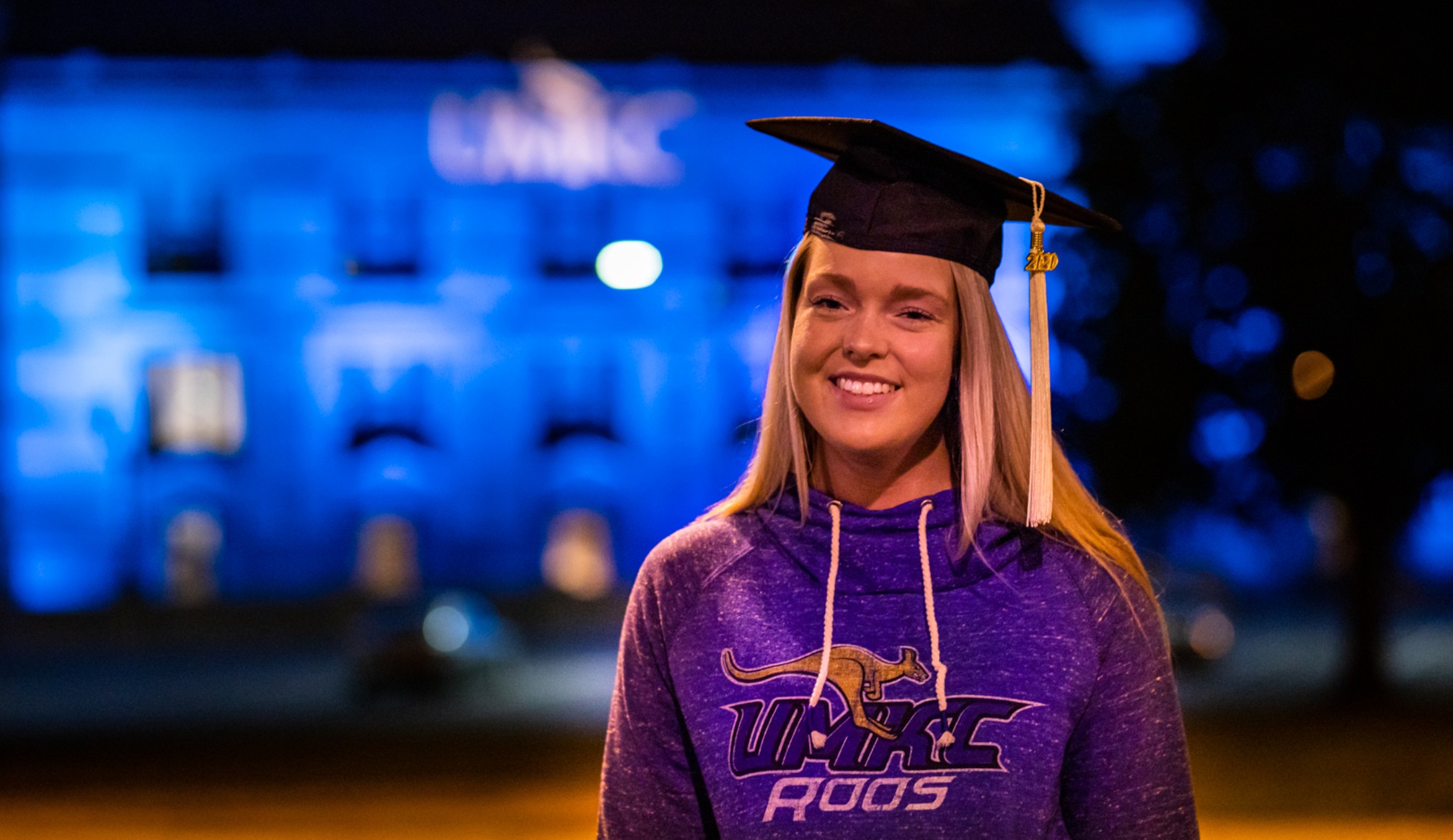
Landmarks don the blue and gold while KC influencers share wisdom with graduates
We are in awe of how Kansas City came together to celebrate the accoplishments of our new graduates.
We saw you, #Classof2020RooStrong. We saw you celebrate UMKC commencement like never before because these are times like never before.
We saw you, #KC. We saw you go #RooBlue and Gold like never before, and we are humbled and honored by your strong show of support and love for Kansas City’s university.
Together, we have triumphed over adversity with our #RooStrong spirit and are #RooReady to overcome challenges and defeat obstacles. Because #RoosAreEverywhere, we all win.
More than 2,000 UMKC graduates were honored in Commencement ceremonies this weekend. Here are some memorable moments from our community.
First, we sent packets of school spirit out to our seniors to help them celebrate at home.
We spotted some of you taking some social-distanced senior portraits.
Demarkus Coleman, MBA, took a few senior photos outside the Bloch School.
Then, many of our city's beloved landmarks lit up blue and gold to support graduates of Kansas City's university.
Our neighbor, The Nelson-Atkins Museum of Art, donned blue and gold.
Kauffman Center for the Performing Arts, at which many of our Conservatory students perform, showed its support for UMKC Roo grads this weekend.
Alumni and faculty wrote messages of congratulations and encouragement.
You shared your virtual commencement celebrations on social media.
And well-known Kansas Citians shared words of wisdom with our graduates.
Thank you for making this a Commencement to remember.
May 18, 2020
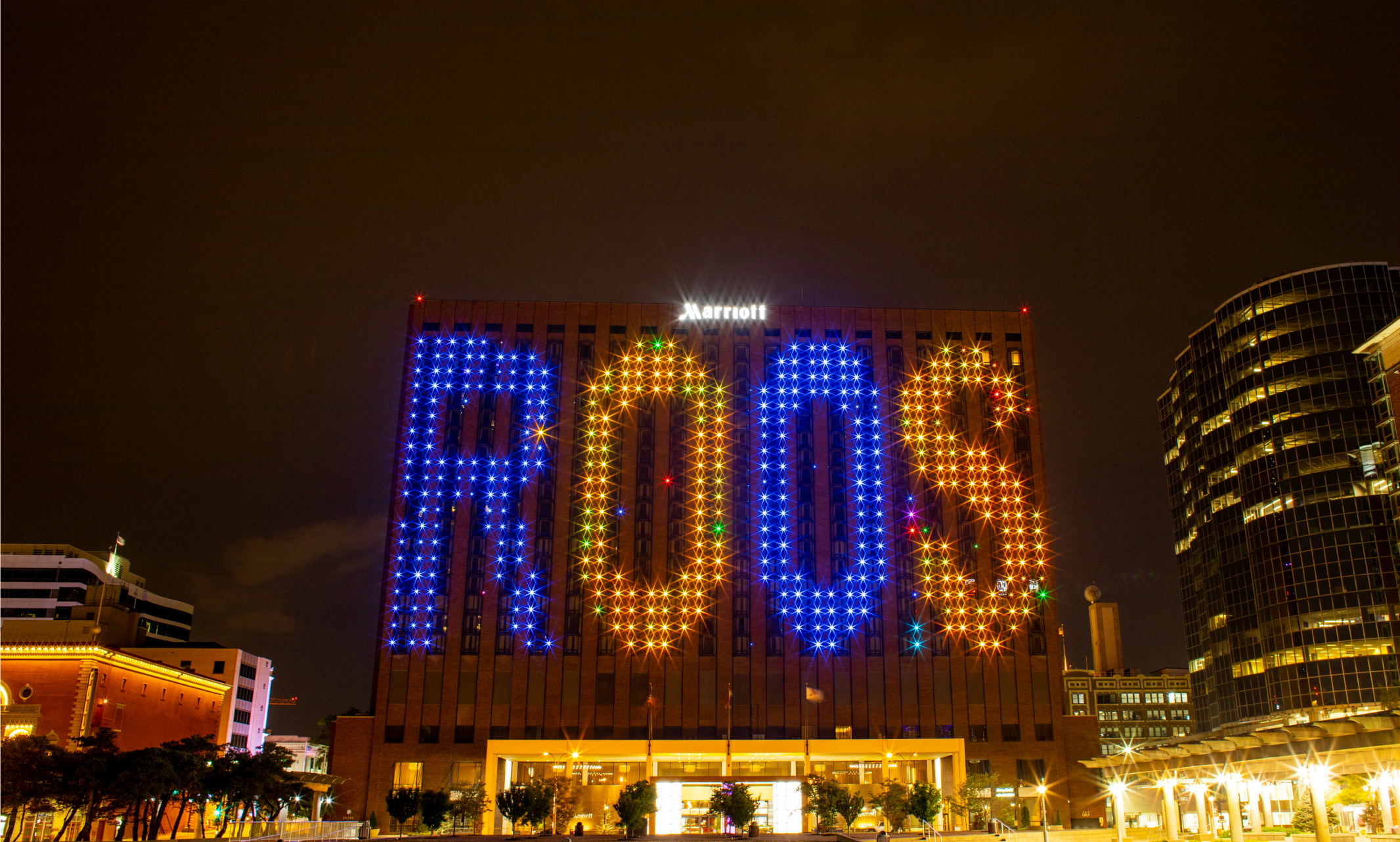
Seniors recognized through social and multimedia in lieu of annual commencement events
Each year as the semester begins to wind down and seniors prepare for commencement, one of the biggest moments of their lives, academic and administrative units host breakfasts and ceremonies honoring the academic accomplishments of their graduates. This year, however, things are very different, because of the novel coronavirus and related social distancing and stay-at-home orders. Still, UMKC faculty and staff are finding other ways to virtually recognize honors seniors through social and multi-media.
Dean of Students Honors Recipients
Dean of Students Honors Recipients are nominated each semester by faculty and staff for their commitment to academic success while actively participating in leadership and service to the community and our university outside of the classroom. Nominators and students recorded videos reflecting on this semester’s honors. See what they had to say:
“You are an exceptional group of people. Despite the demands of family, work and studies, you made time to give back to the community. When you saw a need, you worked to fill it. You are humanitarians, leaders and philanthropists and you should rightfully be proud of yourselves,” said Interim Dean of Students Chris Brown.
Afaq Alabbasi – School Pharmacy [watch the video]Nominated by Cameron Lindsey, interim chair of the Division of Pharmacy and Practicum [watch the video]
Priyesha Bijlani – School Medicine [watch the video]Nominated by Betsy Hendrick, academic advisor, School of Medicine [watch the video]
Hannah-Kaye Carter – School of Biological & Chemical Sciences and Honors College [watch the video]Nominated by Carla Mebane, director of the UMKC High School/College Dual Credit Partnership [watch the video]
Austin Dada – School of Biological & Chemical Sciences [watch the video]Nominated by Ryan Mohen, Ph.D., assistant professor of biology [watch the video]
Morgan Dresvyannikov – School of Medicine [watch the video]Nominated by Brent McCoy, senior academic advisor, School of Medicine [watch the video]
Sierra Duncan-Sonich – School of Biological & Chemical Sciences and Honors College [watch the video]Nominated by Tammy Welchert, director of Student Affairs and Undergraduate Enrollment, School of Biological and Chemical Sciences [watch the video]
Jorden Erskin – School of Nursing & Health Studies [watch the video]Nominated by Corinna Beck, academic advisor, School of Nursing and Health Studies [watch the video]
Elsa George – School of Medicine [watch the video]Nominated by Brent McCoy [watch the video]
Thomas Haferkamp – School of Medicine [watch the video]Nominated by Krisana West, academic advisor, School of Medicine [watch the video]
Chizitam Ibezim – School of Medicine [watch the video]Nominated by Krisana West [watch the video]
Alyssa Jones – School of Biological & Chemical Sciences and Honors College [watch the video]Nominated by Susana Chavez-Bueno, associate professor of pediatrics [watch the video]
Anusha Kodidhi – School of Medicine [watch the video]Nominated by Krisana West [watch the video]
Christopher Kurian – School of MedicineNominated by Betsy Hendrick [watch the video]
Nuvia Lemus-Diaz – School of Dentistry [watch the video]Nominated by Richie Bigham, assistant dean for student programs, School of Dentistry [watch the video]
Rmaah Memon – School of Medicine [watch the video]Nominated by Krisana West [watch the video]
Pooja Menon – School of Biological and Chemical Sciences [watch the video]Nominated by Lawrence Dreyfus, associate vice provost of faculty development and research [watch the video]
Emily Oliver – School of Pharmacy [watch the video]Nominated by Roger Sommi, associate dean and professor, School of Pharmacy [watch the video]
Anthony Oyekan – School of Medicine [watch the video]Nominated by Betsy Hendrick [watch the video]
Jayanth Rao – School of Biological and Chemical Sciences [watch the video]Nominated by Tara Allen, teaching professor, School of Biology [watch the video]
Nicole Rogers – School of Medicine [watch the video]Nominated by Brent McCoy [watch the video]
Subhjit Sekhon – School of Medicine [watch the video]Nominated by Betsy Hendrick [watch the video]
Mehr-Zahra Shah – School of Medicine [watch the video]Nominated by Betsy Hendrick [watch the video]
Saumya Singh – School of Medicine [watch the video]Nominated by Krisana West [watch the video]
Garima Thakkar – School of Medicine [watch the video]Nominated by Brent McCoy [watch the video]
Sarah Towakoli – College of Arts & Sciences and Honors College [watch the video]Nominated by Ken Novak, professor, criminal justice [watch the video]
Rachel Zender – School of Law [watch the video]Nominated by Molly Wilensky, director, Professional and Career Development Center [watch the video]
Undergraduate Research Fellows
Eleven May graduates earned the Undergraduate Research Fellow honorary transcript designation by demonstrating deep involvement in research process—formulating a research question, identifying an appropriate method to investigate the question, carrying out the project, and publication or presentation of the results beyond the classroom or research group.
Jerrah Biggerstaff – B.S. Physics/Astronomy, College of Arts and Sciences
Jaime Crouse – B.S. Biology; double minor in physics/astronomy and chemistry
Austin Dada – B.S. Biology
Lauren Higgins – B.S. Physics/Astronomy
Brandon Landaverry – B.S. Environmental Sciences
Andy Leon – B.S. Biology
Pedro Morales-Sosa – B.S. Biology
Minh Nguyen – B.S. Biology
Bwaar Omer – B.S. Biology
Annie Spencer – B.A. English and History
Sarah Towakoli -- B.A. Criminal Justice & Criminology and Political Science
College of Arts and Sciences Graduates with Distinction
The College of Arts and Sciences’ Graduation with Distinction luncheon, hosted by the College of Arts & Sciences alumni board, brings together graduates with Latin honors, and their families, in celebration of academic success. Guest speakers offer words of congratulations and advice for the future and scholars are presented medals to wear during commencement. Here is a list of graduates with distinctions Summa Cum Laude – the highest praise – and Magna Cum Laude – with great praise.
Honors College
Sarah F. Towakoli | Summa Cum Laude Anticipated | Undergraduate Research Fellow
University Honors
Kamariah Al-Amin | Magna Cum Laude Anticipated
Cemile Arabaci | Magna Cum Laude Anticipated
Abigail Birkner | Summa Cum Laude Anticipated
Zonara Nawaz | Magna Cum Laude Anticipated
Erica Sullivan | Summa Cum Laude Anticipated
Sarah Towakoli | Summa Cum Laude Anticipated | Undergraduate Research Fellow
May 18, 2020
KC Studio wrote about Emiel Cleaver's new grant.
Emiel Cleaver, who earned a Master of Arts from the University of Missouri-Kansas City with an emphasis on film production and Black studies, received a 2019 Rocket Grant of $6,000 to assist in the completion of “A Legacy of Leadership,” a documentary on legendary Kansas City civil rights figure Leon M. Jordan. Read the story here.
May 18, 2020
The Class of 2020, in cars, is on parade this weekend in Kansas City area districts
University of Kansas, University of Missouri and University of Missouri-Kansas City all celebrate their graduates with virtual ceremonies this week and weekend, with hopes of in-person ceremonies later in the year. Read the story here.
May 16, 2020
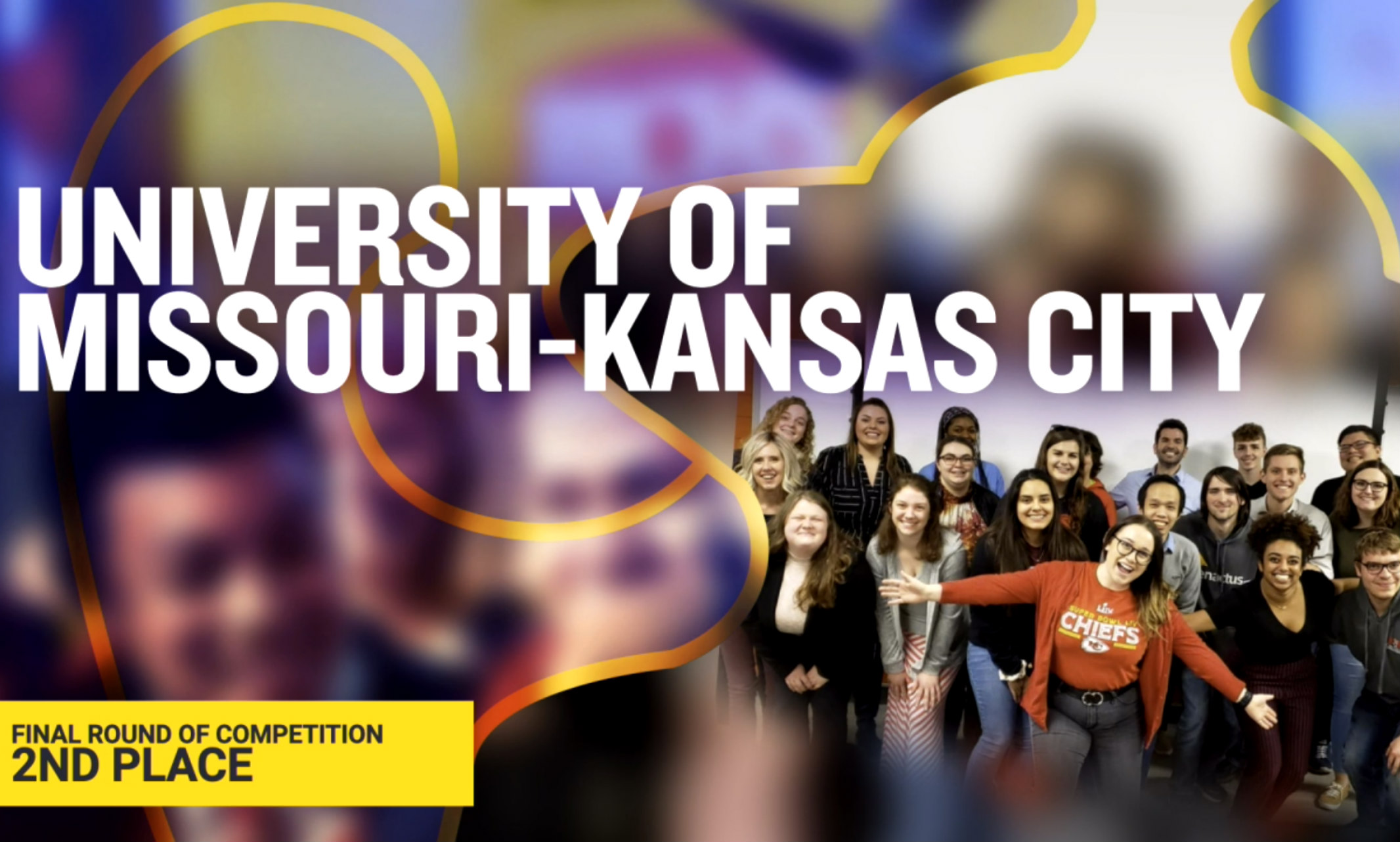
UMKC Enactus gains national recognition in business pitch competition
The University of Missouri-Kansas City Enactus team from the Henry W. Bloch School of Management took second place, out of more than 400 teams, at the 2020 Enactus USA National Exposition, held virtually May 6-14.
In addition to being among the top two teams in the nation, UMKC Enactus won the audience-voted Enactus Excellence Awards in all three categories – Most Passion, Most Innovation and Most Collaboration. The team also won first place and $7,500 for the Menasha Future of Employment Project Accelerator, which focused on providing employment for underserved communities.
Individual awards were presented to students Alessandra Brandolino, the Jules and Gwen Knapp Enactus Ambassador Scholarship ($10,000); Lindsey Temaat, Enactus USA’s Marketing Leader of the Year; Hieu (Peter) Trinh, Project Leader of the Year; and Emily Testerman, finalist for Membership Leader of the Year.
UMKC Enactus Advisor Benjamin Williams also received the Jack Kahl Entrepreneurship Leadership Award for the Sam M. Walton Free Enterprise Fellow of the Year, a first in UMKC history. The award, presented at the competition every year, honors an Enactus advisor who has done the most to advance the Enactus organization during the current academic year, exemplified leadership, made a direct impact on Enactus students, and helped students with career placement.
The 2020 award to Williams adds to a tradition of excellence among UMKC Enactus advisors. The team’s founding advisor, Cary Clark, was inducted into the Enactus USA Sam Walton Fellow Hall of Fame in 2014. Clark served as advisor from 2005 until his retirement in 2015. Erin Blocher, who teaches business communication at the Bloch School, joined Williams as a co-advisor in 2018.
Enactus is a global organization for college students who volunteer to develop projects that create positive change through entrepreneurial action. Students describe their projects in multi-media presentations for the competition. While the team is headquartered at the Bloch School, it draws students from across campus, an example of how UMKC emphasizes entrepreneurship and innovation campus-wide.
“This organization has changed the way I view the world,” said UMKC Enactus President Salem Habte, senior, B.B.A. Entrepreneurship.
“I'm grateful to have been a part of it for all four years of college. Finishing second in the nation made history and proves that our students are capable of anything with hard work and a lot of hope.”
“I am truly at a loss for words right now,” said Brandolino, vice president of Projects and president-elect, junior, B.B.A. Entrepreneurship. “When I joined this team three years ago, I never imagined that we would be the second most impactful Enactus team in the United States. Each person on this team contributed to this win in unique ways and I am so thankful to be a part of such an incredible team.”
For this year’s competition, UMKC Enactus presented the projects Feed KC and Generation Green. In total, the team took home $8,300 to put toward their projects and operations. This year alone, the UMKC team has impacted the lives of more than 7,000 people and introduced projects that range from providing sustainable and convenient transportation to low-income commuters to recycling plastic waste into durable classroom tools for teachers.
The UMKC students on the presentation team were: Ahmed Boukhousse, Nicole Dover, Hannah Case, Riddhi Sharma, Hieu N. Trinh, Kelly V. Nguyen, Lindsey Temaat, Salem M. Habte and Brian Bartenslager. Members of the UMKC Enactus Executive Board are Salem M. Habte, Alessandra Brandolino, Emily Testerman, Tony Jordan, Hieu N.Trinh, Sydney Steehn, Hannah Case and Lindsey Temaat.
May 15, 2020
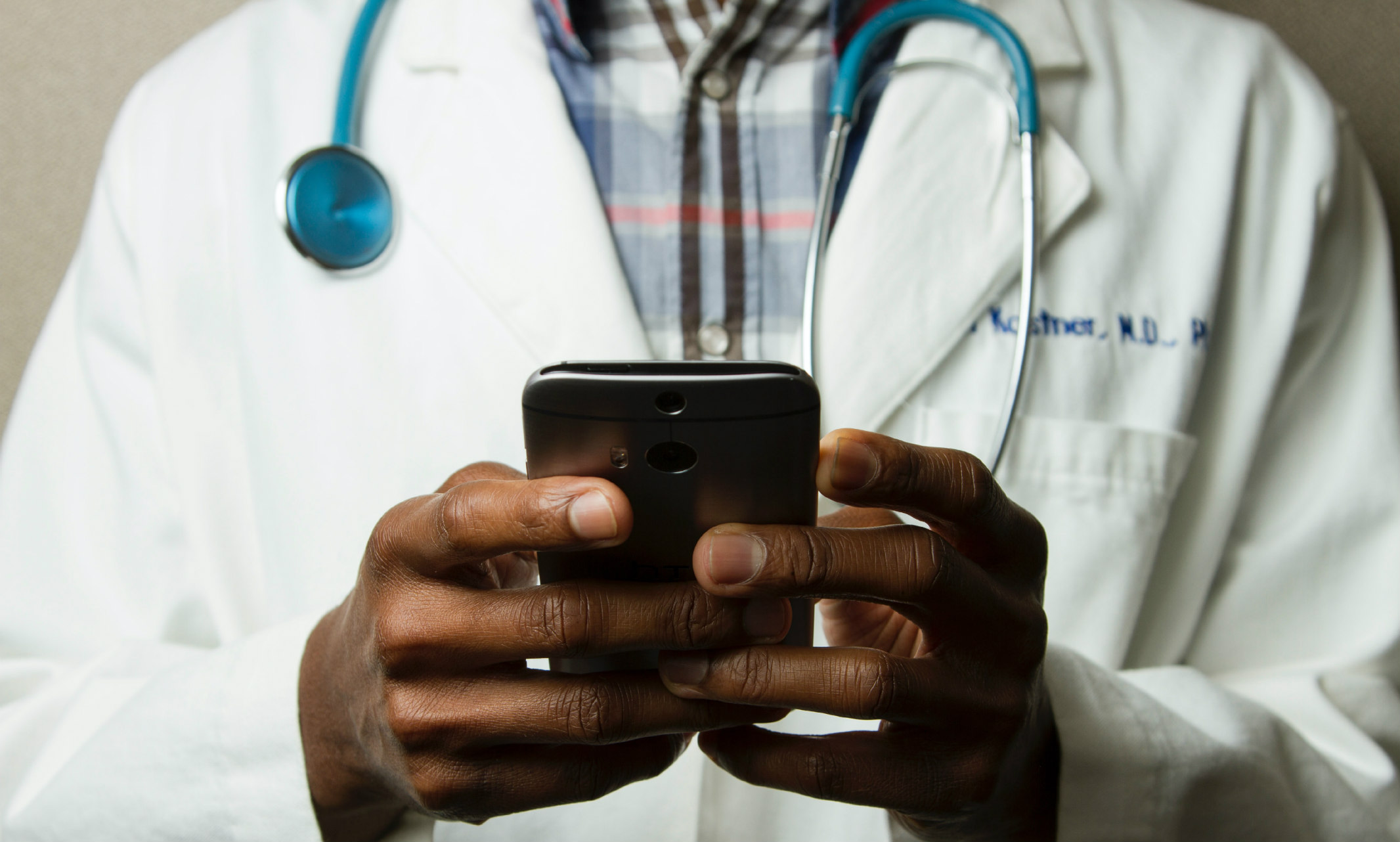
Missouri health administrators praise UMKC Institute for Human Development’s innovative approach
The escalated need for emergency care resulting from possible COVID-19 concerns can be especially challenging for people with developmental disabilities and their caregivers. Recently, the UMKC Institute for Human Development (IHD) received recognition in a National Association of State Directors of Developmental Disabilities podcast for its outreach efforts to connect people with disabilities to newly available telehealth medical evaluations.
“The goal of the telehealth initiative is to help people with developmental disabilities avoid unnecessary emergency room visits that can be unduly stressful for them and their caregivers. We had begun establishing the program prior to the COVID-19 outbreak,” said Michelle Reynolds, associate director, individual and family support for IHD. “Because we had already laid the groundwork, the state was able to speed up the launch.”
“The people who are in the trenches already trust us.” - Michelle Reynolds
In the podcast, directors from the Missouri Department of Mental Health Gary Schanzmeyer, deputy director, administration and Wendy Witcig, (BA, psychology ’90) deputy director, community operations, both recognize IHD’s critical role in bringing this valuable service to Missourians in need.
“It relieves anxiety for families by having help just a phone call away,” Witcig said.
Station MD is a HIPPA-compliant, online resource designed to serve vulnerable populations. The service allows caregivers to connect with a licensed physician by video call to assess symptoms and determine if an emergency room – or even regular doctor’s visit – is necessary.
The staff at IHD was interested in bringing this innovative approach to Missouri to better serve people with disabilities. Reynolds notes that in many ways, the anxiety in evaluating these possible emergency situations is not different from what any caregiver may feel.
“All of us have situations with ourselves and our children where we are second guessing the need to go to the emergency room. This decision is even more crucial if you are supporting a person with a developmental disability” Reynolds said. “This provides a reliable, less expensive and stressful service for everyone involved, including the medical professionals.”
If an emergency room visit is necessary, the medical professional contacts the emergency room or care provider and apprises them of the medical situation and any other factors that may help in serving the individual client.
“While we initiated this program pre-COVID, with the spread of the virus, we could see that we needed to speed things up,” Reynolds said. “We wanted to make sure there was a safety net for people with developmental disabilities and keep them out of emergency rooms for non-emergency health needs.”
Reynolds says that IHD’s established relationships and reputation allow them to provide quality support systems regardless of crisis. But situations filled with uncertainty, like the current pandemic, underscore the immense value of earned confidence.
“We have maintained strong partnerships and institutional knowledge,” Reynolds said. “This enables us to shift in a crisis, rather than having to start an initiative from scratch. The people who are in the field already trust us.”
May 15, 2020

Checking in to see how our UMKC community is managing the highs and lows of sheltering in place
Brandon Parigo is at home with his wife, Nicole, and his two daughters, Simone, who is 10 years old, and Juliet, who is 6.
Parigo, UMKC staff photographer, is accustomed to a calendar over-flowing with events, portraits, photo editing and creating and editing video. With campus closed and social distancing in place, his duties have shifted.
“Lately, my primary roles at work have been online coaching and planning for video work as well as photo archiving, organization and support for our other teams. That may sound simple, but we have a lot of irons in the fire at all times. A lot of projects are being planned for when we are able to make them happen. If I do my job right, we are going to be 100% ready for everything that comes at us once we are allowed back on campus.” While Parigo does freelance photography and video work during his time off, that work also is on hold.
“Thanks to COVID, we’ve had to be creative in how we are trying to find ways to make up that income. I’ve been dabbling in game design and my wife has been doing some work from home for a local factory, sorting parts for shipping. I have a backlog of wedding editing that I’m working on also.” His girls are attending online school at home and his oldest has kept up her ballet practice with Kansas City Ballet online as well.
Parigo’s commute to work is an hour each way. He’s finding the best part of being at home is having more time to spend with his family.
“We have picked up a pretty hard-core LEGO-building habit and have been having fun creating together.”
This time at home has also reinforced how much his work at UMKC sustains him. He’s found it’s challenging to be without it.
“Being around people, supporting them doing good work and supporting the students in their journey was a calling I never thought I’d enjoy so much. While the work I’m doing from home is still a part of that, it doesn’t feel as meaningful and I find myself suffering for it. I thrive on doing my work.”
What are you reading?
I’m reading a bunch of roleplaying game books at the moment. My last big push on fiction reading before that was pretty much every book by Bernard Cornwell, recently known for writing the books the show “The Last Kingdom” is based on. My bedtime routine is to read to Simone (while Nicole reads to Juliet) and we are slowly making it through the “Keeper of the Lost Cities” series by Shannon Messenger.
What are you watching?
My nights are pretty packed with family and my backlog of editing, but I tend to squeeze in one show right before bed. I’ve watched “Waco” on Netflix because Tyler Kitsch is in it, and he was one of my favorites on “Friday Night Lights,” which is one of my top five all-time favorite shows.
I’m also watching “Homeland,” just burned through “Star Trek Discovery” and “Picard.” (Was “Star Trek” always that good? Probably not.) I’m eagerly awaiting the next season of “The Last Kingdom.” The current TV obsession of my daughters is “LEGO Masters.”
What are you eating?
Anything bad for me that I can find! In all seriousness, my house is pretty much gluten-free and organic. Lucky for us, Nicole makes the best gluten-free apple cake on the planet. I’m a sugar junkie but we don’t keep much sugar in the house, so that’s always a treat. Mexican-derived food is always top of the list at our house, and there’s a variation of the idea of what Mexican food should be on our plates for what seems like every other meal. I probably need to just devote a whole cabinet to salsa jars.
May 15, 2020
Aly Hernandez, external relations manager for the office was interviewed by Dos Mundos
Hernandez is in charge of handling local press interviews, alongside Communications Director Morgan Said, particularly when doing press with Spanish media and translating for the mayor. Read the story here.
May 15, 2020
Steve Pruitt, professor of economics and finance was interviewed by The Kansas City Star
Husband and wife filmmakers Stephen and Mary Pruitt began writing “The Land” during the last recession in 2008. Read the story here.
May 14, 2020
Sanvello app offers new digital wellness content
The Sanvello app, which is free for anyone with a UMKC email account, has recently added video resources for coping with the coronavirus pandemic. They address topics such as social distancing, job loss and fear and managing immunity and symptoms.
Access to Sanvello is free for anyone who has a UMKC email address. It offers on-demand help for stress, anxiety and depression and has a range of features including mood tracking, coping tools, guided journeys and community support to promote healthy habits and behaviors.
Here are the new video resources for help coping with COVID-19:
Managing family and friendships
Coping with the media
Virtual care and therapy during the crisis
Volunteering and support
Managing immunity and symptoms
Controlling our impulses during COVID-19
More mental health resources at UMKC
May 13, 2020

Union Station, City Hall, Kauffman Center for the Performing Arts and other landmarks brandish blue and gold to honor graduates of Kansas City’s un...
The city of Kansas City will be ablaze in Roo Blue and Gold beginning the evening of Thursday, May 14, in honor of the Class of 2020 of the University of Missouri-Kansas City. Buildings to be lit in UMKC colors for the Roo Blue KC celebration include Union Station, City Hall, the Kauffman Center for the Performing Arts, the Nelson-Atkins Museum of Art and the Downtown Marriott Hotel.
The Downtown Marriott's animated lights featured a bouncing Roo and words of congratulations.
Festivities will not be confined to the evening hours. By day, multiple fountains across the city will flow in bright blue to honor UMKC grads, courtesy of the Kansas City Parks and Recreation Department.
More than 2,000 UMKC students will receive degrees through a series of online commencement ceremonies, organized through individual academic units, Friday, May 15 through Monday, May 18.
The Kauffman Center for the Performing Arts featured blue and gold lights.
The Art Deco Power and Light building in the foreground and City Hall at right.
Illuminated Landmarks
Union Station
City Hall
Nelson-Atkins Museum of Art
Kauffman Center for the Performing Arts
Downtown Marriott
Durwood Stadium on the UMKC Campus
Our neighbor, the Nelson-Atkins Museum of Art.
Fountains and Parks Dyed or Lit Blue
Concourse Fountain
Northland Fountain
Waldo Water Tower
Meyer Circle Sea Horse Fountain
The Northland Fountain was dyed Roo blue.
May 13, 2020
Melanie Arroyo, an art therapist and staff counselor at University of Missouri-Kansas City shares her perspective on counseling during COVID.
Melanie Arroyo says the pandemic has changed the way she conducts sessions and helped her connect with her clients in a new way. Read the story here.
May 12, 2020
Riddhiman Das, University of Missouri-Kansas City graduate was interviewed by the Startland News.
COVID-19’s cost to Silicon Valley could be Kansas City’s talent gain, startup leader predicts. Read the story here.
May 12, 2020
Startland News wrote a piece on the Dare to Venture Micro-Grant Competition administered by the UMKC Innovation Center.
Sixteen Kansas City, Missouri, entrepreneurs took home cash prizes May 7 as part of Dare to Venture, which is funded by the City of KCMO, and administered by the UMKC Innovation Center. Read the story here.
May 11, 2020
David G. Ingram, MD, assistant professor of pediatrics at the University of Missouri-Kansas City School of Medicine, was a guest on the Pulmonology...
Expert Conversations: Pediatric Sleep Medicine and COVID-19. Listen here.
May 11, 2020
Justice Horn interviewed by two media outlets on various topics.
Read the Outsports article: Gay rugby player, student president fights for students, LGBTQ community during pandemic
Read the KCUR article: Following Minneapolis Riots, Kansas City's Black Lives Matter Protests Last Late Into The Night
May 11, 2020
Joseph Workman, assistant professor of sociology at UMKC was interviewed by The Washington Post.
Joseph Workman explains how school closures could lead to childhood obesity. Read the story here.
May 10, 2020
David Achtenberg, a constitutional law professor at the University of Missouri-Kansas City School of Law was interviewed by KCUR.
David Achtenberg explains the constitutionality of stay at home orders as they apply to religious institutions. Read the story here.
May 08, 2020
Jannette Berkley-Patton, professor at the University of Missouri-Kansas City School of Medicine and the director of the UMKC Health Equity Institut...
Read the NPR article: Public Health Officials Aim To Communicate Better With Minorities
Watch the 41 Action News clip: Reopening the faith community
May 08, 2020
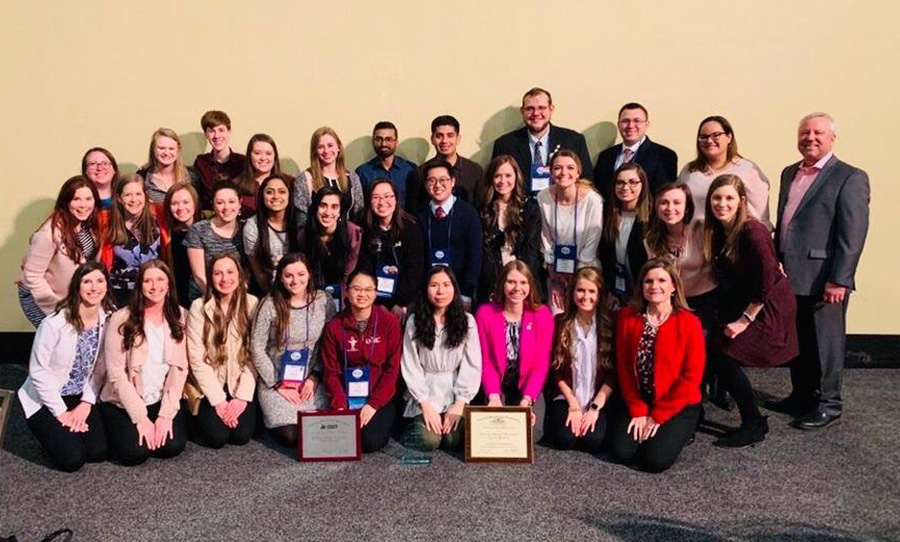
Outstanding community service and leadership
The legacy of outstanding student service and leadership continues at the UMKC School of Pharmacy. Student pharmacists at UMKC have once again been recognized as recipients of the American Pharmacists Association-Academy of Student Pharmacists Chapter of the Year award.
It is the third time in the past nine years that the UMKC chapter has received the highest national award. Each year since 2012, UMKC student pharmacists have been recognized as one of the organization’s top chapters in the country.
Typically announced at the organization’s annual meeting in March, this year’s awards were announced through a Facebook Live presentation because of the Coronavirus pandemic. The APhA-ASP Chapter Achievement Awards program honors schools and colleges of pharmacy in the United States and Puerto Rico. More than 140 chapters compete for the honors that recognize superior programming to create opportunities for student participation and set standards for leadership, professionalism, patient care and legislative advocacy among student pharmacists.
In addition to national Chapter of the Year honors, UMKC students were also second runner up for the organization’s Generation Rx Award for creating public awareness of prescription medication abuse.
"This award is only possible because of the student pharmacists who are active members of APhA-ASP at UMKC," said Jordan Thoman, who served as UMKC chapter president. "It says a lot about their passion and excitement for pharmacy and helping the community. APhA-ASP has a wide variety of opportunities for students in areas such as heart disease, diabetes, mental health and policy. It was fun to see our students dive into areas that they really love."
The awards recognized the combined efforts of students at the UMKC School of Pharmacy’s three campuses in Kansas City, Columbia and Springfield.
“We are super proud of them and proud of all their advisors who have worked hard guiding and mentoring them,” School of Pharmacy Dean Russell Melchert, Ph.D., said.
Faculty sponsors of the UMKC chapter are Cameron Lindsey, Kathryn Holt and Jordan Rowe of the Kansas City campus; Angela Brownfield and Sarah Cox of the Columbia campus; and Lisa Cillessen and Heather Taylor of the Springfield campus.
"This really reflects on the great guidance and support we get from the School of Pharmacy faculty and staff," Thoman said. "We have some incredible APhA-ASP advisors across all three campuses, and I will be forever grateful for all that they did for us over the year. We have the perfect combination of excited, passionate student pharmacists and supportive, impactful advisors and faculty."
In the past reporting period, UMKC’s APhA-ASP chapter reached more than 228,205 individuals through social media alone, increasing education and awareness on a wide variety of health- and pharmacy-related topics.
The student organization led two large projects, Operation Self-Care and Operation Immunization, that reached large numbers of patients.
"Student pharmacists at UMKC are passionate about giving back to the community and making a difference," said Afaq Alabbasi, a May graduate of the School of Pharmacy. "Our chapter organizes a variety of events that reach out to different patient populations, from the elderly to children. When we plan our events, we focus on the quality of the events rather than the quantity. Our main goal for each event is to reach patient populations that will benefit the most from our services, even if that means reaching out to only 10 people."
Operation Self-Care partnered with the College of Psychiatric and Neurologic Pharmacists (CPNP) to create a new mental health screening protocol. The questionnaire included screenings for anxiety and depression. Operation Self-Care reached 10,625 patients through public relations and patient care events. Operation Immunization saw students across the three campuses participate in 58 events in which they provided influenza immunizations for more than 800 patients and immunization education to 5,412 patients.
Students also made 18 Generation Rx presentations, reaching and educating nearly 3,000 people about prescription drug abuse, proper medication storage and disposal. Generation Rx partnered with FirstCall to provide drug disposal kits to patients at DEA Drug Take Back Days across the state. More than 8,000 pounds of unused/unwanted prescription medications were collected. Generation Rx also reached nearly 16,000 individuals through public and media relations initiatives.
UMKC School of Pharmacy APhA-ASP Winners
2020 APhA-ASP Chapter of the Year (No. 1 in the U.S.)
2019 APhA-ASP 1st Runner Up in Chapter Achievement (Top 7 in the U.S.)
2018 APhA-ASP Chapter of the Year (No. 1 in the U.S.)
2017 APhA-ASP 1st Runner Up in Chapter Achievement (Top 7 in the U.S.)
2016 APhA-ASP Chapter Achievement Award (Top 4 in the U.S.)
2015 APhA-ASP Chapter Achievement Award (Top 4 in the U.S.)
2014 APhA-ASP 1st Runner Up in Chapter Achievement (Top 7 in the U.S.)
2013 APhA-ASP Chapter Achievement Award (Top 4 in the U.S.)
2012 APhA-ASP Chapter of the Year (No. 1 in the U.S.)
May 07, 2020
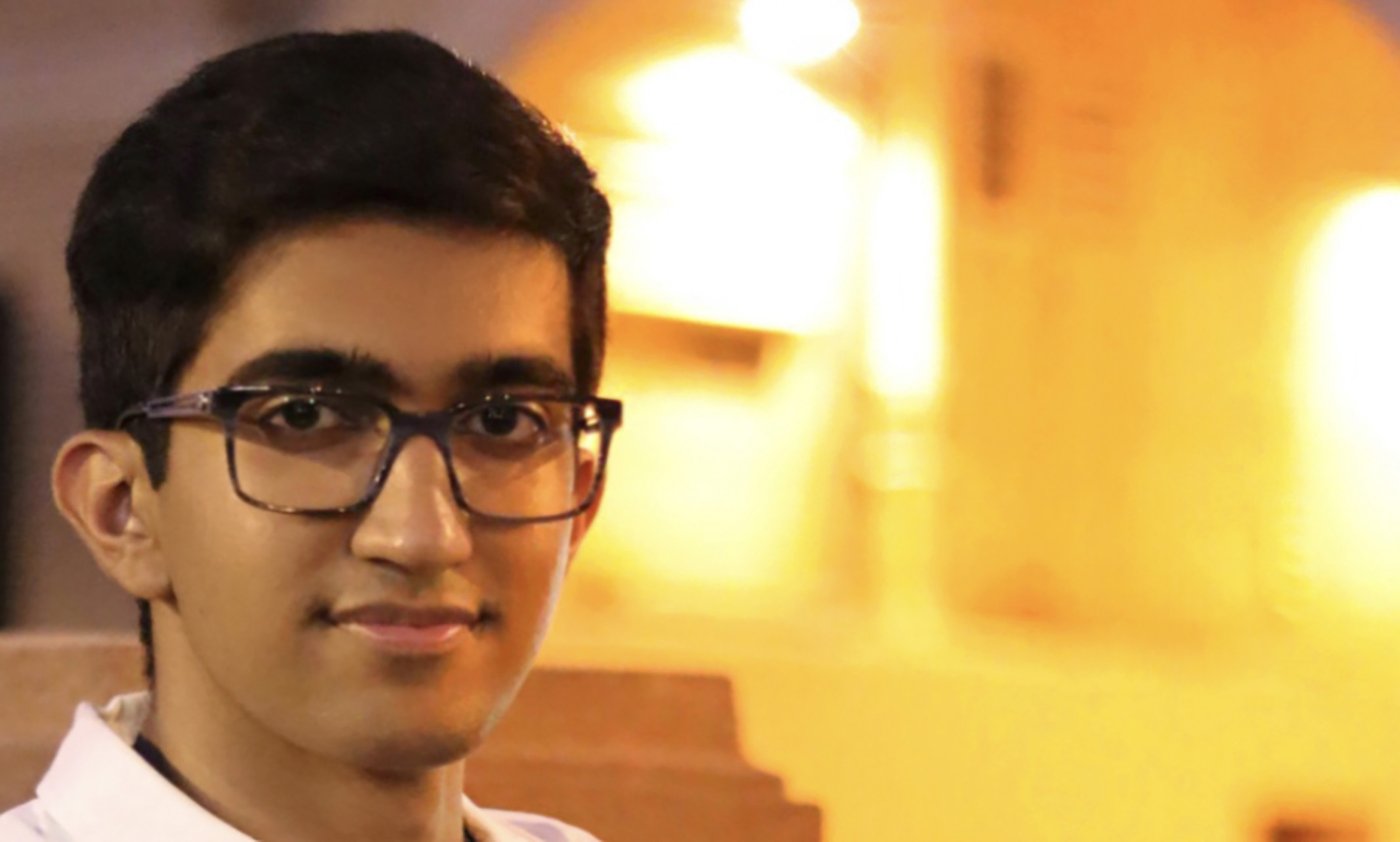
Fahad Qureshi combines medical and engineering interests to create innovative solutions
Driven. Creative. Optimistic. Curious. Determined. Smart. Happy. These are common traits found in successful entrepreneurs. All of them are found in Fahad Qureshi.
A third-year medical student at UMKC, Qureshi took third place in the UM System Entrepreneurship Quest Pitch Competition, where 20 student teams from across the four campuses presented innovative business ventures. Qureshi is the founder and creator of Vest Heroes, which uses a system of pulleys and levers in the operating room to relieve surgeons from bearing weighted lead X-ray skirts and vests during long procedures. Wearing the vests are required by law and protect health care professionals from radioactive exposure. But they are heavy – between 30 and 69 pounds – and can hinder mobility.
Qureshi wasn’t nervous during the final rounds of competition, as he’s had the idea for a long time and knows the product well. In fact, his invention is patent-pending, and he’s launched a company to fulfill orders for 100 vests that will be used throughout the country. “I strongly believe in the idea,” he said, “and it was great to get affirmation from the judges. To know it’s real and it’s working – I feel good about that.”
As a child, Qureshi had a good friend who died during an operation following a bad accident. He heard the surgeon say that wearing his 60-pound vest made it hard for him to make movements during his friend’s operation – and that’s something he never forgot.
While finding a way to reduce the weight of these vests has been in his head for a long time – “10 to 12 years, maybe more” – he didn’t have the background needed to solve it … until medical school.
Once at UMKC, he gained academic understanding, expanded his medical knowledge, got into the operating room and participated in an engineering apprenticeship, completely independent of the School of Medicine.
“Just because you are practicing medicine doesn’t mean you can’t do anything else,” he said. “I wasn’t looking for credit, I was looking for knowledge.”
He also found a local engineering firm to help out.
“When you have an interdisciplinary approach, that’s when you can really solve problems. Without medicine, I wouldn’t know what to build,” he said. “Without engineering, I wouldn’t know how to build it.”
In addition, Qureshi reached out to various physicians to get their opinions – how to improve the vest, how to grow consumer interest, what did and didn’t work well. His biggest support has come from Bogdan Derylo, M.D., a nephrologist from his hometown of Chicago and Akin Cil, M.D., UMKC professor and the Franklin D. Dickson/Missouri Endowed Chair in orthopaedic surgery.
“All of the feedback received was terrific,” Qureshi said. “The final model is a culmination of all the suggestions they provided.”
Qureshi, who worked minimum-wage jobs to fund the company so he can retain full equity, says mass distribution is his ultimate goal. He’s currently working with a Chinese manufacturer to help produce large numbers of the Vest Heroes, although that is sidelined now due to the coronavirus pandemic.
“Any doctor or health care professional that uses radiation has a need for this,” he said. “There’s really no downside to using it – it’s a necessity, as I see it.”
There’s no doubt that Qureshi’s entrepreneurial spirit motivates him, but he sees health care connecting it all. As for his future, he plans “100 percent to practice medicine.” And part of that plan includes research, his company and teaching the next generation of doctors.
“When you choose what you do every day, it should be something that makes you happy. Going to work shouldn’t be scary or dreaded. If your work makes you happy, you’re doing something right.”
In addition to Qureshi, the UMKC teams presenting pitches during the final competition were Greyson Twist, Ph.D., bioinformatics and computer science major presenting his Genalytic project; and Kyle McAllister, business administration graduate student presenting his company Compost Collective KC.
May 06, 2020
41 Action News reports on the UMKC Student Emergency Fund announced during the COVID-19 pandemic.
University of Missouri-Kansas City students struggling to pay bills and other expenses are getting some needed help from a fund set up by the UMKC Foundation. Read the 41 Action News piece here.
May 06, 2020
Local accelerators share how they’re navigating the pandemic.
Lesa Mitchell hopes the program will be able to start meeting in person in July, but she’s not yet sure whether Techstars’ new space at the Regnier Institute for Entrepreneurship and Innovation on the University of Missouri-Kansas City campus will be available due to the pandemic. Read the story here.
May 06, 2020
Watch UMKC’s E-Scholars Demo Day
E-Scholars met in person until mid-March, and then quickly shifted to a virtual environment. Read the story here.
May 06, 2020
Amelia Clark is in the last semester of a doctorate program at the University of Missouri-Kansas City.
Amelia Clark assisted in redesigning the mask and plans to continue providing them even after demand wanes. Read more here.
May 06, 2020
Local media interview Mary Anne Jackson, dean of the UMKC School of Medicine about COVID.
Listen to KCUR Up To Date: Stay-at-home orders are being relaxed, but the best safety practices are not changing.
Read the St. Louis Post Dispatch article: The St. Louis area has seen more than twice the coronavirus cases and three times the deaths as Kansas City. It’s unclear why.
Listen to KCUR Up To Date: As cities and states lift pandemic restrictions, get advice for venturing out safely.
May 06, 2020
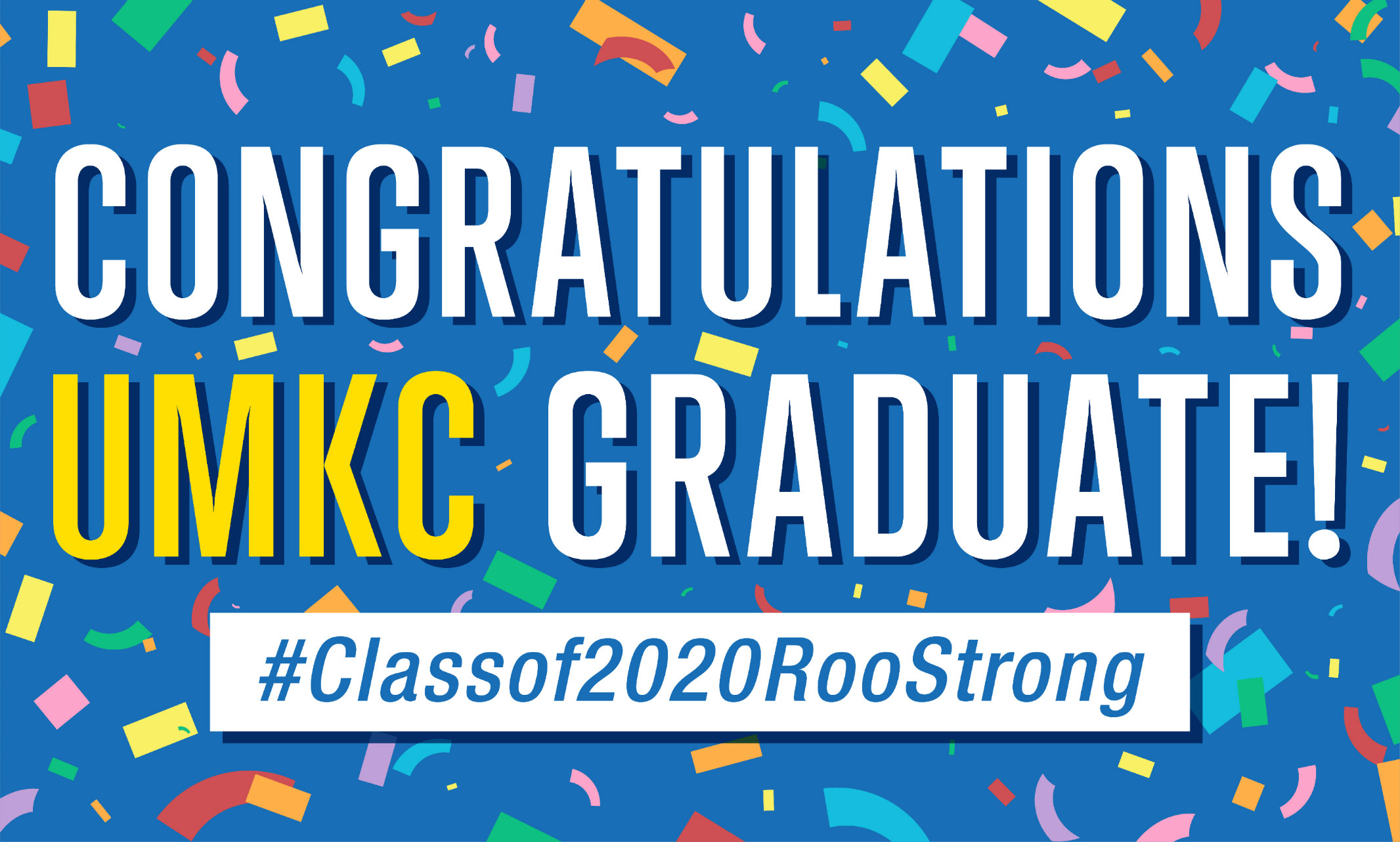
Messages for recent graduates from UMKC alumni
Alumni from across our campuses submitted messages of encouragement and well wishes for the Class of 2020. These are just a sampling of the heartfelt notes for the most recent graduates of UMKC.
You are poised to accomplish wonderful things! This has been a learning year for all of us: for our mentors, our bosses, our colleagues and our families. Please take this year and its lessons and know that this has been challenging for every single person. You are not alone, you are not forgotten. You are in this with the entire world and you too can come out on the other side of this if you put your values, your lessons, and your creativity to use. We're here for you, Class of 2020 — best wishes!
—Elizabeth McClain (MBA ’17)
Congratulations Class of 2020!! You did it! We are all so proud of your resilience, strength and selflessness during these tough times … I know you definitely did not get the moment you all deserve, but if anything, I have only learned how sanguine you all are throughout this experience. Enjoy every moment, remember that you accomplished all of this and continue to be proud of yourself. I wish you all the best. Congratulations, Roos!
—Sabat Ameen (B.L.A. ’16, M.D. ’19)
Congratulations on your graduation! You’ve reached a major milestone in your life, and I couldn’t be happier for you. I hope you’ll take this time to celebrate. Celebrate all of the hard work it took to get here. Celebrate the friendships you’ll take away with you. Celebrate all the possibilities of your next adventure. I know commencement isn’t happening the way you hoped and planned. But I want you to know that the entire UMKC family is still with you, cheering on your huge accomplishment. We can’t wait to see what you do next.
—Mary Daly (B.A. '85)
Dear Class of 2020, congratulations on your great achievement. You have shown perseverance and commitment and this is your time to shine! There will indeed be challenges, and undoubtedly there will be uncertainty, but you will also learn how to adapt, take initiative and prosper. And when you look back, the Class of 2020 will be known for having foresight to navigate tricky waters and to reach your goals every time! Wishing you all a very happy, healthy and successful future ahead!
—Fahim Siddiqui (M.S.C.S. ‘93)
Congratulations, Class of 2020! Your hard work for this achievement has finally been realized. Though the celebration of your completed degrees and certificates will look different this year, that makes them no less important. Some advice that was given to me when I entered UMKC, I wish to impart to you: College does not complete you — it only compliments what you bring to the table. Continue to bring your inherent, authentic self into everything you do. Allow what you've learned at UMKC and these honors you've achieved to compliment who you are. Be true to who you are. Congratulations, graduates!
—Angela Sander (B.A. ’17)
This unprecedented time will pass and cannot diminish that your graduation is a source of great pride. And now, you're on your way to new adventures, on your way to the future. May you follow your dreams and your heart. Best wishes as you graduate.
—Debbie Brooks (J.D. ’01)
Dear graduates: This was not the ending you planned. It certainly is unlike anything any of us expected. A spring quarter full of promise and celebration, in a matter of weeks, has become a source of grieving. Any words of consolation I could try to offer would fall flat. But we still need to celebrate milestones that were a lifetime in the making. We are all trying to find the positives during this trying time so embrace your degree and all the hard work that went into it. Know that you will be able to make a huge difference in the world you are graduating into. Also know that we are proud and celebrating for you at this time even if there is not an official ceremony to mark this passage. Best of luck Class of 2020!
—Sue Garnett (B.S.P. ’82)
Congratulations! I am so very proud of all you have accomplished in the past four years! It was a long, hard road and you did it!! I know this is such a difficult time since your celebration will not be what you deserve, but just know there are so many of us rooting for you (even all the way out here in Hawaii!) and wishing you all the best life has to offer from here on out!
—Tina Mukai (B.A., D.D.S. ’07)
May 05, 2020

Tactics, tips and resources to help you navigate the job market
Currently on the hunt for a job? We caught up with Tess Surprenant, director of the Bloch Career Center and interim director of UMKC Career Services, to get her best tips for graduating students currently looking for a job. Here is a wrap-up of what we learned.
Tried and True Job Hunting Tactics
1. Network, network, network
We all know that networking is an important part of job hunting. Now, with the potential for fewer jobs and higher applicant numbers, building connections will be more important than ever. Luckily, the new virtual working world has made it easier to get in contact with people. Don’t be afraid to share your goals with others. You might be surprised how quickly people will get on board with your dreams and cheer for you.
2. Start with Roos to build your network
What if you don’t have many people to network with? Never fear, we’ve got you covered. Some of the best places to start looking for new connections are to follow up with any guest lecturers from classes, connect with UMKC alumni on LinkedIn, or search for Facebook groups specific to your industry or location. Scheduling an informational interview with someone is a great way to learn about their career path, their current work and their industry as a whole. Don’t be afraid to put yourself out there! Remember, that UMKC Career Services can also connect you with dozens of industry professionals and alumni that are happy to network with UMKC students.
3. Do your research
Whether you are about to reach out to a new contact or apply for a position, do your research. Researching for a networking opportunity allows you to ask more specific and thought out questions which will impress your contact and allow them to provide you with more helpful information. Researching each job and company before applying will also help you tailor your resume to that position, something that Surprenant stressed as absolutely vital when applying for multiple jobs at once.
4. Apply on company websites
Surprenant cautioned against applying for positions through recruiting websites like LinkedIn unless you want to tailor your profile each time you apply for a job. Platforms like LinkedIn are great places to find jobs, but applicants should look for the same job posting on the company’s website and submit applications there.
Tess' Nuggets of Wisdom
"Keep all your options open for as long as possible and do what is right for you."
1. Know your industry's recruitment schedule
If you are seeking to join an industry that follows very specific recruitment schedules and you are not sure how COVID-19 may have impacted those schedules, reach out to UMKC Career Services. They can help you decide which steps make the most sense for your overall career goals. Not sure if this is you? Contact Career Services as well!
2. Questions to ask in interviews during this new normal
It is perfectly normal to have concerns about the working world and wonder how COVID-19 may have impacted the company you are about to join. It is important to ask the questions that matter to you so you can be as informed as possible when you make your final decisions, but you still want to remain respectful. Surprenant laid out two ways to ask potential employers about COVID-19 related concerns.
If you are worried about beginning a job remotely, you can say:
“I am anxious to be successful here, so I am wondering what tools you have available to employees to help them transition to online work.”
If you are worried about the stability of the company, you can ask:
“How has COVID-19 changed your business’s culture?”
3. On accepting offers you might not love
Surprenant acknowledged that fear might make it easy to rush into accepting an offer that is not the right fit. She also said it is perfectly okay to accept a job in order to remain financially stable. It is important to understand yourself, your timeline and your finances. Keep all your options open for as long as possible and do what is right for you. She noted that you don’t need to accept the first offer you are made, especially if you have other interviews coming up. Reach out to the recruiters from the other companies to let them know you have been made an offer, but you want to be able to fairly consider all your options. Then inquire about moving your interview up.
4. Do something rather than nothing
If you find yourself in a position where you take a job outside of your desired field, make sure you keep making forward progress. Reach out to companies and ask if they have any micro projects in your desired field that you can work on. Connect with your professors to see if you can assist in a research project. Volunteer with an organization that is related to the work you someday hope to do. It’s important you continue to learn. Now is a great time to utilize free online learning tools. You can learn to code, master excel, learn a new language or even join a writing group to keep those skills fresh.
Overall takeaway
Know yourself and your needs. No one knows the future you want to have better than you. Put yourself out there and share your dreams with others, especially those who have a little more job experience. When in doubt, connect with UMKC Career Services. Bring your questions, your resume and your goals. They can help you along the way, even after you graduate and join the working world.
UMKC Career Services
May 05, 2020
Coverage supported by America Amplified
Kansas City’s public radio station, KCUR 89.3 FM, with support from America Amplified – a national public media coalition funded by the Corporation for Public Broadcasting to provide election coverage for 2020 – is working to flatten the curve with its new Spanish-translated COVID-19 blog.
KCUR announced its America Amplified initiative in partnership with eight other public media networks across the country as part of its $1.9 million Election 2020 grant from the Corporation of Public Broadcasting to cover the presidential race. With the fast outbreak of the novel coronavirus, the program made a shift to cover the global pandemic.
“We realize that we have a substantial Hispanic community in Kansas City with a large Spanish-speaking population,” said Director of Broadcast Operations Ron Jones. “This is a great opportunity to provide a public service and ensure that everyone is informed about the pandemic.”
The station is also partnering with Kansas City Hispanic News on a 60-day agreement to help spread the word about its new initiative to keep the community informed. In turn, the paper will gain access to the station’s English digital content and publish a print a translated version for its readers
Kansas City Hispanic News reaches a market of nearly 200,000 Hispanic residents expanding from the greater Kansas City metropolitan area to Topeka, Emporia and Wichita, Kansas. The paper has an average readership of 35,000 each week.
KCUR will be regularly updating its Spanish coverage of the coronavirus in Kansas City through its FAQ and live blog pages. The station is operated as an editorially independent community service of the University of Missouri-Kansas City.
Follow KCUR’s Spanish Coverage
May 05, 2020
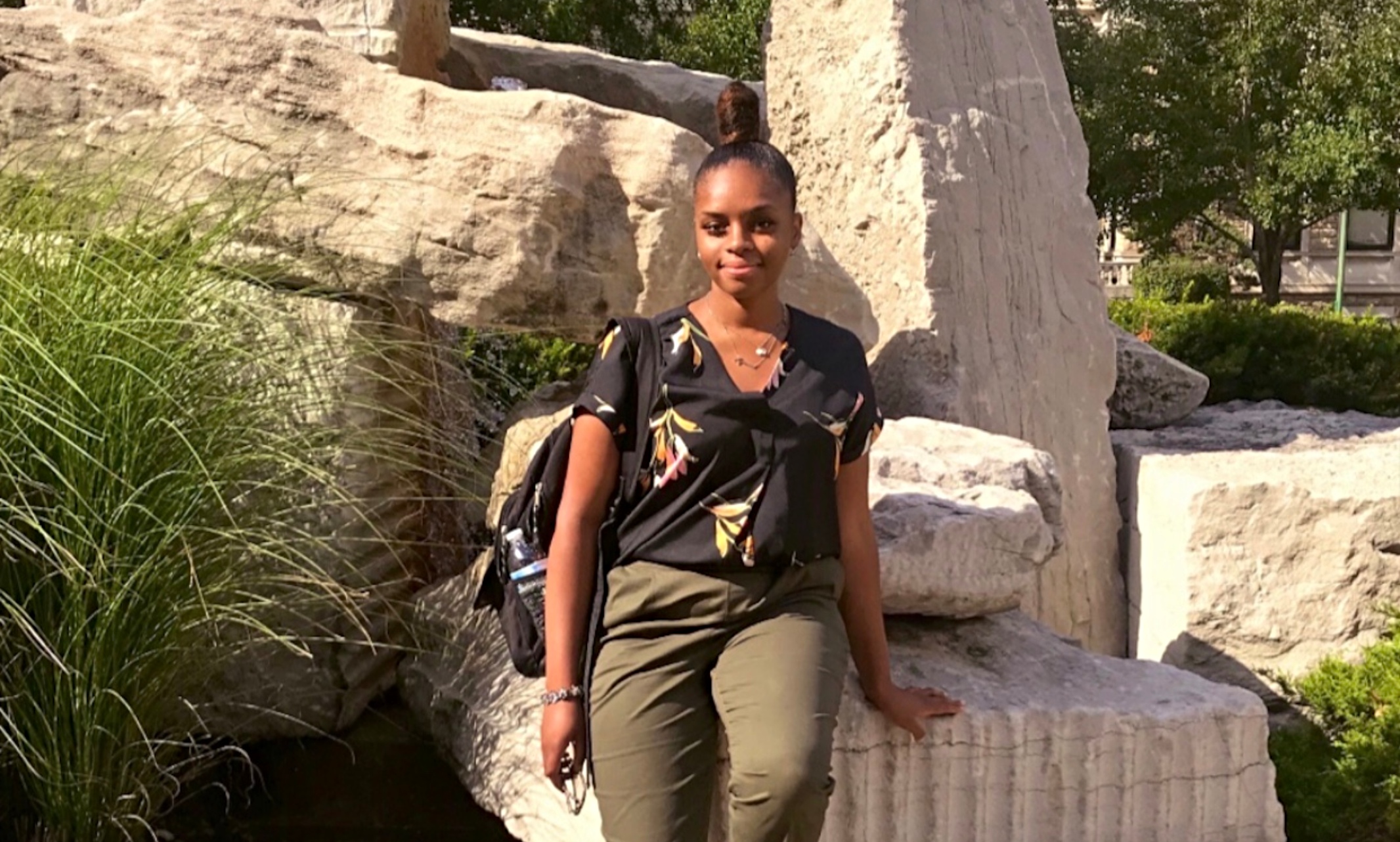
Creative ways to commemorate this major accomplishment during COVID-19
No doubt, COVID-19 has created complex circumstances for many across the world. If you’re a spring semester graduate like me, you may feel the need to tie up loose ends before virtually walking across the stage. But with stay-at-home guidelines, the options for celebrating look different than normal.
Still, it’s important to bask in the glory of such a tremendous milestone. Virtual ceremonies just might not feel like the real thing, or even feel like enough of a commendation for the hard work put into the years of such a valuable journey. So, it’s important to reflect and think about what could help you, individually, celebrate and be proud of your place in the class of 2020.
A Visual Walk Down Memory Lane
So, remember that concert you went to or your spring break trip and how you flooded your social media feeds with photos and probably a few Instagram slideshows? Try doing the same to highlight some of your favorite memories throughout your college experience. Get creative and create an actual visual timeline starting from your freshman year to now and what it has meant to you to make it to the finish line. Revisiting times that made you stronger, or that you simply enjoyed, are great for realizing this moment still matters and there’s much more to come.
A big moment for me came in December 2019, when I visited New York City after I was selected to attend the IRTS Multicultural Career Workshop for student journalists across the country. Fun fact: I had made it a goal to visit NYC before the end of my senior year, and I did it. Super cool experience!
Be a Creative Director for a Day
Lately I’ve been extremely inspired by the talent on display on social media. More so, through aspiring photographers and individuals who are creating home photo shoots for fun, while at the same time boosting their portfolio. From bed sheet backgrounds to home gardens or impressive shoe collections, these folks are creating full-blown shoots that could honestly be placed in our mainstream magazines. You can do the same!
If you’re one of the many who couldn’t schedule graduation photoshoots with your cap and gown or put your respective themes to the test, use this time at home and your environmental surroundings to do so. Throw on your cap and gown and take advantage of nature and all it has to offer. Art supplies are collecting dust in your bedroom closet, so get your Dave LaChapelle on!
I've been really impressed by the people creating their own photo shoots at home. Photo by Amanda Vick
Party for 10 (or fewer)
Staying within social distancing rules, groups of 10 or less is enough for an intimate gathering. Make it even better by hosting a small party with just your immediate family. Also, consider using video chat platforms such as Facetime, Zoom, Skype and the live feature through Facebook and Instagram to connect with family and friends who aren’t able to be there. Take advantage of Amazon Prime for 2020 graduation-themed decorations, in addition to food, games and a playlist of some of your favorite songs you’ve curated from your undergraduate or graduate years. Everyone loves a good karaoke session!
Grab some treats and your favorite tunes and make it a fun day with your family. Photo by Brooke Lark
In the words of Parks and Recreation’s Donna, “Treat Yo Self!” (or let others do it for you)
Having you been eyeing a pair of shoes, some new tools for a favorite hobby or something else? Feel free to get a congratulations gift for yourself — or make a wish list for others, just like birthdays, baby showers and wedding receptions. After all, you deserve to be celebrated, and if people are asking you if there’s some way they can help you celebrate, don’t feel bad about sharing that list. Or maybe you want to start a cash gift “Recent College Graduate Fund.” Whatever it is, don’t feel bad if people who know and love you — including yourself — want to celebrate with a gift.
On the other side of the spectrum, you don’t at all have to spend money to celebrate. After months — no, years — of studying and finals, you deserve to spend some quality time relaxing. Treat yo self. On your graduation date, cook your favorite foods, get dessert and binge your favorite series or film franchise. I already have my corny rom-com list lined up.
Vacation Countdown
Within the next couple of months, or maybe throughout the rest of the year, traveling won’t be the first thing most people think to do after the lockdown is lifted. However, there’s always next year with the hope that conditions have improved. So, with the time you’ve got during quarantine, use it to plan a vacation as a treat for earning your degree. Create a group chat for any friends you would want to invite and start brainstorming destinations and travel details. Aim for somewhere you’ve always wanted to go and let yourself consider the possibilities. Maybe a weekend at the cabin transforms into an entire week on an island. Anyone else feel like celebrating with tropical treats and swimming with the dolphins?
Anyone else feel like they need a vacation after all this? Photo by Tim Foster
Whatever you decide to do, just make sure you do something to mark this incredible accomplishment. The #Classof2020 is strong and resilient and has a lot to be proud of!
May 05, 2020
This article was written by Sam Humphreys, UMKC Men’s Golf student-athlete.
Coronavirus just another hurdle in an unusual college golf career. Read the story here.
May 05, 2020
The Startland News wrote about UMKC innovation contest winner.
One startup’s winnings from Friday’s Regnier Venture Creation Challenge are expected to have a near-immediate, tangible impact on Kansas City – helping Kanbe’s Markets provide produce in one of its corner markets for an entire year. Read the story here.
May 05, 2020
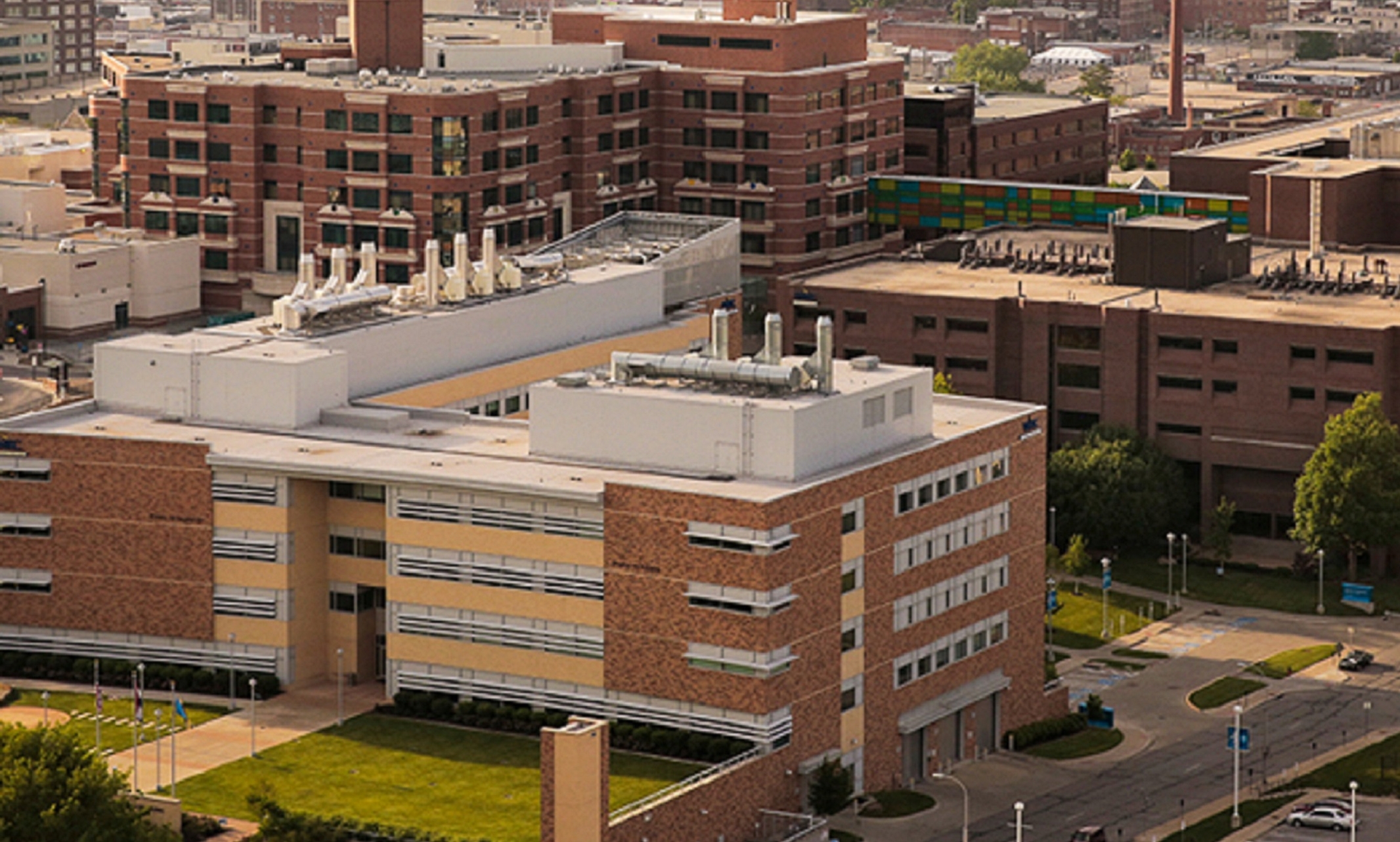
UMKC experts will help commission charged with improving community health
Three members of the UMKC community with expertise in emergency medicine and public health have been appointed by Mayor Quinton Lucas to the Kansas City Health Commission.
Erica Carney, M.D., was appointed co-chair of the commission, which provides oversight for the city’s Community Health Improvement Plan and fosters collaborative community efforts in the wider metropolitan area. Carney is a graduate of the UMKC School of Medicine’s innovative six-year B.A./M.D. program, an assistant professor in emergency medicine, an emergency care physician at Truman Medical Centers and the medical director of emergency medical services for the City of Kansas City.
Lucas said Carney's work had been instrumental in the city's response to COVID-19 and collaboration with area health providers. Carney said her areas of interest included improving survival rates for out-of-hospital heart attack patients from lower socioeconomic ZIP codes and improving public safety, including response to disasters and special situations such as COVID-19.
“The best defense to the unknown is a united front in the name of public protection, and I truly feel that our region is leading the way,” Carney said.
The mayor also appointed to the commission Joey Lightner, Ph.D., M.P.H., assistant professor and director of the Bachelor of Science in Public Health Program at the UMKC School of Nursing and Health Studies, and Austin Strassle, a housing stabilization specialist at Truman who earned his bachelor’s degree in urban studies/affairs from UMKC in 2016.
Lightner has helped launch the School of Nursing’s undergraduate public health degree and worked to involve undergraduates in innovative research bringing fitness and nutrition programs to area schools.
“It is an honor to be appointed to the Health Commission,” Lightner said. “I hope that over the next three years, we can work to reduce health inequality that is prominent in Kansas City.”
In his research and outreach, Lightner has collaborated with community groups and institutions including Kansas City schools and the city’s Parks and Recreation Department and Health Department.
“I hope that over the next three years, we can work to reduce health inequality that is prominent in Kansas City.”
-- Joseph Lightner
Strassle, who also has a master’s in city/urban, community and regional planning from the University of Kansas, has worked for three and a half years at Truman as a mental health caseworker. He also was the leader of a successful community campaign to get the Kansas City Council to ban the use of conversion therapy on minors by licensed medical practitioners.
The mayor, in making his appointments, said it was important to have “experts in outreach to at-risk communities” on the commission, along with “medical professionals with specialties in trauma, infectious disease treatment, pediatric and prenatal care; supporters for survivors of domestic violence; advocates for residents of nursing homes and other long-term care facilities; educators; long-time community health reformers; and more.”
May 04, 2020
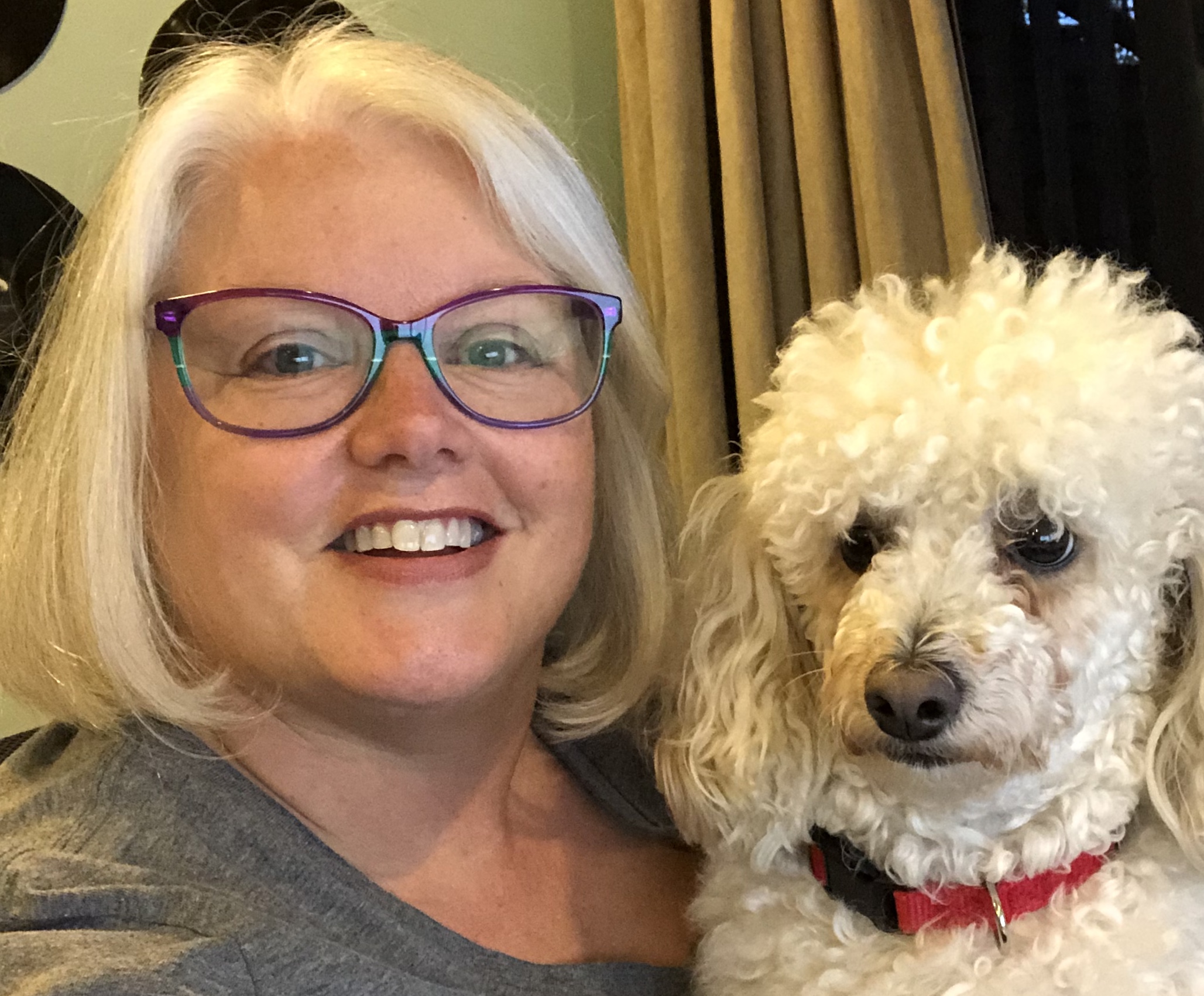
Checking in to see how our UMKC community is managing the highs and lows of sheltering in place
Tammy Welchert is sheltering in place with her husband, Dave, who is retired from the Kansas City Fire Department, her son Hunter, who is finishing his senior year of high school and Mr. Diggity, their 3-year-old toy poodle.
“Right now, my number one responsibility is to prevent COVID-brain,” Welchert, associate teaching professor, director of student affairs and academic advising research areas at School of Biological and Chemical Sciences, says. “This can take many forms, but my top priority is just remembering what day it is.”
Currently, she is teaching four classes and helping with advising.
“And I’m helping to plan the most awesome virtual graduation ceremony ever!”
While Welchert’s focused on helping students, she’s aware that balance is key.
“I feel compelled to be at the ready all the time, to take care of students needs as they indicate them. I’m trying to remember that I am important and need to make time to take care of myself so I can take care of them!”
Welchert is known for her exuberant spirit, so it’s no surprise that she’s finding joy, too.
“I love watching the pictures come in from our graduating students and assisting the Life Sciences 202 students as they prepare to submit applications to professional healthcare programs this summer! And being able to pet Mr. Diggity and have lunch every day with Dave on the deck!”
What are you reading?
I have three books on my nightstand, “Hag-Seed” by Margaret Atwood that we are using in the first-year seminar course this fall with UMKC Essentials, “Every Breath” by Nicholas Spark and “A Pilgrim's Guide to the Camino de Santiago.”
What are you watching?
We just finished “Ozark” and “Little Fires Everywhere.” Both were amazing! We are getting ready to start the newest season of “Billions” and of course don't miss an episode of “Survivor”!
What are you eating?
Yum, I just shared this recipe with a couple of our advisors. It’s the best ramen I have ever eaten. I found the recipe on Pinterest which is where I find almost everything!
We’d love to know how you’re sheltering in place! Contact Patricia O’Dell if you want to share your story.
May 04, 2020
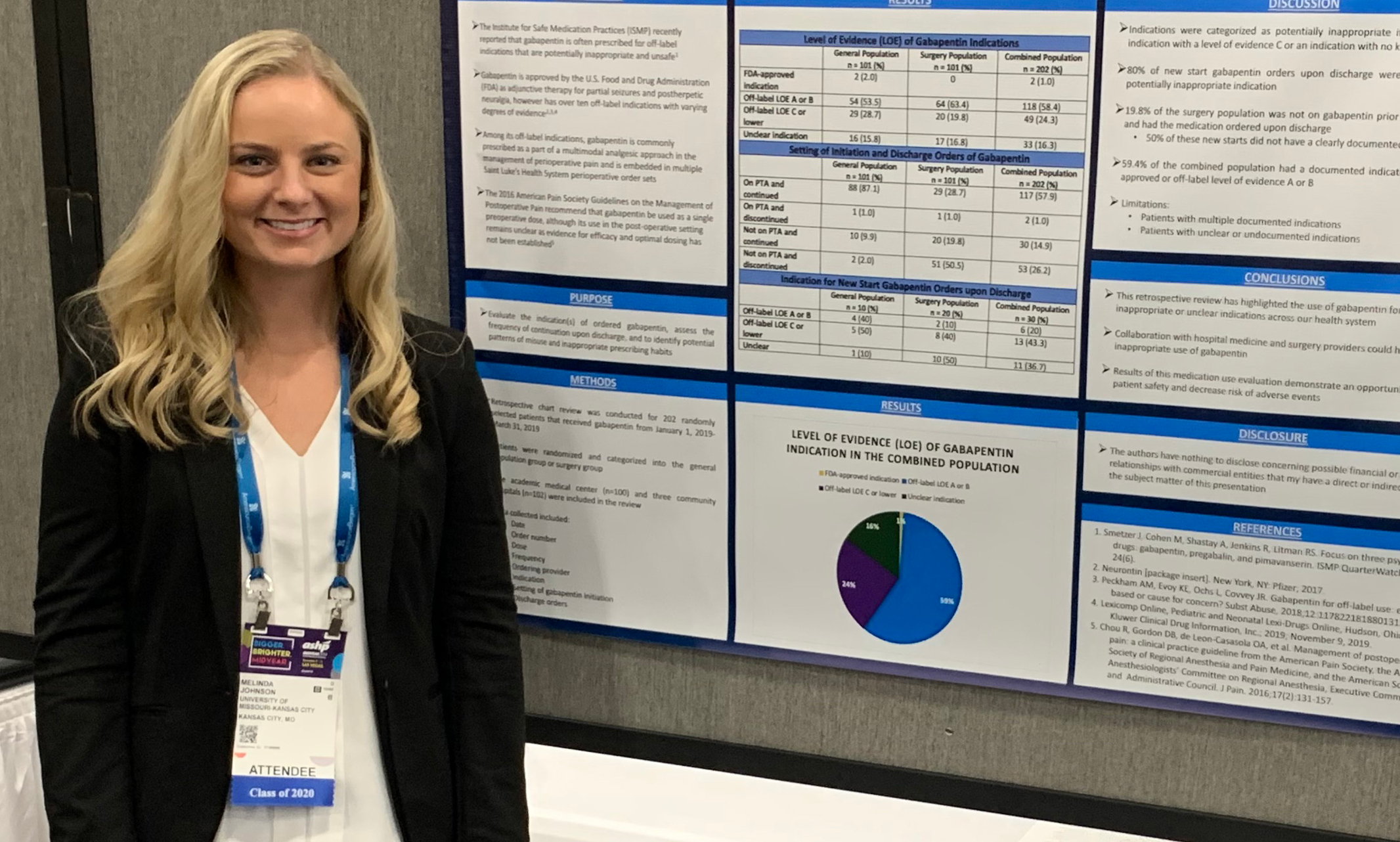
Melinda Johnson helped develop plasma treatment protocols for coronavirus patients
Travis Kremmin (Pharm.D. ’11) is a clinical pharmacist at AdventHealth Shawnee Mission, a hospital in Merriam, Kansas. In March, the pandemic was just ramping up in the Kansas City area and Kremmin was looking to establish a COVID-19 response team of pharmacists when he received a text message.
A fourth-year student at the UMKC School of Pharmacy, Melinda Johnson, had made a lasting impression on Kremmin six months earlier while working together during a clinical rotation at the hospital. She had a general question for him about his specialty, infectious diseases. Kremmin had a question of his own – would Johnson consider coming back to join his team?
“It’s a very fast-moving environment right now with tons of literature and data to sort through both good and bad,” Kremmin said. “I was familiar with Melinda and the work she’d done with me before. I requested that she join my team. I knew when this was going on that not only could we help her gain experience, but we could utilize her skills. It was an ideal matchup.”
Johnson spent the month of April working as part of Kremmin’s team. She was largely responsible for helping develop the protocols for a convalescent plasma treatment program in partnership with the Mayo Clinic. Working in coordination with local blood banks and those in New York, plasma is received from New York patients who have recovered from the COVID-19 virus. Antibodies from those plasma sources are extracted and then used to treat the most severely ill COVID patients.
“This was a totally new concept, especially for a student being on a rotation. I don’t think we really knew what to expect going into it, but it turned out to be an amazing experience.” – Melinda Johnson
Johnson was tasked with reading and understanding the Mayo Clinic’s institutional review board (IRB) treatment protocols for the procedure, and then develop a treatment plan for the Shawnee Mission hospital. That included developing the necessary checklists to ensure the required documentations were in place. On April 10, AdventHealth Shawnee Mission was the first hospital in Kansas City to use the treatment. The procedure is now being used across the 49-hospital AdventHealth system under Johnson’s designed protocol. Facilities throughout Kansas City have shown interest in the hospital’s convalescent plasma program as well.
“It was a team working on this,” Johnson said. “Travis initiated the process and we came up with the protocols. We were looking every day at patients to see if they would be candidates for the treatment at our facility. I’m grateful to have had this opportunity to work with AdventHealth and all the preceptors there.”
COVID-19 patients, particularly those on ventilators, have unique drug requirements. One of Johnson’s roles was to review emerging trials and data to calculate how much drugs are needed for the average patient to ensure that the hospital would have an adequate supply on hand.
“With all the information emerging for COVID, it’s almost a constant blast of information,” Johnson said. “I was sorting though what was most relevant, most important, and analyzing things to see what’s actually strong data versus studies that have come out that have been a little bit skewed.”
She also explored treatment options in light of caution flags that have raised of potential future drug shortages resulting from a coronavirus pandemic’s disruption of supply chains.
“I did work on potential treatment options, proposed treatment options” Johnson said. “I was looking at data for anything else beyond what are our first-line agents. Sometimes, we went down to our sixth and seventh options.”
Throughout April, Johnson and Kremmin met online daily for as long as two to four hours at a time to review the day’s patient consultations list and discuss the information being released on COVID-19. Kremmin said Johnson was instrumental in analyzing and deciphering the waves of data in order to develop treatment and dosing algorithms for COVID patients locally and across the AdventHealth network.
Twice a week, she and Kremmin met with physicians and pharmacists to discuss patient needs and the latest developments surrounding the virus. The process of working remotely worked out better than they imagined, Johnson said.
“This was a totally new concept, especially for a student being on a rotation,” Johnson said. “I don’t think we really knew what to expect going into it, but it turned out to be an amazing experience.”
May 04, 2020

A look into visualizing a virtual event to honor this year’s graduates
Graduation is a joyous affair. After years of work and investment, students and their families have the opportunity to celebrate the graduate’s new beginning. While this year’s virtual commencement event will be different, the achievement and excitement will be the same.
“Once we realized the significance of the pandemic and the likelihood of its duration, our students’ graduation experience became a priority,” said Curt Crespino, vice chancellor of external relations and constituent engagement. “It was a difficult decision, but in the interest of everyone’s health, the chancellor and the provost made the final decision that virtual graduation this spring was the best approach. Also, graduates will have the opportunity to walk in December.”
As leadership formed a committee to determine what virtual graduation would look like, they engaged student leadership in the planning process.
“We wanted students’ perspective on what would make the ceremony meaningful,” Crespino says.
Emma Weiler, who will be graduating with her Bachelor of Science in nursing, served on the planning committee for graduation. Weiler is the Student Government Association speaker of the senate, and was familiar and comfortable representing students on administrative committees.
“My biggest concern with the virtual graduation process was allowing family and friends of graduates to be able to view and feel a part of the ceremony,” Weiler says. “I really felt for first-generation college graduates, although I am not one, for not being able to celebrate their accomplishment in person with their families.”
"We made it a priority to find a balance between a traditional ceremony and a celebration.” - Jenny Lundgren
The committee sent out a survey to students to identify what was important to them. They used that feedback to plan the event.
“We realized that some people may only want an in-person ceremony, but there are others who need the opportunity for closure and to see their classmates, even virtually,” Crespino says.
Once the committee had responses from students, they could envision an engaging plan. One thing seemed certain: Honoring the original date and times of the ceremonies was important, as well as recognizing the students’ affinity to the schools with which they are affiliated.
“Our students tend to be strongly aligned with their academic units, so we knew there would need to be a strong unit flavor to the event,” said Jenny Lundgren, provost and executive vice chancellor. "We made it a priority to find a balance between a traditional ceremony and a celebration.”
Weiler felt the administration was responsive to student feedback.
“I think it is very important to allow those who graduate in May the opportunity to walk in December if they want too, and they were very responsive to that,” she said.
“The virtual commencement will still be a great way for me and my family to celebrate my accomplishments.”- Emma Weiler, senior
In addition, the committee felt it was critical to touch each student personally. The team developed celebratory packets that will include honors cords and a traditional Roo lapel pin along with a few other surprises.
“We understand this is a very significant moment for our graduates and their families,” Lundgren says. “We’ve also created a commencement book that will be a commemoration of the unique experience of the class of 2020. We wanted it to reflect that.”
While Weiler is disappointed about waiting until December to walk, she is determined to make the best of the situation.
“The virtual commencement will still be a great way for me and my family to celebrate my accomplishments,” she says. “I think it is great that the university is doing what they can to make this a special experience for students. You are never going to make everyone happy, but they are really trying hard to make this special for all the graduating seniors.”
Commencement by the Numbers
12 School ceremonies
2,100+ May graduates
#Classof2020RooStrong
Commencement schedule
May 04, 2020
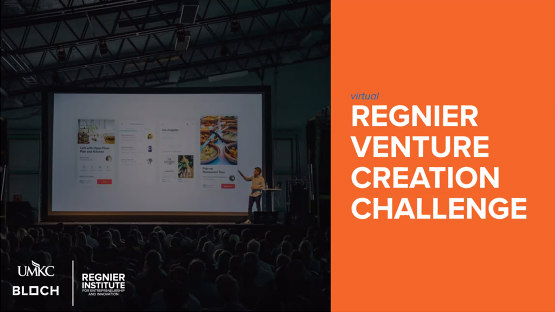
Student entrepreneurs receive awards, experience at annual pitch competition
The Regnier Institute for Entrepreneurship and Innovation at the Henry W. Bloch School of Management held the Venture Creation Challenge virtually on Friday, May 1 and selected winners in the annual pitch competition.
“All of the competitors involved in this year’s challenge have demonstrated qualities that set innovators and entrepreneurs apart,” said Jeffrey S. Hornsby, Regnier Institute director. “We are grateful that they have shared their efforts, their drive, their inspiration and their creativity with us. These are the qualities that bring us together today, and that define the Regnier Institute.”
The Regnier Venture Creation Challenge is about more than money. During the competition, students test their ideas in a supportive environment of educators, mentors and staff who want to see them succeed. To do this involved the support from more than 60 mentors, advisors and community partners, who volunteered to serve as judges throughout the rounds of the competition.
“This was an outstanding class of individuals,” said Bob Regnier, naming benefactor and founder, executive chairman and CEO of the Bank of Blue Valley. “It’s the process that’s important. As entrepreneurs, we deal with disruption all the time. When you open people’s mind to what’s new, you open up the sweet spot for an entrepreneur.”
Innovation Award
Special Needs Identification App (SNidAP), $500Special Needs Identification App is the smart wearable that keeps you, your loved one, and the public safety community connected.
Specialty Awards
Outstanding Undergraduate
Generation Green, UMKC and UMKC Enactus, $1,000Generation Green is focused on repurposing old plastic waste into dry/wet-erase boards, creating new products that help teachers engage students in interactive learning.
Linda Tong Planners, Iowa State University, $1,000Linda Tong Planners is a business that provides completely handwritten and personalized planners that are customized to each individual person.
Outstanding Social Venture
Dart, UMKC, E-Scholars and UMKC Enactus, $1,000Dart gives old bikes new life by repurposing them into affordable, high-quality e-bikes.
Outstanding Creative Enterprise
Vivas y Muerto, Kansas City Art Institute, $1,000Vivas Y Muerto is a sustainable and eco-friendly jewelry line.
Outstanding High School Venture
MARGOLOH, Blue Valley CAPS, $1,000MARGOLOH is a hologram that uses water vapor diffusers and fans to create a tornado-like shape in an oval shaped structure.
General Track Awards
Calving Technologies, Mizzou, $5,000Calving Technologies is an animal agriculture startup, providing monitoring and predictive sensory technology for producers to track the health of their livestock. Their first product is a multi-sensory collar that measures various biomedical parameters of late-gestation cows, predicting the timing of calving events hours in advance - ultimately decreasing calf mortality rates and increasing producer margins.
ChordaWorm Lures, LLC, Iowa State University, $4,000ChordaWorm Lures, LLC solves one of the largest problems in the fishing industry. The current soft plastic fishing lures on the market are not durable and they are easily ripped off the hook by fish. These lures only last for two to four fish catches each.
Interplay, UMKC and E-Scholars, $3,500Interplay is working toward automating pet interaction by providing dog owners with an automated dog crate that will allow them to operate it from their smart phone. With the Interplay dog crate, dog owners will be able to see and talk to their dog, dispense food and water to their dog, and open and close the crate from their phone while they're away from home.
Jensen Applied Sciences, Iowa State University, $3,000Jensen Applied Sciences provides Cloud Technology Solutions to local communities, currently focused on the craft brewing industry. JAS provides plug-and-play devices for craft breweries, as well as custom solutions to any industry.
Community Business Award
Kanbe's Markets, UMKC alumnus, $5,000Founded in 2016, Kanbe's Markets is a 501c3 nonprofit organization that developed an unmatched food distribution model in the Kansas City region.
Blue KC Healthcare Innovation Awards
WartPatch, UMKC, $5,000WartPatch is an immunotherapy-containing dissolvable microneedle patch for the treatment of viral warts.
Flyover Counseling, E-Scholars, $1,000Flyover Counseling is a telehealth agency providing mental health counseling currently serving Kansas and Missouri.
Norah Health, Mizzou, $1,000Norah Health developed a patent-pending, AI-powered software solution to improve the patient experience.
Striae Away, Missouri Science & Technology, $1000Striae Away, utilizes bioactive glass and its scar-free healing properties in order to treat striae marks post-pregnancy. Striae gravidarum are stretch marks that occur during pregnancy.
The GuideLine, Missouri Science & Technology, $1,000The GuideLine is a first-of-its-kind device to improve upon the still relatively primitive lumbar puncture (LP) technique.
The Regnier Venture Creation Challenge, is a University of Missouri-Kansas City business plan and pitch competition promoting entrepreneurship. The Regnier Institute received 50 applications from 7 universities from the Missouri, Kansas, Iowa and Nebraska region, the UMKC Bloch School E Scholars program and the first-ever high school applicant. A pool of more than 40 reviewers helped narrow the applications down to 10 ventures who were selected to compete on May 1.
New this year was a community business award in the general track competition to show support to small businesses in light of COVID-19 challenges. Monetary awards were made possible through donations from the Regnier Family Foundation and Blue Cross Blue Shield of Kansas City.
Regnier Venture Creation Challenge benefactors include the Regnier Family Foundation; The Ewing Marion Kauffman Foundation; and Blue Cross and Blue Shield of Kansas City, sponsor of the Blue KC Healthcare Innovation Prize. This annual event is made possible through the support of Bob Regnier and the Regnier Family Foundation, in addition to the Kauffman Foundation and the Bloch Family Foundation for their support of UMKC entrepreneurship programs.
May 04, 2020
Christopher Holman, professor at UMKC School of Law wrote about COVID-19 vaccine patents
Christopher Holman, professor at the University of Missouri-Kansas City School of Law shares insight into the role of government in the development of a potential COVID-19 vaccine. Read the Kansas City Star's story here.
May 01, 2020
In Kansas City Magazine interviews Kansas Citians about how COVID-19 has affected their lives.
Two UMKC School of medicine professors were featured: Michael Moncure, trauma surgeon and critical care specialist, Truman Medical Center and professor of surgery, UMKC School of Medicine; and Matthew Gibson, dean of the graduate school of the Stowers Institute and associate professor, UMKC School of Medicine. Read the story here.
May 01, 2020
People of color concerned about being racially profiled for wearing masks.
Jamila Jefferson-Jones, UMKC Interim Director of Black Studies commented on concerns about mask use and racial profiling. Read the story here.
Apr 30, 2020
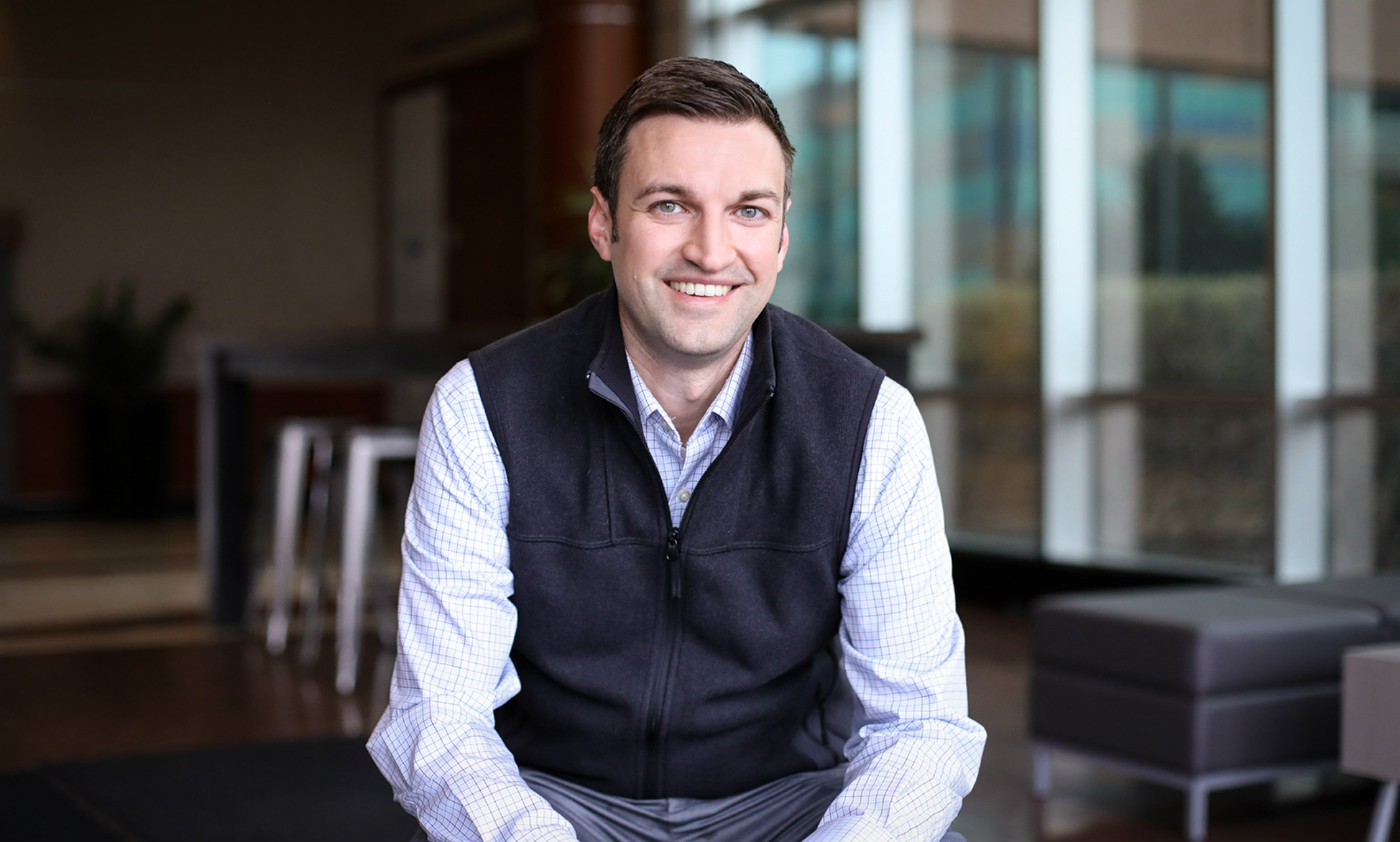
SCE graduate Mark Chrisman shares changes in his field since COVID-19
Our ongoing story starts with people from around the world, converging here at UMKC. Get to know our people and you’ll know what UMKC is all about.
As healthcare practice director and a vice president for Henderson Engineers, Mark Chrisman (B.S.M.E. ’02, M.S. ’07, Ph.D. ’19) works in an already challenging field heavily regulated by codes and standards — he works with teams to design building systems (mechanical, electrical, plumbing, fire protection and technology) for healthcare facilities. Now, with the coronavirus pandemic, his field has undergone a transition to converting existing buildings into healthcare facilities.
How has your work shifted since the onset of COVID-19?
COVID-19 has presented many challenges and opportunities for us. Primarily, we are trying to be as flexible as possible to assist our healthcare clients as their needs change, which is drastically different depending on what part of the country they are located. One day, we are planning for a COVID-19 observation unit and renovating standard patient rooms for negative isolation rooms designed for patients with COVID-19 to prevent spread, and the next day we are continuing work on projects that started design before the COVID-19 pandemic. Luckily, we have many talented engineers, so we’re able to pivot quickly.
What kind of considerations are taken when converting large spaces or centers into places for patients (coronavirus or otherwise)?
The first question on the building system side is what type of patient will be treated in the conversion space — COVID-19, non-COVID-19, and capable of self-preservation or not. Once we understand the patient type and modalities, we can assess the existing building systems and design whatever renovations or upgrades are needed to support the patient functions. Typically, in large event spaces, such as a convention center, there will be a need to upgrade the mechanical system to accommodate additional outside air or exhaust requirements for the applicable patient functions. While most event spaces have emergency power in some shape or form, upgrades likely will be required to support the additional mechanical system work as well as power for any additional life support or technology systems needed.
Why did you choose this career/field?
I got into engineering primarily because I loved building with Legos as a kid and I enjoyed the process of taking things apart and putting them back together. My father and both of my grandfathers were engineers. While they were all more focused on the industrial side of engineering, I went the mechanical route as it allowed several different paths forward, including consulting, manufacturing, and processing. After two internships, I ended up interviewing with a consulting firm (Henderson) and two different types of manufacturers. I chose Henderson because during the interview process the people were really great and I felt like it fit me culturally. Nearly 16 years later, I can say that it was the best decision I’ve ever made, both professionally and personally. It’s an amazing, inspiring place to work with an excellent culture filled with fun, talented colleagues.
You’re a three-time UMKC graduate. What did you most appreciate about UMKC?
I liked being close to home to help my parents and siblings during my undergraduate degree and my wife and children during my graduate degrees. I also really like that it is a beautiful and ever-growing campus tucked inside a great city with some tremendous resources nearby, including the Miller Nichols and Linda Hall libraries. The schedule was flexible enough for me to work through all three degrees without any major issues. Lastly, everyone I encountered during my time at UMKC was always willing and able to assist in whatever way they could to further my education. They also provided support in several ways to help me make industry connections.
"Everyone I encountered during my time at UMKC was always willing and able to assist in whatever way they could to further my education." —Mark Chrisman
Who has been a great influence in your life?
My parents, first and foremost, but also my grandparents, and many friends of my parents. At UMKC, there were several professors who helped guide my path, including Dr. Bryan Becker (now retired) who has been a mentor for many years and served as my advisor on both of my graduate degrees. I have also had several great mentors at Henderson Engineers, including Darrell Stein and Shane Lutz. It really does take a village, and I have found that having a large network has been beneficial in picking up skills and knowledge.
How are you now using your influence to impact others?
I have always had a passion for learning and then passing that knowledge along, which occurs through mentoring at Henderson Engineers and Henderson Building Solutions. My current role has allowed me to expand my reach by sharing technical knowledge and thought leadership so we can help others working in the engineering and healthcare industries.
Apr 29, 2020
UMKC grads use experience to combat the coronavirus
UMKC Roos are lending their expertise across the country to help ease the pressure of the COVID-19 pandemic. These are just a few of the graduates making a difference.
Janelle Sabo (PharmD ’00), a clinical development executive at Eli Lilly and Company, led the development and implementation of a registration, data collection and results reporting system to enable Lilly’s COVID-19 testing efforts, which includes a drive-through testing facility and diagnostic lab. Lilly has collected over 50,000 patient samples from across Indiana focusing on front line healthcare workers, first responders, essential workers and vulnerable patients. Additionally, Sabo has led cross functional teams and actively participated in multiple industry forums addressing the challenges in global clinical research during the COVID-19 pandemic. To learn more about Lilly’s efforts to fight COVID-19, visit Lilly.com.
Alexander Garza (B.S. ’90), oversees hospitals in four states as chief medical officer of SSM Health in St. Louis. He is also incident commander of the St. Louis Metropolitan Pandemic Task Force and appeared on MSNBC in March to discuss the uptick in COVID-19 cases in the Midwest.
Gina Mullen (M.D. ’11), emergency room doctor, physician and medical director at VA North Texas Healthcare System and Baylor Medical Center at Uptown appeared on Anderson Cooper 360 with her husband, Jim Mullen. Gina Mullen was treating coronavirus patients in Dallas, Texas, when Jim — a lawyer with a background in nursing — decided to go help COVID-19 patients in New York.
Mary Anne Jackson (M.D. ’78), dean of the UMKC School of Medicine and infectious disease expert, is one of six physicians statewide advising Missouri Gov. Mike Parson. Her expertise has been cited in numerous programs and publications including Doctor Radio on SIriusXM, KCUR and The Kansas City Star. She also helped gather personal protective equipment across the UMKC Health Sciences District to be donated to area hospitals.
Apr 29, 2020
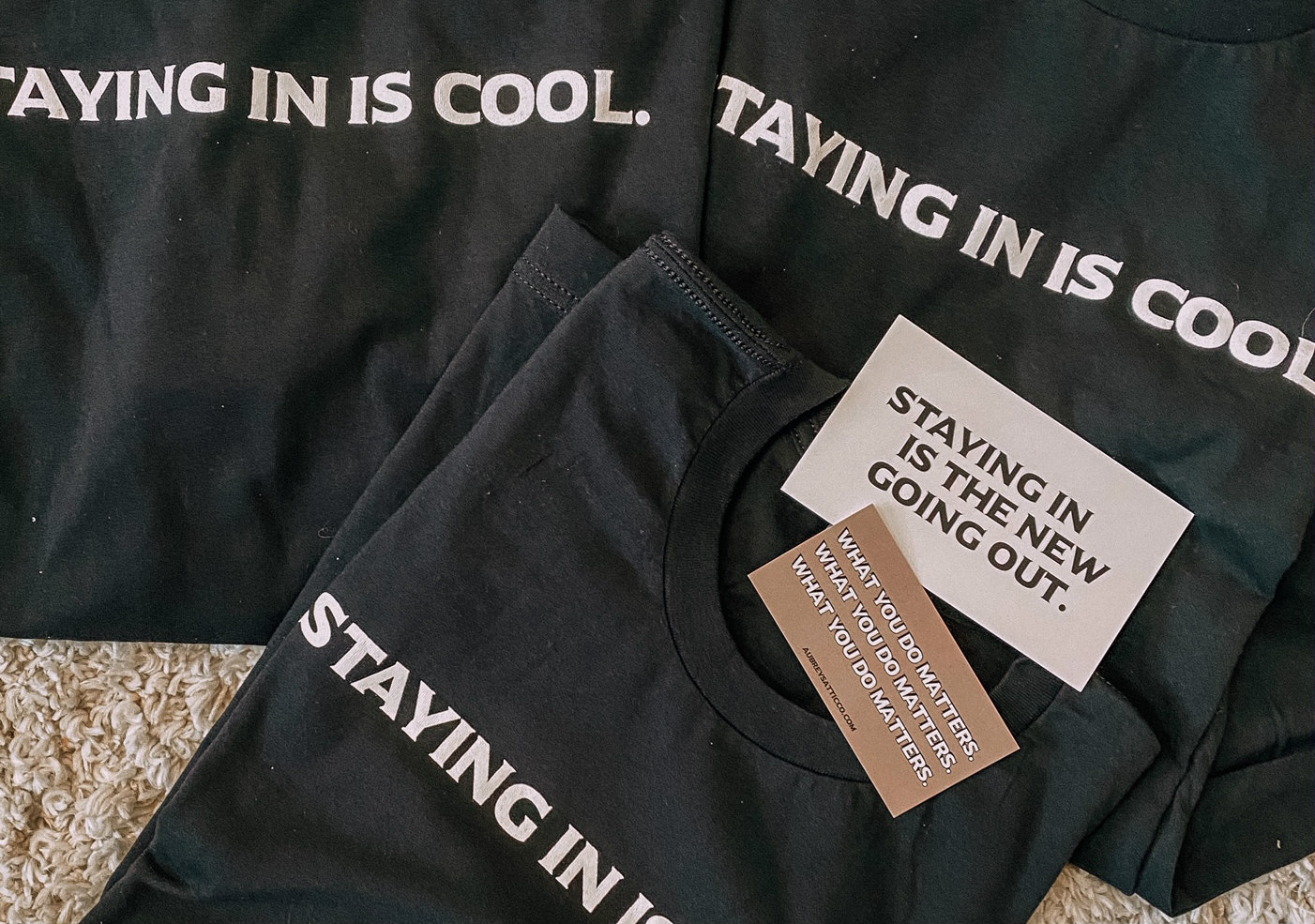
Aubrey Larkin has turned her entrepreneurial efforts to help the UMKC student assistance fund through design and sale of a new T-shirt
Like many UMKC students, Aubrey Larkin is living at home, going to Zoom classes online and hoping and waiting for the COVID-19 crisis to subside. But Larkin, who says she comes from a long line of entrepreneurs, mobilized her online shop, Aubrey’s Attic Company, to create a product that will help students in need.
“I’ve been in business almost my whole life,” Larkin says. “Since I was young, I’ve been selling things - lemonade, cards, art.”
Larkin developed a love for fashion in middle school, and in her senior year of high school, she started a blog featuring products, trends and looks she liked. Her business developed from there.
“My senior year in high school, I decided to turn the blog into a business. I researched wholesalers and turned the site into a store.”
When the coronavirus began to spread, she wanted to be a part of the community that was helping.
“My mom and so many of our friends were making masks,” she said. “I wanted to contribute. I started looking for a way I could help UMKC students. I knew a lot of people who were struggling financially.”
"I wanted to contribute. I started looking for a way I could help UMKC students."- Aubrey Larkin
Her mother discovered the UMKC Student Emergency Relief Fund, and after doing some research, Larkin knew that was the best place to direct her support.
“I have a great platform on Instagram, and I knew I could create awareness for both sides – people who needed the help and people who could donate.”
Larkin designed a black T-shirt with the phrase, “Staying in is cool.” in bold white text. The shirts retail for $34 and all the profit - $14 per shirt – will go directly to the student relief fund.
“I didn’t want to make money off this myself,” she says. “I just want to reach as many people who can buy them – and help students – as I can.”
“I am continually amazed by the creativeness and thoughtfulness of our students, and Aubrey represents that ingenuity,” said Lisa Baronio, president of the UMKC Foundation. “Together, UMKC will survive COVID-19. We are grateful for all of our students. I am looking forward to proudly wearing my own awareness T-shirt that will benefit our students.”
Apr 28, 2020
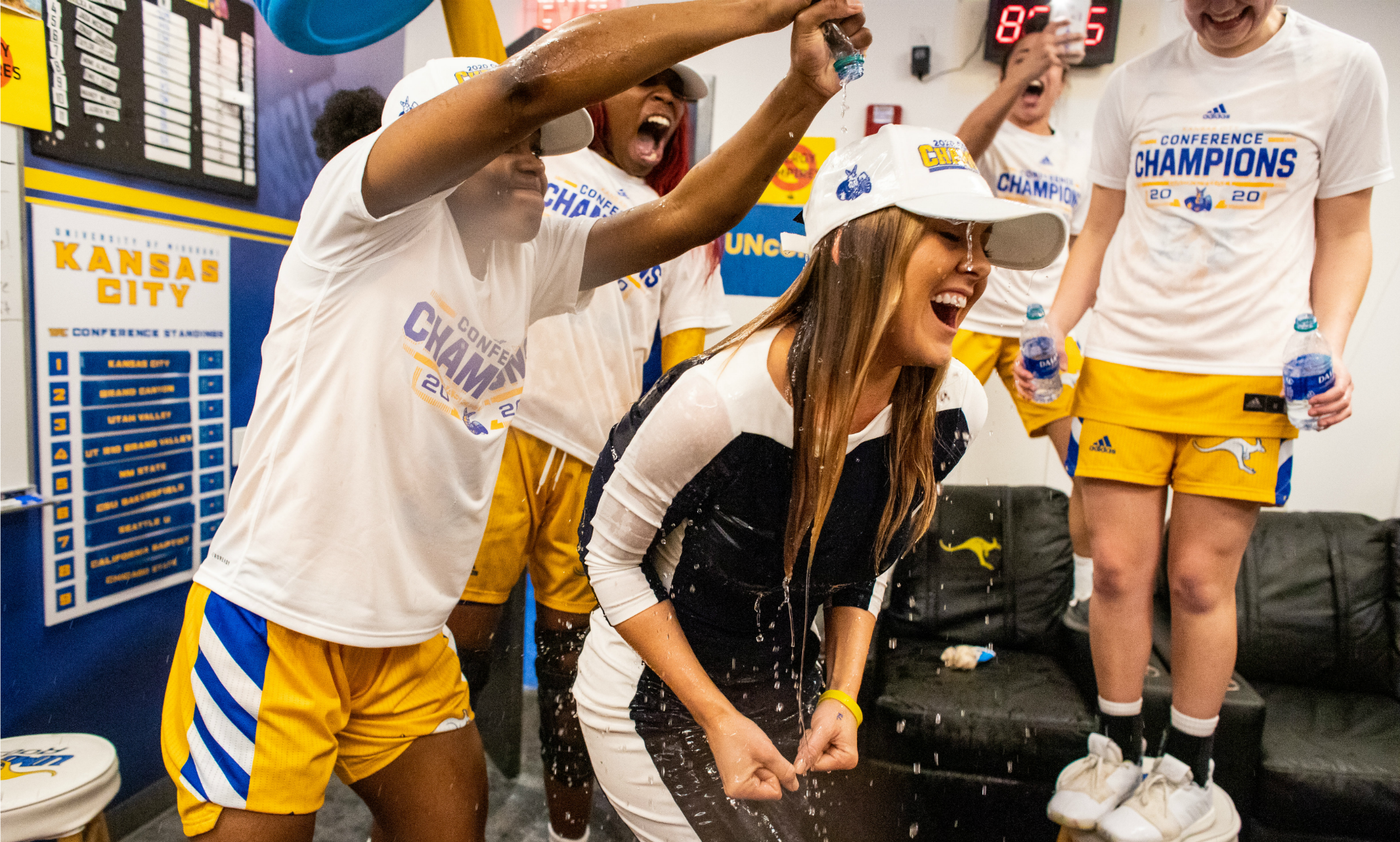
Coach Jacie Hoyt, Ericka Mattingly recap the team’s journey to winning the WAC
Although it’s been nearly seven weeks since the KC Roos women’s basketball team made UMKC history by winning the WAC championship, the celebration and excitement carry on as if it had just happened yesterday.
We caught up with head coach Jacie Hoyt and leading point guard, senior Ericka Mattingly to reflect upon the team’s incredible journey leading up to this major achievement and their hopes for the future.
Hoyt said that at the start of the season, the team knew it wanted to win the conference championship ‑ and the players believed they were capable of doing so, but they also knew they had to take it one day, one game at a time. Last season, the team lost in the semi-finals to New Mexico State, who went on to win the WAC and a spot in the NCAA tournament. With a sour taste in their mouths and unfinished business to handle, the KC Roos used that as motivation all season long, ending the year with a 21-10 record.
“Our team has a motto that never changes – be uncommon. We talk daily about being uncommon in everything we do from basketball to school to being representatives in our community and everything else in our lives. We feel that if we make uncommon choices and decisions each day, they’ll add up to something that separates us from others,” Hoyt said.
“We were always pushing each other to be the best we could be." - Mattingly
It took being uncommon to secure the program's first-ever regular-season conference championship and NCAA Women’s Division I Basketball Tournament berth. Though the NCAA tournament was cancelled due to COVID-19, the team still has plenty to celebrate as the recognitions keep coming in:
WAC Coach of the Year – Jacie Hoyt
WAC Player of the Year – Ericka Mattingly
Spire Sportswoman of the Year – Ericka Mattingly
Back-to-back winning seasons for the first time since 1991 - 1992
“I was ecstatic to learn about being named Sportswoman of the Year by the Kansas City Sports Commission,” Mattingly said. “When Coach Jacie called me to let me know I had been chosen and to tell me who I was going to be in company with, it was an amazing feeling! There are going to be KC Super Bowl champs there. So, I am super excited and grateful receive that award.”
Though much of the season’s success is attributed to Mattingly’s contributions, becoming just the second Roo player to surpass 1,000 points in two years, she and Hoyt say it’s all about teamwork.
“I’ve learned many lessons in my coaching career, one being that it’s incredibly hard to win, and you have to have the right people to get it done,” Hoyt said. “Receiving the Coach of the Year recognition is a true reflection of my staff and my team.”
That same attitude is reflected throughout the entire squad. Hoyt said winning a championship is all about surrounding yourself with the right people. She said the women’s coaching staff works tirelessly at their craft and has the integrity and motives to invest in each player the right way; and they sought to recruit players who are high-achieving, competitive and who value hard work. These things are the ingredients that helped cook up a history-making season in addition to collaborative team effort.
"I believe that we have the respect of the Summit League after what we did this year, and we want to go into the new league and show them what we are all about.” - Hoyt
“I love those girls and would do anything and everything for them,” said Mattingly, adding that she also has a great relationship with Hoyt, who they affectionately call Coach Jacie. “I know that, from my two years, I have developed friendships that will last for years to come.
“The biggest lesson that I will take away from Coach is to always push yourself to be the best you can be. Speak up and be loud and proud in yourself and your goals. Be passionate and always do it with God in your corner!”
Having missed the opportunity to keep going and compete in the NCAA tournament, Hoyt said the disappointment of not being to play due to the coronavirus will be motivation for next year. The third-year head coach, who brought instant success to the KC Roos when she took over in 2017, said she’s not a big goal person, but she believes in doing your absolute best every day and seeing what happens over time.
“Nobody knows when this COVID stuff will clear up, and we certainly don’t know what it looks like when it does,” Hoyt said. “I just want to say that our team came out victors, not victims of the circumstances. I believe that we have the respect of the Summit League after what we did this year, and we want to go into the new league and show them what we are all about.”
As Mattingly prepares for virtual commencement and closes out her collegiate journey with a degree in criminal justice and criminology, she is excited to pursue a career in coaching.
“I have always been passionate about helping others, and especially helping young women be able to have successful careers, get better on the court and get better off the court as well,” Mattingly said. “Having an influence in changing their lives like my coaches have done for me.”
As for her teammates and the newcomers joining the team next year, she advises them to always stay hungry.
“Push yourself to be the best you can and make sure that you are embracing the present,” Mattingly said. “I know things get hard, and being a student-athlete is not easy, but appreciate it while you can. There is so much to be grateful for!”
Recap the season
Apr 28, 2020
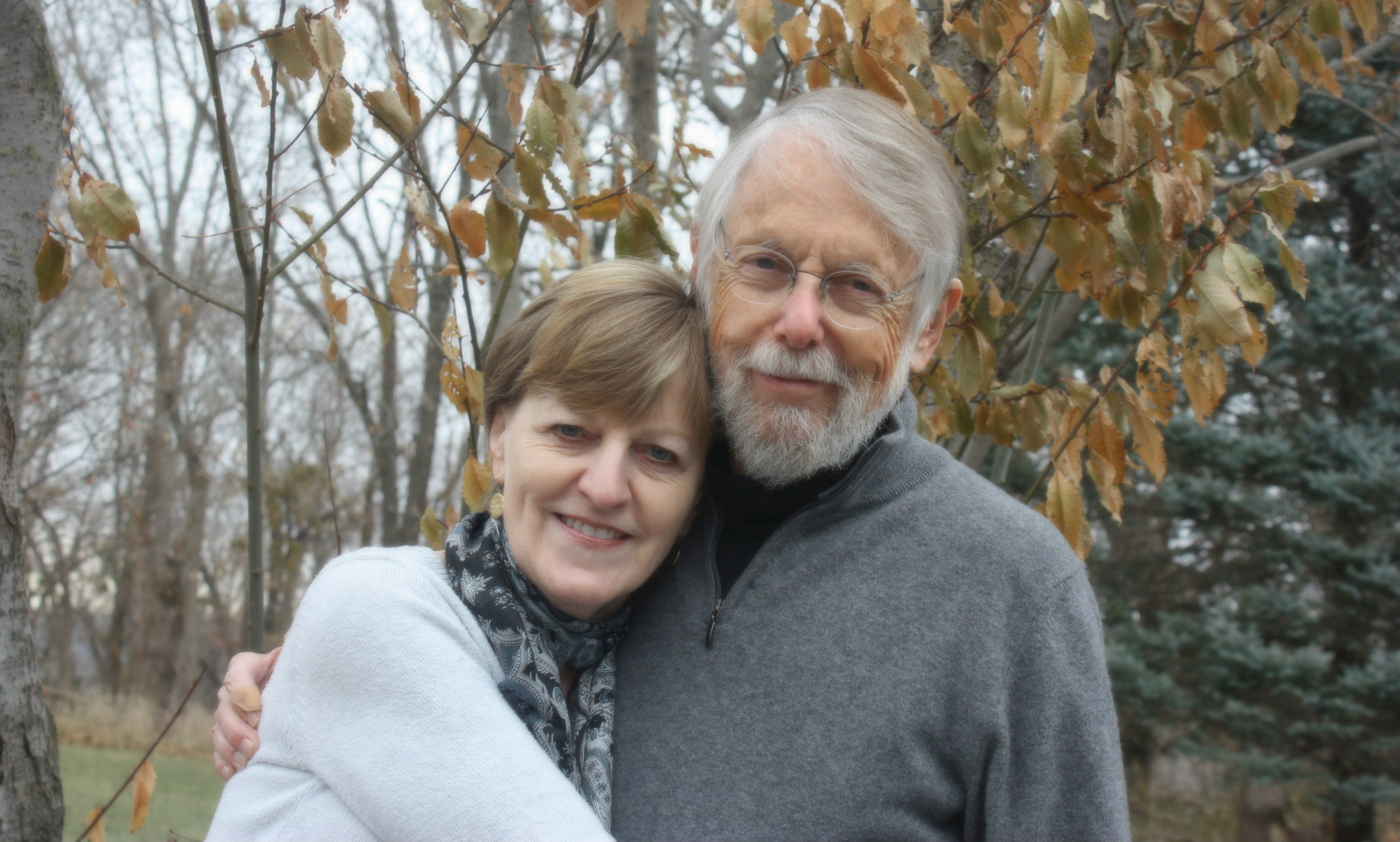
The late Gordon Spencer was a disc jockey and enthusiastic collector who interviewed jazz greats and other musicians and composers.
Gordon Spencer interviewed many of the remarkable jazz artists of the 20th century including Billie Holiday, Duke Ellington and Louis Armstrong. He began his career in radio in 1951 at WSRN, the student radio station at Swarthmore College in Pennsylvania when he was a junior. His widow, Hannelore Rogers, has donated his extensive collection of albums, CDs and his reel-to-reel interview tapes to the Marr Sound Archives so enthusiasts and scholars can benefit from his remarkable career.
“Gordon loved jazz beyond anything else,” Rogers says. “He had two passions – radio and stage. As a little boy, his aunt gave him a pretend radio play set with scripts, a wooden microphone and sound effects equipment.”
This childhood gift led to a lifelong career. Spencer worked at radio stations along the East Coast starting when he was in college. Rogers met Spencer when they were both living in New York in the early 1980s.
“I listened to WNCN in the morning. There was this DJ, Gordon Spencer, and he was very funny and could pronounce all of the composers’ names. I wrote him a letter and said, ‘If you’re not married or the father of 10 children, call me.’”
Spencer did call, and took her to lunch at an Indian restaurant for their blind date. It lasted four-and-a-half hours.
He told her later, “classical music DJs don’t get a lot of fan mail.”
“When he was at WNCN in New York, he started buying records to play on the air,” she remembers. “Once he had his own program, he would go to the public library to check out albums to play on his show. His passion was incredible. There was no limit to what he was willing to do.”
“Gordon loved jazz beyond anything else.” - Hannelore Rogers
Spencer’s collection includes 2,550 albums, 1,215 CDs and 165 reel-to-reel and cassette tapes of his interviews with musicians. While Rogers understood the significance of his work, it took her a while to find a home for the collection.
“After he died, I had to deal with his belongings. Clothes were easy to donate. But his office and his albums and tapes were in the basement. He spent a lot of time there and it was too painful for a long time for me to walk in.”
Eventually, she became concerned that if something happened to her, the collection might disappear.
“I was worried it would end up in a landfill or garage sale,” Rogers says. “I started asking around and someone referred me to Chuck Haddix at UMKC. When I spoke to him the first thing he told me was, ‘Whatever you do, don’t break up the collection.’”
Haddix, curator of the Marr Sound Archives, notes that the entire collection is impressive, but believes the interviews are the most exciting.
“Spencer interviewed an unbelievable amount of jazz greats as well as contemporary classical composers,” Haddix said. “A lot of the classical composers were very Avant-garde. Some were from Europe. Usually someone will have a very narrow focus, but Spencer’s interest was broad. He was also a radio producer, so the quality of his interviews is outstanding. They’re really great quality.”
Beyond technical quality, Spencer was a great interviewer.
“He really let people tell their stories,” Haddix says.
Haddix, who is also a radio producer and accomplished interviewer, thinks his understanding of the material and Spencer’s process may have helped Rogers.
“Donors have an emotional connection,” Haddix said. “Just as with Hannelore, it’s usually their partner’s life’s work and they want to do the right thing and memorialize their loved one. Now the collection will live forever.”
Haddix appreciates Spencer’s talent, taste and painstaking care of his collection. He says that it’s not unusual to develop a personal connection to the collector.
“Every collection tells a story. They’re all different. He was meticulous. Everything was very carefully selected. This collection represents his life’s work. As the recipient of the collection, you get to know them after the fact. Often I think, ‘I’d love to have met him.’”
Haddix and his team have begun preserving the collection. They are currently digitizing the open reels and creating a collection page with a search option. Once everything is catalogued and digitized, the collection will be searchable on the internet.
“Every collection tells a story. They’re all different. I’d love to have met him.” - Chuck Haddix
Haddix’s connection to the collection has made the donation process easier for Rogers.
“I have found UMKC to be so sensitive about what this meant to me,” Rogers says. “Gordon’s collection was something I had to let go. But when Chuck came and loaded the truck with all the materials, I knew UMKC would take excellent care of it.”
Apr 28, 2020
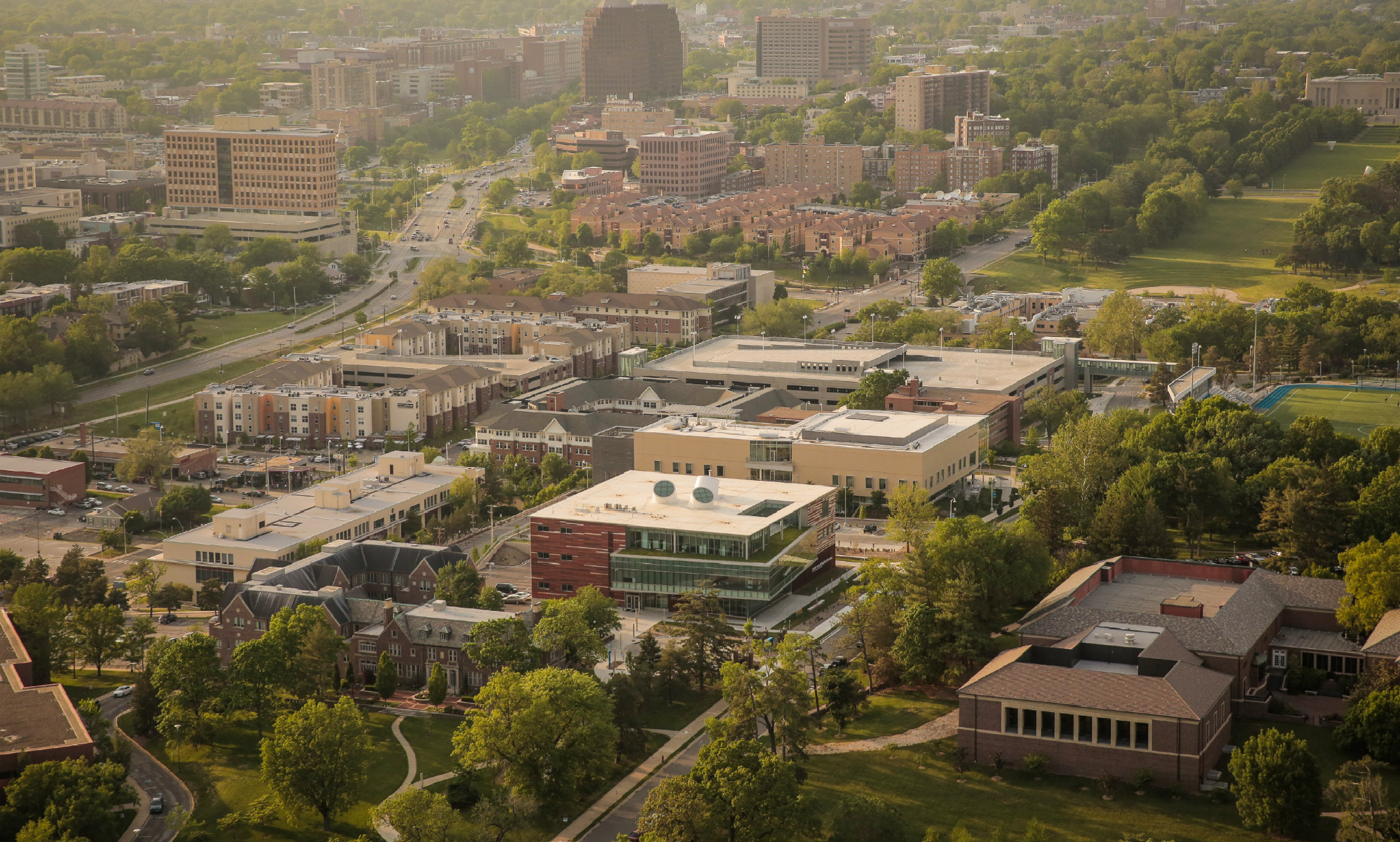
Welcome Provost Lundgren and School of Medicine Dean Jackson
University of Missouri-Kansas City Chancellor Mauli Agrawal announced appointments to two key leadership positions at the university.
Jenny Lundgren, Ph.D., will serve as provost and executive vice chancellor, the chief academic officer of the university. Mary Anne Jackson, M.D., will serve as dean of the UMKC School of Medicine, known around the world for its innovative six-year B.A./M.D. program. Both have been serving in those roles on an interim basis; “interim” will be dropped from their titles May 1.
Typically, even when they have strong internal candidates, major research universities conduct a national search for senior leadership positions. The unprecedented impact of COVID-19 demanded a change in approach.
“In this challenging time, I must balance that tradition against the immediate need for stable, innovative leadership,” Agrawal said in a letter to campus April 28. “Drs. Lundgren and Jackson have led with intellect and heart during the pandemic, and I have full confidence that they will continue to capably help us navigate through the uncharted territory ahead.”
During her first three months in the provost role, Lundgren has demonstrated a deep capacity for working through complex issues with partners across UMKC and the University of Missouri System.
She also will continue to serve as dean of the School of Graduate Studies until further notice. Prior to these roles, Lundgren was a well-published researcher who served as a department chair of Psychology and as an associate dean in the College of Arts and Sciences. She joined UMKC in 2006.
“I appreciate greatly the trust and confidence Chancellor Agrawal has placed in me, and I will do my best to live up to it,” Lundgren said. “I am equally grateful for the guidance, support and wisdom my faculty colleagues have shared with me over the past several months, and hope to continue to be able to rely on such a valuable and rewarding collaboration.”
Jackson has been leading the School of Medicine for almost two years. She is an alumna of the UMKC School of Medicine and a pediatric infectious diseases expert, affiliated with Children’s Mercy and internationally known for her research. During the current COVID-19 crisis, she is one of the six physicians statewide who is advising Missouri Governor Mike Parson. She is a frequently sourced expert for national publications. She joined UMKC in 1984.
“I am honored to serve as the dean for this medical school, which has been ahead of the curve in educating and mentoring physicians and health professionals for nearly half a century,” Jackson said. “I look forward to helping grow its research enterprise to improve the health of our community and beyond.”
Agrawal said he is postponing indefinitely plans to create a senior leadership position to oversee the deans of Medicine, Pharmacy, Nursing and Health Sciences, and Dentistry on the Health Sciences Campus at Hospital Hill. He will review that idea once the university has moved past the challenges of the pandemic.
“I extend my heartfelt thanks to these two leaders for their contributions to UMKC as we continue to pursue our mission of excellence in learning, service and discovery,” Agrawal said.
Apr 28, 2020
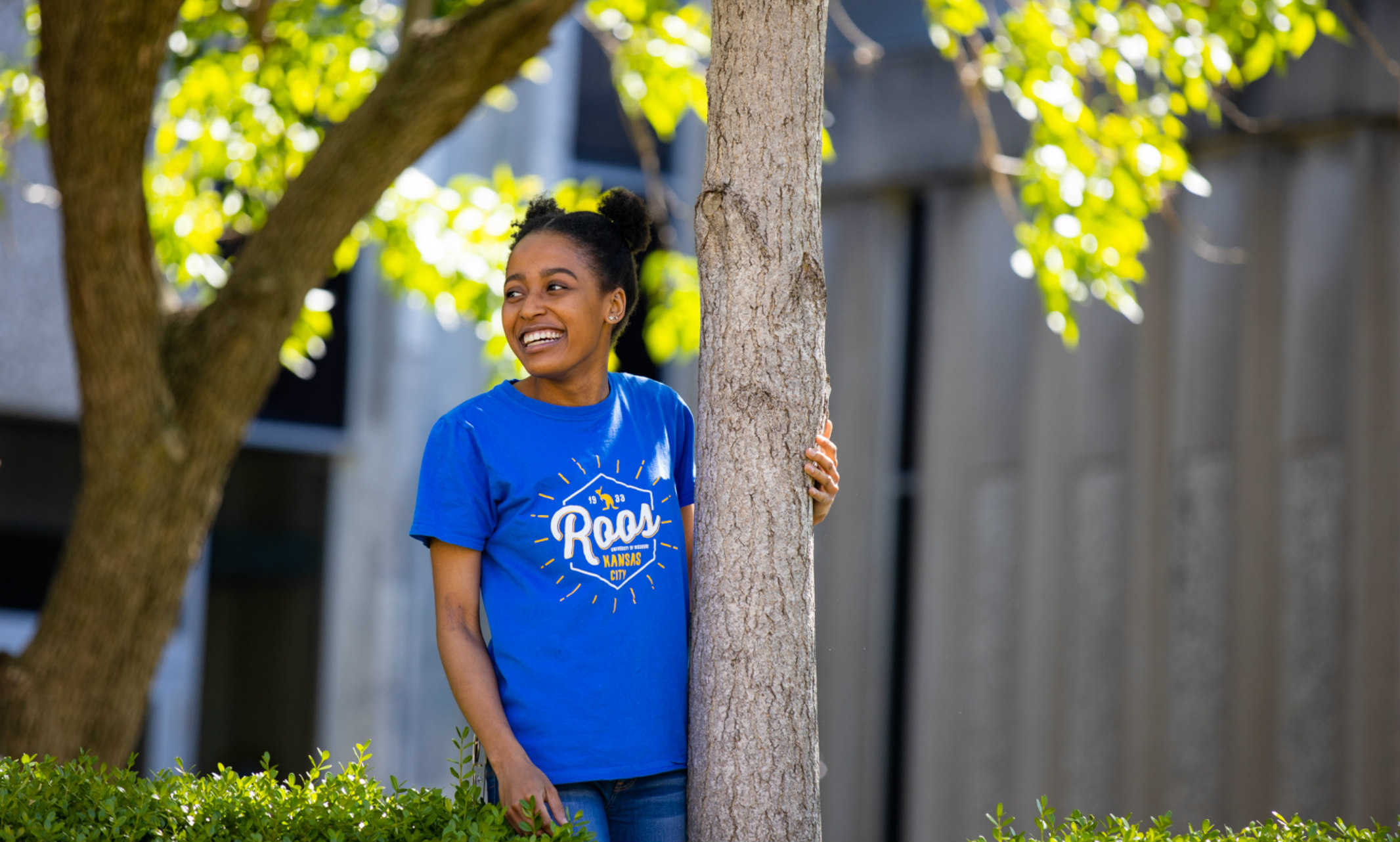
UMKC courses will start on schedule whether they’re in person, online or a mix
UMKC faculty and staff are preparing for any and all eventualities to start fall semester classes on schedule, under any conditions ranging from full remote to wide-open campus, and anything in between.
Make no mistake: Your university is #RooReady ready to launch an exciting and meaningful fall semester in August, no matter what conditions the world may throw at us.
“We anticipate being back on campus for face-to-face courses and the full UMKC campus experience in the fall,” said Jenny Lundgren, provost and executive vice chancellor. “We are mindful, however, that public health officials are recommending that we be ready for multiple scenarios. Because the health and safety of our campus community is our top priority, these may range from a stay-at-home order requiring all-online instruction, to a return to a fully wide-open campus or something in-between.”
The university will follow the recommendations of health officials and obey state and local laws.
“We may need to move in and out of these strategies through the academic year based on regional disease patterns,” Lundgren said.
Given these varied possibilities, the university’s approach has been to increase online offerings to maximize flexibility in course schedules. The faculty have increased the number of courses that will be taught with a mixture of face-to-face and online elements.
“We anticipate being back on campus for face-to-face courses and the full UMKC campus experience in the fall.”
“We love interacting with students in person and miss the physical presence of our campus community, but everyone at UMKC will follow the guidance of public health and government officials and adapt as needed throughout the semester,” Lundgren said. “Faculty are working diligently this spring and summer to design and re-design their courses with best practices for both face-to-face and online delivery.”
Lundgren said university officials know that students are facing special challenges because of the pandemic.
“We recognize that many students struggle to have the resources they need even in the best of circumstances,” she said. “Thanks to the generosity of many donors, we have set up an emergency fund to help students meet basic needs that affect their ability to engage and learn. We also have an online A-Z resource guide to assist them now and in future semesters.”
How we're preparing campus for fall
Learn more about how COVID-19 is affecting fall semester class scheduling.
Read about campus living and dining changes this fall.
Learn about the university's new cleaning practices for campus.
See the new personal protective equipment vending machines that will be on campus.
Check out the shields and physical distancing measures for classrooms and offices.
Apr 28, 2020
UMKC's Aubrey Larkin is helping her fellow students during the COVID-19 pandemic
KSHB reports how UMKC Student Aubrey Larkin is donating proceeds from the sale of T-shirts to the UMKC Emergency Student Relief Fund to help those struggling during the COVID-19 pandemic.
Apr 28, 2020
UMKC teachers take part in program to help fund private music lessons
KCUR spoke with Eman Chalshotori, one of 15 teachers in UMKC Musical Bridges, a program that helps fund private lessons for some 60 music students in the area school districts.
Apr 24, 2020
UMKC working with local governments on a Draft Model Data Handling Policy
Kansas City, in collaboration with the University of Missouri and other local governments, has created a model to tackle the policies and procedures needed to manage sensitive data in communities as tech use grows. Read the story in Government Technology
Apr 23, 2020
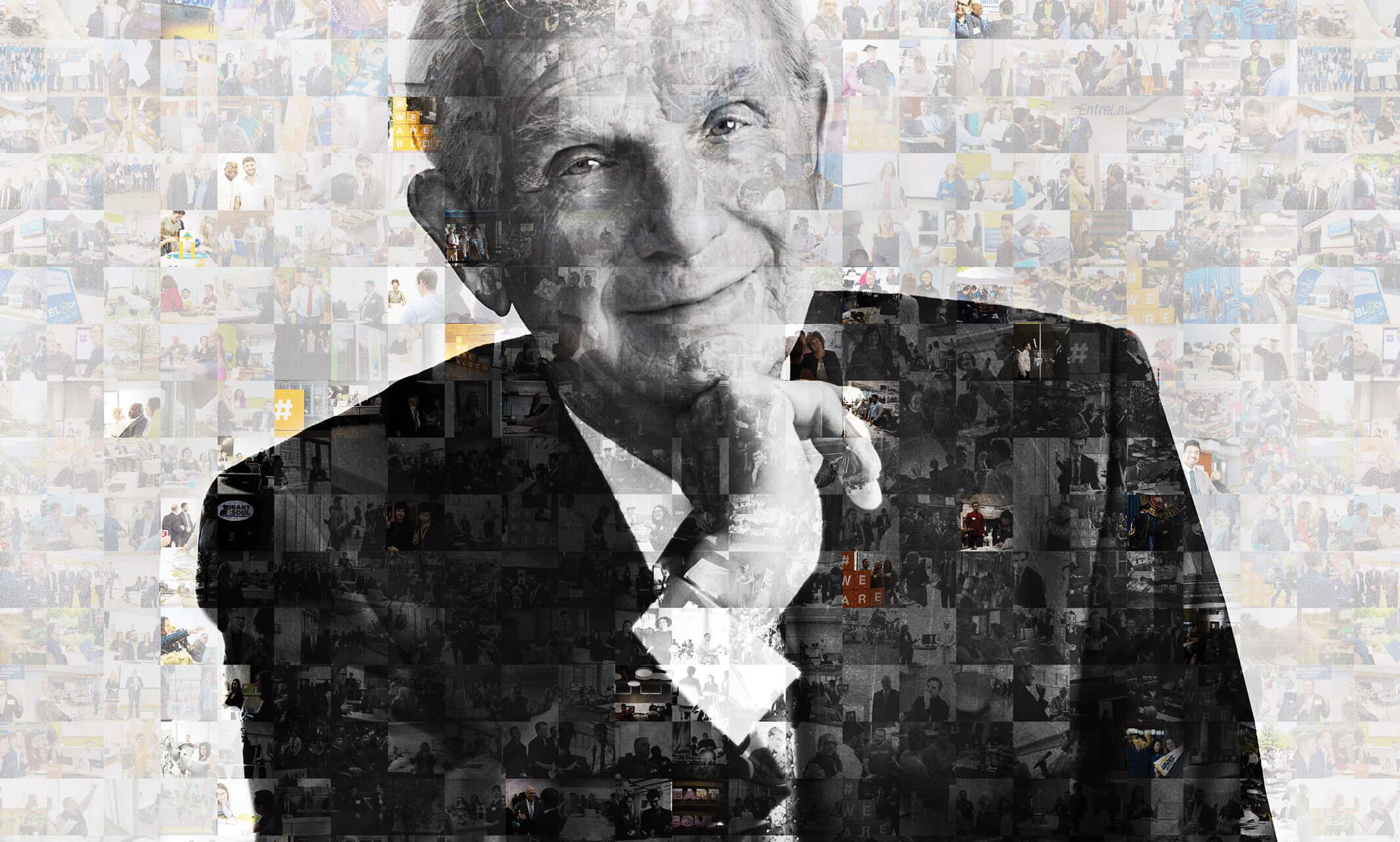
We remember Henry W. Bloch, whose all-in approach, gratitude for community and love of people set the foundation and future for the Bloch School of...
Henry W. Bloch knew how to leave an impression.
Brian Klaas, Ph.D., Bloch School dean, remembers vividly how gracious and kind Mr. Bloch was, even when he was emphatically making a point.
“Henry and I were having a wonderful conversation about H&R Block, Kansas City and the Bloch School,” Klaas recalled. “Mr. Bloch paused, leaned in and said, ‘We need to help the Bloch School achieve excellence, and we need to do it quickly. We need to do it for Kansas City because this city needs a great business school. Are you going to be a part of this?’”
The quest for excellence long guided Henry. He was an investor and he expected a return of excellence. The Bloch School was his investment, forged as a freshman at UMKC, then called the University of Kansas City.
Through good times and bad, achievements and struggles, Henry was all-in with Kansas City’s business school. Up to the end of his life, Henry was working on making the Bloch School excellent.
That was his mission.
That is his legacy.
“When I look around Kansas City and look at all the places where Henry has made his mark, I think one of the most incredible places is the Bloch School,” said Jeff Jones, president and CEO of H&R Block. “When I think about legacy and future, the idea that his name will continue to spawn the next generation of entrepreneurs that will go on to have success in Kansas City and beyond is one of the most incredible representations of what legacy can be about.”
How this legacy began and how this legacy lives on in others is a testament to his values that will endure long into the future.
A kid from down the block
When Henry died on April 23, 2019, at the age of 96, he left behind a well-documented life. He was many things: entrepreneur, executive, philanthropist, husband, father, avid fan of the Royals and Chiefs.
He also was a study of contrasts. He was someone who repeatedly said he wasn’t very intelligent but demonstrated he was extraordinarily intelligent, shrewd and insightful. He was a humble young man who went on to become a war hero. He was someone who claimed his success was simply luck but also worked very hard, developed sound business strategies and executed them in a masterful way.
And he was someone educated at the top universities in the country who purposely invested his time and resources over the course of decades to the business school of the local university he only attended for one year.
“He was a pretty interesting individual. All these things were opposites but he bridged them together,” said UMKC Chancellor C. Mauli Agrawal, Ph.D. “That was perhaps the source of what distinguished and differentiated him as a person and made him stand out.”
Henry grew up at 58th and Wornall and went to Southwest High School. When he came to what was then the University of Kansas City, both Bloch and the university were young. Henry graduated early from high school and was unsure of his direction and his abilities.
“This was his first real effort at becoming a grownup,” said John Herron, Ph.D., interim dean of the UMKC College of Arts and Sciences.
At UMKC, Henry discovered a passion for mathematics and the first signs of it being a possible career. While his academic skills grew at the University of Michigan and his short time at Harvard Business School, it started here.
UMKC, starting a few years before Henry’s arrival in 1933, was part of Kansas City transitioning from its cowtown image into what would become a booming metropolitan area. While the university offered business classes, it would be quite some time before a bona fide business school would spring up.
Herron recalled asking Henry about moving away from Kansas City or giving to other places outside the region.
“Henry was incredulous at the question. ‘Why would I have done that? Kansas City gave me everything,’” Herron said.
Herron thinks that comes from Henry’s perception that he and H&R Block really couldn’t have made it anywhere else. Unique conditions allowed the business to grow: postWorld War II economic booms, the Internal Revenue Service halting its free tax preparation service and a growing metropolitan area in Kansas City.
But Henry was cognizant of the cultural sensitivities of Kansas City. After all, Henry and Richard Bloch were two Jewish brothers who walked down Troost Avenue and Main Street, talking with African-American businesses about helping with their bookkeeping needs.
Even though Henry spent one year at what was then the University of Kansas City, he maintained a decades-long relationship with UMKC and what became the Henry W. Bloch School of Management. Photo courtesy of H&R Block.
Henry’s service during World War II amplified that contrast of modesty and doubt and achieving success through hard work. Herron and Mary Ann Wynkoop, a retired UMKC professor and former director of the American Studies Program, co-wrote “Navigating a Life: Henry in World War II,” which chronicles Henry’s days in the U.S. Army Air Corps.
For all the adventures and accomplishments, this stood out to the two authors: Henry was someone who noted the taxing nature of navigator training and wondered if he could complete it, but ended up completing 32 missions without a single injury to himself or his crew. He was a war hero but he would never admit it.
Henry, in conversations with Herron for the book, would say his successes, like so many things in his life, were the product of luck. But other values were taking root, like hard work, discipline and, because of the war, losing his fear of failure. And perhaps most important, being faithful to where you came from.
Herron said UKC was a critical time in Henry’s life, one that he looked back on with fondness.
“He was trying to figure out what are the proper boundaries of adulthood, and it all came together for him here,” Herron said. “He felt a great connection to the place.”
And that connection would be the foundation to build upon the small business school at UMKC.
Going all in
While Henry and Richard were building H&R Block, the university was struggling to get its business school going.
According to Chris Wolff, who researches UMKC history, the school of business started on a shoestring budget and a desire for business classes.
The school didn’t have its own facility until the university bought the Shields Mansion. But the school quickly grew and was soon competing with its neighbor, Rockhurst University, for top business students.
In 1983, Dean Eleanor Schwartz, who later became UMKC chancellor, convened an advisory committee of local CEOs to help the school meet the needs of area employers and achieve accreditation from the Association to Advance Collegiate Schools of Business, the premer accreditation body for business schools.
The mansion was in dire need of renovations. With project plans totaling $7.5 million, the University of Missouri System allocated $6 million toward the renovation. The rest was to be left to private donations.
By this point, the Bloch family had already funded the Leon Bloch Law Library for the School of Law in 1978. Seeing a way to help, Henry gave $1 million toward the school.
It led to an intriguing offer.
“(Former UMKC Chancellor) George Russell and (former UMKC Trustee) Ed Smith cooked up the idea of naming the business school after me,” Henry said in spring 2002. “The first I knew about it was at a board meeting. I was very flattered.”
“Henry saw his involvement with UMKC as a way to combine his love for Kansas City and his passion for business,” said David Miles, president of the Marion and Henry Bloch Family Foundation.
"With his namesake on the building, Henry saw an opportunity. He recognized a need within the region for a high quality and respected school of management that would create the next generation of entrepreneurs and business leaders, which he saw as an exciting and worthwhile goal,” Miles said.
Those who knew Henry know that once he was committed, he was committed for life and in all things.
“It struck me that with Henry, there wasn’t a half in. You were all-in or you weren’t,” Klaas said. “Once he made that commitment, he was not going to waver. He was going to be focused on the mission.”
Thanks to Henry’s investment, the Bloch Executive Hall of Entrepreneurship and Innovation opened in 2013.
“A tapestry that works”
When Henry was a student, the term “entrepreneurship education” did not exist. There was no formal educational component to learn the ins and outs of entrepreneurship. The only instructors were the hard knocks of life and business.
When the opportunity came to shape the future of the Bloch School, Henry wanted to make sure teaching the principles of entrepreneurship was top of mind.
Anne St. Peter, who founded Global Prairie, a global marketing consultancy, said that Henry was fond of telling entrepreneurs not to fear making mistakes, as he and his brother made many of them.
“The goal, Henry said, was to learn from these mistakes and to develop resilience along the way,” she said. “Henry told me his support of the Bloch School was to help entrepreneurs learn from the mistakes he and other business leaders made and, hopefully, allow Bloch students to learn valuable business and life lessons quickly.”
Henry’s lessons on entrepreneurship inspired many like St. Peter. Both she and Henry were past chairs of the board of the Kansas City Chamber of Commerce. At a luncheon, Henry told St. Peter to relish the opportunity to serve the business community of Kansas City.
“At the time, I was the youngest leader to serve as Chamber chair, and Henry knew I had two small children,” St. Peter said. “Henry told me to share what I was learning at work and at the Chamber with our children, as he had done with his children while they were growing up. Henry encouraged me to bring our children along for the ride and make them feel a part of my entrepreneurial journey.”
St. Peter admired Henry and his leadership greatly. He served as inspiration for her to certify Global Prairie as a Benefit Corporation, or B Corp. For Henry, community engagement and employee happiness mattered as much as shareholder value.
Another component of entrepreneur education was having a strong physical presence in the community in which you serve. For the Bloch School, that meant state-of-the-art academic and research facilities. In 2011, the school was ready for a substantial upgrade. Just as in 1983, Henry chose to invest, putting $32 million toward a new building.
“I choose to make this significant gift because I felt now was the right time,” he said at a celebratory event on Sept. 15, 2011. “The new mission and vision of the school both respect and directly tie into the legacy of Kansas City and align with what this community wants and needs from its business school.”
Leo Morton, who was UMKC chancellor at the time, said Henry was the right person to do this because he understood that to build a reputation of excellence, you have to have the infrastructure to back it up.
“One advantage UMKC has is its location. If you’re a student who has lots of options and are world class, you can go any place you want to go,” Morton said. “To recruit and retain these students, you need to have faculty that they’re attracted to, and you have to have facilities that match all of that. It’s a consistent picture, a tapestry that works.”
A first-generation investor
Within the timeline of UMKC benefactors, Henry falls in line with the likes of Stanley Durwood, Miller Nichols and Helen Spencer, who built upon the foundation of UMKC. Wolff said Henry’s contribution helped steer UMKC toward the modern era of education.
“Mr. Bloch grew up in an age where it was possible to invent an industry from scratch. He saw that the future of business lay in innovations such as the ones that were created at H&R Block,” Wolff said. “Now that we live in the digital age where once again businesses and entire industries can be invented out of whole cloth, the Bloch School is on firm footing to train the next generation of business leaders and entrepreneurs in this new world.”
Henry was a philanthropist who gave generously. And yet, he was an investor at heart. Morton, who knew Henry for many years before he became UMKC chancellor in 2007, said Henry invested with a sense of purpose, and he wanted a return. When it came to UMKC, he was a first-generation investor.
When investors like Henry invest, “they don’t just put it in and leave you, they put in and hold you accountable,” Morton said. “The investor says, ‘I had an objective when I invested in you and that objective is important to me and I put in enough to show that I’m serious about that investment. And I’m going to hold you accountable.’”
That objective, for the Bloch School, was for it to be excellent. And that’s something Klaas said continues today through the Bloch Family Foundation.
“What the Bloch Family Foundation wants is what Henry wanted: It’s for the Bloch School to help this region thrive. They want us to support the region by pursuing excellence in everything we do and by offering outstanding experiences for students from all backgrounds and at all stages of their careers,” he said.
The values Marion and Henry Bloch set with their life and example continue on in the lives of others who come through the Bloch School and UMKC. Photo by Brandon Parigo.
“Never despise small beginnings”
Henry Wash never had any desire to go into business.
One of the first members of the Henry W. Bloch Scholars program in 2001, he didn’t know much about the scholarship or the man for whom it was named.
He went to the scholarship reception fully intending to drop out of the program.
Then he met Henry Bloch.
“I arrived 30 minutes early and my plan was to get out of it. Mr. Bloch was there when I walked in, just standing,” Wash recalled.
Henry Bloch was early as well. After pleasantries and realizing they had the same first name and middle initial, Wash shared his hesitations.
“I wanted to let Henry know that I’m wanting to get out of this,” Wash continued. “I just wanted to help people. So, I was telling this long story. He was looking at me and when I was done, he said ‘I want to help you. I want to mentor you and help you along.’”
“I was thinking to myself, nah, he wouldn’t want to do that, not for a guy like me,” Wash continued. “And he said, ‘Oh, I really do.’”
That started a long friendship and mentorship that lasted many years. The Henrys spent many a lunch talking about business and life. Henry Bloch visited the Wash family often and sat on the front row during Wash’s wedding.
“I was taught to never despise small beginnings,” Wash said.
Henry knew that investment was more than just funding. It’s about people: where they came from, what they’re about.
“Every time there were students, he wanted to mingle and speak,” Agrawal said. “He was not supporting the Bloch School for the publicity. It’s because he really cared about the students, and that stood out clearly.”
The Henry W. Bloch Scholars program at UMKC, of which Wash did stay in and graduated from in 2003, is now a 20-year commitment to provide those highly qualified students a path toward a degree. It helped students like Marla Howard, who completed her degree in Fall 2005.
She said in 2006 that, “my family hasn’t had a lot of opportunities and isn’t as financially stable as others. So, I was determined to take advantage of any opportunities that crossed my path.”
Wash and Howard are just two of the many students who have been impacted by Henry and the Bloch family’s investments. With the Henry W. Bloch Scholars and the Marion H. Bloch Scholars programs, both high potential and excelling students living in underserved communities attend UMKC on scholarship.
Many students are currently being supported by the Bloch Launchpad program, which combines academic rigor with professional development training.
It’s an investment for success with the goal of – taken from Tom Bloch’s biography of his father – many happy returns.
We are Bloch
To be sure, there is only one Henry Bloch. He is irreplaceable. But his values and the relationships he’s built with UMKC and the Bloch School are the road map for others to make an impact as he did.
“Henry was an amazing example for how supporting a school can make an important difference in the lives of so many,” Klaas said. “We are fortunate to have a number of supporters who were inspired by Henry’s work with our school. And we look forward to building upon Henry’s legacy by engaging with other alumni and supporters who are inspired by our mission.”
The impact is fundamentally relational: Bloch alumni who mentor students, build a company or entrepreneurial venture and fulfill their own debt to Kansas City and beyond.
They carry on Henry’s legacy.
Although Henry came from another generation, what is timeless and relevant are his values: working hard, persevering, learning from customers, serving, giving back generously and never forgetting where you came from.
Agrawal sees Henry’s life and example as imperative to building on that legacy of excellence.
“We are good, but we need to be excellent,” Agrawal said. “So that a student in 2042, when they come to the school, somebody will be asking them where they want to apply and they’ll say, ‘I want to apply to the one of the best. I’m applying to Bloch.’”
This story originally appeared in the 2020 issue of Bloch, the magazine for the Henry W. Bloch School of Management.
Apr 22, 2020
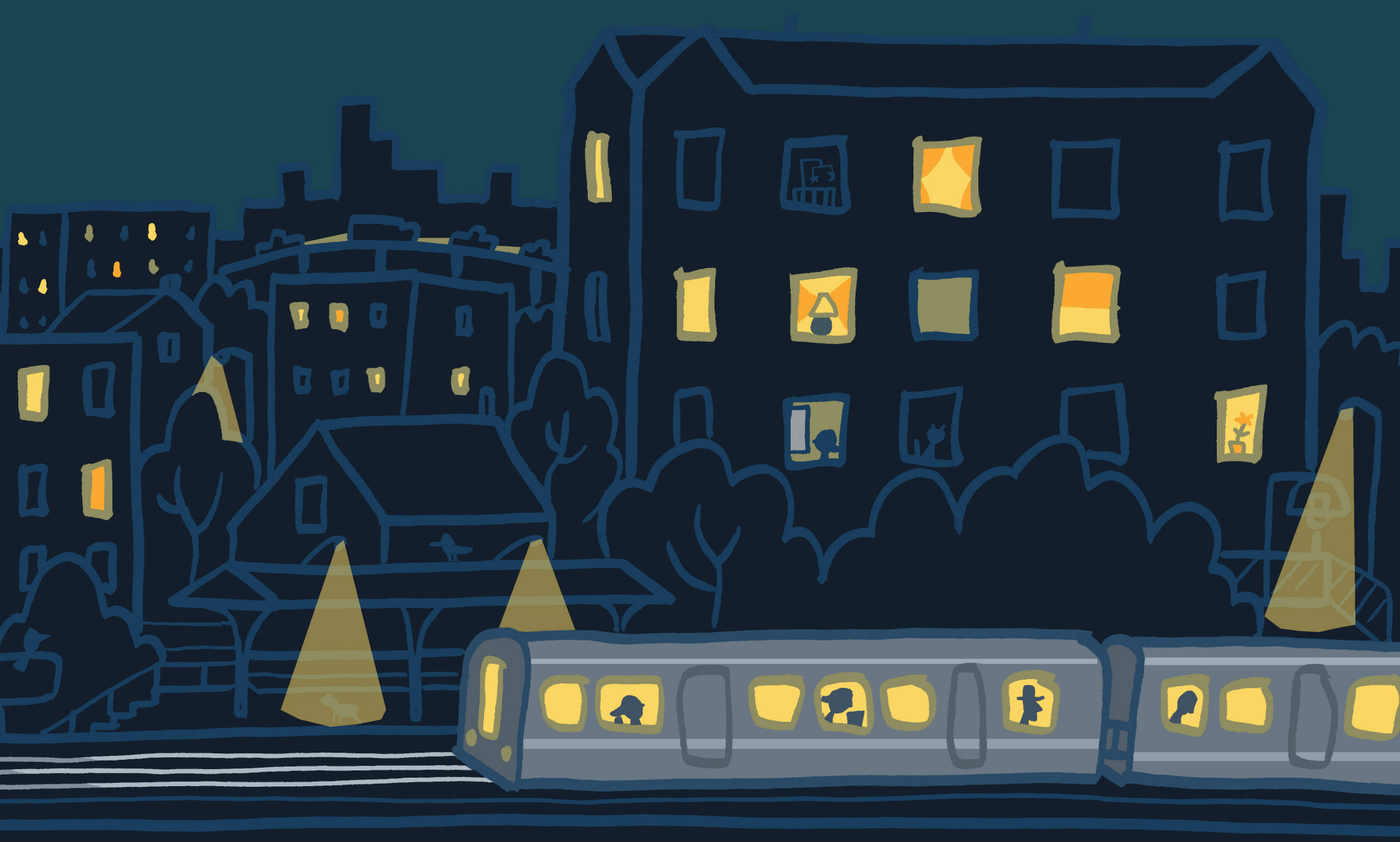
Dentistry graduate Grant Snider discovers his gift for smiles
When most people are just waking up for work, Grant Snider (D.D.S. ’11) is sitting down at his drawing table to make himself laugh with one of his signature comic strips. The rest of his typical work day is spent straightening smiles at his orthodontics practice in Wichita, Kansas.
Grant Snider, D.D.S. '11Credit: Mark Woolcott
About 10 years ago, just as Snider was accepted to the UMKC School of Dentistry, he also embarked on another career, illustrating comics. His multi-panel comics have appeared in the New York Times Book Review, the Kansas City Star, the Best American Comics 2013 and University News, the student newspaper at UMKC. A collection of his comics, The Shape of Ideas, published in 2017, was translated to French.
Every morning at 5:30 or 6 a.m., Snider works on one of his comics for either his blog or social media.
“I always knew I was into science and math,” Snider says, “but I also knew I had a creative side that I wanted to nurture as well.”
From dental school doodles to big-time artist
When Snider was first searching for a creative outlet, he considered watercolor painting or another form of traditional art. Eventually, though, he realized that what he most enjoyed was reading comic strips like Calvin and Hobbes and The Far Side.
The real revelation happened when he came across New Yorker cartoons, with their simplicity of design and quirky observations of life. Initially, he was turned off by them because they were such a departure from the newspaper comics he had grown up with. But as he spent more time with them, it suddenly clicked — this was what he wanted to do creatively.
“I always knew I was into science and math, but I also knew I had a creative side that I wanted to nurture as well.”—Grant Snider, artist and orthodontist
Snider started to use cartooning as a way to relax after dental school classes. He began carrying a sketchbook everywhere he went, doodling anything that inspired him. Over a week or two, those small doodles would become a finished comic, delivering smiles to his close friends and family.
Fast forward several years and his charming, minimalist cartoons are being featured in the publication he once admired, the New Yorker, making people smile around the world.
As Snider puts it, he started drawing before he knew what he was doing, and soon, it was too late to stop — not that he’d want to.
A new source of inspiration
When he and his wife had their first child in 2012, Snider, like many first-time parents, thought “Hey, I should write a children’s book.” The process, though, proved more arduous than he initially anticipated. With a number of ideas going nowhere, he was beginning to doubt the plan.
Then he found out he was chosen for an artistic residency in the Catskill Mountains of New York. He thought this would be the perfect opportunity to work on his children’s book idea. So in April 2018, Snider spent a week in a cabin with three feet of snow on the ground, a trip he calls “the most creatively frustrated period of my life.”
Snider uses his comic to lift the spirits of people during the COVID-19 stay-at-home orders.
Two weeks later, he got an email from a book editor. She had seen a particular cartoon on his blog and wanted to use it as the starting point for a children’s goodnight book. Snider thought the idea was brilliant and, admittedly, was mad he hadn’t thought of it first.
He spent a frantic weekend getting a rough draft back to the editor and, within a week or two, the book was picked up by a publisher.
“After all the frustration of two years, plus being snowed in for a week in the mountains working on an idea that wasn’t going anywhere, an email arrives and two days later I’m on the way to getting published,” Snider says.
That book, What Color is Night?, hit shelves in November 2019.
Double the doodling power
According to Snider, navigating the worlds of science and creativity is freeing for him. He views his orthodontic work as a break from any writer’s block he may be experiencing. At his dental chair, he can focus solely on the patient in front of him and not worry whether a comic he’s working on is funny or not.
The cartooning bug runs deep in Snider’s DNA, as his twin brother, Gavin, is also an illustrator. Gavin, like Grant, also pursues dual careers, as an architect and an illustrator. They talk constantly about their work. Snider says critiques are easier to take coming from his brother than, say, from a book editor.
In May 2020, two more of Snider’s books will be released, a children’s book — What Sound is Morning? — and another collection of his comics — I Will Judge You By Your Bookshelf. As for what’s next, Snider says he plans to divide his time between straightening teeth and making himself laugh creating his own illustrations.
Apr 22, 2020
UMKC volcanologist says many different things could trigger an eruption
NPR interviews Alison Graettinger, a volcanologist at the University of Missouri-Kansas City, who says it’s clear that rainfall can affect the stability of soil and rock — by causing landslides, for example — and it’s worth investigating things that are known to influence the environment as possible triggers for volcanic events.
Apr 22, 2020
Executive director of the University of Missouri-Kansas City Innovation Center joins panel discussion
Maria Meyers, executive director of the University of Missouri-Kansas City Innovation Center, was part of a panel discussion on how Kanas City will bounce back from the coronavirus pandemic. The virtual town hall discussion was on KSHB, 41 Action News.
Apr 22, 2020
UMKC anticipates fall classes on campus
Missouri State University, University of Central Missouri and University of Missouri-Kansas City all anticipate being back on their campuses for face-to-face courses in the fall. Kansas City Star (subscription required)
Apr 22, 2020
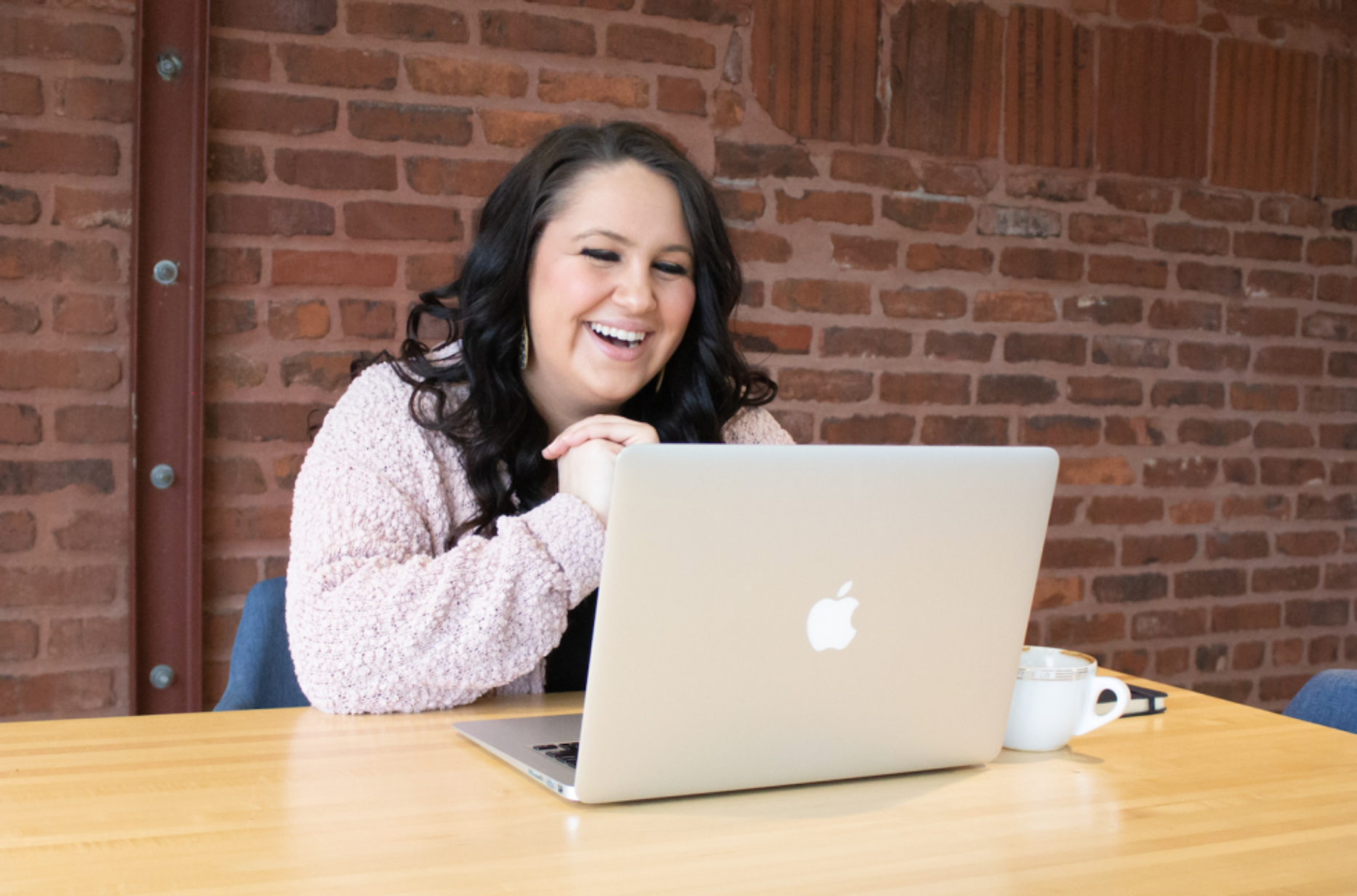
How I'm tackling this virtual semester
COVID-19 has stolen Spring 2020 from students everywhere. If you’re a senior like me, it’s an extra punch in the gut. However, despite the struggles the coronavirus has brought from switching to online classes to losing out on on-campus experiences, there is a light at the end of the tunnel.
True resilience will be built within us during this time. We will forever have an example of “how we overcame a difficult time” in an interview. We will appreciate our degree in a way many don’t. We can and will get through this trying season.
The Marines have a slogan, “Improvise, Adapt, and Overcome” which is a mindset that allows them to deal with any physical, mental or spiritual hardship. Now is our time to improve, adapt and overcome. I believe we have the opportunity to not only survive this trying season but thrive in it! While this is written for seniors, these tips can be applied for any virtual education. Here are my tips on how to make the most of the rest of this semester.
1. Mourn
This might sound like an odd step, and if you’re anything like me you tend to deal with your issues by thinking “well—others have it way worse than me right now.” While this may be true, you are going through a loss right now. Loss of in-class debates, loss of seeing your friends, loss of engaging in the club you joined, even loss of commencement ceremonies for us seniors. No matter how big or small losses, it still leaves a feeling of sadness and a lack of satisfaction. It’s still something that you were looking forward to, but now no longer have. It’s appropriate and healthy to give yourself a moment to be sad. It’s appropriate and healthy to give yourself a moment to reflect on how this loss is making you feel. Mourn the commencement ceremony you won’t attend. Mourn the friends you won’t see. Mourn the fact that this time of your life did not meet your expectations. This doesn’t make you selfish, it makes you healthy.
2. Create Your Workspace
I understand in this station the playing field for a comfy, focused, workspace is not levelled. However, we all have the ability to make any space our own. Whether it’s a traditional desk decked out with pictures that make you happy, or the dining room table with a candle burning next to you, it’s important to have a designated space you can call your own to be productive during this unsettling time.
I am in a tiny two-bedroom apartment in NY with my family. I have designated a small desk in my bedroom as my “work desk” and my back porch mixed with a lap desk and my “school desk.” My work desk has an extra monitor, a cup full of pens, and an essential oils diffuser that I put on when I’m feeling stressed. My back porch is designated for school because I need good lighting throughout my day to keep my mood up. If you can help it, try to not have your desk in the same room as your bed, or if you are like me and have to, have it facing away from your bed. It’s important to clearly distinguish rest and work time in this season, which brings me to my next point…
3. Schedule, Schedule, Schedule!
This has been my saving grace in this COVID-19-lock-in-strangeness. It is so easy for me to get out of a rhythm being stuck inside, but I have been extra intentional about keeping a weekly and daily schedule. Usually, my schedule would include activities like class, work, etc. But my “lock-in” schedule is in blocks of time that break down my entire day. In addition to my normal routine, my days will be filled with scheduled times to go on a walk, Zoom call a friend, do homework, work on building my career and meditating/praying. I cannot tell you how good I feel when I get to the end of a long day but have accomplished everything on my schedule. It also keeps me accountable to work on myself in ways I might not if I didn’t have it written down (example: 20 minutes of yoga). Scheduling gives you a sense of satisfaction at the end of the day, but it also makes it easier to view your day in 24-hour periods instead of wondering how you’re going to survive weeks of this!
4. Stay Engaged
Virtual Hangouts: I don’t know about you, but I am living for my weekly hangout with friends. Every week, I ask a friend to grab something to eat or drink with me via Zoom call. It has been a really fun way to stay in touch with people as well as reconnect with old friends. It’s not the same as meeting up downtown, but hey—I save money! Host a virtual game night, watch a movie together on Netflix Party, or just catch up with a friend.
Virtual Networking: Think forward to post this crisis. What are the things you always wish you had time for, but never do? Now is the time! Personally, working on my professional career by updating resumes, revamping cover letters, working on my website, graining industry knowledge, are all things I needed time for. Since I am alone so much now, I have been asking professors, professionals and colleagues to grab a “coffee” with me virtually about once a week. It has been a great time to gain knowledge, focus on my field and get to network with others that I usually might not reach out to. This is the time to build our network.
Virtual Counseling: Let’s be real … this time is just rough. NONE of us is actually equipped to handle this. If you aren’t talking to a licensed therapist, counselor or spiritual director, this would be a good time to. A lot of counseling offices are now offering virtual sessions. Another great example are apps, like BetterHelp, where a licensed therapist can be available via text. There is no shame in needing to process fears, disappointments or problems during this time considering many of us are dealing with this on some level.
Coronavirus has stolen a lot from us, but I believe it can be a trial that refines us to make us stronger than ever. We have lost a lot, but with the right mindset and hard work, I also believe we have a lot to gain during this time. Keep your head up high, reach out if you’re hurting and focus on what you can control during this time. You can make this a memorable, productive semester.
Class of 2020, don’t forget: You are RESILIENT.
This article was edited and reposted with permission from ericafiori.com.
Apr 21, 2020

School of Biological and Chemical Sciences lends University of Kansas Health System equipment to increase Kansas City’s testing opportunities
As the coronavirus continues to spread, patient testing has become critical, but it is often unavailable. In an effort to increase detection and decrease the spread of the virus, the UMKC School of Biological and Chemical Sciences loaned the University of Kansas Health System a piece of equipment to scale up testing possibilities in the area.
When local hospitals and state laboratories received an update from the Centers for Disease Control outlining available resources for states in the battle against the COVID-19 coronavirus, UMKC faculty members realized they could help.
“We have two 7500 PCR (polymerace chain reaction) machines that are used for processing tests for the virus,” said Theodore White, dean of the School of Biology and Chemical Sciences. “We are currently not doing the kind of experiments that require this equipment, so we began to identify a provider who might need one.”
After determining that none of the facilities that are partners in the UMKC Health Sciences District had a need, the school contacted the University of Kansas Health System. The 7500 PCR will be on loan to the medical center for the duration of the crisis. The additional machine will allow KU Health System to scale up its testing capabilities, which benefits the metropolitan area.
The 7500 PCR system is small enough to fit in the back of a sport utility vehicle. The machine rapidly makes copies of specific DNA, then moves quickly through three cycles of different temperatures. This process allows scientists to take small sample and achieve quick results. The system is commonly used in processing prenatal tests and forensics testing. A new processor would cost approximately $50,000.
“When things go back to normal, the machine will come back to us,” White said. “In the meantime, we’re thrilled it’s making a difference in fighting the virus.”
Apr 21, 2020
Students may need to broaden their focus about starting a career
Tess Surprenant, director of the Bloch Career Center at UMKC, tells KSHB students should consider casting a wider net when thinking about how they will start their career.
Apr 21, 2020
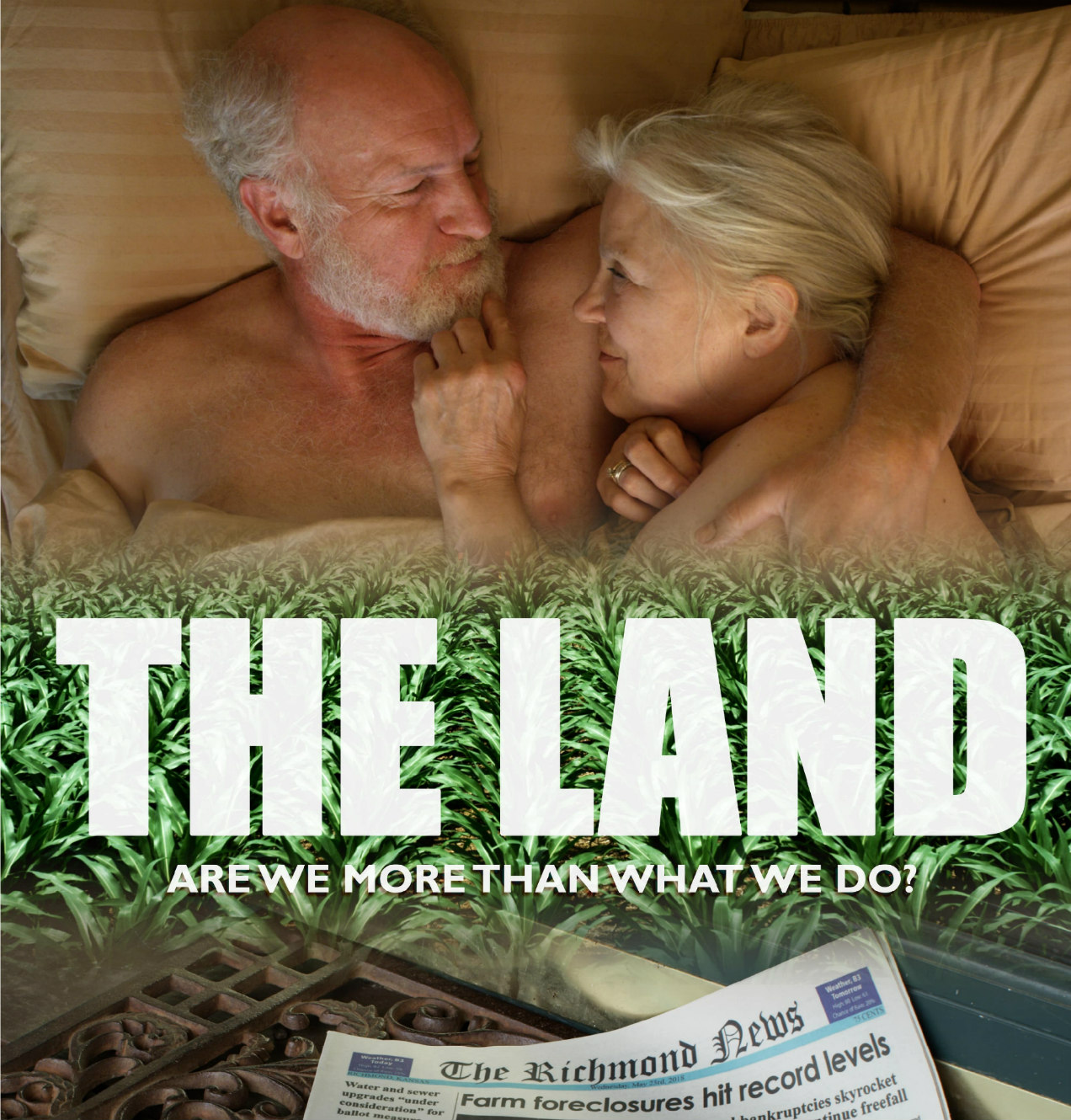
Stephen Pruitt movie on Amazon Video Direct
"The Land," available for viewing on Amazon Video Direct. deals with the current farm crisis taking place all over the United States, which Pruitt said is so severe that the suicide rate of U.S. farmers is now twice that of military veterans. It is the fourth feature film created by Pruitt and his wife, Mary Pruitt.
Pruitt said the film “asks a question on a lot of our minds today: Are we more than what we do?"
The film has earned accolades at multiple film festivals. It was one of sixteen feature films selected to play at the Dances with Films festival in Hollywood; was named Best Feature Film by Washington Post film critic Ann Hornaday at the Over-the-Rhine International Film Festival in Cincinnati; and was named Best Feature Film at the Route 66 International Film Festival and the Critic's Choice at the Iowa Independent Film Festival. "The Land" was one of only 20 non-studio-affiliated feature films (out of more than 200 submitted) to play at the St. Louis International Film Festival.
Apr 20, 2020
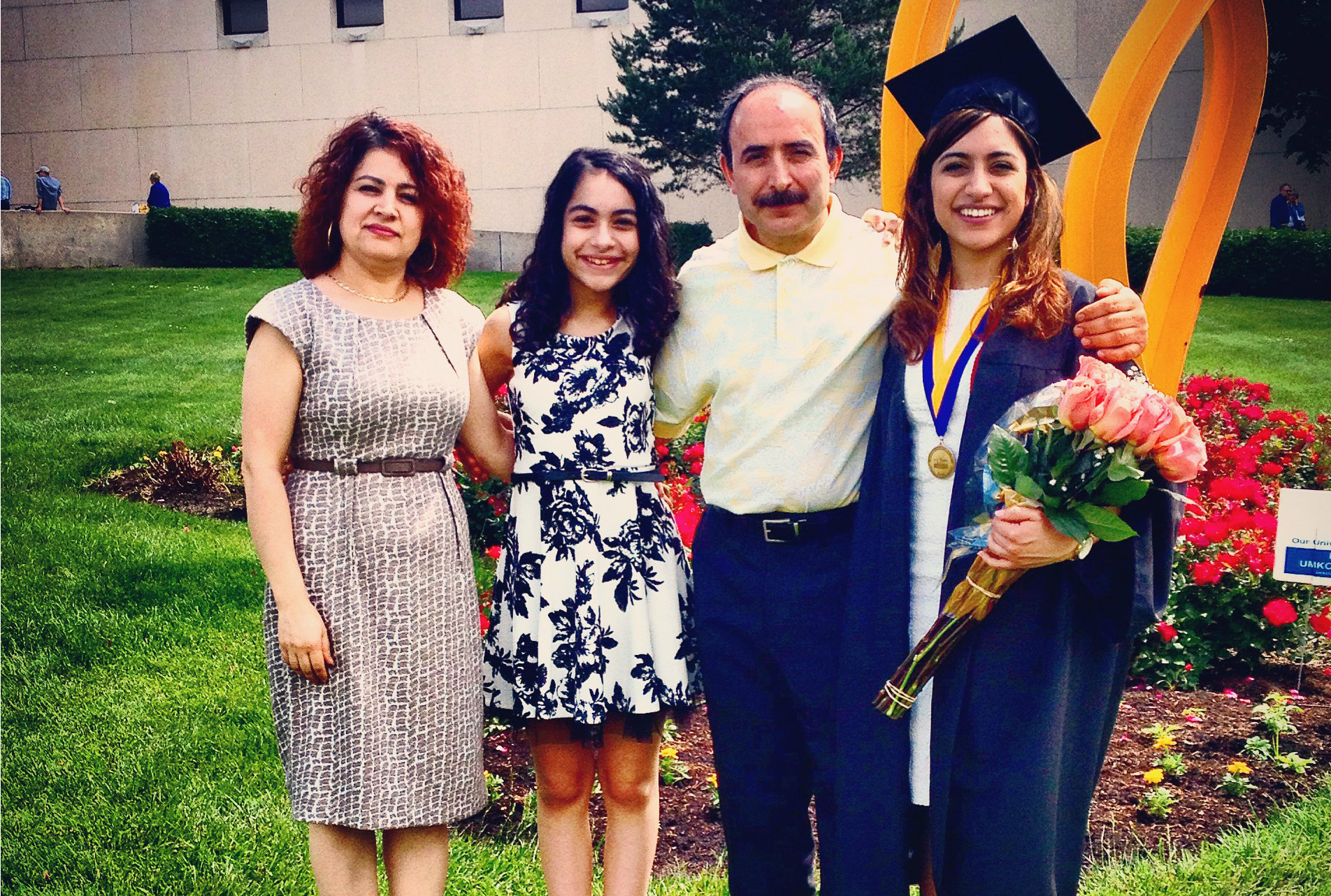
Now a Mayo medical student, Nazanin Kazemi immigrated to the U.S. knowing one word of English
Nazanin Kazemi always wanted to go to medical school and had a desire to make international collaboration a cornerstone of her career as a scientist. Kazemi recently received a Fulbright award to pursue her studies in ovarian cancer and placenta biology at the University of Geneva.
How did you feel when you heard about the Fulbright award? What difference does it make for you?
Being a Fulbright Scholar is such an incredible opportunity and I am so thankful - and still in disbelief. I really feel that being selected as a Fulbright Scholar is the realization of my "American Dream." My parents and I moved to the United States from Iran in 1999. Between the three of us, we knew about two words of English. I only knew how to say, "Hello."
My education has always been their top priority and I feel like this is a culmination of their sacrifices toward my future. We live in a truly unique country when a first-generation college student and first-generation immigrant who didn’t speak a word of English in 1999 can become a Fulbright scholar while training at one of the nation's top hospitals.
What led you to pursue studying in Switzerland?
I have always wanted to make international collaboration a cornerstone of my career as a scientist because diversity of thought and training are truly integral to the success of our research - and in turn to the options that we are able to provide patients. I am excited about the Fulbright program because their goals are so well-aligned with my own. They have a reputation for helping students establish relationships with communities all over the world in many different fields.
Living in Switzerland will not only progress my projects and training, but will also be an incredible opportunity to explore the Swiss culture. Having spent a lot of time hiking, climbing and doing yoga in the Midwest, I am excited to meet the Swiss communities around these outdoor hobbies and take advantage of the natural beauty of Switzerland's iconic mountains and hiking trails. As an avid cook, I will be able to learn more about Swiss history by learning to make traditional dishes such as raclette.
I will be leaving for Switzerland in September, if the pandemic is under control by then.
"I really feel that being selected as a Fulbright Scholar is the realization of my 'American Dream'." -Nazanin Kazemi
What are you studying and working on at Mayo?
Currently, I am earning my doctorate in immunology. I study how the maternal immune system is reactivated at the end of pregnancy to help induce labor and how this activation can cause pre-eclampsia and pre-term labor when dysregulated. I will be spending the final year of my doctorate as a Fulbright Scholar at the University of Geneva to establish an ongoing collaboration between our institutes. I will then return to Mayo to finish medical school.
I’m passionate about these areas of research because they are integral to the health of women around the world. Pre-eclampsia and pre-term labor are leading causes of maternal and fetal morbidity and mortality. Currently, diagnostics and treatment are lacking for the majority of these complications. By understanding the mechanisms involved in their pathophysiology, we can improve outcomes for women and children everywhere.
Ovarian cancer also presents a significant threat to women's health because it is often detected very late (stage III or IV) when current treatments are not as effective. Understanding the biology of this malignancy can help us provide earlier diagnoses and better treatments.
I want to be a physician-scientist to be in the service of others, and I have been incredibly fortunate to have the opportunity to train at an institution with the same dedication to service.
What led you to your interest in women’s health?
I have always been interested in women's health because I really believe that women are the most integral part of our society. The health of women all over the world has undeniable implications for the health of every facet of our society from the health and success of our future generations to the global economy. Moreover, we live in an era where, despite women all around the world making amazing progress toward our rights and fair treatment, we still face a great deal of prejudice and abuse. I am dedicated to women's health because I believe in a world where every woman feels safe, respected and treated fairly and is able to pursue her goals without fear.
As a first-generation college student and first-generation immigrant, I have always known that education is the biggest privilege. I believe those of us fortunate enough to pursue our education undeterred have a duty to those who have not had the same opportunities. I am determined to use the amazing opportunities I have been given to serve women all over the world.
I read a story where you said that your parents instilled the philosophy that women made this world and run this world. How did their perspective affect how you see the world and yourself?
My parents raised me to be a feminist. In a world where women are not treated equally and do not get to enjoy the same freedoms as men, my parents are determined to teach me and my sister that those views are wrong. Our education is their biggest priority and is the reason we moved to the United States. My dad has been dedicated to raising strong, fearless, self-reliant, independent girls. I remember being very young and fearful about many things. My dad would always say, "Go ahead and don’t be scared!"
"As a first-generation college student and first-generation immigrant, I have always known that education is the biggest privilege."
Fulbright at UMKC
Since 1946, the Fulbright Specialist Program has sponsored hundreds of thousands of students, scholars, teachers, artists and professionals of all backgrounds and fields the opportunity to study, teach and conduct research, exchange ideas and contribute to finding solutions to important international problems. To date, 18 other alumni have received Fulbright awards.
Apr 20, 2020
Professor discusses why face coverings are problematic for African Americans in public
Shopping while Black has been at the forefront of the public consciousness for years, said Jamila Jefferson-Jones, interim director for the Black Studies program at the University of Missouri-Kansas City. She is also an associate professor at UMKC School of Law. Kansas City Star (subscription required)
Apr 19, 2020
UMKC professors are guests on KCUR program, Up To Date
Beth Vonnahme, associate professor of political science at UMKC, and Allen Rostron, professor of law at UMKC, were guests on KCUR's Up to Date in a discussion about individual rights and public safety.
Apr 17, 2020
$3.3 billion grant is the continuation of the School of Medicine’s Project FIT (Faith Influencing Transformation)
Jannette Berkley-Patton, Ph.D., of the UMKC School of Medicine, has been awarded a $3.3 million, 5-year grant by the National Institutes of Health to help improve diabetes prevention outcomes with African Americans. The Comunity Voice
Apr 17, 2020
Cancellations and postponements due to COVID-19 precautions
Out of an abundance of caution during the COVID-19 pandemic, all in-person UMKC campus events through the end of June are canceled or postponed.
Please reference the UMKC Alumni and campus calendars for listings of canceled and rescheduled events as well as virtual opportunities.
Apr 16, 2020
School of Medicine dean is an expert on infectious diseases and vaccines
UMKC School of Medicine Dean Mary Anne Jackson, M.D., says there is significant risk and no scientific evidence to support the use of Vitamin C as a preventative or therapeutic tool for COVID-19. Kansas City Star (subscription required)
Apr 16, 2020
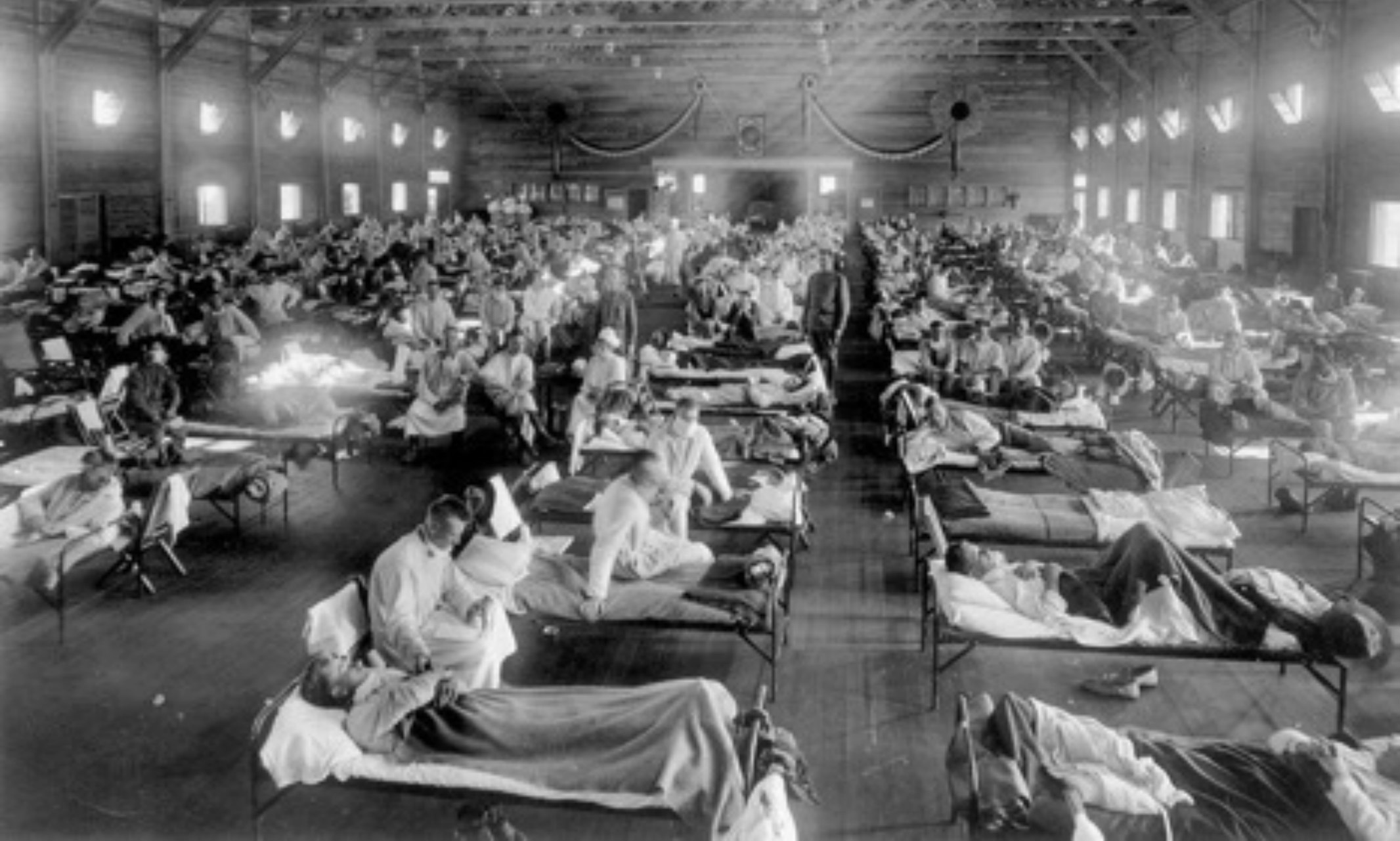
Alumna and retired UMKC librarian wrote thesis on 1918 flu
The year was 1918. The world was at war, tens of thousands of soldiers spent weeks at a time in filthy, fetid trenches and, according to Susan Sykes Berry, “medical science at the time was still arguing about what caused disease: miasmas, chemicals called zymes, or germs.” During the next three years, despite the absence of 21st century jet travel and global commerce, a horrific respiratory illness ravaged the world. Precise statistics still elude historians, but it is estimated that the so-called “Spanish Flu” infected a quarter of the world’s population and killed tens a millions of people.
A shade more than a century later, the world is a much different place, and medical science has advanced exponentially. Nevertheless, lessons of 1918 apply today, Sykes Berry said. A retired UMKC medical librarian and registered nurse, she earned a master’s degree in history from UMKC in 2010 with a thesis entitled “Politics and Pandemic In 1918 Kansas City.”
“The 1918 flu was so deadly because it was a new strain of flu,” she said. “Because of research by Jeffrey Taubenberger, Ann Reid and others published in the journal Virology in 2000, we now know it was an H1N1 strain. So no one had any immunity.”
According to her 2010 thesis, “Kansas City did not escape the influenza pandemic. Public health officials began their response by denying there was a problem, and finished their response by simply waiting for the disease to run its course. Between those extremes there was political infighting, flouting of quarantines and bans by businesses and the public, lack of coordination with Kansas officials, and many needless citizen deaths.”
Today, Sykes Berry sees parallels.
“The lessons from 1918 that apply today is that quarantines have to be applied everywhere in order to work,” she said. “It isn't effective to close Kansas, and not Missouri, when all people need to do is drive across an invisible state line. In 1918, Kansas had less death than Missouri because they had a better quarantine. I fully endorse the recommendations of the Core4 governments (the city of Kansas City, Missouri; Jackson County, Missouri; Johnson County, Kansas and the Unified Government of Wyandotte County and Kansas City, Kansas) in recognizing that Kansas City is one big metro area and for an effective response the whole metro area has to act.
“Those four governments have saved lives.”
In an interview with KCTV5, Sykes Berry said the city’s response in 1918 was ineffective because of interference from political bosses such as Tom Pendergast.
“They would not shut anything down,” she said. “Streetcars were still running and saloons that Pendergast owned remained open. The chamber of commerce, for whatever reason, was actually trying to get the city to shut down. So, businesses that were in the chamber of commerce were trying, but the city just couldn’t get its act together.”
It is estimated that 11,000 in Kansas City were infected, and 2,300 died.
Sykes Berry also said that while the news media popularized the term “Spanish Flu,” there is evidence that the disease actually may have arisen in Kansas and was spread globally by soldiers deploying to World War I from what is now Fort Riley.
“John Barry, who wrote ‘The Great Influenza: The Story of the Deadliest Pandemic in History,’ was the historian who first came up with that idea,” she said. “But in my research I was able to find mention of a severe influenza in the Santa Fe Monitor in April of 1918, and also mention of soldiers from Camp Funston (now Fort Riley) who had been back and forth during the period. So it is a plausible theory. However, almost all historians agree that it was spread so quickly by soldiers due to the war.”
Apr 15, 2020
Retired UMKC health sciences librarian was a guest on KCUR's Up To Date
Apr 15, 2020
UMKC's Charting the LifeCourse tools available to electronically document the curriculum
The UMKC Institute of Human Development (UMKC IHD), a University Center for Excellence in Developmental Disabilities (UCEDD), has developed the Charting the LifeCourse (CtLC) framework and tools to help individuals and families of all abilities and ages develop visions for a good life, identify how to find and access supports, and discover how to live the lives they want to live. Yahoo News
Apr 15, 2020
Data says Black Kansas City residents have been disproportionately affected by COVID-19
Data is critical for public health, but Jannette Berkley-Patton, a professor at the UMKC School of Medicine, says it should be shared with local community leaders before being widely released. KCUR
Apr 14, 2020
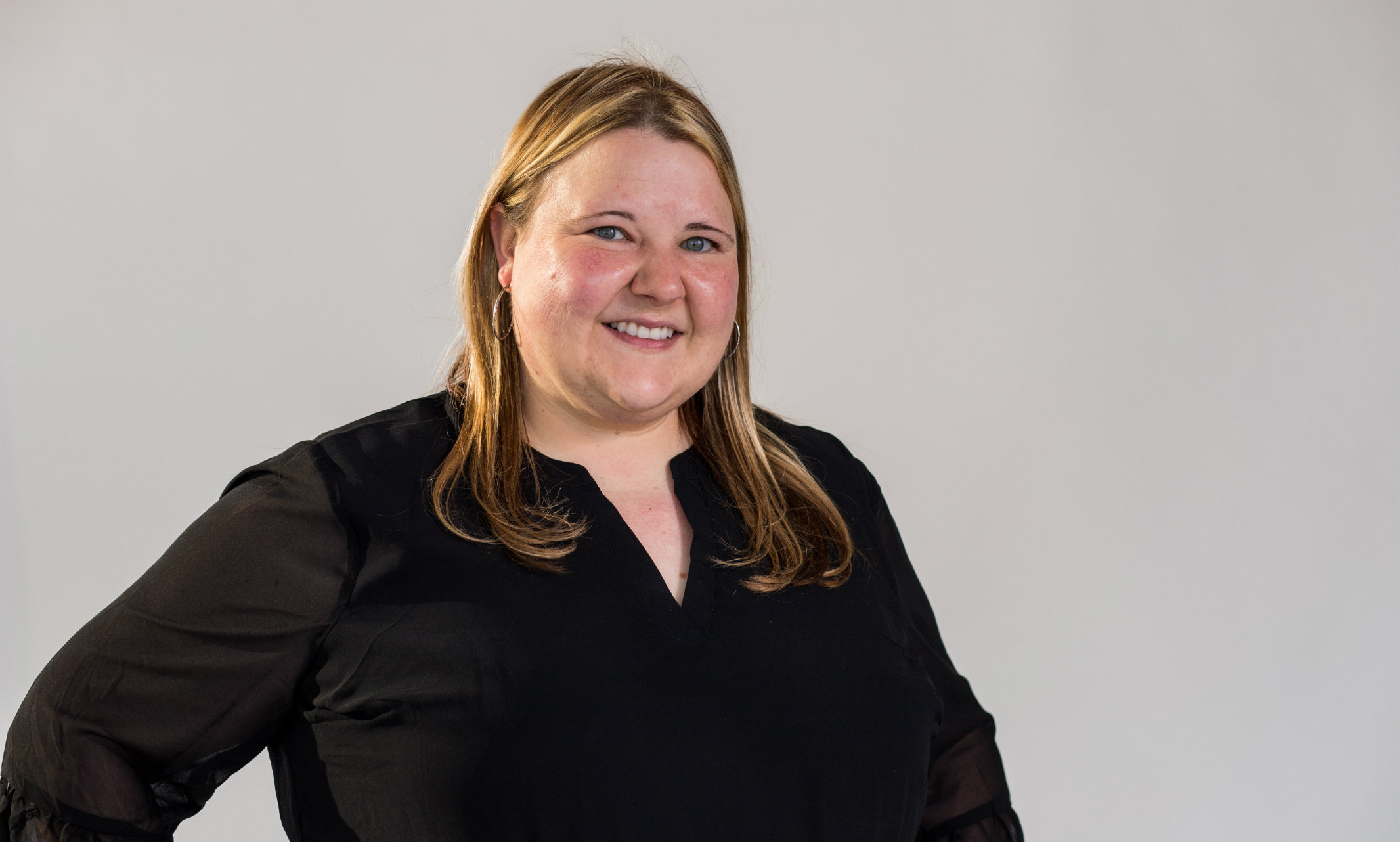
Award-winning alumna provides her favorite processes and resources for teaching at home
On top of managing working at home, shopping online and keeping everyone healthy, many parents are now bearing the weight of teaching their children at home. Deborah Siebern-Dennis, B.A. ’05, a science teacher at Bode Middle School, was selected for a two-year teaching and learning project funded by the National Science Foundation in 2019. She has suggestions to make teaching at home a little easier.
Parents have had a little time teaching at home now and many are discovering the challenges of keeping their children engaged and on task. What is one of your best tips to make the day go easier?
I would recommend having a consistent structure that is similar to a classroom setup. With my experience, kids like routine and they feel most comfortable knowing what their learning day will look like with a set schedule. For example, I am currently Zooming with my students at the same time each day and I set up a science-learning schedule on Google Classroom. My students know when activities will be posted and when our interactive sessions will be. Consistency is key!
What kind of breaks make sense? Exercise? Dancing? Drawing?
In the classroom, any brain break is good break! Since I teach middle school, my kids like to be active so we will do a cooperative activity or a student-led stretch. There is a lot of power in student choice, so I would recommend asking your child what he or she would like to do and don’t be afraid to join in on the fun! Being a goofball is fun!!
"Technology is a great learning tool when used with direction." - Deborah Sieburn-Dennis
Any tips on tackling a student’s least favorite subject? First? Last? With rewards?
It is all about perspective! This would be a great opportunity to take one of those content areas that your child doesn’t enjoy as much and explore the possibilities. See if you could make some real-world connections. Go outside and explore some science or reflect on this experience with writing. The possibilities are endless!
What are your suggestions on how parents can juggle their children’s school work when they are working also?
I would go back to the scheduling. Kids are acclimated to a daily schedule, and I would recommend setting up a daily learning routine. All of the teachers that I know are working so hard right now at creating lessons and digital learning opportunities for their students that would work great with a parent’s busy schedule.
What’s the best plan of attack with subjects that aren’t the parent’s strong point?
Please reach out to your child’s teacher! We are here for all of our families and I can’t tell you how many parents and students that teachers have been helping since this pandemic has started. Teachers love to teach and we miss the classroom so very much, and I’m certain that your child’s teacher would love to help out in any way that that they can. Can you suggest online resources that may be helpful with homework?
I like Wide Open School. I’ve also recommended a document provided by Milken Educators - I was a 2015 Milken recipient - that is full of great resources.
Are there activities you could recommend that might be productive and/or educational when students are finished with their assigned tasks?
I’m a big fan of Quizizz Reviews. The parents can research a topic and assign the review as homework. I create my own assessments, but it’s a great resource for formative assessment data. I would also recommend iReady if it is used at your school. Based on what we know about the effects of electronics - TV, gaming, etc. - what are your suggestions for limitations? And should they be used as a reward?
Technology is a great learning tool when used with direction. I teach at a 1:1 school (one device per student) and it is so valuable right now during this digital learning time. I would recommend that parents monitor their child’s device time and explore the possibilities together. It’s also a good idea to remind their child to be a responsible digital citizen.
Apr 13, 2020
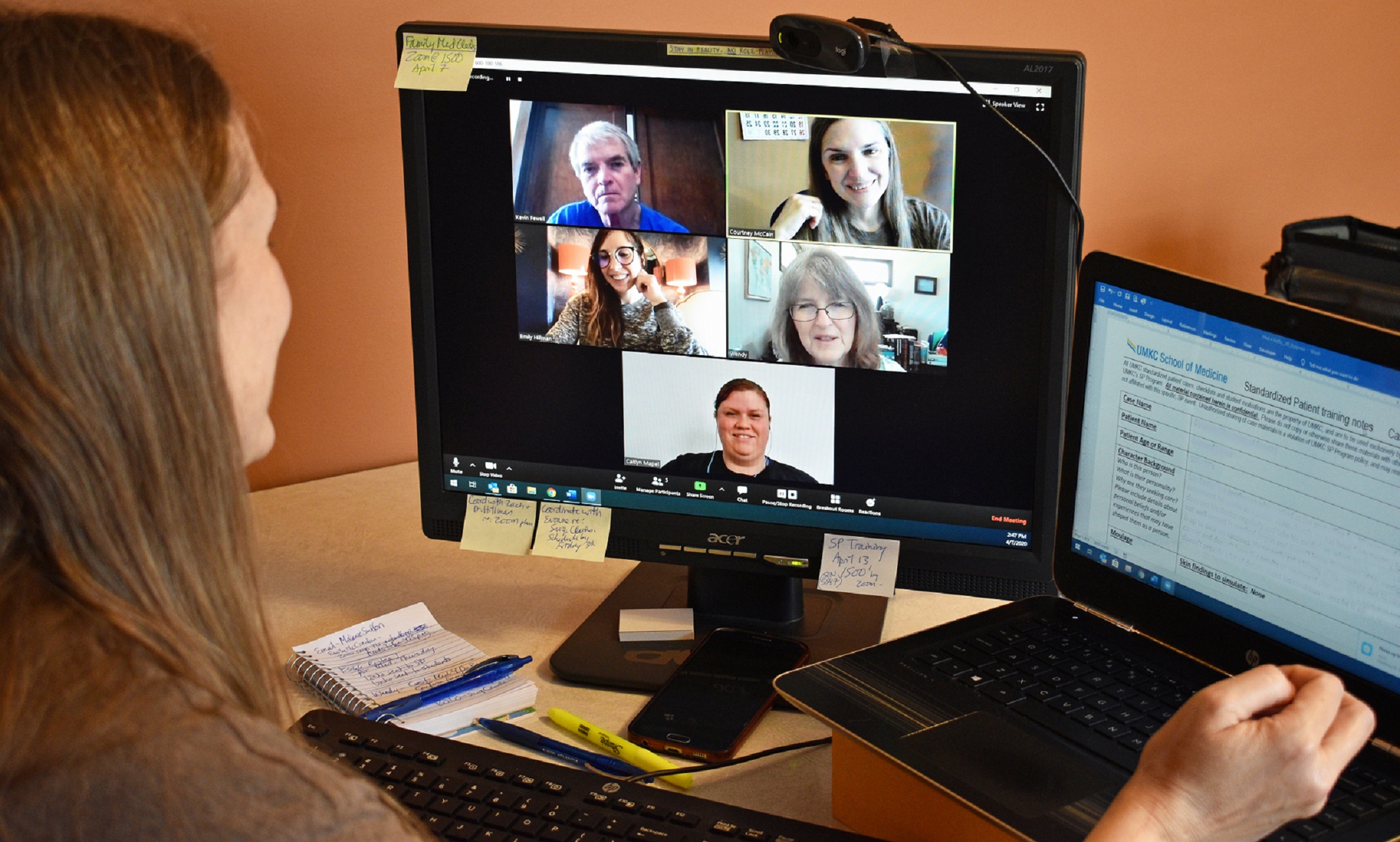
Expanded telemedicine exercises help UMKC medical, nursing students keep learning
When coronavirus precautions canceled hands-on clinical experiences for students, UMKC medical and nursing faculty and staff had to get creative. Their spring break turned into a fast break to create online replications of direct patient contact.
A School of Medicine program switched its in-person patient contact modules to a telemedicine format. And the director of the School of Nursing and Health Studies’ simulation lab brought two high-tech manikins home with her, so students could still use them to learn, albeit remotely.
As a result, half a dozen medical and nursing classes logged clinical training online, just in the first week after break, and that pace will pick up in weeks to come.
Education on the line
On April 2 and 3, 95 students in the UMKC nurse practitioner program interviewed and assessed 10 patients with varying health conditions, all without risking any contamination.
That’s because all the interviews were done by video conference — telemedicine style — rather than in person. And their “patients” were from the School of Medicine’s Standardized Patient Program, which has 60 people trained as medical actors to present dozens of possible conditions to student learners.
“Several training events had to be canceled in the immediate aftermath of the COVID-19 closures,” said Courtney McCain, the program coordinator. “Faculty members and I hurriedly emailed, phoned and Zoomed to come up with alternatives for our April events.”
As a result, the students in the nursing school’s nurse practitioner program had video conferences with their “patients.” Then they were rated on how well they interviewed them and took their medical histories, and on how well they communicated with them.
“Our standardized patients also are trained in constructively assessing how well the students communicate, which they will do after running through their scenario so the students can learn from these experiences,” McCain said. “Ordinarily, this exercise would have included a hands-on, physical exam. But we have modified its objectives to emphasize students’ ability to take a competent patient history and to communicate professionally.”
There were some first-week glitches, as bandwidth bottlenecks and software quirks were discovered. But five students who submitted comments were all positive about the exercise, which let them see their patient’s chart well in advance, so they could be prepared for the examination.
Two students, Tiffany Arnold and Abby Martens, said they had handled real telemedicine appointments shortly before campus shut down. The exercise “was very accurate, with no real difference from the visits I was doing in the last month,” Arnold said. Martens added, “I thought it was realistic. I worked with a physician one day a couple of weeks ago who did telehealth all day, and it was pretty similar.”
Another classmate, Catharine Cooper, said, “My actor was fantastic as a patient and really seemed like patients that I have seen in clinic, when I was at clinic.”
“This experience is helping us realize how much more we can do in a telemedicine setting. We’re growing our repertoire of simulations and possibilities.”— Courtney McCain
McCain said some tweaks had been made after the first sessions, so things should go even better for the next large group of nurse-practitioner students who have a similar exercise. The first students for a revamped exercise in the School of Medicine program just happened to be from the nursing school, she said.
The program is overseen by Emily Hillman, M.D., director of simulation for the UMKC Clinical Training Facility. Hillman, an assistant professor, earned her M.D. and a recent master’s in medical education from UMKC. Now she and other faculty are devising the online versions of fourth- and fifth-year medical students’ clinical experiences in family medicine, pediatrics, surgery and in-patient hospital visits and treatment.
McCain has been with the Standardized Patient Program since 2011 and has seen the number of training scenarios it presents grow 450 percent. Now, as challenging as it is to shift all clinical training online, she sees an opportunity for more growth and creativity. A recent international webinar with other directors of standardized patient programs also gave her some more ideas and troubleshooting tips.
“It’s been a crash-course in new technology, along with everything else. We are rapidly making lemonade,” McCain said. “This experience is helping us realize how much more we can do in a telemedicine setting. We’re growing our repertoire of simulations and possibilities, so if the COVID-19 closures continue, we’ll be in a good position to continue delivering scenarios to students so they’ll have minimal interruption in this portion of their studies.”
Smart use of dummies
Christine Zimmerman’s house recently added a couple of occupants, but she didn’t have to put them on her Census form. Her guests, one adult and one child, are manikins from the nursing school’s simulation lab.
Nursing students normally spend hours in the school’s high-fidelity simulation lab, managing patients with complex clinical issues while practicing assessment and communication skills. When Zimmerman heard that access to campus buildings would be greatly restricted, she got the idea to set up a smaller version of the lab in her basement.
“We have nine manikins, but I can adapt most simulations with these two,” said Zimmerman, who has a master’s in nursing education and a Ph.D. in nursing from UMKC, in addition to her R.N. “They breathe; they blink. They’re computer controlled. You can monitor their heartbeat and other vital signs.”
Students can’t come to her house, but groups of around eight meet online and can see and guide Zimmerman’s assessment of the patients. Other simulation staff members are online, too, and can speak for the manikin as the students ask questions.
The class members can discuss the case among themselves, but they have to be tactful about what they say in “earshot” of the patient. And if they decide medicines are needed in a particular scenario, they can make a virtual stop by a “meds station” Zimmerman has set up. There she can hold labels up to the camera so a student can verify that the right pharmaceutical is being dispensed.
Zimmerman started the lab sessions the Tuesday after spring break and is running four or five a week, as she usually does when she has access to the full lab.
“The sessions run either four hours or eight hours,” she said. “We cover a lot of ground, and I’m pleasantly surprised with how successful this transition has been.”
Students agreed. Madison Putnam, a senior nursing student, said, “I am grateful UMKC and Dr. Zimmerman have found ways to continue to provide us nursing students as much ‘hands on’ education as possible.”
Natalie Patton, a junior said, “Dr. Zimmerman's recreation of SIM lab was amazing. And it was wonderful to work with more of my classmates than an in-person simulation would have provided. Though we had to take turns talking, the online format did not impede our communication at all, and we were able to efficiently work together and save the patient in crisis.”
Zimmerman also said it was a bonus for her to have a whole group of students online so she can hear their discussion of cases, something she can’t normally do when a class huddles up out of her earshot.
“If anything, they are more focused on the critical thinking and clinical evaluations they have to do,” Zimmerman said. “Of course, I’m sorry for the situation that makes all this necessary, but I enjoy the challenge and the need to take a creative approach to these challenges.”
Apr 13, 2020
Coaches help athletes succeed by helping each other
It’s a new time for college athletic programs, and UMKC Athletic Director Brandon Martin is trying to get creative, starting RISE Alliance, Roos Inspiring Success and Excellence. Fox4KC
Apr 13, 2020
Films are part of KCFFI’s Heartland Student lineup
UMKC student Mayhrn Rose’s short film “My Sappho” is part of KCFFI’s Heartland Student lineup. UMKC graduates Paola Prada and Jackson Montemayor collaborated on “The Colombian,” another entry in KCFFI’s Heartland Student category. KCUR
Apr 12, 2020
UMKC archivast applies lessons learned from AIDS epidemic to COVID-19 pandemic
The current COVID-19 pandemic reminds Stuart Hinds, archivist at UMKC Miller Nichols Library and head of the Gay and Lesbian Archives of Mid-America (GLAMA), of AIDS in the 1980s. KCUR
Apr 11, 2020
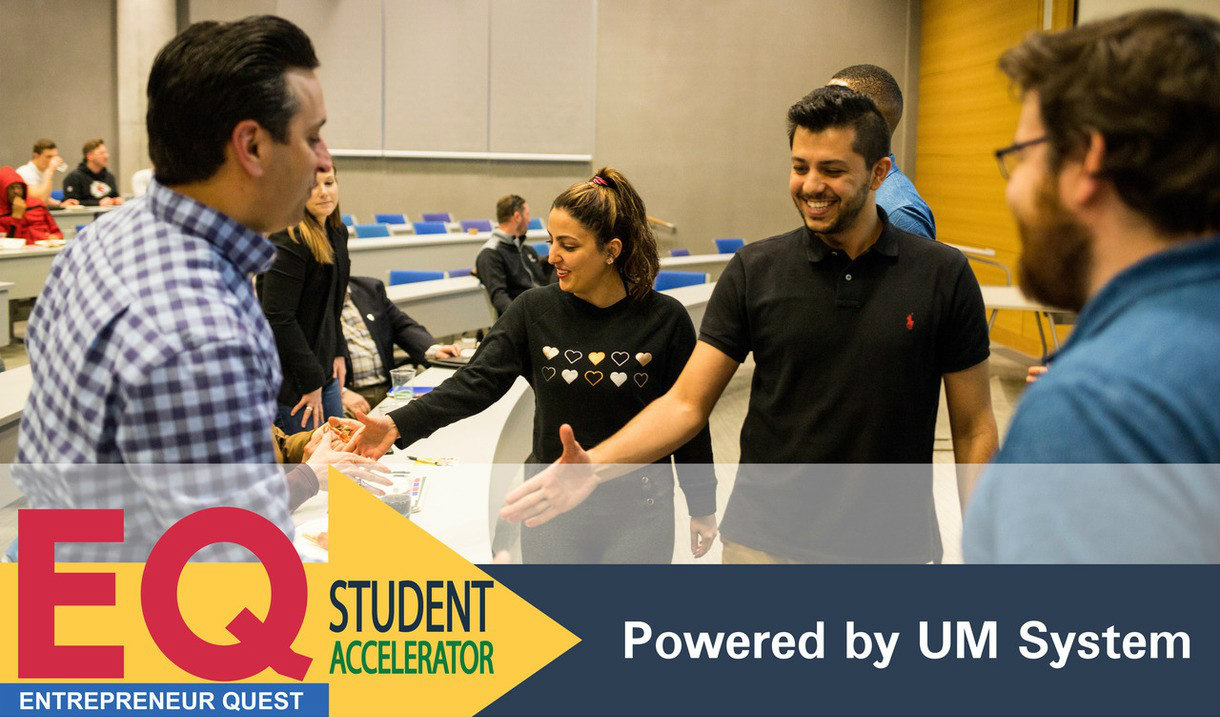
UMKC students will compete at UM System Entrepreneurship Quest Student Accelerator Pitch Competition
Three UMKC student teams will compete against the top finalists from Mizzou, Missouri S&T and the University of Missouri-St. Louis in the University of Missouri System Entrepreneurship Quest Student Accelerator.
The UMKC teams secured their spots in the March 25 competition. First place went to Genalytic. Second place went to Compost Collective KC. Third place went to Vest Heroes.
The student entrepreneurs were all solving problems through their business ventures. UMKC, MU, S&T and UMSL held workshops during the fall semester that covered business models, venture pitching and the EQ application process. University representatives and community leaders chose the most promising applicants, who participated in a pitch competition to narrow the field to 10 semifinalists. Student teams chosen during the first competition had the opportunity to participate in an eight-week EQ educational program.
The EQ program included workshops, mentoring, demo days and coaching from local entrepreneurs. The purpose is to help students research, develop and practice pitching their concepts based on feedback from business leaders, investors and subject-matter experts. At the end of the program each university held another pitch competition to choose three finalists and proceed to the EQ finals this week.
Round one of the finals starts at 4 p.m. April 15. Twelve teams will present on Zoom to a panel of judges recruited by each school. The top three present again in round two at 1 p.m. April 16 for a different panel of judges.
Winning UMKC Ventures
Genalytic
Greyson Twist, Ph.D., bioinformatics and computer science major, founded Genalytic. He describes Genalytic as a way to prescribe the right drug for each patient based on their genome.
“Pharmacogenomics sounds, and is, really complicated; but the idea is that every time you take a new drug or combination of drugs, or even drugs and food, you toss the dice and hope you are going to be OK,” Twist said. “Usually you are, but sometimes the drug doesn't work. The drug makes you worse, or the drug kills you. We aim to fix that problem.”
Twist left his job at Children’s Mercy a year and a half ago and started working on Genalytic full time. He considered using Genalytic for a PhD project only. But friends and family convinced him there was business value in his idea. At about the same time, Twist learned about the EQ program and decided to give it a try. The tag line he has been using is “putting the person back in personalized medicine.”
“We have a very long way to go, but the EQ program is – was – the first step. And the support they have given me has really put wind in my sails to try and make this a reality,” Twist said. “If you have an idea or go to the EQ program, you literally have nothing to lose.”
Compost Collective KC
Kyle McAllister, business administration graduate student, leads Compost Collective KC. The company’s goal is to solve two fundamental problems. The first is a global issue. McAllister said food waste is a major threat to the environment and is produced in the United States at an alarming rate. Approximately 30% to 40% of all waste going to landfills in the U.S. is food. He said that equates to approximately 33 billion pounds of food in landfills per year. That volume would fill the entire Rose Bowl in Pasadena, California, each day for an entire year.
McAllister said food waste breaks down in a landfill without oxygen and, as a result, emits methane gas. Depending on the study, McAllister said methane gas has 25 to 84 times the climate-change impact than carbon dioxide. Given this issue, people are looking for more sustainable alternatives. McAllister cited a recent Yale study that found that 70% of Americans think environmental protection is more important than economic growth.
McAllister believes Compost Collective KC can help solve a second problem – give people a simple way to have a positive environmental impact by composting.
Kyle’s partner is Meredith McAllister, co-founder. They are preparing for the April competition by incorporating feedback from the judges, practicing the pitch with their team and presenting to Kyle’s MBA class for feedback.
“I've learned a lot! It's been a blast to participate and see some of the other really great ideas competing in the program,” McAllister said. “I've improved my presentation skills and the competition has also pushed us to think critically about our business, and that has helped us make some helpful decisions.”
Vest Heroes
When UMKC School of Medicine student Fahad Qureshi started shadowing physicians, he saw that surgical operations involving an X-ray or radioactive imaging technology often requires the health care professional to wear a lead vest and skirt. The equipment was very heavy, weighing between 30 and 69 pounds.
Qureshi said surgeons complained of back pain and hindered operational mobility due to the excess weight. In addition, Qureshi said the pain worsened for physicians as they worked long surgeries and as they aged. To solve this problem, Qureshi realized he needed to add an engineering element to his medical background. He started an apprenticeship with a local engineer and learned how to work with his hands. Qureshi said his eyes were opened to the problem-solving nature of the field. He soon started constructing his own prototypes based on the action of pulleys and levers.
The prototype consisted of a lead vest/skirt with a tether. This tether was hooked to a cord that ran to a small hook on a ceiling. Finally, the cord was connected to a weight that offset the weight of the vest. In this way, a simple pulley was created. He contacted an interventional nephrology practice in Chicago that uses radioactive imaging called A.I.N., who allowed him to build a model in the operating room with special sterile materials. Qureshi used a 50-pound weight to make a 60-pound vest and skirt feel like just 10 pounds. The physicians at the practice were astounded and asked for more, citing their immense need.
“My preparation comes from trying to advance the company,” Qureshi said. “I’ve pitched the product to doctors in hospitals across the country, most notably at the Mayo Clinic. I intend to pitch the huge progress and real-world applicability.”
“I have learned what it takes to build something, and this program has given me an opportunity to take an idea to a business,” Qureshi said. “I saw a problem when my childhood friend's passing was partially the result of pain and limited mobility of the physician wearing a heavy lead vest that complicated the operation. I saw an opportunity to create a solution. I want people to know that I, like every member of the health care team, want to serve patients better and help them achieve the longest, healthiest life possible,” Qureshi said.
Apr 10, 2020
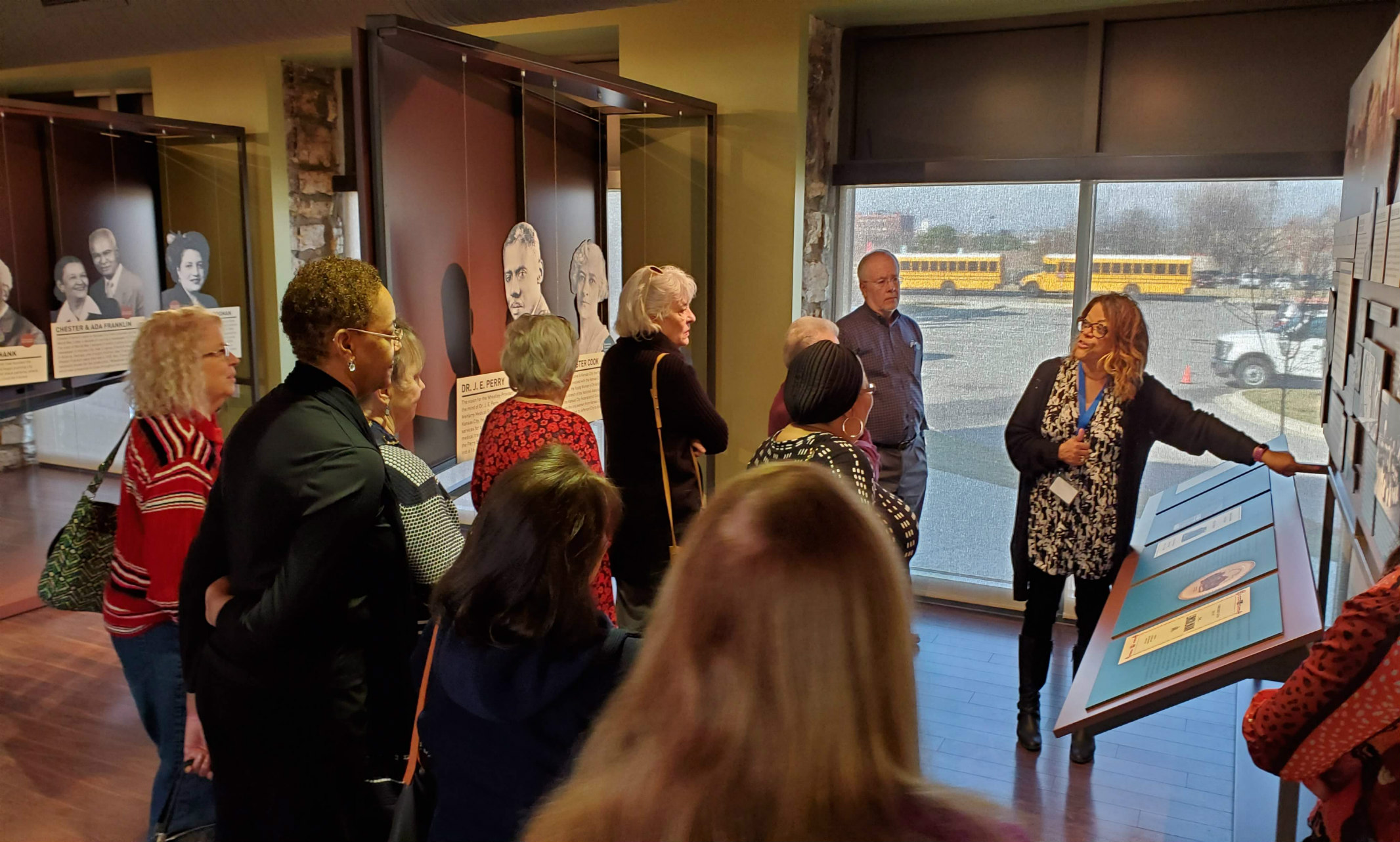
Carmaletta Williams shares some of the rich history housed in the archives
Carmaletta Williams (B.A. ’87) serves as executive director of the Black Archives of Mid-America in Kansas City. The archives are home to incredible artifacts documenting the social, economic, political and cultural histories of persons of African American descent in the central United States, with particular emphasis in the Kansas City, Missouri, region.
Carmaletta Williams, B.A. '87
We spoke with her about what she wishes people knew about the archives and her favorite pieces among the exhibits.
Tell us about your role as executive director at the Black Archives of Mid-America in Kansas City.
My role primarily is to keep the place afloat. That pertains to many levels: financially, educationally, exhibition-wise, public partner duties, arts advancement, personnel, programming and so many other duties.
What’s something you’ve learned by working at the archives?
I've learned that being the administrator at a museum or public organization is not a one-person job. It takes a crew with different skillsets, abilities, desires and commitments to make the Black Archives a rich, viable part of the Kansas City landscape. I would love to spend all my time taking people on tours and talking about the history of Black folks in Kansas City and, indeed, in this country, but that is not possible. I learned that my efforts are better directed towards financial management e.g., fundraising, paying bills, writing grant proposals, etc.
What is something you wished people knew about the archives?
I wish people knew that there is an active (except in the age of quarantine) Black Archives with a wonderful Ewing Marion Kauffman Exhibition Hall. The fixed exhibition in that hall chronicles the establishment of Kansas City through the lives of the African Americans who worked toward building lives and culture for their families and their communities. I wish people knew that those early actions frame today's Kansas City.
I wish people knew that we are building another exhibition in the area that houses Lucy's cabin, the home of an enslaved woman in Trenton, Missouri, that will pay honor to the victims of racial lynching. Charles Swayze, a talented, young African American artist is creating a wall-sized mural for that exhibition.
Lucy's cabin in the Black Archives of Mid-America.
I wish people knew that women's professional basketball began in Kansas City with the Women's Basketball Association, started by Lightning Mitchell. The Black Archives houses their Hall of Fame as a permanent exhibition.
I wish people knew that we are a beautiful facility with spaces that we rent to people, groups and organizations throughout the area. We also provide a wide array of educational programs, including workshops on mental health with Dr. Erica Thompson and on legal issues with the Jackson County Bar Association. Additionally, we host poetry readings, book signings, fitness workshops, musical presentations and more.
Painting of Henrietta Lacks on display in the Black Archives of Mid-America.
Favorite artifact, document or photo in the collection?
I have many "favorites" in the Black Archives. I love the poster-sized picture of Fannie Lou Hamer, the woman who made history by saying she was "sick and tired of being sick and tired." Another favorite is the picture of our founder Horace M Peterson III. Sadly, it hangs next to his obituary. Eva McGhee's gift of a portrait of Henrietta Lacks brings joy to me and the Research and Reading Room. I smile in every room of that space because the Archives is filled with history, art, music, culture, poetry, literature, business, and all those elements that create communities.
How can people support the Black Archives during this time?
People can support the Black Archives during this time by making donations online. When you visit our website, be sure to scan through our holdings. We are developing programs that can be accessed online and are eager to hear what community members want from us.
Apr 09, 2020
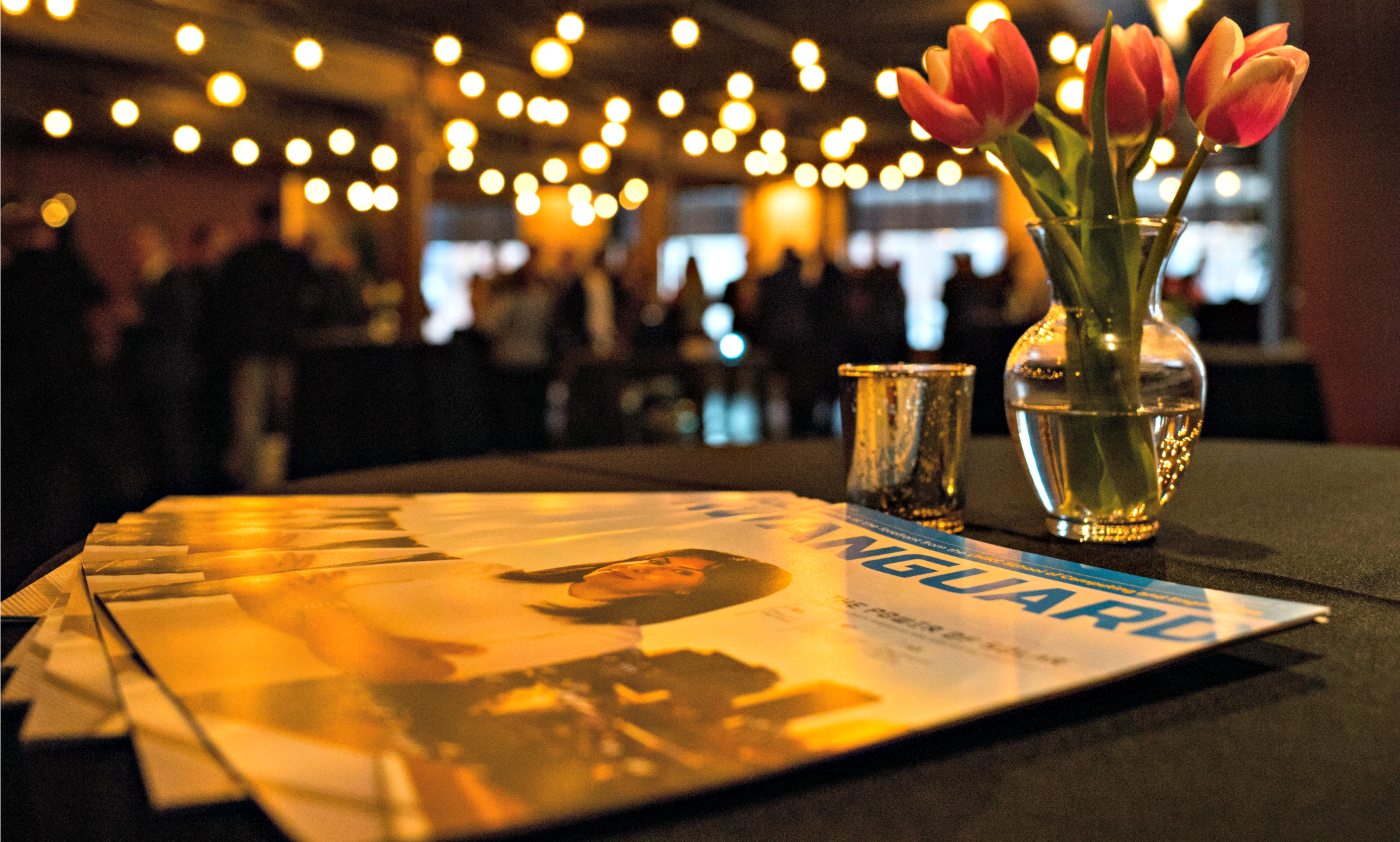
KC Water, Prep KC, two SCE Alumni are among this year’s Vanguard Award recipients
From donors to student mentors to community partners, the role of alumni and friends is essential to furthering the mission of the University of Missouri-Kansas City and its School of Computing and Engineering. The annual SCE Vanguard Awards is an opportunity to spotlight those who help expand STEM education and outreach in Kansas City.
“This is a great opportunity for us to recognize the key role that our alumni, corporate and community supporters play in making the School of Computing and Engineering the success that it is today. This group of honorees is just a small depiction of the outstanding leaders in engineering that we have the opportunity to connect with every day,” said Kevin Z. Truman, dean of the School of Computing and Engineering.
This year the school will recognize four honorees in the categories of SCE Young Alumni Award, SCE Supporter Award, STEM Outreach Partner and Organization of the Year.
2020 SCE Vanguard Award Recipients
Young Alumni Award: George White, Jr., BSCE ‘13, civil engineer, GLMV Architecture
George White, Jr., SCE Alumni Association director-at-large and Engineers Without Borders mentor, has a knack for giving back. Heavily involved in the Kansas City community, White is a staunch supporter of Big Brothers Big Sisters of Kansas City, Christmas in October and other mentoring programs that affect underrepresented youth. As a civil engineer at GLMV Architecture, White’s primary role consists of business development and engineering site design for facilities, though he takes great pride in his responsibility to apply his skills to the greater good.
SCE Supporter of the Year: Sherry Lumpkins, BACS ’93, principal, Blue Symphony
Lumpkins’ dedication to STEM education, community service and the School of Computing and Engineering is demonstrated though her company and her personal volunteer activities. Lumpkins has served as a UMKC Legacy Summit Leadership Conference Workshop facilitator, KC STEM Alliance Girls In Tech Hour of Code volunteer and a panelist for Computer Science Teacher Mentor Day hosted by KC STEM Alliance, Science City, Project Lead The Way and the KC Tech Council.
As an African American female owner of an information technology firm, Sherry Lumkins is a prime example of the value that women and people of color bring to STEM. Since 2017, Lumpkins has employed six School of Computing and Engineering interns, three of which she currently employs, showing a commitment to improve students’ education through valuable hands-on experiences in STEM.
Outreach Partner of the Year: PREP-KC
The mission of PREP-KC is to develop leverage and deploy resources to improve Kansas City’s urban and regional educational outcomes by strengthening relationship between students, teachers and parents and by improving teaching learning. Founded in 2006 as Kansas City’s leading urban education intermediary, Prep-KC aims to improve college readiness and access to high-quality employment for more than 60,000 students and families served by six of Kansas City’s bi-state urban school districts.
PREP-KC has several STEAM partnerships where students are earning Market Value Assets, industry-recognized and valuable skills that help students transition more seamlessly from high school to college and career.
Organization of the Year: KC Water
KC Water is committed to providing excellent water, wastewater and stormwater services that ensure the health and safety of half a million Kansas City residents while safeguarding regional water resources for future generations. In order to maintain this commitment to customers and community, KC Water has a long-standing reputation of recruiting and retaining a workforce consisting of several graduates of the School of Computing and Engineering. Currently, there are nearly a dozen UMKC graduates in KC Water’s engineering department.
One notable employee is John Hitson, a 2018 UMKC mechanical engineering graduate who serves as a Project Manager on KC Water’s Wastewater Systems team. In his first nine months, Hitson has been assigned several infrastructure-improvement projects. Specifically, he is serving as a project manager of a critical repair project on a 12-foot diameter brick arch sewer that failed in the West Bottoms and created a sinkhole in the summer of 2019.
The School of Computing and Engineering recently announced a partnership with KC Water and other stakeholders – including FEMA, Unified Government and the Army Corps of Engineers — to launch the Center for Urban Stormwater Research, a research consortium focused on tackling urban flooding in Kansas City.
Plans to formally recognize the 2020 Vanguard Award recipients will be announced at a later date.
Apr 09, 2020
Max Skidmore weighs in on the COVID-19 pandemic and politics
Max Skidmore, a political science professor, says President Donald Trump’s long-standing high metabolism for controversy and scandalvmake him uniquely positioned to take advantage of a deadly pandemic in ways that previous presidents would never have considered. Washington Post
Apr 09, 2020
Political science professor talks about state officials response to the pandemic
Greg Vonnahme, professor of political science, talks about comments made by candidates in the Missouri governor's race about the state's response to COVID-19. KFVS
Apr 08, 2020

Emma Stafford, Pharm.D., is part of the One Health initiative, exploring the links between animal health and human health
A world thrown into the rapidly spreading COVID-19 pandemic is discovering the harsh reality of a shared environment where animal health and human health are intertwined.
More than half of all infections and diseases contracted by humans can be spread by animals. In fact, in the United States alone, tens of thousands of people each year fall ill from diseases spread by animals.
At the UMKC School of Pharmacy, Emma Stafford, Pharm.D., is working on a Centers for Disease Control initiative that is also at the forefront of BioNexus KC to address those concerns. One Health is a collaborative of researchers and health care providers in human and veterinary medicine working together to improve the health of people and animals.
“One Health is the idea that human and non-human species and the environment all play off of one another,” Stafford said. “We each have similar issues that can definitely have a massive effect on one another. COVID-19 is an unfortunate, but a good example of that. What we’re seeing right now is a virus that previously infected bats and has now been able to spill over or jump to humans.”
She explained that environment plays an important role in One Health as well, particularly in regard to our food sources. The COVID-19 virus that reportedly began from people in China eating infected bats is a prime example of the effect of interaction between environment, animals and humans on our human health, Stafford said.
“A lot of the concerns for those spillovers of diseases from animals to humans do come from countries like China where they eat lot of what we would consider non-traditional animals,” Stafford said.
Stafford is part of a select group of pharmacists trained in veterinary medicine. A member of the Veterinary Hospital Pharmacists, she is also one of only 28 pharmacists in the country with Diplomate status in the International College of Veterinary Pharmacy.
“One Health is the idea that human and non-human species and the environment all play off of one another. We each have similar issues that can definitely have a massive effect on one another. COVID-19 is an unfortunate, but a good example of that." - Emma Stafford
After joining the UMKC pharmacy faculty in December, she is currently working on establishing a laboratory to expand the research she began a few years ago as a clinical veterinary pharmacy resident at North Carolina State. She is also working to add two new veterinary electives to the UMKC School of Pharmacy curriculum.
A part-time retail pharmacist in Kansas City, Stafford is expanding her comparative medicine research, a multi-institution effort that is evaluating the presence of autoantibodies, commonly seen in human diseases, in dogs with neurologic disease.
“If we can develop drugs to help these animals, we can also help move human drugs forward faster,” Stafford said. “That’s where being a pharmacist trained in veterinary medicine, as very few of us are, have such a unique role. I describe it as being a conduit between the human and the animal world or between a physician and a veterinarian. You can straddle both worlds and help them both.”
Stafford is working with research colleagues at UMKC, Kansas State University and North Carolina State to create a unique information sharing initiative that could potentially save pharmaceutical companies time and money in their research and development. The DrugAssist database is designed to bring together those companies on the animal side of pharmaceuticals to share information regarding tested drugs that were not approved and the accumulated data that wasn’t used or required to report in order to receive approval.
The hope is that those companies would share their previously unreported data in a central repository through a process that would protect their intellectual property. Such a database of information could potentially save companies millions of dollars and enormous amounts of time duplicating tests that have already been tried and failed for one reason or another.
If the group can get animal pharmaceutical companies to respond in a positive manner, the next step, Stafford said, would be to get pharmaceutical companies for human drugs on board with the information sharing platform.
“There’s a lot of good data and information out there,” Stafford said. “If all that data can be brought together with everybody contributing to a central repository, we can use that information to develop better drugs, more effective drugs, and save a lot of money.”
Apr 07, 2020
UMKC makes sure students who couldn’t travel home have musical instruments for practice
The University of Missouri-Kansas City Conservatory checked out percussion instruments and moved electronic pianos from its keyboard labs into the apartments and dormitories of remaining students so they could continue to practice and take their online lessons. Classical Voice North America
Apr 07, 2020
School of Medicine dean is an infectious disease specialist
Dr. Mary Anne Jackson spoke on KCUR radio about the novel coronavirus circulating the globe, how it spreads, how to keep it from spreading and how to reduce one's chances of getting infected.
Apr 07, 2020
KC Roos basketball player is program's first winner of the conference's top award
Kansas City Roos senior guard Ericka Mattingly, the Western Athletic Conference MVP, was named Sportswoman of the year. Kansas City Star (subscription required)
Apr 07, 2020

Awards recognize individuals who have contributed to the betterment of the UMKC LGBTQIA+ community
The Pride Awards recognize outstanding individuals who have contributed to the betterment of the university’s LGBTQIA+ community through education, support, programming or activism. These awards honor those who have contributed to the areas of service and outreach and establishing a safer, more welcoming environment at UMKC.
Nominations for the following Pride Awards will be accepted through Friday, April 24, 2020.
Outstanding Faculty/Staff Award
Recognizes LGBTQIA+ or ally faculty or staff who contribute to a positive campus climate for LGBTQIA+ individuals. This may be through offering LGBTQIA inclusive curriculum, expanding LGBT research in their discipline, challenging and working to improve campus policies and climate or proving thoughtful and inclusive programming.
Jim Wanser Award
This award recognizes an individual who has volunteered hours of service to the UMKC LGBTQIA+ community or the greater Kansas City LGBTQIA+ community. This person has gone above and beyond in helping to create a better community for all, and has served as a model of excellence for establishing community and volunteering.
Rising Star Award
Recognizes one area high school student whose leadership and service have resulted in a tangible gain for LGBTQIA+ students (such as a Gay/Straight Alliance), or whose energies have created a more friendly, inclusive environment at their high school.
Outstanding Alum
Recognizes one UMKC alum who works toward fostering an inclusive community at UMKC or in the community in which they live and work. Their commitment to the LGBTQIA+ community serves as a model for current and future UMKC alumni.
Collaborative Excellence Award
Recognizes departments whose collaborative efforts have resulted in new or improved resources and services for LGBTQIA+ students, faculty, staff or community members.
LGBTQIA Student of the Year
Recognizes one student for outstanding leadership, dedication, and service within the university or community, that has resulted in new or revitalized resources, services, or programs for the LGBTQIA+ community. This individual serves as a role model for their peers, and demonstrates a commitment to queer leadership, advocacy, activism, or education.
Read more about each award and submit a nomination
Apr 06, 2020
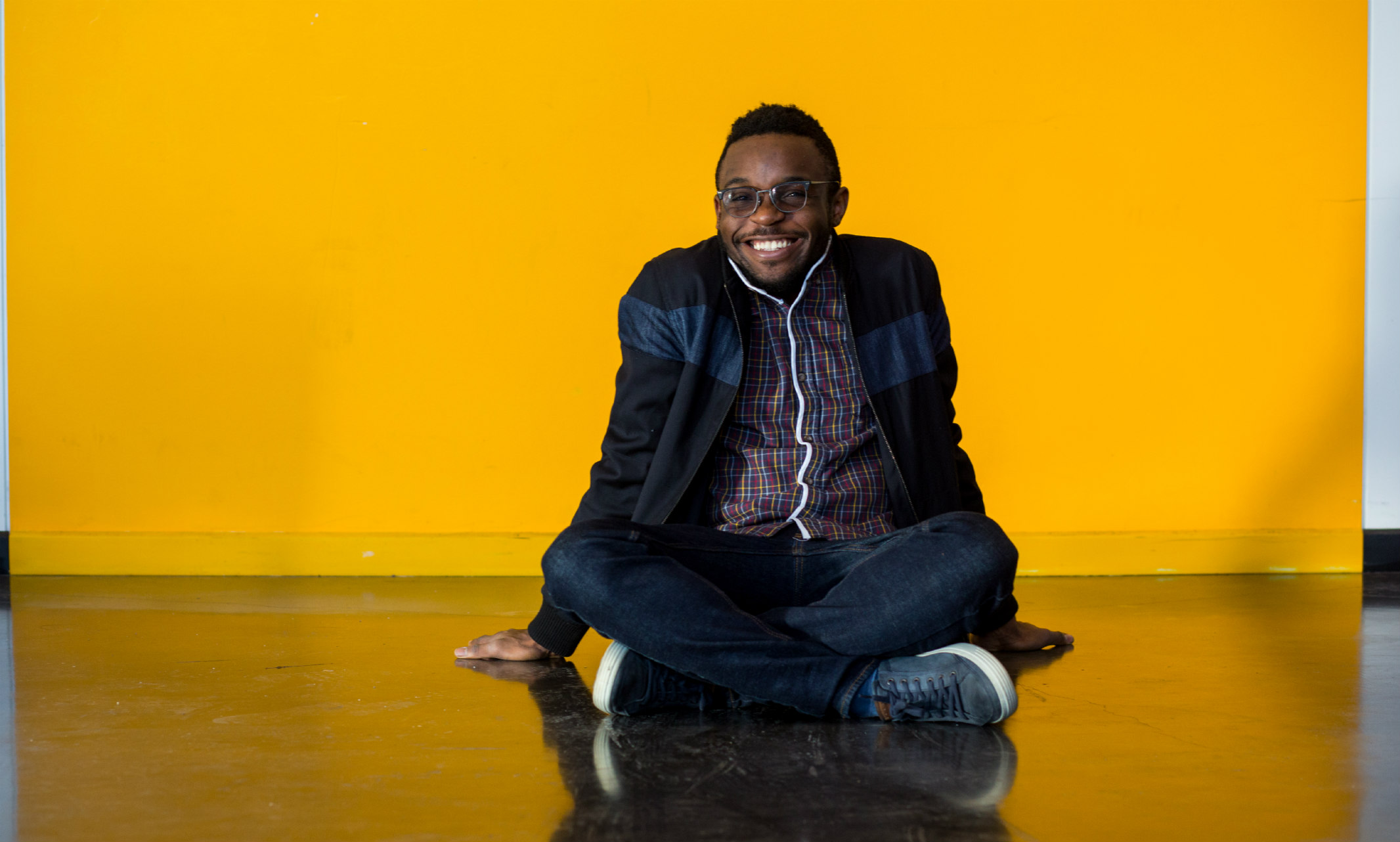
Engineering major Joshua Koni is coping with the challenges
As students and faculty are adjusting to online classes, socially isolating and the advantages and challenges of learning and socializing via Zoom, Joshua Koni, a current international student ambassador had to make the decision to stay in Kansas City or return to his home in Cameroon in central Africa. He decided to stay and is making adjustments as he juggles school and the separation from his family and friends.
How have you been adjusting during the transition?
I am trying to stay positive. My situation could be so much worse. I was in an apartment with a roommate and I had about a week to decide if I should go home, stay with my roommate or move in with my host family. I’ve known them for the last five years and they are great. It was hard to know what to do, but I decided to stay with my host family. Now I’m living in a house with nine people.
How have you been managing?
It’s been fine. For a while, we were taking turns going to the grocery store, so we had the opportunity to get out a little. But as we had more information we were concerned about the virus spreading further with the more people who are out. Now we’re having groceries delivered and are pretty much home all the time.
Being isolated is challenging. How are you handling it?
Mostly, I feel very lucky. Some international students could not find families to stay with in the United States. Online school and Zoom classes are a significant adjustment.
"It was hard to know what to do, but I decided to stay with my host family. Now I'm living in a house with nine people." - Joshua Koni
What’s working for you?
First of all, I’m glad we have Zoom! It’s been a good tool for me and I am mostly finding the resources that I need. I know that some of my teachers are using Zoom for the first time. We are all working through the challenges.
What’s the biggest adjustment?
The lack of interaction is difficult. Sometimes I am recording classes and watching them later. It gives me the opportunity to move through things I know and focus on new information.
What’s your most significant personal challenge outside of school?
Isolation from my fellow students and friends. A lot of my friends are international students who went home, but I was able to talk to one of my friends who had gone back to France. She said she’s also struggling with motivation.
Does the situation make you anxious?
Yes. It’s especially difficult because we don’t know how long we’ll be in this situation. I know it’s been hard for some of my friends to stay home and isolate. Spring break – when we did not have classes – was even more challenging.
"I think we need to remember that we are in this together."- Joshua Koni
How are you managing that anxiety?
Part of it is just not having enough to do to stay busy. I play guitar and I’ve been coloring this map, which has been a good way to spend time. I’m not much of a gamer, but I am giving it a try with my host family. It’s a good way to spend time with them.
I’m in touch with my family back home, which also helps. They are doing well. They haven’t had the order to stay home, so their life isn’t that different.
You were responsible for volunteers for Culture Night, one of the largest events, this year. It must have been disappointing when that had to be cancelled.
Yes, it was something that I really enjoyed doing. It seemed like a full-time job planning it, but it felt good to be a contact person for the new students. A lot of students – not just international students – look forward to the festival. But once we became aware of how things were escalating in New York, we were concerned about the number of people who might be exposed. We are hoping we will be able to reschedule early in the fall semester next year. We haven’t gotten a decision on that, but that would be ideal.
You are in a safe place and have good support systems. Do you have any advice for other students on handling this situation?
I think it’s good to be conscious that this is a hard time. Sometimes I feel guilty in one sense – because I had options – but I am so grateful. I think we need to remember that we are in this together. It’s been great to see the emergency funds that the university and the Student Government Association have raised. People shouldn’t hesitate to take advantage of those if they need them.
And I think it’s a good idea to have fun when you can. There’s nothing wrong with a virtual happy hour!
My hope for other students is to remain positive and hopeful during this time, find something to do in addition to doing schoolwork and stay connected with organizations. Video call friends and family members, get enough sleep, work out with a friend virtually, start a puzzle or board game, paint something, play an instrument, bake some bread. Above all, play your part in slowing the spread of the virus by washing hands and staying home.
Apr 06, 2020
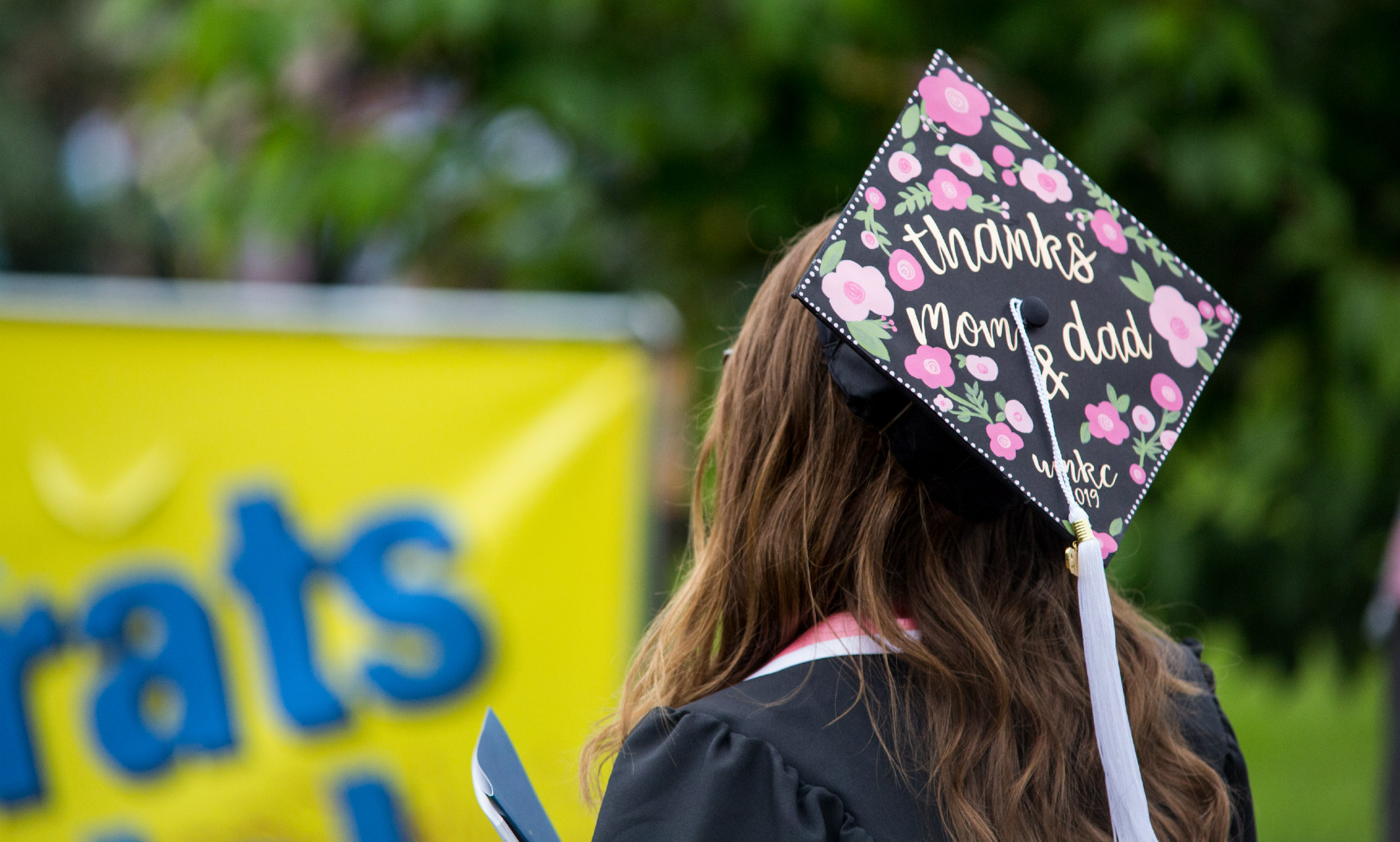
Students will also have opportunity for-in person celebration in December
The University of Missouri-Kansas City is planning a virtual commencement for May graduates, with details to be influenced by a survey of graduates and their families.
The decision is in keeping with the announcement by the University of Missouri System that all four UM universities were postponing in-person spring commencement exercises, with each university making individual plans to celebrate graduates.
UMKC will conduct a two-pronged commencement celebration, with May graduates invited to participate in both the virtual commencement in May and to walk the stage in traditional cap and gown in December.
All students who completed requirements for graduation will still have degrees conferred upon the regular schedule.
In a letter to pending graduates and their families from Chancellor Mauli Agrawal and Interim Provost Jenny Lundgren, they said: “We know what a treasured tradition and milestone commencement is for our graduates who have worked long and hard for their diplomas. At the same time, we must address the need to keep our campus community, as well as our graduates’ families and loved ones, safe and healthy.”
“In May, we fully intend to find a fun, creative way to celebrate graduation and commencement virtually, with survey input from our graduates,” they wrote. “In December 2020, we also will plan to host our biggest in-person commencement celebration ever, inviting May and December grads to march across the stage and receive their diplomas.”
The campus is planning virtual ceremonies for each school with recorded speakers, special mailings, messages and more to ensure students have a celebration worthy of their accomplishment.
Apr 02, 2020
Even though they can't physically come to school, they can still feel part of the community
UMKC's Moriah Stonehocker, a student teacher at J. A Rogers Elementary in Kansas City Public Schools, and Jennifer Waddell, director of the Institute for Urban Education at UMKC, were interviewed on KCUR regarding teaching in online classrooms.
Apr 02, 2020
Program has funded 129 projects, helped create more than 65 companies
DigitalSandbox KC awards grants to early-stage entrepreneurs and connects them with mentors and other resources to transform ideas into viable businesses. "Now, more than ever, we need to support our early-stage companies with programs like Digital Sandbox KC," Jill Meyer, senior director of technology ventures at the UMKC Innovation Center.
Kansas City Business Journal
Startland News
Apr 01, 2020
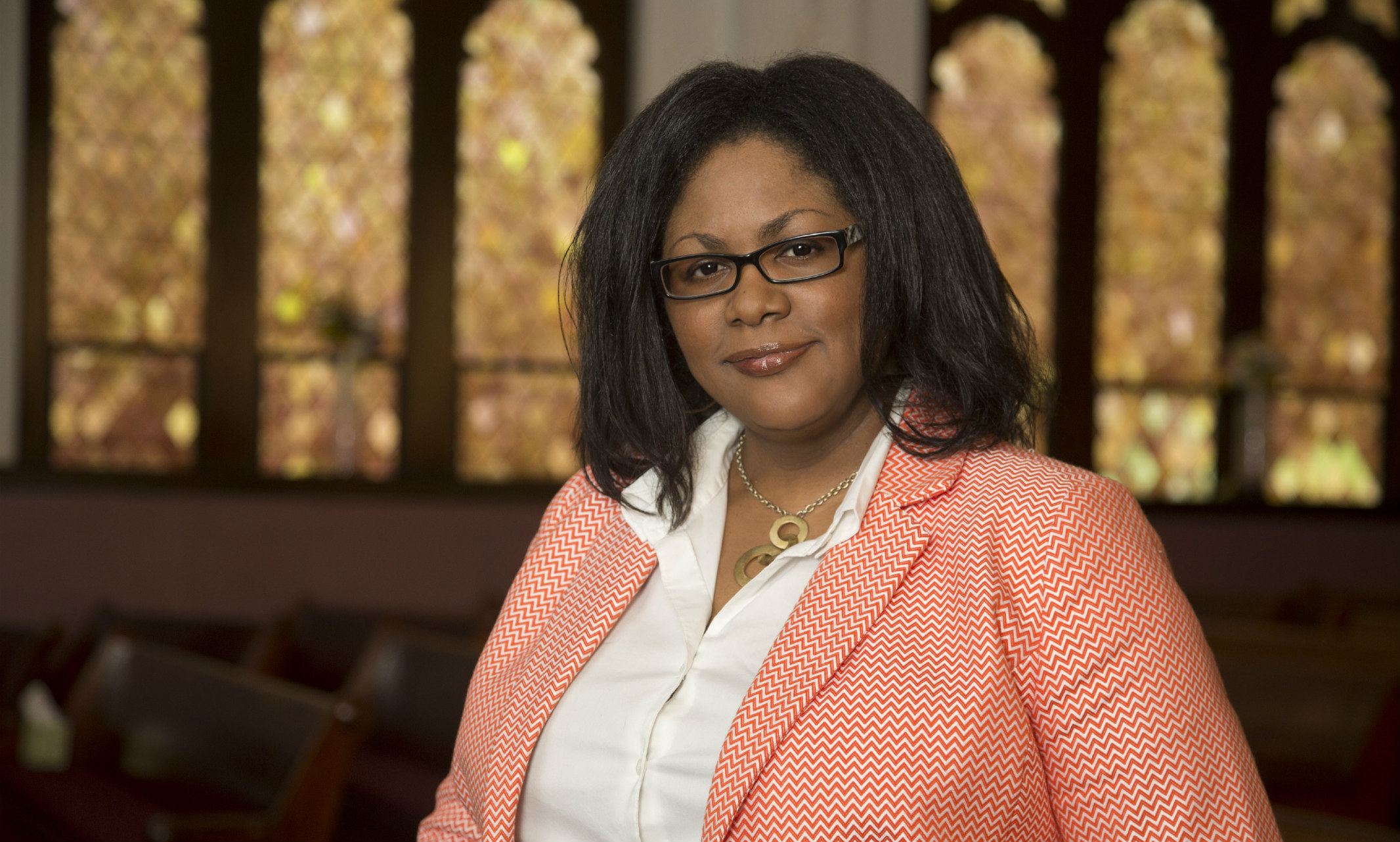
Jannette Berkley-Patton will focus on overcoming health barriers with African Americans
The National Institutes of Health awarded a $3.3 million grant to Jannette Berkley-Patton, professor, at the University of Missouri-Kansas City School of Medicine, to help improve diabetes prevention outcomes with African Americans.
“This is an extension of what we’ve been doing in the School of Medicine with Project FIT, which stands for Faith Influencing Transformation” says Berkley-Patton, Ph.D., director of the UMKC Health Equity Institute and the Community Health Research Group. With Project FIT, nearly 900 people have participated in the program and more than 200 medical, physician assistant, nursing and health studies and psychology students have been trained as FIT health coaches to help deliver the program.
At UMKC, Berkley-Patton has won other significant grants that focus on improving the health of African Americans, and each centers on health inequities and community-engaged research with African American community-based organizations, including places of worship because of their cultural importance. This new five-year grant, which starts on April 1, will include similar strategies. To date, Berkley-Patton’s work has been supported by more than $10 million in federal grants over the past 14 years.
The grant will tailor the Centers for Disease Control and Prevention’s National Diabetes Prevention Program, an evidence-based lifestyle change intervention, with 360 African American pre-diabetic participants recruited from Truman Medical Centers. The program includes 22 group sessions that take place over one year and primarily focuses on eating healthier and exercising regularly.
Preventing diabetes can help stave off other associated chronic health issues including blindness, kidney failure and heart disease.
People who participate in the CDC program aim to lose 5 to 7 percent of their body weight and exercise 150 minutes per week, which have been shown to reduce the risk of diabetes by up to 60 percent. The program has also been found to outperform pre-diabetes drugs such as Metformin.
However, African Americans typically don’t fare as well, especially women and those with low incomes. Some of the issues include barriers such as cost of the program, transportation, childcare, access to healthy food and places to exercise. These barriers are often referred to as social determinants of health.
“With the grant, we’re trying to address every barrier related to social determinants,” Berkley-Patton said. “The most successful outcomes are correlated with attending the sessions – the more sessions attended, the better the outcomes.”
The grant will support linking Truman Medical Centers patients to FIT Diabetes Prevention Program classes in their home communities via church, community center or neighborhood association settings. The program will be culturally-tailored for African American adults. The program is at no cost to the participant – typically it costs $450 per year. In addition to Truman Medical Centers, program partners include several urban Kansas City churches, Calvary Outreach Network, YMCA, Chestnut Resource Center, KC Care Health Center, Children’s Mercy and the University of Kansas.
Although the grant begins this week during a pandemic that has Americans sheltering in place and working from home, the first year of the grant is a planning year.
“With this grant, we are looking forward to further refining our current Project FIT program to have trained UMKC students and community members working side-by-side as FIT coaches,” says Carole Bowe Thompson, project director, UMKC Community Health Research Group.
The program will be launched by this time next year.
“We are looking forward to getting started,” Berkley-Patton said. “We want to show participants that here’s a premiere program designed just for you.”
Mar 31, 2020

Marjorie Sirridge, M.D., was a champion for women in medicine and a fixture at the UMKC School of Medicine
In recognition of Women’s History Month, we are recounting the impact of women in STEM at UMKC.
A deep appreciation for medical humanities and an emphasis on empathy and compassion for her patients were hallmarks of Marjorie Sirridge, M.D. They are also bedrocks of the curriculum at the UMKC School of Medicine, where Sirridge was a fixture from time of its inception until her death.
Sirridge earned her medical degree in 1944, graduating first in her class from the University of Kansas School of Medicine. She dropped out of medicine for a time when told it was improper for women to become pregnant while doing their post-graduate residency.
She later returned to medicine and had worked for more than a decade in private practice and on faculty at the University of Kansas School of Medicine when she and her husband, William, received a new calling. They were recruited to serve as two of the three founding docents for the new University of Missouri-Kansas City School of Medicine when the School opened in 1971.
Sirridge spent the remainder of her career in numerous leadership roles at the school including a tenure as dean. While serving as a docent, Sirridge established the UMKC Program for Women in Medicine to help female students and physicians succeed in a male-dominated system. Due in part to her influence, the UMKC School of Medicine boasts one of the highest rates of female students among the country’s co-educational medical schools.
Longtime School of Medicine Dean Betty M. Drees, M.D., remarked following Sirridge’s death in 2014 at the age of 92, how Sirridge had enriched those around her.
“We have all been extremely privileged to have worked with Dr. Sirridge for many years and have been enriched by her tremendous wisdom and guidance,” Drees said. “Her contributions to the School of Medicine are many and are sure to have a lasting and positive impact on future generations of physicians.”
Sirridge was honored in 2010 by the Foundation for the History of Women in Medicine with the Alma Dea Morani, M.D., Renaissance Woman Award. In 2003, the National Institutes of Health’s National Library of Medicine (NLM) created a traveling exhibit called Changing the Face of Medicine: Celebrating American Women Physicians. Sirridge was one of the pioneering women included in the exhibit that now exists online to honor the achievements of women who excelled in their medical careers.
Marjorie and William Sirridge endowed the Sirridge Office of Medical Humanities and Marjorie Sirridge became its first director in 1992, building a program of courses in medicine and the humanities that other medical schools in the country have copied. She later endowed a professorship in medical humanities.
In 2011, the Kansas University Women in Medicine and Science organization established the annual Marjorie S. Sirridge, M.D., Excellence in Medicine and Science Award.
“There have been many ups and downs,” Sirridge said in her Changing the Face of Medicine biography. “But I have never felt that I made the wrong decision when I decided to be a physician.”
Mar 31, 2020
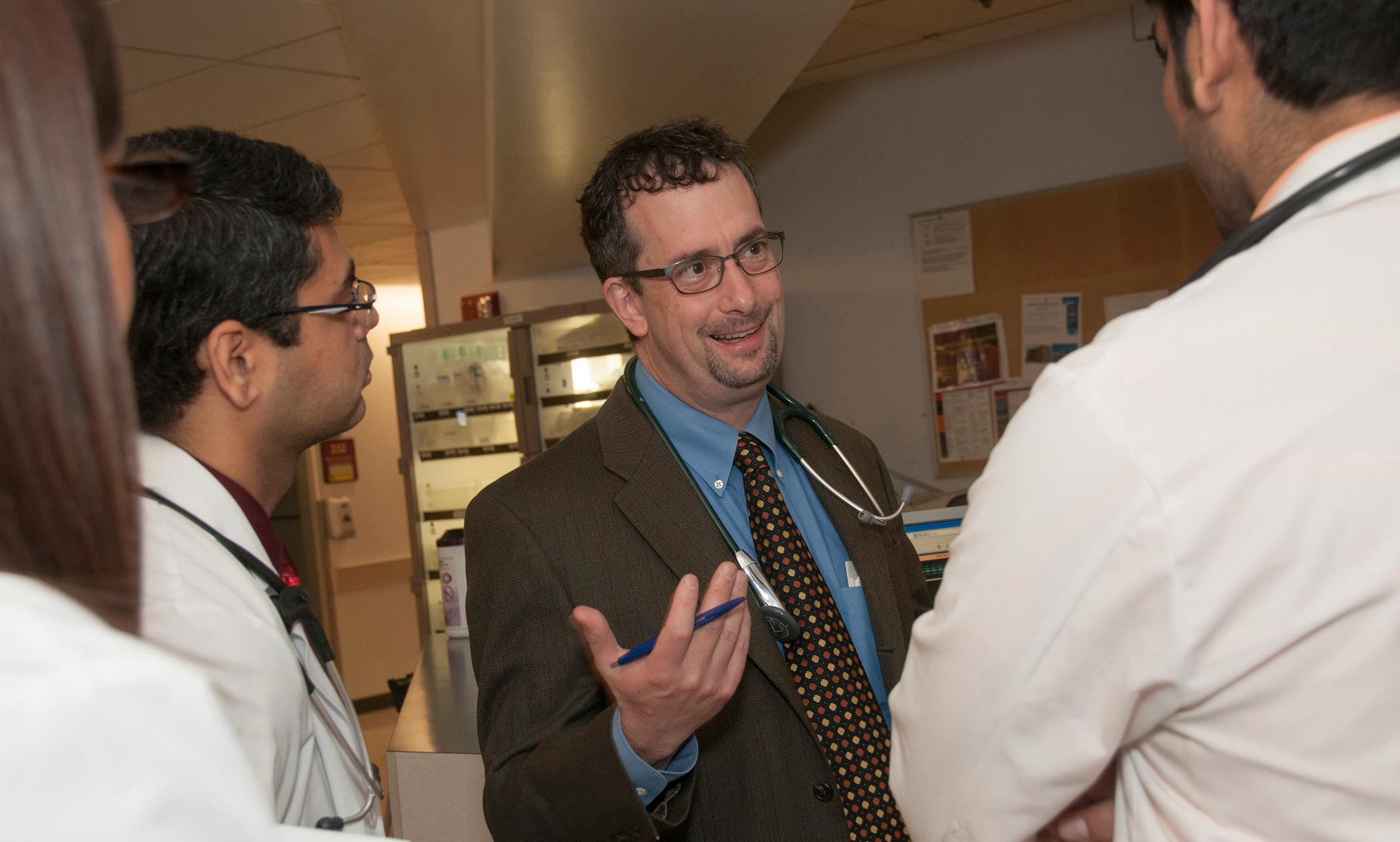
John Spertus is renowned for his work in cardiac outcomes
UMKC School of Medicine researcher John Spertus, M.D., M.P.H., is part of two large NIH-funded clinical studies published Monday, March 30, in the New England Journal of Medicine. The studies indicate eliminating unnecessary surgeries for cardiac patients could save the United States hundreds of millions of dollars annually.
Spertus serves as professor of medicine and is the Daniel J. Lauer, M.D., Endowed Chair in Metabolism and Vascular Disease Research at the School of Medicine, and Clinical Director of Outcomes Research at Saint Luke’s Hospital.
The studies looked specifically at coronary-artery disease patients who had high-risk blockages with at least 10 percent or more of the heart muscle being at risk. One focused on patients with preserved kidney function and the other targeted patients with end-stage kidney failure. That latter group has largely been excluded from almost all cardiovascular trials, despite having a high prevalence of coronary artery disease and death, Spertus said.
Both studies, conducted in unison, examined the most important outcomes for patients, hospital visits (including heart attacks and death) and patients’ symptoms, function and quality of life. Participants were randomized to undergo invasive angiography and surgeries with aggressive medical therapy or aggressive medical therapy alone. The goals of the medical treatment were cholesterol reduction, blood pressure control, aspirin and medications to treat chest pain.
The studies in patients with preserved kidney function showed that invasive medical procedures provided no reduction in hospital visits, but did improve patients’ symptoms and quality of life, if they had chest pain within a month of entering the trial. These health status benefits were evident within three months and sustained out to four years.
“Importantly, this benefit was only observed in patients who had angina, chest pain, and not in asymptomatic patients,” Spertus said. “There is no indication for these procedures in patients whose symptoms are well-controlled with medications alone. If we avoided revascularization in asymptomatic patients, we could potentially save about $500 million to $750 million a year in the United States alone.”
Among patients with very severe kidney disease, there was no significant difference in hospital visits or in patients’ symptoms and quality of life.
“While disappointing, this is a very ill patient population for whom an aggressive, invasive treatment strategy does not seem to offer much benefit,” Spertus said.
The NEJM published four papers from these two studies, one for each trial focusing on the clinical events and another for each trial focusing on the quality of life outcomes. Spertus was involved in writing all four and is the lead author on the two quality of life papers. He and his team designed, analyzed and led the health status, quality of life components of both trials.
Spertus is the author of the Seattle Angina Questionnaire (SAQ) that used in the studies. It is widely recognized throughout the world as the gold standard for quality of life measurement in cardiac medicine.
“Our group has led its use and analyses in multiple studies and quality improvement efforts,” Spertus said. “In light of these findings, the SAQ may start becoming a routine part of clinical care in cardiology.”
Mar 30, 2020
Cancer and then a cancelled senior season couldn't keep the resilient UMKC golfer down.
From a last-minute scholarship to a cancer diagnosis, chemotherapy and then coronavirus precautions cutting his last season short, the UMKC golfer's story took many twists and turns. "You just have to keep a positive mindset and have faith," he said, "succeed and have fun every single day because you never know what’s going to happen." Read the Golf Channel's profile of Sam.
Mar 28, 2020
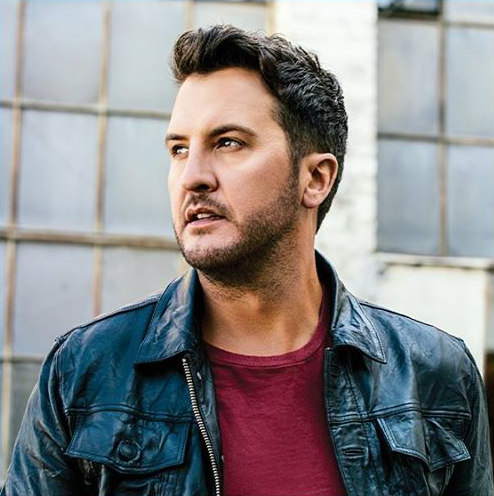
Country music superstar makes gift to student emergency fund
Country music superstar Luke Bryan has donated $8,000 to a new emergency fund set up to help students at the University of Missouri-Kansas City cover unexpected expenses related to returning home, food, housing and other issues stemming from the coronavirus epidemic.
The donation came from the proceeds from Bryan’s annual Farm Tour. Bryan typically makes contributions to colleges and universities near Farm Tour stops. Bryan was scheduled to perform at a farm in Louisburg, Kansas in October 2019, but the concert was moved to the Sprint Center due to weather issues.
“UMKC is extremely grateful for the gift provided by the Luke Bryan Farm Tour in helping launch our emergency support for our students,” said Lisa B. Baronio, chief advancement officer and UMKC Foundation president. “Luke Bryan represents the values of many in the Heartland and has always generously supported the communities where he has performed.
“Many of our students are strongly impacted by this pandemic and are in need of resources such as food, funds to travel home, and even support to pay their bills,” Baronio continued.
“Students often work in the service industries that have shut down, including restaurants and retail stores, and need your help. Within the first 24 hours of launching this site, multiple students have reached out asking how they can apply for a micro-grant. We encourage you to do what you can to help our students during this challenging time.”
Bryan has been named "Entertainer of the Year" by both the Academy of Country Music Awards and the Country Music Association.
Learn more about donating to the Student Emergency Fund.
If you're a student who is in need of aid, learn more about how to apply for emergency funding.
Mar 27, 2020
Caroline Davies, head of Environmental Studies at UMKC, said there has been a change in pollution.
“If there’s a bright side to this pandemic, it’s I think we can learn a lot about climate change and how to address it,” Davies said. “Because, until now, there’s been no urgency the way a pandemic has a whole lot of urgency.” Catch her interview with KCTV-5 here.
Mar 27, 2020
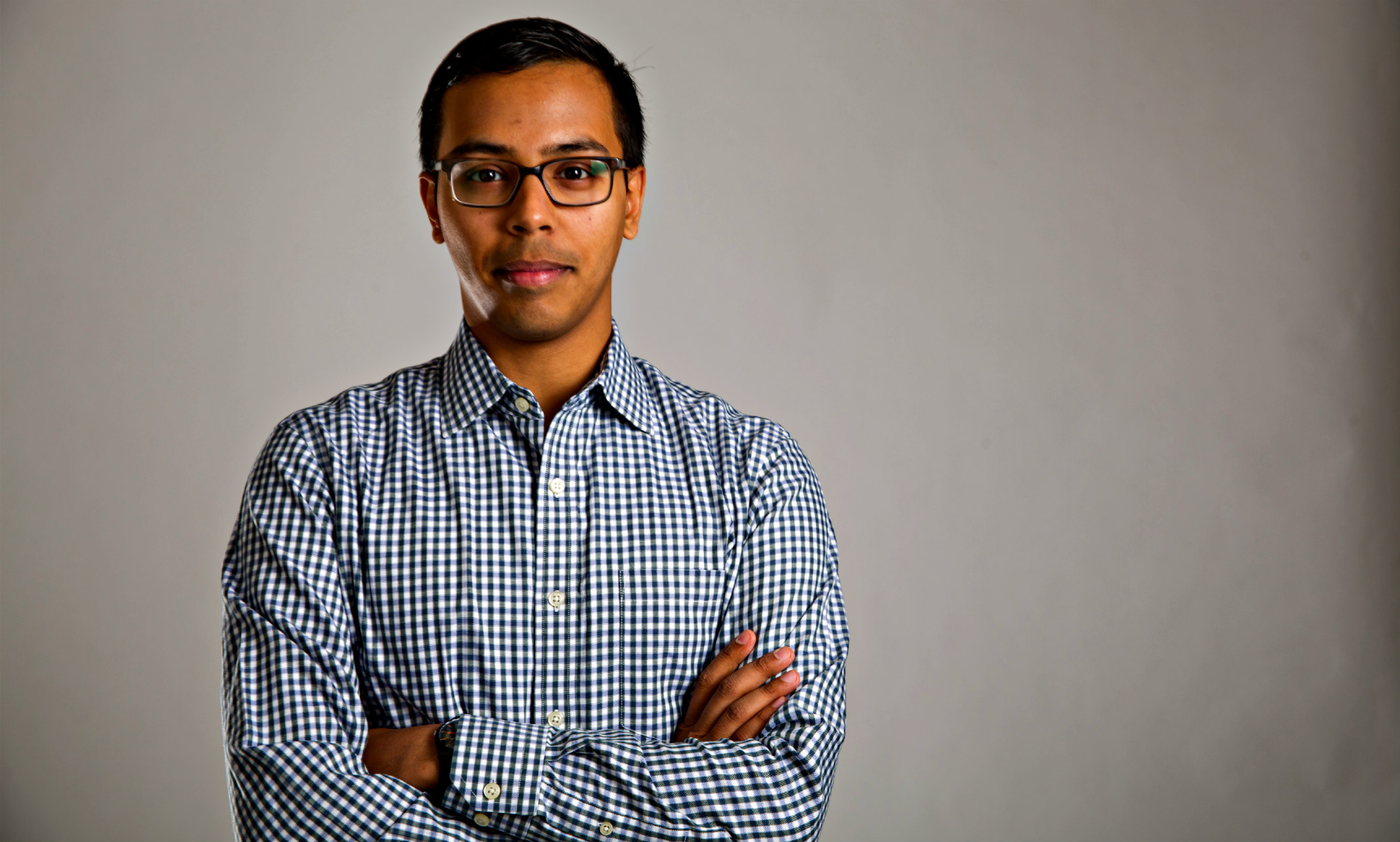
Riddhiman Das (B.S.C.S ’12, M.S.C.S. '19) is part of a Kansas City team developing White House-endorsed app designed to track users’ locations
From student entrepreneur to product architect for Kansas City’s renowned EyeVerify (now Zoloz) to co-founder and CEO of six-month old digital startup TripleBlind, School of Computing and Engineering graduate Riddhiman Das has set off on yet another groundbreaking venture that, this time, could help solve the global COVID-19 pandemic.
The seven-member TripleBlind startup was recently featured in Startland News following the White House’s expected endorsement of a new coronavirus tracking app, Private Kit, they designed to help the government keep tabs on where the contagious disease is spreading while maintaining the privacy of everyday citizens.
“Solutions for COVID-19 are top-down. The government wants to track everything from where you’ve been to who you’ve encountered, but that can be overreaching,” Das said. “Our team wanted to install citizen-first private tracking to keep users’ data private while still helping to track the virus.”
Private Kit is a voluntary app that smartphone users can install to track where they’ve been in recent days without having to rely solely on their memories. Should they need to get tested, they can choose to make their data available for health experts to determine if they need to test others as well. Das said the added benefit of the app is that if users decide not to download it immediately, they can do so later and allow it to import their location data from Google or Apple maps applications.
In addition to the White House, foreign governments around the globe are also endorsing the use of Private Kit, as well as, the city of Kansas City, Missouri; Boston; Washington, D.C.; the World Health Organization; the Department of Health and Human Services and the Centers for Disease Control.
TripleBlind enables entities to safely provide and consume sensitive data and algorithms in encrypted space, without compromising privacy or security. The company worked on 100% of Private Kit’s development until recently when they began working with students from Harvard and the Massachusetts Institute of Technology to help bring the app to life.
Das credits his career successes to his student experiences at UMKC.
“UMKC has been phenomenal,” Das said. “I wouldn’t be where I am today had it not been for Bloch E-Scholars or the skills I learned at the School of Computing and Engineering and Zoloz, which also started at UMKC.”
His advice for students following his footsteps?
“Optimize your resume. Do a lot of internships. And a variety of them so that you can diversify your experiences.”
Mar 26, 2020
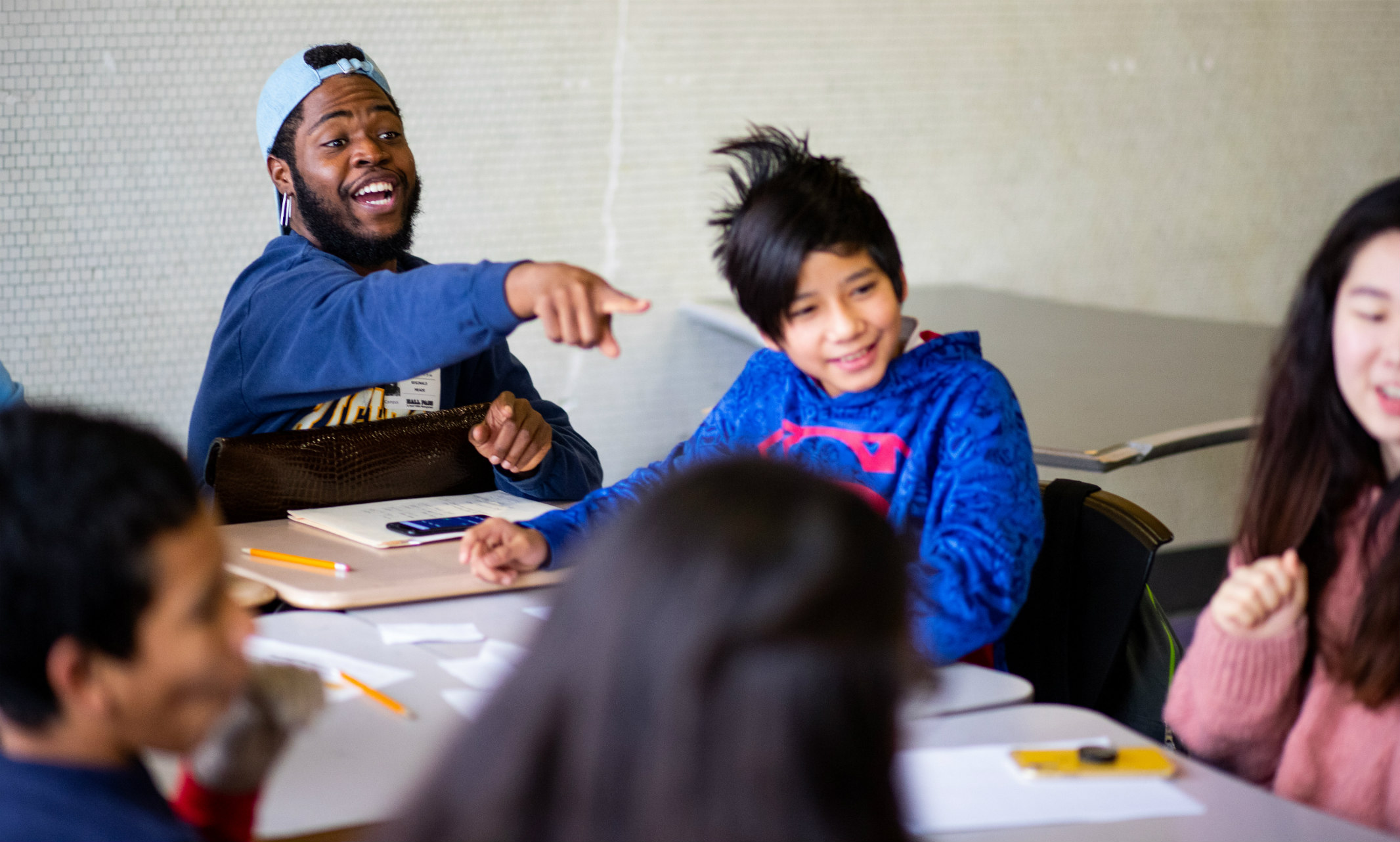
The Institute for Urban Education kicked off a $15 million capital campaign to help support enrollment growth and programming additions for student...
The University of Missouri-Kansas City School of Education is launching major efforts to expand its Institute for Urban Education, which prepares students and teachers for success in urban classrooms.
The institute recently kicked off a $15 million capital campaign with support of the newly appointed Dean's Fundraising Council, co-chaired by Leo Morton, UMKC chancellor emeritus and DeBruce Companies COO; and Jerry Reece, former CEO of Kansas City real estate agency ReeceNichols.
The $15 million campaign aims to support enrollment growth, programming additions and staff support for the Institute for Urban Education as it works to address the need for more highly motivated, exemplary teachers in K-12 classrooms in greater Kansas City area school districts.
Programming additions include:
Adding a graduate education component to the Institute for Urban Education's existing undergraduate program
Opportunities for career changes — the Master of Arts in Teaching, a four-semester program for people with bachelor's degrees in any area interested in teaching
Additional services to partner schools, professional development in diversity, equity and inclusion and culturally relevant instruction, masters degrees and certifications
Enrollment-growth tactics include:
Grow Your Own: a comprehensive approach to developing pipeline programs for future Institute for Urban Education students/teachers in local K-12 schools. The program aims to add more teachers of color, particularly males, who view urban education as a social justice profession.
Expanded scholarship opportunities, including the Sherman Scholars program, which will provide more than 150, $15,000 annual scholarships over five years to support students in both graduate and undergraduate teacher prep programs.
Staffing additions: new associate director for urban education, 2.5 staff coordinators and a recruiter
“Supporting urban education continues to be a top priority for UMKC,” said Justin Perry, dean of the UMKC School of Education. “The expansion of the Institute for Urban Education provides us unique opportunities to help address the teacher shortage in Kansas City, and help place more well-equipped teachers in classrooms who reflect the population of the students they serve. We are excited to continue working with our partner schools as we support our community's efforts to shape the future of the Kansas City education system it deserves.”
The institute partners with the following greater Kansas City school districts to develop pipeline programs for future teachers: Kansas City Public Schools, Kansas City Kansas Public Schools, Center School District and Hickman Mills School District
Founded in 2005, the Institute for Urban Education prepares and supports teachers for success in urban classrooms by focusing on social justice, multicultural education, diversity and equity. The institute has remained a locally focused program, recruiting students from neighboring communities who want to remain in the greater Kansas City area for their careers.
Mar 26, 2020
UMKC associate professor of finance says, “I think in the short term, the unemployment numbers are probably going to get worse before they get bett...
Nathan Mauck of the Henry W. Bloch School of Management says consumers could be cautious about spending after the pandemic ends. See his interview with KMBC here.
Mar 26, 2020
Mary Daly's bachelor’s degree in economics and philosophy from UMKC helped turn her life around. Master's and doctorate degrees followed.
Now leading the Federal Reserve Bank in San Francisco, Daly credits a counselor and a teacher who both believed in her with putting her on the road to success. She wants to use her position to level the playing field for women in economics and all Americans in every field. Read InStyle's profile of her here.
Mar 26, 2020
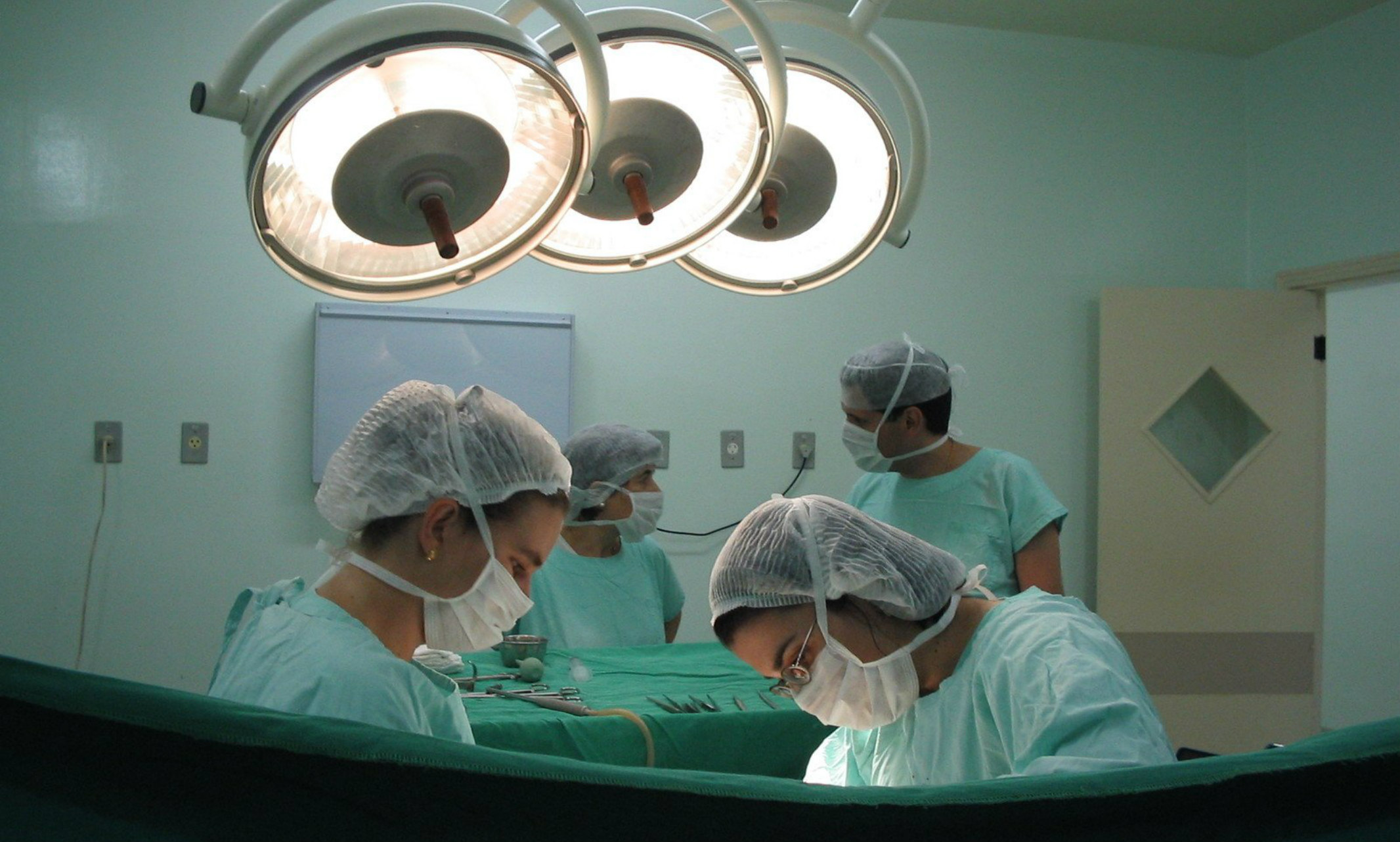
So far, UMKC has found and donated needed PPE to area hospitals
The need for personal protective equipment — called PPE — is one of the most serious challenges facing healthcare workers during the COVID-19 pandemic.
Every healthcare institution in the U.S. has a critical shortage of PPE and no help is on the way in terms of federal stock to replenish the supply. The call to inventory PPE at other sites that have available stock is one way to provide the help needed by hospitals, and that is why the University of Missouri-Kansas City is on a mission to find and share currently unused PPE.
In the latest development in this ongoing effort, the UMKC-based Edgar Snow Memorial Foundation has obtained a donation of 2,000 critically needed face masks from a partner organization in China.
“Since 1974, the Edgar Snow Memorial Foundation has worked to promote friendship and understanding between the U.S. and China. During the current pandemic, at a challenging time for both nations, it is truly meaningful and gratifying for us to learn that our partner organization in Shanghai has generously donated protective face masks to the foundation for us to distribute to areas of greatest need here in Kansas City,” said Jim McKusick, president of the Edgar Snow Memorial Foundation and dean of the UMKC Honors College. “This donation was provided by our partner organization, the Shanghai People's Association for Friendship with Foreign Countries (SPAFFC), a non-governmental organization based in China. It speaks to the deep friendship and mutual respect that exists between the people of the U.S. and China, thanks to the devoted work of many people to build strong and enduring relationships that transcend any cultural or political differences. Such a gift to the UMKC School of Medicine seems especially appropriate because the foundation was originally co-founded by E. Grey Dimond, a key founder of the UMKC medical school and the architect of its unique six-year combined B.A./M.D., who was a good friend of Edgar Snow."
So far, UMKC has located and given more than 20,000 masks, tens of thousands of pairs of gloves and hundreds of gowns to local hospitals.
“What we are doing on the UMKC Health Sciences Campus is working with our colleagues across the university to identify PPE that can be deployed to those hospitals most in need, and we are sharing that precious equipment,” said Mary Anne Jackson, M.D., interim dean at the UMKC School of Medicine.
Jackson, who specializes in infectious disease, is a national expert on the new coronavirus. She said proper PPE is crucial.
"Caring for patients with COVID-19 in our hospitals requires institutions to provide explicit guidance so staff can identify patients that need hospitalization and use all measures to prevent spread to other patients, and to themselves.” - Mary Anne Jackson, M.D.
“As the COVID-19 pandemic engulfs the United States, there are gaps in our scientific knowledge to tell us how many have been infected, and to identify the full spectrum of symptoms and signs. Adequate and reliable testing to help us correctly identify cases has not been widely available,” she said. “Still, the patients come and we care for them. Caring for patients with COVID-19 in our hospitals requires institutions to provide explicit guidance so staff can identify patients that need hospitalization and use all measures to prevent spread to other patients, and to themselves.”
To date, Italy, the hardest-hit country in the world, has seen an enormous number of cases; 20% of those infected are the doctors and nurses caring for the patients, Jackson said.
“Across the country, we are already seeing New York in a desperate situation,” Jackson said. “California, Washington state and now Louisiana, all are seeing a steep uptick in cases that threaten to overwhelm the healthcare system within the next week, and states like ours are only weeks behind unless we strictly enforce social distancing to reduce spread. That is why schools and businesses are closed and our mayor has issued a stay-at-home order. We face caring for patients without bed capacity, ventilators or the PPE needed to keep our workforce safe and operational.”
“What we are doing on the UMKC Health Sciences Campus is working with our colleagues across the university to identify PPE that can be deployed to those hospitals most in need, and we are sharing that precious equipment.” - Jackson, M.D.
Within minutes of being asked if the UMKC School of Dentistry had surplus PPE it could part with, Dean Marsha Pyle and her colleagues rounded up a large inventory of boxes filled with gowns, masks and gloves that are not being utilized as the dental clinics have closed to all but emergency patients.
Later, the UMKC schools of Nursing and Health Studies and Biological and Chemical Sciences also donated. KC STEM Alliance at the School of Computing and Engineering gave 500 pairs of goggles. These were brought to local hospitals where staff said supplies were critically low.
“We do know that everyone wants to help and there has been a grassroots effort to have the community sew cloth masks. A recent study of cloth masks cautions against their use...so these are not the protection that healthcare workers can use in the healthcare environment at this time." - Jackson, M.D.
Students from the UMKC Schools of Medicine and Dentistry led by Stefanie Ellison, associate dean for learning Initiatives at the School of Medicine and Richard Bigham, assistant dean of student programs at the School of Dentistry, are collaborating to identify other sources in the community and coordinating efforts to collect and distribute these vital supplies to local healthcare workers on the front lines. Others in the community that may be willing to donate their supplies include:
Nail, hair, tattoo and piercing salons
Local carpenters and maintenance workers, especially if contracted with apartment complexes, professional painters, drywallers, construction/machine operators, welders
Professional colleagues in veterinary medicine
Others in the local and regional dental community
Warehouses (such as UHaul), mechanics, auto shops
Cleaning services, or any organization that employs janitorial services or cafeterias
Any organization with nursing stations (pools, gyms, schools)
“We are also aware that our colleagues at Missouri S&T have developed a prototype for a face shield and N95 respirators (a protective mask designed to achieve a close facial fit with highly- efficient filtration of airborne particles) that could be mass produced, and we’re actively looking for community resources to do so,” Jackson said. “We do know that everyone wants to help and there has been a grassroots effort to have the community sew cloth masks. A recent study of cloth masks cautions against their use: moisture retention, reuse and poor filtration may result in increased risk of infection so these are not the protection that healthcare workers can use in the healthcare environment at this time."
Shortages of PPE are severe and increasing because of hoarding, misuse and increased demand, according to the World Health Organization. There is clear data that pricing for surgical masks has increased sixfold, N95 respirator prices have tripled and even gown costs have doubled. The governor of New York has criticized the price gouging that prevents him from getting the masks he needs in the most urgent of situations there.
The WHO has shipped 500,000 sets of PPE to 27 countries, but supplies are rapidly depleting and that stock won’t nearly cover the need. It estimates that PPE supplies need to increase by 40%, and manufacturers are rapidly scaling up production and urging governments to offer incentives to boost supplies, including easing restrictions on the export and distribution of PPE and other medical supplies.
This from WHO Director-General Tedros Adhanom Ghebreyesus: "This cannot be solved by WHO alone, or one industry alone. It requires all of us working together to ensure all countries can protect the people who protect the rest of us."
To donate equipment to the UMKC PPE initiative, please email Stefanie Ellison at ellisonst@umkc.edu and Richard Bigham at bighamr@umkc.edu.
Mar 25, 2020
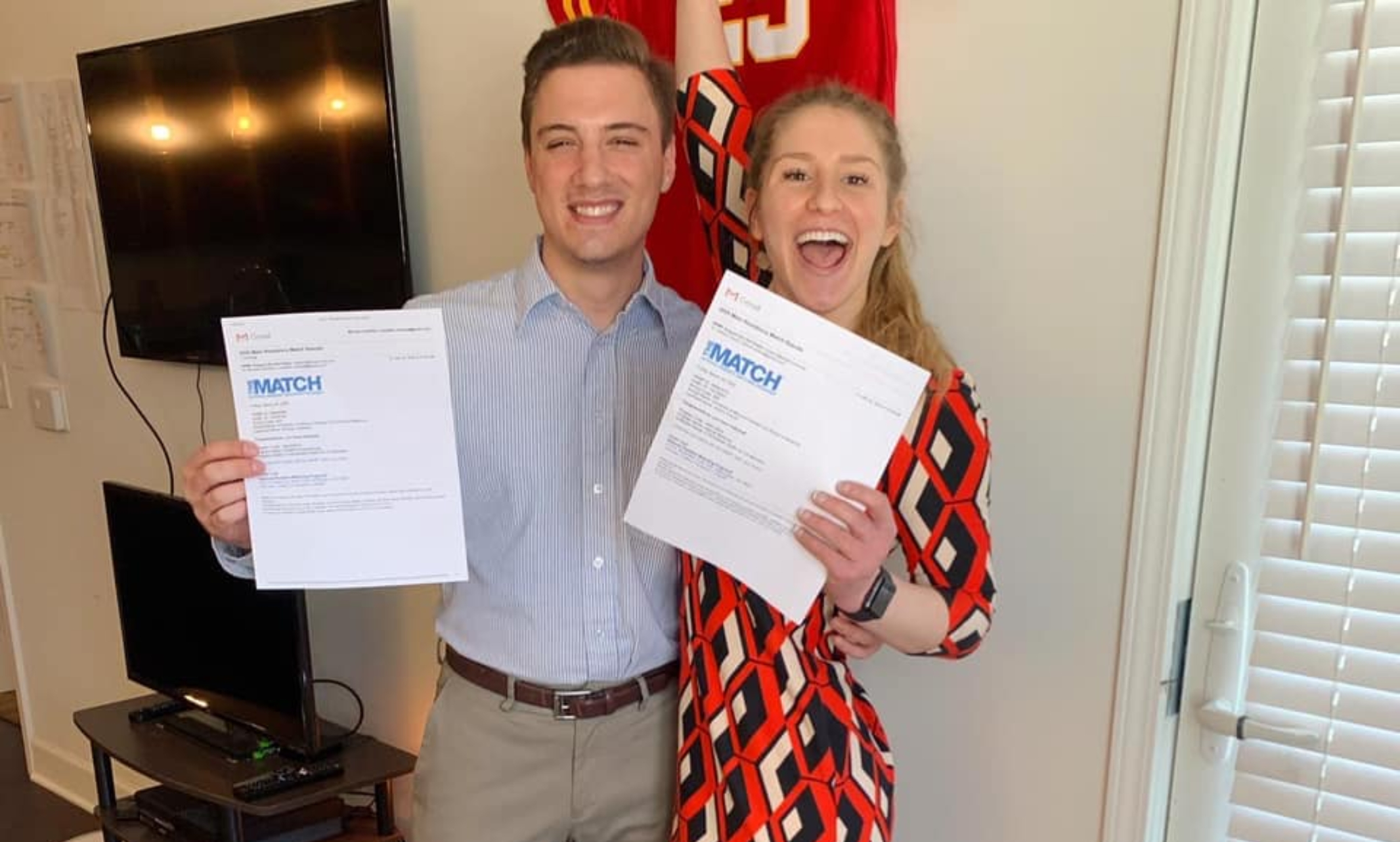
School of Medicine conducts virtual Match Day celebration
Match Day 2020 was like no other. Because of coronavirus concerns, the usual bustle bordering on bedlam at the School of Medicine was replaced by quiet, empty hallways.
There also was a video-streamed and email presentation of where the more than 100 graduates-to-be will serve their medical residencies, leaving them to smaller individual celebrations.
Interim Dean Mary Anne Jackson, M.D., addressed students, their families, faculty and friends with a video message. She congratulated the UMKC Class of 2020 for its hard work of the past six years and called Match Day a rite of passage that is this year all the more significant in light of the pandemic gripping the nation.
“When facing pandemics in the past, physicians have recognized a professional duty to care for patients, even in these difficult circumstances,” Jackson said. “That is why today I emphasize the human side of medicine. Today you promise to commit to put patients first, to always try to be worthy of the privilege of caring for patients, and that you will continue to pursue the education that ensures the care you provide is cutting edge and the best practice.”
Students and their residency matches were revealed as part of the on-line video production.
Just more than half of the UMKC class will be headed to a primary care residency in internal medicine, family medicine, obstetrics/gynecology, or pediatrics. That exceeds the national average and is in line with the school’s mission to provide primary care for the Kansas City area, Missouri and the rest of the Midwest.
While students celebrated at home, some took to social media to share their good news. Student couple Mike VanDillen and Ariana Foutouhi were excited to find that they matched together. See their post below.
The students won assignments in 27 states and the District of Columbia, from Massachusetts to Hawaii and California to Florida. Missouri had 31 of the placements, followed by 11 in Illinois, 10 in Florida, eight in Texas, five in Kentucky and four each in Kansas and California.
And, as usual, some are headed to the top names in medicine, including Mayo, Stanford, the Cleveland Clinic, Harvard, the University of Chicago and UCLA. Twenty-two will stay at UMKC and its affiliate hospitals; a baker’s dozen will be elsewhere in Missouri and Kansas.
Internal medicine was the top category with 39 placements — eight of whom will move on to sub-specialties after a year — followed by 14 in pediatrics or medicine-pediatrics, nine in family medicine, seven in general surgery, six each in anesthesiology and emergency medicine, and five in obstetrics/gynecology.
Jackson said in her message that the soon-to-be residents will join the front line of physicians and health care professional across the country playing a key role in caring for patients and responding to the current health crisis.
“Know that you as resident providers will take the knowledge you’ve learned here, that you will be a partner in the preparation and response that is critical at this time, that you will be the calm that stabilizes those who are afraid, and that you will be the kind, compassionate physician that is the hallmark of our School of Medicine,” Jackson said.
“Congratulations as we celebrate with you today, Match Day 2020.”
Mar 23, 2020
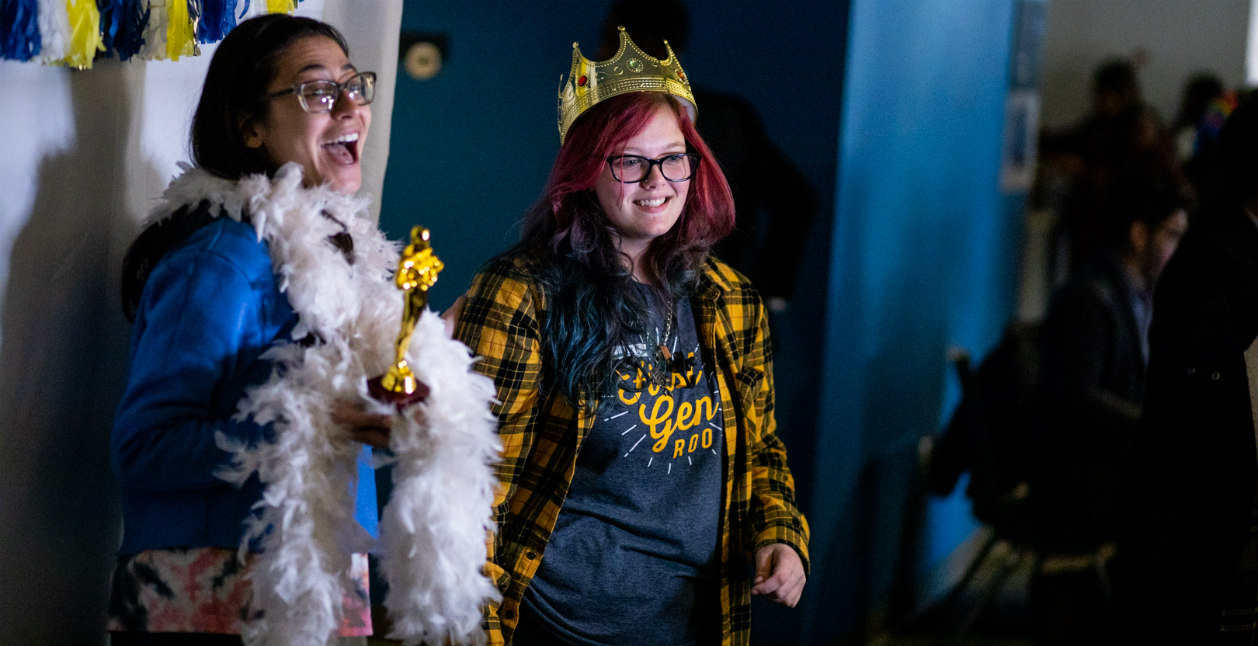
First-gen Forward designation recognizes universities that improve experiences and advance outcomes of first-gen students
The University of Missouri-Kansas City has been included in the 2020-21 cohort of First-gen Forward Institutions in recognition of its efforts to support first-generation students.
The First-gen Forward is a designation given by the Center for First-generation Student Success, an initiative of NASPA – Student Affairs Administrators in Higher Education and the Suder Foundation. The designation recognizes colleges and universities that have demonstrated a commitment to improving experiences and advancing outcomes of first-generation college students. Selected institutions receive professional development, community-building experiences, and a first look at the Center’s research and resources. About 40 percent of current UMKC undergraduates are first-generation college students, defined as those who do not have a parent with a college degree. UMKC initiatives for first-generation students include a First Gen Roo program designed to increase student success and satisfaction, with targeted goals for GPA, retention and graduation rates. Program goals are to facilitate campus navigation and integration, academic preparation and success (expectations, time management, note-taking, study skills, test-taking strategies); and social preparation (decision making, financial literacy, culture of higher education and strategies for success). The program begins with a week-long First Gen Roo Summer program immediately prior to the start of the fall semester which include early move-in, meals, resource workshops, academic sessions, one-on-one meetings with program staff, social events and more. During the fall semester, first generation peer mentors provide additional support in meeting the program goals. The program was pioneered by the College of Arts and Sciences and will be expanded to all UMKC academic units in Fall 2020. The university was also cited for the First Gen Proud program, a campus-wide initiative for first generation faculty, staff, alumni, and current students as well as supporters who were not first gen themselves, designed to recognize and celebrate the supportive, energetic, and inclusive first-generation community at UMKC. “Now in its second year, First-gen Forward institutions continue to lead the nation by their commitment to first-generation student success. The 2020-21 cohort consists of diverse institutions across the nation and we are pleased to welcome UMKC for their long-term commitment and demonstrated strategies for scaling first-generation student initiatives,” said Sarah E. Whitley, senior director of the Center for First-generation Student Success. UMKC Chancellor Mauli Agrawal said support for first-generation students is a key component of the mission of UMKC.“We respect our first-generation students as trailblazers for their families and communities,” Agrawal said. “Their success is our community’s success, and as Kansas City’s only public research university, we play a critical role in enabling and empowering that success.”“First-gen Forward is an exciting opportunity for UMKC to join an elite community of professionals prepared to share evidence-based practices and resources, troubleshoot challenges, generate knowledge, and continue to advance the success of first-generation students across the country. We are excited to see a groundswell of activity from the First-gen Forward cohort and know that UMKC will be a significant contributor,” said Kevin Kruger, president and CEO of NASPA.
Mar 23, 2020

The place for entrepreneurs offers a hotline, help and advice
The UMKC Innovation Center is always a go-to for small-business owners and entrepreneurs, and with the COVID-19 pandemic, it is now more than ever.
The center, which includes KCSourceLink and the Missouri Small Business Development Center (SBDC) at UMKC, has added resources to help businesses throughout the coronavirus outbreak.
Looking for funding updates and business help during the coronavirus outbreak? KCSourceLink has created a portal of business resources to help business owners navigate these challenging and uncertain times. Updated regularly.
In fact, the Small Business Administration (SBA) Economic Injury Disaster Funding became available for businesses in Kansas and Missouri on March 21. Call the KCSourceLink hotline at 816-235-6500 or email info@kcsourcelink.com to get connected with resource partners that can help complete paperwork and answer your questions.
Are you an entrepreneur? Take this survey from KCSourceLink to help community leaders and decision makers assess your needs and activate resources during the coronavirus outbreak.
The Missouri SBDC at UMKC continues to offer online classes to help entrepreneurs and business owners start businesses and navigate challenges.
“Typically, economic recessions trickle down to small businesses, but with this situation, restaurants and retailers are on the front end,” said Maria Meyers, executive director of the UMKC Innovation Center and founder of KCSourceLink and SourceLink. “Even when their doors might be closed, we’re here to keep financial advice and resources open.”
Entrepreneurs and small businesses create 58% of net new jobs in the Kansas City metro area. These are young and small firms with fewer than 20 employees. According to the the KCSourceLink survey data so far, our small businesses are hurting right now.
75% need financial assistance.
60% are worried about revenue dropping.
15% are concerned they may have to close.
What consumers can do to help small business right now:
Buy curbside lunch/dinner from local restaurants.
Shop local – buy gift cards, order online
What government officials can do to help small businesses right now:
Provide immediate financial support that enables small business to continue paying their employees – consider community/corporate supported short-term grants
Help small businesses manage cash flow by delaying tax payments
Extend benefits to solopreneurs
What Kansas City area entrepreneurs are saying:
The pressure to adapt quickly is immense.
Our cashflow depends on clients coming in every day, there is no reserve.
We have had to close up shop and file for unemployment.
We adjusted our food service offering to delivery/pick-up/to-go only and this week had to close up completely.
We won’t be in business without capital help.
We will have to find online work to support ourselves and our business, leaving us unable to gear this back up when the virus has run its course.
Once things settle down, my clients will likely be busy recovering and they may have to adjust their budgets which may cut my work.
Mar 23, 2020
Amid coronavirus concerns, dentistry comes to a near standstill.
Kansas City area dentists -- many graduates of the UMKC School of Dentistry -- suspend their elective procedures, as do the clinics at the school. Read about the shutdown and their concerns here.
Mar 23, 2020
Creative group tackles how the coronavirus is keeping restaurants empty and food banks low on supplies.
Check out KCTV5's report on UMKC students making sure unsold food at restaurants doesn't go to waste by getting it to area food banks.
Mar 20, 2020
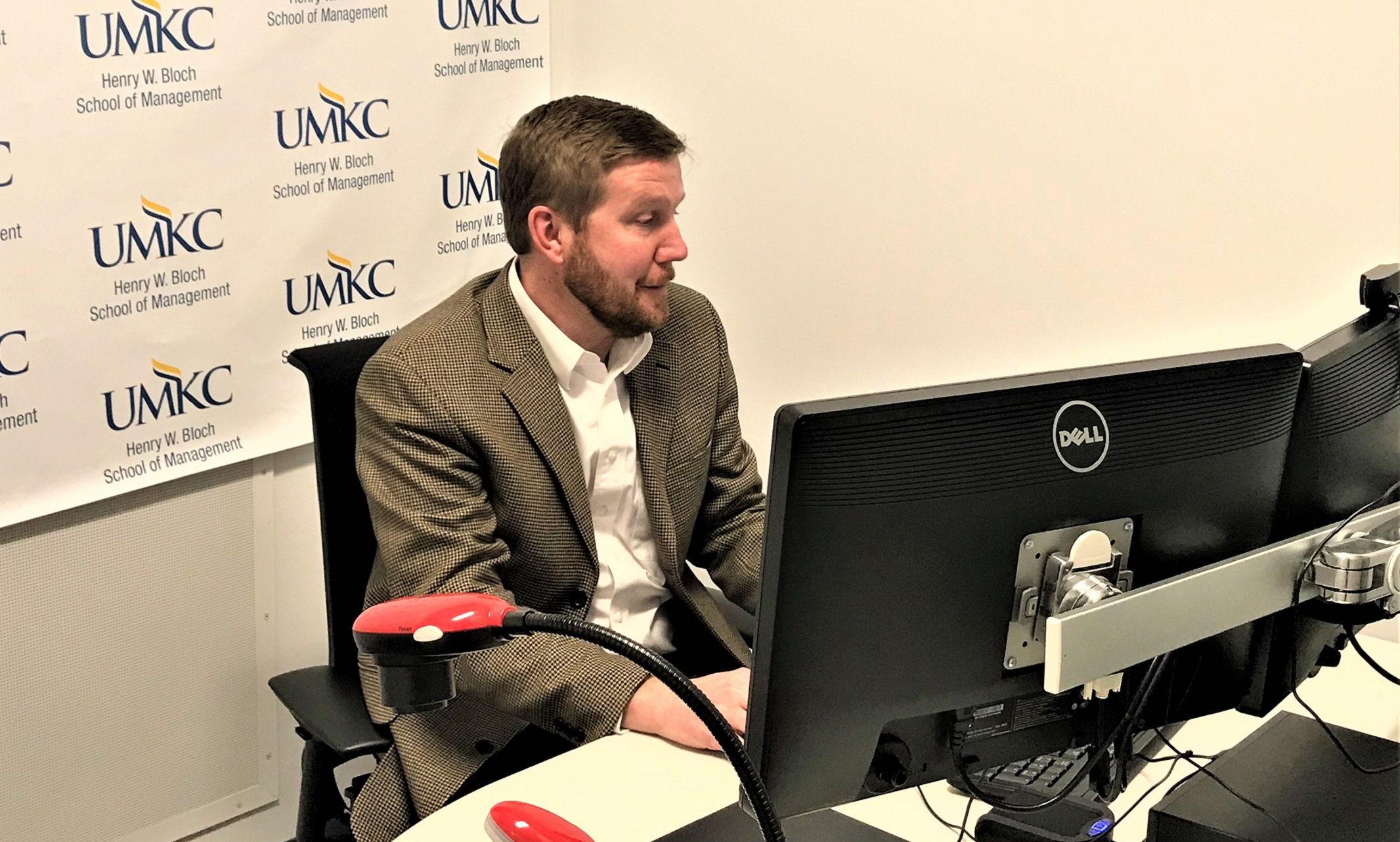
Professor Leigh Salzsieder shares his thoughts on the move
University of Missouri-Kansas City students and faculty are wrapping up their first week of exclusively online classes due to the COVID-19 pandemic. We checked in with seasoned online instructor Leigh Salzsieder, chair of the department of accountancy and associate professor of accounting at the Henry W. Bloch School of Management, about making the move to online.
How long have you taught online courses? How has the technology improved since you began teaching online?
I have been teaching online since 2017 and have seen a couple of big improvements. First, the textbook publishers’ ability to run their digital content native in Canvas makes designing and delivering a course significantly easier. Another big improvement is the development of high-functioning apps for mobile use. Canvas and Zoom both do very well on a mobile device.
Did you have any concerns when you started teaching online?
My biggest concern moving from in-person to online teaching was that I would lose the ability to connect with my students. While things are different online, I can honestly say that in many ways it is more humanizing. For example, I have never met so many of my students’ children and pets. In an online synchronous environment where students are logging in from home, it is common for a toddler or pet to wander on screen. Those sorts of interactions allow for student-to-student and student-to-faculty interactions to have more personal meaning. It probably sounds silly, but it is really cool!
What did students think of the switch to online classes? Any surprising reactions?
Most of the students have really enjoyed the online synchronous delivery. The added flexibility has been the students’ favorite part. In previous classes, I have had students join class from all over the world, and even from airplanes (although the connection wasn’t great).
What are the benefits of online courses? Challenges?
The biggest benefit for students is flexibility. It also allows them to pause and replay course content that they’re struggling with and need to revisit. In addition, having a significant portion of the material online allows students to interact with it on their terms. I have had students tell me they listen to lectures while working out, while driving, etc. Online integrated content also allows students to get quality feedback on content at any time day or night. That’s not to say I’m answering questions at 2 a.m., but my online content is answering their questions with detailed feedback on practice sets.
There are challenges to moving online, particularly for faculty. The change from in-person to online instruction can be a little scary. There are also costs to learning and adopting new technology, training and course certification, learning and creating new ways of assessing student outcomes, etc. Managing students online is also different than managing students in-person. It takes some time to get used to using discussion boards and other tools that facilitate meaningful interaction both peer-to-peer and with the instructor.
"Most of the students have really enjoyed the online synchronous delivery. The added flexibility has been the students’ favorite part."—Leigh Salzsieder
You're a member of eLearning Online Faculty Advisory Committee for UM System. What type of things do you work on for that group?
Our group is advisory to the eLearning Strategy and Implementation Oversight Committee which is the actual decision-making body for eLearning and includes provosts for the four system campuses and system-level representatives. Our group was created with the intention of providing a faculty voice directly to the Oversight Committee regarding the eLearning enterprise.
Any tips for students who are new to online learning? Professors?
I think my tip for students would be to establish a routine. Having content available 24-hours-a-day often leads to procrastination. When I ask successful students how they do it, having a routine is the most common response.
For professors, I would say try not to make your mind up about eLearning before you give it a chance. I’d also recommend that faculty utilize the resources available to them. We have faculty all over campus that are extremely effective online in areas you might not realize. For example, I serve on the eLearning Online Faculty Advisory Committee with Amanda Grimes from the School of Nursing and Health Studies and Kati Toivanen from Art and Art History, both of whom have excellent online courses.
Mar 19, 2020
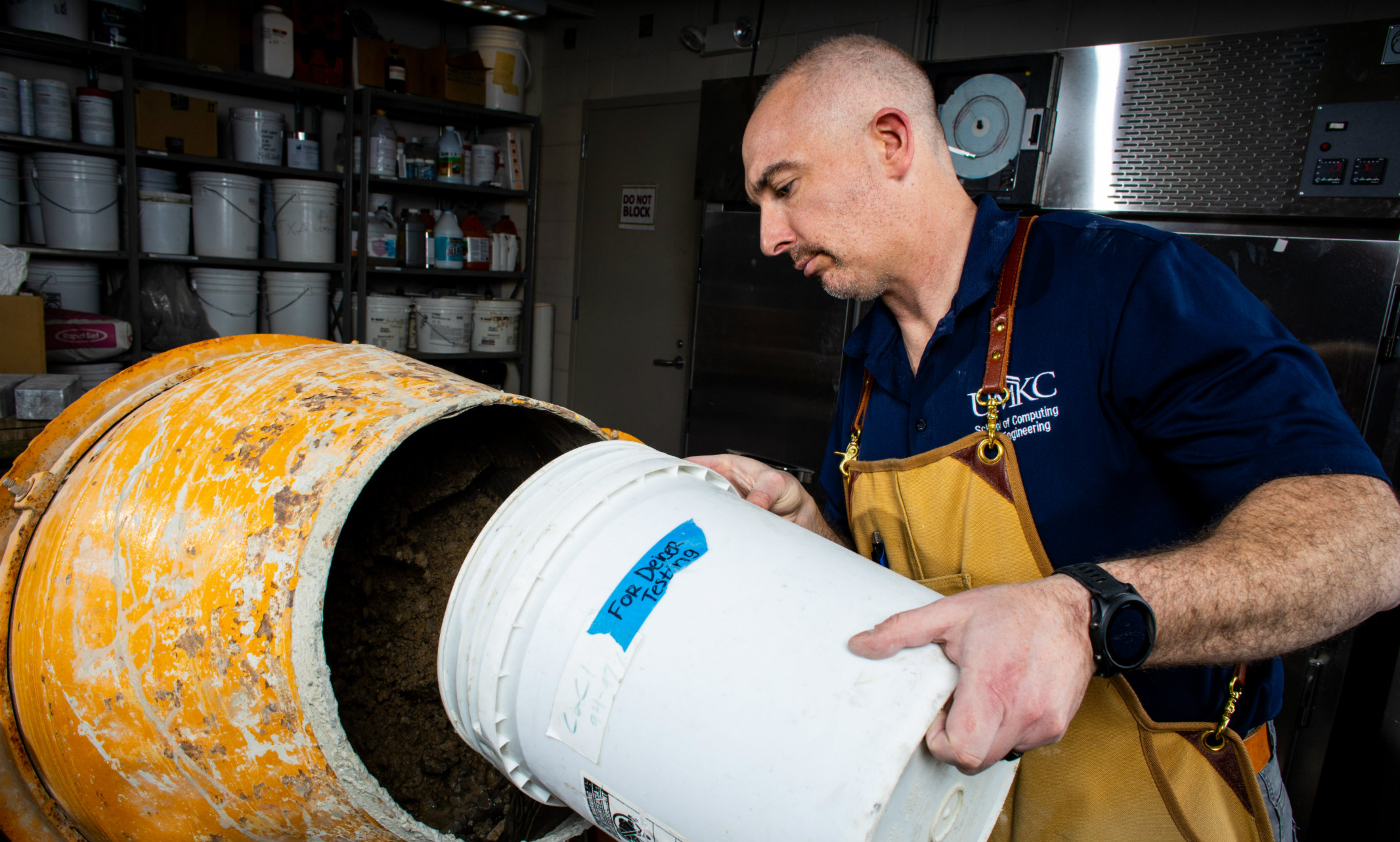
The research consortium will tackle flooding issues in Kansas City
The University of Missouri-Kansas City School of Computing and Engineering is teaming up with KC Water and other stakeholders — including FEMA , Unified Government and the Army Corps of Engineers — to launch the Center for Urban Stormwater Research (CUSR), a research consortium focused on tackling urban flooding in Kansas City.
John Kevern, Ph.D., professor and civil and mechanical engineering department chair will serve as director of the center. Kevern regularly works with KC Water, including School of Computing and Engineering alumni like Tom Kimes (B.S.C.E. ’87), manager of stormwater engineering, and Jose Lopez (B.S.C.E. ’15), watershed planner.
“Climate change is rapidly impacting engineering designs related to flooding across the globe,” Kevern said. “The Center for Urban Stormwater Research will help provide novel and innovative solutions to those challenges in Kansas City.”
The center’s first project will focus on a FEMA grant exploring ways to educate the public about the risks of flooding.
“Our hope with the center is to see Kansas City manage stormwater in a way that leads the nation and turn the city’s ‘wild rivers’ into community assets,” said Tom Kimes, manager of stormwater engineering at KC Water.
The School of Computing and Engineering will recognize KC Water as Organization of the Year at its annual Vanguard Awards, originally scheduled to take place on April 2. The new event date is to be determined. The Vanguard Awards celebrates excellence in computing and engineering and will also recognize Sherry Lumpkins, principal at Blue Symphony, LLC; George White Jr., civil engineer at GLMV Architecture; and PREP-KC.
Mar 19, 2020
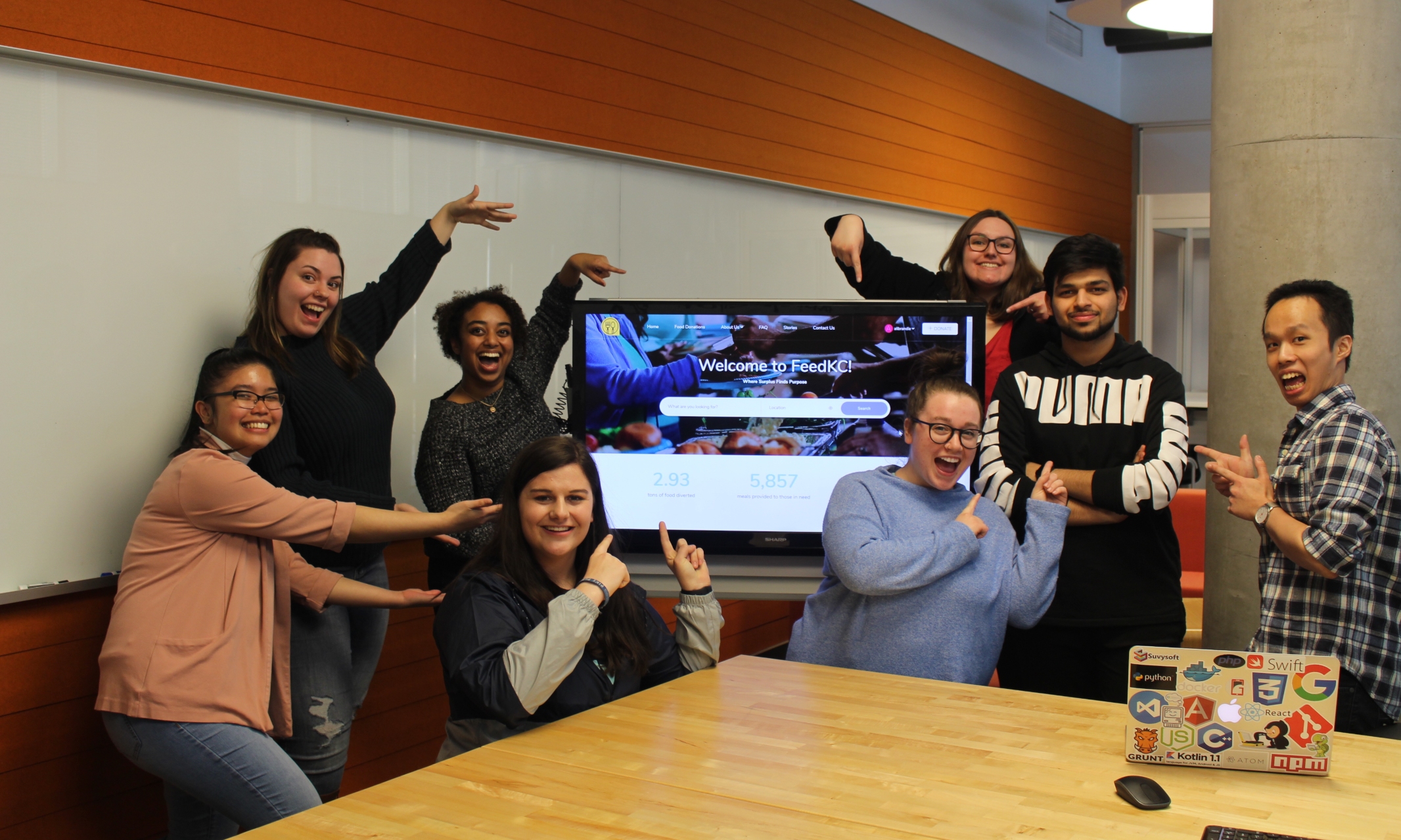
UMKC students help direct food from restaurants to food banks, especially needed now
With the demand at food banks growing, UMKC Enactus students have developed a new app to help restaurants donate excess food to local pantries for people in need.
Three years ago, UMKC Enactus students discovered 1 in 8 Kansas Citians struggles with hunger daily. Meanwhile, over 40 percent of food produced in the U.S. is thrown away. For the past two years, the team of UMKC students has been manually transporting food from local cafeterias, including at UMKC and Rockhurt University, to food banks across the city. To date, they have created 6,000 meals for those in need.
Now they’ve developed an app that connect locally-owned restaurants and cafeterias with excess food directly to food banks serving Kansas Citians in need. And with that need growing, due to coronavirus complications of schools being shut down and some employees getting fewer hours, the demand for food is higher than ever.
The new app provides a safe, tax-deductible way for restaurants to donate food and help feed the hungry. Restaurants can post produce close to its sell-by-date, prepared food that hasn’t been used, is still in the kitchen or was a leftover. A local food pantry can request it and work out a time to transport it. When the food is picked up, you’ll receive a form detailing the donation which can be used for tax purposes. You can learn more about the process on the FeedKC website.
The app was developed by a member of the team and graduate of UMKC. FeedKC is currently recruiting both restaurants and food banks to begin using it.
“With the launch of the web application, the team hopes to see an increase in their number of community partners,” said Caitlin Easter, who inherited the project from the former project leader, Andrea Savage, earlier this year. “Our team has been working so hard to perfect our web application so that we could launch a product that we are truly proud of!”
Learn more about the FeedKC app online.
Check out the team's story on KCTV5.
Mar 19, 2020
Mary Anne Jackson, dean of the UMKC School of Medicine and a graduate of the school, brings KCUR listeners up to date on the pandemic in the Kansas...
Dean Jackson offers advice on everything from grocery shopping precautions and the coronavirus among children to whether to exercise outside. Read more here.
Mar 19, 2020
Hoyt recaps her third season at UMKC for KCTV-5, which included the school's first WAC championship.
Check out the full story here.
Mar 19, 2020
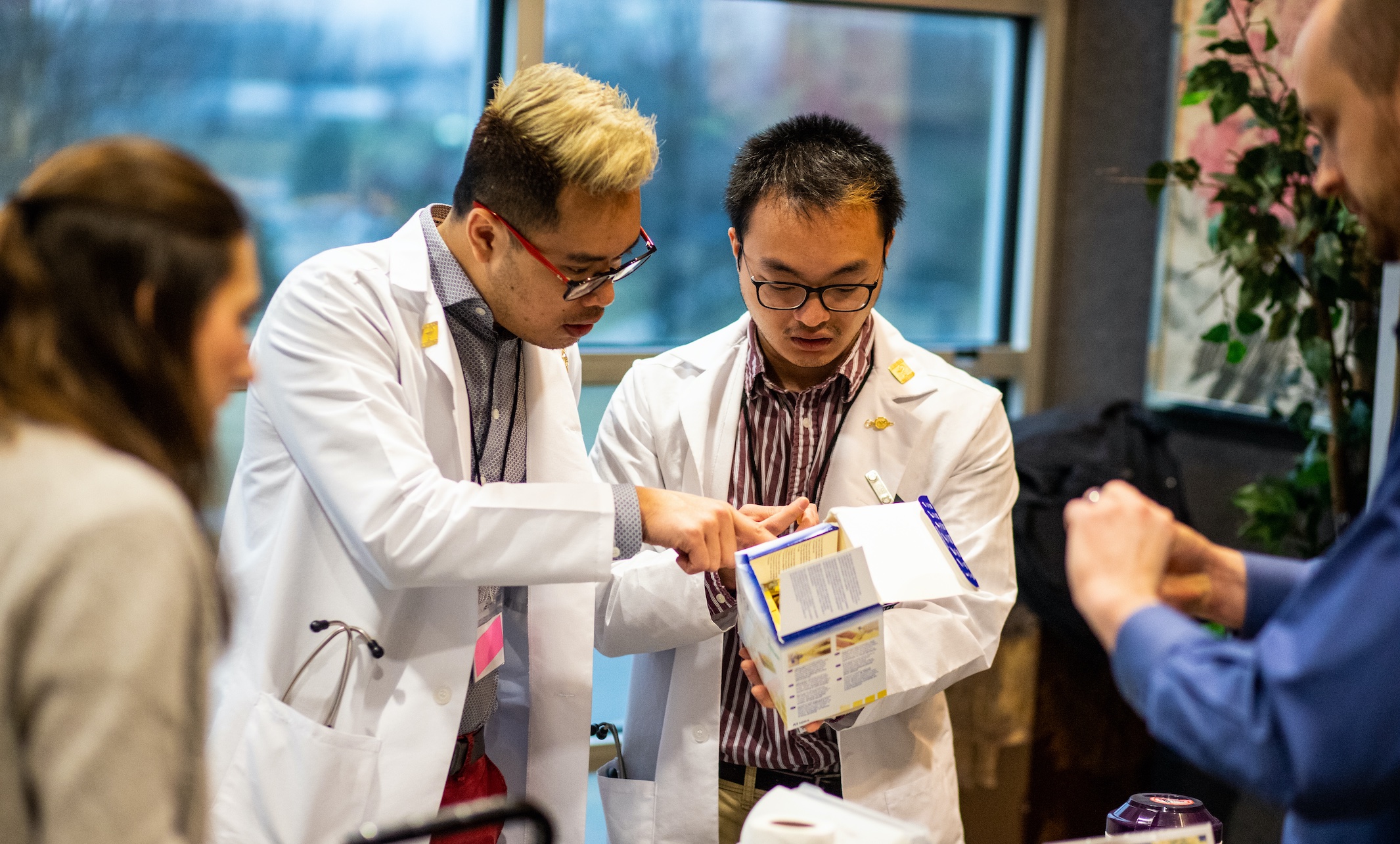
Pharmacy in top 25%; Medicine makes debut
The UMKC School of Pharmacy was tied for 31st in U.S. News and World Report Best Grad Schools rankings released Tuesday. That put the school in the top one-quarter of the 134 U.S. pharmacy schools that were rated.
“This is a testament to the quality and resilience of our hard-working students, and to the dedication of our faculty and staff,” said Dean Russell Melchert. “It’s great to be recognized nationally as we pursue our mission to improve health throughout our state and region through education, research and community engagement.”
The U.S. News pharmacy rankings are based solely on surveys of academics at peer institutions. The UMKC School of Pharmacy ranking was up from 36th in 2016, when U.S. News last surveyed for pharmacy programs.
The UMKC school also has had great success matching its graduates. The Class of 2020 had an 81% initial match rate, the program’s best ever. In addition, “pharmacist” tops a CNBC list of top-paying professions right out of school, with a median annual salary of $123,670.
The UMKC School of Medicine also joined the rankings for the first time this year, placing 75th for primary care medical schools and 88th for research medical schools. U.S. News said its rankings covered 122 accredited medical and osteopathic medical schools that participated in the rankings, out of 189 that were asked.
“Our school is known for excellent clinical training and great success in residency matching. We also offer expanding research opportunities.” — Interim Dean Mary Anne Jackson, M.D.
UMKC, whose innovative six-year program takes most of its students right out of high school, has not participated in past surveys because its program is so different from others in the United States. Interim Dean Mary Anne Jackson, a 1978 graduate of the program, thought it was time to join the survey.
“Our school is known for excellent clinical training and great success in residency matching, throughout the Midwest and at Mayo and other top institutions,” Jackson said. “We also offer expanding research opportunities and have placed students in the top National Institutes of Health student research program for several years in a row.”
The medical school rankings were based on a weighted average of indicators, seven for the primary care rankings and eight for research. Some indicators were quality assessments by academic peers and residency directors. But most were objective data submitted by the schools, such as research activity, student test scores and acceptance rate. The UMKC school rated in the top one-third, for example, in faculty-student ratio, on a par with Stanford, the No. 4 school overall, and ahead of 78 other schools. It also did well in the percentage of its graduates going into primary care.
Dean Jackson said it took a "yeoman's effort" to compile and submit the required data for the first time, and she thanked the school's leadership team including Vice Deans Steven Waldman, M.D. '77, J.D., and Paul Cuddy, Pharm.D., M.B.A., for their efforts.
Mar 18, 2020
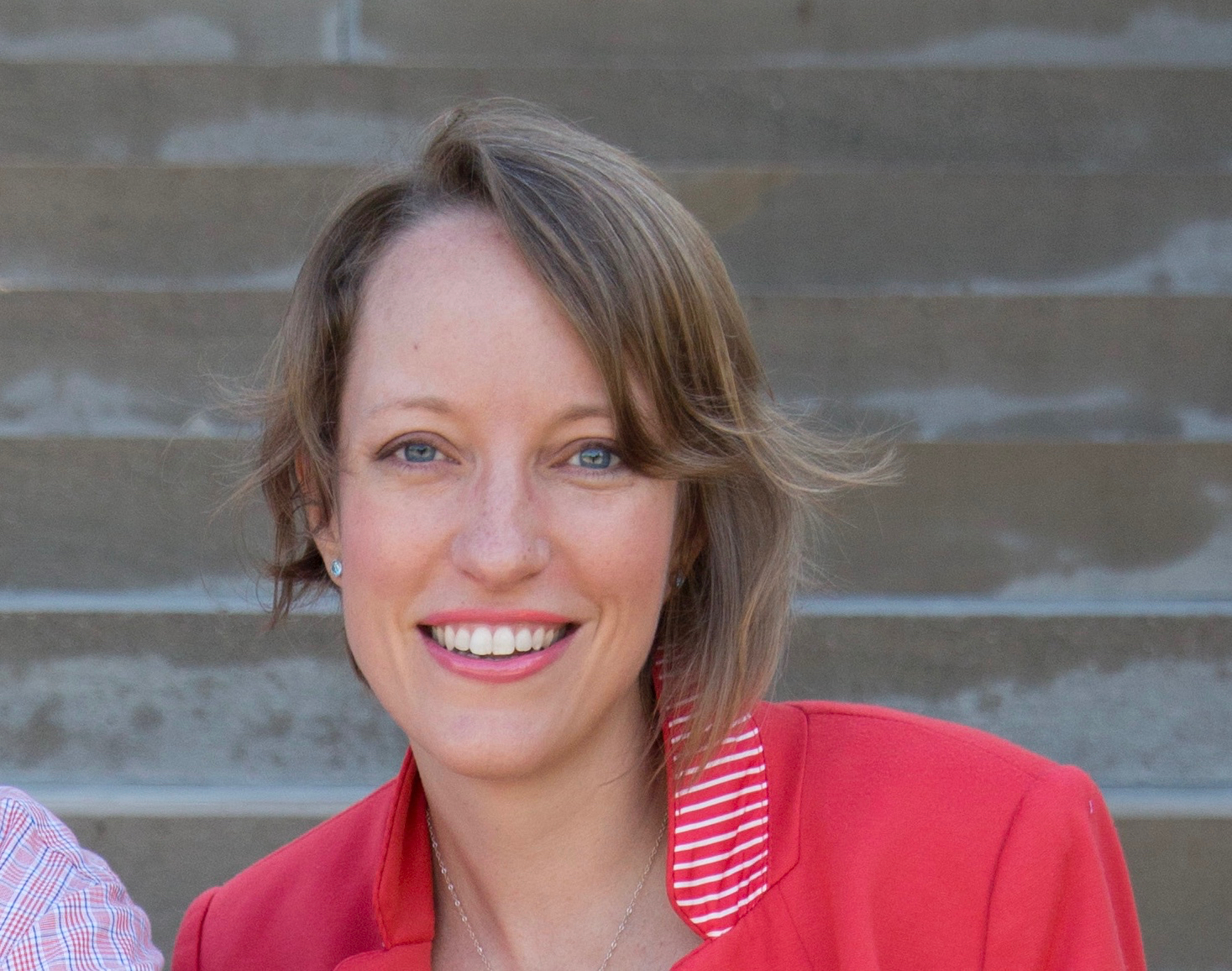
Research focuses on women and politics
Rebecca Best, assistant professor of political science at the University of Missouri-Kansas City, was one of seven awarded a Carrie Chapman Catt Prize for research on Women and Politics from the Carrie Chapman Catt Center for Women and Politics at Iowa State University. Best is also an associate faculty member of the UMKC Women, Gender and Sexuality Studies Program.
Best’s research study, “Gendered Reintegration of Veterans and Political Representation of Women in the United States,” will examine whether there are gender differences in how certain types of reintegration experiences influence a veteran’s interest in and willingness to vote, run for office or engage in activism. The study will also explore whether factors such as marital status and dependent children have a gendered effect on the willingness of veterans to engage in politics. The award, valued at $2,000, will be used to fund a survey of military veterans, at least 40% of whom will be women.
We spoke to Best about her research on women and politics.
What got you interested in researching women’s military service?
Several years ago, I went to Fort Leavenworth to give a presentation on women in rebel groups. Through that visit, I got connected with Kyleanne Hunter, a doctoral candidate at the University of Denver who had previously served as a fighter pilot in the Marine Corps. We had similar ideas about why women engaged in political violence, in that we both believed that women’s reasoning was not fundamentally different from that of men, though their circumstances and the options available to them might be different. We started studying veteran women because it turns out to be much easier to survey and interview military veterans than to interview women in rebel groups (though scholars like Mia Bloom and Angie Nichols among others have been doing excellent work interviewing former rebel women).
What do you hope happens as a result of your research?
Primarily my research goals are to better understand social science phenomena, but I also think that there are often important policy implications of social science research. With this project I am interested in better understanding how gender creates unique challenges for veterans reintegrating into society. I hope that a better understanding of these challenges will contribute to the development or programs and support networks designed to ease the transition out of military service. I also hope that this research can call attention to the contributions of the many women who have served and are serving in the United States military – including political scientists like Dr. Ky Hunter, Dr. Angie Nichols, and Dr. Theresa Schroeder. Finally, I hope that we can get a better sense of the causes of the gender gap in political representation and the types of policies that might help to further reduce this gap.
Tell us about the research this award will help with?
This award will help me to fund a survey of veterans of the United States military (both male and female). The purpose of the study is both to understand the gendering of reintegration experiences and how different reintegration experiences influence the willingness of veterans to run for office. This project builds on work by Jennifer Lawless and Richard Fox who find that an important cause of the gender gap in political representation is that women are less likely to run for office – for a variety of reasons including concerns about their own electability, family concerns and not being recruited to run. Specifically, Lawless and Fox surveyed men and women from several backgrounds that are common among lawmakers (law, education, entrepreneurship and political activism). The money from the Catt prize will allow me to extend this work to military veterans, tailoring the survey to experiences of veterans.
Who are the women who influence your work the most?
I have been lucky to be surrounded by supportive women here at UMKC and in my field of political science. Within my department, Beth Vonnahme, Debra Leiter and Mona Lyne have all been important mentors, sounding boards for new ideas and friends. There are many women doing exciting work in political science and international relations right now – and more than I can name here have impacted my own work. A few influential women include Cynthia Enloe, whose work on women, gender and international relations is both a lot of fun to read and incredibly insightful; Mary Caprioli, whose work evaluates links between gender inequality and armed conflict; Barbara Walter who uses strategic theory to resolve puzzles surrounding civil conflict resolution; Kelly Kadera who both consistently promotes other women in conflict studies and publishes innovative research on interstate conflict as well as women and gender in international relations; Carla Martinez Machain who studies arms transfers, military deployments, and air strikes, in addition to being an excellent mentor and friend for other women in political science; and Jakana Thomas, Alexis Henshaw, and Kanesha Bond, who have all published really interesting empirical evaluations of women in rebel groups.
How do you influence others?
The most impactful part of my job is teaching UMKC students. In doing that, I hope to help students see the relevance of academic work to both public policy and their own lives. For example, in my conflict resolution class students read academic literature on negotiating strategies and we discuss examples of implementing these strategies both in larger scale political negotiations (like peace processes) and in negotiations over salary and benefits. Similarly, I ask my students to consider how the theories we discuss in class are reflected in the stories they read in the news from negotiations with the Taliban to protests in Iran. I’ve published some of my own thoughts on these and other issues in public forums such as the Washington Post’s Monkey Cage, the Conversation and Political Violence @ a Glance.
Mar 18, 2020
Professor Emeritus Max Skidmore on presidents and pandemics
Washington Post columnist says President Trump is "frantically rewriting his epic failures." Max Skidmore, UMKC political science professor emeritus and the author of a book on presidential responses to pandemics, is interviewed for the article.
“We are weeks behind where we should have been if a competent administration had been handling the reaction," Skidmore said. Read the full column here.
In an article for The Guardian, Skidmore commented on the president's use public health concerns to fuel his argument for travel bans and cuts to interest rates, Medicare and Social Security. Read the full article here.
Skidmore told the Voice of American that Trump "rejects the principles of science" and "is distrustful of experts." Read the article here.
Mar 18, 2020
Leigh Salzsieder, chair of the Department of Accountancy at UMKC, demonstrates an online class for The Beacon.
The demonstration is part of efforts to reassure students that they will experience high-quality teaching even when in-person classes can't meet. Check out the full report here.
Mar 18, 2020
Alice Arredondo, director of admissions at the University of Missouri-Kansas City, is part of an Inside Higher Ed report on attracting new students.
Arredondo said weekly webcasts on a different admissions topic are helping to get the word out to prospective students who can't visit the campus. Read the full report here.
Mar 16, 2020
WAC Tournament Canceled Due to COVID-19, Roos Get First Berth into Tournament
Because the Western Athletic Conference had to cancel its postseason tournaments, the conference-leading UMKC Roos women’s basketball team gets the conference’s automatic NCAA Tournament bid, The Kansas City Star reports. The WAC championship was the first conference title for the women's basketball team. Read more about the team here.
Mar 12, 2020
UMKC emphasizes safety as the Centers for Disease Control and Prevention says those are the riskiest countries (currently China, South Korea, Iran ...
UMKC also is asking all community members returning from visits to the affected countries to “stay home and self-monitor for 14 days.” See the full report here.
Mar 10, 2020
Beth Vonnahme, UMKC interim associate dean, chair and associate political science professor, was a guest on the KCUR "Up to Date" program.
The Democratic presidential primary pits Joe Biden against Bernie Sanders. The program also included a segment on keeping your family safe from the coronavirus. Listen here.
Mar 09, 2020
Theresa Maxwell to receive the UMKC School of Nursing and Health Studies Alumni Achievement Award
Each year, the UMKC Alumni Association recognizes the achievements of outstanding alumni with an awards celebration. UMKC is honoring Theresa Maxwell (M.S.N. ’01) with the School of Nursing and Health Studies Class of 2020 Alumni Achievement Award.
Theresa Maxwell (M.S.N. '01)
Maxwell’s 30 years in nursing has been driven by her expertise in gastroenterology — disorders of the stomach and intestines — and her passion for its patients. As an ostomy specialist and nurse practitioner at Digestive Health Specialists in St. Joseph, Missouri, Maxwell works closely with physicians to provide the best specialty care in the region. She even started her own business, Image Specialties, when she felt that companies were substituting items where they shouldn’t, overbilling and subscribing to generally unscrupulous practices. Additionally, Maxwell contracted with nursing homes, home health agencies and hospitals to provide pre-operative teaching, in-services and educational programs. We spoke with her recently about her path in nursing.
How did you choose your specialty of gastroenterology?
I liked surgical nursing and any procedures that I could do. I identified a need for an ostomy and wound-specialized nurse and became one. The ostomy specialty was by far the most rewarding nursing that I had ever done, much to my surprise. Most of my patients, especially the ones who are ostimates, appreciate me. Nursing is frequently an underappreciated profession and I like being where I feel needed and appreciated.
You’ve worked in a variety of settings, including a hospital, surgeon’s office and as a home health clinician. Did you enjoy one workplace more than the others?
I really enjoyed having my own practice, except I was the worst boss that I have ever worked for! I believe each job that I’ve held had its role in making me more well-rounded and independent.
Tell us about your role at Digestive Health Specialists. What is a typical day like for you?
I have clinic every morning which includes seeing patients for a variety of issues including office procedures. Most mornings, I am the only provider in the office, so I will usually triage any calls or walk-ins that occur as well. I do another clinic in the afternoon, then I go to the hospital for rounds or work in my office charting and doing administrative duties.
About the Alumni Awards
Join us in honoring Maxwell and the other Class of 2020 Awardees in our first-ever virtual celebration at 5 p.m. April 16. Go to umkcalumni.com/alumniawards to register for this free event. If you are unable to attend the event but would like to donate to student scholarships, contributions can be made online.
Mar 06, 2020
Kevin J. Blinder to receive the UMKC School of Medicine Alumni Achievement Award
Each year, the UMKC Alumni Association recognizes the achievements of outstanding alumni with an awards celebration. UMKC is honoring Kevin Blinder (M.D. ’85) with the School of Medicine Class of 2020 Alumni Achievement Award.
Kevin Blinder (M.D. '85)
As an ophthalmologist, Blinder is a leading specialist of vitreoretinal diseases — which affect the back of the eye and fluid around it. A partner at the Retina Institute in St. Louis, Blinder is also a professor of ophthalmology at Washington University and has trained countless residents and fellows in retina education. In addition to teaching, operating and seeing patients, he has an interest in clinical research and has been an investigator in more than 30 clinical trials dealing with a variety of vitreoretinal pathology. He spoke with us about his specialty and time at UMKC.
Did you know you wanted to pursue ophthalmology while getting your degree?
I had no idea what area of medicine that I was going to specialize in early on. All I knew is that I wanted to be a physician and that I wanted to be in the six-year medical program that UMKC offered. I had an interest in ophthalmology throughout medical school and chose my specialty after taking the elective offered at UMKC with Dr. Felix Sabates.
You find time to participate in clinical research in addition to your other roles. Where does your passion for research stem from?
We learned early on in medical school the way to advance medicine is to ask questions and pursue answers. Clinical research attempts to answer these questions, from the simplest to the most complex. We can offer our patients cutting-edge technology that otherwise may not be available outside of the research protocol and benefit those that participate in the students and many other future patients.
You travel monthly to Quincy, Illinois, to serve patients without access to specialty care. How did you get involved with the clinic there?
I was approached many years ago by one of my former roommates from medical school, Eric Sieck, to come to his office in Quincy and provide retinal care. I take an entire crew with me for what is usually a 15-hour day to provide care for patients who would otherwise potentially go untreated. It has been very fulfilling to provide this service and to work in the same office as one of my classmates and dearest friends from my medical school days.
What is a memory that stands out from medical school?
I think the most vivid and profound memory that I still have nightmares about is the night I was on call during a docent rotation when the Hyatt Regency walkway collapsed. We were asked to first assist in the ER, triaging and treating survivors as they were brought in over from the hotel. Then they asked for volunteers to go to the scene where people were trapped underneath tons of concrete to assist with rescue efforts; 114 people were killed, and 214 people were injured. I would like to think that we played a role in saving those 214 people who survived.
About the Alumni Awards
Join us in honoring Blinder and the other Class of 2020 Awardees in our first-ever virtual celebration at 5 p.m. April 16. Go to umkcalumni.com/alumniawards to register for this free event. If you are unable to attend the event but would like to donate to student scholarships, contributions can be made online.
Meet the rest of the 2020 UMKC Alumni Awardees
Mar 06, 2020
It's the first conference championship for the team, which sewed up the title with Thursday’s 61-53 victory over Utah Valley.
See KMBC's report on the victory, and read The Kansas City Star's account of how the championship came together.
Mar 06, 2020
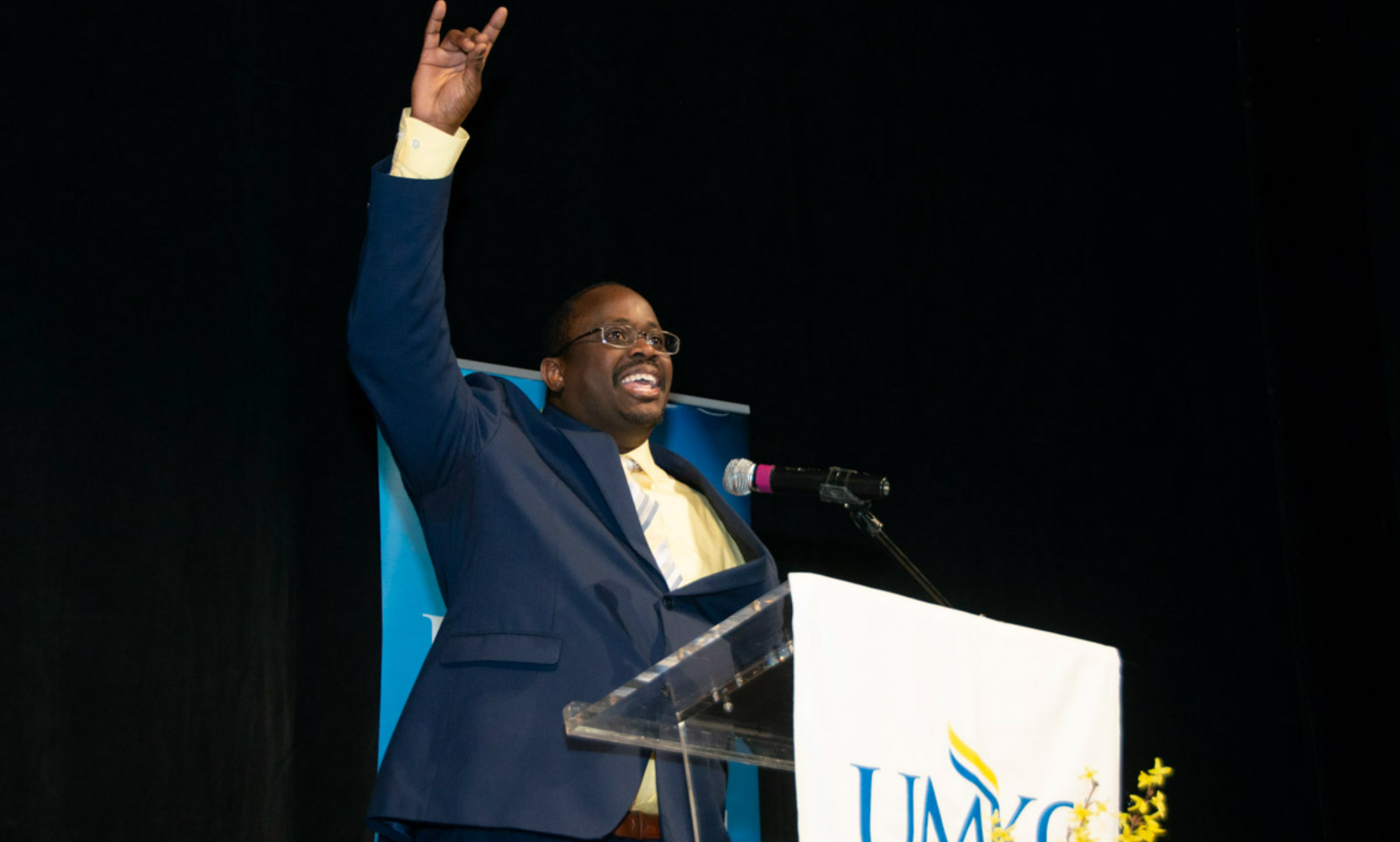
Annual ceremony recognizes contributions
Excellence at UMKC is not just the standard for our students, it is the standard for everyone who lives, works and visits our university. For more than 1,300 staff members, excellence in customer service and quality of work are not just university values, they’re personal ethics, and the annual Staff Awards event gives our campus community a chance to recognize those who make a difference at UMKC.
On the morning of March 4, hundreds of staff members gathered for the annual Staff Awards celebration in the James. C. Olson Performing Arts Center to celebrate a commitment to student success, diversity and inclusion, engagement and outreach and research and discovery. The celebration also included milestone anniversaries, staff who were a part of the 2019 graduating class and staff who completed leadership development courses offered through the university.
“Whether you work directly with our students, coordinate programs and services for the greater Kansas City community or provide support to keep this university running, what you do here matters.”
- Interim Provost Jenny Lundgren
Congratulations to the 2020 Staff Awards recipients
40-year Milestone Anniversary
Kevin McCarrison
2019 spring, summer and fall graduates
Emily BrownCynthia ChristyMegan FrasherRussell FriendHilary McNeilJulie MyerBailey WaltonSybil Wyatt
Supervisory Development Series Graduates
Casey BauerLaura BegleyKenneth BledsoePetra BrickerAndrea BrownEmily BrownLauren ButlerAllan DavisKinglsey KakieJessica KeithBridget KoanAlia KrzyzanowskiTamica LigeDerek LongDea MarxAshley MasonBrenton McCoyAngela McDonaldLaura MoorePatricia MullinMike NorrisNikhilia Donti ReddyEmily ReebHea Kyung ShoemakerAmber SotoCasey StauberRichard ThomasSeth TracyJodi TroupAlmaz Wassie
Administrative Leadership Development Program Graduates
John AustLaura BegleyChad BristowAmber DaughertyJeffery HeckathornMakini KingBecky MarkleyKady McMasterSarah Mote
Staff Council Dedication Award
Alexandra Schumacher
Living the Values Awards
Selena Albert, School of Computing and EngineeringSilas Arnold, School of Biological and Chemical SciencesNancy Bahner, School of PharmacyAyleen Bashir, Innovation CenterJennifer Parker Burrus, ConservatoryElizabeth Couzens, School of LawRoland Hemmings Jr., Student AffairsKristen Kleffner, School of MedicineRandy Krahulik, Intercollegiate AthleticsAudrey Lester, College of Arts and SciencesJennifer Lyles-Maqsood, School of Nursing and Health StudiesGuadalupe Magana, School of EducationShana Malone, Office of Registration and RecordsLindsey Mayfied, Strategic Marketing and CommunicationsTanya Moore, School of DentistryGene Pegler, Henry W. Bloch School of ManagementHeather Swanson, Finance and AdministrationLaura Taylor, National Museum of Toys and MiniaturesGail Williams, University LibrariesSandy Wilson, Office of Research Services
University Staff Awards
Excellence in Student Success – Kaitlin Woody, External Relations and Constituent EngagementExcellence in Research and Creative Works – Stephanice Griffin, School of Computing and EngineeringExcellence in Engagement and Outreach – Christina Davis, School of Computing and EngineeringExcellence in Multiculturalism, Globalism, Diversity and Inclusion – Anthony LaBat, University LibrariesExcellence in Planning, Operations and Stewardship – Kevin Mullin, College of Arts and SciencesChancellor’s Staff Award for Extraordinary Contributions – Ted Stahl, Office of Human ResourcesRising Star Award – Ivan Ramirez, Office of Multicultural Student Affairs
Learn More About UMKC
Mar 05, 2020
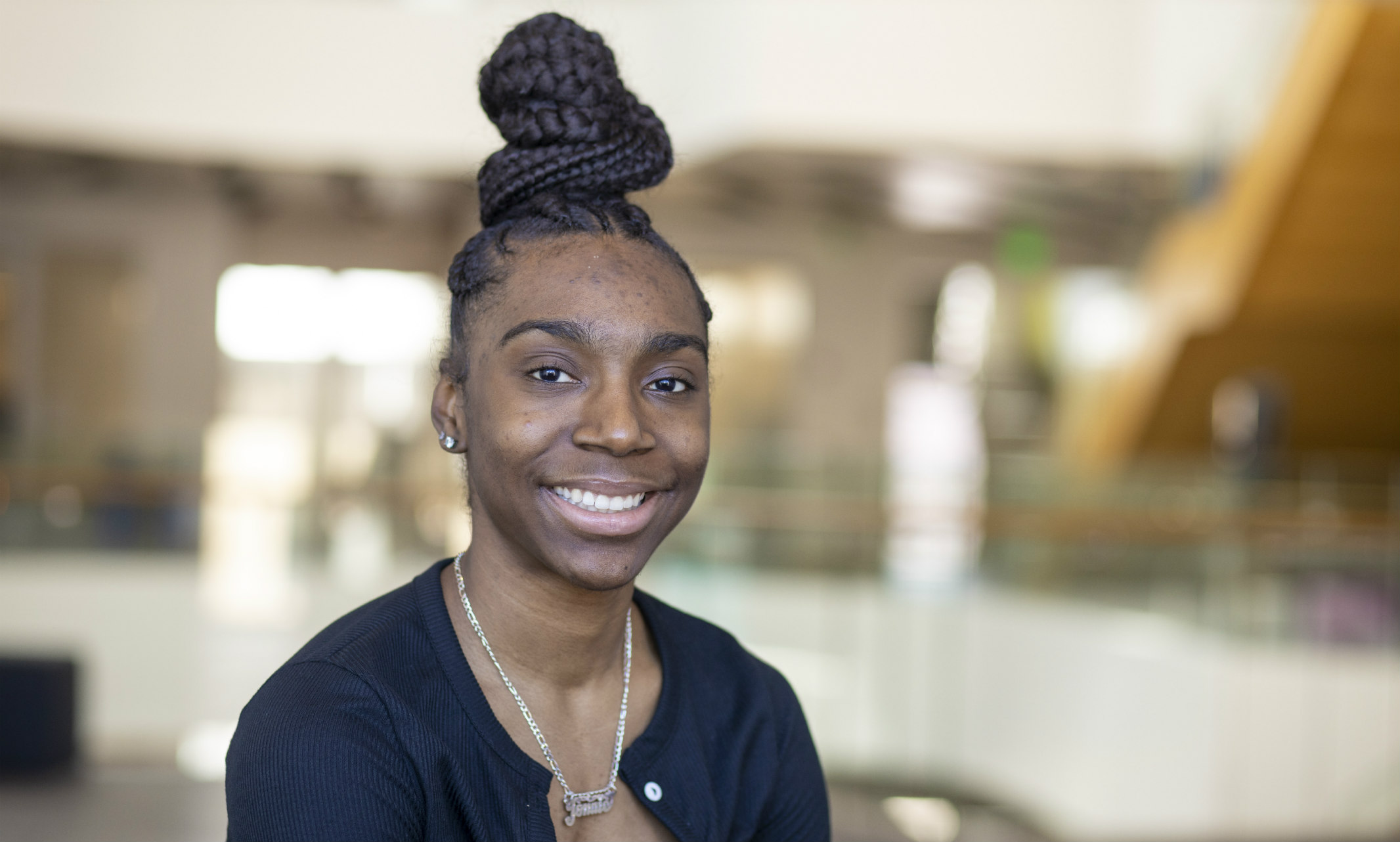
Jonaie Johnson juggles the demands of college basketball and the rigorous Entrepreneurship Scholars program receives top honor
Get to know our people and you'll know what UMKC is all about.
Jonaie Johnson ‘22
Hometown: Chicago, Illinois
Degree Program: Business administration with an emphasis in entrepreneurship
High school: Kenwood Academy
Jonaie Johnson received this year’s Henry W. Bloch School of Management’s Regnier Institute for Entrepreneurship and Innovation Student Entrepreneur of the Award for her development of Interplay, an interactive dog crate that allows owners to interact with their pets while they are away from home. She first learned of the Bloch Entrepreneur of the Year recognition in 2018 while she was volunteering for the event. Even then she could see herself receiving this recognition.
“Seeing Andrea Savage receive the Student Entrepreneur of the Year award was very inspirational. From that moment forward, I knew this honor was something I wanted to achieve.”
When she received the news that she had been selected she was overwhelmed.
“I had so many emotions. I was happy, relieved and very enthusiastic. I immediately FaceTimed my mom to tell her. I couldn’t stop smiling.”
“I knew this honor was something I wanted to achieve.” — Jonaie Johnson
While she keeps in mind that starting a new enterprise is challenging – and not always successful – she focuses on why she’s working to fulfill this dream.
“I believe that Interplay is going to be significantly successful,” Johnson says. “This award is a reminder that my hard work and dedication to entrepreneurship has not gone unnoticed and is paying off.”
Johnson has a history of success. The sophomore women’s basketball guard is recognized as a team leader following a high school basketball career where she was recognized with All-Conference honors her sophomore and junior years, and earned All-City, Second Team All-State, Chicago Tribune Third Team All-State and Kenwood Academy Player of the Year during her senior season. But not all of her accomplishments were on the court. Johnson was valedictorian of her 8th grade class and graduated 5th in her high school class with a 5.1 GPA.
Johnson is seen as a leader on the Western Athletics Conference champion Kansas City Roos women’s basketball team, but is also excelling in the Bloch School Entrepreneurship Scholars (E-Scholars) program. Interplay is a dog crate designed to provide remote interaction – including video and audio access, locking and unlocking features and the ability to provide food and water – for a dog and its owner through a mobile app.
Why did you choose UMKC?
It was a combination of things. I was recruited for basketball, but I really had no idea about what UMKC was like. I had other schools recruiting me, so I wasn’t sure UMKC would be for me. But once I came here and was on campus, I loved it. And then once I realized that it was one of the few schools where you could major in entrepreneurism on the undergraduate level, that was the decision maker for me.
Why did you choose your field of study?
I developed the idea for Interplay for a project when I was in high school. My aunt was always leaving our family events to go home to feed her dog. I thought, “Wouldn’t it be great to do that remotely?” I want Interplay to be the Apple of dog crates.
My freshman year, I attended an event and was seated with Mary and Tom Bloch. They mentioned the Entrepreneur of the Year program at the Bloch School and asked me if I was going to be there. I actually didn’t know about it, but I offered to volunteer to help people to their seats.
I was wondering about the companies that were presenting and someone told me that they were part of the Entrepreneurship Scholars (E-Scholars) program. I had a clipboard with the seating assignments, but underneath I had my business model. That night I had the opportunity to talk with Ben [Gruber, director Regnier Institute] and I was able to show him my plan. That’s how I ended up in E-Scholars.
“I want Interplay to be the Apple of dog crates.”
What are the challenges of the program?
The biggest challenge for me is time management. On top of the course work, in college you have a lot of events and activities going on around you and you want to hang out with friends. The freedom itself is an adjustment because you don't necessarily have your parents guiding you and telling you what to do and what not to do. Being able to stay focused and manage my time is a challenge. But I do have fun! I enjoy school and working on my company. I’m kind of a nerd. I love learning.
What are the benefits of the E-Scholars program and participating in athletics?
There are a lot in both cases. The E-Scholars program laid the foundation for my company. They took me from a simple idea to a viable business.
When I came into the program, my company was nothing more than a cool idea for a product. Their resources, connections and mentors took me from an idea to a viable business. Their coursework taught me how I should strategically go about starting my venture to avoid many mistakes entrepreneurs make when starting a company. Their continuous support and help throughout the program, and even after I graduated from E-Scholars, has been a major key in the success I’ve had thus far with my company.
When it comes to starting my career, I know companies are always looking for college athletes. Even some of my mom’s managers at Eli Lily are always asking when I’m going to graduate. We have the time management, discipline and the ability to work with others that we learn in the team setting.
Since entering college, what have you learned about yourself?
I've learned how hard I can work, what I can really do and how mentally strong I am. I've always known it about myself, but my experiences in college have enhanced that.
What’s the best piece of advice you have ever received from a professor?
When I went to talk to Jené Hong, who is a mentor in residence in the E-Scholars program, about my company, she told me, “Do what you do best and hire the rest.” That’s the thing that keeps me going. I know I can’t master and be strong at everything, but I can understand what and how things need to be done and work with others who can complement my skills.
What is one word that best describes you and why?
Driven. Because I consistently strive to be the best me in any and everything I do. I’m very goal oriented, and I don’t stop until I achieve my goals.
What’s your greatest fear?
Not reaching my greatest potential.
“I enjoy school and working on my company. I'm kind of a nerd. I love learning.”
Do you have a role model?
Absolutely. It’s my mom. I’m an only child, and we have a really tight-knit relationship. From a young age, she was one person that I could look up to. She was a Mary Kay director and got the pink Cadillac in a short amount of time. Now she’s a pharmaceutical rep and she’s always one of the top sales representatives. She always goes above and beyond.
Were you always interested in sports in general or basketball specifically?
I’ve always been a competitor. Growing up, I loved sports. I started out playing baseball. I was the only girl on the all-star baseball boys’ team and I made the all-star game. When I had to transfer over to softball I didn’t really like it. It was softer to me, and I liked baseball more. But in between seasons when it was cold outside, my mom put me in basketball. It took off from there.
When you started playing did you think you would play in college?
When I started playing competitively, I was determined to play in college. My mom was so worried about how she was going to pay for college and where the money was going to come from. I always told her “Mom you’re not going to have to worry about college. I’m going to get an academic scholarship or a basketball scholarship.” I was pretty confident about that.
We’ve heard that sometimes your teammates call you “the CEO.” Do you see yourself as a leader?
I do, but my mom always tells me that I don't necessarily walk in the room and try to take charge and take the lead. People just naturally flock to or look to me as a leader. I usually don’t want it, but it comes.
There are a lot of young girls who come to watch your games. Do you see yourself as a role model? What would you tell them about pursuing sports in college?
I’m usually so focused during the game, that sometimes I forget that they may see me as a role model. But, I would tell them that if they find a passion and have a heart for it, to work hard and just let it happen. If it’s meant to be, everything will fall into place.
Mar 05, 2020
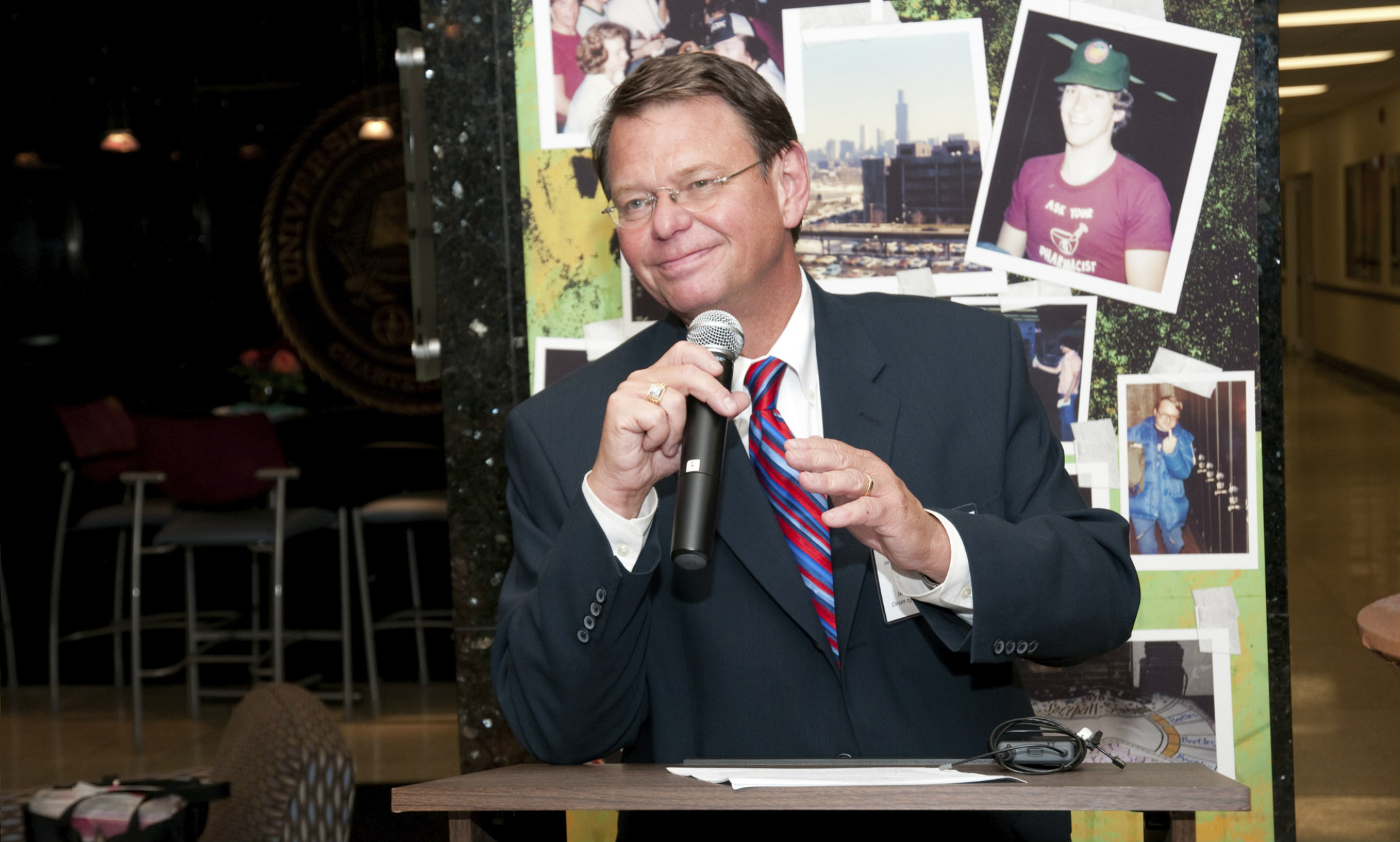
Jerry L. Bauman to receive the UMKC School of Pharmacy Alumni Achievement Award
Each year, the UMKC Alumni Association recognizes the achievements of outstanding alumni with an awards celebration. UMKC is honoring Jerry Bauman (Pharm.D. ’78) with the School of Pharmacy Class of 2020 Alumni Achievement Award.
Bauman has had a distinguished 40-year career as a pioneering clinical pharmacist, educator, practitioner, researcher and leader. Currently editor-in-chief of the Journal of the American College of Clinical Pharmacy, Bauman was dean and distinguished professor at the University of Illinois at Chicago College of Pharmacy for nearly 12 years. His research on the clinical pharmacology of cocaine and cardiovascular drugs, specifically anti-arrhythmic medicines, earned him international recognition. He recently spoke with us about his career.
You were the first pharmacist elected as a fellow of the American College of Cardiology (ACC). How did that feel?
I was extremely proud to be elected as such. Today, there are quite a few pharmacists who have been elected as fellows in the ACC and I feel as if I, in part, paved the way. Shortly after I was elected, the ACC office called me because they thought I had misprinted my degree — that is how I knew I was the first.
"The Pharm.D. program transformed me into a confident and competent clinical pharmacist."—Jerry Bauman
Tell us about your internationally-recognized research on the clinical pharmacology of cocaine and cardiovascular drugs.
I developed an interest in arrhythmias at UMKC and Truman Medical Center and then at the University of Illinois at Chicago, I was fortunate to be working with an incredible group of electrophysiologists. There, I began to study drug-induced arrhythmias and eventually saw the similarities between cocaine and anti-arrhythmic agents. We then defined the electrophysiology of cocaine and found agents that could reverse its effects. The agent was sodium bicarbonate, which is still recommended and came from my experience at Truman Medical Center.
How did UMKC contribute to your success?
I can’t overemphasize how it contributed to my success. The Pharm.D. program transformed me into a confident and competent clinical pharmacist. I used the knowledge and skills I developed there to create my academic career, including research programs and teaching style.
About the Alumni Awards
Join us in honoring Bauman and the other Class of 2020 Awardees in our first-ever virtual celebration at 5 p.m. April 16. Go to umkcalumni.com/alumniawards to register for this free event. If you are unable to attend the event but would like to donate to student scholarships, contributions can be made online.
Meet the rest of the 2020 UMKC Alumni Awardees
Mar 05, 2020
Mattingly is on the edge of leading the Roos to their first Western Athletic Conference crown.
Mattingly, who came to UMKC from Wichita, also is the leading candidate for conference player of the year. Hear the full KCTV5 story here.
Mar 05, 2020
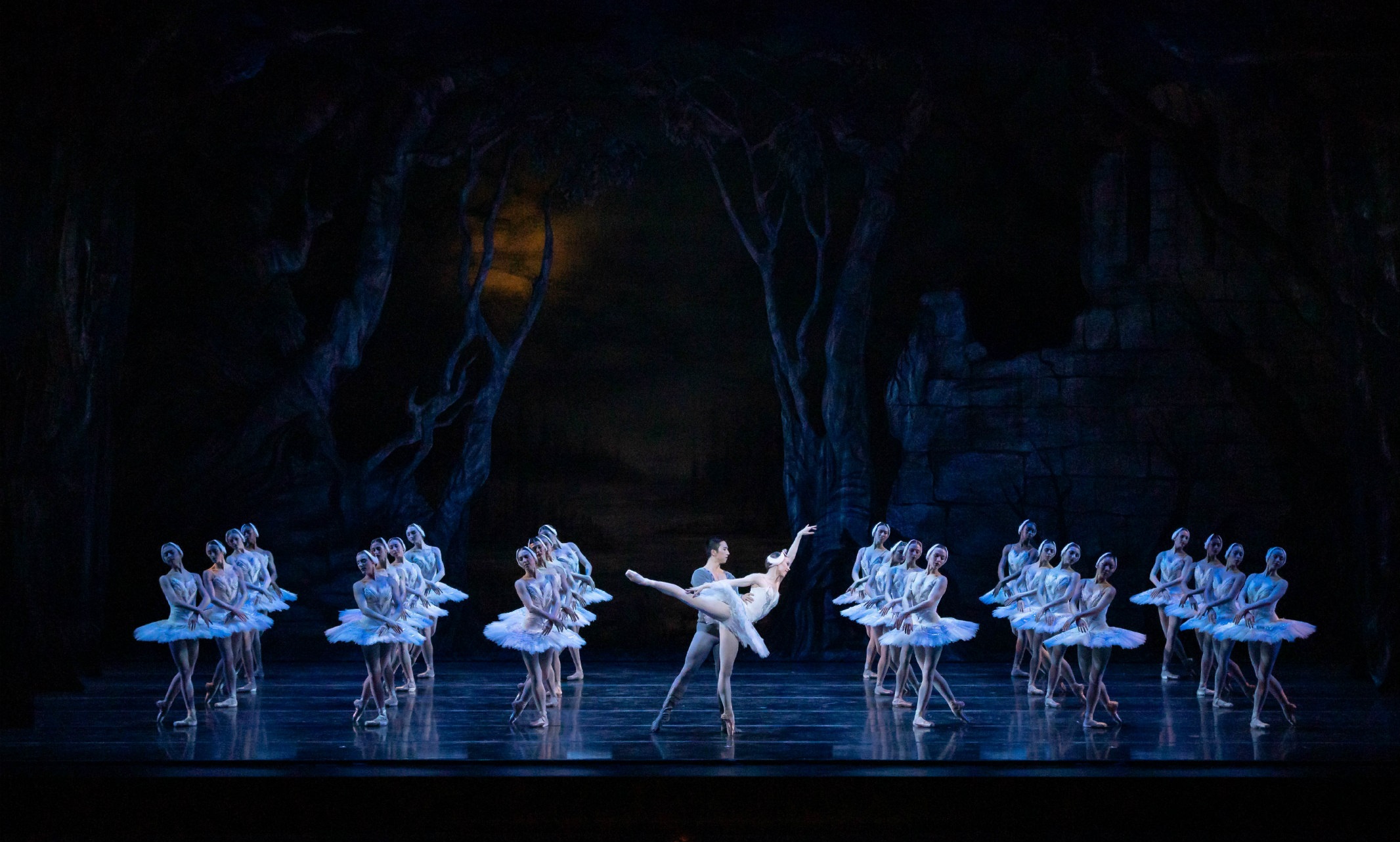
Erica Lohman performs in one of the most recognized ballets of all time
Get to know our people and you'll know what UMKC is all about.
Erica Lohman
Anticipated Graduation: 2021
Academic Program: Dance, Conservatory
Hometown: Indianapolis, Indiana
High School: Mt. Vernon High School
Erica Lohman, a senior studying dance, chose the UMKC Conservatory because she knew the dance department allowed students to take leaves of absence to participate in professional performances. Since she’s been a student she’s toured with had the opportunity to perform with the Kansas City Ballet in The Nutcracker, and most recently, Swan Lake.
Have you performed with ballet companies like this before?
Yes! I grew up dancing at a ballet school in my hometown that put on two full-length ballet productions a year, so I definitely have a soft spot for these types of productions. I took a leave of absence to dance professionally with Albany Berkshire Ballet in 2018, where I performed in their annual tour of The Nutcracker in the northeast United States. I also performed with the Wylliams/Henry Contemporary Dance Company last fall before participating in Kansas City Ballet’s productions.
Lohman, left, rehearsing for Swan Lake; image courtesy of Kansas City Ballet, photography Courtney Nitting
What does it feel like to be on a stage with seasoned professionals?
I have looked up to the dancers in Kansas City Ballet for many years, so at first it felt very strange and a little intimidating to be dancing alongside them. That being said, both the dancers and the artistic staff were encouraging throughout the rehearsal processes for both The Nutcracker and Swan Lake. Once I got used to dancing the challenging choreography with these professionals, I really enjoyed myself. I feel inspired by these amazing artists, and dancing with them has motivated me to keep working hard and pushing myself to someday reach their level of skill and artistry.
Was the experience what you expected it to be?
Swan Lake is a very popular ballet with iconic music, so I knew what to expect with the structure of the choreography. I also knew just how hard it was going to be and how much we had to get done in rehearsals. I was part of the corps de ballet, or the 24 women who dance as the swans. We had to be precisely together and in line at all times. We spent a lot of time in rehearsals going over details like which way to tilt our heads and which wrist to cross in front of the other. It even gets as specific as how we place our fingers.
“I realized that half the battle was learning to trust myself and stay mentally calm.”- Erica Lohman
Because of this precision and how much the swans dance, doing a full-run of the ballet takes immense mental and physical stamina. For me, I realized that half the battle was learning to trust myself and stay mentally calm. It’s easy to get caught up in being “perfect” and not making any mistakes. Once I let go of those negative emotions, stayed present on stage with the other dancers, and turned to the music to carry me through, I enjoyed myself so much.
The music at the end of Swan Lake is so beautiful, and it’s
empowering to finish strong alongside 24 women who I admire more than anything. I was so moved during my last show I actually ended up crying tears of joy during that moment onstage!
Have you performed with other Conservatory students in professional productions?
There were three of us in Kansas City Ballet’s The Nutcracker this year. But UMKC dance students really get awesome professional gigs all the time! I am so proud to be a part of this dance department and feel as though it keeps getting stronger and stronger.
Mar 04, 2020
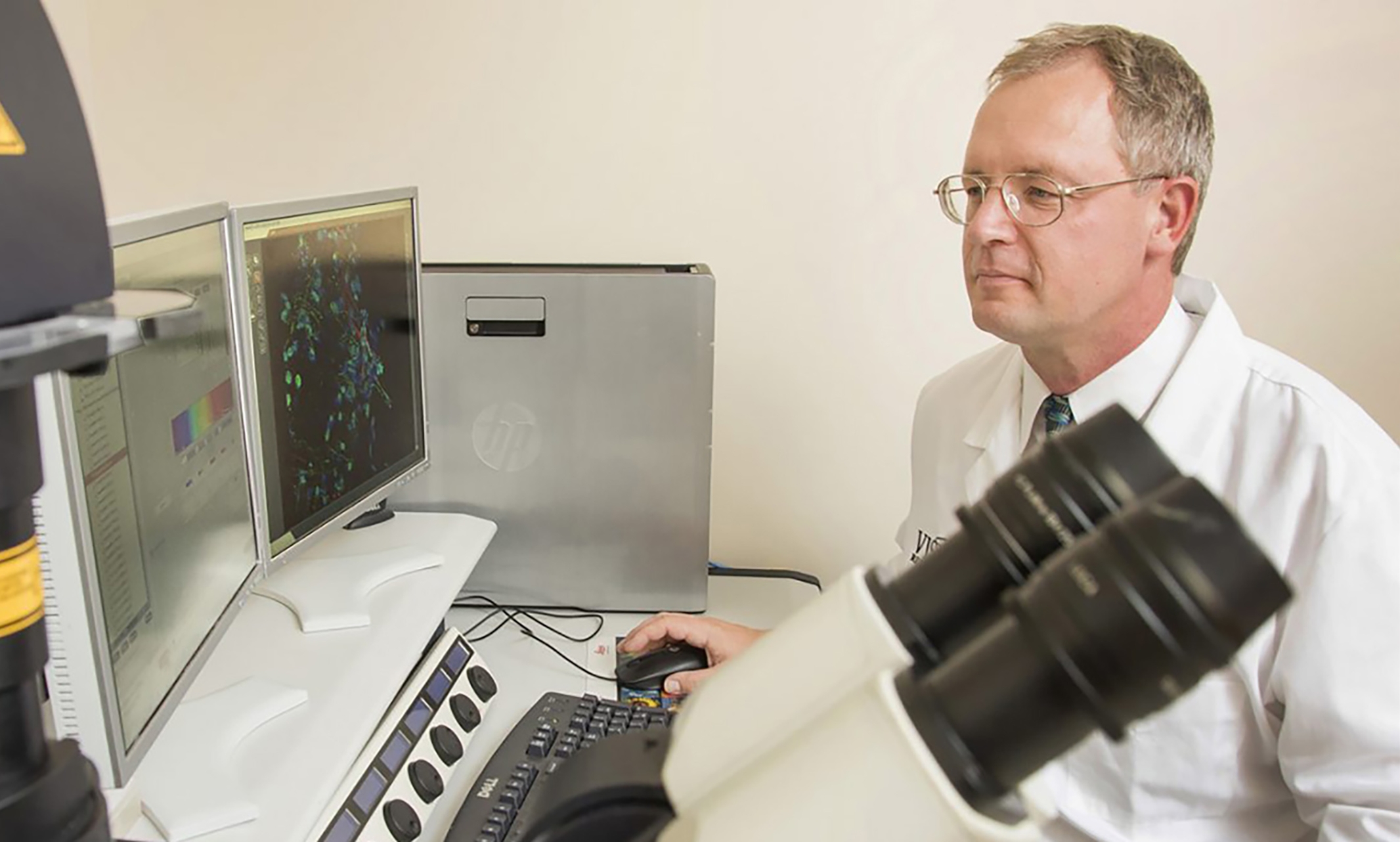
Peter Koulen receives fourth NIH grant in the past year
The National Institutes of Health (NIH) has awarded the UMKC Vision Research Center a new $120,399 grant that promotes the training of researchers from diverse backgrounds as part of ongoing research projects to develop novel glaucoma therapies.
Funded through the NIH’s National Eye Institute (NEI), the new funding is part of a larger NIH initiative to enhance the diversity of the research workforce. It will aid in recruiting and supporting students, postdoctorates, and eligible investigators from diverse backgrounds. It will also including those from racial and ethnic groups that have been shown to be underrepresented in health-related research.
“We are pleased to receive this support from the NIH,” said Peter Koulen, Ph.D., director of the Vision Research Center. “This funding is a substantial contribution to our mission to provide a more diverse workforce in biomedicine and the overall mission to discover new and improved treatments and therapies for vision health world-wide.”
The funding is part of Koulen’s NEI-supported program exploring novel therapeutic strategies to preserve the viability and function of the nerve cells of the retina affected by glaucoma. The research targets a novel mechanism of nerve cell protection utilizing intracellular calcium signaling as a drug target to treat degeneration of nerve cells in glaucoma.
“The new award is part of research that will allow us to generate data needed for the development of novel glaucoma drugs to complement existing therapies targeting abnormally high pressure in the eye,” Koulen said.
Glaucoma is a major cause of irreversible vision loss and blindness in the United States and worldwide. The disease causes degeneration in the retina and optic nerve, which connects the eye to the brain. Preventing the death of these cells is currently the only feasible way to prevent vision loss due to glaucoma.
Koulen and his team at the Vision Research Center received a $1.16 million NIH grant earlier this year to investigate a mechanism that allows nerve cells to communicate effectively and could lead to the development of such new treatments for glaucoma. He is also part of an innovative $1.5 million project exploring a novel tissue-preservation method that could help meet far-reaching clinical needs in ophthalmology and other fields of medicine
That research is focused on alternative strategies directly targeting the damaging effects of the disease on the retina and optic nerve.
“Just like elevated blood pressure predisposes patients to stroke, high pressure inside the eye is a predisposing factor for glaucoma,” said Koulen, professor of ophthalmology and director of basic research at the Vision Research Center. “There are currently several therapies available to patients to reduce abnormally high eye pressure, but when these therapies fail or cease to be effective, glaucoma and the accompanying vision loss continue to progress.”
Koulen’s project will determine how to boost the cell-to-cell communication that retinal nerve cells use to defend themselves from disease and injury. The hope is this will protect these cells from the damaging effects of glaucoma.
If successful, Koulen’s research will result in new drug candidates that would contribute to “neuroprotection” as a strategy to treat and prevent glaucoma.
New therapies could potentially act in concert with current eye pressure lowering drugs. Other areas of medicine, such as cancer treatment, have effectively employed the concept of using complementary drug action in combination therapies.
Mar 04, 2020
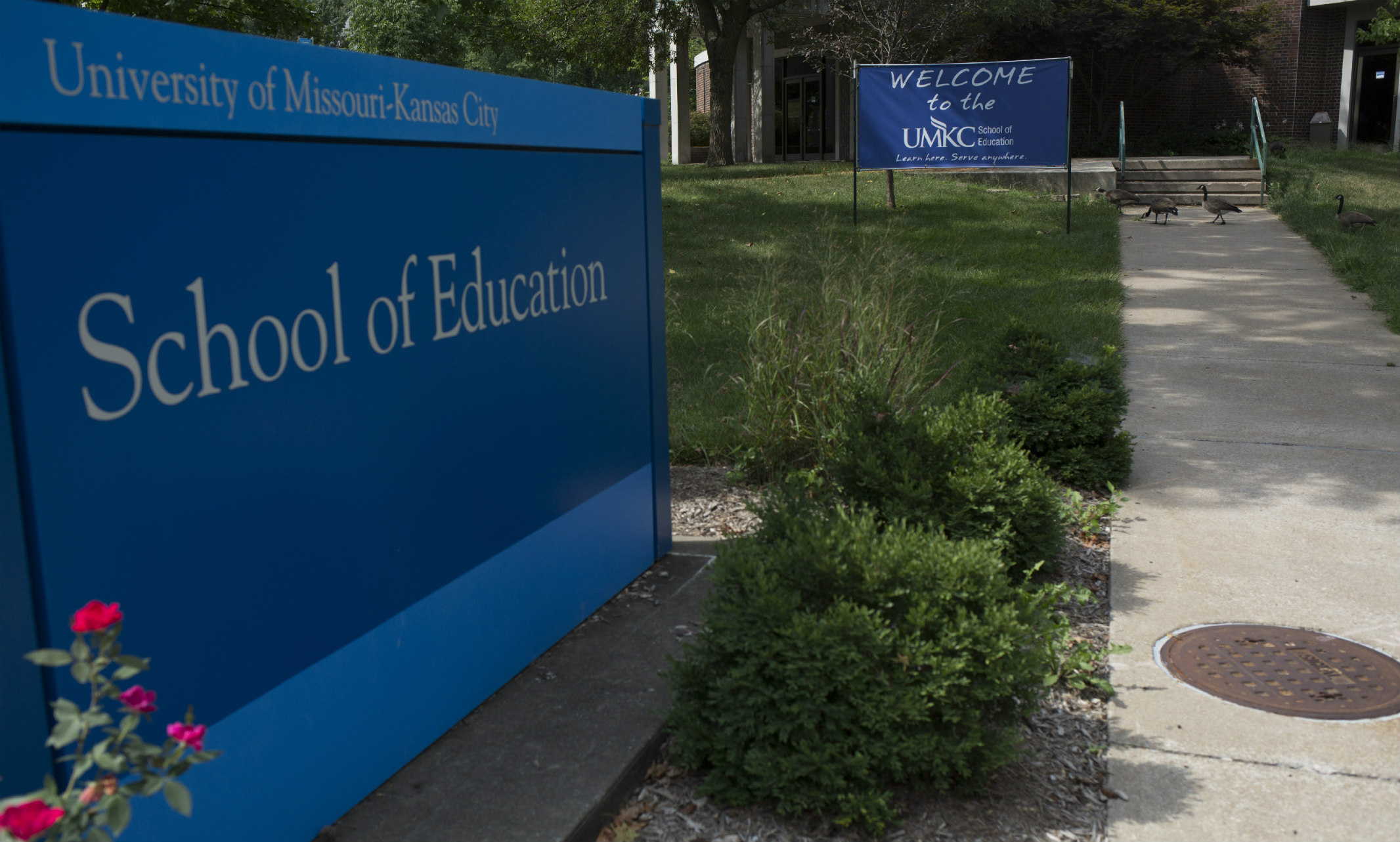
Recognition of former mayor Sly James will postponed
The University of Missouri-Kansas City School of Education has cancelled its annual Urban Education Forum scheduled for 6 p.m. Thursday, March 12. Featured speaker Marilyn Cochran-Smith, Ph.D., is unable to travel to Kansas City due to Coronavirus concerns.
The School will postpone its presentation of the Hugh J. Zimmer Award for Excellence in Urban Education to former mayor Sly James. Details regarding the new presentation date are to be determined. The biennial award is given to individuals who have affected a systematic and broad-reaching impact on urban education through policy development, program design and implementation and philanthropy.
The Urban Education Forum brings together teachers, administrators, school counselors, social workers and community members to learn from thought leaders about expanding quality education in the greater Kansas City community and is sponsored by the School of Education.
Mar 04, 2020
Eyeing the next generation of innovators, the Regnier Venture Creation Challenge at UMKC will expand the impact-driven contest
As part of the expansion, the competition will be open to college and — for the first time — high school students in Kansas, Missouri, Iowa, and Nebraska, the Startland News reports.
Mar 03, 2020
The service, Whiteboard2Boardroom, links up entrepreneurs to start companies such as Aware Vehicles.
Whiteboard2Boardroom brings together idea people and others who know how to turn ideas into products, services and startup businesses. Read the Startland News' article on the service here.
Mar 03, 2020
D.C. Council member proposes free public transit for residents
A study by UMKC and the KC Area Transportation Authority spurred Kansas City, Mo., to become the first large city to offer free public transit through a $9 million “Zero Fare KC” program. Now Washington is considering a similar initiative, in part because the UMKC research showed the zero fare program would generate nearly double its cost in regional economic benefits. Read The Washington Post's story about it and the UMKC research that spurred it here.
Mar 01, 2020
William Baker Festival musicians offer beloved composer and alumnus' work
Patrick Neas writes in The Kansas City Star of Ed Frazier Davis: "It says something about the stature of Kansas City’s classical music reputation when the son of the great English conductor Andrew Davis makes his mark as a composer right here in river city."
The music of Ed Frazier Davis was showcased in a gala concert at Helzberg Hall. Davis, who eventually graduated from the UMKC Conservatory, said: “I found UMKC and saw that Chen Yi and Zhou Long and Jim Mobberley were all there. How amazing.” Read the full story here.
Feb 28, 2020
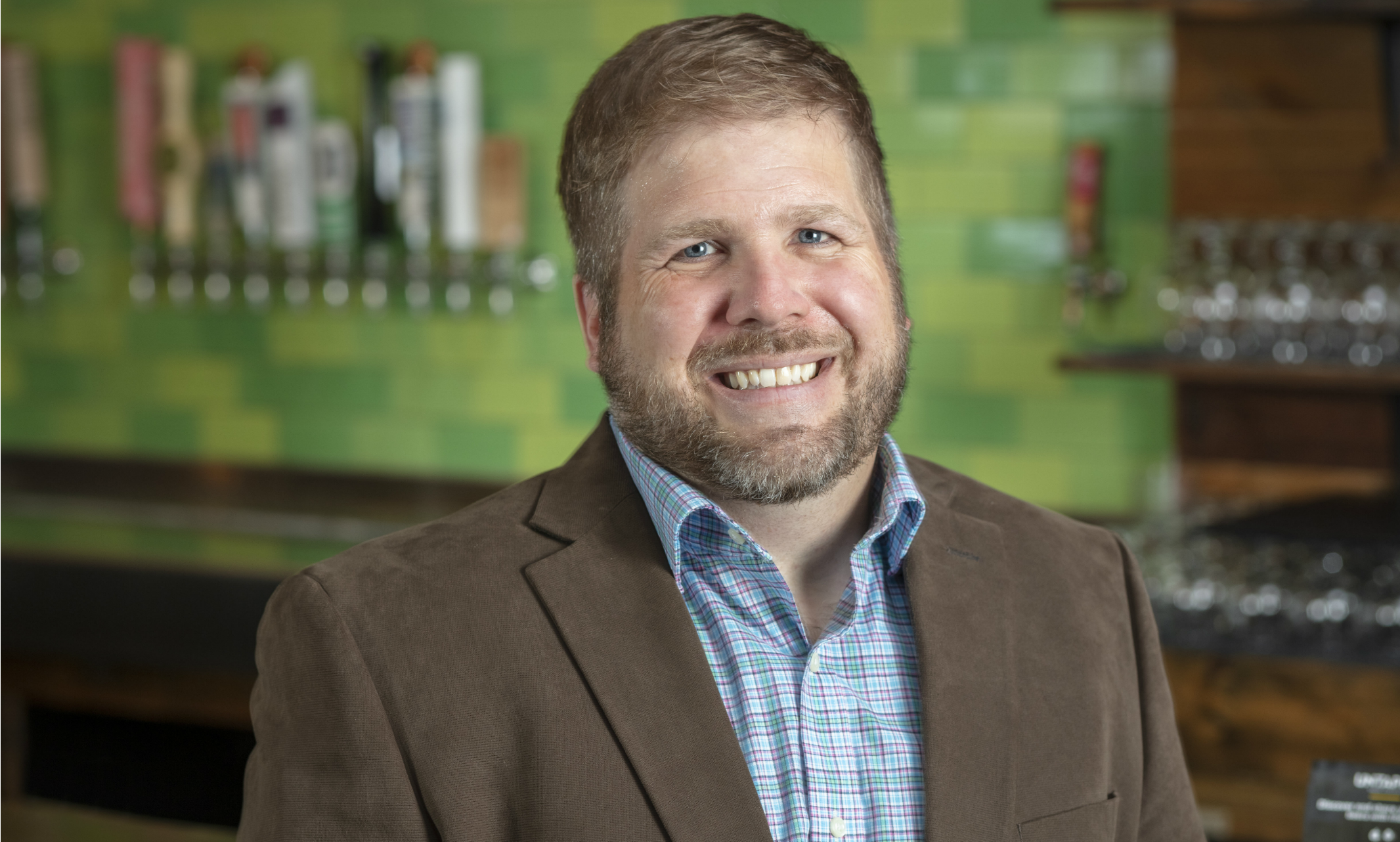
College of Arts and Sciences selects John Couture to receive Alumni Award
Each year, the UMKC Alumni Association recognizes the achievements of outstanding alumni with an awards celebration. The UMKC College of Arts and Sciences is honoring John Couture (B.A. ’96) with its Class of 2020 Alumni Achievement Award.
In 2012, Couture launched Bier Station, the first spot for sampling and enjoying craft beer in Kansas City. In addition to being an award-winning nationally recognized destination for beer enthusiasts, he’s worked hard to make his business a civic asset with an emphasis on giving back to the community. He spoke to us recently about how he's getting by during COVID-19 and his time at UMKC.
How are you coping with the stay-at-home order as a small business owner?
We know many friend in the local restaurant/bar/brewery industry are struggling mightily right now — not just economically, but emotionally. COVID-19 has wreaked havoc among local businesses that oftentimes don’t have the deep pockets of corporations to withstand weeks, let alone months, of shuttered business.
The one thing many of us do have now is time. If you want to support your favorite, local businesses, you can start by monitoring their social media. Can you place a carry-out or delivery order? How about contributing to a Go Fund Me page to support its laid-off staff? Or, purchase a gift card online to provide immediate revenue to the business. Even just a personal note of encouragement and support to a business can mean so much when each day is filled with uncertainty and anxiety.
Your major at UMKC was communication studies. How does that help you in running a business?
Communication is vital to everything we do. Our relationships with breweries are dependent upon strong communications. We try to always be professional, but friendly, and collaborative, which goes a long way to helping keep a business healthy.
How did you come up with the idea for a craft beer shop? How did you put it in motion?
I went to Europe with my best friend in 2006. We were always big craft beer fans, and we really appreciated how laid-back European pubs were. They were much more family-friendly than America. A few years later, I was researching online and saw the craft beer tasting/bottle shop concept that was hot in the Northwest, but not in the Midwest yet. Bier Station was the Midwest’s first craft beer tasting/bar/bottle shop, and we’re definitely known for our family-friendly neighborhood vibe. Selfishly, I also wanted to make sure my daughters would feel comfortable visiting me at work.
Couture, pictured right, stands with representatives from Children's Center for the Visually Impaired as they receive their donation check.
Bier Station maintains an ongoing, community-focused charitable fundraising program. Since January 2017, the pub has raised more than $160,000 for causes ranging from veterans’ programs to animal shelters to suicide prevention – as well as the UMKC Women's Center, Kansas City Athletics and Kansas City’s NPR affiliate station, KCUR. Why is it important to you to support and be active in the community?
Sometimes I still can’t believe I have a job that revolves around beer. I feel very fortunate. I also feel we have a duty to give back to our community. It helps give our staff a sense of pride to know when they come to work and pour a beer for a fundraiser, it’s for a great cause.
What advice do you have for students who’d like to follow in your footsteps?
Be confident, but respectful and always think of others in everything you do. I’ve found that a little bit goes a long way when you take others’ wellbeing into consideration with your everyday work life.
About the Alumni Awards
Join us in honoring Couture and the other Class of 2020 Awardees in our first-ever virtual celebration at 5 p.m. April 16. Go to umkcalumni.com/alumniawards to register for this free event. If you are unable to attend the event but would like to donate to student scholarships, contributions can be made online.
Meet the rest of the 2020 UMKC Alumni Awardees
Feb 26, 2020

An interview with Janet Garcia-Hallett
The Urban Institute recently awarded grants to improve the conditions of prisons in five states including Missouri. University of Missouri System researchers are playing a central role, including Janet Garcia-Hallett, assistant professor of Criminal Justice and Criminology at the University of Missouri-Kansas City.
The 4.5-year research project will be piloted at Moberly Correctional Center, a 1,800-bed minimum/medium-security facility located 35 miles north of Columbia, Missouri. It houses two intensive therapeutic communities for individuals committed to personal growth and sobriety. It provides opportunities for incarcerated individuals to give back through programs such as Puppies for Parole and Restorative Justice. It also offers 48 courses and groups that build skills in areas such as anger management, parenting, employability preparation, cognitive interventions, addiction management and understanding the impact of crime on victims.
We spoke to Garcia-Hallett about the research project.
What got you interested in researching correctional facilities?
It was personal. Growing up in Harlem in the 1980s and 1990s, I saw how mass incarceration affected the community. I saw the adversity my community faced with rampant substance abuse, and when encountering the criminal justice system. I’d see people go missing when they were incarcerated. And I’d see people return home from incarceration, and try to regain stability. I grew up with friends who became wrapped up in the criminal justice system or who were killed or committed suicide as a result of the systemic oppression. Because of this, I became interested in finding ways to address the systematic oppression embedded in carceral systems.
What will your role be in improving the Missouri correctional center? What do you hope happens as a result of your research?
We will work using community-based participatory research — getting involvement from not only those who live there, but also those who work there. The first step will be interviewing and conducting focus groups to inform climate surveys about the prison environment.
I hope that our research will encourage data-driven change and help all people impacted by the system — establishing a more humane and rehabilitative environment for those who live there and also improving the working conditions for those who work there.
Tell us about the book you’re writing.
“Invisible Mothers” (scheduled to publish in 2022 by University of California Press). It’s about mothers who were incarcerated; I interviewed 37 mothers in New York City about their experiences navigating motherhood after incarceration.
I saw much of incarceration research was based on men, and I was interested in researching formerly incarcerated women. Over two-thirds of incarcerated women are mothers, and this book is about them and putting them at the forefront to show how their gender, racial-ethnic background, and maternal roles make their experiences unique. As I’m navigating motherhood myself now, this resonates even more with me.
Who influences you the most?
My mother, Sandra Garcia, who is Afro-Latina. She endured the hardships of Honduras and came to the U.S. to find a better life and to establish better circumstances for her children to excel. She has always motivated me to aim high, to do things for the greater good and to give back to my local community and home country.
How do you influence others?
I’m a first-generation college student, and I list that on my email signature at UMKC – ‘First Gen Proud.’ Many of my students are first gen, too. By seeing that I finished college and went on through graduate school to obtain a Ph.D., this often serves as a source of empowerment. I also find that, as a woman of color, many of my underrepresented students come to me for information, advice or solace, and I am more than happy to serve in this capacity.
Feb 26, 2020
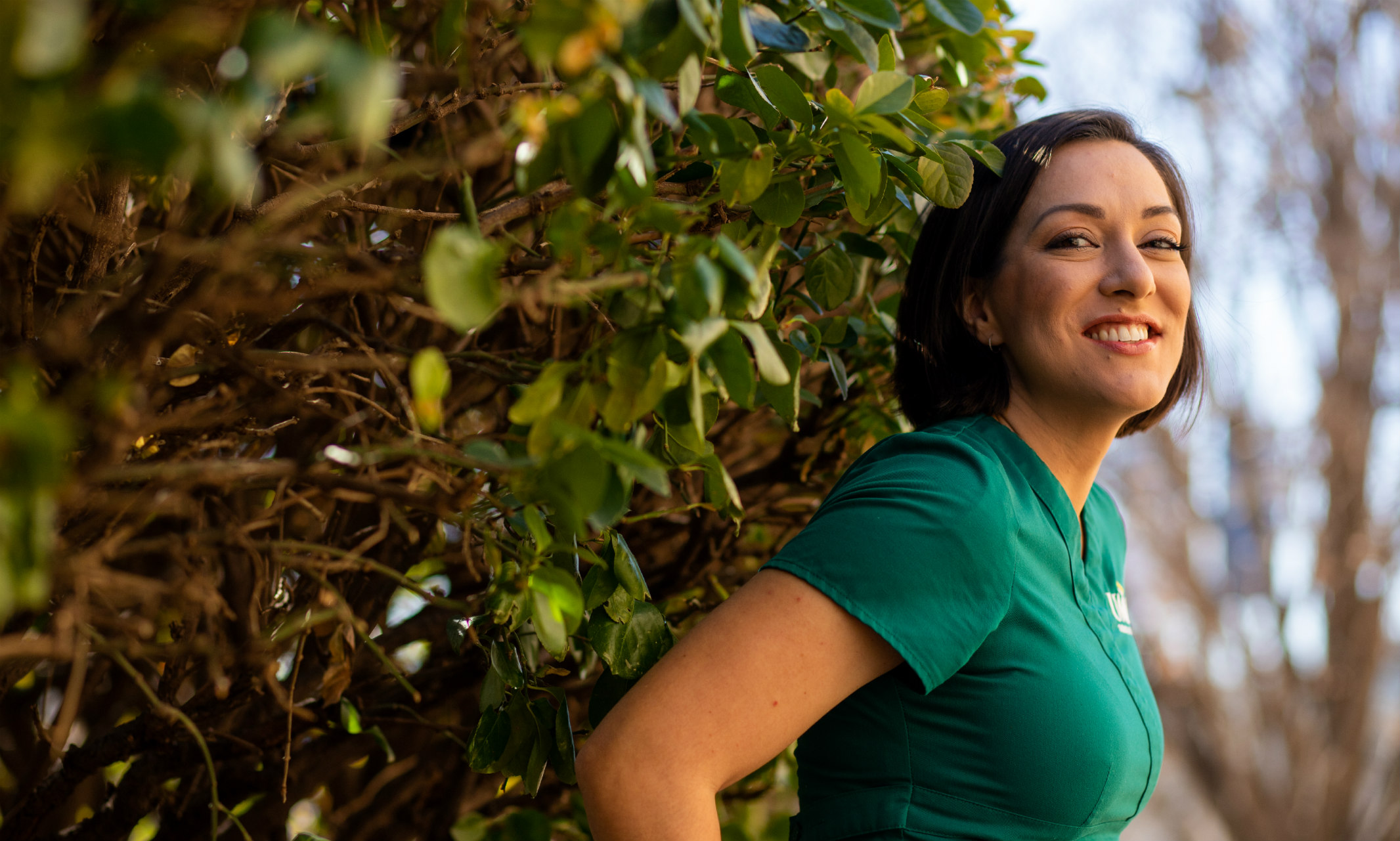
Shanon Black, mother of three, pursues healthcare field to work on reservations
Get to know our people and you'll know what UMKC is all about.
Shanon Black '22Hometown: Lawrence, KansasDegree Program: Doctor of Dental SurgeryHigh school: Lawrence High School
An interest in healthcare and a focus on making a difference for Native American communities led Shanon Black to the UMKC School of Dentistry. While the program is as challenging as she expected, the mother of three is successfully juggling school and life.
Shanon Black knew she wanted to be on the frontline of health care and make a difference for Native American communities. Initially, she was focused on medical school because of the shortage of native doctors on reservations. But one of her professors suggested she explore dentistry.
“I decided to take a look,” Black says. “A representative from the UMKC diversity office visited Haskell University later that week.”
Black, who had completed her associate’s degree, had enrolled in Haskell to finish her bachelor’s degree in environmental science when the youngest of her three children went to school. But it didn’t take her long to realize that her heart was in healthcare. After attending the informational meeting, Black realized that many of her interests were a strong fit with dentistry.
"I could tell that this school cared about the students and not just student numbers." - Shanon Black
“Dentistry is on the frontline of healthcare, which is important to me. And I used to make jewelry and really enjoyed it, so I’m familiar with crafting small objects and the need for perfection.”
That night, Black researched the need for native dentists. At the time there were fewer than 100 native dentists in the United States. According to the American Dental Education Association, of the more than 11,000 dental school applicants in 2018, only 23 were Native American.
“There are never enough Native American dentists to reach all the geographically isolated reservations,” she says. “So there is a great need. After I discovered that, I decided that dentistry was where I needed to be.”
Black shadowed dentists and dental specialists as part of her research to decide if dentistry was right for her. She was fascinated by pretty much everything she saw.
“I learned that dentistry is awesome. I knew I was moving in the right direction.”
She applied to the dental program at UMKC and other schools. After her interview, she knew that UMKC was where she wanted to be.
“Everyone was so enthusiastic, kind and accommodating,” she says. “I could tell that this school cared about the students and not just student numbers. The prospect of dental school was a little daunting, and everyone at UMKC made me feel like I was already family and I hadn’t even been accepted to the program yet.”
Black has discovered that academically dentistry is similar to medical school and challenging on many levels. Last semester she was enrolled in 25.5 credit hours and managing the lab work from three labs.
“It’s a lot of pressure,” she says. “But there are a lot of support programs, too. As intense as it can be, it’s good to know that there is tutoring, administration and peer groups that can see me through the rough times. No one has ever made me feel like a burden when I have gone to them with fears. I have only ever been met with concern, compassion and problem solving. This attention has been vital in navigating the coursework.”
Beyond coursework, the dental program has taught Black a lot about herself.
“I’ve learned that control is an illusion and my fight to be in control is and will always be a losing battle. So I need to be able to roll with what comes my way and stop trying to master plan everything. I also learned that I can’t accomplish my goals alone.”
From staff members to upperclassmen to her fellow classmates, Black is constantly inspired by their dedication and service to others.
“I’m surrounded by people who entered the program to care for people. All of them want to make the world a healthier, happier place for everyone. It makes me want to constantly do better.”
Feb 25, 2020
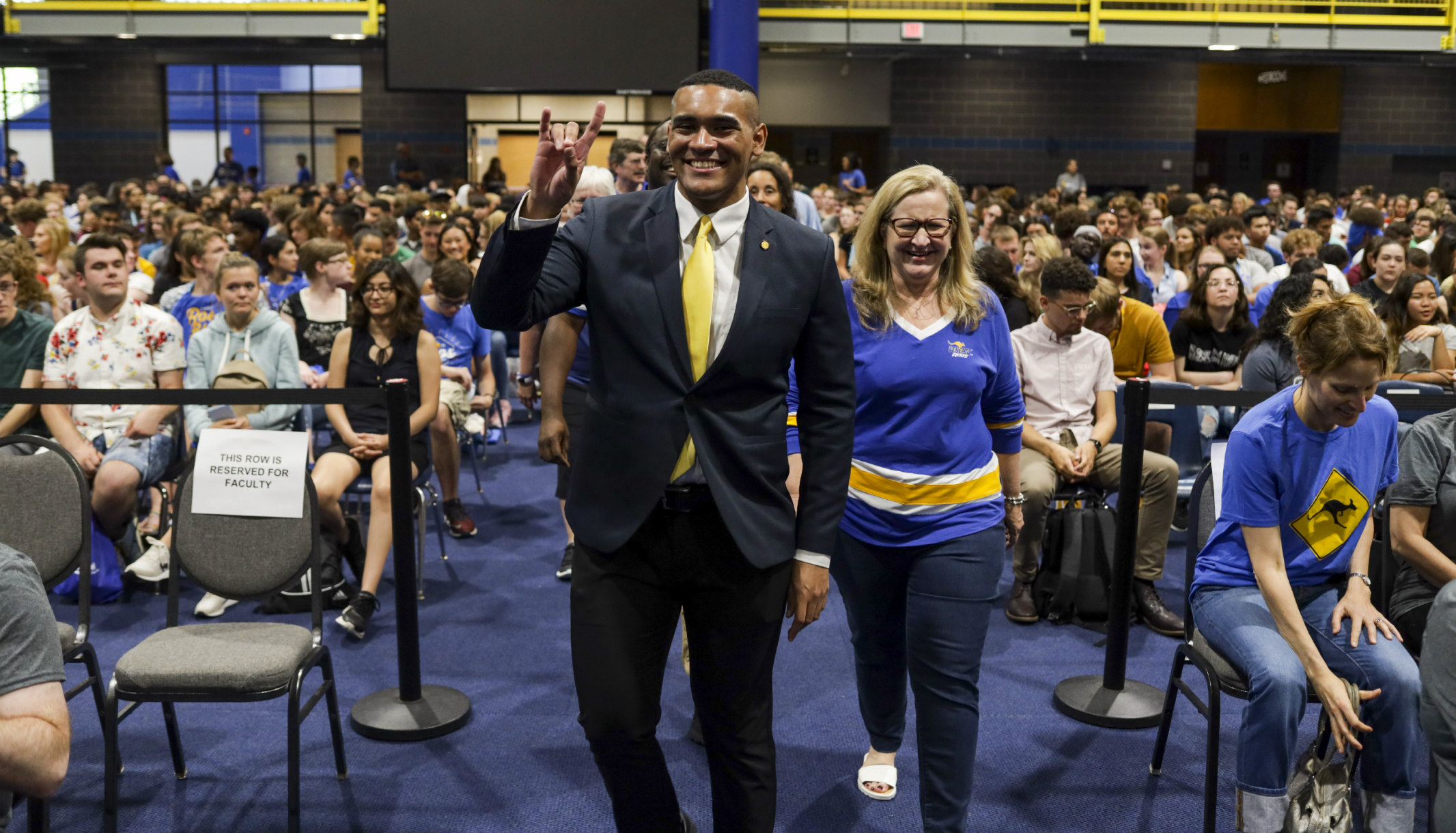
‘Doing something so remarkable that it does not fade from people's minds.’
In celebration of Black History Month, we asked student leaders to reflect on the idea of making history – as opposed to studying or celebrating history.
Participants include:
Jordan Grimmett, president, Men of Color InitiativeHometown: St. LouisAge: 20Major: Six-year BA/MD program at UMKC School of Medicine
Justice Horn, SGA presidentHometown: Blue Springs, MissouriAge: 21Major: Business Management
Alexis Jackson, secretary, The African American Student Union (TAASU)Hometown: St. LouisAge: 22Major: Health Science
Cameron Johnson, president, Multicultural Student Organization CouncilHometown: St. LouisAge: 21Major: Biology
What does it mean to you, personally, to “make history”?
Grimmett: Making history can be attained in countless ways, but there are commonalities between them: inspiring others, making change or doing something so remarkable that it does not fade from people's minds. So, to me, making history means giving back to the less fortunate, staying true to yourself and fighting for what's right.
Johnson: To me, making history means leaving a legacy that people who come after you can use to be better versions of themselves; and to get to places that, before you, they would have a harder time reaching.
Horn: As UMKC’s first multicultural, openly gay student body president, making history means that I represent my community, but also those who came before me. I represent several disenfranchised communities, and representation matters. That is why I make history: to break through barriers in sectors that have never seen anyone from my community.
Who are the people alive today who have made black history? What have you learned from them that you apply in your own life?
Jackson: People like Beyoncé, LeBron James, Barack and Michelle Obama, Oprah Winfrey and Robert Smith have made black history. These major figures have taught me that the sky is the limit and not to hold out on my dreams for anyone.
Grimmett: A few that have inspired me frequently are Barack Obama, LeBron James and Oprah Winfrey. They all have been leaders in their respective careers and have paved the way for others like them to be successful in similar ways. As a future health-care provider, I take these lessons personally because I’m aware of the disparities that exist in certain communities and I know that I will have a strong platform and resources to support and fight for those that are less fortunate.
Johnson: Barack Obama, Nicki Minaj, Beyonce, Jay Z, Simone Biles, Claressa Shields, 50 Cent. What I have learned from them is to raise the bar against all odds. I have also learned to follow your dreams, even if the people around you won't understand at the time.
Do you know anyone personally who you would call a black history-maker? What have you learned from them?
Johnson: Every person that breaks down barriers for people in their family is making black history. We come from generations of overcoming oppression, so yes, if you are doing things that you never thought you could do, then that is black history. Congratulations are in order.
Grimmett: Dr. Kevin McDonald, the vice president for Diversity, Equity and Inclusion at the University of Virginia. I was fortunate to meet him through a program called MOCHA (Men of Color, Honor and Ambition) that strives to provide development in various aspects of life and academics to men of color in high school and college in an effort to increase academic success, retention and future success as leaders.
Horn: I know a lot of people I would call history makers and many of them are here at UMKC, leaders such as Athletic Director Brandon Martin, NAACP President Kayla Pittman, Vice Chancellor of Diversity and Inclusion Susan Wilson, MSA President Cameron Johnson, TAASU President Brandy Williams and many more. Those are people I look up to because they are making history every day.
Why does making history matter?
Horn: For our community to advance and make strides, we must have a seat at the table. When big decisions are being made and/or policy is set, there must be someone from our community representing us and advocating for us. Always.
Grimmett: We need acts of excellence to continue inspiring others to follow their dreams. There have to be leaders and innovators who aren't afraid to take risks for the advancement of mankind.
Do you believe that you will make history? As an individual? As part of a community?
Horn: I believe I will continue to make history because I’m pursuing a career in a profession that hasn’t seen a lot of people like me. I plan on pursuing a career in politics, and my end goal is being Missouri’s first African American governor.
Grimmett: There is not a lot of African American representation in medicine, so in part I hope to make history as an individual, but also make history by building a community of African American physicians that can be the face for aspiring individuals in younger generations.
Johnson: I do believe that I will make history, not because I seek to be famous but because everything that I do is for the benefit of those around me. That kind of dedication to the cause has a good chance at getting recognition, and if it doesn't, that doesn't make the contribution to my people any less historic.
Jackson: I believe I will make history by contributing to our society, by volunteering to make change and helping keep policy makers in office that support all people and recognize their struggles.
What are your goals in terms of making history?
Jackson: My goal is to excel in my career, to let other black and brown girls know that anything is possible.
Grimmett: Graduating medical school and becoming a physician will open many doors. I want to create scholarships and programs that will help increase the population of underrepresented minorities attending college and entering medical school.
Feb 25, 2020
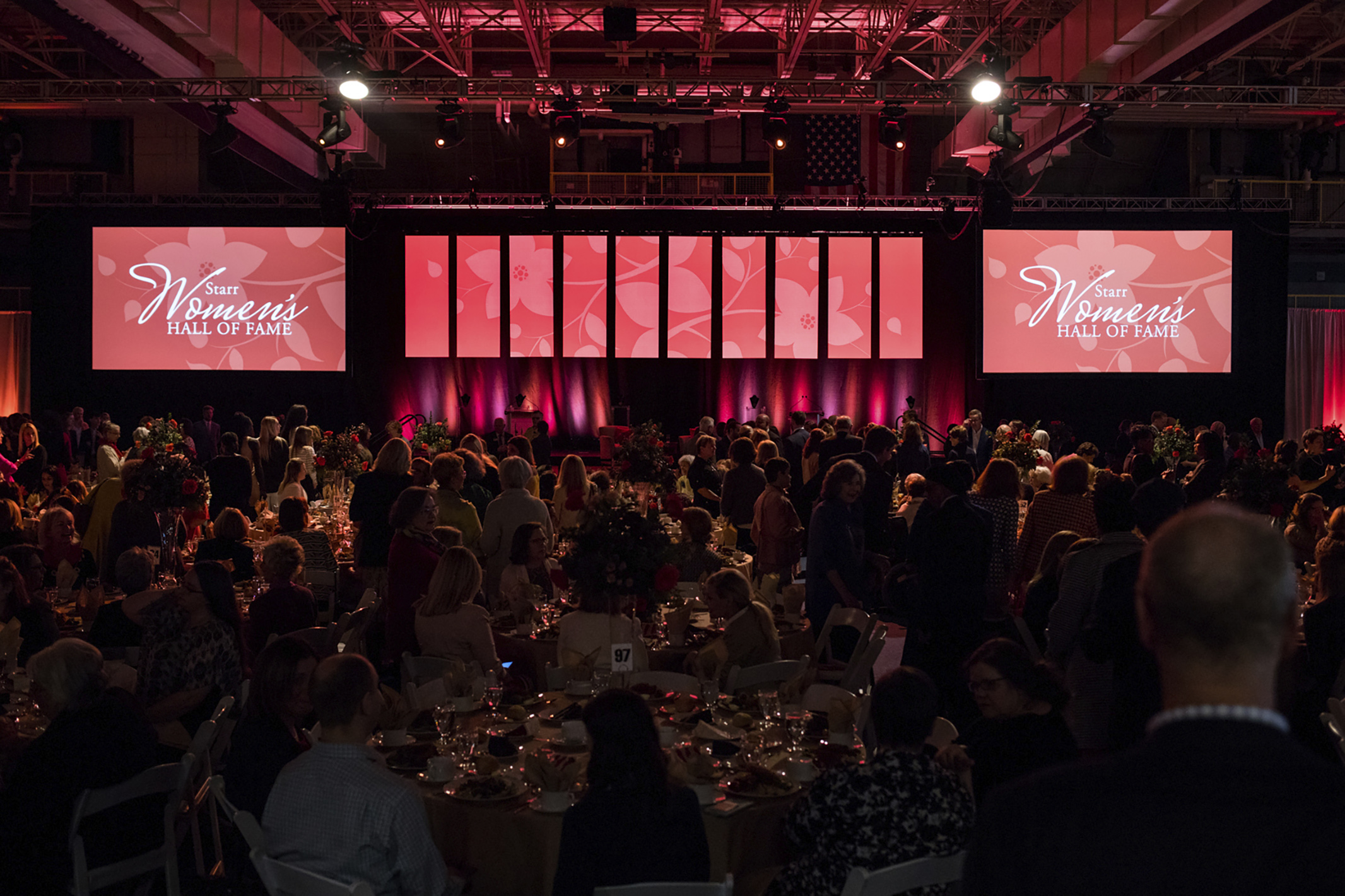
The Starr Women’s Hall of Fame recognizes Kansas City women of distinction
Every two years, an independent panel of Kansas City community leaders selects local women of significance for the Starr Women’s Hall of Fame.
This year, the panel is once again seeking nominations for women with noteworthy ties to the Kansas City area who have historically or more recently made important and enduring contributions in their fields of work.
The nomination form and full directions for making a nomination are available online. The deadline for submitting a completed nomination packet is July 31.
Twenty-six Kansas City women have been inducted into the Starr Women’s Hall of Fame, half of them posthumously. Members of this select group include philanthropists, business executives, women’s and civil rights activists, political leaders and more. You can read more about the inductees online.
The Women’s Hall of Fame is named after Martha Jane Phillips Starr. A Kansas City philanthropist and women's rights leader, Starr was one of the first women to serve on the UMKC Board of Trustees. She played an important role in establishing the university’s Women's Council and the Graduate Assistance Fund, which today provides financial assistance to female students. UMKC’s annual Starr Symposium is named after and endowed by her.
Starr died in 2011 at the age of 104.
The Starr Women's Hall of Fame is funded by her family, the Starr Education Committee and the Starr Field of Interest Fund. It is also supported by 27 leading women’s organizations throughout Kansas City.
Make your nominations for Starr Women’s Hall of Fame by July 31.
Submit a nomination
Feb 24, 2020
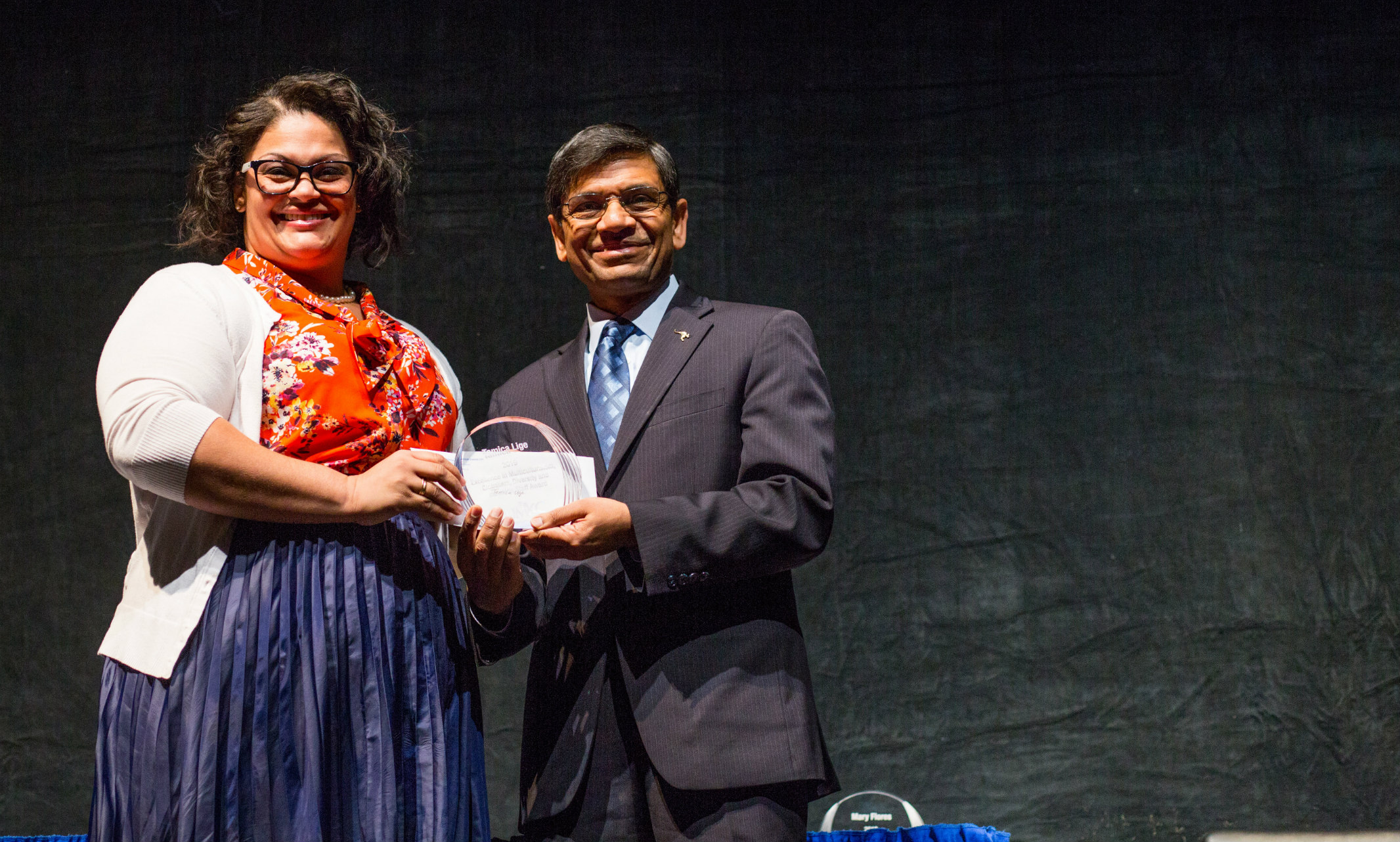
Tamica Lige’s father overcame poverty and discrimination to provide his daughter an avenue to success
Tamica Lige, STAHR program coordinator of diversity at the School of Medicine, feels fortunate to have been inspired by so many people in her life, from her childhood clarinet instructor to writer Toni Morrison. But her biggest influence was her father.
What about your father’s accomplishments inspired you?
My dad, Henry Edward, Lige Jr., was one of six kids who grew up in the projects of Montgomery, Alabama, in extremely impoverished and segregated conditions. He was 11 years old at the time that Martin Luther King Jr. led the Selma to Montgomery march. Dad lived through the civil rights movement, experienced the rampant racism of the Deep South and watched his parents struggle to gain equal rights.
Like so many young black men who come from disadvantaged backgrounds and underperforming schools, my dad saw sports as the ticket that would give him a chance at a better life. He played football in high school and was recruited to play collegiate football at Kansas State University in Manhattan, Kansas.
"Dad lived through the civil rights movement, experienced the rampant racism of the Deep South and watched his parents struggle to gain equal rights."-Tamica Lige
I can only imagine the culture shock he faced with upon arrival to the predominately white town we called home. While in Manhattan, my dad met my mom, a white woman from Shawnee, Kansas, and began his family with her.
My parents came from two completely different worlds. My dad’s family was disgusted with him for dating a white woman, and my mom’s ridiculed her for dating a black man. It was commonplace for my dad and us kids to be addressed with racial slurs by our own family members.
The constant microaggressions, blatant acts of racism and mistreatment could have broken my dad’s spirit, but instead, he used it as fuel to be a better man. He was one of the most kind, caring and accepting people I have ever known. He embraced any and every one he encountered and made a conscious effort to have genuine exchanges of experience with people who were different than him.
My dad overcame so much adversity in the 54 years he walked on this earth that I can’t help but be inspired by him. His soul smiled so bright despite all of the terrible things he had gone through. He was my biggest cheerleader. He was always right there on the sidelines to tell me I could and would be able to do whatever my heart desired.
Feb 24, 2020
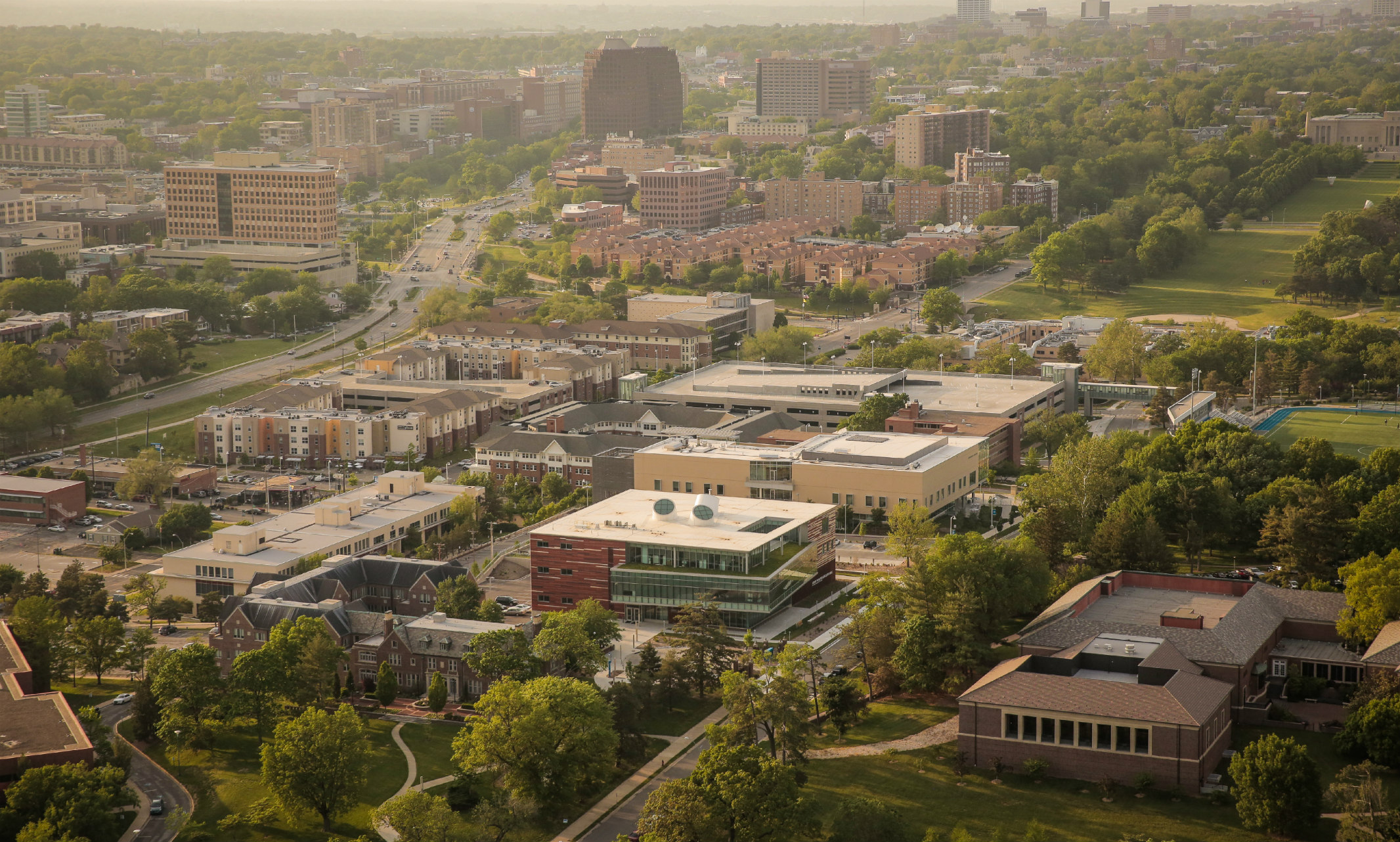
UMKC community encouraged to complete U.S. Census
UMKC – and Missouri – needs your help. March 12 is the first day you can respond to the 2020 census. And for the first time in American history, individuals will complete the U.S. Census online.
The state of Missouri needs everyone to complete the survey. The count impacts federal student loans; federal research grants; campus funding; campus improvements, including labs, buildings and classrooms; health and social services; federal legislation; and students’ future careers. Many professionals working in medicine, social work, nursing, science, research or public health are also heavily dependent on federal funding. College students benefit from federal student loans, legislation, campus funding, campus improvements, and health and social services.
The U.S. Census Bureau has made an internet link available. The department will also mail cards with PIN numbers to be used for filling out the census. People can still answer census questions by mail. By responding to the census, you can help bring resources and representation to your community and campus.
To help ensure everyone is counted, including hard-to-reach communities such as college students, a number of campus and community events will be scheduled. One event will be April 1, which is Census Day. Specific activities are still in the planning stage and will be announced soon.
The U.S. Constitution requires a census every 10 years. The census covers the entire country and everyone living here. The Census Bureau conducts the decennial Census, the American Community Survey, the economic Census and many other surveys and is the leading source of quality data about the nation’s people and economy. Federal funds, grants and support to states, counties, academia and communities are based on population totals and breakdowns by sex, age, race and other factors. Individuals’ data are confidential and federal law protects census responses. Answers can only be used to produce statistics.
The census is also important for redistricting and fair representation. Every 10 years, the results of the census are used to reapportion the U.S. House of Representatives, determining how many seats each state gets.
Quick facts about Missouri
Missouri has nearly 6 million residents, and is the 18th most populated state in the U.S.
338,515 students were enrolled at universities, colleges and community colleges in Missouri in fall 2019.
In 2017-18, 104,364 Missourians were awarded $431,411,598 in Pell Grants based in part on census data.
Census survey data are one factor to determine the funding for many programs in higher education.
Feb 24, 2020
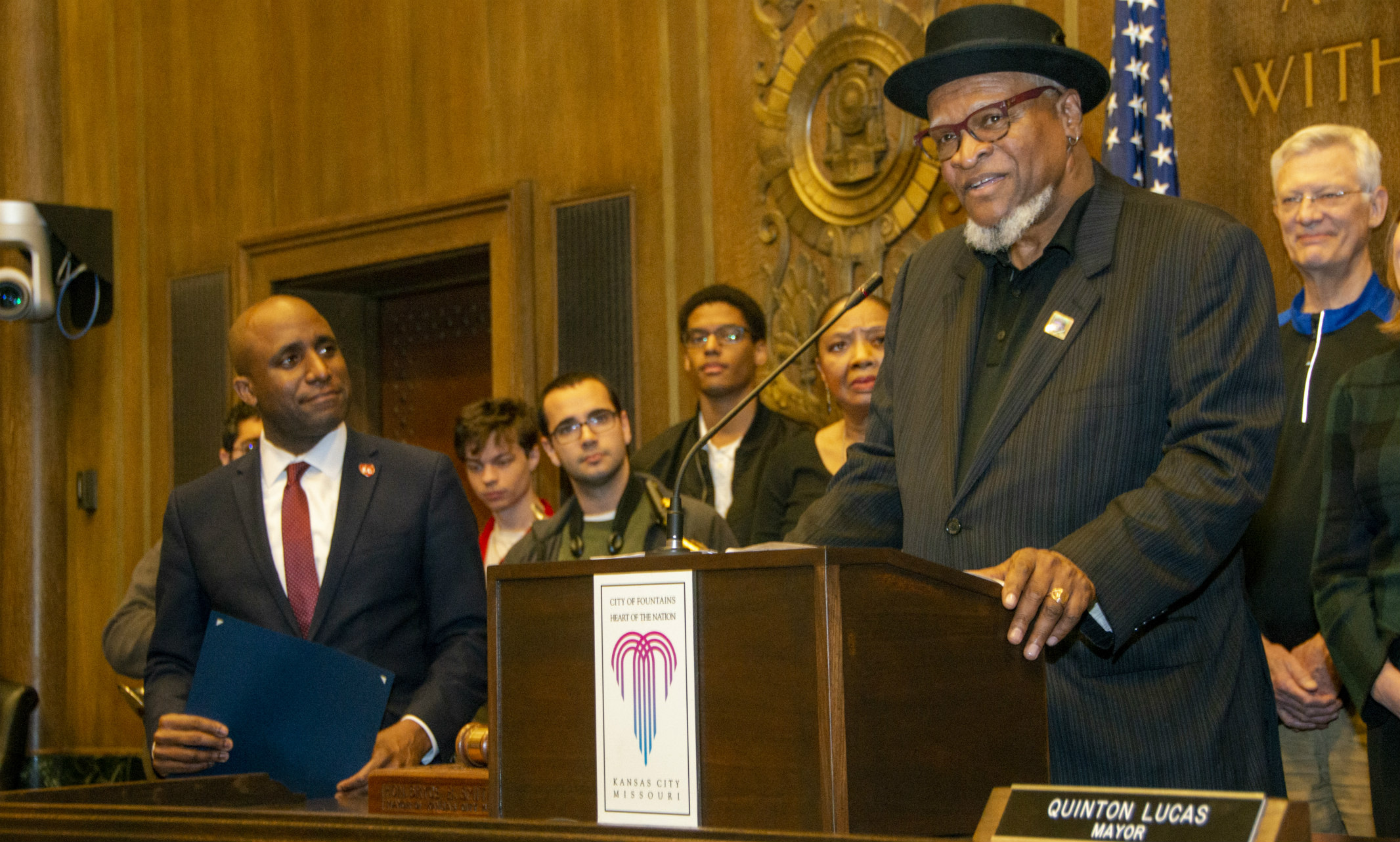
Watson’s father instilled love and respect of music and family
Bobby Watson, renowned saxophonist and retired UMKC jazz studies professor, grew up with four brothers all one year apart. His father, who quietly and consistently taught his children to create an interesting life and value their relationships with each other, has been his lifelong inspiration.
Kansas City Mayor Quinton Lucas and the Kansas City, Missouri City Council issued a resolution for Watson at the Feb. 27 meeting. The resolution stated: “Honoring Bobby Watson on the occasion of his retirement for his twenty years of dedicated service to the Conservatory and UMKC as the Distinguished Professor of Jazz Studies.” He thinks his father’s influence was critical to his success.
Who was one of your greatest inspirations when you were either a child or young man?
My father. He flew airplanes and taught pilots to fly at ground school for the Federal Aviation Administration. He was an artist and an inventor – he held patents on several of his inventions. But everything centered on his love of music. He played saxophone in church and at home. He would stand in a corner and play because he thought the sound was the best there.
What about his accomplishments inspired you?
He wasn’t a boastful man. He taught us humility. As young black men he wanted me and my four brothers to be good public speakers, so we had Toastmasters at home. We stood at a podium and spoke with no microphone.
"He really taught me how to listen."-Bobby Watson
He kept us safe. When we wanted to play basketball, he built a basketball court for us and our friends at home. When we wanted to play pool he put a pool table in the basement so we wouldn’t go to pool halls. When we wanted to ice skate, he made a skating rink in the yard.
Usually, I thought he was right. There were five brothers in my family and he taught us that you don’t fight with your brother.
Once when we were young, I got in a tiff with one of my brothers. He told us to sit on the sofa and hug each other. Then he went out to cut the grass. And then he trimmed the bushes. Then he stopped and fixed himself a glass of lemonade – all while we were holding each other looking out the window and crying and wondering when he was going to let us let go. We didn’t fight after that.
How have you incorporated his values into your life?
He really taught me how to listen. When I talk to people, I listen. If you’re thinking about what you’re going to say next, you’re not listening. I don’t want to go back and forth like you see today. I’ll talk, you listen. You talk, I’ll listen.
Feb 24, 2020
Five interdisciplinary RJI Student Innovation Competition teams tasked with developing tools to fight against deep fakes and fabricated content pit...
UNEWS - Digital media has made all sorts of information increasingly accessible, and as a result, the deliberate spread of disinformation has become an increasingly important issue.
Known by the relatively new term “fake news,” this false information rose to prominence during the 2016 election, with governments and internet companies desperately making efforts to fight it.
Fortunately, students in the UM system are now working to combat fake news by creating programs that can recognize fabricated photos, videos and audio. Students developed verification software as a part of the Student Innovation Competition at the University of Missouri’s Reynolds Journalism Institute (RJI). Read more.
Feb 21, 2020
Two School of Computing and Engineering teams pitched their ideas for fighting fake news during the University of Missouri School of Journalism’s D...
Columbia, Mo. — A web-based tool known as Deeptector.io, which harnesses artificial intelligence to detect synthetic or deepfake videos and images made with AI, won the 2019-20 Missouri School of Journalism’s Donald W. Reynolds Journalism Institute student innovation competition and a $10,000 prize.
Defakify won second place and $2,500, while Fake Lab received $1,000 for third place. Deep Scholars also participated, but did not place in the competition. Read more.
Feb 21, 2020
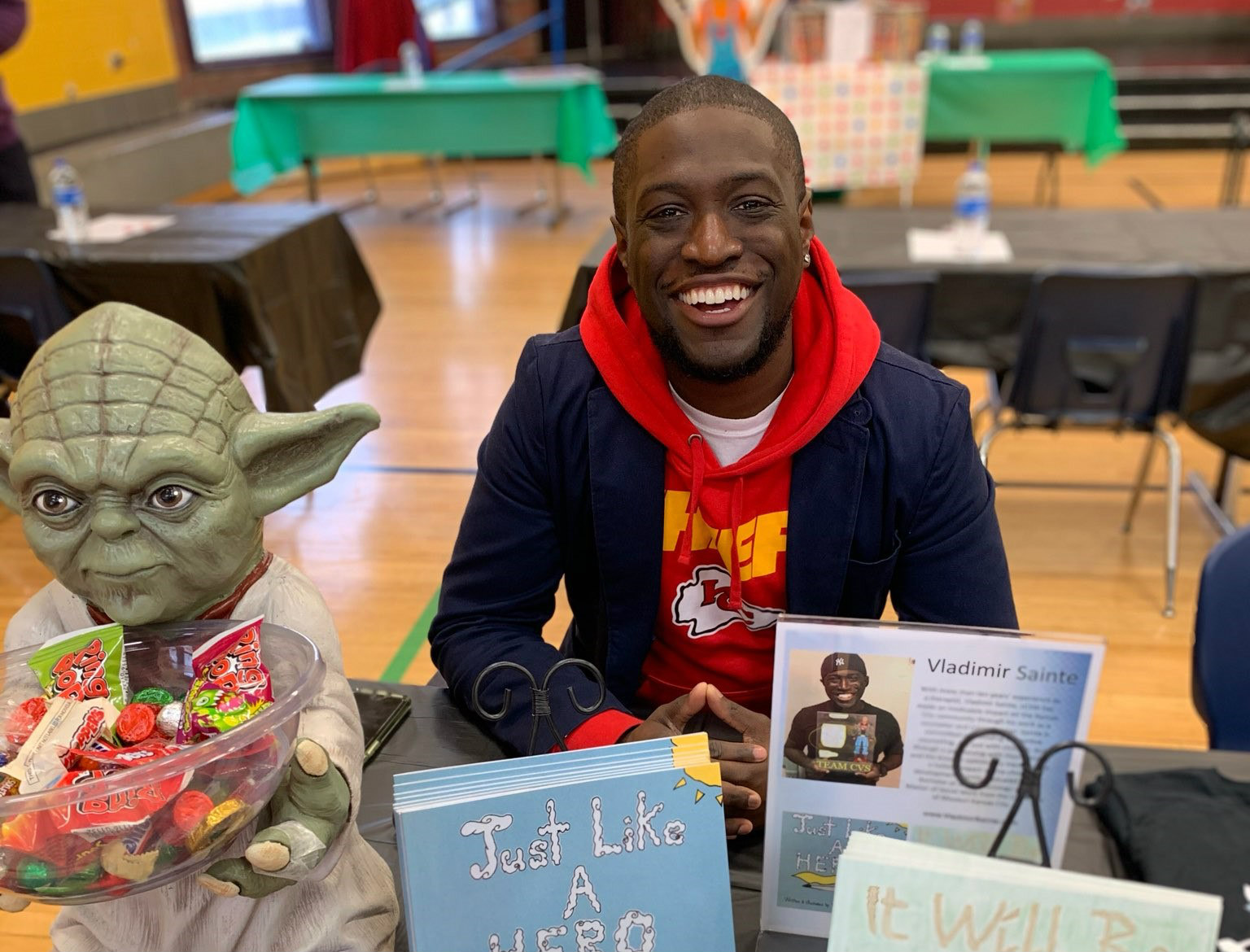
Alumnus Vladimir Sainte addresses mental health in children through writing and social work
Our ongoing story starts with people from around the world, converging here at UMKC. Get to know our people and you'll know what UMKC is all about.
Vladimir Sainte, LCSW
Hometown: Queens, New York
UMKC degree program: B.A., sociology ’07, Master of Social Work ‘10
Vladimir Sainte is helping children by carrying forward the mentoring he received as a young man. Originally from Queens, New York, his mother sent him to live in Kansas City with his uncle, William Jacob, hoping he would be a good mentor for Sainte. Her strategy was a success; Jacob instilled a love of learning and a desire to give back.
Could you tell us a little about your work?
I’m a team leader for client care in mental health at Truman Behavioral Health, and worked previously as a counselor and crisis clinician. I also write children’s books to create inclusive literature to increase awareness of diversity and tolerance.
Why did you choose this career/field?
As an undergraduate, I knew I wanted to get my master’s degree. I took Introduction to Social Work with Grey Endres. He’s this great guy who wears Hawaiian shirts and superhero belts to class. He showed me that social work can be a profound and beautiful career – where you get to play with kids all day!
"With power comes great responsibility."-Vladimir Sainte
How did you become an author?
I was working with a black boy who was struggling with his identity. I was looking for a book that might help him and I couldn’t find anything, so I decided to write one myself. I wrote “Just Like a Hero” – a story about Will, a black boy who is coping with daily struggles – to highlight the importance of personal value. I didn’t expect it to escalate, but I’m happy it’s been recognized. My books are designed as a reminder of how important we all are.
The other reason I focused on a young black boy in my first book is because I wish I’d had something like this growing up. Throughout my career, I’ve seen that some people in the African American culture can treat mental health issues as taboo. If we know someone who has mental health issues – that person is crazy. We don’t talk to them. It’s like a plague. And we act as if we ignore it, maybe it will go away.
I wanted to reach diverse backgrounds through boys or girls who look like me.
"We need to accept people as they are – shine the flashlight on that – and let them know if things are difficult that it’s not going to be this way forever.”
What did you most appreciate about UMKC?
Meeting my wife, who was in the social work program with me. We were friends first. She has been my rock and my pillar through my career and my books. I can be in the clouds – she is analytical. She’s instrumental to my process.
How did UMKC and your UMKC connections help prepare you for your career?
Elaine Spencer-Carver, School of Social Work’s director of field education, saw the potential in me. I saw Grey Endres as a mentor. He taught my last undergraduate class and I told him I’d applied to the MSW program. He helped place me in my practicum at Gillis Center my last year in the program and it became my first job.
Do you have a personal motto or words you live by?
I love comic books, and Spiderman’s motto has always resonated with me.
“With great power comes great responsibility.”
As a social worker, I am an agent of change – that has great power. Kids learn through their environments. If we’re stressed, they feel that. We need to show acceptance, support and compassion. We need to accept people as they are – shine the flashlight on that – and let them know if things are difficult that it’s not going to be this way forever.
Who has been a great influences in your life?
My uncle, William Jacob, who was an engineer in Kansas City, was very influential. When I was a 16-year-old kid living in New York, I hung out with kids who weren’t interested in school. I wasn’t interested in school. I had terrible grades and was searching for connection, which I found with the wrong group of people. He and my mother came up with the plan for me to move to Kansas City so he could mentor me. He saw my potential, even though I didn’t. Every Tuesday night after watching The Andy Griffith Show, he’d sit down with me to do one hour of algebra. I hated it, but he pushed me. He made me enjoy education. With his influence, I saw a future for myself.
"Every Tuesday night after watching The Andy Griffith Show, he’d sit down with me to do one hour of algebra. I hated it, but he pushed me. He made me enjoy education. With his influence, I saw a future for myself.”
How are you now using your influence to impact others?
I hope I’m helping to break down the stigma of mental illness by raising awareness in children. For me, that’s through creating books that talk about mental health. It’s important for kids to understand that it’s OK to be anxious or depressed, but you have worth. You are important. Mental health struggles don’t signify or create a boundary. My first book, “Just Like a Hero,” is about a young black boy, and the second, “It Will be Okay,” is about a Latina girl. The third and fourth books also feature children of color with their own challenges.
Recently, I spoke at Turner Middle School. A girl came up to me after my presentation and thanked me. She said she’d struggled with feeling sad for herself, and that she doesn’t feel important. My presentation helped her understand that she can talk about that. It was breathtaking to hear.
Feb 19, 2020
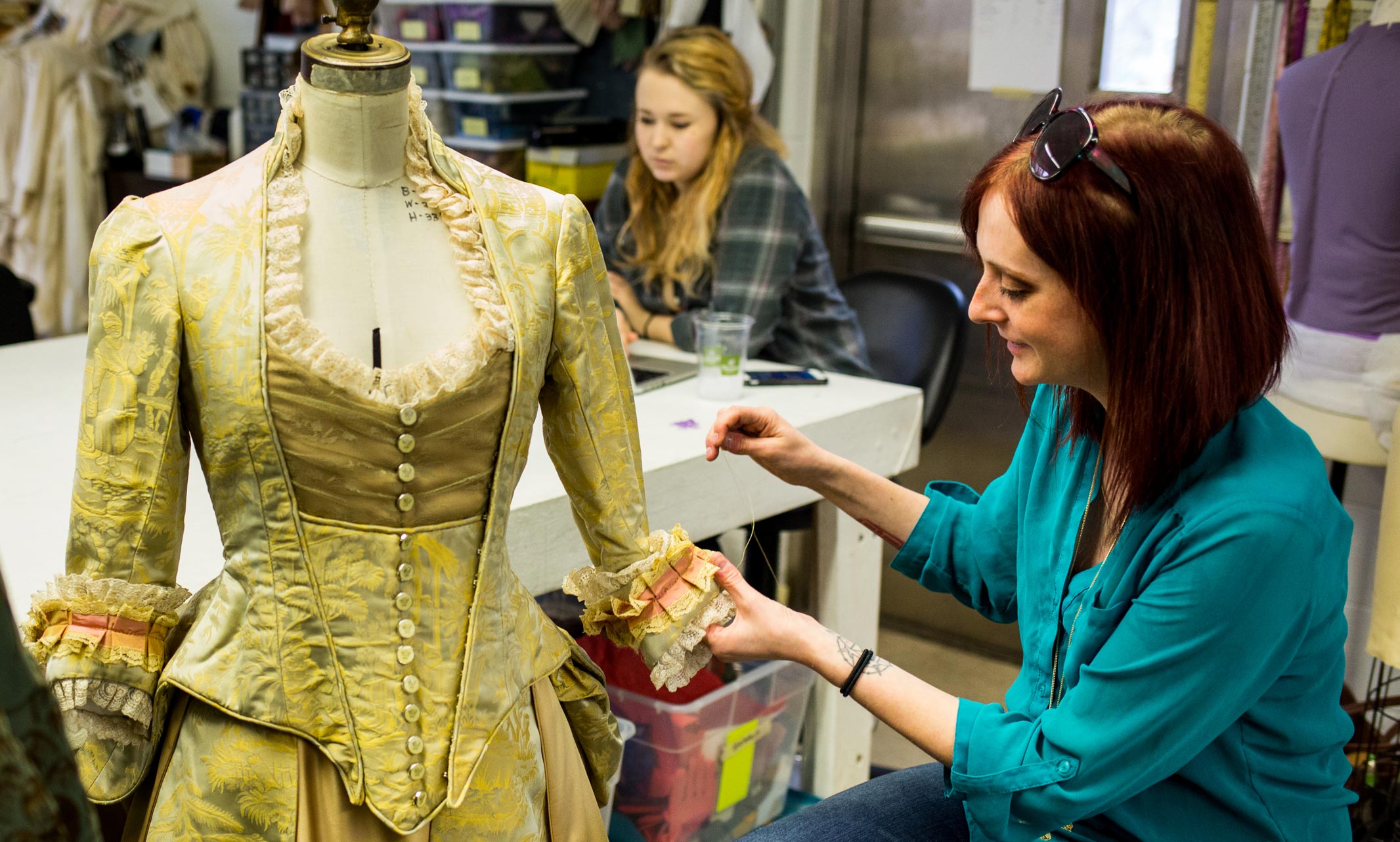
Hollywood Reporter names UMKC to its Top 10 list
For the third year in a row, Hollywood Reporter has included UMKC Theatre in its list of Top 10 Costume Design schools.
“Many incoming grad students think that they can only have significant training and careers on the coasts,” said Lindsay W. Davis, UMKC Theatre professor of costume design. “Three times in a row validates our training program, because we already know that all our graduates work in the entertainment industry.”
UMKC Theatre offers a single comprehensive M.F.A. degree in costume design and technology, which has been key to its success. Students learn many skills including drawing, painting, sketching and learning how to construct a garment with techniques in fabric manipulation, millinery, tailoring and pattern drafting.
Doug Enderle was the first M.F.A. costume design graduate from UMKC in 1981. He received an Emmy for his work as a senior lead costume designer for The Walt Disney Company. Other notable alumni include Tom Houchins, costumer on ABC’s “Grey’s Anatomy;” and Jonathan Knipscher, lead tailor on the Hugh Jackman film “The Greatest Showman.” Pheobe Boynton (M.F.A. ‘08) is a freelance costume designer and technician. She was costume supervisor on the Norwegian and Oceania cruise lines; and also designed for the Discovery channel group, YouTube Red, The Los Angeles Opera, Kanye West, Kansas City Repertory Theater, Legendary Digital, Relativity Media and Theatrical Arts International.
Here’s where other UMKC Theatre graduates are working: HBO, The Metropolitan Opera, The Los Angeles Opera, on Broadway, London’s West End, the Market Theatre in South Africa, as well as opera companies in Brazil, Italy and throughout the U.S. Recent graduates have worked at regional theatres such as Ford’s Theatre in Washington, D.C., The Roundabout Theatre in New York City, The Cleveland Play House and The Old Globe in San Diego.
Feb 17, 2020
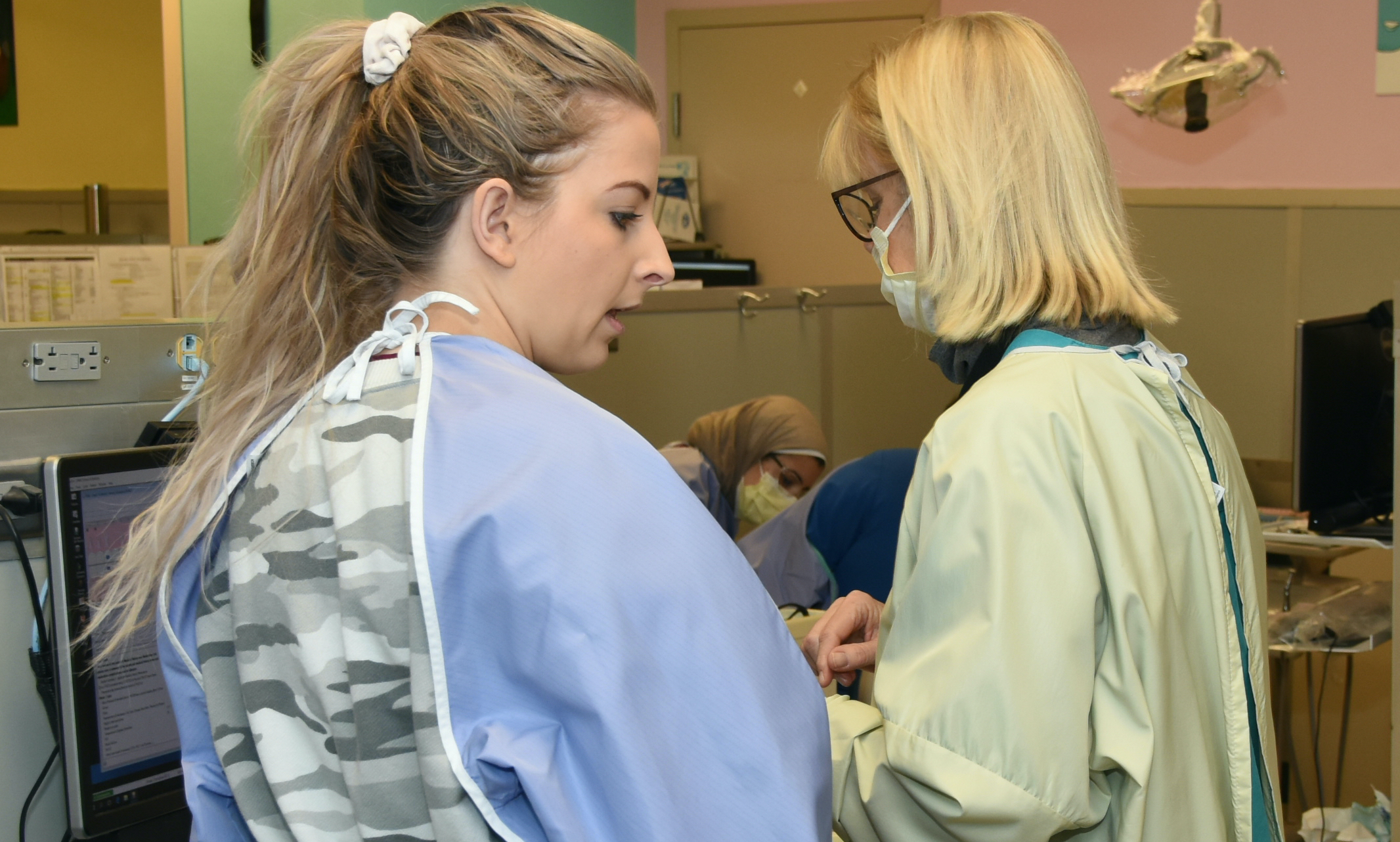
Half-off prices on many basic procedures now are available for anyone with a valid UMKC student ID
The pace and costs of college can make getting good, affordable dental care seem daunting, but at UMKC, the School of Dentistry can help. Services at the school’s clinic often cost less than what private practices usually charge, and now the school is offering further discounts to UMKC students.
“University students often avoid visiting the dentist for financial reasons,” said Yasmin Hussein, a fourth-year dental student. “However, what many UMKC students do not know is that UMKC’s dental clinic provides very affordable prices for dental care. UMKC students receive a 50 percent discount on top of the already low prices, not to mention the convenient location and excellent facility.”
The added discounts for students, which started this semester, offer a basic evaluation with X-rays for new patients or an emergency visit for just $10 and, as Hussein noted, half off any further basic services needed, such as taking care of a cavity.
Hussein’s classmate, Rachel Slenker, also agreed that the clinic’s location, just a few minutes north of the main campus, was ideal for busy students.
“The dental care they receive is very thorough,” Slenker said. “Because it's a learning environment, all of our work is getting checked by a dental professional, sometimes multiple. Many of my patients have said our close attention to detail and the ‘many eyes that see their teeth’ are the main reasons for attending the clinic.”
“I have worked with several dental students who are seeing UMKC students receiving the new discount. They are so grateful to be able to take care of their dental needs at an affordable cost.” — Linda Seabaugh, DDS, clinical assistant professor
One of their supervisors, Linda Seabaugh, DDS, said it was particularly rewarding seeing her students provide care for other students.
“I’ve seen many UMKC students come through the clinic, but one stands out to me,” said Seabaugh, a clinical assistant professor and director of ergonomics at the dental school. “He was a patient of one of our students and had quite a bit of dental work done. He would have benefitted greatly from reduced fees at that time. As it turns out, he is now a first-year dental student. He already has a unique perspective as a dental school patient, which will serve him well when he sees his own patients.”
Seabaugh, who taught at the school in the 1990s and returned about three years ago, added, “I have worked with several dental students who are seeing UMKC students receiving the new discount. They are so grateful to be able to take care of their dental needs at an affordable cost.”
The clinic’s patients get high-quality care at a good price, and they help the next generation of dentists prepare for their careers.
“Most of my time is spent working with students in the clinic as they treat patients,” Seabaugh said. “The clinic is a critical element of dental education … when dental students transform into dentists. It is amazing to watch how much the students learn and how their skills develop. Not only do they advance their knowledge and skills, they provide much needed dental services to members of the community, many of who would not otherwise be able to afford dental care. In addition, our students have the privilege to work with many diverse individuals and apply our core values of excellence, compassion, integrity and justice.”
Affordable Dental Care for UMKC Students
$10 – Initial screening, examination and X-rays for new patients only
$10 – Emergency visit
50% off – UMKC’s already low prices (does not apply to care in Advanced Education Program clinics)
Call 816-235-2100 for an appointment. More details on the program are here.
Feb 13, 2020
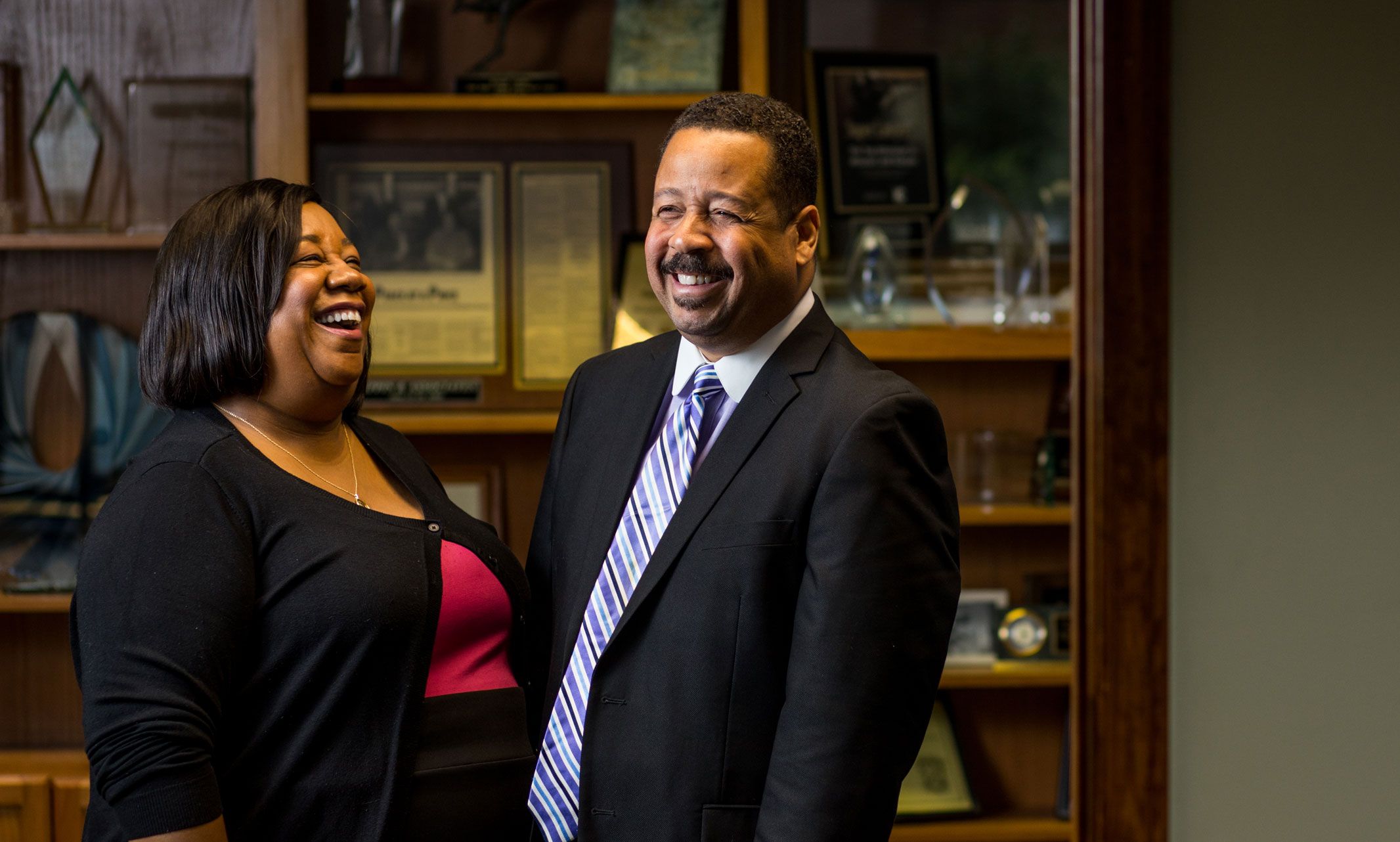
Law graduates navigate work and love — at home, at the office and on television
If you ask Dana Tippin Cutler (J.D. ’89) and Keith Cutler (J.D. ’89) whether they thought, in their wildest dreams, they’d ever have their own television show, they’d tell you “heck no!”
In fact, Dana says when she first got the call from a production company several years ago looking for a husband-and-wife team to preside over a new courtroom TV show, she hung up.
“I thought it was a joke. I have a friend who likes to jerk my chain and I thought he was pranking me,” Dana says. She didn’t buy it until the production company called back and confirmed they were not, in fact, pranking her.
Dana was sure her husband, Keith, wouldn’t go for it, but to her surprise, he agreed to learn more. Two years later they’re the hosts of the Emmy-nominated daytime TV show Couples Court with the Cutlers, the first time a married couple has ever presided over a TV courtroom.
Finding the balance in law and love
Couples Court with the Cutlers specializes in, you guessed it, couples — helping them find resolutions and move forward. The Cutlers travel back and forth to Atlanta, where the show is filmed, several times a year to shoot new episodes. This allows them to keep up with a demanding TV schedule while still managing the family law practice they manage with Dana’s father and another associate.
On the show, the Cutlers are given a little more leeway than regular courtrooms allow; they’re able to laugh and keep up their natural banter, show expression when they hear wild stories and provide real advice to the couples standing before them.
On the show, they draw from their experiences practicing law, but also from practicing marriage.
Left: The couple on their first date during college in Atlanta, Georgia. Right: Keith and Dana on their wedding day in 1989, at the Second Baptist Church in Kansas City.
“As lawyers, you learn a lot with different experiences, and the trial work we do in our regular jobs has trained us to think on our feet. We were building up for the show and didn’t even know,” Keith explains. He adds that after 37 years of being together — or as Dana puts it, joined at the hip — “we know a little something about relationships.”
The Cutlers met in the 1980s while getting their undergraduate degrees in Atlanta — Dana attended Spelman College and Keith attended Morehouse College. They have enjoyed joking and pestering each other ever since.
Despite living and working together every day, the Cutlers say they don’t think that’s too much time together. They truly enjoy each other’s company.
“We’re like the columns of a church. They’re working together but not on top of each other,” Dana says. “We have different hobbies and interests at home, and when we’re in the office we’re working on different things as well.”
Dana works primarily as an education attorney, representing charter schools, while Keith works as a civil defense trial attorney.
Keeping a community focus
The Cutlers don’t think of themselves as celebrities, but their unique job does require them to occasionally play the autograph-and-selfie game at the movies or the grocery store. Most times, the Cutlers say, people are just surprised to discover that two of their favorite TV stars live in Kansas City. The show currently airs in more than 100 U.S. television markets, and episodes are also available on YouTube.
Dana and Keith on the set of their TV show, Couples Court with the Cutlers.
Kansas City is important to the Cutlers, though, not just because they live and practice law here, but because they care about the community and being civically engaged.
“At UMKC, they stressed being a good lawyer for the community,” Keith says. “One of the best things about UMKC is their emphasis on the practical side of law, which contributes to the learning experience that a lot of students don’t get until after law school.”
As you can imagine, the Cutlers are big supporters of the UMKC School of Law. Both have been honored with the school’s Alumni Achievement Award — Keith in 2008 and Dana in 2018 — and Keith is an adjunct professor. It’s important to them to help young lawyers achieve the same level of success they have, wherever that may be.
“We’re like the columns of a church. They’re working together but not on top of each other. We have different hobbies and interests at home, and when we’re in the office we’re working on different things as well.” —Dana Tippin Cutler
“I didn’t appreciate how accessible and relatable the faculty were at UMKC until I realized that law school wasn’t like that for everybody,” Dana says. “It’s the same thing we enjoy about the judges we work with in Kansas City.”
Their advice for future attorneys? A law degree is one of the most versatile degrees you can have. Even if you don’t want to go to court, which is one small part of the job, there are plenty of other things you can do.
A TV show, perhaps?
This story originally appeared in the UMKC magazine, Perspectives, vol. 29.
Feb 13, 2020
Editor-in-Chief Robert Stewart is bringing 44-year career to an epilogue
As critically acclaimed longtime editor Robert Stewart prepares his final issue of New Letters, successor Christie Hodgen, Ph.D., reflects on the past and future of the award-winning UMKC magazine and its publishing house partner, BkMk Press.
New Letters was founded just one year after the University of Kansas City, which became UMKC, Hodgen said, “so it might be said that in a sense, we are the most enduring living artifact to the university’s intellectual life and ambitions.”
The English department faculty member makes a compelling case for her bold assertion. Indeed, New Letters has published some of the nation’s greatest 20th and 21st century authors, including J.D. Salinger, e. e. cummings, Marianne Moore, Pearl S. Buck. Edgar Lee Masters and May Sarton. In 2008, Stewart was awarded the magazine industry’s highest honor, the National Magazine Award in Editing. The magazine has regularly placed original work in the highly regarded annual award anthologies the Pushcart and Best American. Together with partners BkMk Press and New Letters on the Air, it is the only literary enterprise in the country boasting not only a magazine and book press, but also a weekly radio program.
“It might be said that in a sense, we are the most enduring living artifact to the university’s intellectual life and ambitions.” - Christie Hodgen
Hodgen credits Stewart for the magazine’s ongoing sterling reputation.
“Robert Stewart has worked for New Letters magazine for more than forty years. As editor-in-chief for the last eighteen years, he has not only maintained but in fact furthered the magazine’s reputation for excellence,” she said. “Under the surface of these awards—which are flashy and exciting—is an almost monk-like devotion to the work. A tremendous amount of care is given not only to the selection of the content for each issue of the magazine, but to the integrity of its presentation. Bob is publishing with posterity in mind.
“It is worth mentioning, too, that Bob is also an accomplished poet and essay writer, with multiple critically acclaimed books of poetry and essays to his credit. Like many great editors, his eye for talent is so honed because he possesses so much himself.”
“The magazine’s mission is to ‘discover, publish, and promote the best and most exciting literary writing, wherever it may be found’ and frankly, I can’t think of a better job.” - Christie Hodgen
New Letters and BkMk play a significant role in the university’s educational mission. Working with the departments of English and Communication Studies, they offer UMKC students internship opportunities in magazine and book publishing, and radio production.
“These internships have introduced countless students to the skills they require to enter the workforce as editors, writers, publishers, and producers,” she said.
Stewart praised the choice of Hodgen as his successor.
“After spending 44 years on the staff of New Letters—the latest 18 as editor of the magazine, press, and radio series—I am heartened, relieved, and overjoyed to know that UMKC literary publishing and broadcasting will be led by someone I so much admire,” he said. “Christie Hodgen is a great writer, herself; her love and understanding of literary art will reshape and invigorate our work.”
Hodgen recognizes the weight of responsibility she is taking on, to students, to the community and to American literature.
“We are an important part of the arts community here, sponsoring and co-sponsoring a number of prizes and readings, and hosting the region’s most robust calendar of literary events,” she said. “The magazine’s mission is to ‘discover, publish, and promote the best and most exciting literary writing, wherever it may be found’ and frankly, I can’t think of a better job. I am looking forward to both continuing to publish the voices that already make New Letters a great magazine, and also scouring through the slush pile to discover new voices.
“We really do read all submissions, hoping to discover and promote those new voices.”
She is looking to add more than just new voices.
“First and foremost, I see my job as maintaining the magazine’s tradition of excellence. In addition, I am undertaking a project of digitizing our 86 years of back issues, with the hopes of being able to host these online, making our rich history available to the public,” Hodgen said. Readers can also look forward to a user-friendly digital version of the magazine.
New Letters is a not-for-profit entity that depends on donations for a share of its funding.
Feb 13, 2020
Need free work done on your teeth? UMKC dental school is looking for you
The School of Dentistry at the University of Missouri-Kansas City was featured in the Kansas City Star while needing a few good — or not so good — mouths for student's clinical exams.
Fox4KC also highlighed how patients could be eligible for free dental work and cleaning while helping UMKC dental students earn their degree.
Feb 13, 2020
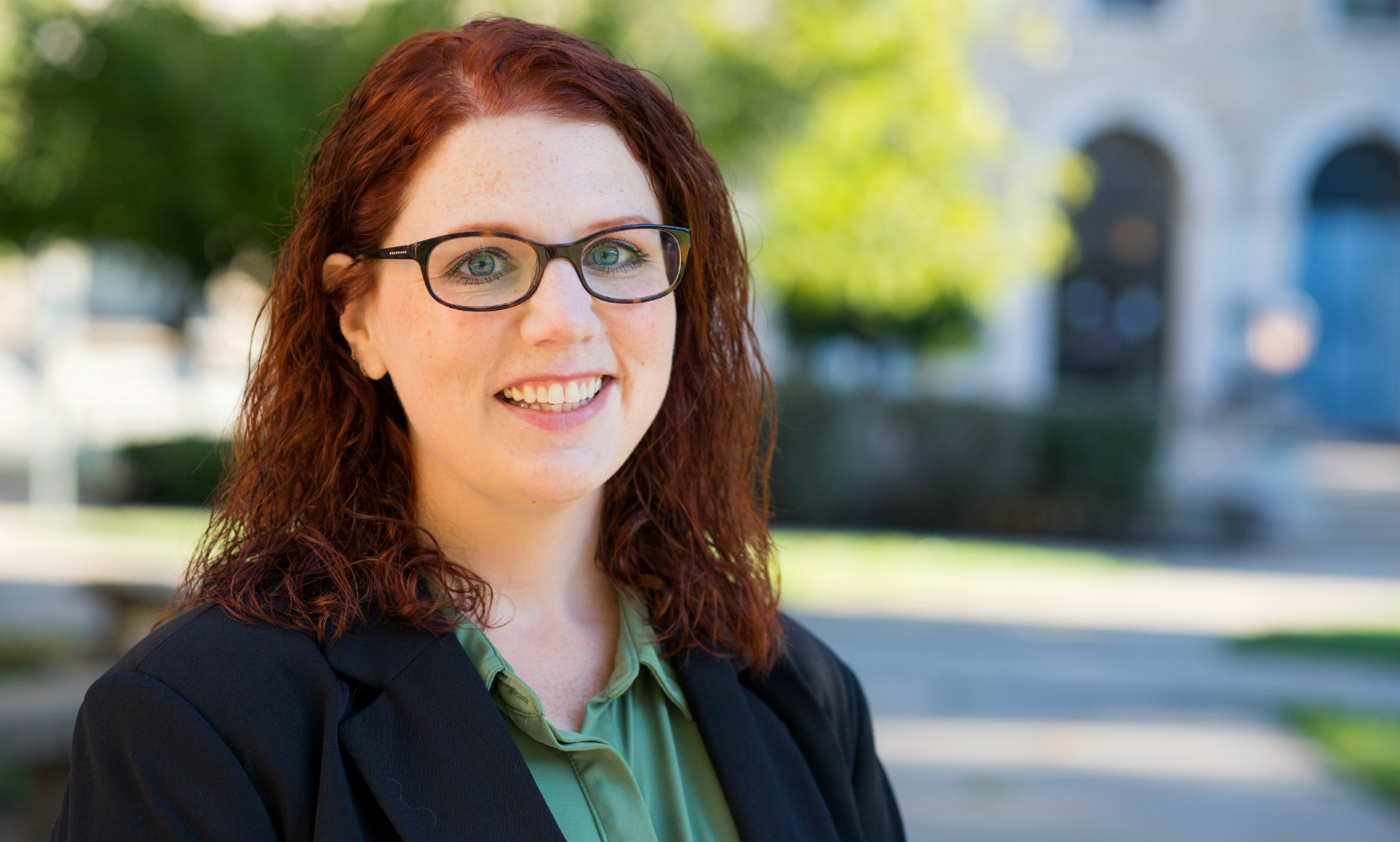
Professor Megan Hart received $354,000 from the Department of Defense to continue work on PFAS
PFAS (polyfluoroalkyl substances) solutions can be found everywhere, even in the places you least expect. It’s a lab-made compound of synthetic material that has been in use since the 1930s. Wrinkle-resistant clothing, nonstick cookware and firefighting foam are just a few of the many things that contain this material, incorporating it into our daily lives and, quietly, causing harm.
Assistant Professor of Civil and Mechanical Engineering Megan Hart received $354,000 in funding from the Department of Defense’s Strategic and Environmental Research and Development Program (SERDP) for a two-year project focused on destroying PFAS in concentrated liquid waste streams through a series of lab-based tests.
Though the actual project won’t begin until May, Hart is already hard at work conducting chemical engineering experiments in her lab as she figures out the best way to destroy the harmful material, which she said is no easy feat.
“Traditionally, people incinerate the wastes containing PFAS, but there is growing evidence that it becomes airborne and redeposits in the soil around the smelters,” Hart said.
“This is the first time a SERDP grant has been awarded at UMKC and we are very excited,” - John Kevern, civil and mechanical engineering department chair
One of Hart’s research focuses is groundwater and geochemical influences on soil stability, so she’s naturally excited by the opportunity to put on her gloves and experiment in the lab.
She developed a treatment technology that combines two major methods for PFAS removal in water – pH and free-radical destruction. The technology is engineered to release hydroxyl radicals (a type of free radical with the most active chemical properties. They have a high reaction rate and cause the most harm among the free radicals) into a solution that passes through it. Those radicals are then excited with UV light to form free radicals, which attack and destroy the PFAS in groundwater and waste water solutions. Hart says that some PFAS are easier to destroy than others but all of them are destroyed using the method she developed.
“Traditionally, people incinerate the wastes containing PFAS, but there is growing evidence that it becomes airborne and redeposits in the soil around the smelters.” - Megan Hart
Hart was able to leverage an existing relationship with Geosyntec, who funded previous work on novel remedial treatment technologies for PFAS.
“This is the first time a SERDP grant has been awarded at UMKC and we are very excited,” said John Kevern, civil and mechanical engineering department chair.
PFAS has been part of a larger conversation surrounding environmental sustainability and its negative effects on the human body. As an example of how serious the issue is, Hart mentioned an ongoing lawsuit where airline employees claim their uniforms — containing PFAS for wrinkle-resistance — are making them sick. The issue has also been raised in some ongoing presidential campaigns.
“I’m excited to start working on this project, and can’t wait to get back more results to share,” Hart said.
In addition to the SERDP grant, Hart will be working on a separate project to remove PFAS material from consumer-based products including popcorn bags that contain PFAS material to keep them from combusting in the microwave. She said that she’s equally excited to begin that work in the near future.
Explore research at UMKC
Feb 12, 2020
UMKC is seeking submissions to develop the Epperson House
The University of Missouri-Kansas City is looking for a developer that would work with the university through a public-private partnership to restore a historic home on its campus. Read the Kansas City Business Journal story.
Feb 12, 2020
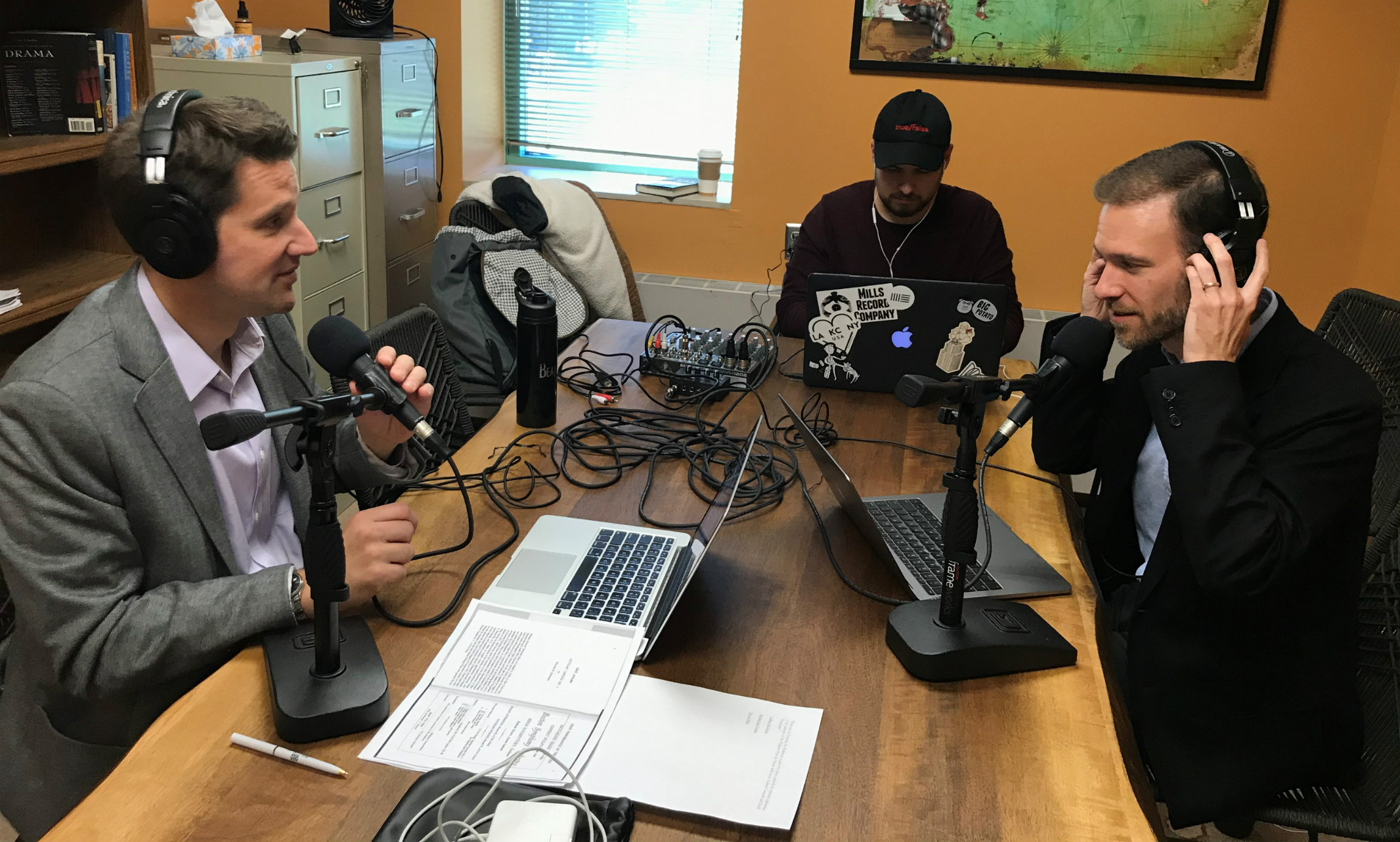
Andrew Granade and David Thurmaier invite you to join their music conversations
So, you don’t have time to read about all 73 winners of the Pulitzer Prize in Music? No problem. Just download the new podcast “Hearing the Pulitzers,” hosted by two UMKC Conservatory professors.
The first episode, which launched Feb. 1, is an introduction to the podcast and the hosts Andrew Granade, associate dean of Academic and Faculty Affairs and professor of Musicology; and David Thurmaier, chair of the Music Studies Division and associate professor of Music Theory. They gave opening thoughts on the history of the music prize and the concept and meaning of the Pulitzer Prize.
Going forward, each 30-minute episode will examine and analyze a Pulitzer Prize in Music composition and composer. The discussion, interspersed with musical segments from the award-winning piece, will review the composer’s work and why it was chosen for the award. At the end of each episode, each will share whether he thought the piece was a “hit” or a “miss” for winning the Pulitzer Prize.
“The list of winners is fascinating because it features classical music household names like Aaron Copland, Charles Ives, and Samuel Barber,” Thurmaier said, “but there are also quite a few obscure or forgotten composers that will allow us to discover new music alongside our listeners.”
Zhou Long, Bonfils Distinguished Research Professor of Composition at UMKC, was awarded the Pulitzer Prize in Music for his first opera, “Madame White Snake,” in 2011. His work will be a featured episode.
Granade and Thurmaier have been teaching together for several years and enjoy the experience of bouncing ideas off each other from their different discipline perspectives. Granade is a musicologist and researches music in its historical and cultural contexts. Thurmaier is a theorist and studies the way musicians and composers make music.
“Dave and I are both scholars of American music and were discussing, especially after Kendrick Lamar’s win two years ago, why the Pulitzers in music seemed largely irrelevant to American culture when the prizes in writing were so important,” Granade said. “That lead us to think about what we could learn about American music culture by exploring each winner in turn. We thought it might be fun to make a podcast where we could invite other people outside our classroom into the conversations we regularly have together.”
The podcast series starts with the first award in 1943, “Secular Cantata No. 2. A Free Song,” by William Schuman. It posted Feb. 8. With 73 award winners to explore, Granade said he expects the project to take three years. New episodes are available every two week. After all 73 award winners have been featured, Granade and Thurmaier will update the podcast yearly when new prize winners are announced.
Dale Morehouse, associate professor of voice-opera, recorded the introduction used for each episode. Tristan Harris, UMKC music composition undergraduate student, recorded the podcasts.
Granade and Thurmaier received a Sight and Sound Subvention from the Society for American Music to cover the costs of equipment and hosting the podcast online. “Hearing the Pulitzers” is available on iTunes, Google Play and Podbean. You can also follow “Hearing the Pulitzers” on Facebook and Twitter.
Feb 10, 2020

Mateus Borges studied mechanical engineering at UMKC from 2014 to 2015
Research and discovery is not just a goal at UMKC, it’s who we are. It’s what we do. Through hands-on learning experiences – undergraduate and graduate research, internships, volunteerism and real-world classroom assignments – our students are prepared to excel anywhere.
One-time Roo, 2014-15 mechanical engineering exchange student and agribusiness entrepreneur, Mateus Borges was listed among the 2020 Forbes Under 30 in Brazil for his entrepreneurship and innovation in helping farmers purchase fertilizer, seeds and chemicals online.
Borges credits his research experience with civil and mechanical engineering professor Travis Fields on parachute and aerial vehicle systems as the inspiration that led to his interest in using drones to support agricultural work in Brazil. Though he isn’t currently working with drone technology, Borges used his business and technology background to co-found a tech company in 2016 – shortly after graduating from the State University of Campinas – that later became Orbia, a joint venture with Bayer CropScience.
Through Orbia, medium to large-scale farmers have a seamless way to purchase the supplies they need for growing and harvesting their plants. Borges said the platform provides supplies for nearly 140,000, or 65% of the land of, soybean farmers in Brazil.
“UMKC was empowering for me to be able to use technology to solve real-world problems,” Borges says. “That changed the way I saw internships and I’m able to use that in my career path.”
Borges was part of a Science without Borders exchange program, a partnership between the School of Computing and Engineering and the State University of Campinas. He was nominated in the e-commerce and retail category of Forbes Under 30 and still has plans for his company to expand.
“Our goal is to become a global company and help reshape how agribusiness is done around the world.”
Feb 10, 2020
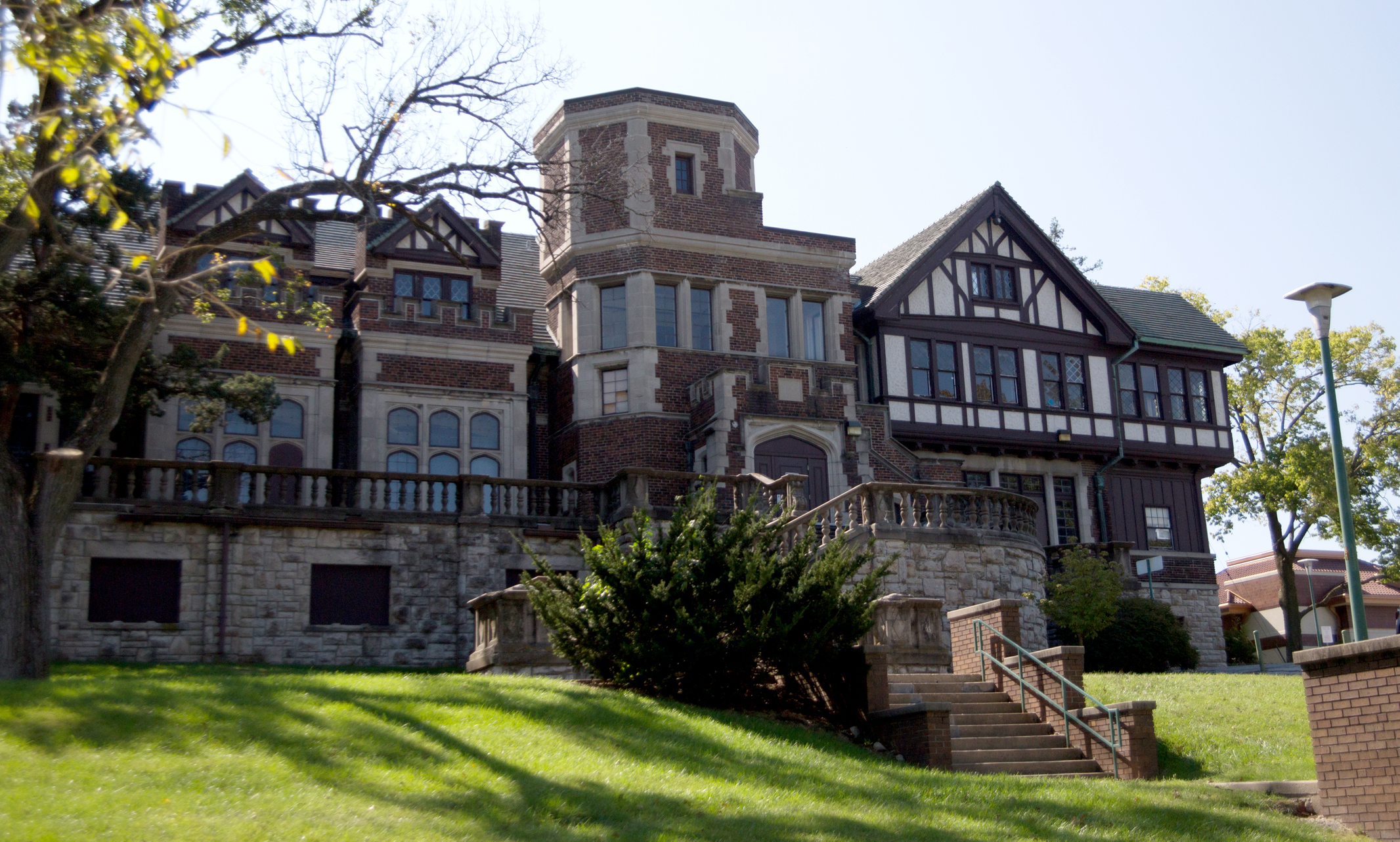
University wants to reopen century-old mansion to campus and community
The University of Missouri-Kansas City is seeking a developer to engage in a public-private partnership to restore and reopen the historic Epperson House on Volker Campus.
The Gothic Revival style mansion, designed by architect Horace LaPierre and constructed from 1919 to 1923, was originally built as a large single family home of approximately 24,000 gross square feet on five primary levels. The home originally had 54 rooms, six bathrooms, multiple elevators, a swimming pool, a billiard room, a barber shop, an organ loft and a tunnel linking the east and west basement levels.
A Request for Interest document, issued Jan. 9, seeks proposals to develop building uses and programming that support the goals of UMKC and the community and provide financial resources for the restoration and operation of the facility, plus design and construction services. Responses will be accepted through Feb. 20.
The house was acquired by UMKC (then called the University of Kansas City) in the 1940s and originally served as a dormitory for Navy pilots in World War II, then as housing for university students, then as home to a number of university schools and programs. The building has been closed since 2011.
The Request for Interest calls for proposals “to complete the historic restoration of the Epperson House exterior, interior public spaces and grounds; along with a strategic renovation and repurposing of the private spaces for compatible market-rate revenue-generating office or hospitality uses that support the urban engagement mission of UMKC, the desire of the community to see the house restored and the interests of the developer while covering the operating costs of the facility.”
Interested parties should contact Robert A. Simmons, associate vice chancellor for administration, at simmonsr@umkc.edu or 816-235-1354.
“One of our responsibilities as a public university is to be proper stewards of our legacy. Epperson House is a treasure for not just our campus, but for the Kansas City community,” said Chancellor Mauli Agrawal. “With this invitation, we are seeking a team of partners to work with us to bring that prominent and grand building back into the daily life of our campus and our community.”
Feb 10, 2020
UMKC political science chair says traditional primaries have their drawbacks
While caucuses can cause issues, UMKC Political Science Chair Greg Vonnahme explained on KCTV5 that traditional primaries also have their drawbacks.
Feb 08, 2020
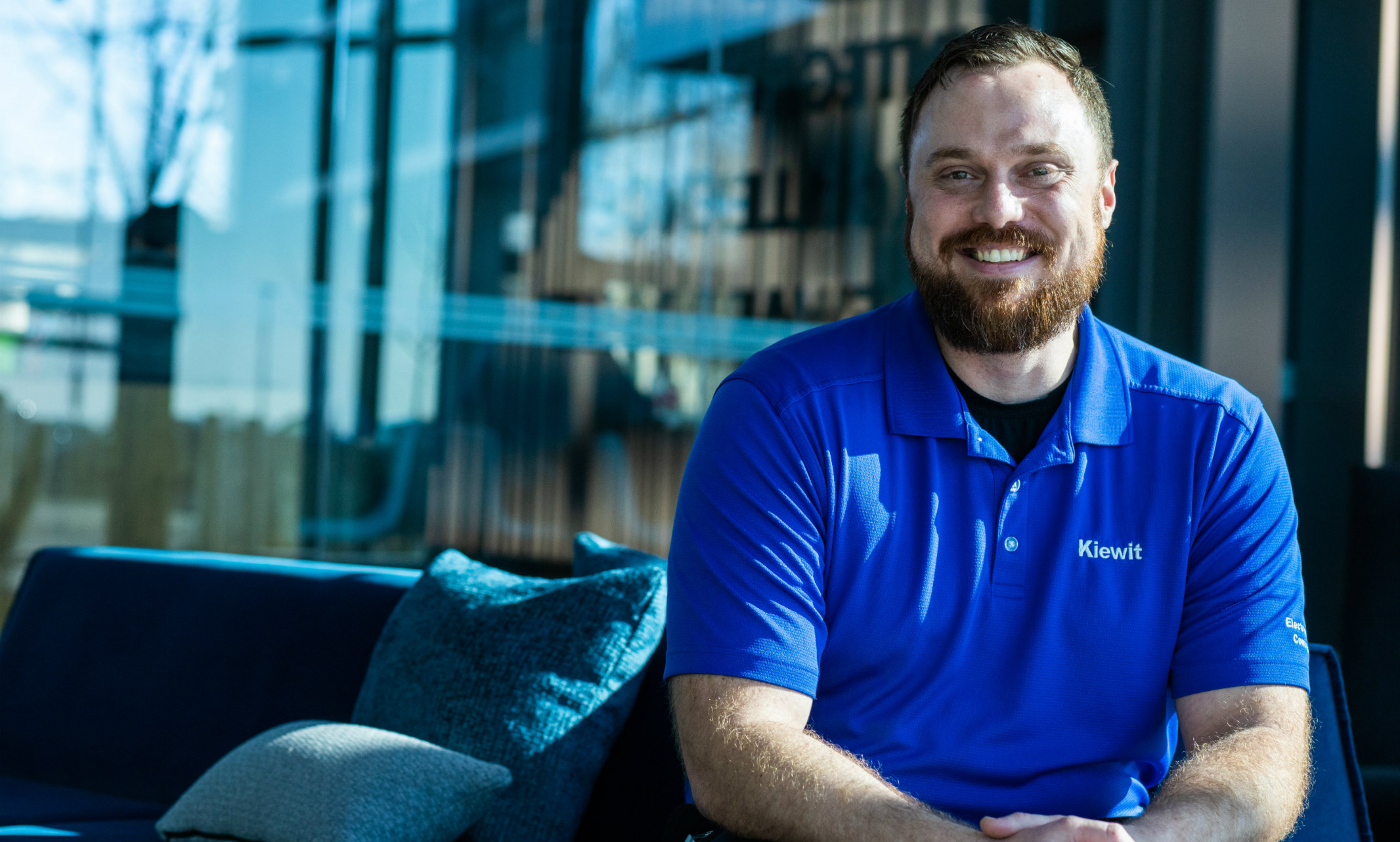
Jason Painter builds solid future for his family and future students
Our ongoing story starts with people from around the world, converging here at UMKC. Get to know our people and you'll know what UMKC is all about.
Jason Painter '12
Academic Program: Bachelor of Science, Mechanical Engineering
Hometown: North Kansas City, Missouri
Jason Painter (BSME ’12) always liked school, and math was his strong point. But following high school graduation, he decided college wasn’t for him. He married his high school sweetheart and started working in residential construction. But after a few years, he began to reconsider his decision to forego a college degree.
“I felt like I was failing,” Painter says. “I went through a spiritual awakening and realized college was the answer.”
Painter talked to his wife, Tiffany, and she was supportive, even though it meant Jason would have to work nights and go to school during the day to make it happen. But the couple agreed college was the right decision and that they needed to stay close to home.
“We weren’t going to uproot our family, so I went to visit UMKC. I fell in love with the campus the first time I walked around.”
While the Painters were committed to his getting his degree in engineering, the reality was more challenging than they anticipated.
“Going to work, going to school and having a family at the same time was incredibly emotional and physically and mentally draining.”
Painter was a third-shift janitor at an elementary school. He did his homework in a closet during his breaks.
“I am so glad I had the opportunity to go to school, but the saddest part was coming home at 5 or 6 o’clock in the morning when my wife was getting ready to leave for work. I’d be able to see my son for five minutes.”
While it was a challenging situation for his family, was it justified?
“Absolutely. Hard – but worth it.”
Experiencing this challenge inspired Painter to give back, even while he was in school. UMKC Missouri Society of Professional Engineers coordinator Jane Vogl recalls that he invigorated the MSPE student chapter while he served as president.
“He tripled the membership and was always looking for ways for the SCE engineering students to gain hands-on knowledge through field trips to super structures,” Vogl says. “He arranged visits to the Harry S. Truman Dam in Warsaw, Missouri and the Iatan Power Plant in Weston.”
In addition, Painter volunteered for competitions and the E-Week blood drive.
His giving did not stop when he graduated. Painter has recently established a $5,000 scholarship for non-traditional students in engineering.
“Knowing that there are other people who are struggling inspired me to give back,” Painter says. “I had people cut me down and tell me I couldn’t do it. But I had a lot of help from my professors. I graduated cum laude. Sometimes, I can’t believe I got through it. I just want to help other people.”
Dahn Phan is the first recipient of the Jason and Tiffany Painter Scholarship. Phan is a non-traditional student who is studying electrical and computer engineering.
“My family immigrated to the United States during the Vietnam War with nothing besides the clothes on their back hoping for a fresh start to life,” Phan says. “Growing up, my parents did everything they could to provide food on the table and to give me and my brothers the necessities to succeed in life. With their sacrifice and dedication, I am proud to say I will be part of the first generation graduating from college.”
“I had people cut me down and tell me I couldn’t do it. But I had a lot of help from my professors. I graduated cum laude. Sometimes, I can’t believe I got through it. I just want to help other people.” -Jason Painter
Painter’s scholarship helped make that success possible.
“Receiving this scholarship motivated me to maintain my GPA and has given me the opportunity to complete my final semester in engineering school,” Phan says. “I’ve been able to take time off of work and be more involved with school organizations and activities. This helped me build leadership and team-working skills, which I knew employers wanted.”
Phan met Painter during the School of Computing and Engineering scholarship luncheon last semester and they had the opportunity to learn more about each other’s families and their personal paths.
“I got to know a little more about Jason’s family and his history as a non-traditional student. After meeting him and learning that he works as a controls engineer at Kiewit, he inspired me to becoming a controls engineer as well.”
Phan is anticipating graduating this spring. He has accepted a job with the Global Product Development Division of General Motors in Detroit.
Painter’s future is also bright. He is in the midst of a 2-3 year power plant project at Kiewit. His goals are both simple and significant.
“I feel as if I made it already!” he says. “My goal is to be a good father and be there for my son. I missed out on a lot of the early years. My wife deserves a lot of the credit. She gave me constant affirmation that it would all be worth it. I’m just looking forward to our life together.”
Feb 07, 2020
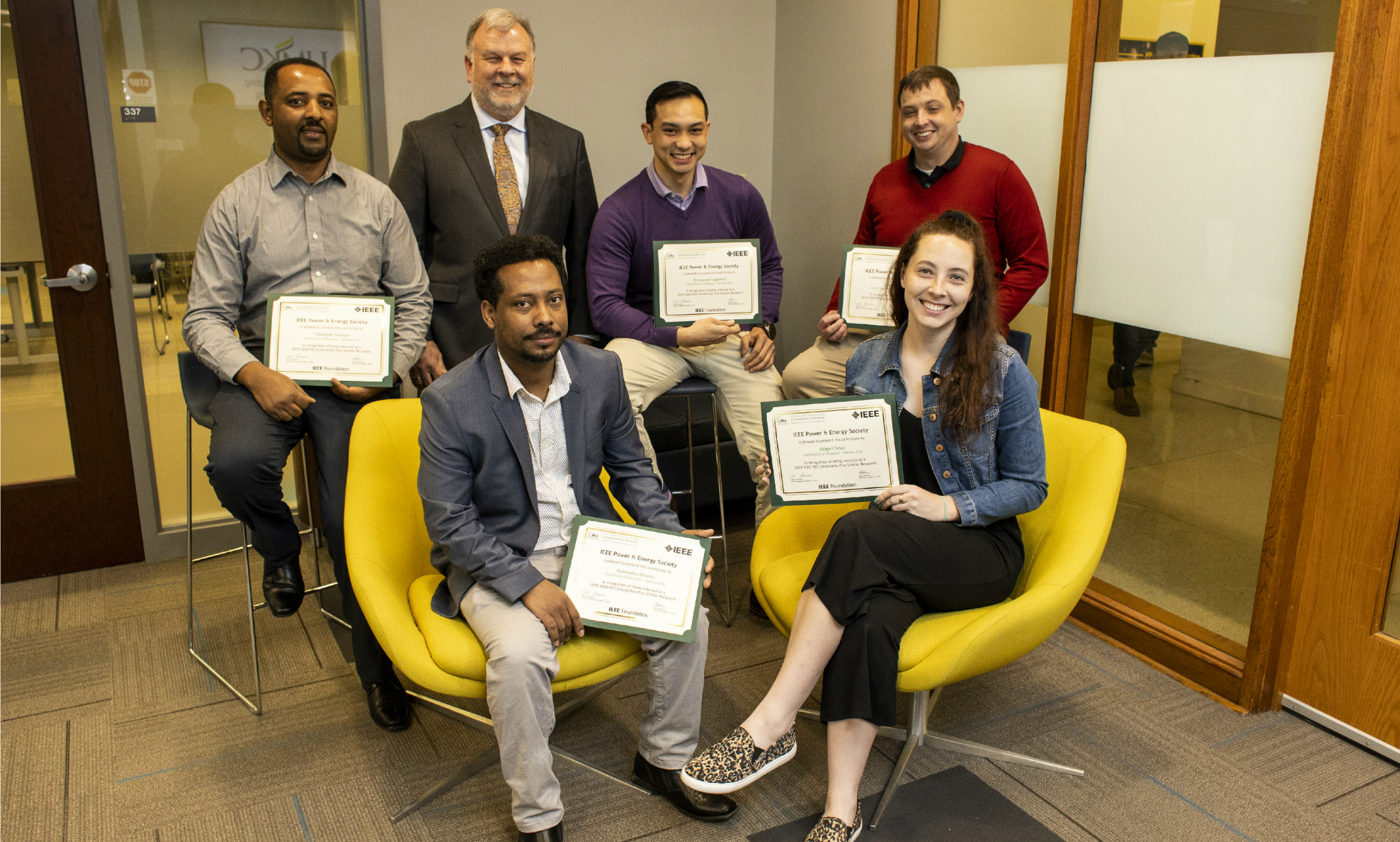
Eight from UMKC were selected to receive $7,000 in scholarship funding over the course of three years
The University of Missouri-Kansas City School of Computing and Engineering has more IEEE (Institute of Electrical and Electronics Engineers) Power and Engineering Society scholarship recipients than any other school in the country. 135 students — eight from UMKC — across the United States were selected to receive $7,000 in scholarship funding over the course of three years to help defray educational costs.
“It's a great honor — 'a feather in our cap,' as the saying goes — for us to have eight PES Scholars within the School of Computing and Engineering, the largest number of scholarships among all US engineering programs. IEEE is highly regarded within the engineering community around the world, and this accolade speaks to the quality of education we provide our students at UMKC,” said SCE Dean Kevin Truman.
The goal of the IEEE PES Scholarship Plus Initiative is to encourage undergraduate students to pursue careers in power and energy engineering. In addition to scholarships, the program also facilitates internship/co-op experiences, mentorship opportunities and special recognition as a PES Scholar. Scholarship amounts are $2,000 for the first two years and $3,000 the third year.
Feb 07, 2020
KCUR leads community engagement efforts as part of 2020 election season
As the election season kicks off, the “America Amplified: Election 2020” initiative, led by KCUR 89.3, a service of University of Missouri-Kansas City, announces eight public media networks that will produce innovative journalism from community engagement efforts. Yahoo Finance reported the story $1.9M ‘America Amplified: Election 2020’ initiative announces partner stations.
This story was also picked up by Investor Network.
Feb 04, 2020

UMKC joined in the celebration of the Kansas City Chiefs winning the Super Bowl
The UMKC victory tweet for the Kansas City Chiefs was featured.
‘Meant to be’: Leaders, celebrities react after Chiefs’ Super Bowl victory
KSHB – February 2, 2020
Feb 02, 2020
UMKC law student Hannah Bassham was a sideline reporter for the Kansas City Chiefs’ Super Bowl victory.
University of Missouri-Kansas City law student Hannah Bassham had a sideline view of the Kansas City Chiefs’ Super Bowl victory over the San Francisco 49ers on Feb. 2. Missouri Lawyers Media reported the story ‘The greatest experience of my life’: UMKC Law student doubles as Super Bowl broadcaster. (Subscription required)
Feb 02, 2020
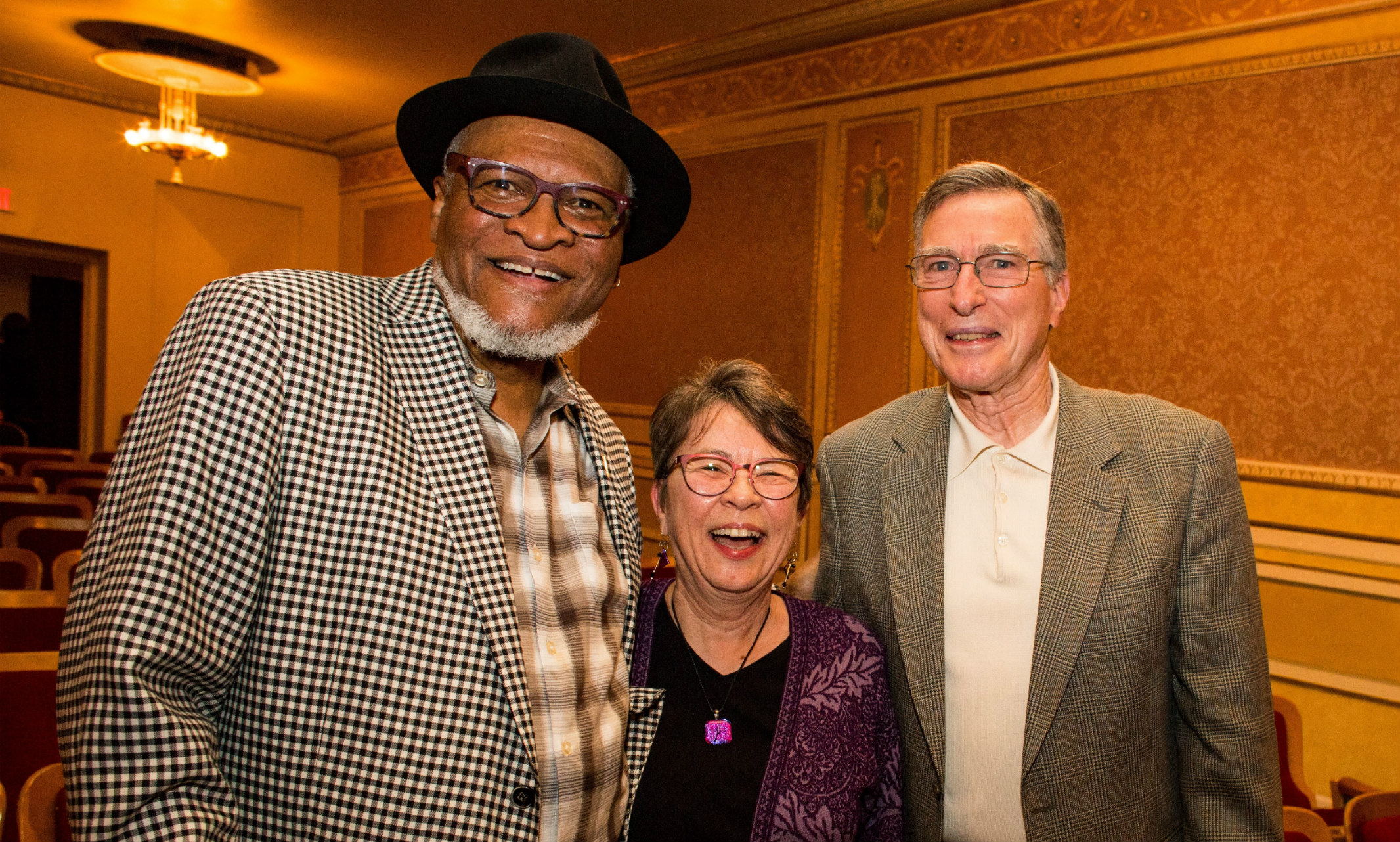
Individual and foundation giving have common theme for UMKC Conservatory student success
Bobby Watson and Vinson Cole have been influential professors at the UMKC Conservatory in addition to being internationally recognized musicians.
Cole recently retired from his role as Professor of Voice and Watson will step away from his role as the William D. and Mary Grant/Missouri Professor and co-coordinator of Jazz in the fall of 2020. In recognition of their outstanding commitment and contributions to the UMKC Conservatory, local donors have created scholarships in their honor to provide future students the opportunity to follow their passions.
Bobby Watson
A renowned saxophonist, composer and native Kansas Citian, Watson has worked with jazz icons such as Max Roach, Louis Hayes and Wynton Marsalis. For three decades, Watson lived in New York City and performed with and composed for some of the most acclaimed jazz performers in the world. He has recorded 28 records and appears as a leader on dozens of recordings.
In 2000, he returned to Kansas City and joined the faculty of the UMKC Conservatory. While teaching at the Conservatory has been a passion – “I bleed blue and gold,” he says – it has never been his intention to stay forever.
"I bleed blue and gold." - Bobby Watson
“I thought after 20 years I’d stop and reflect,” Watson says. “It seems like the right time. I’m still young enough to go on the road. And we’ve brought the school to a high level.”
Long-time Conservatory and Watson enthusiasts, Sarah and Jim Weitzel, have shared a passion for music since they first married. When they learned of the musician’s retirement, the news was bittersweet.
“When Bobby announced that he was retiring so that he could play, we wanted to honor that,” Sarah Weitzel says.
Wanting to recognize Watson’s contribution to the Conservatory and provide opportunities for future students, the couple decided the timing was right to establish an endowed scholarship in Watson’s name.
“We didn’t need to name the scholarship after us,” Weitzel says. “We don’t have a legacy in jazz – Bobby does. We are hoping other people will contribute to the scholarship in his honor.”
Watson was overwhelmed by the gift.
“I was speechless, humbled, honored and flabbergasted,” Watson says. “It’s a great honor and a great gift. Every scholarship that we can award our students is life changing.”
Vinson Cole
Vinson Cole, (BM ’72) is an American tenor and retired Professor of Voice. He was flattered when he received the news from Michael Fields, on behalf of the Richard J. Stern Foundation for the Arts - Commerce Bank trustee, that the foundation wanted to establish an annual scholarship in his name to benefit students at the Conservatory.
“Vinson Cole was the perfect choice for a named scholarship at the UMKC Conservatory,” Fields says. “The Richard J. Stern Foundation is committed to excellence in the arts in Kansas City, and Vinson definitely represents the highest standards of excellence.”
"I listen for what someone can do – open their heart, their soul, their body and mind.” - Vinson Cole
Fields notes that Cole is perhaps better known internationally than he is in the city where he was raised, however Richard Stern certainly knew Cole and followed his career.
“It’s nice to be recognized for what I’ve done, especially in Kansas City,” Cole says of his hometown.
Cole began singing as a young child and has fond memories of his voice teacher.
“He had so much knowledge,” Cole remembers. “I wanted everything. I would ask and ask and ask. All I wanted was the work.”
Cole’s career has been successful by any measure. He is internationally recognized as one of the leading artists of his generation. A frequent guest of the most prestigious orchestras throughout the world, he has collaborated with some of the greatest conductors of this era. When he teaches, his focus is firmly on his students. In auditions, he pays attention to the voice, but his focus is broader.
“I listen for what someone can do – open their heart, their soul, their body and mind.”
Beyond the honor of the recognition of his dedication, Cole knows first-hand how significant scholarships are to students.
“It’s great that there is help for people who want to come to school who can’t afford it,” he says. “I know a lot of students who come to school and always need money. I was always spending my money on music when I was in school – mounds of sheet music.”
While today’s students usually store their music on iPads, their expenses are still significant.
“These scholarships will be significant awards for talented students, and we are grateful for donors like the Weitzels and the Stern Foundation who generously support Conservatory programs and students,” says Conservatory Dean Diane Petrella. “Bobby and Vinson have been valuable members of our community and we look forward to keeping them involved with the Conservatory. Their legacies at UMKC will live on through the students who receive the gifts of these scholarships.”
For additional information on the Bobby Watson and Pamela Baskin-Watson Scholarship or the Vinson Cole Scholarship contact Mark Mattison at mattisonm@umkcfoundation.org
Jan 31, 2020
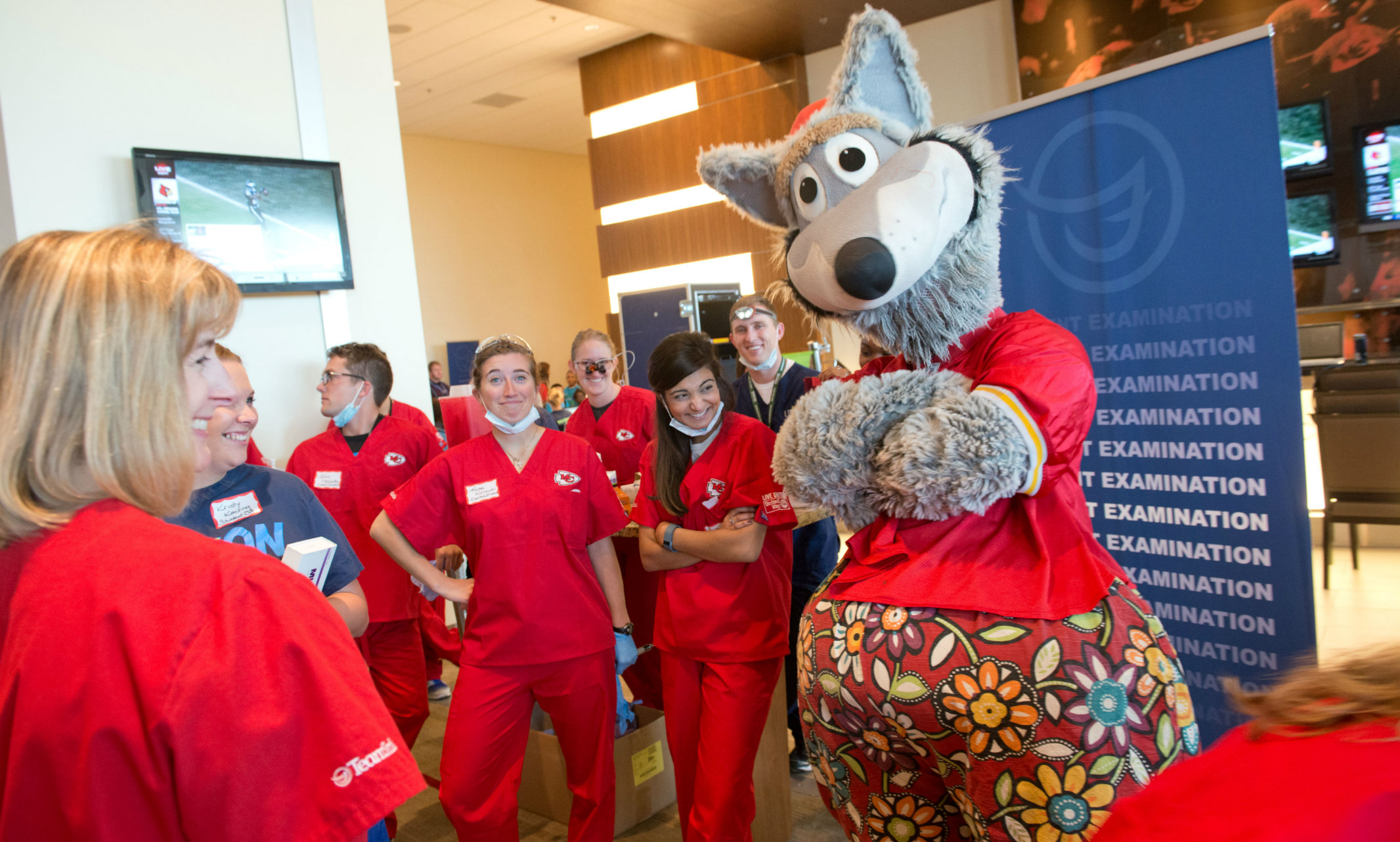
UMKC dental students provide care through the efforts of Chiefs player Dustin Colquitt and TeamSmile
There are plenty of reasons to smile with the upcoming Chiefs’ Super Bowl. Chiefs’ punter, Dustin Colquitt, has long championed TeamSmile, a national advocacy group that provides children in need with a life-changing dental experience through the power of sports. Since the organization’s inceptions, UMKC School of Dentistry students and faculty have also worked hand-in-hand in this amazing effort.
TeamSmile is in the news due to the generosity of Colquitt, who went above and beyond for a recent patient and a longtime Chiefs fan. At a recent home game – for which they were his guest – he surprised the family with a trip to the Super Bowl. Little did they know, it’d also be the first Chiefs Super Bowl in 50 years.
Each year, UMKC students and faculty team up to volunteer at three TeamSmile events – at Kansas City Chiefs, Royals and Sporting KC. The students see about 300 children, providing provide initial screenings, X-rays and recommendations for what care the kids need for that day.
Accompanied by UMKC School of Dentistry faculty members Becky Smith, Eileen Cocjin and Michael McCunniff; 18 dental students from two dental student groups, Students Take Action and the Pedodontic Dentistry Club, volunteer at the outreach events.
According to Smith, it’s the breadth of care provided at TeamSmile events that impresses her when she participates.
“The impressive thing about TeamSmile is the variety of procedures that are provided,” Smith says “They don’t limit themselves to just preventative care like fluoride and sealants. These kids are getting everything from extractions to root canals.”
“They look in the mirror and see what we’ve done, and they realize, ‘Oh my gosh, this kind of changed my life.’” — Dustin Colquitt
Started in Kansas City, TeamSmile has gone nationwide, partnering with oral health organizations as well as professional and college athletic teams. It began in the Arrowhead Stadium parking lot now has partnering with 17 NFL franchises, providing millions of dollars in free dental care.
"I have participated at four Team Smile events including at the Chiefs stadium," says Tara Craven, D.D.S. '21, and president of Students Take Action. "The kids love coming to get their teeth checked and the program has a whole day of activities planned for them. When the players come to visit they all light up! They love the high-fives and fist bumps offered by the players — including Dustin Colquitt! The volunteers all love seeing the players as well and it’s an amazing day full of giving back and helping kids get jazzed about taking care of their teeth!"
So why is Colquitt involved? For him, it’s the kids’ reactions that really drive home the importance of dental care and how TeamSmile can help.
“We feel like in 20 minutes, we can change a kid’s trajectory, meaning that a lot of our kids are hiding what they have going on in their mouth,” Colquitt says in a promotional video. “They look in the mirror and see what we’ve done, and they realize, ‘Oh my gosh, this kind of changed my life.'”
According McCunniff, UMKC became involved with TeamSmile nearly at the inception of the organization. In 2007, co-founder Bush was planning his first one-day outreach event at Arrowhead Stadium but needed portable equipment since his existing dental practice equipment wasn’t going anywhere. Not only did UMKC provide the equipment, but also student and faculty volunteers.
For McCunniff, he hopes the opportunity inspires his students to come up with their own initiative.
“I challenge the students that when you get out in the field, make your own legacy with an initiative like this,” McCunniff says.
Although he hasn’t heard, yet, of a former student take him up on that challenge, he has received the next best thing. According to McCunniff about half of the participating dentists in the Kansas City-based TeamSmile events are alumni of UMKC.
“The kids love coming to get their teeth checked ... When the players come to visit, they all light up! They love the high-fives and fist bumps ... it’s an amazing day full of giving back and helping kids get jazzed about taking care of their teeth!” — Tara Craven, D.D.S. '21
According McCunniff, the school even has an alum who worked on both sides of the organization. Prior to dental school, alumni Caitlin Silverstein (DDS ‘16) was a staff member for TeamSmile. Once in school, she continued to volunteer at every event and now as dental practitioner herself, McCunniff sees her at nearly every event.
The example of the commitment to TeamSmile is a testament to the UMKC School of Dentistry, says Dean Marsha Pyle.
“Instilling in our students the importance of volunteerism is a pillar of our institution,” Pyle says. “By showing our students how meaningful these experiences can be, we hope to encourage a lifelong passion for giving back.”
Jan 30, 2020
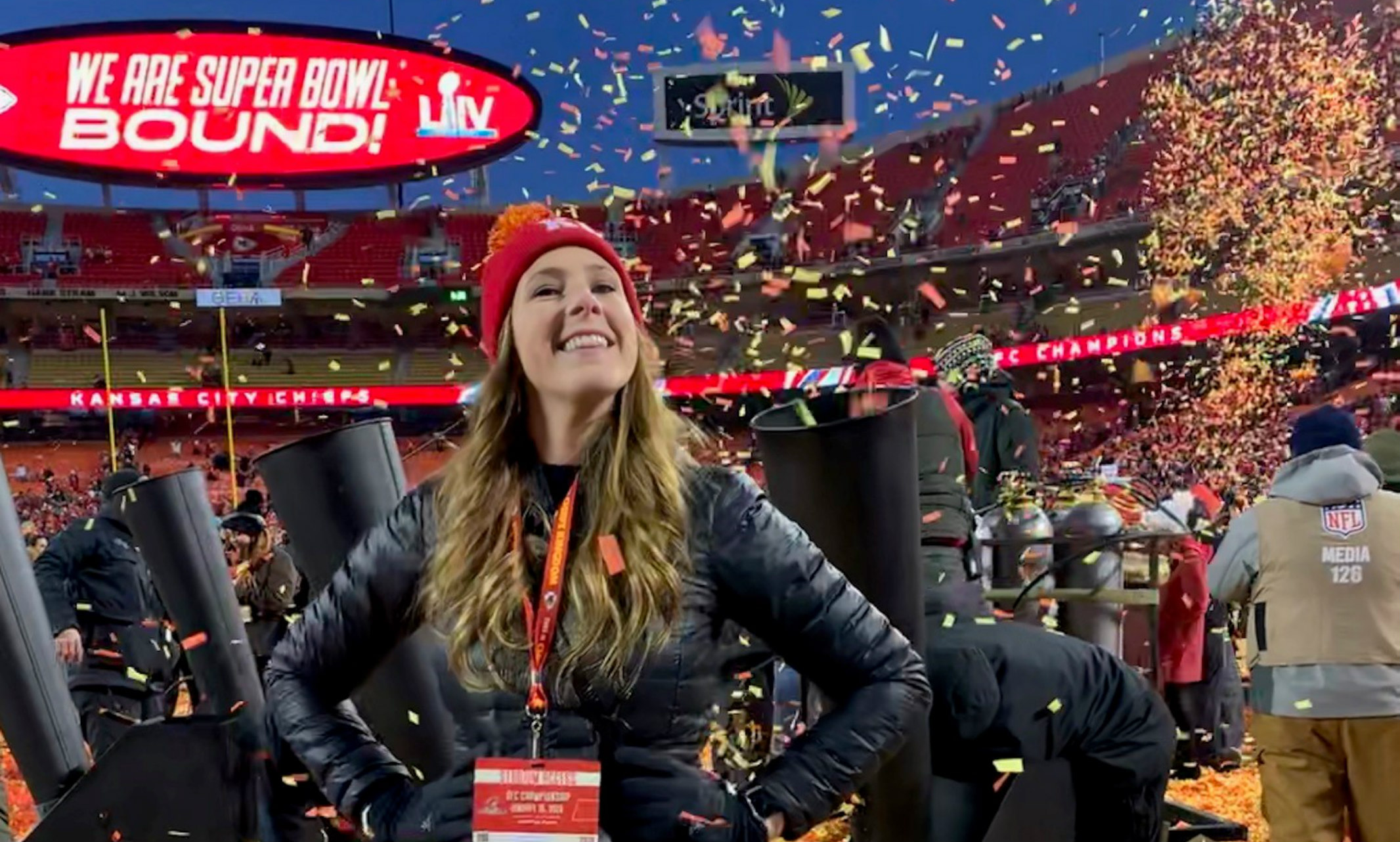
Meghan Dohogne, Arrowhead Art Collection Fellow, works with team, artists on community outreach projects
Name: Meghan DohogneHometown: Cape Girardeau, Missouri High School: Notre Dame Regional High School Undergraduate Degree: History with minors in Painting and Art History, McKendree University, Lebanon, IllinoisGraduate Degree: Master’s Degree in Art History from UMKC in 2016UMKC degree program: Interdisciplinary PhD with a core discipline in history, secondary in humanities consortium.
IPhD student Meghan Dohogne is an Arrowhead Art Collection Fellow. The position is more specific than a general internship and connotates a higher level of specialization and achievement, which is important because only graduate students are eligible to receive it.
What is the Fellowship Program with the Arrowhead Art Collection at Arrowhead Stadium and why did you apply?
The fellowship is a partnership between the UMKC History Department and the Kansas City Chiefs. I applied for it as my graduate research position through the department. The length of each fellow’s tenure is dependent on a few factors and varies based on their position in the program.
What kind of work do you do?
The AAC fellow is responsible for supporting the Arrowhead Art Collection. Day to day, I work with artists for the outreach events we participate in throughout the community. Recently we ran an African mask-making workshop at Central Middle School lead by AAC artist Lonnie Powell.
Another responsibility I have is to support recent acquisitions by collaborating with Sharron Hunt, chairwoman of the collection, to write the education materials. In addition to the educational materials, I support press events that are typically covered by many news outlets around the city.
Another area I have chosen to focus my fellowship around is community partnerships and raising awareness for the collection. Each day is an opportunity to support the organization that has given me so much insight into the engine that is professional sports.
What are your career goals?
I am excited at the number of opportunities I am preparing for, but I haven’t settled yet on exactly which direction I will pursue. I currently co-own a research company called D2 Research with fellow UMKC graduate student Poppy Di Candeloro. We pursue arts management and historical research. Working with different organizations and members of the community has been extremely rewarding.
What has it been like working at Arrowhead this season?
Holy smokes, working for the Chiefs organization right now is electric. I’m thankful for the opportunity to have experienced this season with a great group of people who all want to see the Chiefs do well. As for the collection, everyone should come see it! It’s a fine example of Regionalism and a lot of care has been put into its inclusion as part of the Arrowhead experience.
What advice do you have for someone considering an internship or fellowship?
Finding a place where your creativity is embraced and celebrated is great for your personal career growth. I have been able to spearhead some events that have given me the opportunity to really develop professionally. The Chiefs have placed a lot of trust in me and allowed me the space to try out some big ideas.
Jan 30, 2020
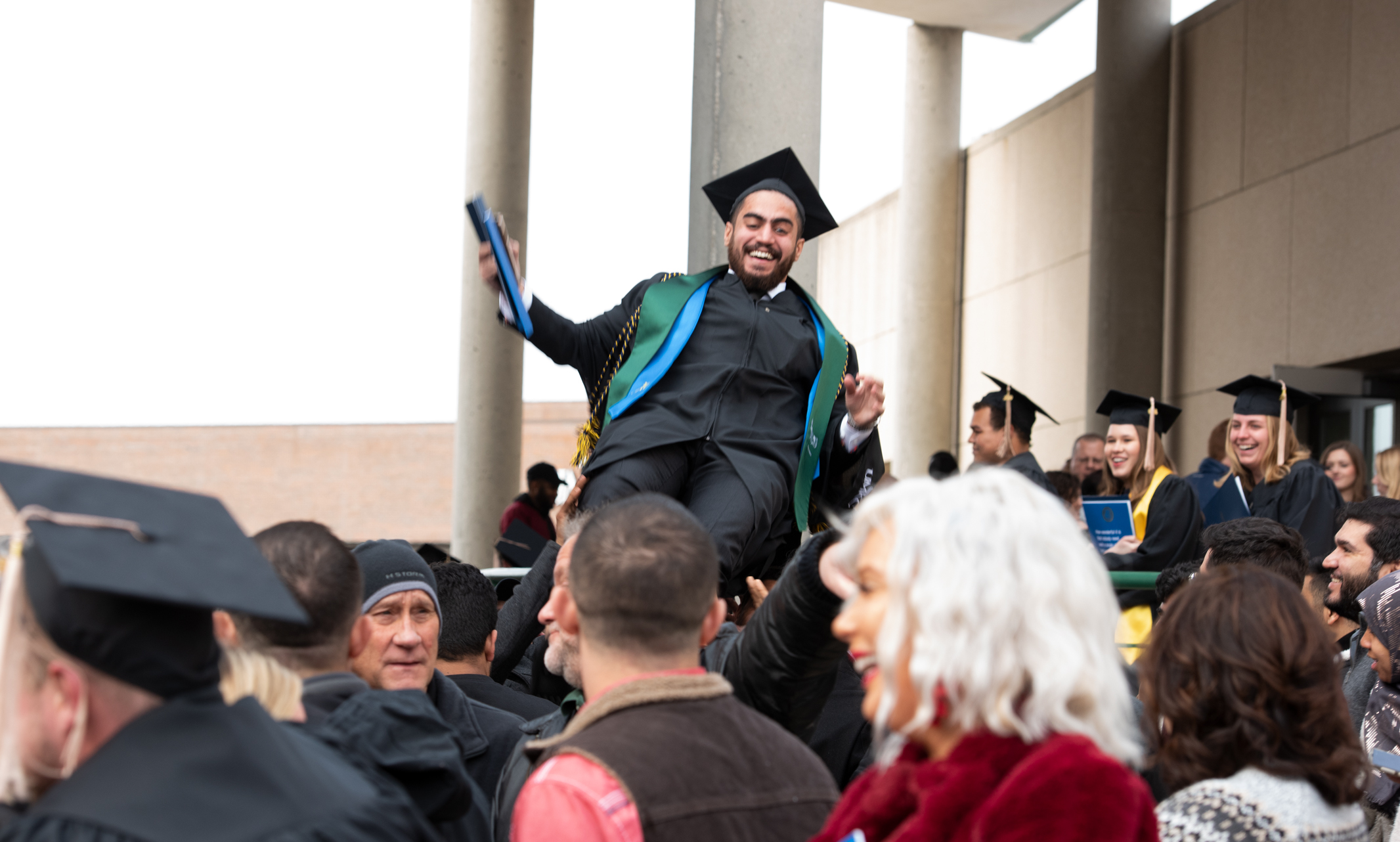
Standardized test scores no longer required in applications
Responding to strong evidence that high school grades are a more reliable predictor of college performance than standardized test scores, UMKC is joining the growing movement to make such test scores an optional component of the admissions process.
With this move, the university is providing more opportunities for qualified people to pursue a college degree.
Under the test-optional admissions process, if applicants have performed well in high school, they do not need to take a standardized test, such as the ACT or SAT, to be considered for admission. If an applicant does decide to take such a test, reporting the scores to UMKC is optional.
“This is a better way. Now it's the UMKC way.”— Alice Arrendondo, director of admissions
“We made this decision as part of our ongoing commitment to create opportunity. It is in the best interest of the people who live in our community, the workforce needs of our employers and the overall economic development of Greater Kansas City and the state of Missouri,” said C. Mauli Agrawal, chancellor of UMKC. “We are proud to be the first university in the UM System to adopt this approach, as we join a growing number of U.S. colleges and universities—more than 1,000 so far—who have established similar practices.”
Applicants remain free to take standardized tests and have the scores reported to UMKC. These scores also will continue to play a role in admission to certain specialized programs and some scholarship opportunities.
“This is a better way," said Alice Arredondo, director of admissions at an announcement event. "Now it's the UMKC way.”
“For UMKC to become test-optional will be a game changer for students like me. I get test anxiety ... and I worried whether I’d get accepted into UMKC.” — Sadie Billings, senior
The move to test-optional admissions, however, is an evidence-based, educationally sound approach. There is substantial evidence that these tests are less-reliable predictors of the academic potential of traditionally underserved applicants. According to “Defining Access: How Test-Optional Works,” a 2018 study commissioned by the National Association for College Admission Counseling, applicants who chose not to submit standardized test scores with their college applications ultimately graduated at rates equivalent to—or marginally higher than—those who did submit scores.
“For UMKC to become test-optional will be a game changer for students like me,” said Sadie Billings, a communications major who will graduate in May. “I took the ACT six times – six times! — only to score the same each time, one point short at 21. I get test anxiety anyway, and I worried whether I’d get accepted into UMKC.”
Billings, who made a 4.0 in high school, eventually was accepted at UMKC with a strong recommendation to take mentoring and academic-coaching classes. Now a senior peer academic leader, she’s applying to graduate schools because she wants to work in higher education in programs that help students like her who have what it takes to succeed — no matter the test score on a standardized test.
“This is a change in admissions practices, not a change in the academic standards we enforce. The value of a UMKC degree, and the educational attainment it represents, are unchanged,” Agrawal said. “We are committed to providing every qualified individual an opportunity to leverage their talent and effort to contribute to our economic development and find life and career success.”
Learn more about Test-Optional Admission
Jan 29, 2020
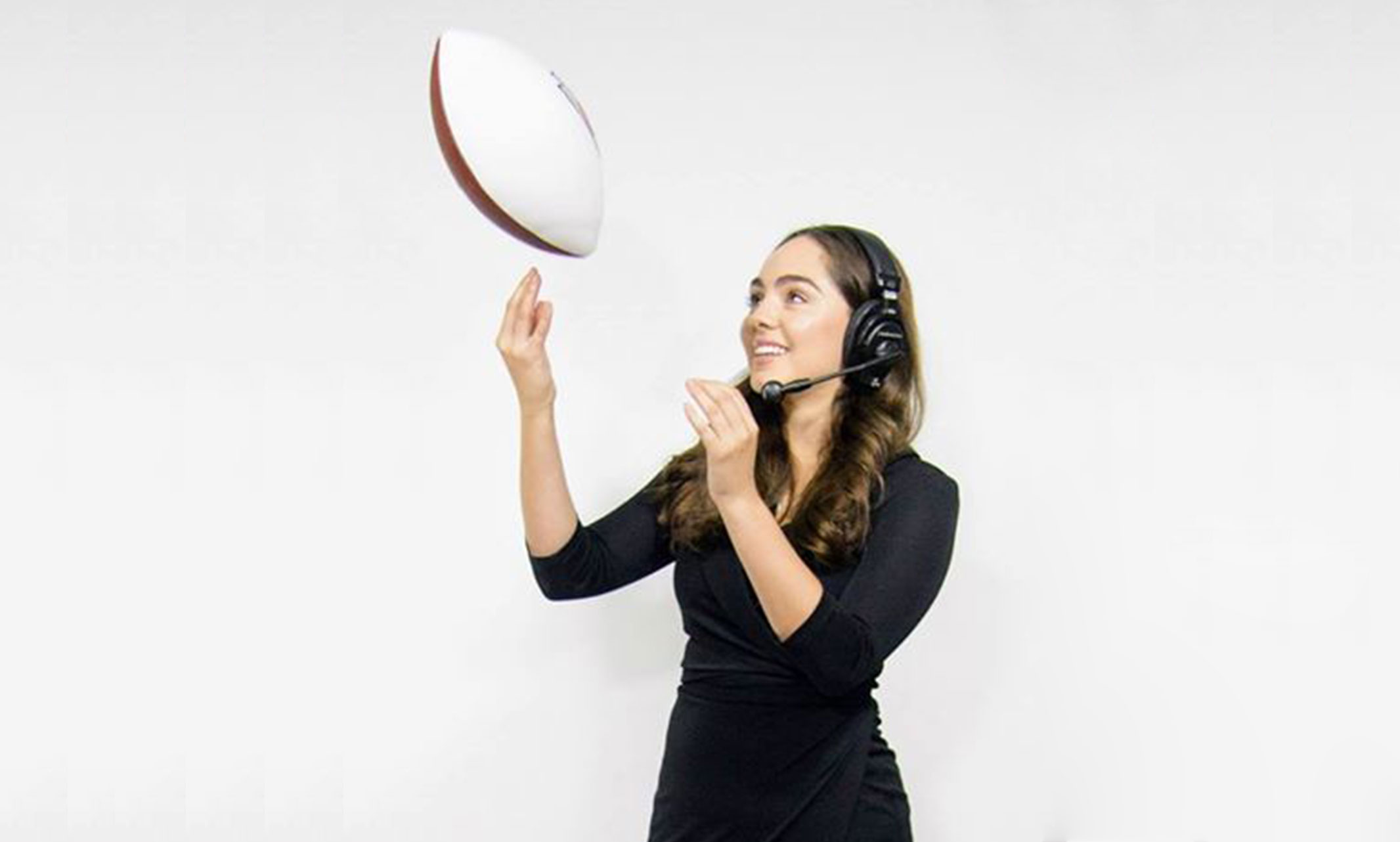
Hannah Bassham's job with Tico Sports has her covering the first Chiefs Super Bowl in 50 years
Our ongoing story starts with people from around the world, converging here at UMKC. Get to know our people and you'll know what UMKC is all about.
Name: Hannah Bassham Hometown: El Paso, Texas High School: Pembroke Hill Undergraduate Degree: Criminal Justice from Texas Christian University (TCU) UMKC degree program: J.D./MBA joint degree program Anticipated graduation year: May 2020 for my J.D. and December 2020 for my MBA
Third year law and business student Hannah Bassham is also in her third year with Tico Sports, which provides the official Spanish language coverage of the Chiefs. She spoke with us recently about how she landed the job, her role in Super Bowl LIV and her scoring prediction for Sunday.
How did you get involved with broadcasting and Tico Sports?
I have been a big Chiefs fan since I was a young girl. After undergrad, I was searching for the perfect law school to attend. At the same time, I came across the opportunity to join the Tico Sports family. They were looking for a Spanish-speaking female who was also a football fanatic to join their broadcast team and asked if I would work for them. Since UMKC has a wonderful law school and Tico Sports had a great opportunity for me to be connected with Chiefs football, I realized Kansas City was the perfect place for me to move to and I have been pursuing these two passions ever since.
What’s your role with Tico Sports?
Tico Sports produces the Chiefs’ official Spanish radio broadcast. In my first year with Tico Sports I worked as a spotter and statistician in the booth to support the color and play-by-play commentators during the broadcast. I was promoted to work as a sideline reporter during my second year with Tico, and this year, along with being the sideline reporter for the broadcast, I took on the role as host of our halftime show. Our halftime show often features interviews with players and community leaders as well as commentary on other games around the league. After each game, I go into the Chiefs locker room for interviews and attend the post-game conference to hear Coach Andy Reid and Patrick Mahomes speak to the media.
What will you be doing on Super Bowl Sunday?
On Super Bowl Sunday I will be in Miami working for Tico Sports as a sideline reporter. As a sideline reporter, I report on weather conditions, injured players, stadium atmosphere and provide general commentary on what I see from my vantage point on the sideline next to the Chiefs bench. I will also host our halftime show which I now call “El Mejor Show de Medio Tiempo” (The Best Halftime Show). You can listen to our broadcast by downloading the Chiefs app and clicking the “radio” prompt in the upper right corner to select the “Tico Sports Español Radio” option or by tuning into La Mega 1160 AM and KPPZ-LP 100.5 FM in Kansas City.
Is there a way you see using both your law and broadcasting experience together in the future?
I truly hope that my experiences in both law and broadcasting will merge at some point in the future. Law school has been such an incredibly challenging learning experience and along with my experience in broadcasting, I have grown so much in just three years. I can’t help but to think my experiences in both fields have given me new skills that will help me in any career to come.
Guess for final score on Sunday?
I anticipate seeing a high-scoring game this Sunday with both teams scoring over 28 points. That being said, if I have learned anything from these past few weeks, it is that the Chiefs are unpredictable and wildly entertaining to watch week in and week out.
Bassham with her Tico Sports coworkers outside Arrowhead Stadium. Courtesy of Tico Sports.
Favorite thing about covering the Chiefs?
My favorite thing about covering the Chiefs is having the opportunity to see such an amazing organization at work. I love getting to work side-by-side with talented people who make the Chiefs who they are. As a whole, the Chiefs organization is humble, hard-working, brilliant and grateful to be in the position they are today. I am ecstatic just to be a spectator to the incredible achievements that the entire organization has accomplished together.
Jan 29, 2020
UMKC's announcement of a new test-optional admissions process made headline news throughout Kansas City and beyond.
UMKC going to test-optional admissions Kansas City Star
How Much Influence Will UC’s Faculty Have? Inside Higher Ed
UMKC eliminates mandatory ACT, SAT scores from admissions process KSHB
UMKC makes admissions now test-optional KCTV5
UMKC decides to not consider ACT scores in enrollment. Hour 3 1/29/2020KMBZ Radio
At UMKC, students are more than test scores. New admissions policy is about inclusion Kansas City Star
Why are so many US universities going test-optional?Study International
ACT, SAT scores are no longer required for admission to UMKCAssociated Press
Will University of California dump SAT and ACT? Not yet University Business
UMKC admissions become test-optional University News
Jan 29, 2020
Kansas City Business Journal interviews Jannette Berkley-Patton
Jannette Berkley-Patton has taken her research to the pews. In fact, the professor and director of the Health Equity Institute at the University of Missouri-Kansas City is wrapping up a five-year clinical trial with the same name. Read more.
Jan 28, 2020
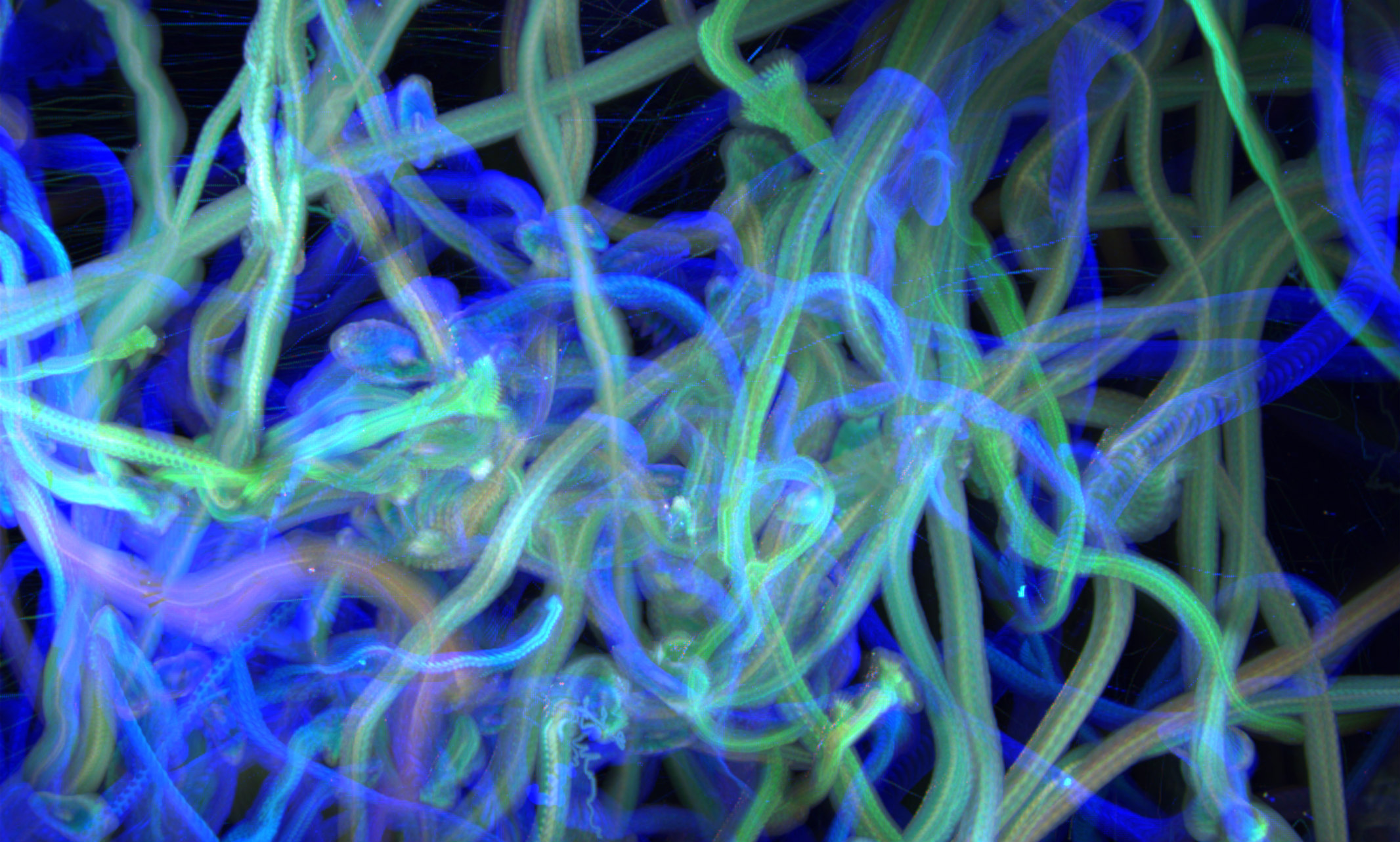
UMKC Gallery of Art exhibition features a collaboration between art and science
The University of Missouri-Kansas City Gallery of Art and The Stowers Institute for Medical Research present a new exhibition, “Body of Inquiry: The Art, Biology and Being of Flatworms,” with an opening reception from 5 to 8 p.m. on Thursday, Jan. 30, at the UMKC Gallery of Art, Room 203 in the Fine Arts Building, 5015 Holmes St., Kansas City, Missouri.
The exhibition asks the questions, What if you could clone yourself from a small piece of your fingertip? What if you could self-regenerate? What if you were essentially immortal? Scientists have found the answers in the planarian flatworm and local scientists are sharing that through art.
“For the planarian flatworm, these human fantasies are reality,” said Nowotarski. “And they’re all around us all over the world, from fountains in Barcelona, to lakes in Mexico, to nearby Brush Creek.”
The exhibition is a collaboration between art and science, two seldom, yet undeniably intertwined, fields. In the multi-disciplinary exhibition “Body of Inquiry,” sensory perception, curiosity, and creative problem-solving converge in order to provide both valuable insights into an unseen world, and beautiful art from an unlikely source.
Four intergenerational local artists put the exhibition together. They include retired Kansas City Art Institute fiber chair Jason Pollen, recent KCAI graduate William Plummer, and Stowers Institute artists and research scientists Mol Mir and Steph Nowotarski. They wanted to understand and expand upon the connection between art and science, so they plunged into local waterways and emerged with a greater appreciation for the complexities found there. They explored the role of the planarian flatworm in our local ecosystem then translated their findings to a broader scope. This exploration facilitated the cross-disciplinary dialog which led to Body of Inquiry.
This immersive installation celebrates the joy of discovery, inviting visitors to engage with and observe planarian flatworms in a variety of perspectives. Explore our interpretations and examine your own through the use of video projection, live planarians, and visual responses from each artist. This exploration offers insight and helps to answer the question: what can these flatworms teach us about being human?
The UMKC Gallery of Art hours are 9 a.m. to 5 p.m., Monday through Friday. The exhibition runs through March 7 at the UMKC Gallery of Art.
Jan 27, 2020
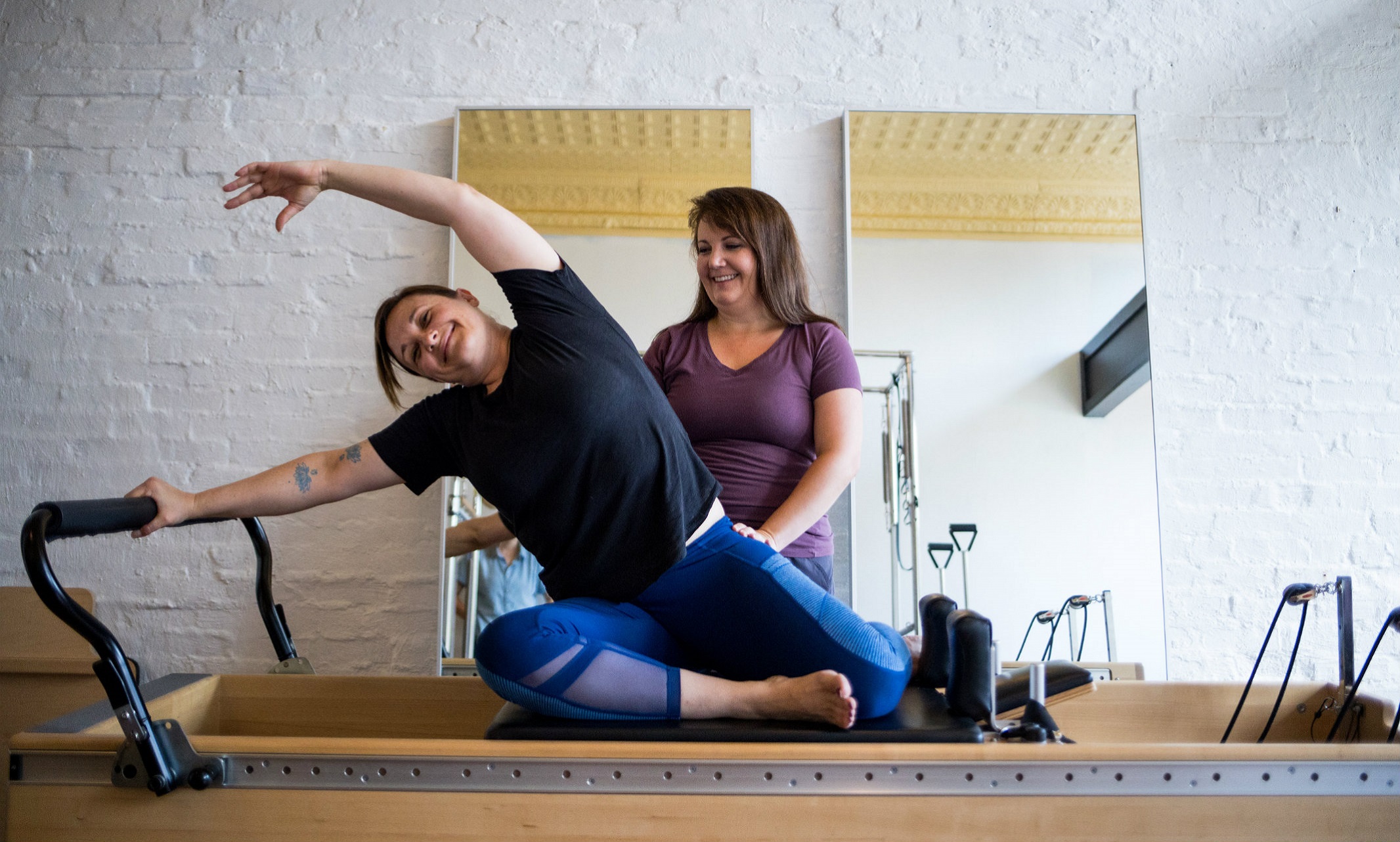
Lauren Thompson draws on diverse background for unique brand of wellness
Earning degrees in dance, psychology, and counseling and guidance with a minor in gender and women’s studies may sound like a meandering path to a career, but alumna Lauren Thompson (B.F.A. ’09, B.A. ’09, M.A. ’12) knew she could make all her interests come together.
Thompson’s unique brand of wellness comes together at her Pilates studio, Thrive Pilates, in Kansas City’s Westside. But her work goes far beyond what happens in that cozy space. The connections she makes with her clients are aimed at benefitting the whole person — not just their body composition.
So many interests, so little time
Thompson will be the first to tell you: It wasn’t exactly a straight path to her current line of work.
Thompson says people were often skeptical when they learned she was pursuing such different courses of study. She got the same question many college students get when selecting a major (or two) without a crystal-clear job description: “What are you going to do with that?”
Anyone asking that question hadn’t realized the connection between mind and body, she says, “but I was living it. It was so clear to me how those degrees worked together. Eventually, everyone else caught up.”
As an undergraduate at UMKC, Thompson would dance for six hours a day, then go to her psychology classes. Along the way, she also decided to get a minor in gender and women’s studies. And she didn’t stop with her undergraduate degrees. A year after graduation, she was back at UMKC, pursuing her master’s in counseling and guidance, with a focus on mental health.
Around this time, Thompson started teaching Pilates and yoga classes, a way to combine her backgrounds in dance and psychology that would turn out to be a crucial thread through her many work experiences.
When she was offered a job working with sex offenders in maximum security at Lansing Correctional Facility in Leavenworth County, Kansas, she took it. Though that job offered many challenges, Thompson calls it a “blessing” — just another step on the path to where she is today.
Making her own way in the wellness world
During this time, Thompson was teaching and exercising less, usually taking only one yoga class a week. She was frustrated that she wasn’t moving her body more, so she put formal counseling aside and went back to teaching yoga and Pilates full-time. But even the studios where she taught brought some frustration.
“I couldn’t really teach the way I wanted to teach,” she says. “And I couldn’t control the messaging, which I am hypersensitive about because of my knowledge of mental health.”
She realized it was time to open her own studio, incorporating her wide range of training and experiences. She wanted to meet the multifaceted needs of women from both physical and mental health perspectives, and her diverse background gave her the skills she needed to do it.
“I think the important thing is to not compare yourself to other people. There’s so much wasted energy for women on comparing. I feel lucky that I had the training early to help me block that.” —Lauren Thompson
“One of the things that we address is that a lot of exercise and training is developed for the male body. That can be a problem for a number of reasons,” she says. “It’s not as if women can’t do these things, but there are times when many exercises are not appropriate.”
Thompson notes that the constant physical fluctuations of women’s bodies — menstruation, pregnancy and menopause — deserve acknowledgement in the wellness world.
“Men’s health is relatively linear. They don’t experience the same kind of cycles that women do,” Thompson says. “We know that girls playing soccer experience significantly more ACL tears correlating with menstruation. It’s similar to the hormones from pregnancy that cause joints to be less stable.”
In addition to being in tune with individual physical needs, Thompson pays close attention to her language.
“The idea of ‘skinny equals healthy’ is false, and that mentality is mostly what we hear from the fitness industry,” she says. “I think it’s shame-based, and shame-based motivation never works. Intensity is not going to treat you well.”
Thompson practices the balance that she preaches. While work is important to her, she is active in the Kansas City arts and dance communities, using her Conservatory training to choreograph and participate in collaborative art projects. She also works on zoning and development issues in her Westside neighborhood, which has become popular with developers.
While managing her work in wellness, art and community development, Thompson works hard to stay healthy and grounded.
“I think the important thing is to not compare yourself to other people. There’s so much wasted energy for women on comparing. I feel lucky that I had the training early to help me block that.”
This story originally appeared in Perspectives magazine, vol. 29.
Jan 24, 2020
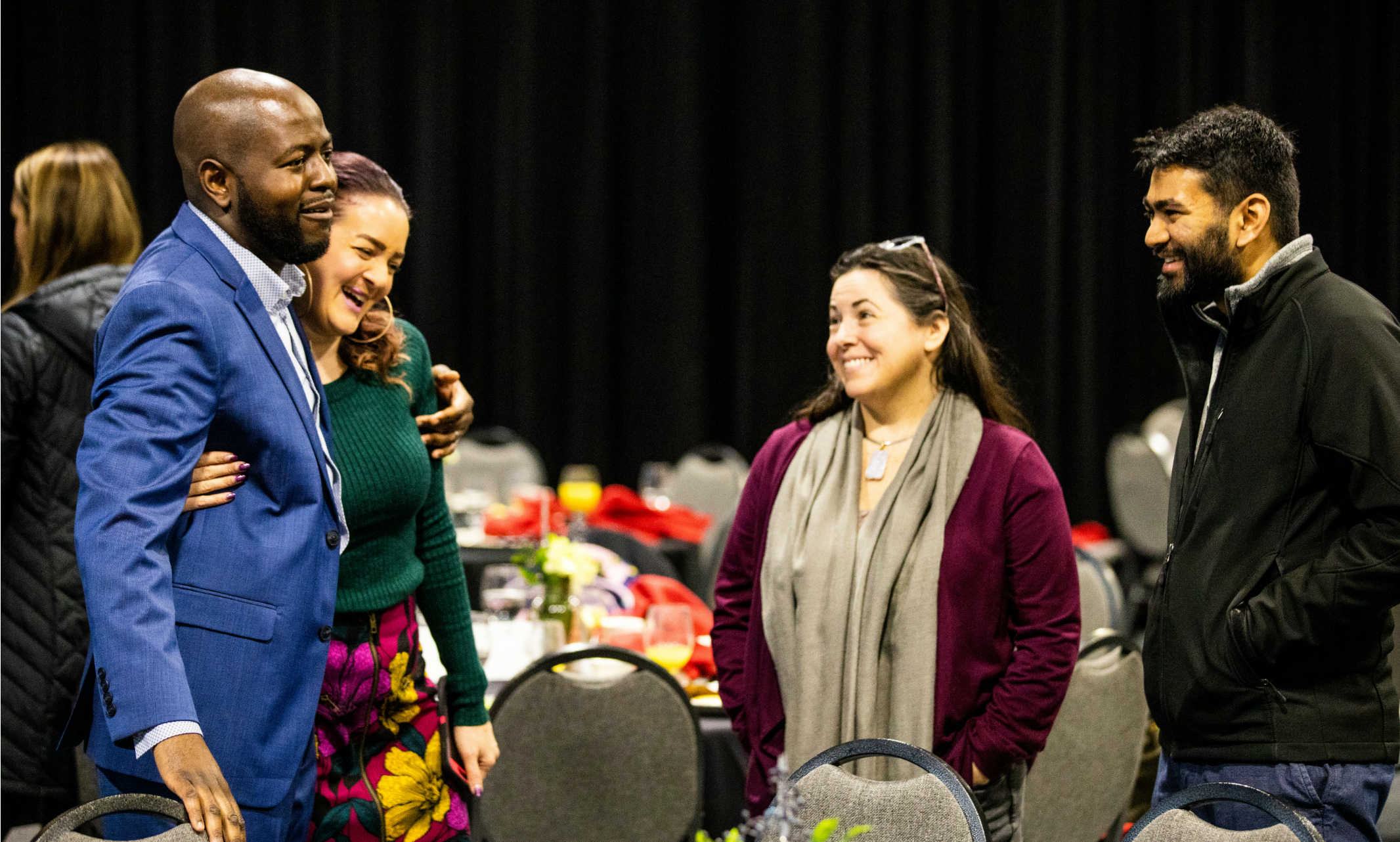
Alumnus Chiluba J. Musonda reflects on his experiences as an immigrant while honoring the legacy of Dr. King
The African American Student Union (TAASU) Freedom Breakfast was created to not only commemorate the legacy of Dr. Martin Luther King Jr. but to promote unity and harmony within our community and celebrate the university’s values of diversity, inclusiveness and respect.
This year marked the 30th anniversary of the breakfast and saw student tributes in music and dance. Alumnus Chiluba J. Musonda (B.B.A. ’09, M.P.A. ’12) spoke about his journey from Lusaka, Zambia, to Kansas City, Missouri.
Student dancers Ivyana Robinson, left, and Jayla Johnson perform during the TAASU Freedom Breakfast.
Musonda’s migration to the United States began with five words in a Yahoo search: mid-sized American colleges – affordable. Sifting through more than a hundred results, he applied to four universities. UMKC was the first and only university to respond.
“I am no different than any immigrant that comes to America,” says Musonda, now director of operations at Kansas City Museum and author of “Home Away from Home.” “Everyone comes seeking a ‘better life.”
He stresses that what most people fail to recognize is the bravery and emotional cost that comes with leaving your family, home and country behind.
Musonda recalled a moment in 2007 when he received a call from his sister saying that his mother was robbed at gunpoint in Zambia. He realized then that there was nothing he could do to help and the feeling of being alone in the U.S. sunk in. He cites UMKC and the people around him with helping him pull through the dark moments.
“Each one of us has a responsibility to help others,” Musonda said as he encouraged attendees to remember the words of Dr. Martin Luther King Jr.: “Whatever affects one directly, affects all indirectly.”
Members of TAASU honored UMKC staff member Todd Wells with The Dr. Joseph Seabrooks Jr. Leadership Award. Pictured from left to right: Blessing Onwundinati, Brenda Reed, Makini Morrison, Jayesha Griffin, Brandy Williams, Todd Wells, Jarinar Robinson.
Jan 24, 2020
The Hollywood Reporter recognizes UMKC Theatre program
UMKC Theatre has been named as a top design school by The Hollywood Reporter. Read more.
Jan 24, 2020
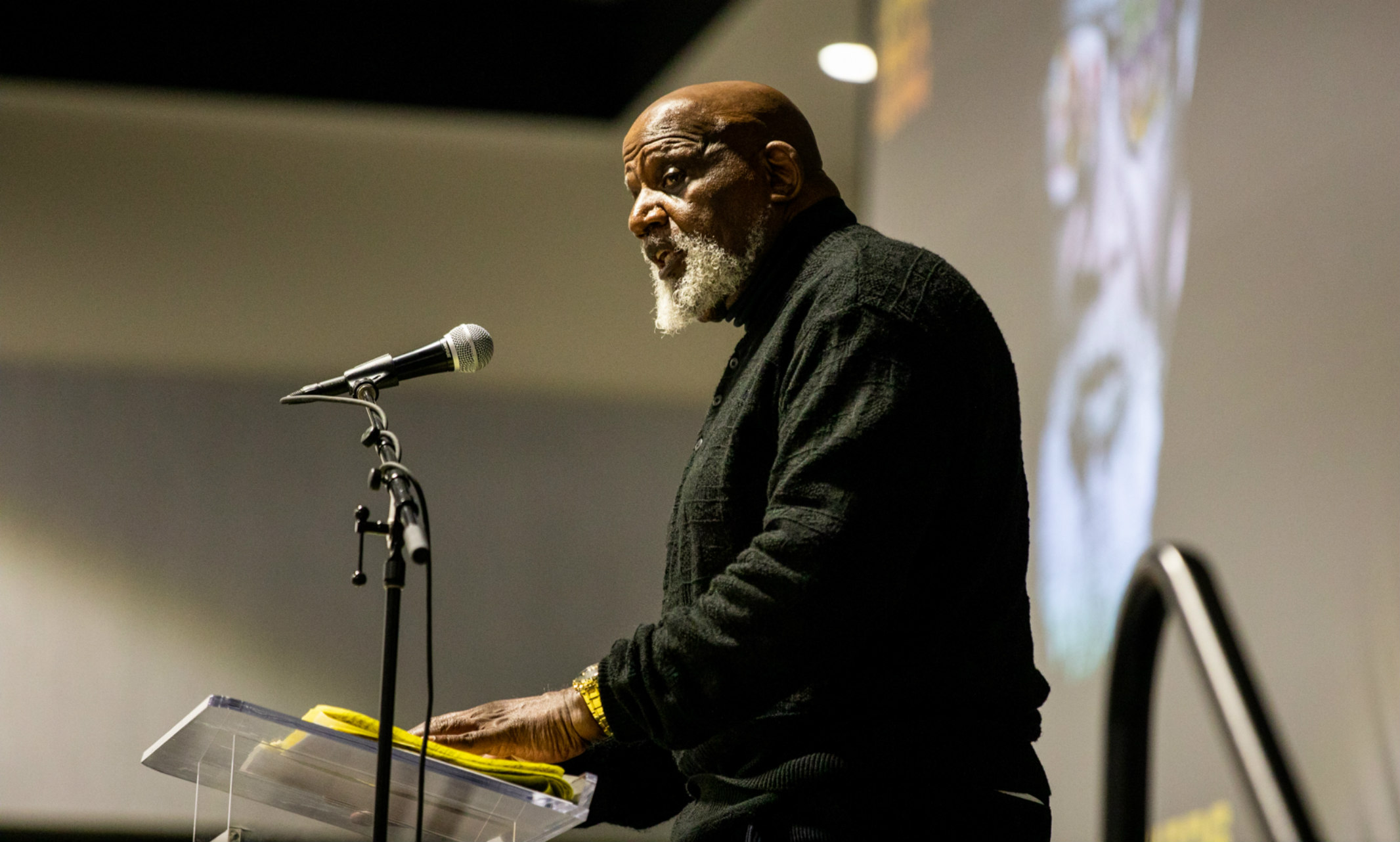
Renowned sports activist and sociologist Harry Edwards was featured speaker
Speaking to a full crowd of community members during the 12th annual Martin Luther King Jr. Lecture Series, Vice Chancellor of Diversity and Inclusion Susan Wilson said that “we’re still fighting civil rights struggles from economic to social justice” in the United States. She reminded attendees, who piled into Pierson Auditorium to hear from sports activist and sociologist Harry Edwards, Ph.D., that the struggle is not over that King was fighting to overcome.
Each year the Division of Diversity and Inclusion brings social-justice thought leaders to UMKC to provide insight and advocacy to current rights issues of education, economic and justice inequalities. The goal of the lecture series is to encourage the campus and Kansas City community to build upon the courageous, non-violent activism of civil rights leaders like Martin Luther King Jr. and to increase awareness of present day avenues to advocate for social justice through free thought, action and scholarship. This year’s discussion was a timely fit as discourse surrounding former San Francisco 49ers quarterback Colin Kaepernick’s kneeling protest against police brutality and, even more fitting, the Kansas City Chiefs are headed to the Super Bowl. Here a few takeaways from Edwards' lecture.
“The challenges of our circumstances are diverse and dynamic. Our struggle, therefore, must be multifaceted and perpetual and there are no final victories.”
Each wave of athlete activists — more times than not — is directly tied to a social justice movement in the broader community.
Wave 1: Plessy V. Ferguson and Establishing Legitimacy
Edwards shared that to understand resistance athletes, we must begin at the turn of the 20th century — the collapse of reconstruction and the passing of Plessy vs. Ferguson: racial segregation under the guise of separate but equal public accommodations. This law is what led to the development of viable, vibrant and parallel black social and cultural institutions — historically black colleges and universities, fraternal and community organizations and sports — constituted by an ongoing resistance amongst black people.
“Human rights emphases carried the perceived potential to enhance the dignity and respect of black people.”
Achievement by black athletes on the world stage became a feature of African-American resistance to the oppression imposed upon them in America under Plessy vs. Ferguson. This model of black excellence was a direct contradiction of race-based claims of black inferiority and would be reiterated throughout history.
Excellence at home through black sports teams and excellence abroad led to the first wave of athlete activism: an effort to establish the legitimacy of blacks in America.
Wave 2: Establishing Access
Edwards said America underwent a talent pool shortage after WWII due to war casualties, which is what ultimately caused sports officials to fill gaps with black talent in revenue-producing sports like baseball, basketball and track and field.
“When you look at collegiate athletics, blacks are virtually underrepresented, especially when it comes to giving scholarships… except in basketball, football and track and field.”
According to Edwards, athletes like Jackie Robinson modeled the path for the larger civil rights movement in American society and served the interest of advancing the black struggle against racial segregation and oppression, as well as mainstream sports.
“Women have always been a part of every movement, but this movement is about women.”
He shed light on how sports was a reflection of what was happening in the broader society and how athletes were the first to take nonviolent direct action against racism and oppression years before King led nonviolent protests in the South. Black clergy and community organizers were taught nonviolent direct action so that sports spectators knew how not to respond when they witnessed their star athletes’ mistreatment on and off the field.
“They knew that if there had been a riot in the stands, it would spill into the streets and vice versa if players fought back on the field” and that would hinder them from furthering their push for access both in sports and the community.
“The culture of sports has not changed. It is about a transactional reality.”
Wave 3: Human Rights – Why Should We Play Where We Can’t Work?
After the onset of desegregation and, largely due to what civil rights accomplished, millions of people were left leaderless and hopeless.
The trajectory of efforts of young, militant blacks such as the Black Panther Party, shifted to the concern for human rights and human rights development.
“Human rights emphases carried the perceived potential to enhance the dignity and respect of black people,” Edwards said.
He further explained that it was no longer enough to have access, athletes demanded respect and dignity. He used Muhamad Ali as a prime example of how black athletes fought for dignity and respect for race, name and religion and drew a line to highlight how Ali’s fight opened the door for Barack Obama to eventually become the 44th president of the United States.
The third wave of resistance athletes — Ali, Jim Brown and others — was fueled by the Black Power Movement. Each movement has a trending expiration date of about six years, 10 at the most. There was no movement by 1972. Edwards said there were athletes between 1972 and 2012 who were prominent, but not as remembered because most athlete activists are tied to larger movements.
“The culture of sports has not changed. It is about a transactional reality.”
Wave 4: Black Lives Matter
Edwards tied Kaepernick’s protest to the Black Lives Matter movement and the quest for social justice, further noting that current activists have social media at their disposal and are able to use their power and influence to call on their followers to protest.
“This generation is about the exercise of power.”
Wave 5: Gender Equality
The WNBA donates $5 of every ticket sale to Planned Parenthood.
“Women have always been a part of every movement, but this movement is about women.”
Young women are more dependent on services offered under the Affordable Care Act and nonprofit health care clinics. Edwards said if those go away, it will constitute a direct threat on the existence of women’s sports, and women are already beginning to react to it.
“The challenges of our circumstances are diverse and dynamic,” Edward said. “Our struggle, therefore, must be multifaceted and perpetual and there are no final victories.”
It’s not the activists who created the struggle, Edwards said, but the athletes who are participating in their leg of the struggle. He said there will always be a movement, which is why we’re constantly in pursuit of forming that more perfect union.
“It will never be perfect but the struggle to get there is what will be part of what is in the very fabric and soul of American society.”
Learn more about Diversity and Inclusion at UMKC
Jan 23, 2020
KCUR features Gus Jacob of School of Education
Gus Jacob, assistant teaching professor at the UMKC School of Education, was a guest on Central Standard.
Homework has been a cornerstone of education since as long as anyone can remember. As schools trend towards more homework at younger ages though, public opinion on its value is shifting. Lots of parents and researchers don't think it makes sense. How much homework is too much and at what age? Listen for more.
Jan 21, 2020
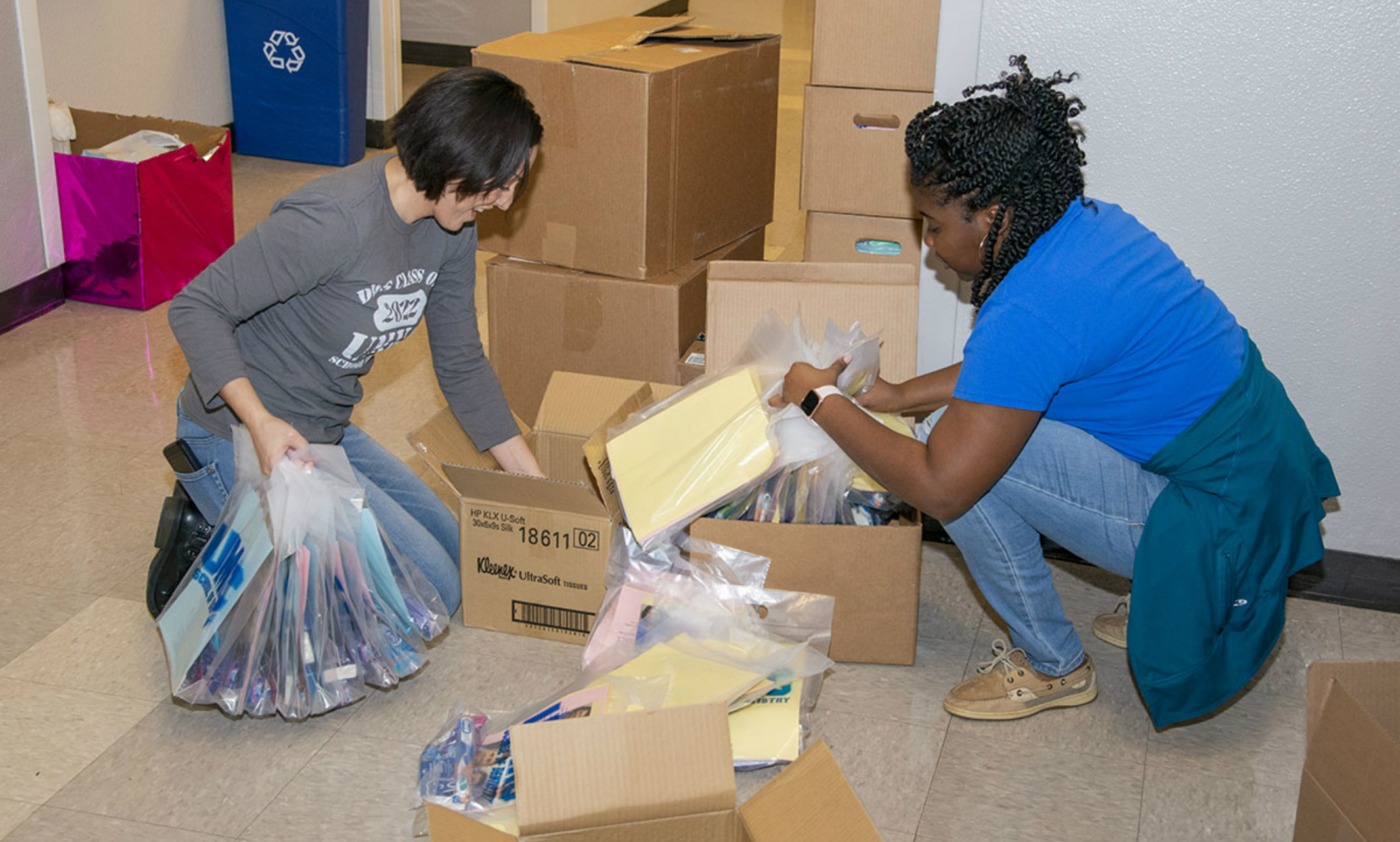
Students, faculty and staff assemble 2,000 dental-supply kits
From the outside, the UMKC School of Dentistry looked quiet Monday morning, befitting a day when classes were out and its clinics were closed. But inside, the cafeteria and second-floor hallways were abuzz with volunteers doing service befitting Martin Luther King Jr. Day.
The volunteers’ mission: assemble 2,000 dental-care supply kits for distribution to points of need throughout the community. It was the second year for the dental school’s MLK Day of Service, and the number of kits was double the output of a year ago.
“It’s great to see everyone here volunteering,” said Shurouk Alkharabsheh, a third-year dental student. “I missed last year and wanted to take part this time. It’s good to do something productive with the day.”
Ryan Greenway, a second-year dental student, agreed: “I enjoy volunteering, and was bummed when I missed the event last year. But now I’m here! It’s also a nice break from our routine.”
Students got the dental-kit day of service going a year ago, and it has had the full support of School of Dentistry leadership. Dean Marsha Pyle was on hand Monday morning and took a brief break from her assembly line to praise the effort.
“I’m grateful that our faculty, staff and students have created this opportunity to do good in the community,” Pyle said. “It’s a team effort — and Kansas City loves its teams! It’s great to see this special effort on this special day, when we don’t have our usual commitments.”
Most of the kits were packed with an average adult in mind, with items including a toothbrush, toothpaste, floss and information on the school’s clinical services and free dental cleanings available to the public. But one station packed kits suited to children, and another included supplies of use to older residents and people with dentures.
“I’m a big believer in volunteering, so this fits right in with my ideas. I participated last year and really enjoyed the sense of community.” - Mark Dallas
Richie Bigham, assistant dean for student programs, said the kits were bound for several places, including the City Union Mission, a program to help the homeless that’s on the original site of the dental school. The school also added a sock drive this year, as socks are an often-requested item at some of the locations that receive the dental kits.
Just as the kits will benefit the wider community, the volunteer corps this year drew from outside the dental school. One group came from St. James United Methodist Church, which also was sending volunteers to other locations around Kansas City for MLK Day.
“We’re happy to help here at the School of Dentistry,” said one parishioner, Phyllis Jackson, “and we have other volunteers today at Hospice House, Rose Brooks, Harvesters and other locations to honor the memory of Dr. King.”
Faculty and staff from the School of Dentistry rounded out the volunteers, including Mark Dallas, M.S., research assistant in the Department of Oral and Craniofacial Sciences.
“I’m a big believer in volunteering, so this fits right in with my ideas,” said Dallas, who joined the school in 2001 along with his wife, Professor Sarah Dallas, Ph.D. “I participated last year and really enjoyed the sense of community.”
The volunteers had started the day at 8:30 a.m. with a half-hour video on Dr. King’s legacy, and then they made fast work putting the kits together. By 11 a.m., they reassembled to be thanked by Jeffery Primos, director of business affairs, and then to make their first delivery, to nearby Ronald McDonald House.
The project will make a difference for hundreds of people, Primos said, “and embody what Martin Luther King Jr. stood for.”
Jan 20, 2020
Fox4KC interviews UMKC School of Dentistry
The UMKC School of Dentistry prepared to give away 2,000 dental hygiene kits. Learn more.
Jan 20, 2020
Startland News features UMKC Innovation program
Funded by the city of Kansas City, Missouri, and administered by the UMKC Innovation Center, the new Dare to Venture Micro-Grant Competition is expected to feature numerous prizes with a top winner earning at least $5,000. Read more.
Jan 15, 2020
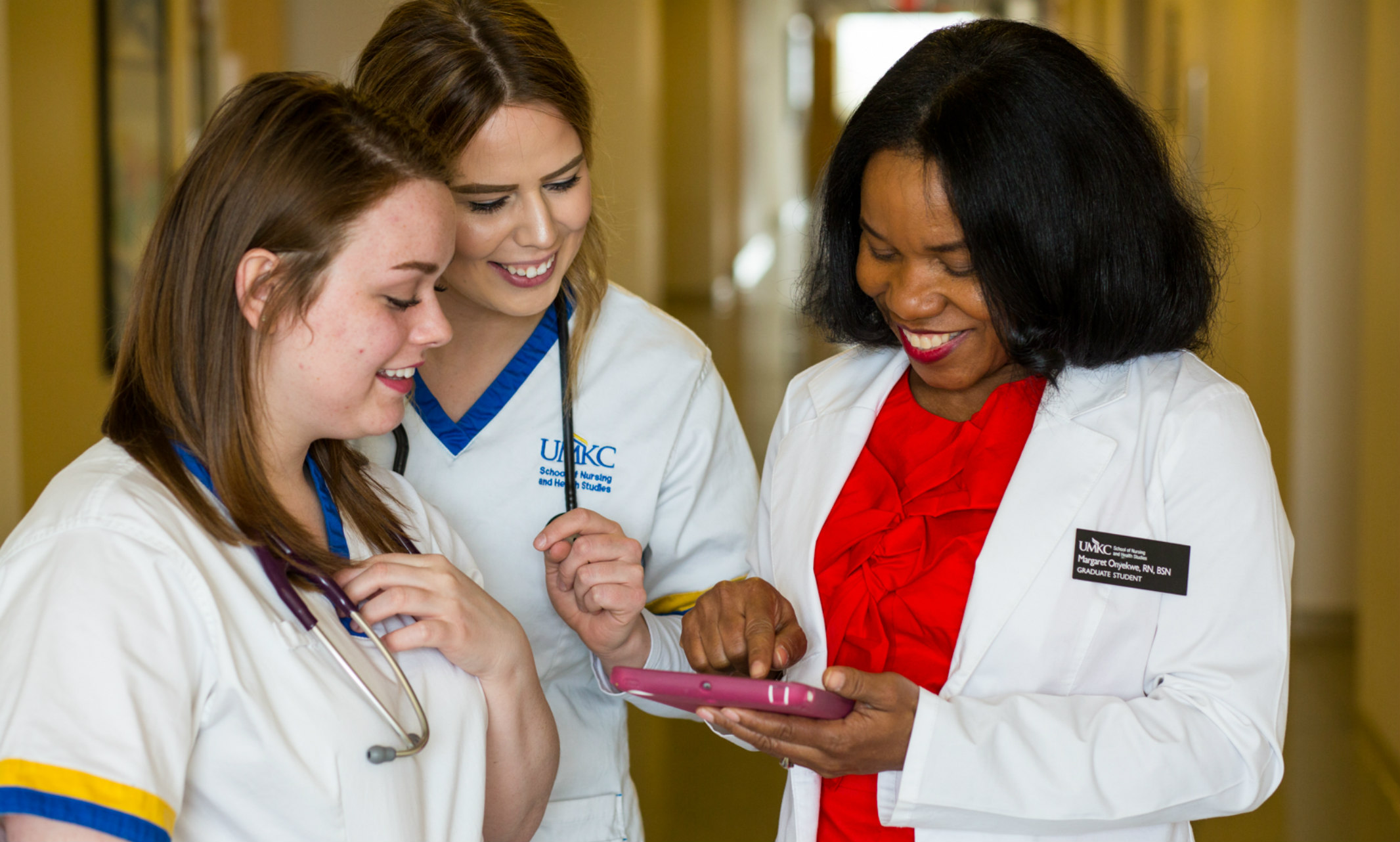
U.S. News & World Report ranks online graduate programs
The University of Missouri-Kansas City School of Nursing and Health Studies ranked No. 26 among the nation’s best online graduate nursing programs of 2020 by U.S. News & World Report, giving it at least a Top 30 ranking for the eighth year in a row.
The UMKC ranking, released today, is the highest of any university in Missouri or Kansas. Last year, UMKC also ranked high at No. 19.
“The UMKC School of Nursing and Health Studies is proud that our online Master of Science in Nursing (MSN) program continues to be recognized as one of the best in the nation," said Joy Roberts, interim dean. "For the past two decades, UMKC MSN graduates have been demonstrating excellence in nursing care throughout Missouri, Kansas and the Midwest."
The UMKC School of Nursing and Health Studies is a pioneer in distance-learning programs, offering online advanced degree programs since 2002. The programs offer busy professionals a high-quality but convenient way to further their careers and meet the needs of an evolving health-care system.
Online students are expected to participate in online discussions as if they are present in the classroom. Technology offers two-way communication in real time via multiple modes. Students also experience on-site learning through summer institutes where they are required to attend clinical training or dissertation work sessions, and deliver presentations to classmates and faculty.
UMKC offers a variety of online graduate nursing tracks, including Master of Science in Nursing (MSN) and other options:
Adult-Gerontology Primary Care Nurse Practitioner
Family Nurse Practitioner
Pediatric Nurse Practitioner
Women’s Health Nurse Practitioner
Nurse Educator
Psychiatric Mental Health Nurse Practitioner
Neonatal Nurse Practitioner
Ph.D.
Doctor of Nursing Practice
U.S. News began ranking online education in 2012. The categories include faculty credentials and training; student engagement; admissions selectivity; peer reputation; and student services and technology. U.S. News began their data comparisons with more than 550 institutions that had accredited graduate degree programs in nursing. Among the ones that replied, more than 180 said they offered online graduate nursing programs. The number of online nursing programs is continually growing nationwide.
Jan 14, 2020
$200,000 Urban Institute grant supports corrections research, offender rehabilitation
University of Missouri System researchers will play a central role in a new initiative aimed at improving the prison environment in Missouri. This week the Urban Institute, with support from Arnold Ventures, announced a $200,000 grant to support a collaborative effort between university researchers and the Missouri Department of Corrections.
Missouri was one of one five states chosen for phase 1 of the Prison Research and Innovation Network, along with Colorado, Delaware, Iowa and Vermont.
Janet Garcia-Hallett, assistant professor of criminology and criminal justice at the University of Missouri-Kansas City, is part of the research team. The team, led by Kelli Canada and Clark Peters of MU, received an annual grant of $100,000 to support their work in the project. Canada and Peters co-founded the Center for Criminal and Juvenile Justice Priorities. Other researchers involved are Ashley Givens, assistant professor of social work at MU; Beth Huebner, professor of criminology and criminal justice at University of Missouri-St. Louis.
“We are excited to partner with the Department of Corrections on this important work,” Canada said. “This collaboration speaks to the land-grant mission of the University of Missouri, as our research findings will be put to use to improve lives in communities across the state.”
The researchers will conduct climate surveys and collect data to provide objective analysis to the Department of Corrections for the research pilot project.
“I am a firm believer in using research and data to make good decisions,” Missouri Department of Corrections Director Anne Precythe said. “We’re thrilled to work with the University of Missouri, to join the network and to implement evidence-based practices, policies and programs that advance our goal of improving lives for safer communities.”
The 4.5-year research project will be piloted at Moberly Correctional Center, a 1,800-bed minimum/medium-security facility located 35 miles north of Columbia, Missouri. The prison is the inaugural site of the Missouri Veterans Project and the state’s first dorm for veterans. It houses two intensive therapeutic communities for offenders committed to personal growth and sobriety. It provides opportunities for offenders to give back through programs such as Puppies for Parole and Restorative Justice. It also offers 48 courses and groups that build skills in areas such as anger management, parenting, employability preparation, cognitive interventions, addiction management and understanding the impact of crime on victims.
“We look forward to supporting Missouri in its efforts to employ research and data to improve prison culture, operations, and design while creating more humane and rehabilitative correctional environments,” said Nancy La Vigne, vice president of justice policy at the Urban Institute. “Missouri’s leadership and commitment to transparency and accountability will help spur lasting change for people who live and work in prisons.”
Jan 14, 2020
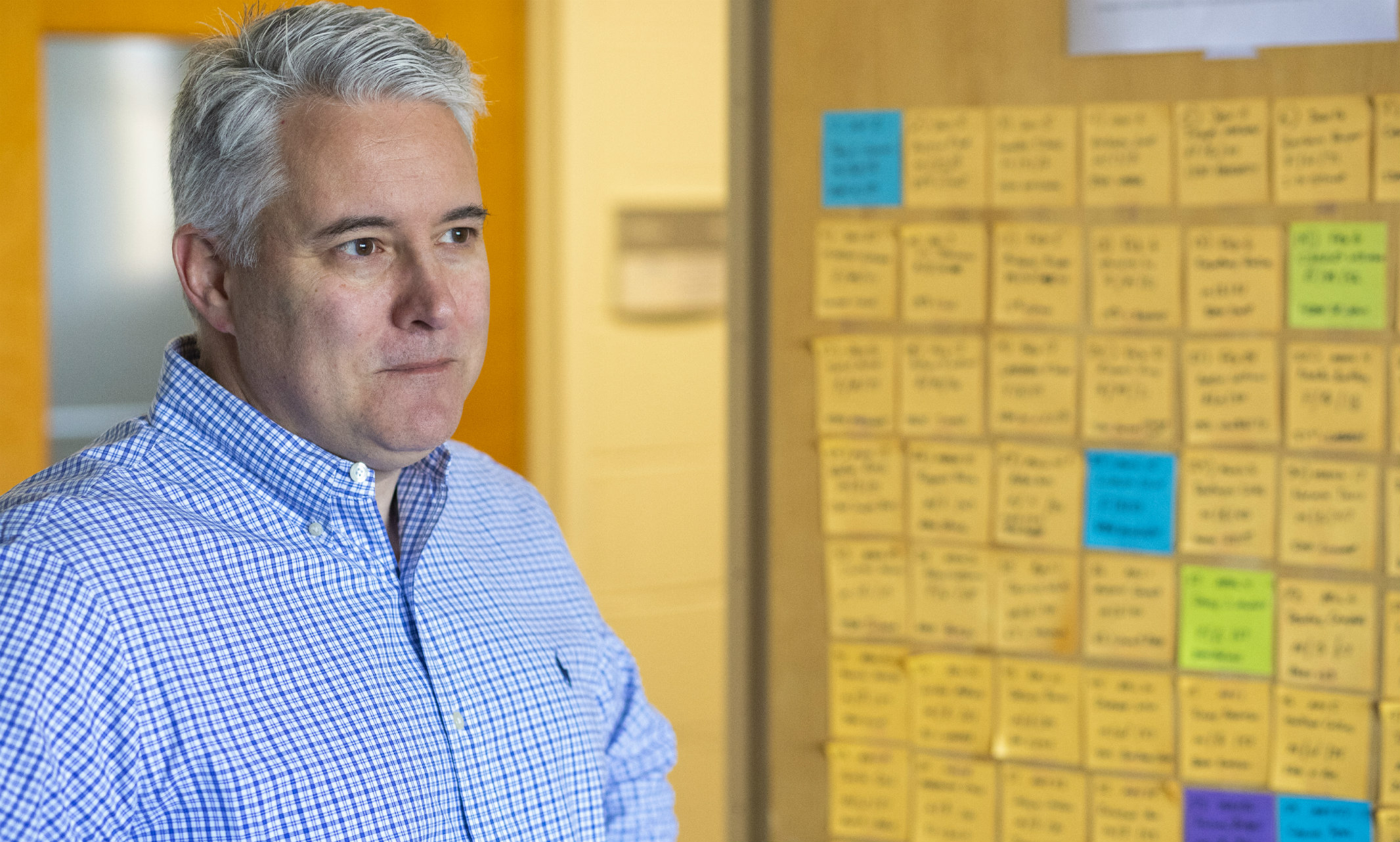
Seven questions with Ken Novak
In January 2019, criminology and criminal justice professor Ken Novak noticed an unusual pattern of homicide cases in Kansas City and casually decided to track them using color-coded sticky notes and posting them on his office door. He intended to spark a conversation.
On each note he recorded the date, victim name, victim demographic and the location. Orange for gun violence, blue for other, yellow for unknown and purple for officer-involved. He wanted students and colleagues to stop and ask questions, to take in what was happening and be led to help find a solution. He detailed his findings on Twitter at the start of 2020.
What stuck out to you the most about the homicide rate last year?
The thing that stuck out to me in general was the number of gun-related homicides – it’s clear that guns are involved in nine out of every 10 homicides.
“I hope this humanizes crime statistics. Behind every homicide is a victim and grieving families experiencing unimaginable trauma.”
151 homicides in one year? That’s a lot. Is that the highest it’s ever been?
There were several years in the 1990s when the raw number of homicides was higher. In fact, there were more homicides in 2017 than in 2019. But I believe it’s better to examine the population-adjusted homicide rates and compare Kansas City’s rates to national trends.
In the 1990s, the national homicide rate was almost twice as high as it is today. Since then, the national rate trended downward, where Kansas City’s homicide rate is stable. In 2019, Kansas City’s homicide rate was roughly six times higher than the national rate, and this disparity between Kansas City and the U.S. is the highest it has ever been.
What can we attribute to the heightened rate of gun violence in our city?
Several different factors contribute to the heightened rate of gun violence in Kansas City.
First: Research demonstrates that cities and counties in states with lenient gun laws have more gun homicides, even after considering other factors.
Second: There is a culture of gun violence in Kansas City, as well as in other urban areas in Missouri, perhaps due to the availability of guns. Using guns to settle disputes and arguments is normative in Kansas City, so we run the risk of viewing this violence as normal because it is what we have become accustomed to expect. Additionally, many homicides are a result of retaliatory violence. “Settling the score” with guns rather than the criminal justice system has become normalized behavior.
Third: Many affected by gun violence do not view the criminal justice system as effective, fair, impartial or transparent. Only about half of homicides are cleared by the police, and only about 20% of non-fatal shootings result in an arrest. When witnesses and victims don’t see people being held accountable for their actions, they are less likely to cooperate with detectives and prosecutors. Add in the fact that witnesses and victims may also fear retaliation if they cooperate, their motivation to collaborate with the police goes down even further. It’s a vicious cycle.
“There is no single solution to this problem, and there is no single strategy we can implement...”
Your goal when you started posting these notes on your door was to start a conversation and you’ve done just that, especially with the recent wave of media coverage after your Twitter thread. What do you hope the community will take away from your findings?
I hope this humanizes crime statistics. Behind every homicide is a victim and grieving families experiencing unimaginable trauma. It’s easy to lose sight of this fact. I also wanted to draw attention to how homicide victimization clusters by demographics. Young black males experience a disproportionate amount of victimization – about 95 times higher than the general U.S. population. The burden and trauma of homicide is not shared equally across everyone in KC.
You were previously on the board for KC NOVA (the Kansas City No Violence Alliance). What community initiatives are you currently involved in to help solve criminal justice issues in Kansas City?
I am currently working with the Kansas City Police Department on a hot-spot policing initiative in the most violent areas in eastern Kansas City — where many of these shooting occur. I am also working with the police and the Bureau of Alcohol, Tobacco and Firearms on an initiative to link shootings by examining ballistic evidence left behind at crime scenes. Both of these are sponsored by the U.S. Department of Justice.
“In 2019, Kansas City’s homicide rate was roughly six times higher than the national rate, and this disparity between Kansas City and the U.S. is the highest it has ever been.”
Interesting! We’re looking forward to hearing more about those initiatives as they progress. What about those of us in the community? What can we do to help solve the gun violence issue?
There is no single solution to this problem, and there is no single strategy we can implement. Kansas City needs a violence-reduction portfolio of strategies. We have learned some crime prevention strategies work better than others do and, over time, science has developed evidence-based solutions to reduce crime. Citizens should demand evidence-strategies be given priority within this portfolio.
You mentioned that you started this as a casual effort. Are you planning to do it all again this year?
I don’t think I’m going to do this in 2020. I never intended this to be an annual exercise.
Learn more about faculty research
Jan 13, 2020
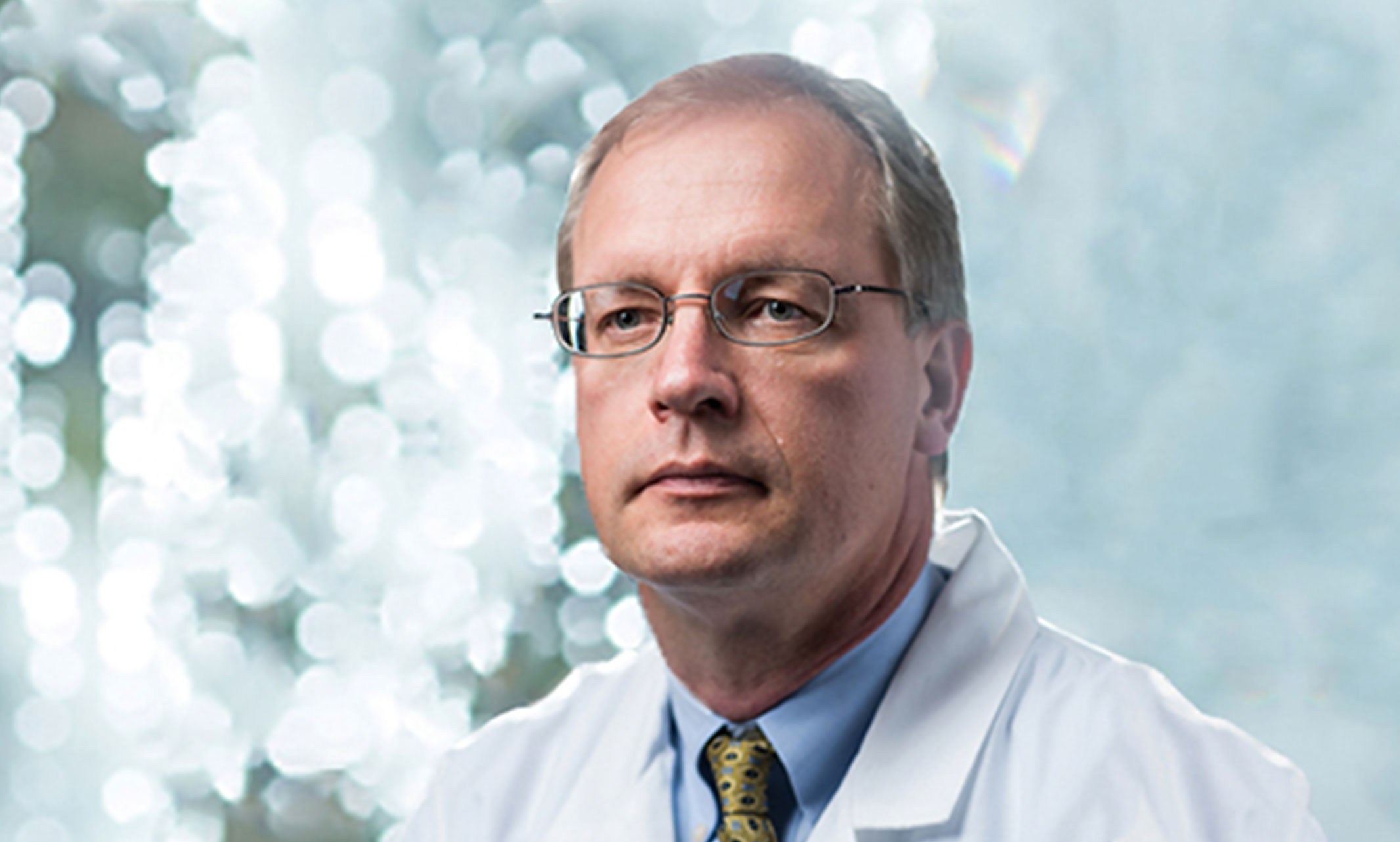
$1.16-milion NIH grant award explores macular-degeneration treatment
Backed by a $1.16 million grant from the National Institutes of Health, UMKC School of Medicine vision researcher Peter Koulen, Ph.D., is studying new chemical compounds to treat and prevent age-related macular degeneration (AMD).
AMD is the leading cause of irreversible vision loss and blindness among older adults. As many as 11 million people in the United States have some form of age-related macular degeneration.
“AMD affects a significant and increasing portion of the U.S. population, with age being a predisposing factor,” said Koulen, director of basic research at UMKC’s Vision Research Center. “This research will contribute to improving health care and the prevention of blindness.”
His project, funded by the NIH National Eye Institute, will focus on the preclinical development of novel antioxidants that have the potential to be both preventative and therapeutic in nature. The compounds could prevent the deterioration and death of retina nerve cells and supporting cells. The retina cannot regenerate these cells, therefore, their loss as a result of AMD leads to irreversible damage to one’s vision.
If successful, these new antioxidants being developed by Koulen’s research would be effective in both preventing the disease from progressing and treating already existing damage.
The research focuses on dry AMD, a form of the disease that affects the majority of patients. Effective therapies are lacking for this form of the disease, in which cells are gradually lost over time resulting in blindness.
Medications developed as a result of the study could also complement existing treatment designs for the wet form of AMD that is more aggressive and affects a smaller number of patients.
Jan 10, 2020
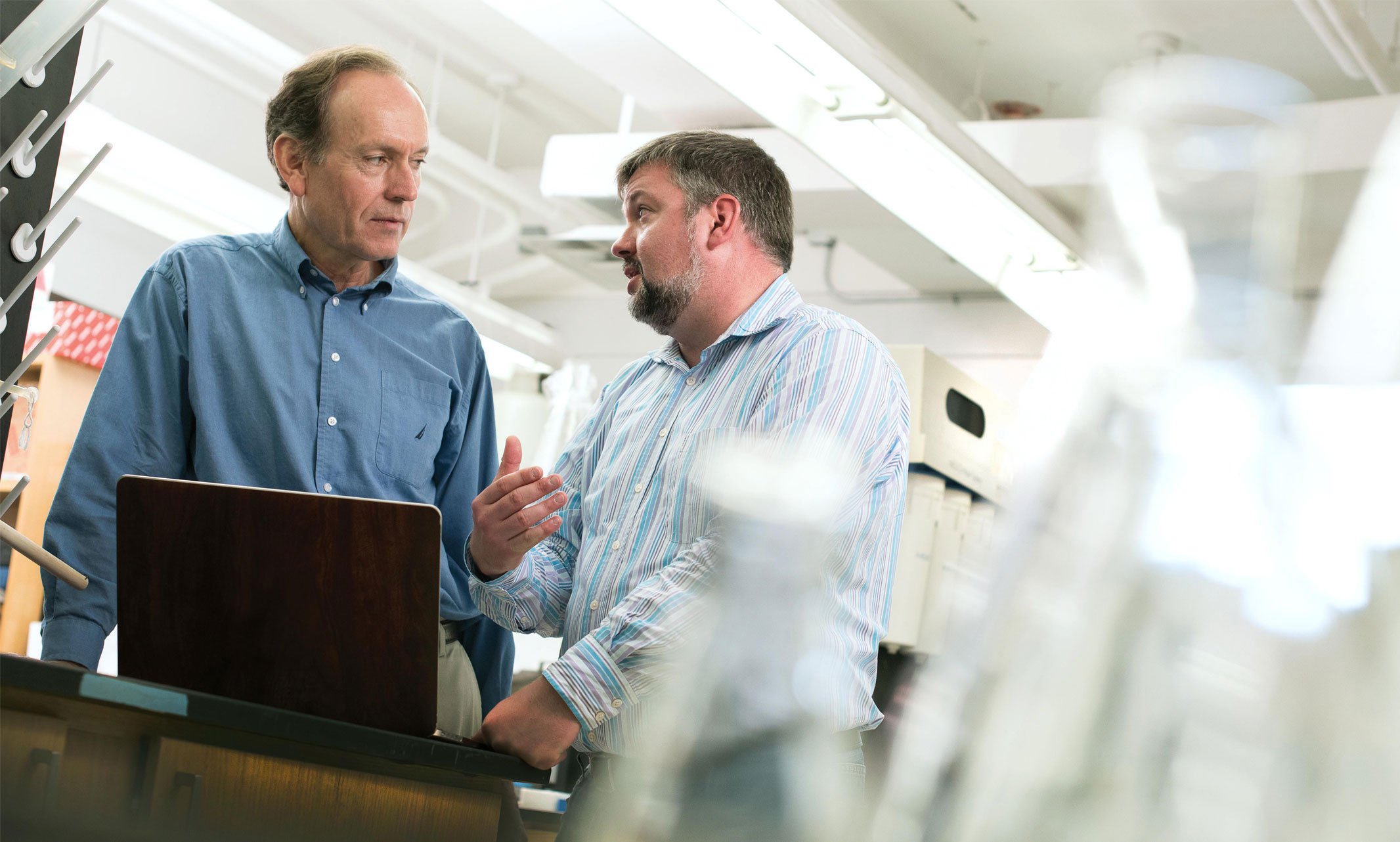
Gerald Wyckoff is one of three local scientists awarded nexus of human and animal research funding
BioNexus KC and the Hall Family Foundation awarded Nexus of Human and Animal Health Research Grants to three local researchers including Gerald Wyckoff, Ph.D., professor at UMKC.
Each researcher was given $50,000 to further the Path to 2025 regional vision: Kansas City is a global leader at the nexus of human and animal health benefitting all our citizens and the economy. This nexus is called One Health.
Wyckoff, with the joint University of Missouri-Kansas City and Kansas State University 1Data project, will work on creating a set of highly curated potential therapeutic target genes for rare disease. Wyckoff works with the School of Pharmacy and School of Biological and Chemical Sciences.
Building on this, the project will construct an algorithmic approach to screening for new therapeutics in over 3,400 rare disease genes, creating a new resource and tool for precision medicine in the rare disease space. By taking a One Health approach, and using computational techniques, 1Data plans to address the major problem of the lack of availability of treatments for rare disease and do so in a way that benefits both animal and human health.
Jan 07, 2020
KCTV5 interviews Rebecca Best, an assistant professor of political science
According to UMKC Assistant Professor of Political Science Rebecca Best, Soleimani’s position would be comparable to a well-known general in the United States. Read more.
Jan 03, 2020
Christopher Garmon of Bloch School interviewed
“It’s a really frustrating, powerless feeling for patients,” said Chris Garmon, an economist at the University of Missouri-Kansas City who previously worked on antitrust investigations at the Federal Trade Commission.
The Mercury
Lawrence Journal-World
Jan 03, 2020
Local media feature Professor Ken Novak
Part of Kansas City’s homicide rate likely stems from accessibility to handguns, said Ken Novak, a professor of criminology and criminal justice at the University of Missouri-Kansas City. His office door is covered in Post-it Notes. Each one has the name of a 2019 homicide victim on it.
The Kansas City Star
KCTV5
KSHB
Kansas City Business Journal
Jan 02, 2020
School of Medicine faculty interviewed by local media
Many who set goals for the new year place top priority on becoming healthier. Now a national study can help take the guesswork and expense out of accomplishing a more active lifestyle. The University of Missouri-Kansas City is one of five research sites in the U.S. for this study, which focuses on helping those at risk for metabolic syndrome.
Betty Drees, a professor with the UMKC School of Medicine’s Department of Biomedical and Health Informatics; and Jannette Berkley-Patton, a UMKC professor and director of both the Community Health Research Group and the Health Equity Institute, were interviewed.
The Community Voice
KSHB
Jan 02, 2020
